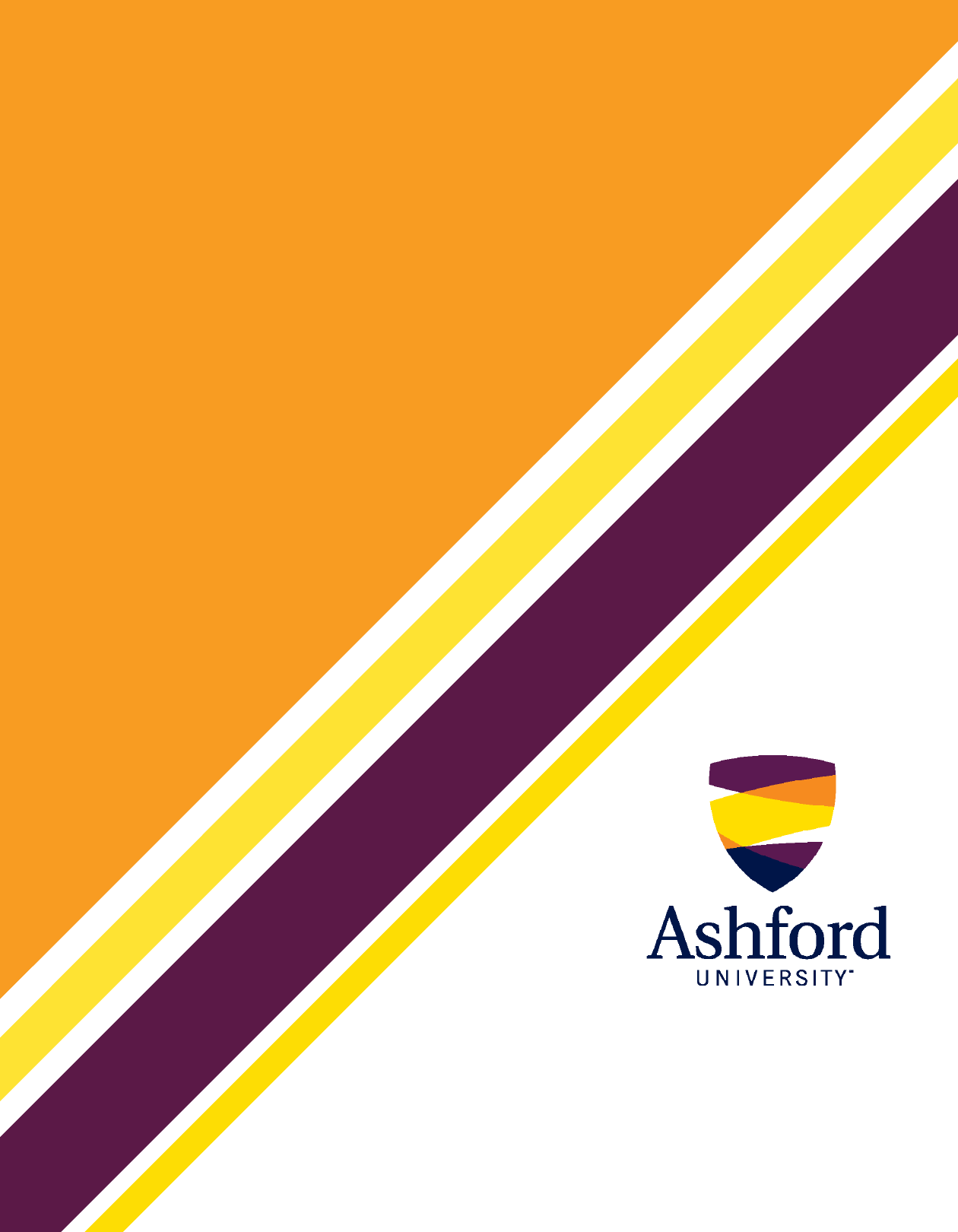
2018-2019
ACADEMIC CATALOG
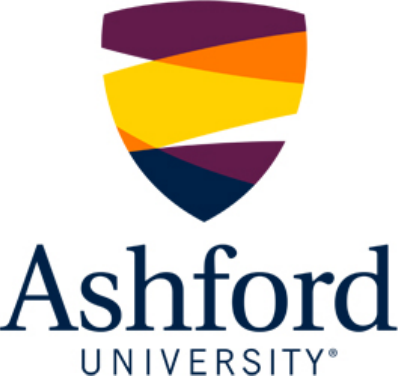
2018-2019
Academic Catalog
Effective July 1, 2018
8620 Spectrum Center Blvd.
San Diego, CA 92123
Toll-free: (800) 798-0584
OPE ID: 00188100
1310 19th Ave. NW
Clinton, Iowa 52732
Toll-free: (800) 242-4153
7360 S. Kyrene Rd. Suite 105
Tempe, AZ 85283
(602) 338-2240
TABLE OF CONTENTS
SECTION ONE: INTRODUCTION ................................................................................................................................ 1
Mission Statement of the University ..................................................................................................................................................... 1
Purpose Statements ............................................................................................................................................................................... 1
History .................................................................................................................................................................................................... 1
Accreditation ......................................................................................................................................................................................... 1
International Accreditation Council for Business Education ................................................................................................................. 1
Commission on Accreditation for Health Informatics and Information Management Education ......................................................... 2
Memberships ......................................................................................................................................................................................... 2
Ownership .............................................................................................................................................................................................. 3
Bankruptcy Notice ................................................................................................................................................................................. 3
Governance ............................................................................................................................................................................................ 3
Student Consumer Information ............................................................................................................................................................. 3
Right to Change Requirements .............................................................................................................................................................. 3
State Regulatory Information ................................................................................................................................................................ 4
Student Complaint State Contact Information ...................................................................................................................................... 5
Commitment to Diversity ...................................................................................................................................................................... 5
Statement on Scholarship ...................................................................................................................................................................... 5
Ownership and Use of Student Work .................................................................................................................................................... 5
Academic and Professional Standards ................................................................................................................................................... 6
Institutional Outcomes .......................................................................................................................................................................... 6
Credit Hour Definition ............................................................................................................................................................................ 6
University’s Self-Evaluation Process ...................................................................................................................................................... 6
Ashford University Research .................................................................................................................................................................. 7
Ashford University Graduate Culture Definition .................................................................................................................................... 7
Ashford University Graduate Culture Characteristics ............................................................................................................................ 7
Assessment at Ashford University ......................................................................................................................................................... 8
Contact Information .............................................................................................................................................................................. 8
SECTION TWO: STUDENT RIGHTS AND RESPONSIBILITIES ........................................................................................ 9
Institutional Authority and Local, State, and Federal Penalties ................................................................................................................. 9
The Family Educational Rights and Privacy Act of 1974 ............................................................................................................................. 9
Personally Identifiable Information ..................................................................................................................................................... 11
Confidentiality and the Clery Act ............................................................................................................................................................. 11
Assessing Student Success ....................................................................................................................................................................... 12
Electronic Communication ....................................................................................................................................................................... 12
Student Consent to the Electronic Delivery of Official University Communications and Records ...................................................... 12
Contact Information ............................................................................................................................................................................ 13
Personal Email for Ashford University Students .................................................................................................................................. 13
Technology Policies .................................................................................................................................................................................. 13
Misconduct Online ............................................................................................................................................................................... 13
Consequences for Misuse of Technology Policies ............................................................................................................................... 14
Online Netiquette ................................................................................................................................................................................ 14
Name Changes ......................................................................................................................................................................................... 14
Official Name Change .......................................................................................................................................................................... 14
Preferred Name Change ...................................................................................................................................................................... 15
Nondiscrimination .................................................................................................................................................................................... 15
Gender/Sexual Discrimination, Misconduct, Harassment or Violence - Title IX/SaVE Purpose ............................................................... 15
Sexual Misconduct/Harassment Policy ................................................................................................................................................ 15
Dissemination of the Sexual Misconduct/Harassment Policy, Educational Programs, and Employee Training .................................. 15

TABLE OF CONTENTS
ii ASHFORD UNIVERSITY
Sexual Harassment .............................................................................................................................................................................. 16
Confidentiality ..................................................................................................................................................................................... 18
Resources ............................................................................................................................................................................................ 19
Retaliation ........................................................................................................................................................................................... 19
Recordkeeping..................................................................................................................................................................................... 19
Reporting/Filing a Complaint for Title IX – Sexual Misconduct/Harassment ...................................................................................... 19
Reporting/Filing a Complaint for Discrimination (Not Sexual Misconduct/Harassment) .................................................................. 20
Referral to Student Dispute Resolution Center ....................................................................................................................................... 20
Student Dispute Resolution Center Initial Investigation into Complaint ............................................................................................ 21
Notice of Charges and Continued Investigation of Complaint ............................................................................................................ 21
Presentation of Investigation Findings to the Parties ......................................................................................................................... 22
Investigation Findings: Acceptance ..................................................................................................................................................... 22
Investigation Findings: Appeal ............................................................................................................................................................ 23
Investigation Finding: Appeal Process ................................................................................................................................................. 23
Additional Information for Sexual Misconduct/Harassment Investigations ....................................................................................... 24
Possible Sanctions and Protective Measures ...................................................................................................................................... 24
Sanction Process ................................................................................................................................................................................. 24
Sanction Appeal Process ..................................................................................................................................................................... 24
Disability Support Services ...................................................................................................................................................................... 25
Effective Communication for Persons with Disabilities ...................................................................................................................... 25
Disability Documentation .................................................................................................................................................................... 25
Use of Mobility Devices ....................................................................................................................................................................... 26
Use of Service Animals ........................................................................................................................................................................ 26
Contact Information ............................................................................................................................................................................ 27
Dispute Resolution Procedure for Student Complaints ........................................................................................................................... 27
Dispute Resolution Procedure............................................................................................................................................................. 27
Complaints to States and Accrediting Bodies .......................................................................................................................................... 29
Academic Integrity ................................................................................................................................................................................... 30
Academic Dishonesty .......................................................................................................................................................................... 30
Consequences for Academic Dishonesty ............................................................................................................................................ 32
Student Community Standards................................................................................................................................................................ 32
Authority over Student Conduct ......................................................................................................................................................... 32
The Standards...................................................................................................................................................................................... 33
Hazing .................................................................................................................................................................................................. 33
Standards Process Overview ................................................................................................................................................................... 34
Standards Committee Procedures ...................................................................................................................................................... 34
Special Provisions ................................................................................................................................................................................ 35
Emergency Administrative Leave ........................................................................................................................................................ 36
Involuntary Leave ................................................................................................................................................................................ 36
Consequences to Course Grades and Tuition or Other Fee Charges .................................................................................................. 36
Academic or Title IV Fraud ....................................................................................................................................................................... 36
University Student Alcohol Use Policy ..................................................................................................................................................... 37
University Student Drug Use Policy ......................................................................................................................................................... 37
Identity .................................................................................................................................................................................................... 37
Violations of Law ..................................................................................................................................................................................... 37
Violation of Federal Copyright Laws.................................................................................................................................................... 38
Student Concerns with Instructors .......................................................................................................................................................... 38
Instructor Issues Review Process ........................................................................................................................................................ 38
Grade Appeals ......................................................................................................................................................................................... 38
Basis for a Grade Appeal ..................................................................................................................................................................... 39
Grade Appeal Procedure ..................................................................................................................................................................... 39

TABLE OF CONTENTS
2018-2019 ACADEMIC CATALOG iii
Tuition Credit Request ............................................................................................................................................................................. 39
Attendance Appeals ................................................................................................................................................................................. 40
Basis for an Attendance Appeal in an Introductory Course ................................................................................................................. 40
Attendance Appeal Procedure ............................................................................................................................................................. 40
Graduation/Completion Rates ................................................................................................................................................................. 40
Graduation/Completion Rate by Gender ............................................................................................................................................. 41
Graduation/Completion Rate by Race or Ethnic Group ....................................................................................................................... 41
Graduation/Completion Rate by Financial Aid Category ..................................................................................................................... 41
Graduation Rates ................................................................................................................................................................................. 41
Student Body Diversity ............................................................................................................................................................................. 41
Retention Rate ......................................................................................................................................................................................... 41
SECTION THREE: STUDENT SERVICES, HEALTH, AND SAFETY .................................................................................. 43
Student Services ....................................................................................................................................................................................... 43
Academic Advisement ......................................................................................................................................................................... 43
Student Affairs ..................................................................................................................................................................................... 43
Student Organizations ......................................................................................................................................................................... 43
Career Services .................................................................................................................................................................................... 43
Alumni Services .................................................................................................................................................................................... 43
Employment Services ........................................................................................................................................................................... 44
Registrar’s Office .................................................................................................................................................................................. 44
Student Portal ...................................................................................................................................................................................... 44
Website ................................................................................................................................................................................................ 44
Bookstore ............................................................................................................................................................................................. 44
General Headquarters Information ..................................................................................................................................................... 44
Instructional Materials ......................................................................................................................................................................... 45
Publicity and Photo Release................................................................................................................................................................. 46
Health Information ................................................................................................................................................................................... 46
Drug Free Schools and Communities Act Program .............................................................................................................................. 46
Counseling, Treatment, and Rehabilitation Programs ......................................................................................................................... 46
Help Lines/Hotlines .............................................................................................................................................................................. 46
Health and Wellness Referrals ............................................................................................................................................................. 47
Health Alerts, Communicable Disease Control, and Needle Safety Procedures ................................................................................. 47
Safety Information ................................................................................................................................................................................... 47
Campus Security and Fire Safety Report.............................................................................................................................................. 47
Firearms/Explosives ............................................................................................................................................................................. 47
SECTION FOUR: FINANCIAL INFORMATION ............................................................................................................ 49
Financial Information ............................................................................................................................................................................... 49
Tuition and Fees 2018-2019 ..................................................................................................................................................................... 49
Undergraduate Programs Tuition & Fees ............................................................................................................................................ 49
Graduate Programs Tuition & Fees ...................................................................................................................................................... 49
Schedule of Charges............................................................................................................................................................................. 50
Sales Tax Disclaimer ............................................................................................................................................................................. 51
Tennessee Tuition and Fee Guarantee ................................................................................................................................................ 51
California Student Tuition Recovery Fund ........................................................................................................................................... 51
Terms of Billing and Payment .................................................................................................................................................................. 52
Tuition Benefit Eligibility Requirements ................................................................................................................................................... 52
Excess Credit Account Adjustment........................................................................................................................................................... 52
Bankruptcy ............................................................................................................................................................................................... 52

TABLE OF CONTENTS
iv ASHFORD UNIVERSITY
Payment Plans ......................................................................................................................................................................................... 52
Payment Options ..................................................................................................................................................................................... 53
Cash Plan ............................................................................................................................................................................................. 53
Tuition Reimbursement Plan ............................................................................................................................................................... 53
Direct Bill Plan (Third-Party Direct Billing) ........................................................................................................................................... 54
Corporate Full Tuition Grant ............................................................................................................................................................... 54
Government Full Tuition Grant ........................................................................................................................................................... 55
Military Veteran’s Benefits Plan .......................................................................................................................................................... 56
Military Tuition Assistance Plan .......................................................................................................................................................... 57
Return of Military Tuition Assistance Funds (TA Invoicing) ................................................................................................................. 58
Ashford University Military Grant............................................................................................................................................................ 58
Military Grant Grandfathering ............................................................................................................................................................ 59
Ashford Corporate Tuition Benefit Program ........................................................................................................................................... 59
Ashford Non-Profit Tuition Benefit Program ........................................................................................................................................... 59
Ashford Government Tuition Benefit Program ....................................................................................................................................... 60
Ashford University College Continuation Benefit .................................................................................................................................... 60
Ashford University Alumni Tuition Grant ................................................................................................................................................ 61
Other Sources of Aid ................................................................................................................................................................................ 61
StraighterLine Tuition Grant ................................................................................................................................................................ 61
Outside Scholarships ........................................................................................................................................................................... 61
Private Loan ......................................................................................................................................................................................... 61
Financial Aid Plan ..................................................................................................................................................................................... 62
Federal Student Aid Eligibility ............................................................................................................................................................. 62
Financial Aid Student’s Rights ............................................................................................................................................................. 62
Financial Aid Student’s Responsibilities .............................................................................................................................................. 62
Cost of Attendance .............................................................................................................................................................................. 63
Federal Direct Annual Loan Limits ....................................................................................................................................................... 63
Federal Direct Aggregate Loan Limits* ............................................................................................................................................... 64
How to Apply for Financial Aid ............................................................................................................................................................ 64
Free Application for Federal Student Aid (FAFSA) ............................................................................................................................... 64
Verification for Federal Student Aid Eligibility .................................................................................................................................... 64
Fraudulent Activity .............................................................................................................................................................................. 65
Code of Conduct and Federal Student Aid Eligibility ........................................................................................................................... 65
NSLDS Fraud Loan Flag and Federal Student Aid Eligibility ................................................................................................................. 65
Identity Reject Flag and Federal Student Aid Eligibility ....................................................................................................................... 65
Unusual Enrollment History and Federal Student Aid Eligibility ......................................................................................................... 66
Total and Permanent Disability Discharge .......................................................................................................................................... 66
General Financial Aid Reapplication Process ...................................................................................................................................... 66
Entrance Counseling for Federal Loan Recipients ............................................................................................................................... 66
Types of Financial Aid .......................................................................................................................................................................... 67
State Aid Programs .............................................................................................................................................................................. 67
Federal Aid Programs (Title IV)............................................................................................................................................................ 67
Other Available Financial Aid .............................................................................................................................................................. 68
Financial Aid Plan for Online Programs ............................................................................................................................................... 68
Financial Aid Specific to Undergraduate Programs ............................................................................................................................. 68
Financial Aid Specific to Graduate Programs ...................................................................................................................................... 70
Financial Aid and Satisfactory Academic Progress Requirements ...................................................................................................... 71
Exit Counseling for Federal Loan Recipients ....................................................................................................................................... 71
Return of Title IV Funds ....................................................................................................................................................................... 71
Direct Loan Grace Period .................................................................................................................................................................... 72
Direct Loan Repayment ....................................................................................................................................................................... 72

TABLE OF CONTENTS
2018-2019 ACADEMIC CATALOG v
Payment Support ................................................................................................................................................................................. 72
Consolidation ....................................................................................................................................................................................... 73
Consequences for Not Making Loan Payments ................................................................................................................................... 73
Questions Regarding Financial Aid ...................................................................................................................................................... 73
University Refund Policies ........................................................................................................................................................................ 74
Institutional Tuition Refund Policy ....................................................................................................................................................... 74
Ashford University Tuition Refund Schedule ....................................................................................................................................... 74
Ashford University First Course Refund Schedule (Ashford Promise) ................................................................................................. 74
Undergraduate Students Using Military Tuition Assistance Refund Policy ......................................................................................... 74
California State Refund Policy .............................................................................................................................................................. 75
Iowa State Refund Policy ..................................................................................................................................................................... 77
Kansas State Refund Policy .................................................................................................................................................................. 77
Kentucky State Refund Policy .............................................................................................................................................................. 78
Maryland State Refund Policy .............................................................................................................................................................. 78
Missouri State Refund Policy ............................................................................................................................................................... 79
New Mexico State Refund Policy ......................................................................................................................................................... 79
Oregon State Refund Policy ................................................................................................................................................................. 80
Wisconsin State Refund Policy ............................................................................................................................................................. 81
Ashford Promise ....................................................................................................................................................................................... 82
Special Circumstances .............................................................................................................................................................................. 82
Dismissal/Expulsion .................................................................................................................................................................................. 82
SECTION FIVE: GENERAL ACADEMIC INFORMATION AND POLICIES ....................................................................... 83
University Program Offerings ................................................................................................................................................................... 83
General Education Curriculum ................................................................................................................................................................. 83
Philosophy and Purpose ...................................................................................................................................................................... 83
General Education Requirements ........................................................................................................................................................ 83
Core Competencies (21 credits) ........................................................................................................................................................... 84
Ethical Reasoning Competency (3 credits) ........................................................................................................................................... 84
Written Communication Competency (6 credits) ................................................................................................................................ 84
Oral and Interpersonal Communication Competency (3 credits) ........................................................................................................ 85
Critical Thinking Competency (3 credits) ............................................................................................................................................. 85
Information Literacy Competency (3 credits) ...................................................................................................................................... 85
Quantitative Reasoning Competency (3 credits) ................................................................................................................................. 86
Competencies (19 credits) ................................................................................................................................................................... 86
Aesthetic Awareness and Reasoning (3 credits) .................................................................................................................................. 86
Intercultural and Global Awareness (3 credits) ................................................................................................................................... 87
Civic Responsibility (3 credits) ............................................................................................................................................................. 87
Scientific Reasoning (4 credits) ............................................................................................................................................................ 88
Foundations and Skills for Lifelong Learning (3 credits) ...................................................................................................................... 88
Digital Literacy (3 credits) .................................................................................................................................................................... 88
Capstone Requirement (3 credits) ....................................................................................................................................................... 89
General Academic Policies ....................................................................................................................................................................... 89
Technology Requirements ................................................................................................................................................................... 89
English Proficiency ............................................................................................................................................................................... 90
Course Delivery Method ...................................................................................................................................................................... 90
Schedule Changes, Program Changes, and Course Cancellation ......................................................................................................... 90
Prerequisite Courses ............................................................................................................................................................................ 91
Plans to Improve an Academic Program .............................................................................................................................................. 91
Program Enrollment and Cancellation ................................................................................................................................................. 91

TABLE OF CONTENTS
vi ASHFORD UNIVERSITY
Registration and Academic Placement ................................................................................................................................................ 91
Classification of Students .................................................................................................................................................................... 92
Student Grade Levels .......................................................................................................................................................................... 92
Enrollment Status ................................................................................................................................................................................ 93
Auditing of Courses ............................................................................................................................................................................. 93
Transfer Concentration Guidelines for Bachelor's Programs .............................................................................................................. 93
SMART Track Program ......................................................................................................................................................................... 93
Undergraduate Area of Study Course Overlap Policy ......................................................................................................................... 95
Major/Minor Overlap Exceptions ........................................................................................................................................................ 96
Completion of Additional Undergraduate Degrees............................................................................................................................. 96
Completion of Additional Master’s Degrees ....................................................................................................................................... 96
Graduate Restrictions for Degree Pairings .......................................................................................................................................... 96
Degree Regression............................................................................................................................................................................... 97
Sequence of Courses ........................................................................................................................................................................... 97
Capstone Courses ................................................................................................................................................................................ 97
Academic Credit .................................................................................................................................................................................. 97
Grade Point Average ........................................................................................................................................................................... 97
Grading System and Grade Points ....................................................................................................................................................... 97
Grades/Quality Points: ........................................................................................................................................................................ 97
Other Grading Designations ................................................................................................................................................................ 97
Repeated Courses ............................................................................................................................................................................... 98
Incomplete Grades .............................................................................................................................................................................. 98
Course Drop ........................................................................................................................................................................................ 98
Consecutive Course Drops .................................................................................................................................................................. 99
Consecutive Unsuccessful Grades ....................................................................................................................................................... 99
Satisfactory Academic Progress Policy (SAP) ........................................................................................................................................... 99
Undergraduate Non-Term Based Program Measures ....................................................................................................................... 100
Graduate Non-Term Based Program Measures ................................................................................................................................ 100
Final Academic Year Exceptions: ....................................................................................................................................................... 100
Undergraduate Satisfactory Academic Progress Standards .............................................................................................................. 100
Graduate Satisfactory Academic Progress Standards ....................................................................................................................... 101
Satisfactory Academic Progress Review and Evaluation ................................................................................................................... 101
Academic and Financial Aid Warning ................................................................................................................................................ 101
Academic and Financial Aid Probation .............................................................................................................................................. 102
Probation-Academic Plan .................................................................................................................................................................. 102
Appeal of Academic Dismissal ........................................................................................................................................................... 102
Undergraduate General Transfer Credit Provisions and Limitations ..................................................................................................... 103
Associate of Arts Transfer Credit, Prior Learning Credit, and Nontraditional Credit Provisions and Limitations ............................. 104
Bachelor's Degree Transfer Credit, Prior Learning Credit, and Nontraditional Credit Provisions and Limitations ........................... 105
Nontraditional Credits ....................................................................................................................................................................... 105
Prior Learning Assessment (PLA) ....................................................................................................................................................... 106
NCLEX-RN
®
Exam Credit ..................................................................................................................................................................... 107
Articulation Agreements ................................................................................................................................................................... 107
Graduate Transfer Credit Policy ............................................................................................................................................................ 107
Requests for Program Change ............................................................................................................................................................... 108
Associate to Bachelor’s Program Change Requirements .................................................................................................................. 108
Withdrawal and Readmission Policies ................................................................................................................................................... 108
Withdrawal from the University ....................................................................................................................................................... 108
Reinstatement Process after Withdrawal (Less Than One Year)....................................................................................................... 108
Readmission Process after Withdrawal (One Year or More) ............................................................................................................ 109
Military Deployment Provisions ........................................................................................................................................................ 109

TABLE OF CONTENTS
2018-2019 ACADEMIC CATALOG vii
Readmission of Students after Military Service under the Higher Education Opportunity Act of 2008 ........................................... 109
Servicemembers Opportunity College ................................................................................................................................................... 111
Department of Defense (DoD) Voluntary Education Partnership .......................................................................................................... 112
Transfer of Ashford University Credits to Other Institutions ................................................................................................................. 112
Learning Resources ................................................................................................................................................................................ 112
Appropriate Use of Database Content ............................................................................................................................................... 112
Library ................................................................................................................................................................................................ 112
Assistance in Developing Writing Proficiency .................................................................................................................................... 113
Course Digital Materials (CDM) ......................................................................................................................................................... 113
Constellation™ ................................................................................................................................................................................... 113
Honors College ....................................................................................................................................................................................... 113
Benefits and Opportunities ................................................................................................................................................................ 113
Eligibility ............................................................................................................................................................................................. 114
How to Apply ..................................................................................................................................................................................... 114
Honors College Distinctions ............................................................................................................................................................... 115
Honor Societies ...................................................................................................................................................................................... 115
Alpha Sigma Lambda .......................................................................................................................................................................... 115
Phi Theta Kappa ................................................................................................................................................................................. 115
Delta Alpha Pi International ............................................................................................................................................................... 116
Golden Key International Honour Society ......................................................................................................................................... 116
SALUTE National Veterans Honor Society ......................................................................................................................................... 116
Program Completion and Honors .......................................................................................................................................................... 117
Dean’s List .......................................................................................................................................................................................... 117
Graduation Process ............................................................................................................................................................................ 117
Graduation Honors and Awards ........................................................................................................................................................ 117
Posthumous Degree Policy ................................................................................................................................................................ 117
Degree Rescindment Policy ............................................................................................................................................................... 118
Commencement Ceremony ............................................................................................................................................................... 118
SECTION SIX: ONLINE UNDERGRADUATE PROGRAMS .......................................................................................... 119
Overview ................................................................................................................................................................................................ 119
Admission Policies and Procedures for Online Associate of Arts Degree Programs .............................................................................. 119
Conditional Admission Requirements for Associate Degree Programs ............................................................................................. 119
Appeal Procedure for a Third Consecutive Conditional Admission Period or Ashford Promise ........................................................ 120
Additional Conditional Admission Requirements for Applicants with International Academic Credentials ..................................... 121
Provisional Admission Requirements for Associate Degree Programs .............................................................................................. 121
Transfer Credit Evaluation for Associate Degree Programs ............................................................................................................... 121
Full Admission Requirements for Associate Degree Programs .......................................................................................................... 122
Appeal of Dismissal Following Academic Watch ............................................................................................................................... 122
Additional Full Admission Requirements for Applicants with International Academic Credentials .................................................. 123
Additional Full Admission Requirements for Residents of California, Mississippi, and Tennessee ................................................... 123
Admission Policies and Procedures for Online Bachelor’s Degree Programs ........................................................................................ 123
Conditional Admission Requirements for Bachelor's Degree Programs ............................................................................................ 123
Appeal Procedure for a Third Consecutive Conditional Admission Period or Ashford Promise ........................................................ 125
Additional Conditional Admission Requirements for Applicants to the Bachelor of Science in Nursing (RN to BSN) Program ........ 125
Additional Conditional Admission Requirements for Applicants with International Academic Credentials ..................................... 125
Provisional Admission Requirements for Bachelor's Degree Programs ............................................................................................ 126
Transfer Credit Evaluation for Bachelor's Degree Programs ............................................................................................................. 126
Full Admission Requirements for Bachelor's Degree Programs ........................................................................................................ 127
Appeal of Dismissal Following Academic Watch ............................................................................................................................... 127

TABLE OF CONTENTS
viii ASHFORD UNIVERSITY
Additional Full Admission Requirements for Applicants to the Bachelor of Science in Nursing (RN to BSN) Program .................... 128
Additional Full Admission Requirements for Applicants with International Academic Credentials ................................................. 128
Additional Full Admission Requirements for Residents of California, Mississippi, and Tennessee .................................................. 128
Student Success Orientation ............................................................................................................................................................. 129
Non-Degree Seeking Student General Admission Requirements ..................................................................................................... 129
Additional Non-Degree Seeking Student General Admission Requirements for Residents of California and Tennessee ................ 129
Academic Policies and Procedures ........................................................................................................................................................ 130
Academic Calendar ............................................................................................................................................................................ 130
Undergraduate Credit Maximum Policy ............................................................................................................................................ 130
Concurrent Course (Double Up) Registration Policy ......................................................................................................................... 130
Attendance Policy for Undergraduate Courses ................................................................................................................................. 130
Academic Leave ................................................................................................................................................................................. 131
Associate Program Academic Policies ................................................................................................................................................... 131
General Education Courses in Associate Programs ........................................................................................................................... 131
Residency Requirements in Associate Programs .............................................................................................................................. 132
Associate Programs Course Sequencing ........................................................................................................................................... 132
Progression Requirements in Associate Programs ............................................................................................................................ 132
Bachelor’s Program Academic Policies .................................................................................................................................................. 132
Residency Requirements in Bachelor’s Programs ............................................................................................................................. 132
Progression Requirements for Online Bachelor’s Programs ............................................................................................................. 132
Bachelor’s Program Course Sequencing............................................................................................................................................ 132
General Education Course Sequence ................................................................................................................................................ 133
Graduation Requirements for Bachelor’s Degrees ........................................................................................................................... 133
Forbes School of Business: Undergraduate Programs and Requirements ............................................................................................ 134
Associate of Arts in Business ............................................................................................................................................................. 134
Associate of Arts in Organizational Management ............................................................................................................................. 135
Bachelor of Arts in Accounting .......................................................................................................................................................... 137
Bachelor of Arts in Business Administration ..................................................................................................................................... 138
Bachelor of Arts in Business Economics ............................................................................................................................................ 139
Bachelor of Arts in Business Information Systems ............................................................................................................................ 139
Bachelor of Arts in Business Leadership ............................................................................................................................................ 140
Bachelor of Arts in Consumer and Family Financial Services ............................................................................................................ 141
Bachelor of Arts in eMarketing ......................................................................................................................................................... 142
Bachelor of Arts in Entrepreneurship ................................................................................................................................................ 142
Bachelor of Arts in Finance ............................................................................................................................................................... 143
Bachelor of Arts in Human Resources Management ........................................................................................................................ 144
Bachelor of Arts in International Business ........................................................................................................................................ 145
Bachelor of Arts in Marketing ........................................................................................................................................................... 145
Bachelor of Arts in Operations Management and Analysis ............................................................................................................... 146
Bachelor of Arts in Organizational Management .............................................................................................................................. 147
Bachelor of Arts in Project Management .......................................................................................................................................... 148
Bachelor of Arts in Public Administration ......................................................................................................................................... 149
Bachelor of Arts in Public Relations and Marketing .......................................................................................................................... 150
Bachelor of Arts in Real Estate Studies ............................................................................................................................................. 150
Bachelor of Arts in Service Management .......................................................................................................................................... 151
Bachelor of Arts in Sports and Recreation Management .................................................................................................................. 152
Bachelor of Arts in Supply Chain Management ................................................................................................................................. 153
Bachelor of Arts in Sustainable Enterprise Management ................................................................................................................. 154
Bachelor of Science in Information Technology ................................................................................................................................ 155
Bachelor of Science in Computer Software Technology ................................................................................................................... 155
College of Education: Undergraduate Programs and Requirements..................................................................................................... 158

TABLE OF CONTENTS
2018-2019 ACADEMIC CATALOG ix
Associate of Arts in Early Childhood Education ................................................................................................................................. 158
Bachelor of Arts in Child Development .............................................................................................................................................. 159
Bachelor of Arts in Cognitive Studies ................................................................................................................................................. 161
Bachelor of Arts in Early Childhood Development with Differentiated Instruction .......................................................................... 162
Bachelor of Arts in Early Childhood Education .................................................................................................................................. 163
Bachelor of Arts in Early Childhood Education Administration ......................................................................................................... 165
Bachelor of Arts in Education and Public Policy ................................................................................................................................ 166
Bachelor of Arts in Education Studies ................................................................................................................................................ 167
Bachelor of Arts in English Language Learner Studies ....................................................................................................................... 169
Bachelor of Arts in Instructional Design ............................................................................................................................................ 170
Bachelor of Arts in Library Science and Media .................................................................................................................................. 171
College of Health, Human Services, and Science: Undergraduate Programs and Requirements .......................................................... 172
Bachelor of Arts in Adult Development ............................................................................................................................................. 172
Bachelor of Arts in Applied Behavioral Science ................................................................................................................................. 173
Bachelor of Arts in Complementary and Alternative Health ............................................................................................................. 174
Bachelor of Arts in Gerontology ........................................................................................................................................................ 175
Bachelor of Arts in Health and Human Services ................................................................................................................................ 175
Bachelor of Arts in Health and Wellness ........................................................................................................................................... 176
Bachelor of Arts in Health Care Administration ................................................................................................................................. 177
Bachelor of Arts in Health Care Studies ............................................................................................................................................. 178
Bachelor of Arts in Health Education ................................................................................................................................................. 179
Bachelor of Arts in Health Informatics ............................................................................................................................................... 179
Bachelor of Arts in Health Marketing and Communication ............................................................................................................... 180
Bachelor of Arts in Psychology ........................................................................................................................................................... 181
Bachelor of Science in Health Information Management.................................................................................................................. 182
Bachelor of Science in Human Services Leadership ........................................................................................................................... 184
Bachelor of Science in Nursing (RN to BSN) ....................................................................................................................................... 185
College of Liberal Arts: Undergraduate Programs and Requirements ................................................................................................... 186
Associate of Arts in Military Studies .................................................................................................................................................. 186
Bachelor of Arts in Applied Linguistics ............................................................................................................................................... 188
Bachelor of Arts in Communication Studies ...................................................................................................................................... 188
Bachelor of Arts in Cultural Anthropology ......................................................................................................................................... 189
Bachelor of Arts in English ................................................................................................................................................................. 190
Bachelor of Arts in Environmental Studies ........................................................................................................................................ 191
Bachelor of Arts in History ................................................................................................................................................................. 192
Bachelor of Arts in Homeland Security and Emergency Management .............................................................................................. 192
Bachelor of Arts in Journalism and Mass Communication ................................................................................................................ 193
Bachelor of Arts in Law Enforcement Administration ....................................................................................................................... 194
Bachelor of Arts in Liberal Arts .......................................................................................................................................................... 195
Bachelor of Arts in Military Studies ................................................................................................................................................... 196
Bachelor of Arts in Political Science and Government ....................................................................................................................... 196
Bachelor of Arts in Social and Criminal Justice .................................................................................................................................. 197
Bachelor of Arts in Social Science ...................................................................................................................................................... 198
Bachelor of Arts in Sociology ............................................................................................................................................................. 199
Minors .................................................................................................................................................................................................... 199
Accounting Minor (18 credits) ........................................................................................................................................................... 200
Business Administration Minor (18 credits) ...................................................................................................................................... 200
Business Economics Minor (18 credits) ............................................................................................................................................. 200
Child Development Minor (18 credits) .............................................................................................................................................. 200
Communication Studies Minor (18 credits) ....................................................................................................................................... 200
Cultural Anthropology Minor (18 credits) ......................................................................................................................................... 201

TABLE OF CONTENTS
x ASHFORD UNIVERSITY
Educational Psychology Minor (18 credits) ....................................................................................................................................... 201
Entrepreneurship Minor (18 credits) ................................................................................................................................................ 201
Environmental Studies Minor (18 credits) ........................................................................................................................................ 201
Finance Minor (18 credits) ................................................................................................................................................................ 201
Global Studies Minor (18 credits) ...................................................................................................................................................... 202
Health and Wellness Minor (18 credits) ............................................................................................................................................ 202
Health Care Administration Minor (18 credits) ................................................................................................................................. 202
Health Education Minor (18 credits) ................................................................................................................................................. 202
Health Psychology Minor (18 credits) ............................................................................................................................................... 202
Homeland Security and Emergency Management Minor (18 credits) .............................................................................................. 202
Humanities Minor (18 credits) .......................................................................................................................................................... 203
Human Resources Management Minor (18 credits) ......................................................................................................................... 203
Identity Studies Minor (18 credits) ................................................................................................................................................... 203
Information Systems Minor (18 credits) ........................................................................................................................................... 203
Instructional Design Minor (18 credits) ............................................................................................................................................. 203
International Management Minor (18 credits) ................................................................................................................................. 203
International Security and Military Studies Minor (18 credits) ......................................................................................................... 204
Journalism & Mass Communication Minor (18 credits) .................................................................................................................... 204
Law Enforcement Administration Minor (18 credits) ....................................................................................................................... 204
Literature Minor (18 credits) ............................................................................................................................................................. 204
Logistics Management Minor (18 credits)......................................................................................................................................... 204
Long Term Care Administration Minor (18 credits) .......................................................................................................................... 204
Marketing Minor (18 credits) ............................................................................................................................................................ 205
Operations Management Minor (18 credits) .................................................................................................................................... 205
Organizational Management Minor (18 credits) ............................................................................................................................... 205
Political Science and Government Minor (18 credits) ....................................................................................................................... 205
Project Management Minor (18 credits) ........................................................................................................................................... 205
Psychology Minor (18 credits) ........................................................................................................................................................... 205
Public Administration Minor (18 credits) .......................................................................................................................................... 205
Social and Criminal Justice Minor (18 credits) .................................................................................................................................. 206
Social Sciences Minor (18 credits) ..................................................................................................................................................... 206
Sociology Minor (18 credits) ............................................................................................................................................................. 206
Sports and Recreation Management Minor (18 credits) .................................................................................................................. 206
World History Minor (18 credits) ...................................................................................................................................................... 206
Writing Minor (18 credits) ................................................................................................................................................................. 206
Specializations ....................................................................................................................................................................................... 207
Business Economics Specialization (12 credits) ................................................................................................................................ 207
Child Development Specialization (12 credits) .................................................................................................................................. 207
Early Childhood Education Specialization (12 credits) ...................................................................................................................... 207
Education and Public Policy Specialization (12 credits) .................................................................................................................... 207
English Language Learner Studies Specialization (12 credits) ........................................................................................................... 207
Entrepreneurship Specialization (12 credits) .................................................................................................................................... 207
Finance Specialization (12 credits) .................................................................................................................................................... 207
Health Care Informatics Systems Specialization (12 credits) ............................................................................................................ 208
Human Resources Management Specialization (12 credits) ............................................................................................................. 208
Infant and Toddler Care Specialization (12 credits) .......................................................................................................................... 208
Information Systems Specialization (12 credits) ............................................................................................................................... 208
Instructional Design Specialization (12 credits) ................................................................................................................................ 208
International Management Specialization (12 credits) ..................................................................................................................... 208
Logistics Management Specialization (12 credits) ............................................................................................................................ 209
Long-Term Care Specialization (12 credits) ....................................................................................................................................... 209

TABLE OF CONTENTS
2018-2019 ACADEMIC CATALOG xi
Long-Term Care Management Specialization (12 credits) ................................................................................................................. 209
Marketing Specialization (12 credits) ................................................................................................................................................ 209
Operations Management Specialization (12 credits)......................................................................................................................... 209
Project Management Specialization (12 credits) ............................................................................................................................... 209
Public Administration Specialization (12 credits) .............................................................................................................................. 209
Sports and Recreation Management Specialization (12 credits) ....................................................................................................... 210
SECTION SEVEN: CLINTON CAMPUS UNDERGRADUATE PROGRAMS .................................................................... 211
Overview ................................................................................................................................................................................................ 211
Admission Policies and Procedures ........................................................................................................................................................ 211
Conditional Admission Requirements ............................................................................................................................................... 211
Appeal Procedure for a Third Consecutive Conditional Admission Period or Ashford Promise ........................................................ 212
Additional Conditional Admission Requirements for Applicants with International Academic Credentials for Bachelor's Degree
Programs ............................................................................................................................................................................................ 212
Provisional Admission Requirements for Bachelor's Degree Programs ............................................................................................ 212
Transfer Credit Evaluation for Bachelor's Degree Programs ............................................................................................................. 213
Full Admission Requirements for Bachelor's Degree Programs ........................................................................................................ 213
Appeal of Dismissal Following Academic Watch ............................................................................................................................... 214
Additional Full Admission Requirements for Applicants with International Academic Credentials for Bachelor's Degree Programs
........................................................................................................................................................................................................... 214
Clinton, Iowa Undergraduate Program Grant.................................................................................................................................... 214
Academic Policies and Procedures ......................................................................................................................................................... 215
Academic Calendar ............................................................................................................................................................................ 215
Program Enrollment and Cancellation ............................................................................................................................................... 215
Credit Maximum Policy ...................................................................................................................................................................... 215
Concurrent Course (Double Up) Registration Policy .......................................................................................................................... 215
Attendance Policy for Undergraduate Courses ................................................................................................................................. 215
Academic Leave ................................................................................................................................................................................. 216
Clinton, Iowa Bachelor’s Program Academic Policies ............................................................................................................................ 216
Residency Requirements in Bachelor’s Programs .............................................................................................................................. 216
Bachelor’s Program Course Sequencing ............................................................................................................................................ 216
General Education Course Sequence: ................................................................................................................................................ 217
Graduation Requirements for Bachelor’s Degrees ............................................................................................................................ 217
Forbes School of Business & Technology ............................................................................................................................................... 217
Bachelor of Arts in Business Administration ...................................................................................................................................... 217
SECTION EIGHT: ONLINE GRADUATE PROGRAMS ................................................................................................ 219
Overview ................................................................................................................................................................................................ 219
Admission Policies and Procedures for Graduate Programs .................................................................................................................. 219
Conditional Admission Requirements (Graduate Programs) ............................................................................................................. 219
Appeal Procedure for a Third Consecutive Conditional Admission Period or Ashford Promise ........................................................ 219
Provisional Admission Requirements ................................................................................................................................................ 220
Transfer Credit Evaluation for Graduate Degree Programs ............................................................................................................... 220
Full Admission Requirements ............................................................................................................................................................ 220
Appeal of Dismissal Following Academic Watch ............................................................................................................................... 221
MACC Program-Specific Requirements ............................................................................................................................................. 221
MBA Program-Specific Requirements ............................................................................................................................................... 221
MISM Program-Specific Requirements .............................................................................................................................................. 222
MPA Program-Specific Requirements ................................................................................................................................................ 222
MPH Program-Specific Requirements ............................................................................................................................................... 222

TABLE OF CONTENTS
xii ASHFORD UNIVERSITY
MSCJ Program-Specific Requirements .............................................................................................................................................. 223
Additional Requirements for Applicants to the Master of Science in Finance Program ................................................................... 223
Additional Admission Requirements for International Applicants .................................................................................................... 223
Non-Degree Seeking Student General Admission Requirements for Graduate Level Coursework .................................................. 224
Academic Policies and Procedures ........................................................................................................................................................ 224
Academic Calendar ............................................................................................................................................................................ 224
Graduate Programs Credit Maximum Policy ..................................................................................................................................... 224
Concurrent Course (Double Up) Registration Policy ......................................................................................................................... 224
Attendance Policy for Graduate Courses .......................................................................................................................................... 225
Academic Leave ................................................................................................................................................................................. 225
Repeating Courses ............................................................................................................................................................................. 226
SMART Track Program ....................................................................................................................................................................... 226
Forbes School of Business: Graduate Programs and Requirements ...................................................................................................... 226
Master of Accountancy ..................................................................................................................................................................... 226
Master of Arts in Organizational Management................................................................................................................................. 228
Master of Business Administration ................................................................................................................................................... 229
Master of Human Resource Management ........................................................................................................................................ 231
Master of Information Systems Management .................................................................................................................................. 232
Master of Public Administration ....................................................................................................................................................... 234
Master of Science in Finance ............................................................................................................................................................. 235
College of Education: Graduate Programs and Requirements .............................................................................................................. 236
Master of Arts in Early Childhood Education Leadership .................................................................................................................. 236
Master of Arts in Education .............................................................................................................................................................. 237
Master of Arts in Special Education .................................................................................................................................................. 240
Master of Arts in Teaching and Learning with Technology ............................................................................................................... 241
Master of Science in Instructional Design and Technology ............................................................................................................... 243
College of Health, Human Services, and Science: Graduate Programs and Requirements ................................................................... 245
Master of Arts in Health Care Administration ................................................................................................................................... 245
Master of Arts in Psychology ............................................................................................................................................................. 246
Master of Public Health ..................................................................................................................................................................... 247
College of Liberal Arts: Graduate Programs and Requirements ............................................................................................................ 249
Master of Science in Criminal Justice ................................................................................................................................................ 249
SECTION NINE: HYBRID GRADUATE PROGRAMS ................................................................................................... 251
Overview ................................................................................................................................................................................................ 251
Admission Policies and Procedures ....................................................................................................................................................... 251
Conditional Admission Requirements (Hybrid Graduate Programs)................................................................................................. 251
Appeal Procedure for a Third (3
rd
) Consecutive Conditional ............................................................................................................. 252
Provisional Admission Requirements ................................................................................................................................................ 252
Transfer Credit Evaluation for Graduate Degree Programs .............................................................................................................. 252
Full Admission Requirements ............................................................................................................................................................ 253
Appeal of Dismissal Following Academic Watch ............................................................................................................................... 253
MBA Program-Specific Requirements ............................................................................................................................................... 253
Hybrid Graduate Program Grant ....................................................................................................................................................... 254
Academic Policies and Procedures ........................................................................................................................................................ 254
Academic Calendar ............................................................................................................................................................................ 254
Concurrent Course (Double Up) Registration Policy ......................................................................................................................... 254
Attendance Policy for Graduate Courses .......................................................................................................................................... 254
Academic Leave ................................................................................................................................................................................. 255
SMART Track Program ....................................................................................................................................................................... 255

TABLE OF CONTENTS
2018-2019 ACADEMIC CATALOG xiii
Forbes School of Business & Technology ............................................................................................................................................... 255
Master of Business Administration - Hybrid Format ......................................................................................................................... 255
SECTION TEN: COURSE DESCRIPTIONS ................................................................................................................. 259
ABS Applied Behavioral Science ......................................................................................................................................................... 259
ACC Accounting .................................................................................................................................................................................. 259
ANT Anthropology ............................................................................................................................................................................. 261
ART Art ............................................................................................................................................................................................... 261
BUS Business ...................................................................................................................................................................................... 262
CAH Complementary & Alternative Health ....................................................................................................................................... 267
CGD Computer Graphic Design .......................................................................................................................................................... 267
COM Communications ....................................................................................................................................................................... 267
CPT Computer Technology ................................................................................................................................................................ 268
CRJ Criminal Justice ............................................................................................................................................................................ 268
CST Computer Software Technology ................................................................................................................................................. 270
CYB Cyber & Data Security Technology ............................................................................................................................................. 271
ECD Early Childhood Development .................................................................................................................................................... 271
ECE Early Childhood Education .......................................................................................................................................................... 272
ECI Education Curriculum and Instruction ......................................................................................................................................... 274
ECO Economics .................................................................................................................................................................................. 274
EDU Education ................................................................................................................................................................................... 275
ELL English Language Learner ............................................................................................................................................................ 281
ENG English ........................................................................................................................................................................................ 281
ENV Environmental Studies ............................................................................................................................................................... 282
ESE Education Special Ed ................................................................................................................................................................... 283
EXP Freshman Experience .................................................................................................................................................................. 284
FIN Finance ........................................................................................................................................................................................ 284
GEN General Education...................................................................................................................................................................... 285
GEO Geography ................................................................................................................................................................................. 285
GRO Gerontology ............................................................................................................................................................................... 285
HCA Health Care Administration ....................................................................................................................................................... 285
HCS Health Care Studies .................................................................................................................................................................... 287
HHS Health and Human Services ....................................................................................................................................................... 287
HIA Health Informatics & Analytics .................................................................................................................................................... 288
HIM Health Information Management .............................................................................................................................................. 288
HIS History ......................................................................................................................................................................................... 289
HMC Health Marketing and Communication..................................................................................................................................... 290
HON Honors ....................................................................................................................................................................................... 290
HPR Health Promotion ....................................................................................................................................................................... 291
HRM Human Resources Management ............................................................................................................................................... 291
HSL Human Services Leadership ........................................................................................................................................................ 292
HSM Homeland Security Management ............................................................................................................................................. 292
HWE Health and Wellness ................................................................................................................................................................. 293
IDT Instructional Design and Technology .......................................................................................................................................... 293
INF Information Systems.................................................................................................................................................................... 294
INT Information Technology .............................................................................................................................................................. 295
ISM Information Systems Management ............................................................................................................................................ 296
JRN Journalism ................................................................................................................................................................................... 297
LEA Law Enforcement Administration ............................................................................................................................................... 297
LIB Liberal Arts ................................................................................................................................................................................... 298

TABLE OF CONTENTS
xiv ASHFORD UNIVERSITY
LNG Linguistics .................................................................................................................................................................................. 299
MAT Mathematics ............................................................................................................................................................................. 300
MGT Management ............................................................................................................................................................................ 300
MHA Master Health Care Administration ......................................................................................................................................... 301
MIL Military Studies .......................................................................................................................................................................... 302
MKT Marketing .................................................................................................................................................................................. 302
MPH Master of Public Health ............................................................................................................................................................ 302
NUR Nursing ...................................................................................................................................................................................... 304
OMM Organizational Management .................................................................................................................................................. 305
PED Physical Education and Health ................................................................................................................................................... 305
PHI Philosophy .................................................................................................................................................................................. 305
POL Political Science .......................................................................................................................................................................... 305
PPA Public Administration ................................................................................................................................................................. 306
PRM Project Management ................................................................................................................................................................ 307
PSY Psychology .................................................................................................................................................................................. 307
RES Real Estate Studies ..................................................................................................................................................................... 309
SCI Science ......................................................................................................................................................................................... 309
SOC Sociology .................................................................................................................................................................................... 309
SPA Spanish ....................................................................................................................................................................................... 310
SPE Speech ........................................................................................................................................................................................ 311
SRM Sports and Recreation Management ........................................................................................................................................ 311
SRV Service Management ................................................................................................................................................................. 311
SSC Social Science .............................................................................................................................................................................. 312
SECTION ELEVEN: UNIVERSITY PERSONNEL .......................................................................................................... 313
Board of Trustees .................................................................................................................................................................................. 313
Ashford University Administration ........................................................................................................................................................ 317
Faculty ................................................................................................................................................................................................... 317
Faculty Emeritus .................................................................................................................................................................................... 329

INTRODUCTION
2018-2019 ACADEMIC CATALOG 1
SECTION ONE:
INTRODUCTION
Mission Statement of the University
The mission of Ashford University is to provide high-
quality, accessible, affordable, innovative educational
programs that meet the diverse needs of individuals
pursuing advancement in their lives, professions, and
communities.
Purpose Statements
•
To offer online and campus-based educational
programs that meet the needs of diverse learners and
support student success and completion.
•
To integrate current technology that cultivates student-
centered learning experiences led by dedicated and
qualified faculty wherein students gain knowledge and
build skills that support personal and professional
development.
•
To provide learning opportunities that help students
synthesize theory and practice, enabling them to
respond ethically to contemporary issues and complex
problems.
•
To foster a rich student learning environment focused
on diverse social, ethnic, economic, and educational
experiences and thereby prepare and empower
graduates to be collaborative and inclusive within their
communities.
•
To work closely with employers and workforce
development experts to identify the workplace skills
and competencies that will enhance our graduates'
abilities to contribute to their organizations, achieve
greater professional and personal success, and
strengthen their organizations.
•
To place priority on innovation, continuous
assessment, and improvement of student learning,
curriculum development, access to learning resources,
and responsive student services.
•
To maintain operational, financial, and strategic
strength that ensures the future of Ashford University.
History
The University, originally named Mount St. Clare College,
was founded in 1918 by the Sisters of St. Francis in
Clinton, Iowa, as a junior college for women. In 1950, the
College was accredited by the North Central Association
of Colleges and Schools (now the Higher Learning
Commission [HLC]) and has since maintained its regional
accreditation. Its interest in adult learners began in 1962
when an evening program was introduced to serve the
needs of students with career and family responsibilities.
In 1967, the College became coeducational. Baccalaureate
degree programs began in 1979 and graduate degrees in
2002, coinciding with the name change to The Franciscan
University. In 2005, the University was acquired by
Bridgepoint Education, Inc. and renamed Ashford
University.
Also in 2005, HLC extended Ashford’s accreditation to
offer adult degree-completion programs. Following a
Comprehensive Visit in 2006, the University’s
accreditation with HLC was reaffirmed for ten years. By
2009, three new Master’s programs were added to the
University’s offerings. Today, the University has grown to
the extent that students can choose from numerous
programs at the undergraduate level and graduate level.
With the growth of the online student population, the
University’s leadership decided to move its headquarters
from Clinton, Iowa to San Diego, California and to apply
for accreditation with the Western Association of Colleges
and Schools (WASC). On December 6, 2013, the
University received final approval from the U.S.
Department of Education for the migration of its
accreditation to the WASC Senior College and University
Commission (WSCUC).
Accreditation
Ashford University is accredited by WASC Senior College
and University Commission (WSCUC), 985 Atlantic
Avenue, Suite 100, Alameda, CA 94501, (510) 748-9001,
www.wscuc.org
. WSCUC is a regional accrediting body
recognized by the U.S. Department of Education and the
Council on Higher Education Accreditation (CHEA).
International Accreditation Council for
Business Education
Ashford University has received specialized accreditation
for its eligible business programs through the International
Accreditation Council for Business Education (IACBE),
located in Lenexa, Kansas, USA. The business programs
in the following degrees are accredited by the IACBE:
•
Master of Accountancy
•
Master of Business Administration
•
Master of Information Systems Management
•
Master of Arts in Organizational Management
•
Master of Public Administration
•
Bachelor of Arts in Accounting
•
Bachelor of Arts in Business Administration
•
Bachelor of Arts in Business Economics
•
Bachelor of Arts in Business Information Systems
•
Bachelor of Arts in Business Leadership

INTRODUCTION
2 ASHFORD UNIVERSITY
•
Bachelor of Arts in Consumer and Family Financial
Services
•
Bachelor of Arts in eMarketing
•
Bachelor of Arts in Entrepreneurship
•
Bachelor of Arts in Finance
•
Bachelor of Arts in Human Resources Management
•
Bachelor of Arts in International Business
•
Bachelor of Arts in Operations Management and
Analysis
•
Bachelor of Arts in Organizational Management
•
Bachelor of Arts in Project Management
•
Bachelor of Arts in Public Administration
•
Bachelor of Arts in Public Relations and Marketing
•
Bachelor of Arts in Real Estate Studies
•
Bachelor of Arts in Service Management
•
Bachelor of Arts in Sports and Recreation
Management
•
Bachelor of Arts in Supply Chain Management
In addition, the University has received specialized
accreditation for its accounting programs through the
IACBE. The accounting programs in the following degrees
are accredited by the IACBE:
•
Master of Accountancy
•
Bachelor of Arts in Accounting
Information pertaining to student learning and
achievement in the business programs accredited by the
IACBE can be obtained by visiting the Ashford University
website at https://assessment.ashford.edu
.
Commission on Accreditation for Health
Informatics and Information Management
Education
The Bachelor of Science in Health Information
Management program is accredited by the Commission on
Accreditation for Health Informatics and Information
Management Education (CAHIIM), 233 N. Michigan Ave.
21st Floor Chicago, IL 60601-5800.
A copy of the documentation describing the University’s
accreditation will be made available to any enrolled or
prospective student upon request. Please contact the Senior
Vice President of Academic Affairs, Chief Academic
Officer & Accreditation Liaison Officer, Dr. Laura Palmer
Noone, at (800) 798-0584.
Memberships
•
Alpha Sigma Lambda
•
American Association for Adult and Continuing
Education (AAACE)
•
American Association of Colleges for Teacher
Education (AACTE)
•
American Association of Collegiate Registrars and
Admissions Officers (AACRAO)
•
American Council on Education (ACE)
•
American Society for Training & Development
(ASTD)
•
Association for General and Liberal Studies (AGLS)
•
Association of American Colleges and Universities
(AAC&U)
•
Association of College and University Housing
Officers International (ACUHO-I)
•
Association of Governing Boards (AGB)
•
Association of International Educators
•
Association for Institutional Research (AIR)
•
Association on Higher Education and Disability
(AHEAD)
•
Association of Student Conduct Administrators
(ASCA)
•
Association of Title IX Administrators (ATIXA)
•
California Association on Postsecondary Education
and Disability (CAPED)
•
Central Association of College and University
Business Officers (CACUBO)
•
The College Board
•
Commission for Accelerated Programs (CAP)
•
Commission on Sport Management Accreditation
(COSMA)
•
The Council for Adult and Experiential Learning
(CAEL)
•
Council for Higher Education Accreditation (CHEA)
•
Council of College and Military Educators (CCME)
•
Golden Key International Honour Society
•
Illinois Association for College Admission Counseling
•
International Association of University Presidents
•
International Board of Standards for Training,
Performance and Instruction (IBSTPI)
•
League for Innovation in the Community College
•
Marine Corps Academic Explorer (MCAeX)
•
Mountain Pacific Association of Colleges and
Employers (MPACE)
•
NAFSA: Association of International Educators

INTRODUCTION
2018-2019 ACADEMIC CATALOG 3
•
National Academic Advising Association (NACADA)
•
National Association of Colleges and Employers
(NACE)
•
National Association of Intercollegiate Athletics
(NAIA)
•
National Association of State Directors of Teacher
Education and Certification (NASDTEC)
•
National Association of Student Financial Aid
Administrators (NASFAA)
•
National Career Development Association
•
National Center for Higher Education Management
Systems (NCHEMS)
•
National Institute for Staff & Organizational
Development (NISOD)
•
National University Telecommunications Network
•
The Observatory on Borderless Higher Education
•
President’s Alliance for Excellence in Student
Learning and Accountability
•
Quality Matters ® Consortium
•
Servicemembers Opportunity College Degree Network
School (SOCDNS)
•
The Sloan Consortium, Inc.
•
Society for Applied Learning Technology (SALT)
•
Society for College and University Planning (SCUP)
•
Society for Human Resource Management (National
and San Diego)
•
Student Affairs Administrators in Higher Ed (formerly
National Association of Student Personnel
Administrators [NASPA])
•
Upper Midwest Association of International Educators
Ownership
Ashford University, LLC is a wholly owned subsidiary of
Bridgepoint Education, Inc.
8620 Spectrum Center Blvd.
San Diego, CA 92123
Bankruptcy Notice
Ashford University does not have a pending petition in
bankruptcy, is not operating as a debtor in possession, has
not filed a petition within the preceding five years, nor has
had a petition in bankruptcy filed against it within the
preceding five years that resulted in reorganization under
Chapter 11 of the United States Bankruptcy Code (11
U.S.C. Sec 1101 et seq.).
Governance
The Board of Trustees is responsible for the governance of
Ashford University. The strategic priorities of the Board
include mission, organizational structure, financial and
academic integrity, operational responsibility, and
planning. Trustees meet regularly to ensure accountability
of the University to its students and constituencies. The
Board of Trustees appoints the University President to
provide overall leadership and to administer the day-to-day
operations of Ashford University.
Student Consumer Information
Prospective and current students can locate important
information about Ashford University on the Student
Consumer Information page on the University website at
www.ashford.edu/about/consumer-information.htm
. This
page includes links to helpful information/disclosures, and
is designed to provide open, pertinent information for both
prospective and current students. The presentation of this
information complies with the
Higher Education
Opportunity Act of 2008 that reauthorized the Higher
Education Act of 1965, as amended (HEA), which requires
colleges and universities to publicly disclose various
aspects of their policies and procedures. As a prospective
student, you are encouraged to review this Catalog prior to
signing an enrollment agreement. You are also encouraged
to review the School Performance Fact Sheet, which must
be provided to you prior to signing an enrollment
agreement. School Performance Fact Sheets can be found
on each program’s information page on the University
website at
www.ashford.edu/degrees.htm.
Right to Change Requirements
The Ashford University Academic Catalog presents the
policies and procedures for all undergraduate and graduate
programs offered by the University. The University
reserves the right to make alterations to this Catalog and
the policies and procedures therein as deemed necessary
by the University. Changes may also be necessitated by
federal, state, or local law, other regulatory requirements,
accreditation, or licensure. Changes may include but are
not limited to curriculum, academic policies,
administrative policies, procedures, and costs. Notice is
not required for a new policy to take effect; however,
Ashford University will make reasonable attempts to
notify students promptly of any policy changes through
communication methods deemed appropriate by the
University administration. In the event that the University
plans to change a program such that it will impact a
student’s graduation requirements, information will be
posted at
www.ashford.edu/about/consumer-
information.htm. Please refer to the Plans to Improve an
Academic Program policy in the General Academic

INTRODUCTION
4 ASHFORD UNIVERSITY
Information and Policies section of this Catalog for more
information on program revisions.
State Regulatory Information
For a current listing of the states in which Ashford
University is licensed, registered, authorized, certified, or
exempt, and states where such licensure is not required,
please visit www.ashford.edu/statedisclosure.htm
. The
University will continue to monitor developments in state
laws in each state in which it enrolls students and, if
authorization or licensure is or becomes necessary, will
promptly seek to obtain such approvals. For states with an
approved status, please be aware that individual programs
may not be approved or may be pending approval by a
state licensing authority and cannot be offered to students
residing in that state.
A copy of the documentation describing the institution’s
licensure, registration, authorization or certification will be
made available to any enrolled or prospective student upon
request. Please contact Bridgepoint Education, Inc.’s
Regulatory Affairs team for documentation by visiting
www.ashford.edu/statedisclosure.htm
and clicking on the
appropriate link.
The following disclosures are required by various state
regulatory authorities:
Alaska:
Ashford University's programs are exempt from
authorization under AS 14.48 and 20 AAC Chapter 17
because the programs are online or distance delivered and
the University does not have a physical presence in the
state.
Arkansas:
Arkansas Higher Education Coordinating
Board certification does not constitute an endorsement of
any institution or program. Such certification merely
indicates that certain criteria have been met as required
under the rules and regulations implementing institutional
and program certification as defined in Arkansas Code §6-
61-301.The student should be aware that these degree
programs may not transfer. The transfer of course/degree
credit is determined by the receiving institution.
California:
This institution is a private institution
approved to operate by the California Bureau for Private
Postsecondary Education. Approval to operate means the
institution is compliant with the minimum standards
contained in the California Private Postsecondary
Education Act of 2009 (as amended) and Division 7.5 of
Title 5 of the California Code of Regulations.
Iowa:
Ashford University is registered to operate as a
postsecondary educational institutional institution in Iowa
by the Iowa College Student Aid Commission, located at
430 East Grand Ave., Floor 3, Des Moines, IA 50309-
1920. The telephone number is (877) 272-4456.
Indiana:
This institution is authorized under IC 21-18.5-6-
5 by:
The Indiana Board for Proprietary Education
101 West Ohio Street, Suite 300
Indianapolis, IN 46204-1984
(317) 232-1033
Kansas:
Kansas Board of Regents (approved)
1000 SW Jackson Street, Suite 520
Topeka, KS 66612-1368
(785) 430-4240
Minnesota:
Ashford University is registered with the
Minnesota Office of Higher Education pursuant to
Minnesota Statutes sections 136A.61 to 136A.71.
Registration is not an endorsement of the institution.
Credits earned at the institution may not transfer to all
other institutions.
Tennessee:
Ashford University is authorized by the
Tennessee Higher Education Commission. This
authorization must be renewed each year and is based on
an evaluation by minimum standards concerning quality of
education, ethical business practices, health and safety, and
fiscal responsibility.
Tennessee Residents: Any grievances not resolved on the
institutional level may be forwarded to the Tennessee
Higher Education Commission, 404 James Robertson
Parkway Ste. 1900, Nashville, TN 37243-0830, (615) 741-
3605.
Washington:
Ashford University is authorized by the
Washington Student Achievement Council and meets the
requirements and minimum educational standards
established for degree-granting institutions under the
Degree-Granting Institutions Act. This authorization is
subject to periodic review and authorizes Ashford
University to advertise, recruit and offer field placements
for specific degree programs. The Council may be
contacted for a list of currently authorized
programs. Authorization by the Council does not carry
with it an endorsement by the Council of the institution or
its programs. Any person desiring information about the
requirements of the act or the applicability of those
requirements to the institution may contact the Council at
P.O. Box 43430, Olympia, WA 98504-3430.
The transferability of credits earned at Ashford University
is at the discretion of the receiving college, university, or
other educational institution. Students considering
transferring to any institution should not assume that
credits earned in any program of study at Ashford
University will be accepted by the receiving institution.
Similarly, the ability of a degree, certificate, diploma, or
other academic credential earned at Ashford University to
satisfy an admission requirement of another institution is at
the discretion of the receiving institution. Accreditation

INTRODUCTION
2018-2019 ACADEMIC CATALOG 5
does not guarantee credentials or credits earned at Ashford
University will be accepted by or transferred to another
institution. To minimize the risk of having to repeat
coursework, students should contact the receiving
institution in advance for evaluation and determination of
transferability of credits and/or acceptability of degrees,
diplomas, or certificates earned.
Wisconsin Residents:
In the event student complaints are
not satisfactorily resolved with the school, students can
contact the State of Wisconsin Educational Approval
Program at (608) 266-1996.
Student Complaint State Contact
Information
Students are encouraged to use the University procedures
outlined in the Student Rights and Responsibilities section
of this Catalog to file an informal complaint or formal
grievance. Any student may contact his or her specific
state agency directly to register a complaint. For
information on registering a complaint in a particular state,
go to http://www.ashford.edu/statedisclosure.htm
.
A student or any member of the public may file a
complaint about this institution with the California Bureau
for Private Postsecondary Education by calling (888) 370-
7589 or by completing a complaint form, which can be
obtained on the bureau’s website (www.bppe.ca.gov
).
An individual may contact the Bureau for Private
Postsecondary Education for review of a complaint. The
bureau may be contacted at 2535 Capitol Oaks Drive,
Suite 400, Sacramento, CA 95833 or P.O. Box 980818
West Sacramento, CA 95798-0818, www.bppe.ca.gov,
(888) 370-7589 or by fax (916) 263-1894.
If a student complaint cannot be resolved after exhausting
the institution’s grievance procedure, the student may file
a complaint with the Arizona State Board for Private
Postsecondary Education. The student must contact the
State Board for further details. The State Board address is:
1740 W. Adams, Phoenix, AZ 85007. Phone: (602) 542-
5709. Website: www.azppse.gov
.
Commitment to Diversity
Ashford University prepares students to serve populations
with diverse social, ethnic, economic, and educational
experiences. Both the academic and training curricula are
designed to provide an environment in which students can
develop the skills and attitudes essential to working with
people from diverse backgrounds.
Statement on Scholarship
Scholarship at the University refers to the in-depth
investigation and shared search for knowledge and truth
embodied in the University mission statement. Faculty and
students learn to identify relationships and to make
connections, both within their own academic areas of
study as well as across disciplinary lines with other
programs. They have the opportunity to work
collaboratively on scholarly projects within an atmosphere
of the highest academic integrity and to share knowledge
gained with the University community and beyond.
Examples of scholarship at the University include the
following:
•
Scholarly research in more specialized areas that is
used to enhance regular course offerings or is
presented to the campus and local communities in
open forums, seminars, and other venues;
•
Published works such as papers, articles, essays,
editorials, book reviews, books, short stories, poetry,
plays, or music;
•
Presentations made at professional conferences,
seminars, meetings, or conventions.
In addition to joining in scholarly research, faculty and
students also share certain responsibilities toward
scholarship. These responsibilities include the following:
•
Establishing and cultivating a broad general
knowledge base across academic programs and
acquiring knowledge in one’s own discipline;
•
Accepting responsibility for one’s own learning and
seeking opportunities for scholarly dialogue; and
•
Making the commitment to pursue learning throughout
one’s entire life and to assist others in the pursuit of
knowledge.
Above all, the faculty continually strive to convey a sense
of excitement to their students in the shared search for
knowledge and truth.
Ownership and Use of Student Work
Students own the copyright in works created in or as part
of an Ashford University course. Students grant to Ashford
University and its administration, faculty and staff, a
license and/or permission to use their work for research
and educational purposes which includes, but is not limited
to, institutional and academic research projects, program
review, and assignment exemplars.
No personally identifiable information will be included per
Institutional Review Board standards for the protection of
human rights. In addition, such information will be kept
confidential in accordance with The U.S. Department of
Education's Family Educational Rights and Privacy Act
(FERPA) regulations. The University will adhere to all
laws, ethics, and criteria for ensuring and protecting rights
to privacy and identity.
Ashford University monitors student work for plagiarism,
including the use of anti-plagiarism applications, tools, and
services. Ashford University maintains the right to submit

INTRODUCTION
6 ASHFORD UNIVERSITY
student work or require a student to submit his or her work
to a plagiarism application, tool, or service at any time.
Additionally, Ashford University prohibits the sale of
student work as a violation of the Academic Integrity
Policy.
In regard to student employees, this policy is upheld for all
works created within their roles as students. Works created
within their roles as employees are outside the scope of
this policy and therefore, held to employee regulations.
Academic and Professional Standards
Central to the University’s mission is a commitment to
high-quality learning opportunities and educational
programs that are accessible, affordable, and innovative.
Seeking to serve diverse needs, the University embraces
the liberal arts as a perspective for learning in its
undergraduate programs and offers graduate studies within
a framework of professional competence. Through this
learning environment, the institution encourages and
engages students in the pursuit of intellectual growth,
social responsibility, and lives characterized by service and
personal integrity.
Institutional Outcomes
To achieve organizational effectiveness, Ashford
University is committed to developing and improving
student learning through continuous assessment of course
objectives, faculty contributions, learning environments,
student performance, and program outcomes.
Graduates of Associate and Bachelor’s programs at
Ashford University will be able to:
•
Synthesize theories and approaches from the subject
areas of the general education curriculum to address
complex problems.
•
Integrate skills from the general education
competencies when interpreting ideas and arguments
in order to respond to civic, societal, environmental,
and economic challenges.
•
Synthesize proficiencies appropriate to the degree
level and discipline or major.
•
Construct ethical responses to contemporary issues.
Graduates of Master’s programs at Ashford University will
be able to:
•
Synthesize core proficiencies in the major area of
study in a manner appropriate to the degree level to
important issues within the field.
•
Integrate skills from core competencies in order to
respond to civic, societal, environmental, and
economic challenges.
•
Synthesize theories and approaches to the discipline in
solving complex problems.
•
Construct ethical responses to contemporary issues.
•
Demonstrate lifelong learning skills and self-reflective
capacity by engaging in continuous professional and
scholarly development.
Credit Hour Definition
A credit hour is defined as the amount of work represented
in intended student learning outcomes and verified by
evidence of student achievement that is an institutionally
established equivalency that reasonably approximates in
traditional terms, not less than one hour of online and/or
on-ground classroom and/or direct faculty instruction, and
a minimum of two hours of out-of-class student equivalent
work over a different amount of time; or at least an
equivalent amount of work as required for other academic
activities including laboratory work, internships, practica,
studio work, and other academic work leading to the award
of credit hours.
Guidelines
Ashford University defines a credit hour as a reasonable
approximation of the student learning outcome
equivalency of, at a minimum, a Carnegie Unit.
Course developers and subject matter experts are to ensure
that the quantity of student learning required to earn a
semester credit is reasonably equivalent to 45 hours of
coursework over the duration of the course through
activities that address and demonstrate student competency
in the defined learning outcomes; and draw upon
recommended instructional practices.
Student learning outcome equivalencies are to be based on
documented qualitative and quantitative expectations for
the time required of students to complete assigned learning
activities, taking into account expectations based on degree
level, discipline, and weight in students' final course grade,
time required of students to read and understand content
developed by course faculty, and time required of course
faculty and students to participate in online and/or on-
ground conference and engaged activities. The time
required of students to complete assigned learning
activities shall not include time required to read a course
syllabus.
Student learning outcome equivalencies reflect differences
in delivery methods, variety of instruction and interaction,
degree of supervision, measurements of student work,
academic disciplines, academic calendars, and degree
levels.
University’s Self-Evaluation Process
The extent to which the University is actively pursuing the
fulfillment of its mission is re-examined on an annual basis
through its strategic planning process and by the
University’s Board of Trustees. The University strongly

INTRODUCTION
2018-2019 ACADEMIC CATALOG 7
believes in the need to continually improve its programs
and services through the following strategies:
•
An ongoing cycle of systematic assessment,
evaluation, and institutional research;
•
Analysis and evidence-based planning;
•
Creation of innovations and new initiatives to better
meet student needs;
•
Budgeting based on identified needs and opportunities
for improvement; and
•
Monitoring of initiatives to ensure that intended results
are being achieved.
Continuous improvement efforts at Ashford rest on its
strategic planning model. To enhance the University’s
planning and analytical capacity and to enrich research and
data analyses that inform these processes, the Offices of
Strategic Planning & Management and Institutional
Effectiveness work closely together. The Office of
Institutional Effectiveness reports directly to the President.
The Office of Strategic Planning & Management is led by
the Senior Vice President of Strategic Planning and
University Services, who serves on the President’s Cabinet
and regularly interacts with the Ashford Board and
institutional and faculty committees. This organizational
placement will ensure that data use and planning permeate
the institution and that evidence-based discussions
regularly occur at the highest levels of Ashford leadership.
Staff within this department collaborate with Ashford
University leadership, Board of Trustees, faculty and staff
to ensure institutional strategic planning, data collection
and analysis is student focused, systematic and cross
functional. Progress on strategic planning objectives,
supporting analytical assessment and resource allocation
are regularly reviewed and measured; objectives will be
revised as they are accomplished.
Ashford University Research
Ashford University is committed to providing students
with innovative solutions to improve learning and their
educational experiences. As such, Ashford University
continually seeks and studies new approaches to
instruction, curriculum and content presentation and,
assessment. Ashford University students may utilize
innovative learning tools, approaches to learning, or other
support. Student consent is implied when they enroll in a
course, take advantage of a learning tool, and/or are
exposed to a strategy to enhance their experiences at the
University. Informed consent will be sought in particular
situations that may pose a risk or require additional
protections. In those cases, students will be made aware of
the pros and cons of participation, their participation
options, and other information to inform decision-making
prior to requesting informed consent. Students may contact
the Chair of the Ashford University Institutional Review
Board at irb@ashford.edu
with any questions about this
statement.
Ashford University Graduate Culture
Definition
Ashford University’s graduate programs provide robust,
rigorous learning experiences for students to prepare future
professionals and leaders in the global economy. At the
graduate level, our programs focus on building capacity in
our students to synthesize, evaluate, create, and apply
knowledge in their field of specialized study, as well as in
interdisciplinary studies. At the graduate level, faculty
members act as facilitators of learning, where they support
students through direct and inquiry-based approaches to
promote student learning through research, scholarship and
applied practice in the field. We foster a learning
environment that supports student abilities to transfer skills
and knowledge to real world situations, and to develop the
professional skills necessary to be successful
professionals, leaders, and citizens in society.
Ashford University Graduate Culture
Characteristics
Graduate level faculty ensure students are challenged
by rigorous academic curriculum and hold students to
high expectations in their academic work.
Faculty and students reflect a highly developed
framework of ethics; academically, personally, and
professionally.
Faculty and students demonstrate a high level of
research, analysis, synthesis, and evaluation of
pertinent topics in their specialized discipline through
discussion, reflection, collaboration, written work,
and practical experience.
Faculty and students at the graduate level advance the
body of scholarship in their field of study, as well as
in work and professional environments in local,
national, and/or international settings.
Faculty and students leverage technology in
innovative ways for teaching and learning.
Faculty and students examine and evaluate the
research or scholarship of the discipline to produce
scholarly or creative work consistent with
disciplinary standards.
Graduate faculty seek to prepare innovators and
leaders who demonstrate 21st century skills and
professional soft skills necessary to be successful in
the field, such as tenacity, perseverance, adaptability,
communication, collaboration, and leadership.
Faculty and students are held to high expectations for
excellence in written and oral communication with

INTRODUCTION
8 ASHFORD UNIVERSITY
the ability to convey complex ideas clearly,
consistently, and logically.
Reference
Wendler, C., Bridgeman, B., Cline, F., Millet, C., Rock, J.,
Bell, N., & McAllister, P. (2010). The Path Forward: The
Future of Graduate Education in the United States.
Princeton, NJ: Educational Testing Service.
Assessment at Ashford University
As active learners at Ashford University, students share
the responsibility for their learning. It is through
cooperative participation in the assessment process that
Ashford can better understand itself and better serve its
students. Each Ashford student is expected to participate in
learning outcomes assessment. We believe in using
assessment results as a means to provide students the
necessary feedback as they need to monitor progress
toward their goals. We also use assessment as a vehicle for
educational improvement and as a source of measuring the
success of our students throughout their academic career at
Ashford. Assessment results help us identify where and
how our programs are succeeding and where changes need
to be made. We also believe in sharing publicly the
aggregated results of student assessments in a transparent
manner to inform all audiences about the quality of
education at Ashford. Since assessment results are a direct
reflection of institutional quality, it is important for
everyone to take their participation in assessment activities
seriously.
Assessment at Ashford takes place at the institutional,
general education, program and course levels. At the
institutional level, assessment is conducted via surveys,
standardized exams and course-level assignments. General
education, program and course-level assessment may
include examples of student work, such as papers,
portfolios or presentations as well as standardized exam
results. The results obtained from assessment activities are
essential for improving the learning opportunities and
environments provided by the University, and we consider
assessment of student achievement, learning, and
satisfaction fundamental for Ashford University to
accomplish its mission and purposes.
Contact Information
For additional information pertaining to this Catalog,
please contact Ashford University at (800) 798-0584 (toll-
free) or write to 8620 Spectrum Center Blvd. San Diego,
CA 92123. Obtain information by visiting the University
website at www.ashford.edu
.
Any questions a student may have regarding this Catalog
that have not been satisfactorily answered by the
institution may be directed to the Bureau for Private
Postsecondary Education at 2535 Capitol Oaks Drive,
Suite 400, Sacramento, CA 95833 or P.O. Box 980818,
West Sacramento, CA 95798-0818, www.bppe.ca.gov
,
(888) 370-7589 or by fax (916) 263-1894.

STUDENT RIGHTS AND RESPONSIBILITIES
2018-2019 ACADEMIC CATALOG 9
SECTION TWO: STUDENT
RIGHTS AND
RESPONSIBILITIES
Institutional Authority and
Local, State, and Federal
Penalties
When students violate University regulations, they are
subject to disciplinary action by the University, whether or
not their conduct violates local, state, or federal laws. By
committing an act of misconduct, a student or organization
may be subject to disciplinary action by the University.
Students who act in concert to violate University
regulations, or students who advise or incite others to
violate University regulations, are also responsible for
such violations.
When students violate local, state, or federal law(s), they
may incur penalties as determined by local, state, or
federal authorities. Institutional actions shall not be used to
duplicate functions of general laws, but when the alleged
violation of the law also adversely affects the orderly
operation of the University, the University may enforce its
own regulations regardless of any federal, state, or local
legal proceedings or dispositions.
The Family Educational
Rights and Privacy Act of
1974
The U.S. Department of Education's Family Educational
Rights and Privacy Act (FERPA) regulations afford
students certain rights with respect to their education
records. FERPA rights begin upon the student’s
enrollment, which occurs when the student has been
admitted to the University and attends any portion of a
course. FERPA protected rights include the following:
The right to inspect and review the student’s
education records within 45 days of the day the
University receives a request for access.
•
Students should submit written requests to the
University Registrar that identify the record(s) they
wish to inspect. The Registrar will make arrangements
for access and notify the student of the time and place
where the records may be inspected. If the records are
not maintained by the Registrar’s Office, the
Registrar’s Office will
facilitate the student’s access
to the requested records.
•
The right to request the amendment of the student’s
education records that the student believes is
inaccurate, misleading, or otherwise in violation of the
student’s privacy rights under FERPA.
•
Students may ask the University to amend a record
that they believe is inaccurate, misleading, or
otherwise in violation of the student’s privacy rights
under FERPA. They should write to the Registrar,
clearly identifying the part of the record they want
changed, and specifying why it should be changed.
•
If the University decides not to amend the record as
requested by the student, the University Registrar will
notify the student in writing of the decision and advise
the student of his or her right to a hearing regarding
the request for amendment. Additional information
regarding the hearing procedures will be provided to
the student when notified of the right to a hearing.
•
If, as a result of the hearing, Ashford University
decides that the information in the education record is
not inaccurate, misleading, or otherwise in violation of
the privacy rights of the student, the student will be
afforded the opportunity to place with the education
record a statement commenting on the contested
information in the record and/or a statement setting
forth any reason for disagreeing with the decision of
the hearing. The statement placed in the education
record by the student will be maintained with the
contested part of the record for as long as the record is
maintained. When the related record is disclosed to an
authorized party, the record will include the statement
filed by the student.
The right to provide written consent prior to
disclosures of personally identifiable information
contained in the student’s education records, except to
the extent that FERPA authorizes disclosure without
consent.
•
An exception, which permits disclosure without
consent, is disclosure to school officials with
legitimate educational interests. A school official has a
legitimate educational interest if the official needs to
review an education record in order to fulfill his or her
professional responsibilities for the University. A
school official may include any of the following:
o
A person employed by the University in an
administrative, supervisory, academic, research, or
support staff position (including law enforcement
unit personnel and health staff);
o
A person or company with whom the University
has contracted (such as an attorney, auditor, or
collection agent);

STUDENT RIGHTS AND RESPONSIBILITIES
10 ASHFORD UNIVERSITY
o
A person or organization acting as an official agent
of the institution and performing a business
function or service on behalf of the institution;
o
A person serving on the Board of Trustees; or
o
A student serving on an official committee, such as
a disciplinary committee, or assisting another
school official in performing his or her professional
responsibilities.
•
Upon request, the University discloses education
records without consent to officials of another school
in which a student seeks or intends to enroll, or is
already enrolled so long as the disclosure is for
purposes related to the student’s enrollment or
transfer. The University will make a reasonable
attempt to notify each student of these disclosures,
except when such disclosure is initiated by the student.
•
The University may disclose education records
without consent in connection with financial aid for
which the student has applied or which the student has
received, if the information is necessary to determine
eligibility for the aid, determine the amount of the aid,
determine the conditions of the aid, or enforce the
terms and conditions for the aid.
•
The University may disclose education records
without consent to parents in the following
circumstances:
o
When a student is a dependent student as defined in
Section 152 of the Internal Revenue Code of 1986;
o
When the student has violated any federal, state, or
local law, or any rule or policy of Ashford
University, governing the use or possession of
alcohol or a controlled substance if Ashford
University determines that the student has
committed a disciplinary violation with respect to
that use or possession, and the student is under the
age of 21 at the time of the disclosure to the parent;
or
o
The disclosure is in connection with a health or
safety emergency.
•
The University may disclose education records
without consent to appropriate parties and officials
when the information is deemed necessary to protect
the health or safety of the student or other individuals
in an emergency.
•
The University may disclose education records
without consent to comply with a judicial order or
lawfully issued subpoena.
•
Directory information can be published and/or
disclosed to outside organizations without a student’s
prior written consent. “Directory information” means
information contained in an education record of a
student that would not generally be considered harmful
or an invasion of privacy if disclosed. If the
student does not want Ashford University to disclose
directory information from his or her education
records without prior written consent, the student must
notify the University Registrar in writing. A request
for nondisclosure of directory information is valid
unless or until the student requests a change in writing.
Ashford University has designated the following
information as directory information:
o
Student’s name
o
Participation in officially recognized activities
o
Address
o
Telephone listing
o
Electronic mail address
o
Photograph
o
Degrees, honors, and awards received
o
Date and place of birth
o
Major field of study
o
Dates of attendance
o
Grade level
o
The most recent educational agency or institution
attended
o
Enrollment status (e.g., undergraduate or graduate,
full-time or part-time)
o
Class rosters within the classroom
•
The University may disclose education records
without consent to authorized representatives of the U.
S. Comptroller General, the U. S. Attorney General,
the U.S. Secretary of Education, or state and local
educational authorities, such as a state postsecondary
authority that is responsible for supervising the
University’s state-supported education programs.
•
Disclosures under this provision may be made in
connection with an audit or evaluation of federal- or
state-supported education programs, or for the
enforcement of or compliance with federal legal
requirements that relate to those programs. These
entities may make further disclosures to outside
entities that are designated by them as their authorized
representatives to conduct any audit, evaluation, or
enforcement or compliance activity on their behalf.
•
The University may disclose education records
without consent to accrediting organizations to carry
out their accrediting functions.
•
The University may disclose education records
without consent to organizations conducting studies
for, or on behalf of, the school, in order to: (a)

STUDENT RIGHTS AND RESPONSIBILITIES
2018-2019 ACADEMIC CATALOG 11
develop, validate, or administer predictive tests; (b)
administer student aid programs; or (c) improve
instruction.
•
The outcome of a conduct hearing is part of the
education record of any student personally identified,
and is protected from release under FERPA. However,
Ashford University observes the following legal
exceptions:
o
Complainants and accused in sexual misconduct
and sexual harassment incidents have a right to be
informed of the outcome and sanctions of the
hearing, in writing, without condition or limitation,
and to be kept apprised of the status of
investigations;
o
The University may release the final results of a
disciplinary proceeding in which a student who is
an alleged perpetrator of a crime of violence* or
non-forcible sex offense, is found in violation of the
University’s Student Community Standards. The
University may not disclose the name of any other
student, including the victim or witness, without the
prior written consent of the other student. The
University will also release this information to the
complainant in any of these offenses regardless of
the outcome;
o
In the event that the alleged victim is deceased as a
result of the crime or offense, the notification will
be made to next of kin (upon written request).
*A crime of violence includes arson, burglary, robbery,
criminal homicide (manslaughter by negligence, murder,
and non-negligent manslaughter), forcible sex offenses,
assault, destruction/damage/vandalism of property and
kidnapping/abduction.
The University may also disclose education records
without consent under other exceptions authorized by
FERPA.
The right to file a complaint with the U.S. Department
of Education concerning alleged failures by Ashford
University to comply with the requirements of
FERPA. The name and address of the Office that
administers FERPA is:
Family Policy Compliance Office
US Department of Education
400 Maryland Avenue, SW
Washington, DC 20202-5920
Personally Identifiable Information
The U.S. Department of Education’s Family Educational
Rights and Privacy Act (FERPA) regulations expanded the
circumstances under which a student’s education records
and personally identifiable information contained in such
records (including Social Security Number, grades, or
other private information) may be accessed without prior
consent. First, the U.S. Comptroller General, the U.S.
Attorney General, the U.S. Secretary of Education, or state
and local education authorities (Federal and State
Authorities) may allow access to student records and
personally identifiable information without prior consent
to any third party designated by a Federal or State
Authority to evaluate a federal- or state-supported
education program. The evaluation may relate to any
education program, which is defined as any program “that
is principally engaged in the provision of education,” such
as early childhood education, elementary and secondary
education, postsecondary education, special education,
career and technical education, adult education, and job
training, as well as any program that is administered by an
education agency or institution. See 34 CFR § 99.3.
Second, Federal and State Authorities may allow access to
a student’s education records and personally identifiable
information without prior consent to researchers
performing certain types of studies, even when the
University objects to or does not request such research.
Federal and State Authorities must obtain certain use-
restriction and data security promises from the entities that
they authorize to receive any personally identifiable
information, but the Authorities need not maintain direct
control over such entities. In addition, in connection with
Statewide Longitudinal Data Systems, State Authorities
may collect, compile, permanently retain, and share
without prior consent personally identifiable information
from a student’s education records, and they may track a
student’s participation in education and other programs by
linking such personally identifiable information to other
personal information about a student that they obtain from
other Federal or State data sources, including workforce
development, unemployment insurance, child welfare,
juvenile justice, military service, and migrant student
records systems.
The University maintains student records in compliance
with FERPA and applicable state regulations. Students
who would like more information on these policies may
contact the Registrar’s Office.
Confidentiality and the Clery
Act
The University will protect a Clery crime victim’s
confidentiality, even if the victim does not specifically
request confidentiality, where possible and in the
following ways:
The victim’s personally identifying information will not be
included in any publicly available record, including Clery
Act reporting and disclosures such as the annual security

STUDENT RIGHTS AND RESPONSIBILITIES
12 ASHFORD UNIVERSITY
report and the daily crime log. Personally identifying
information is defined in Section 40002(a) of the
Violence Against Women Act of 1994 as individually
identifying information for or about an individual,
including information likely to disclose the location of a
victim of domestic violence, dating violence, sexual
assault or stalking, regardless of whether the information is
encoded, encrypted, hashed or otherwise protected,
including a first and last name; a home or other physical
address; contact information (including a postal, e-mail or
Internet protocol address, or telephone or facsimile
number); a social security number, driver’s license
number, passport number or student identification number;
and any other information, including date of birth, racial
or ethnic background, or religious affiliation that would
serve to identify any individual.
The Clery Act statistics that are included in the Annual
Security Report will not include any personally
identifiable information about the individuals involved in
the crime reflected in the statistics.
In some cases, the University may need to disclose some
information about a victim to a third party to provide
necessary accommodations or protective measures. The
University will inform victims before sharing personally
identifying information that the institution believes is
necessary to provide an accommodation or protective
measure and will tell the victim what information will be
shared, with whom it will be shared and why. University
Title IX Coordinators and professional staff of the Office
of Student Access and Wellness will determine what
information about a victim should be disclosed, to whom
this information will be disclosed, and will use only
official University systems to transmit the information
necessary to provide the accommodation or protective
measure.
Assessing Student Success
Ashford University has developed and maintains systems
and instruments to assess student learning outcomes. Data
gathered via these instruments are used to track and
monitor the progression of students. By tracking and
monitoring student progression, evaluation of standards,
practices, and resource decisions can be made. This data
also provides the University with meaningful input that is
used to review and improve institutional processes.
Electronic Communication
Email is considered an official form of University-related
communication. It is recommended that students check
their email daily in order to stay current with University-
related communications. Students have the responsibility
to recognize that certain communications may be time-
critical. Students interested in opting out of email
communication should review the following section,
Student Consent to the Electronic Delivery of Official
University Communications and Records. Failure to check
for messages and failure to receive messages due to full
mailboxes, spam filtering, or auto-forwarded email are not
acceptable excuses for missing official University
communications. Students must maintain and provide the
University with an email address other than their Ashford
University-issued email address. In addition, students may
choose to use their Ashford University-issued email
address as their primary mechanism for University
communications.
Student Consent to the Electronic
Delivery of Official University
Communications and Records
The ESIGN Act, 15 U.S.C. Section 7001 et seq., requires
Ashford University to provide students with certain
information about how electronic records are provided,
and to obtain student consent to provide certain records in
electronic form. In order to enroll, apply for, or receive
information about financial aid, obtain or authorize release
of information from student records, and conduct other
business with Ashford University, online students must
indicate consent to sign agreements electronically, and
receive records from the University in electronic form. A
student’s consent to the electronic delivery of official
University communications and records is collected in the
online application.
Students may withdraw consent to electronic delivery,
retention, and execution of records by sending a fax to
(866) 512-7601 or a letter to the Office of the Registrar
located at 8620 Spectrum Center Blvd, Suite 100, San
Diego, CA, 92123, including the statement “I withdraw
my consent to electronic delivery, retention, and execution
of records.” Any withdrawal of consent shall have
prospective effect only, and shall not affect the legal
effectiveness, validity or enforceability of consents,
agreements, notices, disclosures, or other records provided
or made available prior to the withdrawal of consent. If
such consent is withdrawn, students may be
administratively withdrawn from the University.
Monitoring of Email Communications:
The University
does not intend to monitor individual electronic mail as a
routine matter, but may do so at any time as the University
deems necessary for purposes of maintaining the integrity
and effective operation of the student email system. No
facility exists on this system for the sending or receiving of
private communications.
The University reserves the right to inspect and disclose
the contents of email as follows: in the course of an

STUDENT RIGHTS AND RESPONSIBILITIES
2018-2019 ACADEMIC CATALOG 13
investigation triggered by indications of misconduct or
misuse; as needed to protect the health and safety of
students and staff; as needed to prevent interference with
the academic mission; or as needed for technical
troubleshooting or spam/content filtering.
Contact Information
All students should regularly review and update their
contact information to ensure the University has a valid
mailing address, telephone number, and email address.
Ashford University maintains this information as part of
the student record and requires students to update their
contact information regardless of whether they have
requested nondisclosure of directory information
.
Personal Email for Ashford University
Students
The University issues an email account to all students and
they are responsible for any and all activity and
communication that takes place using the account
.
Technology Policies
Misconduct Online
Students are cautioned that behavior conducted online,
such as harassment delivered by email, can subject them to
University conduct action, if there is a University impact
from the cyber-conduct. Students must also be aware that
blogs, web pages, social media websites, and similar
online communications are in the public sphere, and are
not private. These postings can subject a student to
allegations of conduct violations, if evidence of policy
violations is posted online. The University does not
regularly go hunting for this information, but will take
action if and when such information is brought to the
attention of University officials. All references to
“student” in the Technology Policies section of this
Catalog refer to current students and alumni.
The following uses of University email are prohibited:
•
Personal use that creates a direct cost for the
University;
•
Use for personal monetary gain or for commercial
purposes that are not directly related to University
business;
•
Sending copies of documents in violation of copyright
laws;
•
Inclusion of the work of others into electronic mail
communications in violation of copyright laws;
•
Use of electronic mail to substantially disrupt the
ability of others to conduct University business;
•
Use of electronic mail systems for any purpose
restricted or prohibited by laws or regulations;
•
“Spoofing,” (i.e., constructing an electronic mail
communication so it appears to be from someone
else);
•
“Snooping,” (i.e., obtaining access to the files or
electronic mail of others for the purpose of satisfying
idle curiosity, with no substantial University business
purpose); or,
•
Attempting unauthorized access to electronic mail or
attempting to violate any security measures on any
electronic mail system, or attempting to intercept any
electronic mail transmissions without proper
authorization.
Online Communication:
Written communication in an
online community is an important factor in online
educational programs. The ability to communicate clearly
and effectively is crucial to the success of all online
learning programs. Professional language relevant to the
course content should be used in the online discussion
postings. Students are expected to follow the rules of
Netiquette, as posted in their online courses. The following
are examples of behaviors that could substantially disrupt
the online learning environment and will not be tolerated:
Discrimination:
Derogatory statements that are based
upon an individual’s actual or perceived sex, race, color,
religion, sexual orientation, national origin, ancestry,
citizenship, pregnancy, childbirth and related medical
conditions, marital status, age, physical disability, mental
disability, genetic information, medical condition
(including certain cancer-related conditions and genetic
characteristics), gender identity, veteran status, service in
the uniformed services, political activities and affiliations,
or any other consideration protected by law that is
sufficiently serious that it interferes with or limits a
student’s ability to participate in or benefit from the
University’s educational program.
Solicitation:
It is against policy and inappropriate for
students to use the communication channels within the
online learning platform to solicit other users for personal
or professional reasons. Students may not send emails to
classmates or post messages that attempt to sell products,
promote business, or solicit employees.
Misuse of Technology Resources:
University technology
resources are to be used to advance the University’s
mission of education, scholarship, and service. Students
may use these resources for purposes related to their
studies or research or other University-sanctioned
activities. These resources include, but are not limited to,
hardware (including telephones, computers, and traditional
media equipment) either owned or leased by the
University, software, and consulting time (and expertise)

STUDENT RIGHTS AND RESPONSIBILITIES
14 ASHFORD UNIVERSITY
of the University technology support staff. The use of
technology resources provided by the University for
commercial or other purposes not directly related to study,
research, or University-sanctioned activities should be
considered as secondary activities (i.e., personal or
otherwise). Should such secondary activity in any way
interfere with primary activities, the secondary activity
must be terminated immediately.
Many of the University’s technology resources are shared
among the entire University community. The use of these
resources will not violate law or the rights of others.
Prohibited activities include, but are not limited to:
•
Activities that violate copyright or other intellectual
property rights of others, including but not limited to,
the infringing use of peer-to-peer file sharing services;
•
Sending copies of documents in violation of copyright
laws via email or any other electronic transmission;
•
Inclusion of the work of others into email
communications or any other electronic transmission
in violation of copyright laws;
•
Activities that obstruct usage or deny access to
technology resources;
•
Activities that could be considered as discriminatory
harassment, libel or obscenity;
•
Activities that substantially disrupt University
activities;
•
Activities that violate University policies, local, state,
or federal laws;
•
Unauthorized use of computer accounts;
•
Impersonating other individuals;
•
Attempts to exploit or explore security provisions,
either at the University or elsewhere;
•
Activities that invade the right to privacy of others;
•
Destruction or alteration of data belonging to others;
•
Creating, using or distributing computer viruses;
•
Allowing other individuals to use your account or
password, including for the purpose of meeting
attendance requirements in an online class;
•
Disruption or unauthorized monitoring of electronic
communications or of computer accounts; and
•
Inappropriate/widespread email distribution.
Consequences for Misuse of Technology
Policies
If it is determined that a student is found responsible for
misuse of the Technology Policies, the issue may be
referred to Student Affairs for review and sanctioning, up
to and including removal from the University.
Online Netiquette
Effective written communication is an important factor in
all online educational programs. The ability to
communicate clearly and effectively is crucial to the
success of all learners. Ashford University has taken
special steps to maintain this type of online etiquette
(Netiquette).
Community Members should be:
Considerate:
Students should treat each other with respect
and should take time to read and respond to each other in
such a way that a learning environment can continue to
develop. Students should format postings so that everyone
can learn from an individual’s knowledge, skills and
abilities.
Encouraging:
Not everyone has had previous online
experience. Some students may spend more time observing
(reading other students’ postings, remaining invisible for
some time) than others. Notice the habits of other students
and classmates and provide encouragement for creative
and critical conversation.
Helpful:
Even a well-presented course can create some
confusion. It is very easy to lose a place or miss reading
information on certain links or pages. When other students
are lost, offer a helping hand by pointing them in the right
online direction so they can regain their confidence in
online learning.
Aware:
Be aware that the written word is the only form of
communication in an asynchronous learning environment.
Use words carefully – if a comment could possibly be
interpreted as insulting, disrespectful, discriminating,
mocking, or rude, students should choose other wording.
The following behaviors should be avoided:
Shouting:
Using all capital letters when communicating in
an online environment is known as shouting. This usage is
considered a rude method of communicating. Avoid using
all capital letters in online communications.
Impatience:
Once a student has posted a question or
concern to their instructor, students should wait patiently
for a reply.
Name Changes
Official Name Change
If Ashford University becomes aware that a student’s
name recorded in the University system does not match
their official name as reflected by the United States Social
Security Administration, the Registrar’s Office will change
the name in all systems to reflect the student’s legal name.
To update the University record as a result of a legal name
change, the student must complete the Ashford University

STUDENT RIGHTS AND RESPONSIBILITIES
2018-2019 ACADEMIC CATALOG 15
Name Change form and provide copies of a Social
Security card reflecting the new name, along with
supplemental documentation, as outlined on the Name
Change form.
Preferred Name Change
Ashford University recognizes that there are scenarios
where a student may wish to utilize a non-legal name. The
University will attempt to respect the student’s request to
use a preferred name with the understanding that issues
may arise with respect to financial aid processing, identity
management authentication, and receipt and application of
transcripts from other institutions. Students wishing to
make a request to utilize a preferred name in University
records should contact the Registrar’s Office.
Nondiscrimination
Ashford University does not discriminate in its education
programs and activities on the basis of race, color, creed,
national or ethnic origin, religion, sex, pregnancy,
childbirth and related medical conditions, marital status,
medical condition, genetic information, service in the
uniformed services, political activities and affiliations, age,
disability, sexual orientation, gender identity, veteran
status, or any other consideration made unlawful by
federal, state, or local laws. Specifically, Title IX/SaVE
requires the University not to discriminate on the basis of
gender/sex in its education programs and
activities. Gender/sex harassment, including gender/sex
violence, is a form of prohibited gender/sex
discrimination. Examples of covered acts are found in the
University’s policies on Sexual Misconduct
.
Questions regarding Title IX may be referred to the
Ashford University Title IX Coordinator, Poppy Fitch,
at titleix@ashford.edu
, or 8620 Spectrum Center Blvd.,
San Diego, CA 92123, 866.974.5700 Ext. 20702 or to the
Office for Civil Rights at Office for Civil Rights (OCR),
United States Department of Education, Washington DC
20201, and/or a criminal complaint with local law
enforcement.
Gender/Sexual
Discrimination, Misconduct,
Harassment or Violence -
Title IX/SaVE Purpose
Ashford University is committed to maintaining an
academic climate in which individuals of the University
community have access to an opportunity to benefit fully
from the University’s programs and activities. When
students experience acts of sexual misconduct, their sense
of safety and trust is violated. This can significantly
interfere with their lives, including their educational goals.
This policy has been developed to proactively create an
environment in which incidents of sexual misconduct can
be promptly, equitably, and effectively responded to
without further victimization, retaliation, and with possible
remediation of its effects. Complaints which arise from all
allegations including, but not limited to, dating violence,
domestic violence, sexual assault, or stalking, include a
prompt, fair, and impartial process from the initial
investigation to the final result.
Sexual Misconduct/Harassment Policy
The University prohibits the crimes of dating violence,
domestic violence, sexual assault and stalking as those
terms are defined for purposes of the Clery Act (see
definition section immediately below). For educational and
awareness purposes, local jurisdiction definitions are also
provided; however, these definitions are not used for the
purposes of reporting Clery Act statistics. Note that local
jurisdiction definitions may be different than the
definitions used for Clery Act purposes. The University
reserves the right to determine the applicable definition
based upon factors including but not limited to location of
alleged offense, applicable laws or location of the
University. Under University policy or Title IX or other
federal law, conduct may constitute sexual
misconduct/harassment even though that conduct does not
meet a specific state or other definition of an offense.
Dissemination of the Sexual
Misconduct/Harassment Policy,
Educational Programs, and Employee
Training
This policy shall be disseminated through the Ashford
University Academic Catalog, provided to the University
community online through the University website, Student
Portal, and other appropriate channels of communication.
New and current students will be provided with
educational materials to promote familiarity with this
policy. Newly hired employees and current employees
responsible for reporting sexual misconduct will be
provided with annual, training. Furthermore, annual
training appropriate to roles and responsibilities will be
provided to investigators and those responsible for
implementation of Title IX.
The educational programs and employee training provide
ongoing awareness and prevention campaigns that also
identifies safe and positive options for bystander
intervention that may be carried out by an individual to
prevent harm or intervene when there is a risk of domestic
violence, dating violence, sexual assault, or stalking
against a person other than such bystander. Additionally,

STUDENT RIGHTS AND RESPONSIBILITIES
16 ASHFORD UNIVERSITY
information is provided on risk reduction so that students,
faculty/staff may recognize warning signs.
Sexual Harassment
Sexual harassment includes unwelcome conduct of a
sexual nature, such as unwelcome sexual advances,
requests for sexual favors, and other verbal, nonverbal, or
physical conduct of a sexual nature that has the effect of
unreasonably interfering with an individual's academic or
work performance, or creates an intimidating, hostile, or
offensive environment. Sexual violence is a form of sexual
harassment prohibited by Title IX/SaVE.
Three Types of Sexual Harassment
Hostile Environment includes any situation in which
there is harassing conduct that is sufficiently severe,
pervasive/persistent or patently offensive so that it
alters the conditions of education or employment,
from both a subjective (the alleged victim’s) and an
objective (reasonable person’s) viewpoint. The
determination of whether an environment is “hostile”
must be based on all of the circumstances. These
circumstances could include:
•
The frequency of the conduct;
•
The nature and severity of the conduct;
•
Whether the conduct was physically threatening;
•
Whether the conduct was humiliating;
•
The effect of the conduct on the alleged victim’s
mental or emotional state;
•
Whether the conduct was directed at more than one
person;
•
Whether the conduct arose in the context of other
discriminatory conduct;
•
Whether the statement is a mere utterance of an epithet
which engenders offense in an individual, or offends
by mere discourtesy or rudeness; and
•
Whether the speech or conduct deserves the
protections under other principles such as academic
freedom.
Hostile Environment sexual harassment may occur in
student to student, faculty/staff to student or student to
faculty/staff relationships or third party to
student/faculty/staff.
Quid Pro Quo sexual harassment exists when there
are:
•
Unwelcome sexual advances, requests for sexual
favors or other verbal or physical conduct of a sexual
nature; and
•
Submission to or rejection of such conduct results in
adverse educational or employment action.
Quid Pro Quo sexual harassment may occur in student to
student, faculty/staff to student or student to faculty/staff
relationships.
Retaliation:
•
The University will sanction a faculty, student, or staff
member who takes adverse action against a person
because of the person’s participation in or support of
an investigation of Sexual Misconduct/Harassment.
Adverse action includes, but is not limited to, threats,
harassment, intimidation (implied threats) or actual
violence against the person or his or her property,
adverse educational or employment consequences,
ridicule, taunting, bullying, or ostracism.
Retaliation sexual harassment may occur in student to
student, faculty/staff to student or student to faculty/staff
relationships, or third party to student/faculty/staff.
Title IX/SaVE also prohibits gender-based harassment,
which may include acts of verbal, nonverbal, or physical
aggression, intimidation, or hostility based on sex or sex-
stereotyping, even if those acts do not involve conduct of a
sexual nature.
Definitions and Examples of Sexual
Misconduct/Harassment Sexual Misconduct
Offenses include, but are not limited to:
•
Sexual Violence
•
Sexual Assault
•
Domestic and Dating Violence
•
Stalking
Jurisdictional and Required Definitions:
•
Sexual Assault
•
Domestic and Dating Violence
•
Stalking
•
Consent
•
Incapacitation
The University prohibits the crimes of dating violence,
domestic violence, sexual assault and stalking as those
terms are defined for purposes of the Clery Act. For
educational and awareness purposes, local jurisdiction
definitions are also provided; however, these definitions
are not used for the purposes of reporting for purposes of
reporting crime statistics in its annual security report. Note
that local jurisdiction definitions may be different than the
definitions used for Clery Act purposes.
The University reserves the right to determine the
applicable definition based upon factors including but not
limited to location of alleged offense, applicable laws or
location of the University. Under University policy or Title
IX or other federal law, conduct may constitute sexual

STUDENT RIGHTS AND RESPONSIBILITIES
2018-2019 ACADEMIC CATALOG 17
misconduct/harassment even though that conduct does not
meet a specific state or other definition of an offense.
Sexual Violence
Sexual violence is defined as physical sexual acts
perpetrated against a person’s will or where a person is
incapable of giving consent. A number of different acts fall
into the category of sexual violence, including, rape,
sexual assault, sexual battery, sexual abuse, and sexual
coercion, domestic violence, dating violence, and/or
stalking. Sexual violence can be carried out by University
employees, other students, or third parties. All such acts of
sexual violence are forms of sex discrimination prohibited
by Title IX.
Stalking
California law defines stalking as repeatedly following
someone or engaging in a course of conduct that seriously
alarms a person, and threatening to hurt them or a member
of their immediate family or household.
The crime of cyberstalking involves annoying or harassing
someone with repeated calls or electronic communications
that are obscene or threatening.
It is also a crime to use an electronic device to distribute
personal information about or digital images of someone
with the intent to harass or harm that person.
Iowa law defines stalking as a pattern of conduct that
causes the target to fear for the personal safety of the target
or an immediate family member. Some common stalking
behaviors are following the target, repeatedly making
phone calls, leaving voice, text, or email messages, or
delivering gifts. While each of these acts alone may seem
noncriminal and nonthreatening, it's the pattern and
context of the acts that turn them into a crime.
Harassment occurs when the actor intimidates, annoys, or
alarms the target by actions such as:
•
communications, threats, or other contact
•
items or packages delivered to the target
•
false police reports against the target
Iowa law additionally requires anyone convicted of
sexually motivated stalking or harassment to register as a
sex offender.
Consent
Under California law defining sex offenses, consent means
an informed, voluntary, and affirmative decision to engage
in sexual activity, which cannot be given by someone who
is:
•
unconscious, asleep, or incapacitated by drugs or
alcohol
•
unable to understand the nature of the activity due
to a mental, physical, or developmental disability
•
forced, threatened, or coerced
•
under age (generally, the age of consent is 18)
In addition, asking the perpetrator to use a condom or
other birth control device does not imply consent.
Under Iowa law consent to sexual activity cannot be given
by a person who is:
•
forced or threatened
•
unable to understand the nature of the conduct or
its consequences, or to exercise self-control, due to
drugs, alcohol, or a mental defect
•
unconscious, asleep, or otherwise physically
unable to object, resist, or flee
•
underage (generally, the age of consent is 16 years
old)
Consent cannot be implied because the person did not
physically resist.
Incapacitation
Incapacitation is the physical and/or mental inability to
make informed, rational judgments. States of
incapacitation include, but are not limited to,
unconsciousness, sleep, and blackouts. Where alcohol or
drugs are involved, incapacitation is defined with respect
to how the alcohol or other drugs consumed affects a
person’s decision-making capacity, awareness of
consequences, and ability to make fully informed
judgments. Being intoxicated by drugs or alcohol does not
diminish one’s responsibilities to obtain consent. The
factors to be considered when determining whether
consent was given include whether the accused knew, or
whether a reasonable person should have known, that the
complainant was incapacitated
.
Sexual Assault
California law defines sexual assault as engaging in sexual
intercourse, oral or anal sex, or even slight penetration
(including with an object), without the other person's
consent.
Iowa law does not define sexual assault, but defines sexual
abuse to include sexual intercourse or oral or anal sex
(including penetration with a finger, hand, or an object)
with a person who:
•
is forced, threatened, or coerced
•
does not (or cannot) consent
Sexual abuse also includes sexual exploitation of an
emotionally dependent patient by a therapist, or of a
student by a school employee.

STUDENT RIGHTS AND RESPONSIBILITIES
18 ASHFORD UNIVERSITY
Domestic & Dating Violence
California law defines domestic violence as abusive
behavior between two people who:
•
have dated, married, or lived together
•
have a child in common
•
are related by blood or marriage
•
are parent and child
Domestic and dating abuse can be spoken, written, or
physical, and includes:
•
sexual assault
•
actual or attempted physical injury
•
causing fear of imminent serious bodily injury
•
threatening, harassing, stalking, disturbing their peace,
or destroying their personal property
•
emotional abuse, financial or property control, or other
coercive and controlling behaviors
Iowa law defines domestic and dating abuse as assault
between two people who:
•
have married, dated, or lived together
•
have a child in common
•
are related by blood or marriage
Assault is actual or threatened acts — including physical
contact — intended to insult, offend, or injure the other
person. Anyone who commits assault in a dating or
domestic abuse situation can go to jail (or prison, if the
conduct is a felony).
Confidentiality
Students or parents of minor students, reporting incidents
of Sexual Misconduct/Harassment may ask that the
students’ names not be disclosed to the accused or that no
investigation or disciplinary action be pursued to address
the alleged Sexual Misconduct/Harassment. The
University strongly supports a student’s interest in
confidentiality in cases involving Sexual
Misconduct/Harassment. There are situations in which the
University must override a student’s request for
confidentiality in order to meet its Title IX obligations;
however, these instances will be limited and the
information will only be shared with individuals who are
responsible for handling the University’s response to
incidents of Sexual Misconduct/Harassment. Given the
sensitive nature of reports of Sexual
Misconduct/Harassment, the University will ensure that
the information is maintained in a secure manner. The
University is aware that disregarding requests for
confidentiality can have a chilling effect and discourage
other students from reporting Sexual
Misconduct/Harassment. In the case of minors, state
mandatory reporting laws may require disclosure, but will
generally be followed without disclosing information to
University personnel who are not responsible for handling
the University’s response to incidents of Sexual
Misconduct/Harassment.
Even if a student does not specifically ask for
confidentiality, to the extent possible, the University will
only disclose information regarding alleged incidents of
Sexual Misconduct/Harassment to individuals who are
responsible for handling the University’s response. To
improve trust in the process for investigating Sexual
Misconduct/Harassment complaints, the University will
notify students of the information that will be disclosed, to
whom it will be disclosed, and why. Regardless of whether
the student complainant requests confidentiality, the
University will take steps to protect the complainant as
necessary, including taking interim measures before the
final outcome of an investigation.
For Title IX purposes, if a student requests that his/her
name not be revealed to the accused or asks that the
University not investigate or seek action against the
accused, the University will inform the student that
honoring the request may limit its ability to respond fully
to the incident, including pursuing disciplinary action
against the accused. The University will also explain that
Title IX includes protection against retaliation, and that
University officials will not only take steps to prevent
retaliation but also take strong, responsive action if it
occurs. This includes retaliatory action taken by the
University and University officials. When the University
knows or reasonably should know of possible retaliation
by other students or third parties, including threats,
intimidation, coercion, or discrimination (including
harassment), it will take immediate and appropriate steps
to investigate or otherwise determine what occurred. The
University will protect the complainant and insure his/her
safety as necessary. If the student still requests that his/her
name not be disclosed to the accused, or that the
University not investigate or seek action against the
accused, the University will determine whether or not it
can honor such a request while still providing a safe and
non-discriminatory environment for all students, including
the student who reported the Sexual Misconduct/
Harassment. The Title IX Coordinator will evaluate
confidentiality requests.
If the University determines that it can respect the
student’s request not to disclose his/her identity to the
accused it will take all reasonable steps to respond to the
complaint consistent with the request. Although a student’s
request to have his/her name withheld may limit the
University’s ability to respond fully to an individual
allegation of Sexual Misconduct/Harassment, the
University will investigate other means available to

STUDENT RIGHTS AND RESPONSIBILITIES
2018-2019 ACADEMIC CATALOG 19
address the Sexual Misconduct/Harassment, without
initiating formal action against the accused or revealing the
identity of the student complainant. The University will
also take immediate action as necessary to protect the
student while keeping the identity of the student
confidential.
Resources
Students should contact the Office of Student Access and
Wellness Student Advocate HELPline at (866) 974-5700
ext. 24357 in order to access support services.
For additional resources, please refer to the Counseling,
Treatment, and Rehabilitation Programs section in
the Student Support, Health, and Safety section of
this Catalog.
Retaliation
This policy also prohibits retaliation against a person who
reports Sexual Misconduct/Harassment, assists someone
with a report of Sexual Misconduct/Harassment, or
participates in any manner in an investigation or resolution
of a Sexual Misconduct/Harassment report. Retaliation
includes threats, intimidation, reprisals, and/or adverse
actions related to employment or education.
Recordkeeping
The Title IX/SaVE Coordinator, along with Legal &
Compliance is responsible for maintaining records relating
to sexual harassment and sexual violence reports,
investigations, and resolutions. Records shall be
maintained in accordance with University Record
Retention Policies. All records pertaining to pending
litigation or a request for records shall be maintained in
accordance with instructions from the Legal &
Compliance Department.
Reporting/Filing a Complaint for Title IX –
Sexual Misconduct/Harassment
Sexual Misconduct/Harassment is a threat to the entire
University community. Members from the University
community are strongly encouraged to report all incidents
that threaten a student’s continued well-being, safety, or
security. Complaints from any member of the University
community relating to discrimination, misconduct,
harassment, domestic violence, dating or other related
violence, stalking, or retaliation based on gender or sex
concerning a faculty, staff, a student or students should be
reported to:
Title IX/SaVE Coordinator for Ashford University:
Poppy Fitch, Associate Vice President, Student Affairs,
Title IX/ADA Compliance Coordinator
Poppy Fitch can be contacted at:
Phone: (866) 974-5700, ext. 20702
Email: titleix@ashford.edu
Mailing Address: 8620 Spectrum Center Blvd,
San Diego, CA 92123
Christina Jaquez, Student Conduct Specialist, Deputy
Title IX Coordinator
Christina Jaquez can be contacted at:
Phone: (866) 974-5700, ext. 20793
Email: titleix@ashford.edu
Mailing Address: 8620 Spectrum Center Blvd,
San Diego, CA 92123
The Title IX/SaVE Coordinator is responsible for the
oversight, coordination and implementation of all Title IX
compliance activities for the University. Title IX/SaVE
Coordinator responsibilities include, but are not limited to,
monitoring of the ongoing publication of the University’s
policy of Nondiscrimination including the Title IX/SaVE
Coordinators contact information, continuous monitoring
and oversight of overall University activities for
compliance with Title IX requirements including athletic
equity, grievance procedures, investigations, sanctions and
evaluating requests for confidentiality.
Upon receiving notice of a possible violation of the Sexual
Misconduct/Harassment policy, the University will take
immediate and appropriate steps to:
•
End the behavior;
•
Conduct a prompt, fair and impartial investigation;
•
Remedy the effects, and
•
Prevent it from reoccurring.
The investigator(s) will conduct investigation(s) in a
manner appropriate in light of the circumstances of the
case, which will typically include interviews with the
complainant, the respondent, and any witnesses. As part of
the investigation, the University will provide an
opportunity for the parties to present statements, witnesses,
and other evidence. The interviews will be supplemented
by the gathering of any physical, documentary, or other
evidence, as appropriate and available including but not
limited to law enforcement investigation documents and
student or employee personnel files. The investigation is to
be prompt, equitable, effective, fair and impartial, and all
individuals will be treated with appropriate sensitivity and
respect throughout the investigation.
University personnel will inform students in writing of
procedures that victims should follow, including:
•
The importance of preservation of any evidence;
•
Options regarding the assistance of local law
enforcement, University officials;
•
The option to decline assistance, or decline notifying
local law enforcement;

STUDENT RIGHTS AND RESPONSIBILITIES
20 ASHFORD UNIVERSITY
•
Any interim protective measures that will be taken and
their options for protective orders; and
•
Resources including counseling, health, and mental
health services.
Individuals with complaints of any nature described above
always have the right to simultaneously file a formal
complaint with the Office for Civil Rights (OCR), United
States Department of Education, Washington DC 20201,
and/or a criminal complaint with local law enforcement.
In addition, the complainant or the accused has the right to
a representative of his/her choosing at any point during the
process.
Reporting/Filing a Complaint for
Discrimination
(Not Sexual Misconduct/Harassment)
All other complaints, including non-harassment, other
forms of sex/gender based discrimination, misconduct,
harassment, violence or retaliation based on race, color,
creed, national or ethnic origin, religion, pregnancy,
childbirth and related medical conditions, marital status,
gender identity, medical condition, service in the
uniformed services, political activities and affiliations, age,
disability, veteran status, or any other consideration made
unlawful by federal, state, or local laws,
should follow the
relevant procedure outlined in the Dispute Resolution
Procedure for Student Complaints (see below)
and/or
contact:
Shandell Ruiz at (866) 475-0317, ext. 11322,
Amy Hill, ext. 11394,
or any member of the Student Dispute
Resolution Center
at Dispute.Resolution@ashford.edu
.
Students may also contact the Title IX/SaVE Coordinator
for Ashford University:
Poppy Fitch, Associate Vice President, Student Affairs,
Title IX/ADA Compliance Coordinator
Poppy Fitch can be contacted at:
Phone: (866) 974-5700, ext. 20702
Email: titleix@ashford.edu
Mailing Address: 8620 Spectrum Center Blvd,
San Diego, CA 92123
Christina Jaquez, Student Conduct Specialist, Deputy
Title IX Coordinator
Christina Jaquez can be contacted at:
Phone: (866) 974-5700, ext. 20793
Email: titleix@ashford.edu
Mailing Address: 8620 Spectrum Center Blvd,
San Diego, CA 92123
The Title IX/SaVE Coordinator is responsible for the
oversight, coordination and implementation of all Title IX
compliance activities for the University. Title IX/SaVE
Coordinator responsibilities include, but are not limited to,
monitoring of the ongoing publication of the University’s
policy of Nondiscrimination including the Title IX/SaVE
Coordinators contact information, continuous monitoring
and oversight of overall University activities for
compliance with Title IX requirements including athletic
equity, grievance procedures, investigations, sanctions and
evaluating requests for confidentiality.
The above complaint processes (Gender/Sex and Other
Complaints) involve a thorough, impartial investigation
designed to provide a fair, prompt, and reliable
determination about whether the University
nondiscrimination policies have been violated. As
necessary, the University reserves the right to initiate a
complaint, to serve as complainant, and to initiate conduct
proceedings without a formal complaint by the victim.
The University has an obligation to report any crimes of
which it has knowledge under the Jeanne Clery Disclosure
of Campus Security Policy and Campus Crime Statistics
Act (Clery Act).
Referral to Student Dispute
Resolution Center
Upon receipt of a complaint, the Title IX/SaVE
Coordinator will refer the complaint to the Student Dispute
Resolution Center (SDRC), and if necessary, to Employee
Relations, for investigation.
•
Generally, the investigation will be completed and
findings and sanctions issued within sixty (60)
calendar days from the receipt of the complaint. There
may be extensions of this or any timeframe within this
procedure for good cause with written notice to the
parties of the delay and the reason for the delay.
•
In all complaints, the Title IX/SaVE Coordinator and,
if necessary, Human Resources, will provide interim
measures upon the request of a reporting party if such
measures are reasonably necessary and available..
•
In order to protect the complainant at any time during
the investigation, the University may also recommend
interim measure.
•
These interim measures may include, but are not
limited to, resources and support services, issuance of
No Contact orders to separate or limit contact between
the parties, modification of extracurricular,
transportation, dining, working or course schedules,
assignments or tests, increased monitoring,
supervising, or security at applicable locations or

STUDENT RIGHTS AND RESPONSIBILITIES
2018-2019 ACADEMIC CATALOG 21
activities, and/or interim suspension(s) pending
investigation. These measures may apply in ground or
online contexts.
•
Efforts will be made to minimize the burden on the
complainant. Failure to comply with these interim
measures may be considered a separate violation of
this policy.
Student Dispute Resolution Center Initial
Investigation into Complaint
NOTE: As discussed under “Confidentiality,” students
reporting incidents of Sexual Misconduct/Harassment may
ask that the students’ names not be disclosed to the
accused or that no investigation or disciplinary action be
pursued to address the alleged Sexual
Misconduct/Harassment. While the University strongly
supports a student’s interest in confidentiality in cases
involving Sexual Misconduct/Harassment when the
University can honor such a request, the formal
investigation described here cannot take place when
confidentiality is honored. Only informal measures with no
potential discipline for the responding party can result in
circumstances where confidentiality does not allow the
respondent to know the identity of the complainant and the
allegations against her or him.
The Initial Investigation will be completed within ten (10)
calendar days from the receipt of the complaint.
There
may be extensions of this or any timeframe within this
procedure for good cause with written notice to the parties
of the delay and the reason for the delay.
•
Upon receipt of a complaint from the Title IX/SaVE
Coordinator, the Student Dispute Resolution Center
(SDRC), and if necessary, Human Resources staff,
will mutually investigate the complaint.
•
Only trained investigators will analyze and document
the available evidence to support reliable decisions,
objectively evaluate the credibility of parties and
witnesses, synthesize all available evidence –
including both inculpatory and exculpatory evidence –
and take into account the unique and complex
circumstances of each case.
•
SDRC and, if necessary, Human Resources staff, will
mutually determine the identity and contact
information of the complainant, whether that will be
the initiator, the alleged victim, or a University proxy
or representative.
•
SDRC and, if necessary, Human Resources staff, will
mutually collaborate with the complainant to identify
the correct policies allegedly violated.
•
SDRC and, if necessary, Human Resources staff, will
mutually conduct an immediate initial investigation to
determine if there is reasonable cause to charge the
accused individual, and what policy violations should
be alleged as part of the complaint.
•
Once SDRC and, if necessary, Human Resources staff,
determines the need to open an investigation, SDRC
and/or HR will provide written notice to the
responding party of the allegations constituting a
potential violation of the sexual misconduct policy,
including sufficient details and with sufficient time to
prepare a response before any initial interview.
•
Sufficient details include the identities of the parties
involved, the specific section of the code of conduct
allegedly violated, the precise conduct allegedly
constituting the potential violation, and the date and
location of the alleged incident.
•
The investigation should result in a written report
summarizing the relevant exculpatory and inculpatory
evidence.
•
The reporting and responding parties and appropriate
officials must have timely and equal access to any
information that will be used during informal and
formal meetings in this and all subsequent steps of the
process, and be given the opportunity to present
evidence, including written witness statements.
•
If a reasonable cause exists, SDRC and, if necessary,
Human Resources staff, will mutually prepare the
Initial Investigation Report and if applicable, a
proposed Notice of Charges on the basis of the initial
investigation and submit it to the Title IX/SaVE
Coordinator for further action.
•
Once the Title IX/SaVE Coordinator receives a copy
of the report of initial findings, the Title IX/SaVE
Coordinator will review the findings and make a
determination within three (3) calendar days of receipt
of the initial investigation report and if applicable, the
proposed Notice of Charges as to whether reasonable
cause exists to bring charges against the accused
individual. There may be extensions of this or any
timeframe within this procedure for good cause with
written notice to the parties of the delay and the reason
for the delay. If reasonable cause exists, the matter
shall proceed to a formal investigation.
•
If the Title IX/SaVE Coordinator determines there is
insufficient evidence to support reasonable cause, the
Title IX/SaVE Coordinator or designee or, if
necessary, Human Resources, will simultaneously and
in writing inform the complainant and the accused that
the investigation is discontinued and include the
rationale for the result. Any interim measures taken
will be reversed.

STUDENT RIGHTS AND RESPONSIBILITIES
22 ASHFORD UNIVERSITY
Notice of Charges and Continued
Investigation of Complaint
•
The decision whether to continue the Investigation will
be made and communicated to the parties within
fifteen (15) calendar days of the receipt of the
complaint. There may be extensions of this or any
timeframe within this procedure for good cause with
written notice to the parties of the delay and the reason
for the delay.
•
The Title IX/SaVE Coordinator or his/her designee,
will simultaneously communicate in writing to the
parties the continuation of the investigation and intent
to present the accused with a Notice of Charges.
This
notification must include any initial or interim decision
and the rationale.
•
If the Title IX/SaVE Coordinator determines there is
sufficient evidence to support reasonable cause and
approve the charges, the Title IX/SaVE Coordinator
and, if necessary, Human Resources staff, will
mutually determine the need for additional interim
measure for any parties involved in the complaint.
o
In all complaints, the Title IX/SaVE Coordinator
and, if necessary, Human Resources, will provide
interim measures upon the request of a reporting
party if such measures are reasonably necessary and
available.
o
In order to protect the complainant at any time
during the investigation, the University may also
recommend interim measure.
o
These interim measures may include, but are not
limited to, resources and support services, issuance
of No Contact orders to separate or limit contact
between the parties, modification of extracurricular,
transportation, dining, working or living
arrangements or course schedules, assignments or
tests, increased monitoring, supervising, or security
at applicable locations or activities, and/or interim
suspension(s) pending investigation. These
measures may apply in ground or online contexts.
o
Efforts will be made to minimize the burden on the
complainant. Failure to comply with these interim
measures may be considered a separate violation of
this policy.
•
Any requests for updates on the status of the
investigation prior to its completion should be directed
to the Title IX/SaVE Coordinator.
•
The investigator will make a finding and present the
findings to the Title IX/SaVE Coordinator within
forty-five (45) calendar days of the receipt of the
complaint. There may be extensions of this or any
timeframe within this procedure for good cause with
written notice to the parties of the delay and the reason
for the delay.
•
The Title IX/SaVE Coordinator will communicate the
results, if applicable, to Human Resources staff.
•
At any time during this process, the individual
maintains the right to simultaneously file a formal
complaint with the Office of Civil Rights (OCR),
United States Department of Education, Washington
DC 20201, and/or a criminal complaint with local law
enforcement.
Presentation of Investigation Findings to
the Parties
•
The Title IX/SaVE Coordinator or designee, or, if
necessary, Human Resources staff, will simultaneously
and in writing communicate the findings to the
accused and the complainant within fifty (50) calendar
days of the receipt of the complaint There may be
extensions of this or any timeframe within this
procedure for good cause with written notice to the
parties of the delay and the reason for the delay.
•
This communication will inform the parties whether
the preponderance of the evidence supports a finding
against the accused for the alleged violation(s).
•
The communicated findings will inform the parties as
to 1) whether there is a finding of sexual harassment;
2) whether the interim measures will continue; 3) what
actions will be taken, including any disciplinary
procedures that will be initiated; and 4) whether any
assistance will be provided to the victim.
•
Where the accused is found not responsible for a
violation, the Title IX/SaVE Coordinator and Human
Resources staff where applicable, will consider the
reversal of any remedial actions taken.
•
The accused or the complainant may appeal the
findings in part or in whole; the Title IX/SaVE
Coordinator or his/her designee will advise the parties
of the procedures to appeal of the result when
communicating the findings.
Investigation Findings: Acceptance
•
If the complainant and/or accused individual(s) accept
the findings in whole, each shall notify the Title
IX/SaVE Coordinator within three (3) business days of
communication of findings. If the complainant and/or
accused individual do not indicate his/her acceptance
or Appeal of the findings within three (3) business
days of communication, non-communication will be
considered acceptance and the University will proceed
accordingly with the process four (4) business days
following communication of the investigation
findings.

STUDENT RIGHTS AND RESPONSIBILITIES
2018-2019 ACADEMIC CATALOG 23
•
The Title IX SaVE/Coordinator will review all case
information and determine appropriate sanctions
within eight (8) business days following notification of
all findings to the complainant and accused individual,
barring documented unforeseen circumstances. If the
accused is an employee, the Title IX/SaVE
Coordinator in coordination with the Human
Resources staff will determine appropriate sanctions.
•
The Title IX/SaVE Coordinator, or Human Resources
staff (if applicable) shall, within two (2) business days,
barring documented unforeseen circumstances,
simultaneously and in writing inform the complainant
and the accused of the sanction decision.
•
Sanctions against student(s) determined by this
process are subject to the Sanction Appeal Process by
the accused party.
Investigation Findings: Appeal
If the complainant and/or the accused individual (s)
disagree with the findings, in part or in totality, either the
complainant or the accused may appeal the finding in part
or in totality on the following bases:
•
The accused and/or complainant wants consideration
of new evidence, which was unavailable during the
original investigation that could be outcome
determinative. A summary of this new evidence and its
potential impact must be included;
•
The accused and/or complainant alleges that a material
deviation from written procedures impacted the
fairness of the process in a way that could be outcome
determinative;
•
The accused and/or complainant challenges the
assertion that the evidence presented during the
investigation process was sufficient to find them
responsible by a preponderance of the evidence; or
•
The accused and/or complainant alleges bias by the
investigator, or the Title IX/SaVE Coordinator which
deprived the process of impartiality in a way that was
outcome determinative.
The accused and/or complainant have five (5) business
days, barring documented unforeseen circumstances from
the date of communication of findings, to present the
formal appeal, in writing, to the Senior Vice President for
Academic Affairs and CAO of Ashford University, Dr.
Laura Palmer Noone.
The Senior Vice President for Academic Affairs
and CAO may be contacted as follows:
Email: Laura.PalmerNoone@ashford.edu
Mailing Address:
Dr. Laura Palmer Noone
Senior Vice President for Academic Affairs and
CAO, Ashford University
8620 Spectrum Center Blvd, San Diego, CA 92123
Investigation Finding: Appeal Process
•
Upon receipt of either party’s appeal of the findings,
the Vice President for Academic Affairs will
acknowledge receipt of the notice within three (3)
business days.
•
The written appeal must state the basis for appeal and
provide sufficient information that supports the
grounds for appeal.
•
The Vice President for Academic Affairs or his/her
designee will review all cases presented for appeal
within five (5) business days of the appeal, barring
documented unforeseen circumstances, to determine if
the presented grounds for appeal and supporting
information will be accepted or rejected.
•
If the appeal does not meet the stated grounds for
appeal, the appeal will be rejected. The Vice President
for Academic Affairs, shall, within two (2) business
days of the determination, barring documented
unforeseen circumstances, simultaneously and in
writing, inform the complainant and the accused of the
appeal decision.
•
If the Vice President for Academic Affairs determines
there is sufficient evidence to support an appeal, the
matter will return to the Student Dispute Resolution
Center for further investigation unless the appeal
alleges bias of the investigator which deprived the
process of impartiality in a way that was outcome
determinative or an assertion that the evidence was
insufficient to meet the preponderance of the evidence
standard. In those cases, the appeal will remain with
the Vice President for Academic Affairs or his/her
designee for review and final decision.
•
Whether the investigation goes to the Student Dispute
Resolution Center or remains with the Vice President
for Academic Affairs or his/her designee, the appeal
investigation will be completed within fourteen (14)
calendar days of submission to the Vice President for
Academic Affairs, barring documented unforeseen
circumstances that may extend the appeal review.
•
The Vice President for Academic Affairs, and if
applicable in coordination with Human Resources, will
communicate the appeal findings simultaneously and
in writing to the complainant and the accused.
•
Additionally, the Vice President for Academic Affairs
will consult with the Title IX/SaVE Coordinator and
Human Resources (when necessary) to consider the
reversal of any remedial actions taken.

STUDENT RIGHTS AND RESPONSIBILITIES
24 ASHFORD UNIVERSITY
Additional Information for Sexual
Misconduct/Harassment Investigations
Amnesty Policy:
Ashford University encourages the
reporting of crimes by victims and/or witnesses.
Sometimes, victims and/or witnesses are hesitant to report
to University officials because they fear that by reporting
an incident he/she may be accused of policy violations,
such as underage drinking at the time of the incident. It is
in the best interests of this community that as many
victims and/or witnesses as possible choose to report to
University officials. To encourage reporting, Ashford
University pursues a policy of offering victims and/or
witnesses of crimes immunity from policy violations
related to the incident, as long as those policy violations
are not directly related to the crime itself. For example, if a
student reported a rape in which he or she was involved as
an accused individual, he or she would not be immune
from policy violations.
Attempted Violations:
In most circumstances, Ashford
University will treat attempts to commit Sexual
Misconduct/Harassment as if those attempts had been
completed.
False Reporting
: Ashford University will not tolerate
intentional false reporting of incidents.
Group Action
s: When members of groups, individuals
acting collusively, or members of an organization act in
concert in violation of any policy, they may be held
accountable as a group or individually, and may proceed
against the group of jointly accused students, or
individually, at the discretion of the University.
Right to Present Own Complaint or Use Proxy:
The
alleged victim has the right to present his or her own
complaint if he or she wants to, or to ask the University to
stand as complainant in his or her place.
Sexual History:
Questioning or presenting of evidence
about the complainant’s prior sexual conduct with anyone
other than the accused will be prohibited. Evidence of a
prior consensual dating or sexual relationship between the
parties by itself does not imply consent or preclude a
finding of Sexual Misconduct/Harassment.
University as Complainant:
As necessary, Ashford
University reserves the right to initiate a complaint, to
serve as complainant, and to initiate conduct proceedings
without a formal complaint by the victim of Sexual
Misconduct/Harassment.
Possible Sanctions and Protective
Measures
Any student found responsible for violating the policy on
Sexual Misconduct/Harassment may receive a sanction
ranging from a verbal warning, probation, and suspension
to expulsion/termination, depending on the severity of the
incident, and taking into account any previous documented
conduct issues. If the accused individual is an employee,
sanctions will be determined by Title IX/SaVE
Coordinator in consultation with Human Resources if
applicable.
In order to protect the complainant, at any time during the
investigation, the University may recommend short term,
or interim, protections or remedies. These remedial actions
may include, but are not limited to, making the
complainant aware of their rights, resources and support
services, issuance of No Contact orders to separate or limit
contact between the parties, modification of
extracurricular, transportation, dining, working or living
arrangements or course schedules, assignments or tests,
increased monitoring, supervising, or security at applicable
locations or activities, and/or interim suspension(s)
pending investigation. These remedies or protections may
apply to ground or online contexts.
Efforts will be made to minimize the burden on the
complainant. Failure to comply with these interim
protections may be considered a separate violation of this
policy.
Sanction Process
The Title IX/SaVE Coordinator will review all case
information and determine appropriate sanctions within
five (5) business days of notification of acceptance or
determination on appeal barring documented unforeseen
circumstances.
Sanction Appeal Process
Where the accused party disagrees with the sanction(s),
they have five (5) business days from the date sanctions
are communicated, barring documented unforeseen
circumstances to present an appeal of the sanctions, in
writing, to the Vice President for Academic Affairs. The
written request for appeal of the sanctions must state one
or more of the five (5) basis for appeal (see the following),
along with facts and information that support the grounds
for appeal; and be accompanied by any relevant, new
information or evidence that was not available during the
investigation phase of the process. The Title IX/SaVE
Coordinator will forward all case information to the Vice
President for Academic Affairs or designee who will make
a determination as to whether there is sufficient evidence
to support an appeal of sanctions on the basis of:
•
The availability of new information, unavailable
during the original investigation, that could be
outcome determinative regarding sanctions.
•
A potential material deviation from written procedures
which impacted the fairness of the process in a way

STUDENT RIGHTS AND RESPONSIBILITIES
2018-2019 ACADEMIC CATALOG 25
that was outcome determinative regarding the
sanctions.
•
The potential of bias by the Title IX/SaVE
Coordinator which may have deprived the process of
impartiality in a way that was outcome determinative.
•
A belief that a sanction(s) is substantially
disproportionate to the severity of the offense.
•
The sanction(s) appeal will be reviewed by the Vice
President for Academic Affairs within five (5)
business days of the sanction appeal notice, barring
documented unforeseen circumstances, to determine
whether there are sufficient grounds for appeal.
•
If the appeal of the sanctions does not state a ground
for appeal or sufficiently meet the grounds for appeal,
the appeal will be rejected by the Vice President for
Academic Affairs or designee and the decision to
reject the appeal communicated to the Title IX/SaVE
Coordinator and, if applicable, Human Resources.
•
The Title IX/SaVE Coordinator and, if applicable,
Human Resources, will in writing inform the accused
of the rejection of the appeal within seven (7) calendar
days of the determination, barring documented
unforeseen circumstances.
•
The Title IX/SaVE Coordinator will impose all
sanctions on the accused student for the violation.
Human Resources in consultation with the Title
IX/SaVE Coordinator will impose all sanctions on the
accused employee. Once the sanctions are carried out,
the case will be closed.
•
If the Vice President for Academic Affairs determines
there are grounds for the sanction appeal, the Vice
President for Academic Affairs will review all
information presented with the sanction appeal and
make a final sanction determination within fourteen
(14) calendar days of acceptance of the appeal of
sanctions, barring documented circumstances that may
extend the determination. The Vice President for
Academic Affairs will forward the determination to
the Title IX/SaVE Coordinator.
•
The Title IX/SaVE Coordinator and, if applicable,
Human Resources, will in writing inform the accused
of the appeal decision within seven (7) calendar days
of the decision, barring documented unforeseen
circumstances.
•
The Title IX/SaVE Coordinator or designee, and if
applicable, Human Resources, will impose all
sanctions for the violation. Once the sanctions are
carried out, the case will be closed.
•
Nondisclosure Agreements: The University will not
require a party to abide by a nondisclosure agreement,
in writing or otherwise, that would prevent the
redisclosure of information related to the outcome of
the proceeding.
Disability Support Services
The University is committed to providing an equal
opportunity to access a full educational experience. In
accordance with Section 504 of the Rehabilitation Act of
1973, and the Americans with Disabilities Act (ADA) of
1990, as amended, Ashford University prohibits
discrimination on the basis of a disability. Reasonable
accommodations will be granted to students who present
appropriate documentation of disability and are otherwise
qualified to participate in their specific program of study.
Ashford University’s Office of Student Access and
Wellness is dedicated to fostering equal opportunities to
student success through accessible educational programs,
disability related advocacy, faculty and staff education,
and an enhanced awareness of individual abilities and
contributions.
Complaints regarding allegations of disability
discrimination shall be filed in accordance with
the Dispute Resolution Procedures for Student
Complaints section referenced in this Catalog.
Effective Communication for Persons with
Disabilities
Ashford University will provide information to interested
persons with disabilities concerning the existence of
support services and accommodations to ensure accessible
programs, services, and activities of the University. The
University will ensure that no individual with a disability
is excluded, denied services, segregated, or otherwise
treated differently than other individuals because of the
absence of auxiliary aids and services. The University will
furnish appropriate auxiliary aids and services where
necessary to ensure effective communication with
individuals with disabilities
.
Disability Documentation
Ashford University will provide reasonable
accommodation to students with documented disabilities in
order to ensure the accessibility of programs, services, and
activities of the University. The University requirements
for documentation are based upon the Association on
Higher Education and Disability (AHEAD) Best Practices:
Disability Documentation in Higher Education.
The process for determining accommodations is a
collaborative one that may or may not require third-party
documentation. The University reserves the right to
request a reasonable level of documentation. One or more
of the following documentation categories will be

STUDENT RIGHTS AND RESPONSIBILITIES
26 ASHFORD UNIVERSITY
considered in the evaluation of student accommodation
requests:
Primary Documentation: Student’s Self-Report.
Ashford University believes the student is a vital
source of information regarding how he or she may
be “limited by impairment.*” A student’s narrative of
his or her experience of disability, barriers, and
effective and ineffective accommodations is an
important tool which, when structured by interview or
questionnaire and interpreted by professional staff,
may be sufficient for establishing disability and a
need for accommodation.
Secondary Documentation: Observation and
Interaction.
The impressions and conclusions formed by Ashford
University disability professionals during interviews
and conversations with students or in evaluating the
effectiveness of previously implemented or
provisional accommodations are important forms of
documentation. The University employs qualified and
experienced disability professionals who will observe
students’ language, performance, and strategies as an
appropriate tool in validating student narrative and
self-report.
Tertiary Documentation: Information from
External or Third Parties.
Documentation from external sources may include
educational or medical records, reports and
assessments created by health care providers, school
psychologists, teachers, or the educational system.
This information is inclusive of documents that
reflect education and accommodation history, such as
Individual Education Program (IEP), Summary Of
Performance (SOP), and teacher observations.**
External documentation will vary in its relevance and
value depending on the original context, credentials
of the evaluator, the level of detail provided, and the
comprehensiveness of the narrative.
A Note about Documentation:
These guidelines apply to students taking Ashford
University classes. Students should be aware that other
universities and testing agencies (which administer
standardized tests such as the Graduate Record Exam and
Law School Admission Test) may
require more extensive
documentation, and should review their requirements well
in advance.
Use of Mobility Devices
Ashford University will maintain facilities accessible to
persons with disabilities in compliance with the Americans
with Disabilities Act, as amended. Individuals with
disabilities who utilize power driven mobility devices,
(e.g., any mobility device powered by batteries, fuel, or
other engines––whether or not designed primarily for use
by individuals with mobility disabilities––that is used by
individuals with mobility disabilities for the purpose of
locomotion, including golf cars, electronic personal
assistance mobility devices [EPAMDs], such as the
Segway® PT) may do so within University facilities only
when operation of such mobility devices does not pose a
substantial risk of harm to students, faculty, staff, or
visitors to the campus. Use of power driven mobility
devices for the purpose of ambulation between University
facilities is permitted. Storage of power driven mobility
devices within University facilities should not impede path
of travel for pedestrian traffic areas. Responsibility for the
securing of power driven mobility devices resides with the
user. The University does not accept responsibility for
damage, loss, or theft of property stored on its premises.
Use of Service Animals
Service animals, performing a specific task for an
individual with a documented disability, are welcome in
all University facilities and in all activities of the
University. If it is not readily apparent that an animal is a
service animal, or the service animal does not have
visually identifiable apparel, apparatus, or other evidence
that the animal is a service animal, faculty and staff may
ask to confirm that the animal is a service animal.
A service animal, as defined by the Americans with
Disabilities Act (ADA), is a guide dog, signal dog, or other
animal (generally a dog) individually trained to do work or
perform tasks in support of a person with a disability. An
animal whose sole function is emotional support does not
qualify under this definition.
Students and visitors to the University are responsible for
the care and supervision of the service animal while on
University premises or while engaged in University
activities. Care includes, but is not limited to, feeding,
toileting and hygiene.
*Disability is defined by the ADA as “a physical or mental
impairment with respect to an individual that
(a) substantially limits one or more of the major life
activities, (b) a record of such an impairment or (c) being
regarded as having such an impairment...” 42 U.S.C
§12102
**Revisions to Title III regulations provide, “When
considering requests for modifications, accommodations,
or auxiliary aids or services, the entity gives considerable
weight to documentation of past modifications,
accommodations, or auxiliary aids or services received in
similar testing situations, as well as such modifications,
accommodations, or related aids and services provided in
response to an Individualized Education Program (IEP)
provided under [IDEA] or a plan describing services

STUDENT RIGHTS AND RESPONSIBILITIES
2018-2019 ACADEMIC CATALOG 27
provided pursuant to section 504 of the Rehabilitation Act
of 1973 as amended.” (28 C.F.R. § 36.309(b)(1)(v))
Guidance and Section-by-Section Analysis provides these
examples of types of information to consider:
“recommendations of qualified professionals familiar with
the individual, results of psycho-educational or other
professional evaluations, an applicant’s history of
diagnosis, participation in a special education program,
observations by educators, or the applicant’s past use of
testing accommodations.” 28 C.F.R part 36 (2010)
AHEAD. (2012). Supporting Accommodation Requests:
Guidance on Documentation Practices. Retrieved
from
http://www.ahead.org/resources/documentation_guid
ance.
Contact Information
Students who believe they are in need of accommodations
should contact:
The Office of Student Access and Wellness
at
access@ashford.edu
or may review general information
regarding disability services and accommodations
at
www.ashford.edu/accessandwellness.
Students who have a concern about their disability
accommodations may contact:
Student Access and Wellness Manager
at studentaccessandwellnessmanagers@ashford.edu
.
Formal complaints will be handled in accordance with the
grievance procedures outlined in this section of
this Catalog.
ADA Coordinator of Ashford University,
Poppy Fitch, Associate Vice President, Student Affairs,
ADA Compliance Officer
Poppy Fitch can be contacted at:
Phone: (866) 974-5700, ext. 20702
Email: poppy.fitch@ashford.edu
Mailing Address:
8620 Spectrum Center Blvd, San Diego, CA 92123
Deputy ADA Coordinator of Ashford University,
Carmel Hernandez, Operations and Quality Assurance
Manager, ADA Coordinator
Carmel Hernandez can be contacted at:
Phone: (866) 974-5700, ext.20789
Email: carmel.hernandez@ashford.edu
Mailing Address:
8620 Spectrum Center Blvd, San Diego, CA 92123
Dispute Resolution
Procedure for Student
Complaints
The Ashford University community benefits from informal
processes and formal procedures that encourage prompt
and equitable resolution of complaints and concerns that
students may have about the implementation of policies
and procedures that govern the institution.
Who May File A Complaint:
The Student Dispute
Resolution Center (SDRC) addresses complaints filed by
an individual student, alumnus, former student,
prospective applicant, or applicant. The terms “student”
and “complainant” are used interchangeably.
Complaints initiated by attorneys on behalf of students will
begin at Step II below.
No Reprisal:
Students will not be subjected to reprisal or
retaliation for using or participating in the dispute
resolution procedure.
Issues Eligible for Review:
Issues eligible for review by
the SDRC include, but are not limited to, issues
concerning billing and/or refund policy, transcripts,
technology, financial aid and other finance options
(excluding Employee Tuition Benefit), course drop or
scheduling concerns, personal hardship matters resulting in
an account balance, student account complaints, military
benefits, disability-related matters, and advising issues. In
addition, any discrimination complaints, based on race,
color, creed, national or ethnic origin, religion, pregnancy,
childbirth and related medical conditions, marital status,
sex or gender identity, medical condition, service in the
uniformed services, political activities and affiliations, age,
disability, veteran status, or any other consideration made
unlawful by federal, state, or local laws excluding behavior
that falls under the Sexual Misconduct/Harassment Policy.
Issues Not Eligible for Review:
Issues not eligible for
review by the SDRC include grade appeal requests and
challenges to grade appeal outcome, challenge of course
content, instructor issues, transfer credit and transfer credit
appeal, appeal of satisfactory academic progress, appeal of
dismissal, and appeal of Student Community Standards
Committee findings. In addition, any discrimination that
falls under the Sexual Misconduct/Harassment Policy.
The Dispute Resolution Procedure may only be used for
these issues if the challenge relates to allegations of
discrimination or bias.
Otherwise, appeals of those
matters should follow the procedures outlined elsewhere
in this Catalog.

STUDENT RIGHTS AND RESPONSIBILITIES
28 ASHFORD UNIVERSITY
Dispute Resolution Procedure
Step I: Departmental Resolution
Students should address the complaint or concern at the
departmental level with the individual involved in the
complaint (e.g., Advisor, Collections Specialist, Faculty
Support and Development Associate, Instructor, Manager,
etc.). If satisfactory resolution is not reached after
discussion with the individual or if it is impracticable to
address the problem or complaint with the individual, the
student should contact the individual’s direct supervisor to
attempt to resolve the complaint. If the student’s concerns
remain unresolved the student should proceed to filing a
complaint with the SDRC.
How to File a Complaint
An individual student, alumnus, former student,
prospective applicant, or applicant (“student” or
“complainant”) may file a complaint with the SDRC by
completing the Student Dispute Resolution Center
Submission form found at
www.ashfordprograms.com/complaints
.
Students are encouraged to begin the dispute resolution
process within thirty (30) calendar days of the incident
prompting the complaint or from the date of knowledge of
the incident prompting the complaint.
Upon receipt of the Student Dispute Resolution Center
Submission form, the SDRC will review the complaint to
determine if it is eligible to be addressed through the
dispute resolution procedure and to ensure the required
information is included so the complaint can be
appropriately assigned. Complaints alleging discrimination
or bias may at any time proceed directly to Step II:
Grievance Resolution.
If the complaint is eligible for review by the SDRC and all
required information has been submitted, the complaint
will be assigned to a case handler within three (3) business
days of receipt of the complaint. If the complaint is not
eligible for review by the SDRC (see above for “Issues
Eligible for Review”), the complainant will be notified by
the SDRC within three (3) business days of receipt of the
complaint. The SDRC will attempt to direct the
complainant to the appropriate resource(s) for addressing
his or her concern(s).
If the required information has not been submitted with the
complaint form, a representative from SDRC will inform
the complainant in writing of the missing information. The
complainant will be provided a reasonable amount of time,
based on the circumstances and outstanding required
information, to submit the missing information for the
complaint. If the complainant does not submit the
additional required information, the complaint will not be
processed. Once the required information has been
submitted, the complaint will be assigned to a case handler
within three (3) business days of receipt of the required
information.
Step II: Grievance Resolution
During Step II, the dispute resolution specialist will
investigate the dispute, evaluate the findings and issue a
written response. The dispute resolution specialist will
adequately, reliably and impartially investigate the
complaint.
Investigation
During the investigation phase, the dispute resolution
specialist will contact the student and others, including all
witnesses* identified by either complainant or respondent
who are likely to have knowledge relevant to the
allegation, to discuss the student’s concerns. The student’s
participation in the process is essential, and the dispute
resolution specialist may speak with the student several
times during the investigation stage. Students should be
prepared to speak with the dispute resolution specialist and
provide any additional relevant information the dispute
resolution specialist might request. Failure to provide the
requested information may delay or preclude a thorough
investigation.
*The dispute resolution specialist will document all efforts
to contact relevant witness(es). If the dispute resolution
specialist is unable to contact a relevant witness, the
attempts to contact the witness and the reasons such
attempts were unsuccessful must be documented by the
dispute resolution specialist.
Evaluation and Response
Following the completion of the investigation, Step II
grievances are evaluated through a collaborative process
that may involve the following representatives, or their
designee: an Executive Dean of the College in which the
student is enrolled, University Vice President for
Academic Affairs, Vice President of Student Services,
Director of Student Affairs and Vice President of Financial
Aid and Services. These representatives have decision-
making authority in regards to formal grievances. The
dispute resolution specialist will present the investigation
findings and the student’s requested resolution to those
designated with decision-making authority.
For complaints alleging discrimination or bias, the dispute
resolution specialist will present the investigation findings,
along with all evidence submitted or identified by the
complainant or respondent to the University’s deliberating
body. A deliberating body will be comprised of
representatives from various University departments, or
their designee(s) who have decision-making authority and
are not the subject of the discrimination or bias charge.

STUDENT RIGHTS AND RESPONSIBILITIES
2018-2019 ACADEMIC CATALOG 29
Complaints alleging discrimination or bias must be
concluded within fifteen (15) days following the
completion of the investigation.
The Step II process will be completed within thirty (30)
business days following receipt of the complaint. If
additional time is needed for the investigation, evaluation,
or response, the student will be notified. The response will
be issued to the student and/or his/her representative via
email or U.S. Mail.
Per Step III below, a student may appeal the outcome of
the Step II Grievance. Unless a student articulates a
permissible ground for appeal, the response at Step II is
final.
Step III: Presidential Appeal of Step II
Timeline for Filing an Appeal
The student should file the appeal within ten (10) business
days of the date of the University’s response.
Students may appeal the findings of the response at Step II
only on the following grounds:
•
To consider new evidence that was unavailable during
the original investigation that could be outcome
determinative;
•
To assess whether a material deviation from written
procedures impacted the fairness of the process in a
way that could be outcome determinative;
•
To challenge if the findings of the investigation do not
accord with the preponderance of the evidence; or,
•
To assess whether bias of the investigator deprived the
process of impartiality in a way that could be outcome
determinative.
How to File an Appeal
The student should set forth in writing at least one of the
above grounds for appeal with the information that
supports the ground(s) for appeal. The written appeal shall
be sent to GrievanceAppeal@ashford.edu
.
Students in the state of Georgia may appeal the final
decision to:
Georgia Nonpublic Postsecondary Education
Commission 2082 East Exchange Place, Suite 220
Tucker, GA 30084-5305 (770) 414-3300
www.gnpec.org
Appeal Process
Phase One: Review and Evaluation
Within three (3) business days of receipt of the appeal, the
University will review the appeal to ensure that:
•
It states one or more of the four (4) grounds for appeal;
and
•
It is accompanied by any relevant newly available
information or evidence that was not available during
Step II.
If the appeal does not state a ground for appeal and include
new information or evidence to evaluate, the complainant
will be notified via email that the appeal is ineligible for
processing and that no action will be taken on the appeal.
The complainant will have three (3) business days to
amend and cure the appeal. The amended appeal should be
sent to Grieva[email protected].
If the amended appeal meets the threshold it will proceed
to Phase Two.
Phase Two: Evaluation and Determination
The President, or designee, will render a written decision
on the appeal within ten (10) business days from the date
the appeal was accepted for processing. The President or
designee will use the preponderance of the evidence
standard (more likely than not) of review to make a
determination on the appeal of the Step II outcome. The
President’s determination shall be final.
Additional Resources
Ashford University values its students and has created
additional avenues to bring forth concerns. In addition to
the previously described complaint procedures, at any
time, the student may select to notify the University of a
concern using the confidential, third-party alert hotline,
www.ashfordstudentcomplaints.alertline.com
or (855)
274-5539.
The terms “student” and “complainant” are used
interchangeably and refer to an individual student,
alumnus, former student, prospective applicant or
applicant.
Business day is defined to mean normal operating hours,
Monday through Friday, excluding recognized University
holidays.
Complaints to States and
Accrediting Bodies
Students may file a complaint with the University’s
institutional accrediting body by contacting WASC Senior
College and University Commission (WSCUC), 985
Atlantic Avenue, Suite 100, Alameda, CA 94501, (510)
748-9001, www.wscuc.org
.
Students may file a complaint with the International
Accreditation Council for Business Education (IACBE)
via email (iacbe@iacbe.org) or by regular mail to

STUDENT RIGHTS AND RESPONSIBILITIES
30 ASHFORD UNIVERSITY
International Assembly for Collegiate Business Education
(IACBE), 11374 Strang Line Road, Lenexa, KS 66215,
USA.
Please refer to the Student Complaint State Contact
Information section in the Introduction section of this
Catalog and http://www.ashford.edu/statedisclosure.htm
for state-specific grievance information.
Academic Integrity
The Ashford University community will engage in
educational pursuits with rigorous academic integrity.
Academic integrity is the ethical use of information,
thoughts, and ideas from which we build original thought
to contribute to the academic conversation. All students,
staff, faculty, and administration are held to the highest
standard of ethical, integral behavior at Ashford University
at all times. Academic integrity includes several specific
behaviors, including:
Original Thought:
Developing your own perspectives
from careful analysis and synthesis of existing
information;
Academic Voice:
Utilizing your own voice, spoken or
written, while presenting ideas, facts, arguments, and
conclusions that are supported by research;
Careful Attribution:
Following the rules of grammar and
proper citation methods to accurately attribute words and
information to the original source;
Personal Responsibility:
Taking ownership for one’s own
educational activities and responsibility for choices and
their consequences;
Continual Improvement:
Accepting the reality that
mistakes are learning opportunities and that errors can be
fixed and behaviors can be changed.
Academic Dishonesty
All Ashford students and alumni are expected to adhere to
the standards of academic integrity. Violations of
academic integrity constitute academic dishonesty.
Academic dishonesty is a serious offense at the University
because it undermines the bonds of trust and personal
responsibility between and among students and faculty,
weakens the credibility of the academic enterprise, and
defrauds those who believe in the value and integrity of the
degree.
The University may address allegations of academic
misconduct after a student has graduated, and will process
allegations concerning alumni in the same manner it
addresses allegations concerning current students. All
sanctions that could be applied to a current student could
be applied to an alumnus, and the University reserves the
right to rescind a previously conferred degree where the
Student Community Standards Committee deems this an
appropriate sanction. All references to "student" in the
Academic Integrity policy section of this Catalog refer to
current students and alumni.
Ashford University defines academic dishonesty as
deceitful and/or deceptive attempts to fulfill academic
requirements. While plagiarism is the most common form
of academic dishonesty, cheating or furnishing fabricated
or false information to Ashford University officials and/or
faculty (such as lying to effect a grade change) are also
acts of academic dishonesty prohibited by Student
Community Standards.
Students suspected of and being investigated for Academic
Dishonesty and/or knowingly furnishing false, falsified or
forged information to the University may be placed on a
finance and transcript hold and he or she will be
unscheduled from future courses. For those students
utilizing financial aid, this finance hold will prevent a
financial aid disbursement until the issue is resolved
through the appeal process and/or through a Student
Community Standards formal hearing.
Ashford University will consider the cumulative record of
any student with respect to academic integrity violations,
regardless of the student’s current academic program or
status. For example, violations of the Academic Integrity
policy while an undergraduate, but not discovered until the
student is enrolled in an Ashford graduate program, will be
addressed during the student’s graduate program. This may
result in sanctions, a change in the student’s eligibility
status for his or her graduate enrollment, and/or impact
retroactively on the student’s fulfillment of all
undergraduate program requirements. Academic
dishonesty may take several forms:
Cheating:
Intentionally using or attempting to use
unauthorized materials, information, or study aids in any
academic exercise (e.g., tests, essays, etc.).
Fabrication:
Intentional and unauthorized falsification or
invention of any information or citation in an academic
exercise.
Facilitating Academic Dishonesty:
Intentionally or
knowingly helping or attempting to help another student to
commit a violation of academic integrity.
Plagiarism:
Plagiarizing denies the student the powerful
opportunity to develop as an ethical and conscientious
human being.
Ashford University defines plagiarism
as
representing the words or ideas of another as one’s own in
any academic exercise. This definition includes draft
assignments that are submitted and graded as a part of the
curriculum. Plagiarism occurs when someone deliberately
uses the ideas, language, or other material (that is not
common knowledge) without acknowledging the original

STUDENT RIGHTS AND RESPONSIBILITIES
2018-2019 ACADEMIC CATALOG 31
source. The use of materials, including printed or online
texts, as well as the work of others, can be considered
plagiarism when presented as one’s own work.
Acts of plagiarism include, but are not limited to:
•
Copying text from printed materials, which include
books, magazines, encyclopedias, newspapers, online
sources, etc., without proper citation;
•
The modification of text with the intent of changing
phrases, changing words, or interspacing the student’s
work into the plagiarized work;
•
“Copy and paste” plagiarism, which involves copying
and pasting materials from Internet sources and
presenting them as one’s original work;
•
The use of another student’s work, even if the student
has the permission of the other student. The use of
another’s work constitutes an act of collusion, which
constitutes an act of plagiarism;
•
The use of materials purchased from Internet or
elsewhere;
•
Paraphrasing or summarizing another’s work without
giving appropriate credit; or
•
Recycling a previously submitted assignment for a
current course, but representing the assignment as
original work.
Recycling of Academic Work
As part of the University’s policy on academic integrity, it
is expected that students will not submit an assignment
that is an exact copy of work previously submitted in
another course at any institution. The University
understands that work within a discipline is interconnected
and expects students, when writing about similar topics, to
enhance and refine the content of an assignment as they
progress through their program of study. It is not
acceptable to resubmit the exact same copy of work
previously submitted without enhancing or refining the
concepts contained in the assignment. Submitting an exact
copy of work, or any portion of work, previously
submitted in another course may adversely affect one’s
grade and/or be considered a violation of the Student
Community Standards.
The following exceptions to variations on recycling are
allowed by Ashford.
•
If a student wishes to repurpose work from a past
course for a current course (for example, using work
from PSY 202 in PSY 301), that student may do so
only if all of the following criteria are satisfied:
o
Instructor permission is granted. Not all instructors
grant this permission.
o
The student emails the current instructor a copy of
the originally submitted work that they wish to
repurpose prior to submitting an assignment that
contains the recycled material. This submission
includes the start date of the course where the
material was originally used. The instructor may
then provide written approval of the re-submission.
o
The reused material is properly attributed in terms
of "self-citing" in the submitted document.
o
The student substantially enhances and refines what
was submitted previously.
•
A student may resubmit, without penalty, classwork
from a previously unsuccessful attempt at a course in a
second or subsequent attempt at the same course if
University credit has not previously been earned in the
course. An unsuccessful attempt is defined as failing
the course, earning a grade of W or N/A, failing to
meet the grade necessary to satisfy a general education
competency, or failing to meet the grade for the course
required by your degree program. However:
o
The student must inform the current course
instructor of this reuse of content prior to
submission of the reused material.
Common Knowledge vs. Plagiarism:
Some students
have the mistaken notion that they must give credit to a
source only when they use a direct quotation. Paraphrasing
(putting ideas into your own words) or changing a word or
two in a source does not relieve the student of
responsibility to credit the source. If an idea is not the
student’s own, he or she must cite the source in the text of
the paper and at the end of the paper as a reference. The
only exception to this rule is if the idea the student uses is
common knowledge. Facts that are common knowledge
will generally be known by many people and can easily be
found or referenced. Common knowledge facts (e.g., that
Robert Kennedy was assassinated in 1968) do not need to
be documented. However, students must reference lesser-
known ideas and interpretations of common knowledge
(e.g., a press release defense attorney Lawrence Teeter
issued regarding the possible innocence of Sirhan Sirhan,
the accused assassin of Robert Kennedy).
Plagiarism is a violation of Student Community Standards
whether it is identified through Turnitin or found through
other means. Turnitin is one tool available to students and
instructors in the pursuit of honest, original writing.
Originality:
Originality of student work is expected in an
academic setting. Original writing should include:
•
The writer’s individual perspective
•
Unique insights and ideas on topics
•
A personal academic voice
•
Clear synthesis of information
•
A specific alignment with the particular assignment

STUDENT RIGHTS AND RESPONSIBILITIES
32 ASHFORD UNIVERSITY
Avoiding Plagiarism:
Academic and professional writing
is formal, ethical, honest, and clear. All academic and
professional writers depend upon a proven writing process
that contains revision and review. Ashford University
provides several tools to help students in their revision and
review. Students who use the tools may discover ways to
improve their writing, ensure academic honesty, develop a
formal voice, and adhere to the required style guide.
Address questions regarding plagiarism to the course
instructor. Ashford University instructors utilize the
Turnitin tool to check submitted work for originality.
Turnitin highlights unoriginal passages in a student’s
paper. Files submitted to Turnitin are compared against a
repository, including internet sites, online text, archived
internet data, student papers, books, journals, and other
publications. Students and faculty have access to Turnitin
in each class through the Waypoint grading system.
Similarities and matches between assignments and items in
the Turnitin repository will be highlighted in an originality
report. Although Turnitin is not the
only
tool for
identifying unoriginal work, it is an excellent resource for
both students and faculty who wish to check documents
for originality and avoid plagiarism.
Turnitin can be used to check work for unoriginal writing
before submitting it in class. Often, issues can be attributed
to one of these easy-to-correct mistakes:
•
Colloquial Language (use of clichés and other over-
used casual phrases)
•
Over-reliance on Direct Quotes
•
Plagiarism (see definition in this section of the
Catalog).
Consequences for Academic Dishonesty
A student who commits an act of academic dishonesty
may face disciplinary action, including but not limited to:
reflective essays, Academic Integrity trainings, failure to
receive credit on an academic exercise, course failure,
and/or separation from the University. Ashford University
may also extend its jurisdiction to misconduct that occurs
prior to, but not reported until after, the graduation of the
offending student. There is no statute of limitations for
violations of the Academic Integrity policy.
Instructors or other University staff may report instances
of academic dishonesty to the Academic Integrity
Department or designee; the student will receive a notice
informing them of the offense, as well as any resulting
disciplinary action(s). Academic Integrity violations are
addressed collaboratively by the faculty and Academic
Integrity Administrators.
If it is determined that a student is found responsible for
violating the Academic Dishonesty policy and a singular
violation is egregious, or there are multiple instances of
academic dishonesty violations, the student will be
referred to Student Affairs for review for the possibility of
sanctioning up to and including removal from the
University.
The student may be asked to meet for either an informal
hearing or a formal hearing with the Student Community
Standards Committee. Student Affairs will not reconsider
the issue of student responsibility as determined by the
Academic Integrity Department, rather it will instead
determine appropriate sanctioning.
Student Community
Standards
Ashford University is responsible for creating and
maintaining an environment that is conducive to the
pursuit of learning and living and to the development of
students as scholars and citizens. University policies are
necessary to safeguard the mission of Ashford University,
thus protecting the students' ability to learn without undue
interference by others. If misconduct occurs, the
University community must respond in ways that protect
all members of the community.
All students are expected to make themselves familiar with
the Student Community Standards (hereinafter referred to
as Standards). Ignorance of these Standards, including
behavioral expectations, specific prohibited conduct, or
consequences for misconduct is not a defense to, nor
grounds for, excusing violations of the Standards.
The following Standards are applicable to individuals
during all periods of enrollment following the submission
of an admissions application and including institutional
breaks or approved Academic Leaves from the University.
Please note that prospective students are also required to
uphold the Standards. A prospective student who is found
to have violated these Standards could be precluded from
enrolling.
The University reserves the right to create, modify, or
make changes to the Standards. The Standards may also be
extended or amended to apply to new and unanticipated
situations that may arise.
Authority over Student Conduct
Students are charged with the responsibility of having
read, and agreeing to abide by, the provisions of the
Student Community Standards (Standards) and the
authority of the student conduct process. The Standards
and the student conduct process apply to the conduct of
individual students and University-affiliated student
organizations. Because the Standards are based on shared
values, they set a range of expectations for Ashford

STUDENT RIGHTS AND RESPONSIBILITIES
2018-2019 ACADEMIC CATALOG 33
University students no matter where or when their conduct
may take place. Therefore, the Standards will apply to
behaviors that take place at University-sponsored events,
in online courses and may also apply off-campus, when the
administration determines that the off-campus conduct
affects a substantial University interest. A substantial
University interest is defined to include any situation that
is detrimental to the educational interests of the University.
Ashford University may also extend its authority over
misconduct that occurs prior to, but is not reported until
after, the graduation of the offending student. Those who
are aware of misconduct are encouraged to report it as
quickly as possible to appropriate University officials
at scs@ashford.edu.
The Standards
Ashford University is committed to fostering an
environment that is conducive to academic inquiry,
student development, student engagement, thoughtful
study, and discourse. A community exists on the basis
of shared values and principles that form our
Standards. Members of the student community are
expected to uphold these Standards
.
Integrity
Ashford University students exemplify honesty, integrity
and a respect for truth in all of their dealings. Behavior that
demonstrates a lapse of integrity includes, but is not
limited to:
•
Acts of academic dishonesty (as defined in
this Catalog);
•
Selling or otherwise providing course work, including
exams, papers, and projects to third parties, which may
be used for submission in fulfillment of any course or
academic program requirement;
•
Knowingly furnishing false, falsified, or forged
information to any member of the University
community, such as falsification or misuse of
documents, accounts, records, identification, or
financial instruments.
Community
Ashford University students honor and value their
community. Behavior that violates this value includes, but
is not limited to:
•
Sharing or taking passwords from others, including
University issued email accounts, student portal,
online learning platform, etc.;
•
Misuse or unauthorized use of University or
organizational names and images;
•
Violation of state or local fire policies, including:
o
Failure to evacuate a University-owned building
during a fire alarm;
o
Improper use of University fire safety equipment;
and
o
Tampering with or improperly engaging a fire
alarm in a University building.
Fairness
Ashford University students exemplify fair treatment of
each other in their dealings and interactions. Behavior that
violates this value includes, but is not limited to:
•
Disruption of University operations, including
obstruction of teaching, research, administration, other
University activities, or other authorized non-
University activities;
•
Harassment (verbal or physical) and/or intimidation of
a member of a University conduct body prior to,
during, and/or after a University conduct proceeding;
•
Failure to comply with the sanction(s) imposed by the
University conduct system.
Respect
Ashford University students show respect for each other,
for property, and for the community. Behavior that violates
this value includes, but is not limited to:
•
Threatening or causing physical harm, extreme verbal
abuse, or any other conduct which threatens or
endangers the health or safety of any person;
•
All forms of discrimination, intimidation,
discriminatory harassment, or violence (as defined in
this Catalog).
Responsibility
Ashford University students are given and accept a high
level of responsibility as role models. Behavior that
violates this value includes, but is not limited to:
•
Allegations of violations of federal, state, or local laws
which affect the interests of the University
community;
•
Assisting in the violation of University policies or
public laws.
Hazing
All acts of hazing by any individual student and University
registered student club or organization and any of its
members or alumni are prohibited. Students are entitled to
be treated with consideration and respect, and no
individual may perform an act that is likely to cause
physical or psychological harm or social ostracism to any
other person within the University community.
Accordingly, the following behavior is expressly forbidden

STUDENT RIGHTS AND RESPONSIBILITIES
34 ASHFORD UNIVERSITY
as hazing when related to the admission, initiation,
pledging, joining, or any other group-affiliation activity:
•
Physical abuse, including but not limited to paddling,
slapping, kicking, choking, scratching and exposure to
extreme (i.e., cold or hot) water temperatures, the
consumption of disgusting and/or dangerous
concoctions, alcohol, or drugs;
•
Causing excessive mental stress, including but not
limited to placing prospective members of an
organization or group in ambiguous situations which
lead to confusion, emotional stress, or sleep
deprivation;
•
Extreme verbal abuse, including but not limited to
shouting, screaming, or use of derogatory, profane, or
obscene language; or
•
Subservience, including but not limited to any activity
which promotes a class system within organizations or
activities which facilitate inappropriate levels of
authority over students.
This list is not exhaustive and any student or organization
found to be involved in any hazing activity will face
conduct action and will likely be subjected to expulsion
from the University. Violation of this policy exists
irrespective of the voluntary or consensual participation in
the hazing activity by the person being hazed.
Standards Process Overview
The conduct process exists to protect the interests of the
community, and to intervene when student behavior is not
in accordance with the Standards. Whenever a complaint is
made for alleged misconduct or violation of the Standards,
the Conduct Administrator or designee will conduct a
timely investigation of the allegations.
Students should be aware that the student conduct process
is different from criminal and civil court proceedings.
Procedures and rights in student conduct processes are
conducted with fairness to all, but do not include the same
protections afforded by the courts.
Standards Committee Procedures
Informal Hearing Procedures
Students are brought to conduct proceedings when a report
of an alleged violation is received by the Office of Student
Conduct and Community Standards. An informal hearing
is designed to be a non-adversarial discussion of the
misconduct with an impartial Conduct Officer. A Conduct
Officer is a non-voting member who will organize the
documentation and facilitate the hearing to ensure a fair
process. All informal hearings are recorded and are
conducted over the phone. Outcomes of informal hearings
are designed to address certain behaviors from reoccurring
and are developmental and/or educational in nature.
Participants: Conduct Officer and Charged Student
Student Responsibilities:
To provide a written response
in regards to the allegation(s); to provide a verbal response
about the allegation(s) to a Conduct Officer; to choose to
participate or not in an Informal Hearing.
Student Rights:
Receive written notice of the specific
alleged Standards violation(s); notification of a specific
hearing date and time at least two (2) days in advance; a
minimum of two (2) days to prepare for the informal
hearing; receipt of a written statement of the hearing’s
outcome within two (2) business days; to petition to appeal
the outcome of the informal hearing based on the criteria
outlined in this Catalog.
Formal Hearing Procedures
The Standards Committee, via formal teleconference,
meets with students demonstrating behavior to be in
violation of the University’s Standards. These cases are
severe enough that suspension or expulsion is a possible
consequence. If the student’s actions and/or behavior is
more likely than not to have violated the Standards, the
Committee will make a determination (by majority vote)
and decide on any appropriate sanctions which should be
applied as a result of such behavior.
Participants: Charge Student, Conduct Officer,
Standards Committee
Student Responsibilities:
Respond to all requests made
from the University throughout the Student Conduct and
Community Standards process; submit the written
statement/form to scs@ashford.edu in order for the hearing
to be scheduled; confirm the date and contact information
two (2) days prior to the hearing and provide additional
documentation to the Conduct Officer at least 48 hours
prior to the hearing date and time.
Student Rights:
Receive written notice of the specific
allegation(s) and Standards violation(s) in question at least
seven (7) business days prior to the formal hearing; be
notified of the outcome within seven (7) business days of
the hearing; to petition to appeal the outcome of the
hearing base on the criteria outline in the Catalog.
Sanctions
Sanctions are intended to benefit the specific
developmental needs of each individual student while
protecting the integrity of the Institution. They can include,
but are not limited to: Conduct probation; formal written
warning; educational projects (e.g. written assignments,
community service, coaching sessions); restricted or loss
of privileges; suspension or expulsion
.

STUDENT RIGHTS AND RESPONSIBILITIES
2018-2019 ACADEMIC CATALOG 35
Administrative Holds
If the student does not engage with the Student Conduct
and Community Standards process, a hold will be placed
on their account preventing registration for future courses,
access to their transcripts, and/or receiving financial aid
disbursements.
Appeal
Students have the right to petition to appeal the outcome of
any hearing. To petition to appeal, students must complete
the Petition to Appeal form and email the completed form
to Standards at scs@ashford.edu within three (3) business
days of receipt of their hearing outcome letter. In the
petition to appeal, it is important that students substantiate
one of the four basis for which an appeal should be
granted.
On appeal by any party to the complaint, Conduct
Administrator or designee or the Standards Committee (by
majority vote) may support or change a decision, increase,
decrease, or modify a sanction. The reviewing body will
be deferential to the original decision maker, making
changes to the finding only where there is clear error and
to the sanction only if a compelling justification to do so
exists.
Special Provisions
Attempted Violations
In most circumstances, Ashford University will treat
attempts to commit any of the violations listed in the
Standards as if those attempts had been completed.
University as Complainant
As necessary, Ashford University reserves the right to
initiate a complaint, to serve as complainant, and to initiate
conduct proceedings without a formal complaint by the
victim of misconduct.
False Reports
Ashford University will not tolerate intentional false
reporting of incidents. It is a violation of the Standards to
make an intentionally false report of any policy violation,
and it may also violate state criminal statutes and civil
defamation laws.
Group Violations
When members of groups, individuals acting collusively,
or members of an organization act in concert in violation
of any policy, they may be held accountable as a group,
and a hearing may proceed against the group as joint
accused students. In any such action, however,
determinations will be made with respect to the
involvement of each accused individual.
Immunity for Victims
Ashford University encourages the reporting of conduct
code violations and crimes by victims. Sometimes, victims
are hesitant to report to University officials because they
fear that they themselves may be accused of policy
violations, such as underage drinking at the time of the
incident. It is in the best interests of this community that as
many victims as possible choose to report to University
officials. To encourage reporting, Ashford University
pursues a policy of offering victims of crimes amnesty
from policy violations related to the incident.
Good Samaritan
The welfare of students in the University community is of
paramount importance. At times, students on and off-
campus may need assistance. Ashford University
encourages students to offer help and assistance to others
in need. Sometimes, students are hesitant to offer
assistance to others, for fear that they may get themselves
in trouble. Ashford University pursues a policy of
immunity for students who offer help to others in need for
any minor violations the Good Samaritan was involved in
at the time.
Notification of Outcomes
The outcome of a Standards hearing is part of the
education record of any student personally identified, and
is protected from release under FERPA, a federal law.
However, Ashford University observes the following legal
exceptions:
•
Complainants and accused in sexual misconduct and
sexual harassment incidents have a right to be
informed of the outcome and sanctions of the hearing,
in writing, without condition or limitation, and to be
kept apprised of the status of investigations;
•
The University may release the final results of a
disciplinary proceeding in which a student who is an
alleged perpetrator of a crime of violence or non-
forcible sex offense, is found in violation of the
University’s Standards. A crime of violence includes
arson, burglary, robbery, criminal homicide
(manslaughter by negligence, murder, and non-
negligent manslaughter), forcible sex offenses, assault,
destruction/damage/vandalism of property and
kidnapping/abduction. The University may not
disclose the name of any other student, including the
victim or witness, without the prior written consent of
the other student. The University will also release this
information to the complainant in any of these
offenses regardless of the outcome;
•
In the event that the alleged victim is deceased as a
result of the crime or offense, the notification will be
made to next of kin (upon written request).
Defenses
It has become common for students accused of policy
violations to try to defend their actions with excuses, such
as prescription drug interactions, self-defense, alcohol, etc.
Defending actions is admitting to a policy violation. While

STUDENT RIGHTS AND RESPONSIBILITIES
36 ASHFORD UNIVERSITY
a student’s defense will not excuse his or her actions,
Ashford University will take the legitimacy of his or her
defense into consideration in addressing the proper
sanction.
Emergency Administrative Leave
In situations requiring immediate action, and after
consultation with concerned individuals (e.g., students,
faculty, administrators, other staff members, internship, or
student teaching supervisors, etc.), the Conduct
Administrator or designee may place the student on an
emergency administrative leave. Students placed on
Emergency Administrative Leave are removed from all
current and future courses.
During Emergency Administrative Leave, the University
administration will conduct a timely investigation.
Students will remain on an administrative leave no more
than 14 days from the student’s last date of attendance.
Within that 14-day period, the University administration
will follow University procedures for administration of the
Standards and render a decision as to any change in status
and/or and sanctions to be imposed by the University.
Students on Emergency Administrative Leave are not
permitted to return to participate in University classes or
events.
Involuntary Leave
Ashford University considers the safety and well-being of
its students, faculty, and staff as a top priority. The
Involuntary Leave policy is not intended to be a substitute
for appropriate disciplinary action when discipline is
warranted, but may be used in cases when regular
disciplinary proceedings cannot or should not be used, and
after attempts to encourage the student to initiate a
Voluntary Leave have been exhausted. Involuntary Leave
is available to protect the health and safety of the
University Community and is not a penalty.
A student may be subjected to Involuntary Leave if there is
evidence that the student’s continued attendance presents
an unreasonable risk of harm to members of the University
Community. The leave will endure for a pre-determined
period, or until the student no longer poses an
unreasonable risk of harm, at which time the leave will end
and the student will be reinstated. Grounds for Involuntary
Leave include representing a significant threat to the safety
and/or health of members of the University Community.
Consequences to Course Grades and
Tuition or Other Fee Charges
If the Involuntary Leave policy is invoked, the student will
normally receive “W” grades (withdraw grades) in all
courses in which he or she is currently enrolled, and will
be considered eligible for a tuition credit upon re-
enrollment. Regular tuition charges and other applicable
fees will be refunded per the tuition refund
policies outlined in the Financial Information section of
this Catalog, based on the student’s last date of attendance.
Academic or Title IV Fraud
Ashford University students are expected to exemplify
honesty, integrity and a respect for truth in all dealings.
Fraudulent behavior, or attempts to commit fraudulent
behavior, will not be tolerated. Behavior that demonstrates
fraudulent activity includes, but is not limited, to:
•
Knowingly furnishing false, falsified, or forged
information to any member of the University
Community, such as falsification or misuse of
documents, accounts, records, identification or
financial instruments;
•
The inability of a student to demonstrate academic
purpose or resolve concerns regarding identity or
eligibility;
•
Extreme cases of academic dishonesty at the discretion
of the University, as defined in this Catalog; or
•
Action or inaction by someone in collusion with a
wrongdoer which fails to discourage a known and
obvious violation of University policy or law.
When members of groups, individuals acting in collusion,
or members of an organization act in concert in violation
of this policy, they may be held accountable as a group. To
prevent fraud, the Office of the Registrar may permanently
deny an applicant’s admission to the University, or Student
Affairs may, in lieu of Standards proceedings, impose
individual and/or group sanctions up to and including
immediate expulsion from the University, subject to
appeal, upon a determination of student involvement in
such behavior. Determinations will be made with respect
to the involvement of each accused individual. In most
circumstances, Ashford University will treat attempts to
commit any of the violations listed previously as if those
attempts had been completed. The University reserves the
right to refuse admission to any applicant whose behavior
is deemed inappropriate.
Students suspected of academic or Title IV fraud will be
placed on a finance and transcript hold. If the student is
unresponsive, they will be unscheduled from future
courses. For those students utilizing financial aid, this
finance hold will prevent a financial aid disbursement until
the issue is resolved through either the appeal process or
through a Standards formal hearing. Students may be
referred to the Office of the Inspector General (OIG) of the
U.S. Department of Education for attempted fraud as
deemed necessary by the University.

STUDENT RIGHTS AND RESPONSIBILITIES
2018-2019 ACADEMIC CATALOG 37
University Student Alcohol
Use Policy
All individuals must observe state and federal laws
regarding the use, consumption, possession, and
distribution of alcohol. The University strictly prohibits the
unauthorized use, consumption, possession, and
distribution of alcohol by any student, regardless of legal
drinking age, at the University or at University sponsored
events and activities. The University Sanctions section set
forth below provide additional explanation of the
institution’s disciplinary procedures for students who are
found to be in violation of this policy.
Alcohol may be served at certain University events or
functions and only to those persons of legal drinking age
who can verify their age with identification as required by
the state in which the event or function occurs. Written
permission must be obtained from the Vice President of
Student Affairs or Clery designee to serve alcohol and any
legally required alcohol permits obtained prior to the
function.
University Student Drug Use
Policy
The unlawful possession, use, sale, or distribution of
illegal drugs or controlled substances is prohibited at the
University or at University-sponsored events and
activities. Controlled substances include those drugs listed
in the federal Controlled Substances Act. The Student
Community Standards section in this Catalog provides
additional explanation of the institution’s disciplinary
procedures for students who are found to be in violation of
this policy.
Identity
Identity theft can include any misrepresentation, theft, or
misuse of a person’s identity for any purpose, including
but not limited to, obtaining federal financial aid, other
financial gain, or obtaining access to confidential
information. Theft of another person’s identity, whether
living or deceased, is not only a violation of Ashford
University policy, but may also constitute a criminal
offense under federal and state law.
The University recognizes the importance of protecting
student privacy and reserves the right to request
documentation to establish or verify any student’s identity
at any time, for administrative and/or compliance
purposes. Students are expected to provide documentation
and are responsible for any cost associated with acquiring
and submitting the documentation. Students may be
administratively withdrawn for failure to provide
documentation requested by University officials for the
purpose of authenticating a student’s identity. The
University may also deny or rescind admission to any
student for failure to authenticate his or her identity, or for
engaging in identity theft.
Student’s authorize their wireless operator to disclose their
mobile number, name, address, email, network status,
customer type, customer role, billing type, mobile device
identifiers (IMSI and IMEI) and other subscriber details, if
available, to Ashford University and service providers for
the duration of the business relationship, solely for identity
verification and fraud avoidance. See our Privacy Policy
for how the University treats student’s data.
Violations of Law
Violations of federal, state, and local laws are incorporated
as offenses under the Standards. When an offense occurs
over which the University has jurisdiction, the University
conduct process will usually go forward notwithstanding
any criminal charges that may arise from the same
incident. Should a student withdraw from the University
when criminal charges are made, it is the typical practice
of the University to pursue investigation and resolution of
conduct matters, regardless of the fact that the student has
withdrawn.
When a student is accused, arrested, charged, or indicted
for a violent or drug-related crime, the University may
elect to take action against that student for violation of
Standards, which incorporates alleged violations of local,
state, and federal laws as Standards.
When it has reasonable cause to separate a student from
the community, the University may separate a student via
the Emergency Administrative Leave policy for a
reasonable time pending the scheduling of a hearing for
violation of Standards. The University reserves the right to
exercise its authority of Emergency Administrative Leave
suspension upon notification that a student is facing
criminal investigation and/or charges. The University will
permit a student who receives an Emergency
Administrative Leave to request a meeting to show cause
as to why an Emergency Administrative Leave is not
merited. Regardless of the outcome of this meeting, the
University may still proceed with the scheduling of a
hearing.
When criminal charges are pending, the University may be
delayed or prevented from conducting its own
investigation, and moving forward with a hearing. In such
cases, the University will delay its hearing until such time
as it can conduct an internal investigation, or obtain from
law enforcement sufficient information upon which to
proceed.

STUDENT RIGHTS AND RESPONSIBILITIES
38 ASHFORD UNIVERSITY
Violation of Federal Copyright Laws
Any member of the University community who
participates in the unauthorized distribution of copyrighted
material, including peer-to-peer file sharing, may be
subject to civil and criminal liabilities, in addition to
sanctions imposed by the University. Penalties for
violating federal copyright laws may include civil
damages, costs and attorneys’ fees, injunctions, fines, and
imprisonment. The following is a non-exhaustive list of
specific penalties.
Summary of Civil and Criminal Penalties for
Violation of Federal Copyright Laws
Copyright infringement is the act of exercising, without
permission or legal authority, one or more of the exclusive
rights granted to the copyright owner under Section 106 of
the Copyright Act (Title 17 of the United States Code).
These rights include the right to reproduce or distribute a
copyrighted work. In the file-sharing context, downloading
or uploading substantial parts of a copyrighted work
without authority constitutes an infringement.
Penalties for copyright infringement include civil and
criminal penalties. In general, anyone found liable for civil
copyright infringement may be ordered to pay either actual
damages or “statutory” damages affixed at not less than
$750 and not more than $30,000 per work infringed. For
“willful” infringement, a court may award up to $150,000
per work infringed. A court can, in its discretion, also
assess costs and attorneys’ fees. For details, see Title 17,
United States Code, Sections 504, 505.
Willful copyright infringement can also result in criminal
penalties, including imprisonment of up to five years and
fines of up to $250,000 per offense.
For more information, please see the website of the U.S.
Copyright Office at www.copyright.gov
, especially their
FAQs at www.copyright.gov/help/faq.
Students who are found to have participated in the
unauthorized distribution of copyrighted material and/or
other forms of copyright infringement will be subject to an
appropriate consequence in accordance with the Standards
found in this Catalog.
Both the Recording Industry Association of America
(RIAA) and the Motion Picture Association of America
(MPAA) maintain a list of legal alternatives for
downloading. Please
visit http://www.whymusicmatters.com/or
http://www.mpa
a.org/ for more information.
Student Concerns with
Instructors
If a student has a concern with the instructor of his or her
course, the student should first attempt to discuss his or her
concerns with the instructor. If the student and instructor
are not able to resolve the matter, the student may file an
Instructor Issues form. An Instructor Issues form may be
submitted based on the student’s perception that any of the
following conditions exist:
•
Extended instructor absence from the classroom;
•
Failure to respond to repeated attempts at
communication*; or
•
Detrimental behavior to a student’s performance.
*If an instructor fails to respond to an email within 48
hours, then a student should submit a post in the “Ask
Your Instructor” forum to verify that the email was
received by the instructor, and allow the instructor an
opportunity to respond (24 to 48 hours).
If a student wishes to appeal a final grade, the student must
first discuss his or her concerns with the instructor who
issued the grade. If a resolution cannot be found, then the
student can proceed with filing a Grade Appeal form.
Refer to the Grade Appeal Procedure in this section of
this Catalog.
Instructor Issues Review Process
The Instructor Issues Review Process is an informal
complaint procedure within the University intended to
investigate situations in the classroom that may impact
student success. The student must complete an Instructor
Issues form to initiate this process and attach
documentation supporting the concern.
The student’s concerns will be thoroughly reviewed and
the student will receive a confirmation/summary email
from the Academic Issues Administrator. Then, within
seven (7) business days, the Academic Issues
Administrator will complete an investigation and begin
corrective actions, if applicable.
Lastly, the student will receive follow-up communication
from the Academic Issues Administrator concerning the
submitted Instructor Issues form. The communication will
include a summary of findings and support for moving
forward in the student’s future courses at Ashford
University.
Note: The University does not disclose confidential
information about possible corrective action that may or
may not occur in relation to a particular faculty member.

STUDENT RIGHTS AND RESPONSIBILITIES
2018-2019 ACADEMIC CATALOG 39
Grade Appeals
Basis for a Grade Appeal
Grades may be appealed based on the student’s perception
that any of the following conditions exist:
•
An error was made in the calculation of the course
grade.
•
The instructor was incorrect with respect to an
objective fact within the discipline and this error
affected the student’s final grade.
•
Students experiencing extreme temporary hardship
during the last 25% of a course should request an
incomplete grade through their instructor prior to the
course end date. However, there may be circumstances
that prohibit a student from making this request prior
to the conclusion of a course. To appeal for an “I”
grade after the end date of a course, the student must
fax or email the written grade appeal with official
documentation of the hardship experienced. An
incomplete grade or a grade of “W” may be approved
and applied for the following documented reasons that
directly impacted the student’s ability to complete the
course requirements or program during the last 25% of
the course:
o
Documented military duty that resulted in an
inability to continue in the course or program;
o
Documented personal or family* medical
emergency;
o
Documented act of nature;
o
Documented death in the family*; or
o
Documented temporary severe economic hardship.
Students who are administratively dropped from a course
for not meeting attendance requirements are not eligible to
receive an “I” grade. Students who are not able to
complete at least 75% of the course prior to requesting an
incomplete grade are also ineligible.
Note: Please refer to the General Academic Information
and Policies section in this Catalog for complete details on
Ashford University’s Incomplete Grade policy.
*
Family is defined as including husband, wife, domestic
partner, grandparent, grandchild, mother-in-law, father-
in-law, brother-in-law, sister-in-law, daughter-in-law, son-
in-law, (step/adoptive) mother, (step/adoptive) father,
(step/adoptive) brother, (step/adoptive) sister, and
(step/adoptive) child.
Grade Appeal Procedure
1.
If the student believes there is an error with the final
grade issued in the class, the student should first
discuss his or her concerns with the instructor who
issued the grade. The student must appeal to the
instructor in writing for reconsideration of the
grade within seven (7) days of submission of the
final grade.
If the student and instructor are not able to find
resolution to the matter, the student can file a Grade
Appeal form with the University, within fourteen (14)
days of submission of the final grade. Grade appeals
will be reviewed by an Administrator in the
Academic Integrity Department.
•
Students must submit the Grade Appeal form and
documentation of communication with the instructor
electronically to gradeappeals@ashford.edu
.
•
Students must be able to clearly identify and document
either that:
o
An error was made in the calculation of the final
course grade, or
o
The instructor was incorrect with respect to an
objective fact within the discipline, and this error
affected the student’s final grade.
•
If the student is unable to demonstrate an instructor
error as described above, the final grade will stand and
the appeal will be closed without any further review.
Once the Grade Appeal form and supporting
documentation are collected and thoroughly
reviewed, and if the student is able to demonstrate a
possible error as described previously, an Academic
Integrity Administrator will facilitate the
communication between the student and instructor
and attempt to find resolution.
If the student is able to demonstrate a possible error
as described previously, and the communication
between those involved has not resulted in a
resolution, the following steps will occur:
•
The Academic Integrity Administrator will forward
the Grade Appeal form and supporting documentation
to the Executive Dean or designee. The Executive
Dean or designee may either make a final
determination, or elect to convene a faculty committee
to make a final determination of the final grade.
Tuition Credit Request
A tuition credit may be approved and applied for the
following documented reasons that directly impacted a
student’s ability to continue in their course or program
during the timeframe in which the course occurred:
•
Documented military deployment that resulted in an
inability to continue in the course or program*
•
Documented emergency personal or family medical
reasons

STUDENT RIGHTS AND RESPONSIBILITIES
40 ASHFORD UNIVERSITY
•
Documented act of nature
•
Documented death in the immediate family**
•
Documented temporary severe economic hardship
Additional documented extenuating circumstances may
also be considered. This process is accomplished by
requesting a Tuition Credit Request form from the
assigned Academic Advisor.
*Students who experienced military deployment that
resulted in an inability to continue in the course or
program are also eligible for a tuition credit but should
instead complete and submit a Military Course Drop or
Incomplete Request. Please see Readmission of Students
after Military Service under the Higher Education
Opportunity Act of 2008 in the General Academic
Information and Policies section of this Catalog for more
information.
**Immediate family is defined as husband, wife,
grandchildren, (step/adoptive) mother, (step/adoptive)
father, (step/adoptive) brother, (step/adoptive) sister,
(step/adoptive) child, mother-in-law, father-in-law,
brother-in-law, sister-in-law, daughter-in-law, son-in-law,
or grandparent.
Attendance Appeals
Basis for an Attendance Appeal in an
Introductory Course
Students may appeal an administrative drop from an
undergraduate introductory course, such as EXP 105, due
to unforeseen and extreme extenuating circumstances that
directly impact the ability to meet attendance
requirements. The appeal may be approved for the
following reasons resulting in the inability to meet
attendance requirements during the period of absence:
•
Military deployment;
•
Emergency personal or family reason;
•
Work requirement;
•
Act of nature; or
•
Death in the family.
At the time of appeal, students must have also met the
following requirements:
•
Students must have attended at least once in the first
seven days of the course. Thus, students may only
appeal for an excused absence for week two (2) or
beyond.
•
Students must have a grade equivalency of a “C” or
better in points earned for the course in which they are
appealing attendance through the weeks prior to the
missed attendance week as of the last date of
attendance.
Note: Please refer to the Undergraduate and Graduate
Programs sections in this Catalog for more details on
Ashford University’s Attendance policies. Please see
Readmission of Students after Military Service under the
Higher Education Opportunity Act of 2008 in the General
Academic Information and Policies section of this Catalog
for more information.
Attendance Appeal Procedure
•
Students must submit their appeal to their Enrollment
Services Advisor or Academic Advisor.
•
Appeals must include an explanation of the event that
occurred which resulted in the inability to meet the
attendance requirement and a rationale for the appeal
that is documented.
•
If an appeal is approved, students will be reinstated in
their course.
Graduation/Completion
Rates
In accordance with the Student Right-to-Know and
Campus Security Act of 1990, Ashford University is
pleased to share with you the following information on the
graduation rates of our 2011-12 full-year cohort of full-
time, first-time, degree or certificate seeking
undergraduates.
As reported in the IPEDS graduation rates survey (GRS),
10,440 first-time, full-time, degree-seeking undergraduate
students entered Ashford University between September 1,
2011 and August 31, 2012. This population of students
includes both bachelor’s degree seeking students and
associate degree seeking students. As of August 31, 2017,
8% of these students graduated from Ashford University
within 150% of the normal time to complete their degree.
Please contact the Registrar’s Office with any questions.
While reviewing this information, please keep the
following in mind:
•
All graduation rates are based upon 3 years of
attendance for Associate programs and 6 years of
attendance for Bachelor’s programs, which equates to
150% of the normal completion time.
•
We have elected not to report transfer-out rates
because our University's mission does not include
providing substantial preparation for students to enroll
in another eligible institution without completing or
graduating.
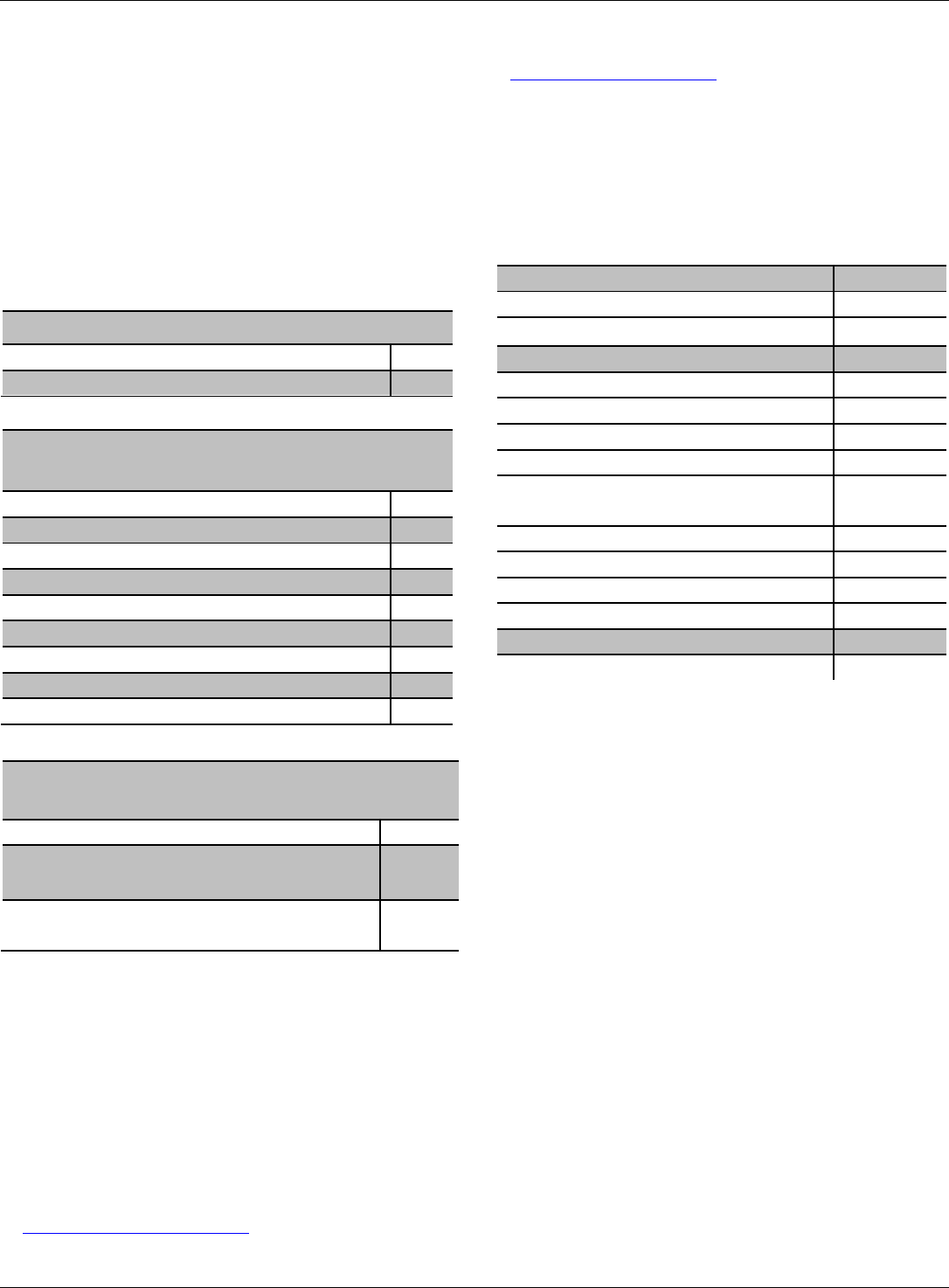
STUDENT RIGHTS AND RESPONSIBILITIES
2018-2019 ACADEMIC CATALOG 41
•
These charts do not identify the reasons why our
students withdrew; therefore, students who withdrew
for personal or medical reasons are included.
•
Graduation rates do not include students who left
school to serve in the U.S. Armed Forces, on official
church missions, or with a foreign aid service of the
federal government, or students who died or were
totally and permanently disabled.
•
Please note that the graduation/completion rate does
not include any student who attended a college or
university after high school and then enrolled in
Ashford University.
Graduation/Completion Rate by Gender
Male
4%
Female
9%
Graduation/Completion Rate by Race or
Ethnic Group
American Indian or Alaska Native
(
1
)%
Asian
(
1
)
Black or African-American
4%
Hispanic/Latino
9%
Native Hawaiian or Other Pacific Islander
(
1
)
White, non-Hispanic
10%
Two or More Races
6%
Nonresident alien
50%
Race/ethnicity unknown
11%
(1) Denotes fewer than 10 students, which is suppressed to protect the privacy of
students
Graduation/Completion Rate by
Financial Aid Category
Pell Grant Recipients
8%
Subsidized FFEL or Direct Loan Recip-
ients (excludes Pell Grant Recipients)
10%
Neither Pell Grant nor Subsidized FFEL or
Direct Loan Recipients
4%
Source: Institutional Research Services, 2018.
Graduation Rates
The three-year graduation rate for online associate degree
seeking students is 14% based on all students in the 2013-
14 entering cohort. The six-year graduation rate for online
bachelor’s degree seeking students is 24% based on the
2010-11 entering cohort. The three-year graduation rate for
online master’s degree seeking students is 53% based on
the 2013-14 entering cohort.
For prior year enrollment and graduation rates, please refer
to http://assessment.ashford.edu
on the Ashford University
website.
Median Loan Debt
For information about the median loan debt of students
who completed academic programs, please refer
to http://www.ashford.edu/pd
on the Ashford University
website.
Student Body Diversity
Ashford University provides the following information
regarding its student body. This information is based on
data reporting in the 2017-18 IPEDS Fall Enrollment
Survey.
Gender
Percentage
Male
29%
Female
71%
Race
Percentage
American Indian or Alaska Native
1%
Asian
2%
Black or African American
37%
Hispanic/Latino
12%
Native Hawaiian or Other Pacific
Islander
1%
White, non-Hispanic
41%
Two or more races
4%
Nonresident alien
0%
Race and ethnicity unknown
2%
Pell Grants
Percentage
Students who received Pell grants
62%
(Source: Institutional Research Services, 2018)
Retention Rate
The retention rate for First-time/Full-time bachelor’s
degree-seeking students at Ashford University beginning
in Fall 2016 was 26%.
(Source: IPEDS Fall Enrollment Survey 2017-2018)

42 ASHFORD UNIVERSITY

STUDENT SERVICES, HEALTH AND SAFETY
2018-2019 ACADEMIC CATALOG 43
SECTION THREE: STUDENT
SERVICES, HEALTH, AND
SAFETY
Student Services
Ashford University is committed to providing the most
straightforward information so students can put their effort
into what matters most – their academic success. Our goal is
to provide students the support they need so that they can
focus on putting their effort toward their education. As one
of the first fully online Universities, Ashford knows online
support and student resources.
Academic Advisement
The Student Advising team works to help support student
success at the University. Advisement is based on academic
policies set by faculty, and operational procedures that
uphold consistency and service to students.
A dedicated Advisor is assigned to each degree-seeking
student upon enrollment. This approach provides students
with a point of contact for academic and administrative
support and direction. The Advisor assists the student in
course scheduling/registration, developing a degree-
completion plan, clarifying University policies and
procedures, and providing awareness of the resources
available to help students be successful in their educational
journey.
Student Affairs
Student Affairs promotes student success through programs
and services to meet the individualized needs of our learners.
We empower self-determination and embrace the values of
equity, inclusion, and mutual respect.
Supporting student and alumni success is accomplished by
matching students with co-curricular programs and support
services that are responsive to their unique needs and talents.
Programs and services are actively integrated throughout the
University and encompass values that enhance and enrich the
moral, intellectual, spiritual, and psychological growth of the
whole student.
Student Affairs includes student health and wellness
resources, disability support services, student community
standards, honor societies, peer mentoring, clubs and
organizations, community service, and specialized support to
our military and veteran students and their families. Please
see Section Twelve for more information.
Student Organizations
Online student organizations are available. For a full list of
online student organizations, please see
http://www.ashford.edu/student_services/online-
organizations.htm. Information about getting involved in an
online student organization or creating a recognized student
organization can be obtained by emailing
Studentaffairs@ashford.edu.
Career Services
Ashford Career Services empower students to discover,
develop, and apply their unique talents to achieve their
greatest potential. Career Services provides individual and
group coaching services and self-directed resources for
active, degree-seeking students and alumni. Some of the
services offered include career exploration tools, resume and
cover letter guidance, interview preparation, job search
assistance, access to job postings and internships, and career
self-assessments.
Through skills and personality assessments, individuals may
explore their interests, abilities, values, and career options
and goals. More information can be found on Ashford
University’s website at
https://www.ashford.edu/online-
learning-experience/alumni/benefits#CareerServices
Alumni Services
As a graduate of Ashford University, alumni will receive a
complimentary membership in the Ashford University
Alumni Association. Membership entitles alumni to valuable
benefits including: career and professional development
events, continued access to career services, discounts on
select products and services, access to online social
communities such as Facebook and LinkedIn, and AU
Connect, Ashford’s online alumni community for continued
support and networking with your peers across the nation.
Limitations Regarding Career and Alumni Services
Ashford University does not guarantee employment to any
applicant as a result of his or her application, acceptance,
attendance, completion of any course, or graduation in any
program. Ashford University does not verify the content of
job postings that are presented on the career services
webpage of the University website, and therefore makes no
representations or guarantees about the accuracy of positions
or contact information listed on the University website.
Ashford University is not responsible for consequences that
may follow from application to jobs listed on the University
website. The inclusion of an employer’s job posting on this
site shall not be construed as an endorsement of the
employer (or of any religious or political point of view
promoted by the employer) by Ashford University or any of
its affiliates, and does not constitute a guarantee that a job is
available with a given employer.

STUDENT SERVICES, HEALTH AND SAFETY
44 ASHFORD UNIVERSITY
It is the responsibility of the student or alumnus to perform
his or her own careful background research when selecting a
position, evaluating an employer, interviewing for, or
accepting any position. It is the sole responsibility of the
student or alumnus to obtain or confirm any necessary
information concerning an employer. Ashford University is
in no way responsible for the safety, wages, working
conditions, or other aspects of employment.
Ashford University’s website also contains links to other
websites as a convenience for its users and is not responsible
for the contents of any linked site. Anyone who discovers
misuse or abuse of our website is encouraged to report the
matter to the Office of Career Services at
CareerServices@ashford.edu
.
The Office of Career Services abides by the principles of
professional conduct set forth by the National Association of
Colleges and Employers (NACE).
The Office of Career Services is committed to partnering
with employment professionals that comply with the Equal
Employment Opportunity (EEO) laws in all recruiting
activities.
The University’s courses, programs and services are
designed to prepare students and graduates to pursue
employment in their field of study or related field; however,
the University does not guarantee that students or graduates
will be placed in any particular position or employment
during their enrollment in the program at the University, or
after its completion. Any statistics referenced on the
University website and attributed to a source other than
Ashford University have not been independently verified by
Ashford University.
Employment Services
Ashford University does not guarantee employment to any
applicant as a result of his or her application, acceptance,
attendance, completion of any course, or graduation in any
program. Ashford University does not generally promote
employment services or make student referrals to prospective
employers based on direct contact with the employer
regarding current job openings to any student attending
Ashford University online programs.
Registrar’s Office
The Ashford University Registrar’s Office works closely
with members of the admission, academic, and student
services departments to facilitate inclusive student
recruitment and retention efforts in compliance with
regulatory requirements. This office collects, records,
maintains and reports all student records in accordance with
FERPA guidelines, e.g., grades, attendance, registration
information, transcripts, and student academic progress. The
Registrar’s Office determines student admissibility by
reviewing student’s admission application as well as
requesting and evaluating all student transcripts to determine
applicability to programs. Program change requests, name
changes, official and unofficial transcript requests and
graduation functions are all handled by the Registrar’s
Office. Students in need of these services should contact the
Registrar’s Office for more information.
Students access their final grade information in the Ashford
University Student Portal.
Student Portal
Ashford University students use the Student Portal as a self-
service resource center. The Student Portal provides one
location for students to access and print versions of their
schedule, degree progress report, and ledger card; access
additional learning resources; receive important information
regarding the University; and connect with their advisors.
Online students also use the Student Portal to access the
online classroom. Additionally, the Student Portal allows
students to do the following:
•
Make payments online;
•
Use a GPA calculator;
•
Download copies of their unofficial transcripts;
•
View their financial aid award information;
•
Generate financial receipts; and
•
Receive important alerts and news regarding the
University.
Website
Ashford University’s website, www.ashford.edu, provides
students, prospective students, and the general public with
up-to-date information about academic offerings and student
events.
Bookstore
Students can order books, memorabilia, and supplies through
the Student Store accessed through the Student Portal or the
Ashford University website at
https://www.ashford.edu/student-store
.
General Headquarters Information
Ashford University’s headquarters is located at 8620
Spectrum Center Blvd., San Diego, CA 92123. Ashford
University does not provide dormitory facilities and is not
responsible for assisting students in finding housing in their
respective locations. For reference, the median rental
housing cost in California is $2,509 per month.
The Headquarters is housed in an 11-story, 273,764-square-
foot building that is leased through February 2020. Master
planning for the site, which also includes 1,472 parking
spaces, is incorporated into the University’s annual capital
planning cycle.

STUDENT SERVICES, HEALTH AND SAFETY
2018-2019 ACADEMIC CATALOG 45
For staff and faculty comfort and well-being, on-site
facilities include four wellness rooms, a fully staffed health
clinic, a cafeteria, and a gymnasium. Each floor has business
hub/breakrooms with multifunction printer/scanners as well
as refrigerators, microwaves, coffeemakers, and
watercoolers.
Clinton, Iowa Campus
The Clinton, Iowa Campus of Ashford University is located
at 1310 19
th
Ave. NW, Clinton IA, 52732.
Academic Programs
The Bachelor of Arts in Business Administration and the
Master of Business Administration programs are offered in a
combined format (online and in-residence requirements)
through the Forbes School of Business & Technology at the
Clinton Campus of Ashford University. See Clinton Campus
Undergraduate Programs and Hybrid Graduate
Programs for more information.
Veterans’ Center
Ashford University’s Veterans’ Center is located on the
Clinton Campus and is home to teams of Matriculation
Coordinators, Academic Advisors, Veteran’s Affairs
Coordinators (SCOs), and Tuition Assistance Specialists
dedicated to serving veteran students. Through the Veteran’s
Center, students and prospective students have the ability to
schedule in-person meetings or phone sessions with their
specialized advisors. These meetings can cover a range of
topics including but not limited to career counseling,
academic advising, accommodations, and review of military-
specific programming that the University offers.
The Veteran’s Center boasts a comfortable, quiet, and
welcoming environment with computer terminals and laptop
connectivity stations where military and veteran students can
focus on coursework and their studies. The center also
provides additional lounge space with a myriad of printed
informational materials intended to connect veterans to
helpful community resources.
In addition to the physical location, Ashford University has
an online Veteran’s Center that is located on the University’s
external website. The online Veteran’s Center is accessible
to all University students 24/7. It contains informational
materials that connect veterans to helpful community
resources. Additionally, the online Veteran’s Center houses
information for the University’s military-specific
programming including but not limited to the military and
veteran peer mentoring program, the Student Veteran’s
Organization, and SALUTE honor society.
VA Benefits
Veteran benefits for Ashford University students are
managed by a team of Veteran Affairs Coordinators, who are
also School Certifying Officials (SCOs), located at the
Clinton Campus. Students utilizing Title 38 benefits may
view their records at the Clinton Campus or direct questions
to this office at VACer[email protected]
Online Administrative and Student Service Center
Ashford University has an online administrative and student
service center located at 7360 S. Kyrene Rd., Suite 105,
Tempe, AZ 85283.The Center has 38,688 square feet of
office space and includes a reception area, 14 administrative
office, 5 conference rooms, 6 student testing stations,
working and training space with 261 work stations,
breakroom/copy area, and an employee lounge. Ashford will
allocate a portion of the Center to create an Ashford
University Veterans’ Center where nearby students will be
able to meet virtually or face-to-face with an advisor and can
be connected on-the-spot with other staff-members across
online student services locations who are available to
provide a variety of administrative services to our Veteran
students. These services include:
Enrollment Services
•
Program availability, admission, and orientation
advisement.
Financial Aid Services
•
VA Certifying Officials who provide advising on
military tuition assistance, VA benefits, and other
financial aid options.
Registrar Services
•
Transfer-credit advisement regarding degree plan and
transcript evaluations.
Student Services
•
Academic advising on scheduling and program
completion, as well as support for students with
disabilities, access and wellness, and career services.
The Veteran’s Center will also provide onsite access to
collateral materials, documents, and forms necessary for VA
students. A component of the Veteran’s Center is a fully
funded DSST Testing Center that provides active duty
military, some spouses and military civilian employees the
opportunity to complete testing at no additional cost.
The Testing Center is open Monday through Friday from
8:00 am to 4:00 pm. Testers can choose from more than 30
exams offered by DSST. Successful completion of an exam
can result in awarding of college credit.
Instructional Materials
Virtual Classrooms
Ashford’s online students work in a virtual environment that
provides asynchronous and synchronous learning
opportunities in the process of taking classes and meeting
course requirements. Students can access their virtual
classrooms as well as support resources through the

STUDENT SERVICES, HEALTH AND SAFETY
46 ASHFORD UNIVERSITY
university’s learning management system 24/7 within the
parameters of a course, typically one week prior to the
course start through to one week after the course end. All
course learning activities, such as readings, assignments,
lectures, and class discussions, are posted within the
classroom as are eTextbooks and other resources. A
technology helpdesk is available around the clock.
Student Portal
Using the Student Portal, students can access the Ashford
University Online Library and Ashford Writing Center for
resources related to research and writing any time of the day.
Additionally, through the portal, they can print versions of
their academic schedules, degree progress reports, and ledger
cards; receive important University information; and connect
with their advisors.
Ashford Mobile
Leveraging the latest technologies, the university provides
Ashford Mobile, an innovative application for smartphones
and tablets that connects students and faculty to key elements
of the University experience. Students and faculty can
complete assignments, contact support staff, review grades,
access financial account information, and more from the
convenience of their mobile devices.
Publicity and Photo Release
All media releases of information originating from the
University should be channeled through the Communications
Office. Media inquiries concerning Ashford University
directed toward students, faculty, and staff are to be directed
to the Communications Office. Administrators, faculty, or
staff who are contacted directly by the media should refer the
media to the Communications Office. Comments should not
be given to the media until the Communications Office has
been contacted.
All students authorize the University to record and use their
names, images, likenesses and voices in all media, for
instructional or promotional purposes, unless a written
request to withhold directory information is on file in the
Registrar’s Office.
Students, faculty, and staff are encouraged to inform the
Communications Office about newsworthy events and
developments regarding class and campus events of interest.
Students should also contact their Advisors regarding
newsworthy information.
Health Information
Drug Free Schools and Communities Act
Program
Students may obtain information on the illegal possession,
use, or distribution of alcohol and illicit drugs, as well as the
University’s standards of conduct, associated health risks,
drug or alcohol counseling and treatment programs,
University disciplinary actions, and federal, state, and local
sanctions for violations of law by viewing the Drug Free
Schools and Communities Act Program Report, located on
the Ashford University website at
www.ashford.edu/DFSCA
.
Counseling, Treatment, and Rehabilitation
Programs
The following national toll-free telephone numbers are
provided to assist any member of the University community
who may require assistance in dealing with a drug or alcohol
problem.
•
American Council on Alcoholism
(800) 527-5344: Addresses alcoholism as a treatable
disease through public education, information,
intervention, and referral;
•
Al-Anon
(888) 425-2666: Helps families and friends of alcoholics
recover from the effects of living with the problem
drinking of a relative or friend; and
•
The Substance Abuse and Mental Health Services
Administration (SAMHSA) Treatment Referral Helpline
(800) 662-HELP / (800) 662-4357 / (800) 487-4889
(TDD): Provides information, support, treatment options,
and referrals to local rehab centers for any drug or
alcohol problem.
Help Lines/Hotlines
24 Hour National Suicide
Prevention Lifeline/Veteran
Crisis Line
(800) 273-TALK (8255)
TTY Line: (800) 799-4889
24 Hour National Domestic
Violence Hotline
(800) 799-SAFE (7233)/
TDD Line: (800) 787-3224
American Sexual Health
Association: STI Resource
Center
(800) 227-8922
CDC National AIDS
Hotline/National STD Hotline
(800) CDC-INFO (232-4636)
National AIDS Hotline for the
Hearing Impaired
TDD Line: (888) 232-6348
24 Hour National Alcohol &
Substance Abuse Information
Center
(800) 784-6776
Gay and Lesbian National
Hotline
(888) THE-GLNH (843-
4564)
The Youth Law Hotline (IA) (800) 728-1172
Poison Control Center (800) 222-1222

STUDENT SERVICES, HEALTH AND SAFETY
2018-2019 ACADEMIC CATALOG 47
National Child Abuse Hotline
(800) 4-A-CHILD (422-
4453)
Low Cost Clinic Locator
http://www.needymeds.org/
free_clinics.taf
Emergency (police, fire, and
rescue)
9-1-1
Health and Wellness Referrals
Pursuing a degree often results in navigating new challenges
and situations that students may not have experienced
previously. While many of these experiences are welcomed,
they may also overwhelm and/or leave students feeling
confused, discouraged, or anxious. Successful students are
able to reach out for support before circumstances become
unmanageable.
The Student Advocate HELPline is a service available
through the Office of Student Access and Wellness. Student
Advocates assist students who are experiencing extreme
personal hardships and critical life impacts by providing
short-term de-escalation, assistance locating support
resources in the local area, and action planning to address
educational impact of situational stressors. Impacts
supported include: concern for individual or community
safety, homelessness and extreme financial hardship, sexual
assault, domestic violence, and/or significant impact
resulting from the loss of a loved one.
Student Advocates are available Monday – Friday
between
8am and 5pm PT. Students are invited to contact the Office
of Student Access and Wellness at ext. 24357 in order to
seek assistance from a Student Advocate.
If you or the individual you are attempting to refer is in
immediate danger, please dial 9-1-1, prior to contacting the
Office of Student Access and Wellness.
Health Alerts, Communicable Disease
Control, and Needle Safety Procedures
The University recognizes its responsibility to exercise
reasonable care in protecting students, faculty, staff,
administrators, and visitors from health dangers while on the
campus. The Centers for Disease Control and Prevention and
the United States Public Health Service report procedures
and recommendations for dealing with communicable
diseases. The University uses such guidelines in determining
reasonable care on a case-by-case basis. Individuals who
know or suspect they may have a communicable disease
should contact their immediate supervisor or the Office of
Student Access and Wellness so that reasonable care and
protection can be assured to them and to others.
Individuals taking medication routinely administered by
injection, such as insulin, must ensure proper disposal
through a sharp disposal container for used needles and
syringes, available in restrooms throughout the facilities.
This container is a requirement of the Occupational Safety
and Health Administration (OSHA). Needles and syringes
must never be disposed of in regular waste receptacles.
Needles and syringes must only be disposed of in proper
disposal containers.
Safety Information
Campus Security and Fire Safety Report
The Ashford University Campus Security and Fire Safety
Report is compiled annually in compliance with the Jeanne
Clery Disclosure of Campus Security Policy and Campus
Crime Statistics Act and is available for review. This report
is required by federal law and contains policy statements and
crime and fire statistics compiled by the University. The
statements address the University’s policies, procedures, and
programs concerning safety and security, for example,
policies for responding to emergency situations, fire safety,
and sexual misconduct offenses.
Statistics for the previous three calendar years are included
for certain types of crimes that were reported to have
occurred on campus, in or on off-campus buildings or
property owned or controlled by the University, and on
public property within or immediately adjacent to and
accessible from the campus. This report is available at
www.ashford.edu/campus_security_and_fire_safety_report
.
Students may also request a paper copy of the report be
mailed to them by emailing their request to
studentaffairs@ashford.edu.
Firearms/Explosives
Shotguns, rifles, handguns, air guns, bows and arrows,
simulated weapons, ammunition, and other types of
potentially dangerous weapons are not permitted anywhere
on campus or at University sponsored events that take place
off campus unless properly authorized by the University
President. All types of explosives (incendiary and chemical)
and fireworks (including smoke bombs) are prohibited in all
areas of the University. Any object has the potential to
become a weapon; therefore, the University reserves the
right to further define a “weapon” based on its potential
damage or threat.

STUDENT SERVICES, HEALTH AND SAFETY
48 ASHFORD UNIVERSITY

FINANCIAL INFORMATION
2018-2019 ACADEMIC CATALOG 49
SECTION FOUR: FINANCIAL
INFORMATION
Financial Information
Ashford University is committed to helping students
understand and manage the financial aspects of obtaining
their education. For questions regarding tuition, fees, and
payment options, students should contact the Financial
Services Department at (800)798-0584. For cost of
attendance information, please visit
www.ashford.edu/admissions/online_financial_services.ht
m.
Tuition and Fees 2018-2019
Tuition rates and fees may change at any time without
prior notice; however, students will not be charged
retroactively for tuition and fee increases for coursework
already completed or for coursework the student was in the
process of completing.
Undergraduate Programs Tuition & Fees
The following is a list of tuition and fees applicable to
Associate and Bachelor’s degree programs and/or
undergraduate courses.
Tuition per credit:
100- to 400-level Courses
$475.00
Fees:
Technology Fee (per course)*
$95.00
Books, course digital materials** and
instructional materials
(average per course)
$115.00
Prior learning assessment -
sponsored professional training (per credit
evaluated)***
$30.00
Prior learning assessment -
experiential learning essay
assessment (per
evaluation)***
$125.00
Insufficient funds fee
$10.00
Graduation fee
$150.00
Replacement/Duplicate Diploma
$45.00
Official transcript
$10.00
Education records
– Per page ^ $0.50
California Student Tuition Recovery Fund^^
$0
*The Technology Fee covers access to University systems
such as the online classroom, the Student Portal, and other
academic resources. The Technology Fee is fully
refundable if a student does not attend beyond Week 1 of a
course (Week 3 if covered under the Ashford Promise
Refund Schedule). After this time, the fee becomes non-
refundable. Students are charged the Technology Fee for
repeated coursework.
**The Course Digital Materials (CDM) fee is fully
refundable if a student does not attend beyond Week 1 of a
course (Week 3 if covered under the Ashford Promise
Refund Schedule). After this time, the fee becomes non-
refundable. Students are not charged the CDM fee for
repeated coursework if previously charged.
***Payment for evaluation does not guarantee that credit
will be awarded.
^A fee of $0.50 per page is charged for copies of education
records. A maximum of $25.00 will be charged. If the
education record is digitally maintained and digitally
delivered, no fee will be charged.
^^California law mandates the collection of a Student
Tuition Recovery Fund (STRF) fee in the amount of $0 per
$1,000 of tuition rounded to the nearest thousand to be
paid to the state's tuition recovery fund in the event of
school closure. The fee is charged to California residents
only. [Currently in a period of non-collection.]
Indirect costs which are not billed directly by the
University may be found at
www.ashford.edu/admissions/online_tuition_fees.htm
.
Graduate Programs Tuition & Fees
The following is a list of tuition and fees applicable to
Master's degree programs and/or graduate courses.
Tuition per credit:
Master of Accountancy
$690.00
Master of Arts in Early Childhood
Education Leadership
$620.00
Master of Arts in Education
$620.00
Master of Arts in Health Care
Administration
$690.00
Master of Arts in Organizational
Management
$690.00
Master of Arts in Psychology
$620.00
Master of Arts in Special Education
$620.00
Master of Arts in Teaching and Learning
with Technology
$620.00
Master of Business Administration
$690.00
Master of Information Systems
Management
$690.00
Master of Public Administration
$690.00

FINANCIAL INFORMATION
50 ASHFORD UNIVERSITY
Master of Public Health
$620.00
Master of Science in Criminal Justice
$690.00
Master of Science in Finance
$690.00
Master of Science in Instructional Design
& Technology
$620.00
Fees:
Technology Fee (per course)*
$125.00
Books, course digital materials** and
instructional materials (average per course)
$145.00
Insufficient funds fee
$10.00
Graduation fee
$150.00
Replacement/Duplicate Diploma
$45.00
Official transcript
$10.00
Education records - Per page^
$0.50
California Student Tuition Recovery
Fund^^
$0
*The Technology Fee covers access to University systems
such as the online classroom, the Student Portal, and other
academic resources. The Technology Fee is fully
refundable if a student does not attend beyond Week 1 of a
course (Week 3 if covered under the Ashford Promise
Refund Schedule). After this time, the fee becomes non-
refundable. Students are charged the Technology Fee for
repeated coursework.
**The Course Digital Materials (CDM) fee is fully
refundable if a student does not attend beyond Week 1 of a
course (Week 3 if covered under the Ashford Promise
Refund Schedule). After this time, the fee becomes non-
refundable. Students are not charged the CDM fee for
repeated coursework if previously charged.
^A fee of $0.50 per page is charged for copies of education
records. A maximum of $25.00 will be charged. If the
education record is digitally maintained and digitally
delivered, no fee will be charged.
^^California law mandates the collection of a Student
Tuition Recovery Fund (STRF) fee in the amount of $0.00
per $1,000 of tuition rounded to the nearest thousand to be
paid to the state's tuition recovery fund in the event of
school closure. The fee is charged to California residents
only. [Currently in a period of non-collection.]
Indirect costs which are not billed directly by the
University may be found at
www.ashford.edu/admissions/online_tuition_fees.htm
.
Schedule of Charges
The following list provides an estimated schedule of
charges by online degree program for total charges for a
period of attendance, and for an entire educational
program.
A period of attendance is defined as four courses or 12
credits for undergraduate students and as three courses or 9
credits for graduate students. Please refer to the Tuition
and Fees lists in the Financial Information section for
specific dollar amounts used to calculate these charges.
Students who receive the Ashford University Military
Grant should refer to their specific enrollment agreement
tuition and fee lists for this information.
Program
Name
Period
of Attendance
Entire
Educational Program
AA in Early
Childhood Education
(67 credits)
$6,540
$36,595
AA in Military
Studies (64 credits)
$6,540
$34,960
All Online Bachelor’s
Programs
(120 credits)
$6,540
$65,550
Master of
Accountancy
(48 credits)
$7,020
$37,590
Master of Early
Childhood Education
Leadership
(30 credits)
$6,390
$21,450
MA in Education
(36 credits)
$6,390
$ 25,710
MA in Health Care
Administration
(36 credits)
$7,020
$ 28,230
MA in Organizational
Management
(33 credits)
$7,020
$25,890
MA in Psychology
(36 credits)
$6,390
$25,710
MA in Special
Education
(30 credits)
$6,390
$21,450
MA in Teaching and
Learning with
Technology
(30 credits)
$6,390
$21,450
Master of Business
Administration
(42 credits)
$7,020
$32,910
Master of Human
Resource
Management
(39 credits)
$7,020
$30,570
Master of Information
Systems Management
(42 credits)
$7,020
$32,910
Master of Public
Administration
(36 credits)
$7,020
$28,230
Master of Public
Health
(42 credits)
$6,390
$29,970
Master of Science in
Finance (39 credits)
$7,020
$30,570
Master of Science in
Criminal Justice
(39 credits)
$7,020
$30,570

FINANCIAL INFORMATION
2018-2019 ACADEMIC CATALOG 51
Program
Name
Period
of Attendance
Entire
Educational Program
Master of Science in
Instructional Design
& Technology
(36 credits)
$6,390
$25,710
*The Master of Arts in Education program is based off the 15 credit
Curriculum and Instruction specialization.
Sales Tax Disclaimer
Ashford University is required to charge sales tax for
tuition and/or fees in certain jurisdictions based on state
reporting obligations and the taxability of services and
digital goods in accordance with local laws on the date of
charge. For sales tax purposes, electronically-delivered
services and digital goods are considered to be received at
the student’s physical address. For specific sales tax
charges, students should consult with their Academic
Advisor.
Tennessee Tuition and Fee Guarantee
TN Residents Only
Applicants to an online program who reside in the state of
Tennessee (as evidenced by the address on file at Ashford
University) will qualify for the Tennessee Tuition and Fee
Guarantee under the conditions set forth in this section.
The Tennessee Tuition and Fee Guarantee is a
commitment that the net cost of tuition and fees will not
increase for a 12 month period, beginning on the date the
student begins credit-bearing coursework. This benefit is
applicable only to students who maintain a physical
residence in the state of Tennessee. Upon expiration of the
12 month period, tuition and fee amounts for any such
students are subject to adjustment to reflect the rates in
effect at that time, and will also be subject to any future
adjustments.
Students who relocate to another state are no longer
eligible for the Tennessee Tuition and Fee Guarantee, and
tuition and fees will be adjusted to reflect the rates in
effect at that time, and will also be subject to any future
adjustments, starting on the date their address is changed
in University records. No retroactive tuition and fee
adjustments for past classes are applied at the time of any
address update. No retroactive tuition and fee adjustments
for current classes are applied at the time of any address
update, unless the address change is updated in University
records within the first week of a student’s current course.
Students who apply to a new degree program are eligible
for the Tennessee Tuition and Fee Guarantee for a new 12
month period. Students who re-enter the University after
being officially or unofficially withdrawn are also eligible
for the Tennessee Tuition and Fee Guarantee for a new 12
month period and will initiate with the prevailing rate of
tuition and fees at the time of re-entry to the University.
Students who change their program of study are eligible
for the Tennessee Tuition and Fee Guarantee for a new 12
month period beginning on the date the student begins
credit-bearing coursework only if completed courses from
the current payment period do not apply to the new
program of study. Students who change programs and do
not meet the above condition do not qualify for a new or
renewed Tennessee Tuition and Fee Guarantee period.
California Student Tuition Recovery Fund
CA Residents Only
The State of California established the Student Tuition
Recovery Fund (STRF) to relieve or mitigate economic
loss suffered by a student in an educational program at a
qualifying institution, who is or was a California resident
while enrolled, or was enrolled in a residency program, if
the student enrolled in the institution, prepaid tuition, and
suffered an economic loss. Unless relieved of the
obligation to do so, you must pay the state-imposed
assessment for the STRF, or it must be paid on your
behalf, if you are a student in an educational program, who
is a California resident, or are enrolled in a residency
program, and prepay all or part of your tuition. You are not
eligible for protection from the STRF and you are not
required to pay the STRF assessment, if you are not a
California resident, or are not enrolled in a residency
program.
It is important that you keep copies of your enrollment
agreement, financial aid documents, receipts, or any other
information that documents the amount paid to the school.
Questions regarding the STRF may be directed to the
Bureau for Private Postsecondary Education, 2535 Capitol
Oaks Drive, Suite 400, Sacramento, CA 95833, (916) 431-
6959 or (888) 370-7589.
To be eligible for STRF, you must be a California resident
or are enrolled in a residency program, prepaid tuition,
paid or deemed to have paid the STRF assessment, and
suffered an economic loss as a result of any of the
following:
1.
The institution, a location of the institution, or an
educational program offered by the institution was
closed or discontinued, and you did not choose to
participate in a teach-out plan approved by the Bureau
or did not complete a chosen teach-out plan approved
by the Bureau.
2.
You were enrolled at an institution or a location of the
institution within the 120 day period before the closure
of the institution or location of the institution, or were
enrolled in an educational program within the 120 day
period before the program was discontinued.
3.
You were enrolled at an institution or a location of the
institution more than 120 days before the closure of

FINANCIAL INFORMATION
52 ASHFORD UNIVERSITY
the institution or location of the institution, in an
educational program offered by the institution as to
which the Bureau determined there was a significant
decline in the quality or value of the program more
than 120 days before closure.
4.
The institution has been ordered to pay a refund by the
Bureau but has failed to do so.
5.
The institution has failed to pay or reimburse loan
proceeds under a federal student loan program as
required by law, or has failed to pay or reimburse
proceeds received by the institution in excess of tuition
and other costs.
6.
You have been awarded restitution, a refund, or other
monetary award by an arbitrator or court, based on a
violation of this chapter by an institution or
representative of an institution, but have been unable
to collect the award from the institution.
7.
You sought legal counsel that resulted in the
cancellation of one or more of your student loans and
have an invoice for services rendered and evidence of
the cancellation of the student loan or loans.
To qualify for STRF reimbursement, the application
must be received within four (4) years from the date of
the action or event that made the student eligible for
recovery from STRF.
A student whose loan is revived by a loan holder or
debt collector after a period of noncollection may, at
any time, file a written application for recovery from
STRF for the debt that would have otherwise been
eligible for recovery. If it has been more than four (4)
years since the action or event that made the student
eligible, the student must have filed a written
application for recovery within the original four (4)
year period, unless the period has been extended by
another act of law.
However, no claim can be paid to any student without a
social security number or a taxpayer identification
number.
Terms of Billing and
Payment
Tuition and fees are billed on a financial aid payment
period basis, regardless of payment option. For
undergraduate programs, a payment period is a minimum
of 20 weeks of instructional time and 12 successfully
earned credits. This is typically four courses taken
sequentially during the payment period. For graduate
programs, a payment period is a minimum of 18 weeks of
instructional time and 9 successfully earned credits. This is
typically three courses taken sequentially during the
payment period. Tuition is due according to the terms and
conditions of a student’s selected Payment Option. See the
section on Payment Options for more information.
Ashford University reserves the right to cancel the
registration of any student whose account is delinquent.
Diplomas or certificates will be withheld, graduation
participation will be delayed, and transcript of credits will
not be forwarded to another institution or potential
employer until all accounts with Ashford University are
paid in full.
Tuition Benefit Eligibility
Requirements
If a University tuition benefit, grant, or scholarship is
offered to assist with the program-related fees and charges
below, additional eligibility requirements must be
submitted and approvals obtained prior to application of
these benefits. Benefits will be awarded at the time of
disclosing eligibility and submitting any required
documents upon request; retroactive adjustments will not
be applied to previous coursework or fees.
Excess Credit Account
Adjustment
Undergraduate students who need 1 or 2 credits in order to
meet the total number of credits required to graduate may
be issued an “excess credit” account adjustment upon
taking a final 3-credit class. An excess credit account
adjustment is issued to the paying party in the amount of
tuition paid in excess of what is required after satisfying
the total credit requirement. Partial credit account
adjustments will not be issued.
Bankruptcy
A student who has filed for bankruptcy may need to
provide additional documentation before receiving aid. A
student interested in using any payment option, with the
exception of Cash and Corporate or Government Full
Tuition Grant as a primary payment option upon re-entry
or upon reapplication to the University may be required to
do so as a secondary payment option and deferment of
tuition and fee payment will not apply. The student may be
required to pay any tuition and/or fee balance in full on an
as-incurred basis.
Payment Plans
Ashford University offers Payment Plan options in select
circumstances to students with outstanding balances.
Students are allowed monthly payments as an option to

FINANCIAL INFORMATION
2018-2019 ACADEMIC CATALOG 53
pay on outstanding balances, although students are always
encouraged to pay any outstanding balances due in full,
and only utilize a Payment Plan if needed.
All students must select their payment option type,
manual-pay or auto-pay, at the time of payment plan
approval. Students must make an initial payment after
Payment Plan approval regardless of Payment Plan length
or payment type. Students who elect to go on auto-pay are
required to pay one (1) monthly payment amount initially
(first payment). However, students who elect a manual pay
option must pay 10% of the total balance owed or the
equivalent of three (3) monthly payments as the initial
(first) payment, whichever is greater. Payment Plans
require monthly payments and are not recommended to
extend more than six months beyond a student’s estimated
graduation date.
If students have difficulty making payments or have
questions, they should contact a Student Accounts
Coordinator by dialing (800) 798-0584 and following the
appropriate prompts for finance and payment
arrangements.
Payment Options
Ashford University offers a variety of options for covering
the costs of a student’s education. During the online
application process, students select their primary payment
option and any secondary payment option(s), if required.
Funds are applied in the order received by the University,
regardless of designation of primary or secondary.
Students utilizing the Cash Plan, Tuition Reimbursement,
and/or Military Veterans’ Benefit Plan may choose to have
their tuition and/or fees automatically charged to their
credit card (recurring payment).
Ashford University will also accept debit cards that are
endorsed by Visa or MasterCard or a personal check. A
returned check may result in an insufficient funds fee.
Students using endorsed debit cards should ensure they
have sufficient funds in their account if they choose to use
a debit card for automatic payments to avoid overdraft fees
through their bank.
Endorsed debit cards may also have daily limits that
cannot be exceeded. It is the student’s responsibility to
understand these limits and ensure any payments on
endorsed debit cards will not exceed these limits.
There may be differences in fraud protection features of
debit cards and credit cards, particularly because debit card
purchases are withdrawn directly from a checking or
savings account. Students should be aware of these
differences prior to submitting this information to any
other entity.
Cash Plan
For students who have selected the Cash Plan as a primary
payment option, 100% of tuition and any applicable fees
are to be paid on or before each course start date. Students
may choose to have their tuition and/or fees automatically
charged to their credit card when the Cash Plan is their
payment option. Automatic credit card payments are
charged on the start date of each course; otherwise, full
payment must be received on or before the start date of
each course.
When selected as a secondary payment option, any amount
not covered by the primary payment option can be applied
in any acceptable form of payment.
Students are advised that credit cards are accepted as a
convenient method of payment. Credit cards bearing high
interest rates should not be used as a long-term financing
method for educational costs. Ashford University
encourages all students to utilize the free financial aid
information that is available through the Financial Aid
Office.
Any delay in payment may result in administrative
withdrawal of the student from his or her current course
during Week One. The student will then be scheduled for a
future course and is not permitted to re-enter the course
from which he or she was removed due to non-payment.
Tuition Reimbursement Plan
The Tuition Reimbursement Plan is available as a primary
payment option if students qualify for their employer’s
tuition reimbursement program and if their employer
reimburses at least 50% of their annual tuition.
Under this plan, tuition payments, excluding fees, are
deferred a maximum of 90 days from the course/term start
date, regardless of when the student receives
disbursement/reimbursement from his or her employer.
Tuition must be paid in full 90 days after the start date of a
course/term; otherwise, the student’s credit card will be
automatically charged. Applicable fees are due on or
before the start date of each course/term. If fees are not
paid in full on or before the start date of a course/term, the
student’s credit card will be automatically charged. A
returned check may result in an insufficient funds fee.
Students who have two declined credit card payments will
be required to comply with the terms of the Cash Plan and
will no longer qualify for the Tuition Reimbursement Plan.
The conditions of this plan are not dependent upon the
receipt of a course grade or completion of the course.
To qualify, prior to the start of the course/term, students
must submit a signed Tuition Reimbursement Certification
and Authorization form that includes a valid credit card
number with authorization to charge the card if the tuition
is not paid within the 90-day time frame.

FINANCIAL INFORMATION
54 ASHFORD UNIVERSITY
Documentation required for the Tuition Reimbursement
Plan includes the following:
•
Student Finance Agreement; and
•
Tuition Reimbursement Certification and
Authorization.
Direct Bill Plan (Third-Party Direct Billing)
Ashford University offers Third-Party Direct Billing as a
primary payment option to students sponsored by a Third
Party Agency with a Direct Bill Memorandum of
Understanding on file. The Third-Party Agency must offer
a tuition benefit of at least $2,500 annually for a student’s
tuition to be eligible for this option. The Third Party
Agency is expected to remit payment to Ashford
University within 90 days of the course start date. Any
amounts not paid by the Third Party Agency are the
responsibility of the student. Vouchers, purchase orders,
and other approved authorized mediums should be sent to
directbill@ashford.edu
or faxed to (877) 279-1203 at least
five days prior to the start of each course or payment
period. Failure to supply vouchers, purchase orders, and
other approved mediums in a timely fashion may result in
the loss of Third-Party Direct Billing benefits.
Documentation required for the Direct Bill Plan includes
the following:
•
Direct Bill Memorandum of Understanding
•
Student Finance Agreement indicating Direct Bill;
•
Direct Bill Certification and Authorization; and
•
Voucher, purchase order, or other authorized
medium approved by Ashford University.
Corporate Full Tuition Grant
Ashford University offers the Corporate Full Tuition Grant
(CFTG) to students selected and sponsored by a
participating Employer. The CFTG program is funded by
both the Employer and Ashford University. This grant is
intended to help students avoid educational loan debt by
funding a recipient’s direct education-related costs. Direct
education-related costs include tuition for all eligible
courses (limited to two repeated courses), Technology Fee
(per course), books, course digital materials, instructional
materials, graduation fee, and Prior Learning Assessment
(PLA) fees. If both electronic and hard copy course
materials are available for the same course, the CFTG
program will only fund the electronic course materials, and
if a student chooses to receive hard copy course materials,
the student will be responsible to pay the difference in
price and shipping costs. As such, the Corporate Full
Tuition Grant is only available as a primary payment
option.
Students who choose to participate in the CFTG program
are not able to receive funding from the federal student
financial aid programs (such as Pell Grant and Direct
Loans); this is a condition of participation in the CFTG
program. The choice to participate in the CFTG program is
optional and any eligible federal student financial aid is
always available to students who choose that payment
option in lieu of participation in the CFTG program.
Students will become ineligible for the CFTG program if
they choose to receive funds from any federal student
financial aid program for the same enrollment period.
Students may become ineligible for the CFTG if they
receive more than two (2) allowances (defined as any
course that is not eligible for reimbursement through the
CFTG Partner’s policies, including any unsuccessful
grades of “F,” “WF,” “W,” or below a “C-” for General
Education Competency courses) during their program of
study or if they violate University policies as outlined in
the Ashford University Academic Catalog. Students must
also abide by all applicable Undergraduate Program
Satisfactory Academic Progress (SAP) Standards or
Graduate Program SAP Standards. Students are always
expected to understand, meet, and abide by any Employer
requirements in order to continue to receive CFTG
benefits. Ashford University or the Employer may remove
a student from the CFTG at any time. If a student becomes
ineligible for CFTG at any point in time, the University
will automatically revert the student to cash as a payment
option. If the student would like to use an alternate
payment option instead of cash, they may submit a
payment option change request. Students may appeal the
loss of their CFTG eligibility to Ashford University at any
time.
The CFTG funds up to ten (10) undergraduate or either (8)
graduate courses per 12-month period, referred to as an
FTG Year. Concurrent enrollment, defined as the
enrollment in more than one class in every five
(undergraduate) or six (graduate) week module, is
available for students to request with an accompanied cash
additional payment for course tuition. Pre-approval
without a payment may be permitted for extenuating
circumstances on a case-by-case basis at the discretion of
Ashford University. Under no circumstances can a student
complete more than ten (undergraduate) or eight
(graduate) courses utilizing only employer funding within
a single CFTG year.
All required CFTG forms (detailed below) must be
completed, submitted, and approved prior to application
for each new participating student. In addition, in order to
continue participation in the grant program, students are
required to re-confirm eligibility for benefits every twelve
months. The CFTG benefits continue as long as (1)
students continue to meet Employer’s eligibility
requirements, (2) students have not completed their degree
(continuation will require a new application), and (3)
students do not elect to discontinue participation in the

FINANCIAL INFORMATION
2018-2019 ACADEMIC CATALOG 55
CFTG program. Students must send all required forms to
their assigned Advisor for verification at least seven (7)
days prior to the start of classes in the applicable 12 month
period.
The University provides this grant in conjunction with the
funding provided by the Employer. The Employer must
supply a qualified tuition benefit for their students to be
eligible for the University CFTG accompanying grant.
CFTG students who have employer or third-party
administrator (TPA) required steps to ensure payments are
issued will be required to maintain a valid credit card on
file. Failure of the Employer or student to supply any
required payment may result in loss of CFTG benefits for
the grant recipient.
Documentation required for the Corporate Full Tuition
Grant includes the following:
•
Corporate Full Tuition Grant Agreement (executed
between the University and Employer);
•
Corporate Full Tuition Grant Acknowledgement,
Waiver and Release Form;
•
Full Tuition Grant Student Credit Card Payment
Authorization Form (if applicable);
•
Student Finance Agreement indicating Corporate
Full Tuition Grant;
•
Net Price Calculator Results, Shopping Sheet, and
Data Summary (must be completed annually); and
•
Corporate Full Tuition Grant Re-Confirmation of
Benefits (completed annually after first year of
enrollment).
This program may not be utilized concurrently in the same
enrollment period with any other Ashford University
sponsored grant, scholarship, or benefit program. Students
are encouraged to speak with their Advisor to explore all
programs they may be eligible for prior to submitting their
Corporate Full Tuition Grant documents.
Government Full Tuition Grant
Ashford University offers the Government Full Tuition
Grant (GFTG) to students selected and sponsored by a
participating Government organization. The GFTG
program is funded by both the Employer and Ashford
University. This grant is intended to help students avoid
educational loan debt by funding a recipient’s direct
education-related costs. Direct education-related costs
include tuition for all eligible courses (limited to two
repeated courses), Technology Fee (per course), books,
course digital materials, instructional materials, graduation
fee, and Prior Learning Assessment (PLA) fees. If both
electronic and hard copy course materials are available for
the same course, the GFTG program will only fund the
electronic course materials, and if a student chooses to
receive hard copy course materials, the student will be
responsible to pay the difference in price and shipping
costs. As such, the Government Full Tuition Grant is only
available as a primary payment option.
Students who choose to participate in the GFTG program
are not able to receive funding from the federal student
financial aid programs (such as Pell Grant and Direct
Loans); this is a condition of participation in the GFTG
program. The choice to participate in the GFTG program is
optional and any eligible federal student financial aid is
always available to students who choose that payment
option in lieu of participation in the GFTG program.
Students will become ineligible for the GFTG program if
they choose to receive funds from any federal student
financial aid program for the same enrollment period.
Students may become ineligible for the GFTG if they
receive more than two (2) allowances (defined as any
course that is not eligible for reimbursement through the
GFTG Partner’s policies, including any unsuccessful
grades of “F,” “WF,” “W,” or below a “C-” for General
Education Competency courses) during their program of
study or if they violate University policies as outlined in
the Ashford University Academic Catalog. Students must
also abide by all applicable Undergraduate Program
Satisfactory Academic Progress (SAP) Standards or
Graduate Program SAP Standards. Students are always
expected to understand, meet, and abide by any Employer
requirements in order to continue to receive GFTG
benefits. Ashford University or the Employer may remove
a student from the GFTG at any time. If a student becomes
ineligible for GFTG at any point in time, the university
will automatically revert the student to cash as a payment
option. If the student would like to use an alternate
payment option instead of cash, they may submit a
payment option change request. Students may appeal the
loss of their GFTG eligibility to Ashford University at any
time.
The GFTG funds up to ten (10) undergraduate or eight (8)
graduate courses per 12-month period, referred to as an
FTG Year. Concurrent enrollment, defined as the
enrollment in more than one class in every five
(undergraduate) or six (graduate) week module is available
for students to request with an accompanied additional
cash payment for the course tuition. Pre-approval without
a payment may be permitted for extenuating
circumstances, on a case-by-case basis, at the discretion of
Ashford University. Under no circumstances can a student
complete more than ten (undergraduate) or eight
(graduate) courses utilizing only employer funding within
a single GFTG year.
All required GFTG forms (detailed below) must be
completed, submitted, and approved prior to application
for each new participating student. In addition, in order to
continue participation in the grant program, students are
required to re-confirm eligibility for benefits every twelve

FINANCIAL INFORMATION
56 ASHFORD UNIVERSITY
months. The GFTG benefits continue as long as (1)
students continue to meet Employer’s eligibility
requirements, (2) students have not completed their degree
(continuation will require a new application), and (3)
students do not elect to discontinue participation in the
GFTG program. Students must send all required forms to
their assigned Advisor for verification at least seven (7)
days prior to the start of classes in the applicable 12 month
period.
The University provides this grant in conjunction with the
funding provided by the Employer. The Employer must
supply a qualified tuition benefit for their student to be
eligible for GFTG. GFTG students who have employer or
third-party administrator (TPA) required steps to ensure
payments are issued will be required to maintain a valid
credit card on file. Failure of the Employer or student to
supply any required payment may result in loss of GFTG
benefits for the grant recipient.
Documents required for the Government Full Tuition
Grant:
•
Government Full Tuition Grant confirmation of
terms (executed between the University and
Employer);
•
Government Full Tuition Grant Acknowledgement
Form;
•
Full Tuition Grant Student Credit Card Payment
Authorization (if applicable);
•
Student Finance Agreement indicating
Government Full Tuition Grant;
•
Net Price Calculator Results, Shopping Sheet, and
Data Summary (must be completed annually); and
•
Government Full Tuition Grant Re-Confirmation
of Benefits (completed annually after first year of
enrollment).
This program may not be utilized concurrently in the
same enrollment period with any other Ashford
University sponsored grant, scholarship, or benefit
program. Students are encouraged to speak with their
advisor to explore all programs they may be eligible
form prior to submitting their Government Full Tuition
Grant documents.
Military Veteran’s Benefits Plan
Veteran Benefits for Ashford University students are
managed by a team of Veteran Affairs Coordinators,
who are also School Certifying Officials (SCOs).
Ashford University’s facility code effective September
18, 2017 is 21007103. Students utilizing Title 38
benefits may direct questions to this office at
VACertification@ashford.edu.
The Military Veterans Administration Plan requires that
all tuition be paid on or before each course start date,
with the exception of the first 60 days in the student’s
first academic year. Under this plan, tuition
payments are deferred for the first 60 days of continuous
enrollment in a degree program, regardless of when the
student receives disbursement from the Department of
Veterans Affairs. Applicable fees are due on or before
the start date of each course/term. To qualify, students
must submit a signed Student Finance Agreement, prior
to the start of the course/term.
Degree seeking students may choose to place a credit
card on file for automatic recurring payment processing.
Non-Degree seeking students will be required to place a
credit card on file when selecting this option with
authorization to charge the card if tuition is not paid
within a sixty (60) day timeframe. Questions should be
directed to the VA Coordinator at
VACertification@ashford.edu
.
VA Classification of Ashford University Online
Students:
Students enrolled in an online undergraduate
program are classified as three-quarter time. The only
way to receive the full-time payment rate is to double up
on courses, which is allowed after successful completion
of two courses with Ashford University. Students
enrolled in an online graduate program are classified as
full time.
VA Certification Term:
Students may be certified for
their Veterans Affairs (VA) educational benefits for up
to a full certification term of scheduled courses. A
certification term is defined as up to four courses for
undergraduate students and up to three courses for
graduate students. Certification for benefits will occur
no earlier than 120 days prior to the start date of the last
course within the certification term. Certification will
occur no later than 30 days after the start date of a
course.
GI
®
Bill Application Procedure:
The student must
obtain the appropriate form(s) from the Education
Benefits Application Process website at
https://www.vets.gov/education/apply/ Forms can be
submitted online directly to the VA.
Students should double check and verify that all
information provided is true and correct prior to
submitting. Ashford University requires a copy of the
students’ confirmation page after they have submitted
their information to the VA which will contain one of
the following:
•
22-1990 (Application for VA Education Benefits)
for veteran students who are using their GI Bill for
the first time.

FINANCIAL INFORMATION
2018-2019 ACADEMIC CATALOG 57
•
22-1990E (Transfer of Entitlement) for spouse or
dependents who are applying for transferred Post
9/11 benefits for the first time
•
22-1995 (Change of Program/Training) for veteran
and TOE students who have applied and/or used
their GI Bill benefits before.
•
22-5490 (Chapter 35 Dependent/Spouse DEA
benefits) who are applying for this benefit for the
first time.
•
22-5495 (Chapter 35 Dependent/Spouse DEA
benefits) who have applied and/or used this benefit
before.
•
DD-214 (Release from Duty). Ashford University
requires a copy of this form for the student’s file if
available. This form does not hold up certification.
The University's VA Certifying Official will periodically
review and certify the student for courses throughout the
year on the VA-ONCE website. GI
®
Bill is a registered
trademark of the U.S. Department of Veterans Affairs
(VA). More information about education benefits offered
by the VA is available at the official U.S. government
website at www.benefits.va.gov/gibill
.
Procedures While Enrolled:
After the student receives an award letter from the VA,
he or she is required to begin monthly self-verification
of enrollment by the 30th of each month. This is
accomplished by using the Web Automated Verification
of Enrollment (WAVE) or by Interactive Voice
Response (IVR).
WAVE: https://www.gibill.va.gov/wave
*
IVR: (877) 823-2378
*Students utilizing Chapter 33 - Post 9/11 GI Bill and
Chapter 35 DEA are exempt from verifying through the
WAVE process.
•
Students should allow 10 to 12 weeks after
completion of all paperwork including school
certifications, for the VA to process the first
payment. Certification will begin with the
student’s first date of eligible attendance in an
Ashford University degree program. For students
in conditional admission status, certification will
occur once the student matriculates. The VA will
process any subsequent payment monthly.
•
Payment of VA benefits may be mailed directly to
the student or sent directly to the school,
depending on the chapter of benefits the student is
utilizing. Students are responsible for paying
Ashford University tuition and fees at the start of
each course, unless there is alternative, approved
financial aid or the student is 100% eligible under
the Post 9/11 benefit. Payment by Direct
Deposit/Electronic Funds Transfer is strongly
encouraged. Payments are sent directly to the
student’s savings or checking account. To
establish or change direct deposit information,
students should click on the ‘Direct Deposit
Enrollment Form’ link after they have logged into
WAVE. Changes and enrollments are usually
processed the next business day.
•
The University’s VA Certifying Official will
report course drops and withdrawals to the VA.
Course drops may affect eligibility for VA
benefits.
Military Tuition Assistance Plan
Ashford University is approved for active duty Military
Tuition Assistance. Students are expected to submit
Tuition Assistance (TA) vouchers to the Tuition
Assistance Administrator prior to the start of each course.
TA is applied only to tuition and reimbursable fees. Any
tuition and applicable fees not covered by the TA program
must be paid prior to the start date of each course. TA
forms, vouchers, and questions should be directed to
MilitaryTA@ashford.edu
. Failure to have a voucher on file
with Ashford prior to the corresponding course may result
in being administratively removed from the scheduled
course.
Ashford University does not conduct automatic program
renewals or bundle courses or enrollments for purposes of
TA approval. The student and military service must
approve each course enrollment before the start date of the
class.
Documentation required for the Military TA Plan:
•
Military Tuition Assistance forms (branch
specific)
Military Tuition Assistance Procedure:
•
Military students must first complete the
TA Authorization form;
•
After command approval has been received, the
student digitally signs the TA Authorization form
and then sends it by fax or email to:
Ashford University
Military Tuition Assistance
MilitaryTA@ashford.edu
Fax: (858) 408-3511
•
The TA Authorization form must be received
before the fee waiver or course cost adjustments
will be applied. TA vouchers must be received the
Friday prior to the start of each course.
•
Once the TA Authorization form has been received
by the Ashford University Military Tuition
Assistance Office, an invoice will be sent to the
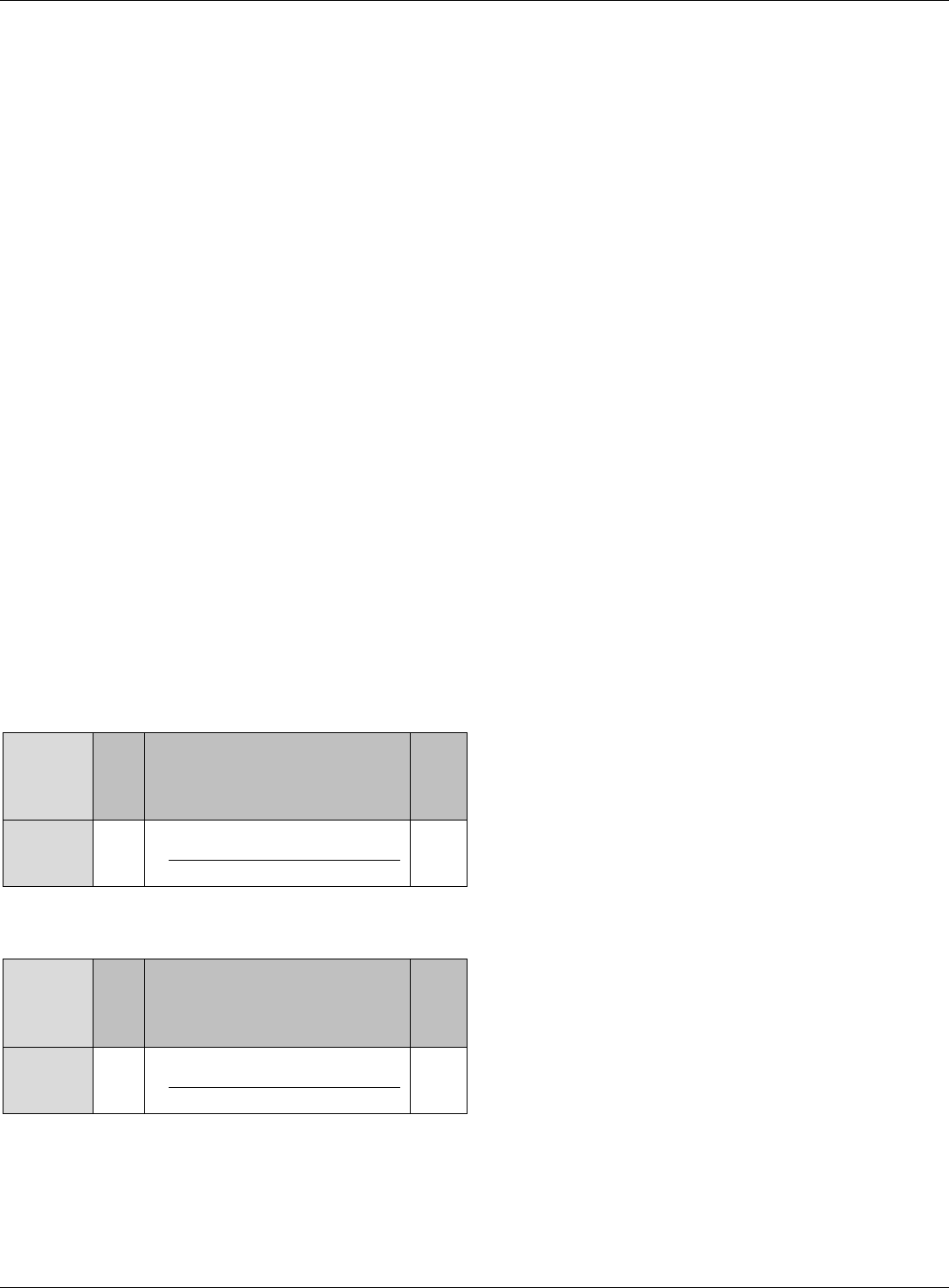
FINANCIAL INFORMATION
58 ASHFORD UNIVERSITY
military. A copy of this invoice may be mailed or
faxed to the student upon request.
Return of Military Tuition Assistance
Funds (TA Invoicing)
Institutions receiving Military Tuition Assistance funds
must have a policy that demonstrates compliance with the
Military’s requirement to return unearned TA funds on a
proportional basis through at least the 60 percent portion
of the period for which the funds were provided.
Rather than invoicing Military Tuition Assistance
(Military TA) at or prior to the start of a course and later
refunding any portion of Military TA that is unearned,
Ashford University defers invoicing Military TA until
attendance requirements have been met.
Military TA funds are earned on a proportional basis
through the 60 percent portion of a course, with the
exception of the Add/Drop Period (Days 0-7) during which
no TA is earned. The standard formula for determining the
amount of TA earned is calculated on a percentage basis
by comparing the total number of days completed* to the
total number of days in the course. The calculation
determines the amount of TA for which a student is
eligible and thus the amount of Military TA for which the
services will be invoiced.
*Number of days completed is based on a student’s last
day of attendance in the course (LDA).
Determining Military TA Earned for
Undergraduate 5-week Courses
Last Day
of
Attendance
in Course:
Days
0-7
Days 8 - 21
Days
22-35
Percent of
TA
Earned:
0%
%
=
ℎ
# ℎ
100%
Determining Military TA Earned for
Graduate 6-week Courses
Last Day
of
Attendance
in Course:
Days
0-7
Days 8 - 25
Days
26-42
Percent of
TA
Earned:
0%
%
=
ℎ
# ℎ
100%
For information regarding course drops due to military
service obligation, please refer to the Military Deployment
Provisions policy in the General Academic Information
and Policies section of this Catalog.
Ashford University Military
Grant
Undergraduate Students:
Students enrolled in an
undergraduate program may be eligible for the Ashford
University Military Grant. Eligible students include Active
Duty, National Guard, Reservists, spouses of Active Duty,
National Guard, and Reservists, students using VA
Education Benefits, Department of Defense employees,
Veterans Affairs employees, and Civilian employees of the
United States Coast Guard. Veterans of the U.S. Armed
Forces must be certified for VA benefits through the U.S.
Department of Veterans Affairs and by Ashford
University. Grants are only applied to an eligible student’s
account upon receipt of an approved VA certification. All
other eligible students must provide the University with an
approved TA Authorization form or appropriate
verification of military service.
The grant reduces tuition for undergraduate courses to
$250 per credit. In addition, this grant also covers the sales
tax, technology fees, and course materials required for an
eligible student's program of study, including standard
shipping costs where applicable, when purchased through
Ashford University’s bookstore or textbook partner. The
cost of required electronic materials is also covered by the
grant. When course materials are available in both
electronic format and hard copy, students may opt to
purchase a hard copy textbook and are charged the
difference in cost plus shipping. Students should refrain
from purchasing course materials prior to confirmation of
sufficient enrollments. Military students who reside in a
forward location may opt for a hard copy textbook at no
additional charge.
Students who exceed 30 days of consecutive non-
attendance and are not on an approved Academic
Leave will be asked to recertify eligibility for the Ashford
University Military Grant upon return by providing
appropriate verification of military service.
Graduate Students:
Students enrolled in a graduate
program may be eligible for the Ashford University
Military Grant. Eligible students include Active Duty,
National Guard, Reservists, spouses of Active Duty,
National Guard, and Reservists, students using VA
Education Benefits, Department of Defense employees,
Veterans Affairs employees, and Civilian employees of the
United States Coast Guard. Veterans of the U.S. Armed
Forces must be certified for VA benefits through the U.S.
Department of Veterans Affairs and by Ashford
University. Grants are only applied to an eligible student’s
account upon receipt of an approved VA certification. All
other eligible students must provide the University with an
approved TA Authorization form or appropriate
verification of military service.

FINANCIAL INFORMATION
2018-2019 ACADEMIC CATALOG 59
The grant covers the sales tax, technology fees, and course
materials, including standard shipping costs where
applicable, required for an eligible student’s program of
study and purchased through Ashford University’s
bookstore or textbook partner. The cost of required
electronic materials is also covered by the grant. When
course materials are available in both electronic format and
hard copy, students may opt to purchase a hard copy
textbook and are charged the difference in cost plus
shipping. Students should refrain from purchasing course
materials prior to confirmation of sufficient enrollments.
Military students who reside in a forward location may opt
for a hard copy textbook at no additional charge. Grants
are only applied to an eligible student’s account upon
receipt of an approved VA certification. All other eligible
students must provide the University with an approved TA
Authorization form or appropriate verification of military
service.
Students who exceed 30 days of consecutive non-
attendance and are not on an approved Academic
Leave will be asked to recertify eligibility for the Ashford
University Military Grant upon return by providing
appropriate verification of military service.
This program may not be utilized concurrently in the same
enrollment period with any other Ashford University
sponsored grant, scholarship, or benefit program.
Military Grant Grandfathering
Students who previously received the Ashford University
Military Grant, and who subsequently enroll in another
degree program after graduating, are permitted to continue
to receive the grant without recertifying eligibility, unless
they have been out of attendance more than 30 days.
Ashford Corporate Tuition
Benefit Program
Students enrolled in undergraduate or graduate programs
may be eligible for Ashford Corporate Tuition Benefit
program. Eligible students include Participating
Organizations’ employees, and select members. This
Students enrolled in undergraduate or graduate coursework
may be eligible for the Ashford Corporate Tuition Benefit
program. Eligible students include Participating
Organizations’ employees, and select members. This
benefit may also be expanded to include immediate family
members of employees at select organizations. An
immediate family member is defined as: spouse (husband,
wife, or domestic partner) and children (biological, step-
children, adopted, and/or foster children). Benefits are only
applied to an eligible student’s account upon receipt and
approval of the Corporate Tuition Benefit Request form
with valid supporting documentation demonstrating
employment, membership or approved association with a
Participating Organization. Ashford University reserves
the right to request additional documentation to verify
eligibility at any time. Benefits will not be retroactively
applied to coursework that began prior to approval into the
Corporate Tuition Benefit program.
Benefits are applicable towards course tuition, and are
applied as a percentage discount of tuition charges. In
addition, this benefit may also cover Technology Fees and
course materials fee waivers. Course material fee waivers
will only be applicable for course materials purchased
directly through Ashford University, Ashford University’s
bookstore, or alternate pre-approved vendors. A course
material fee waiver will cover the cost of an electronic
copy of all available items. If no electronic copy is
available, the fee waiver will cover the cost of the hard
copy materials plus standard shipping. When course
materials are available in both electronic format and hard
copy, students may opt to purchase a hard copy textbook,
but will be responsible for all costs above the listed
electronic materials price.
Students who exceed 14 days of consecutive non-
attendance and are not on an approved Academic Leave
will be removed from the Corporate Tuition Benefit
program. Students who wish to return to the program will
need to re-submit the eligibility form and documentation
for approval.
This program may not be utilized concurrently in the same
enrollment period with any other Ashford University
sponsored grant, scholarship, or benefit program. Students
are encouraged to speak with their advisor to explore all
programs they may be eligible for prior to submitting their
Corporate Tuition Benefit Request form.
Ashford Non-Profit Tuition
Benefit Program
Students enrolled in undergraduate or graduate coursework
may be eligible for the Ashford Non-Profit Tuition Benefit
program. Eligibility will be limited to paid employees of
Participating Organizations. A Participating Organization
will be pre-qualified and on record with the University.
Benefits are only applied to an eligible student’s account
upon receipt and approval of the Non-Profit Tuition
Benefit Request Form with valid supporting
documentation demonstrating employment with a
Participating Organization. Ashford University reserves
the right to request additional documentation to verify
eligibility at any time. Benefits will not be retroactively
applied to coursework that began prior to approval into the
Non-Profit Tuition Benefit program.
Eligible employees who successfully apply to and attend
Ashford University will receive a 20% tuition discount,

FINANCIAL INFORMATION
60 ASHFORD UNIVERSITY
Technology Fee waivers, and required course material fee
waivers. Course material fee waivers will only be
applicable for course materials purchased directly through
Ashford University, Ashford University’s bookstore, or
alternate pre-approved vendors. A course material fee
waiver will cover the cost of an electronic copy of all
available items. If no electronic copy is available, the fee
waiver will cover the cost of the hard copy materials plus
standard shipping. When course materials are available in
both electronic format and hard copy, students may opt to
purchase a hard copy textbook, but will be responsible for
all costs above the listed electronic materials price.
Students who exceed 14 days of consecutive non-
attendance and are not on an approved Academic Leave
will be removed from the Non-profit Tuition Benefit
program. Students who wish to return to the program will
need to re-submit the eligibility form and documentation
for approval.
This program may not be utilized concurrently in the same
enrollment period with any other Ashford University
sponsored grant, scholarship, or benefit program. Students
are encouraged to speak with their advisor to explore all
programs they may be eligible for prior to submitting their
Non-Profit Tuition Benefit Eligibility Request form.
Ashford Government Tuition
Benefit Program
Students enrolled in undergraduate or graduate coursework
may be eligible for the Ashford Government Tuition
Benefit program. Eligibility will be limited to paid
employees or immediate family members of paid
employees of participating state and local governmental
organizations. Governmental organizations will be defined
as an IRS Section 115 organization. An immediate family
member is defined as: spouse (husband, wife, or domestic
partner) and children (biological, step- children, adopted,
and/or foster children). A Participating Organization will
be pre-qualified and on record with the University. Grants
are only applied to an eligible student’s account upon
receipt and approval of the Government Tuition Benefit
Request Form with valid supporting documentation
demonstrating employment with a Participating
Organization. Ashford University reserves the right to
request additional documentation beyond what is requested
to verify/confirm eligibility at any time.
Eligible students who attend Ashford University and
successfully apply to the Government Tuition Benefit
program will receive a 20% tuition discount, Technology
Fee waivers, and required course material fee waivers.
Course material fee waivers will only be applicable for
course materials purchased directly through Ashford
University, Ashford University’s bookstore or alternate
pre-approved vendors. A course material fee waivers will
cover the cost of an electronic copy of all available items.
If no electronic copy is available, the fee waiver will cover
the cost of the hard copy materials plus standard shipping.
When course materials are available in both electronic
format and hard copy, students may opt to purchase a hard
copy textbook, but will be responsible for all costs above
the listed electronic materials price.
Students who exceed 14 days of consecutive non-
attendance and are not on an approved Academic Leave
will be removed from the Government Tuition Benefit
program. Students who wish to return to the program will
need to re-submit the request form and documentation for
approval.
This program may not be utilized concurrently in the same
enrollment period with any other Ashford University
sponsored grant, scholarship, or benefit program. Students
are encouraged to speak with their advisor to explore all
programs they may be eligible for prior to submitting their
Government Tuition Benefit Request form.
Ashford University College
Continuation Benefit
Students who were previously receiving a Full Tuition
Grant (FTG), Tuition Benefit (TB), Head Start Grant, or
Bridgepoint Education Tuition Benefit may be eligible for
the College Continuation Benefit if they are no longer
eligible for benefits through their employer affiliation and
are in good standing with Ashford University. The College
Continuation Benefit offers a tuition discount of up to 20%
of tuition costs and will align with the student’s previous
benefits if less than 20%. Fee waivers may also be
provided to align with fees waived under the previous
grant or benefit type. Former FTG students utilizing the
College Continuation Benefit will be required to utilize a
primary payment option other than CFTG or GFTG.
Once enrolled under the College Continuation Benefit,
students must abide by all applicable Satisfactory
Academic Progress (SAP) Standards. This program may
not be utilized concurrently in the same enrollment period
with any other Ashford University sponsored grant,
scholarship, or benefit program. Tuition benefits are
applicable to course tuition and are applied as a percentage
of tuition per credit hour. In addition, this may also cover
Technology Fees and course materials required for an
eligible student's program of study, including standard
shipping costs where applicable, when purchased through
Ashford University’s bookstore or textbook partner. When
course materials are available in both electronic format and
hard copy, students may opt to purchase a hard copy
textbook and are charged the difference in cost plus
shipping. Students are reviewed for CCB eligibility at the

FINANCIAL INFORMATION
2018-2019 ACADEMIC CATALOG 61
time of the loss of employer benefits. If a student opts out
of or is removed from CCB, that student must submit a
request to regain CCB benefits.
This program may not be utilized concurrently in the same
enrollment period with any other Ashford University
sponsored grant, scholarship, or benefit program. Students
are encouraged to speak with their advisor to explore all
programs they may be eligible.
Ashford University Alumni
Tuition Grant
Students who graduate from an Ashford University or
University of the Rockies degree program and enroll in an
online Ashford University or University of the Rockies
degree program qualify for an Alumni Tuition Grant.
Students who qualify for the Alumni Tuition Grant must
successfully complete four attempted courses after
matriculation into an undergraduate degree program or
three attempted courses after matriculation into a graduate
degree program. The tuition grant will then be applied to
the student’s account in the amount of tuition charged for
the fifth or fourth attempted course to apply to the cost of
the course, depending on the student’s degree program.
Once the grant is applied to the student’s account, a
student is not eligible for an additional grant until he/she
graduates from another University of the Rockies or
Ashford University degree program and meets admissions
requirements to enroll in a subsequent degree program.
Alumni who paid a one-time Technology Services Fee
(between $250 and $1,290) will also have each course’s
Technology Fee waived.
Other Sources of Aid
StraighterLine Tuition Grant
Ashford University is proud to be a scholarship partner of
StraighterLine, a low-cost provider of self-paced,
competency-based online courses.
Ashford University offers a tuition grant to students who
successfully complete 12 college-level credits at
StraighterLine and matriculate into an online
undergraduate program at Ashford. To determine
eligibility, students must submit an official transcript to the
Ashford University Registrar’s Office, showing successful
completion of 12 college-level StraighterLine credits in
order to be eligible for the grant. For eligible students, a
15% tuition grant will be applied to tuition charges for
eight (8) attempted courses from the date the student is
determined to be eligible. The tuition grant will only apply
to future tuition charges and is not retroactive.
Ashford University is also an articulation partner of
StraighterLine. StraighterLine courses are evaluated for
credit by the American Council on Education (ACE) and
are accepted in transfer by Ashford University. The
transfer guide can be found on the Ashford University
website in the Non-Traditional Credits section. This guide
outlines which StraighterLine courses are equivalent to
Ashford University courses. Remedial/developmental
coursework is not transferrable to Ashford University and
students should not complete courses they have previously
completed as these may be considered duplication.
StraighterLine credits are considered non-traditional.
Please see the General Transfer Credit Provisions and
Limitations section of the Academic Catalog for more
information.
For more information about StraighterLine, please visit
http://www.straighterline.com/colleges/ashford-university
.
Outside Scholarships
Students are encouraged to search for outside funding for
their education. Any student who receives additional funds
from any source, such as an outside scholarship, before or
after receiving financial aid from the University, must
report the source and the value of the award to the
Financial Aid Office. Additional funds could require an
adjustment or cancellation to a portion of the existing
financial aid award to avoid an “overaward” as defined by
federal and state regulations. Scholarship searches are
available at:
•
www.fastweb.com
•
www.finaid.org/scholarships
•
www.scholarshipamerica.org
Ashford University is not responsible for the content of
these websites and does not endorse any particular outside
scholarship website. Please beware of sites that ask for
payment for scholarship information and/or applications
and review all information carefully before applying.
Private Loan
Before considering a private education loan, students are
recommended to first apply for available federal student
financial aid (Title IV) to ensure any eligible federal grant
aid is utilized and/or any eligible federal low interest loans
available are considered. If a student wishes to apply for a
private education loan, Ashford University will work with
any lender participating in a private student loan program
from which a student wishes to borrow. If a student
obtains a loan to pay for an education program, the student
will have the responsibility to repay the full amount of the
loan plus interest. Please contact the Financial Aid Office
for additional information about all available education
funding options.

FINANCIAL INFORMATION
62 ASHFORD UNIVERSITY
Financial Aid Plan
The University will provide assistance to all students and
families who are eligible for federal student financial aid
(Title IV). The University provides a convenient online
application process to complete the necessary financial aid
documents listed below. All students seeking federal,
financial aid must be admitted to an eligible degree
program to determine financial aid eligibility. To complete
the process for the Financial Aid Plan, students must
provide the following:
•
The Institutional Financial Aid Application;
•
Proof of registration for a FSA ID at any of the
following websites:
fsaid.ed.gov
;
www.fafsa.gov;
www.nslds.ed.gov;
www.studentloans.gov; or
www.studentaid.gov
•
The Free Application for Federal Student Aid
(FAFSA)*;
•
Entrance Loan Counseling, if applicable;
•
A Direct Loan Master Promissory Note (MPN), if
applicable;
•
Understanding Your Financial Aid Offer Tool
(EFIP), if applicable: and
•
All related paperwork and documentation
requested by the University.
*Note: New students enrolled March 1 through June 30
are highly encouraged to complete the current and future
FAFSA. Completing both FAFSAs in this timeframe will
allow the Financial Aid Office to determine all eligible
aid.
Federal Student Aid Eligibility
Eligibility for federal student aid is based on financial need
and on several other factors. To be eligible for most types
of federal financial aid, a student must:
•
Demonstrate financial need (for most programs);
•
Have a high school diploma or a recognized
equivalent such as a General Educational
Development (GED) certificate or completion of a
high school education in a homeschool setting
approved under state law;
•
Be a U.S. citizen, US national, or eligible
noncitizen;
•
Have a valid social security number unless you are
from the Republic of the Marshall Islands,
Federated States of Micronesia, or the Republic of
Palau;
•
Register with the Selective Service (if required);
•
Be enrolled as a regular student in an eligible
degree or certificate program;
•
Maintain satisfactory academic progress once in
school;
•
Certify that no federal student loan is in a default
status and no money is owed on a federal student
grant; and
•
Certify that use of federal student aid is only for
educational purposes.
Financial Aid Student’s Rights
As a financial aid applicant or recipient, a student has the
right to:
•
Be advised on the different financial aid programs
available and how to apply for them;
•
Be advised on deadline dates for submitting
applications for each financial aid program
available;
•
Be advised on how the student’s financial need
was determined;
•
Be advised on how financial aid will be disbursed;
•
Be advised on each of the various programs in the
student’s packaging;
•
Be advised on the impacts of withdrawal, such as
refunds or repayments of financial aid;
•
Be advised on the requirements for maintaining
financial aid eligibility and satisfactory academic
progress;
•
Have all application information treated with the
highest confidentiality; and
•
Be advised on the names of the organizations that
accredit or license the University.
Financial Aid Student’s Responsibilities
As a financial aid applicant or recipient, students have the
following responsibilities:
•
To apply for financial aid by appropriate deadlines
to be considered for financial assistance;
•
To submit all required forms accurately and
completely;
•
To provide documentation, verification of income,
corrections and/or any information to complete the
financial aid file;
•
To notify the Financial Aid Office when additional
aid is received from outside sources;
•
To accept responsibility for all forms and
agreements that are signed;
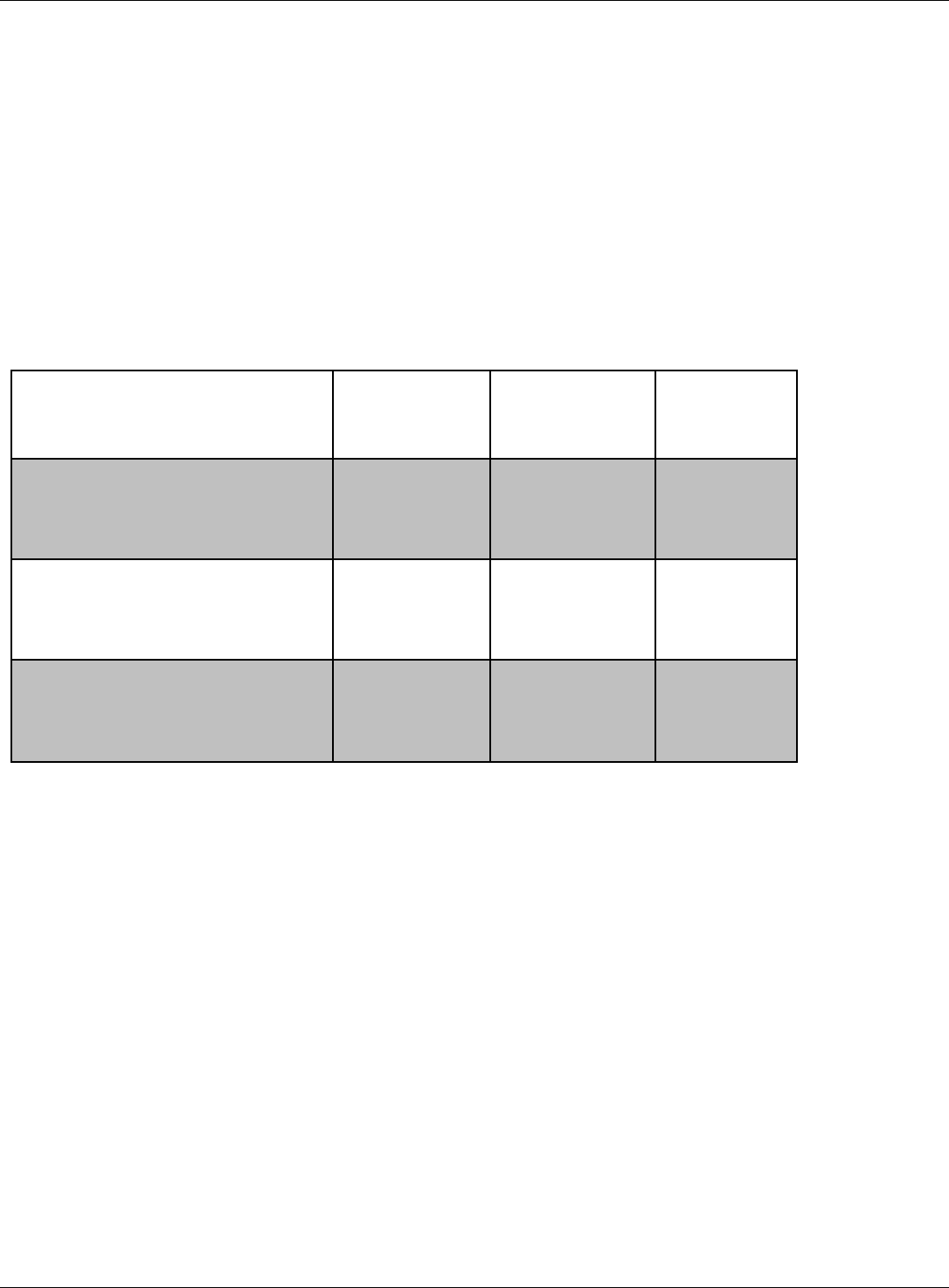
FINANCIAL INFORMATION
2018-2019 ACADEMIC CATALOG 63
•
To use financial aid only for actual educational
expenses; and
•
To complete exit counseling online or to schedule
an exit interview with the Financial Aid Office
within 30 days of graduating or withdrawing from
the University for any reason.
Cost of Attendance
Cost of Attendance (COA) budgets are estimated costs for
completing a full academic year and provides students and
parents with reasonable projected educational costs
associated with full-time attendance at Ashford University.
The University uses these costs to develop budgets for
awarding federal financial aid. Costs will vary according
to the individual student profile; for example, whether the
student is an undergraduate or graduate student or whether
the student is living with parents or not.
The COA includes direct and indirect expenses:
•
Direct expenses include tuition, fees, books, and
supplies.
•
Indirect expenses include room and board, as well
as allowance for personal expenses.
Federal Direct Annual Loan Limits
Federal Direct Annual Loan Limits:
Dependent
Undergraduate
Students
Independent
Undergraduate
Students*
Graduate
Students
First Year Students
Online Programs: 0–24 credits
Total: $5,500
Max Subsidized:
$3,500
Total: $9,500
Max Subsidized:
$3,500
Total
Unsubsidized:
$20,500
Second Year Students
Online Programs: 25–48 credits
Total: $6,500
Max Subsidized:
$4,500
Total: $10,500
Max Subsidized:
$4,500
Total
Unsubsidized:
$20,500
Third Year Students and Beyond
(each year)
Online Programs: 49 credits or greater
Total: $7,500
Max Subsidized:
$5,500
Total: $12,500
Max Subsidized:
$5,500
Total
Unsubsidized:
$20,500
Students who successfully complete the weeks and credits required in an academic year will be eligible
to be packaged for the next grade level for registered coursework following completion of the academic
year. Transfer students who are awarded credits equal to or greater than the number required for
completion of an academic year are eligible to be packaged for the next grade level, where applicable
(e.g., students transferring in 24 credits or greater are eligible to be packaged as a second year
student). Students completing an Associate degree may only be eligible to borrow loan amounts up to a
second year student grade level, regardless of the number of credits transferred in.

FINANCIAL INFORMATION
64 ASHFORD UNIVERSITY
Federal Direct Aggregate Loan Limits*
Dependent
Undergraduate Students
Independent
Undergraduate Students**
Graduate Students
Maximum
Total Debt
$31,000
Max Subsidized:
$23,000
$57,500
Max Subsidized: $23,000
$138,500
Max Subsidized: $65,500
(includes undergraduate
borrowing)
*A borrower who has reached his or her aggregate borrowing limit may not receive additional loans until he or she
has
reduced his or her aggregate loan amount.
**A dependent student whose parent is denied a PLUS loan is allowed to borrow additional Unsubsidized Direct amounts
equal to the amount that independent borrowers are able to borrow.
How to Apply for Financial Aid
Potential students must complete an application for
admission to the University. A student must be accepted
by the University before a financial aid award can be
determined. Students should then complete the Free
Application for Federal Student Aid (FAFSA), and list the
University (School Code: 001881) as a college to receive
information. Also, complete an Institutional Application
for financial aid, the Understanding Your Financial Aid
Offer tool (if applicable), a Master Promissory Note (if
applicable), and Entrance Loan Counseling (if applicable).
The University may also require additional documents to
verify aid eligibility (for additional information, please see
the Verification for Federal Student Aid Eligibility in this
section of the Catalog). It is highly recommended that the
student or parent apply for the Federal Student Aid
Identification Number (FSA ID) through the U.S.
Department of Education at any of the following websites:
•
fsaid.ed.gov;
•
www.fafsa.gov
;
•
http://www.nslds.ed.gov
;
•
http://www.studentloans.gov
; or
•
http://www.studentaid.gov
The FSA ID serves as the student’s electronic signature
and can be used to electronically apply for federal student
aid and access Federal Student Aid records online.
The FSA ID should be kept in a safe location and should
not be shared with anyone.
Free Application for Federal Student Aid
(FAFSA)
The FAFSA is available online at www.fafsa.gov. The
completed form should be signed electronically with the
applicant’s FSA ID so that the student’s financial need can
be evaluated.
Verification for Federal Student Aid
Eligibility
The federal government requires colleges and universities
to verify, or confirm, the data reported by students and
their parent(s) on the FAFSA. The verification process
ensures that eligible students receive all the financial aid to
which they are entitled and prevents ineligible students
from receiving financial aid to which they are not entitled.
A subset of financial aid applications are randomly
selected by the U.S. Department of Education for
verification. If a student is selected for verification, there is
an asterisk next to the Expected Family Contribution
(EFC) on the Student Aid Report (SAR). The SAR may be
viewed online at www.fafsa.gov
under Step 3, “View and
Print Your Student Aid Report.”
Applications selected for verification are placed into a
Verification Tracking Group (V1, V4, or V5). The SAR
indicates with a tracking flag for which group the student
has been selected. Items to be verified are based on the
specific Verification Tracking Group. If a student is
selected for verification, the Financial Aid Office notifies
the student of required documentation.
The student (and parent(s) of dependent students), are
required to provide appropriate and legible supporting
documents to the Financial Aid Office. Depending on the
verification selection, one or more of the following
documents may be requested:
Verification Worksheet;
IRS Tax Return Transcript or use of IRS Data
Retrieval Process;
Documentation of Supplemental Nutrition Assistance
Program (SNAP), if applicable;
Documentation of child support paid, if applicable;
Documentation of other untaxed income, if
applicable;

FINANCIAL INFORMATION
2018-2019 ACADEMIC CATALOG 65
Verification of high school completion (or
equivalent), if applicable; and,
Identity and Statement of Educational Purpose, if
applicable.
Please note that additional documents may be requested at
the Financial Aid Office’s discretion.
Participation in the verification process is not optional.
Students with V1 verification category, who do not submit
the required documentation within 30 days of request may
experience financial aid processing delays, and may be
administratively withdrawn until all supporting
verification documents have been received by the
University’s Financial Aid Office. New online students
who are selected for the customized verification categories
of V4 or V5 must submit the required Identity and
Statement of Educational Purpose documentation prior to
progressing beyond conditional admission status or they
will be administratively withdrawn prior to attending week
four of their first course. Any other required
documentation must be completed within 30 days of
request. Continuing online students who are selected for
the customized verification categories of V4 or V5 must
submit the Identity and Statement of Educational Purpose
within 14 days of notification and any other requested
documentation within 30 days.
If clarification is needed on a verification document or the
Student Aid Report, an advisor from the Financial Aid
Office will contact the student for additional information.
Possible corrections may be required on the SAR. If a
student’s financial aid award in any way changes as a
result of verification, a new award letter is generated and
available via the portal to view or print. Verification
Worksheets can be obtained on the Student Portal.
Financial aid will not be processed or disbursed if an
applicant fails to provide the appropriate and legible
verification documentation.
Fraudulent Activity
If Ashford University obtains any credible information
indicating that an applicant for federal student financial
assistance may have knowingly engaged in fraud or other
criminal misconduct in connection with his or her
application for federal student financial assistance, that
individual will be referred to the Office of Inspector
General (OIG) of the U.S. Department of Education.
Examples of this type of misconduct may include, but are
not limited to:
False claims of independent student status;
False claims of citizenship;
Use of false identities;
Forgery of signatures or certifications; and
False statements of income.
Code of Conduct and Federal Student Aid
Eligibility
In addition to being referred to the OIG, students suspected
and being investigated for Academic Dishonesty and/or
knowingly furnishing false, falsified or forged information
to the University will be placed on a hold and unscheduled
from future courses. For those students utilizing financial
aid, this hold will prevent a financial aid disbursement
until the issue is resolved through either the appeal process
or through a Student Community Standards Formal
Hearing. For more information on the code of conduct
review process please see that section in this Catalog.
NSLDS Fraud Loan Flag and Federal
Student Aid Eligibility
Students who have been convicted of fraudulently
obtaining federal loans are no longer eligible for Federal
Title IV aid. Students will be flagged on the Student Aid
Report (SAR) as comment code 272. Students with this
comment code must refer to the loan holder for resolution.
A financial aid hold will be immediately placed on the
student’s account and students will be unscheduled from
all future courses. For those students utilizing financial aid,
this hold will prevent a financial aid disbursement until the
issue is resolved. If a student is still within the first week
of their course, or within the Ashford Promise/Conditional
Admission Period (CAP), those students will be removed
from their current course as well. Students will be
administratively withdrawn from the University after 14
days of non-attendance.
Identity Reject Flag and Federal Student
Aid Eligibility
Students who meet certain conditions related to identity
issues will be flagged on the Student Aid Report (SAR) as
comment code 281 and are no longer eligible for Federal
Title IV aid until resolved. A financial aid hold will be
immediately placed on the student’s account and students
will be unscheduled from all future courses. For those
students utilizing financial aid, this hold will prevent a
financial aid disbursement until the issue is resolved. If a
student is still within the first week of their course, or
within the Ashford Promise/Conditional Admission Period
(CAP), those students will be removed from their current
course as well. Students will be administratively
withdrawn from the University after 14 days of non-
attendance.
This comment code can only be overridden by the
Department of Education. Students should contact Federal
Student Aid at 202-377-3889 for resolution. The
Department will work with students regarding requesting
documentation directly to clear the issue. If the comment
code is determined to be in error or is resolved, the school

FINANCIAL INFORMATION
66 ASHFORD UNIVERSITY
will receive a reprocessed ISIR with an override comment
code 283.
Unusual Enrollment History and Federal
Student Aid Eligibility
Students who are flagged on the Student Aid Report
(SAR) as comment code 359 or comment code 360, who
did not successfully complete coursework during an
academic year in which they also received a Pell grant
and/or a Federal Direct Loan (not including a Direct
Consolidation Loan or parent PLUS loan), may be
required to submit a letter of explanation and appropriate
college history documentation for review by Ashford. The
letter and explanation must show that there were
extraordinary or unusual circumstances that occurred
which prevented the student from being successful in his
or her studies. All requested documentation related to a
comment code 359 or 360 for new online students must be
submitted and approved by Ashford University prior to a
student progressing beyond conditional admission status or
the student will be administratively withdrawn prior to
attending week four of their first course. For continuing
students, if requested, the Identity and Statement of
Educational Purpose must be submitted and approved
within 14 days of notification or the student will be
administratively withdrawn; any other requested
documentation must be submitted and approved within 30
days. Financial aid will not be processed or disbursed if an
applicant fails to provide the requested documentation.
Total and Permanent Disability Discharge
If a student has had previous student loans discharged due
to total and permanent disability they must be counseled
by a Financial Services Advisor regarding obligations on
borrowing new loans. Students may also be required to
submit additional documentation to be eligible to receive
financial aid funding. If a student is in the process of
having previous student loans discharged and is applying
for financial aid, their application for dismissal of loans
could potentially be rejected by the loan servicer and loans
may go into repayment.
General Financial Aid Reapplication
Process
It is the student’s responsibility to reapply for funding as
necessary by completing the FAFSA and any subsequent
document requested by the Financial Aid Office. Students
must reapply 90 days prior to the start of each academic
year. Tardiness in applying could result in disqualification
of the Financial Aid Plan and requires compliance with the
terms and conditions of the Cash Plan.
If a student does not complete the financial aid process in
advance of his or her last date of attendance, he or she
forfeits eligibility for financial assistance that might
otherwise have been available during that period of
enrollment, and becomes fully responsible for all
remaining balances.
Undergraduate Programs
Renewed Loan Eligibility: A student enrolled in an
undergraduate program may renew his or her loan for the
next academic year once these conditions have been met:
•
If required, submission of a new award year
FAFSA and any subsequent documents requested
by the Financial Aid Office;
•
The student has completed the initial 40-weeks of
instructional time and the loan period has ended;
•
The student has successfully completed 24
undergraduate-level credits; and
•
The student is registered for another course.
Graduate Programs
Renewed Loan Eligibility: A student enrolled in a graduate
program may renew his or her loan for the next academic
year once these conditions have been met:
•
If required, submission of a new award year
FAFSA and any subsequent documents requested
by the Financial Aid Office;
•
The student has completed the initial 36-weeks of
instructional time and the loan period has ended;
•
The student has successfully completed 18
graduate-level credits; and
•
The student is registered for another course.
Entrance Counseling for Federal Loan
Recipients
All first-time Federal Direct loan recipients who have
received a Financial Aid Award offer and have accepted
the Federal Direct Loan(s) are required to complete online
Federal Direct Loan Entrance Counseling and to sign a
Federal Direct Loan Master Promissory Note prior to the
school receiving the funds. First-time borrowers of federal
loans at Ashford University must complete entrance
counseling as mandated by federal regulations. This
requirement is met by completing an entrance counseling
exercise online. Federal loans (Direct Loans and Grad
PLUS) cannot be released to a student’s account until this
federal requirement is satisfied. Students will be provided
information on how to complete the required counseling
exercises along with their financial aid award information.
A PLUS loan applicant, either a parent or a graduate or
professional student, that has an adverse credit history
must complete additional required PLUS loan counseling
via the StudentLoans.gov website.

FINANCIAL INFORMATION
2018-2019 ACADEMIC CATALOG 67
Types of Financial Aid
In general, financial aid is provided in the form of grants
and loans. Part-time work programs are also available for
enrolled students. While some students may qualify for
one type of financial assistance, others may qualify for a
combination of two or more programs. The financial aid
packaging process is awarding aid without exceeding the
student’s financial need. This packaging of financial aid
allows Ashford University to assist a larger number of
students and to award aid suited to the student’s individual
needs. Each student may be expected to make a financial
contribution toward educational costs based on family
circumstances and ability to pay. The family’s share of the
cost and eligibility for aid are determined through the Free
Application for Federal Student Aid (FAFSA).
State Aid Programs
Please visit the Education Resource Organization
Directory (EROD) at
wdcrobcolp01.ed.gov/Programs/EROD/index.cfm
for a list
of state grant agencies. Students may contact these
agencies directly for information regarding state grants
that may be available.
Federal Aid Programs (Title IV)
Federal Pell Grants:
Federally funded grants for
undergraduate students who have not earned a bachelor’s
or professional degree. These grants are based on financial
need and enrollment status at the University. Pell Grants
provide a foundation of financial aid for many students to
which other aid may be added. To determine eligibility for
Federal Pell Grants, the U.S. Department of Education
uses a standard formula to evaluate the information
supplied to them from the student. This formula produces
an Expected Family Contribution (EFC) amount. The
amount a student receives for a Pell Grant depends on a
student’s EFC, cost of attendance, status as either a full-
time student or part-time student, and whether the student
will attend school for a full academic year. Pell Grants are
limited each award year in amounts depending upon
program funding and a maximum per-student amount.
Grants are currently awarded up to a maximum of $6,095
per academic year (award year 2018-2019). The amount of
Federal Pell Grant funds a student may receive over his or
her lifetime is limited to be the equivalent of six years or
600% of Pell Grant funding.
Federal Supplemental Educational Opportunity Grants
(FSEOG):
Grants funded by the federal government and
the University to aid undergraduate students with
exceptional financial need. The University determines who
will receive FSEOG based on factors such as need, Pell
Grant eligibility, and availability which may vary by
payment period. The award amount could be up to $600
per academic year at Ashford University based on
allocations.
Direct PLUS Loans (PLUS):
Long-term, low-interest rate
loans made available to eligible parents to help pay student
expenses at an approved postsecondary educational
institution. These are loans that must be repaid. An eligible
parent may borrow up to the student's cost of attendance,
minus all other financial aid resources. The lender is the
U.S. Department of Education. Repayment begins once the
loan is fully disbursed. The parent borrower may contact
his or her loan servicer to request a deferment. These loans
are subject to credit approval and are available only to aid
dependent students.
Direct Graduate PLUS Loans (Available for Graduate
Programs Only):
Long-term, low-interest unsubsidized
loans for graduate students. These are loans that must be
repaid. The student may borrow up to the cost of
attendance, minus the Unsubsidized Direct Loan (if
applicable), all other financial aid received, and any other
aid resources. An eligible student may borrow directly
from the Federal government. Repayment begins six
months after the student ceases to be enrolled at least half-
time. These loans are subject to credit approval.
Federal Direct Loans:
Direct Loans are low-interest loans
for students to help pay for the cost of a student’s
education when attending post-secondary education after
high school. These are loans that must be repaid. The
lender is the U.S. Department of Education. Students may
borrow directly from the federal government through the
Direct Loan servicer. While the federal government is the
lender for Direct Loans, the application and origination
process occurs through the University. To be eligible for a
Direct Loan, a student must be enrolled in an eligible
degree program on at least a half-time basis. The Direct
Loan Program offers a lower interest rate than most
commercial loans. The federal government pays the
interest on a Subsidized Direct Loan* for undergraduate
students while attending at least a half-time program or
during a period of deferment, as long as the student shows
a demonstrated financial need. An origination fee may be
deducted from the student’s loan amount that is disbursed.
If a student does not demonstrate a financial need or is a
graduate student, the Unsubsidized Direct Loan may be
available and begins to accrue interest while the student is
in school. Please refer to the Federal Direct Annual Loan
Limits and Federal Direct Aggregate Loan Limits tables in
this section of this Catalog. If a student received federal
student financial aid funds, and withdraws from the
institution, after review of the student’s account to
determine if there are payments in excess of charges, the
student is entitled to receive a refund of funds not paid
from federal financial aid funds. The standard repayment
plan begins six months after the student graduates or is no
longer enrolled at least half-time, and up to 10 years may

FINANCIAL INFORMATION
68 ASHFORD UNIVERSITY
be allowed to repay the loan(s). Students who meet
eligibility requirements may request a deferment or
forbearance of their loan payment. The following are
circumstances under which a student may qualify for a
deferment/forbearance: currently enrolled in school on at
least a half-time basis; graduate fellowship; rehabilitation
training; unemployment; economic hardship; military
service; or post-active duty student. Please refer to
www.studentaid.ed.gov
for more information about current
loan interest rates and how to apply for a Direct Loan and
other repayment options.
*Beginning with the 2013-2014 Financial Aid year, there
is a limit on the maximum period of time (measured in
academic years) that a student can receive Subsidized
Direct Loans. This applies to first-time borrowers only (or
students who had previously borrowed and paid off federal
student loans). In general, a student may not receive
Subsidized Direct Loans for more than 150% of the
published length of his or her program. Students who
change programs may have their subsidized eligibility
impacted and should contact their Academic Advisor for
more information.
Federal College Work-Study Program (FWS):
Funded by
the federal government and the University. To be eligible,
a student must complete the FAFSA, have a documented
financial need and maintain satisfactory progress, as
defined for financial assistance. Students may be employed
by the University or off-campus federal, state, and local
public agencies. They may also be employed by certain
private nonprofit organizations. Work-Study awards do not
guarantee a student employment with an eligible employer.
In addition, funds earned through the FWS program do not
automatically count against the student’s billed tuition.
Contact the Financial Aid Office for additional
information.
Iraq and Afghanistan Service Grant:
Federally funded
grants for undergraduate students. Students may be eligible
for this grant if the student was not eligible for a Federal
Pell Grant on the basis of their Expected Family
Contribution but meets the remaining Federal Pell Grant
eligibility requirements, and the student’s parent or
guardian died as a result of U.S. military service in Iraq or
Afghanistan after September 11, 2001; and if at the time of
the parent or guardian’s death the student was either less
than 24 years old or was enrolled in college.
Other Available Financial Aid
Students should check with their high school, area civic
groups, businesses, and churches to determine availability.
See Outside Scholarships and Private Loan in this section
of the Catalog.
Financial Aid Plan for Online Programs
To select the Financial Aid plan as the primary payment
option for enrollment in an online program, students must
be eligible for enough in federal loan funds to cover 50%
of the cost of tuition and fees for an academic year or
$5,500, whichever is less.
Under this plan when used as a primary payment option
for enrollment in an online program, students are expected
to submit all financial aid documents prior to their start
date. Failure to submit required financial aid documents
may result in the delay of a student’s start or
administrative withdrawal from his or her current course.
Students who are otherwise qualified may restart their
program at a later date when all required financial aid
documentation is submitted. If a student is unable to
qualify for financial aid, he or she must select another
payment option and is held responsible for any outstanding
balances incurred.
Continuous attendance with no attendance breaks greater
than 14 days or an approved Academic Leave is required
to retain eligibility for disbursed federal financial aid
funds. The University may schedule periods of non-
enrollment during which no courses are scheduled. When
this occurs, such as during the annual winter break, the
non-enrollment period may extend the 14 day limit to
include the break. The University may be required to
return the federal funds of students with reduced financial
aid eligibility due to attendance breaks or Academic
Leaves, leaving the student responsible to the University
for any balance on the student’s account. Students who are
awarded Title IV aid in an amount exceeding the tuition
and fees assessed by the University, and/or students who
withdraw before completion of the term or program, may
be required to return unearned funds to the Department of
Education and/or Ashford University. Students in this
situation who received excess funds stipend checks may be
required to return those funds to the institution. Students
are strongly encouraged to contact the Financial Services
Department to understand the potential impact attendance
changes may have on their financial aid as far in advance
as possible.
Financial Aid Specific to Undergraduate
Programs
Definition of Academic Year
Week = 7 calendar days
Full Academic Year Definition = a minimum of 40 weeks
of instructional time and 24 successfully earned credits
that apply toward the student’s program of study. Please
note: courses are offered 50 weeks in each calendar year.
Therefore, students can complete five academic years in
four calendar years.

FINANCIAL INFORMATION
2018-2019 ACADEMIC CATALOG 69
A full Academic Year consists of two (2) increments that
may be referenced as payment periods, financial aid
payment periods or Satisfactory Academic Progress (SAP)
increments.
•
The first payment period in the Academic Year
ends when half of the credits and weeks required
for a completed Academic Year have been met.
•
The second payment period in the Academic Year
ends when the requirements for a completed
Academic Year have been met.
Final Academic Year Exceptions:
•
For any remaining portion of a program that is half
of an Academic Year or less, the remaining
portion is treated as a single payment period.
•
For any remaining portion of a program that is
more than half of an Academic Year but less than
a full Academic Year, the remaining portion is
divided into two payment periods and the first
payment period is the period in which the student
successfully completes half of the credits and half
of the weeks of instructional time in the remaining
portion.
Satisfactory Academic Progress (SAP) is evaluated at the
end of each payment period.
Loan Disbursement Information
Loan periods for undergraduate programs are 40 weeks in
length. Undergraduate students can expect two (2)
disbursements (one per payment period) each academic
year. An academic year for undergraduate students is
comprised of eight (8) successfully completed courses.
Each payment period is four (4) successfully completed
courses. The beginning of the loan period will coincide
with the beginning date of the first course in the student’s
academic year. See Financial Aid Specific to
Undergraduate Programs Definitions in this section of the
Catalog for more information about loan periods
First Disbursement:
To receive a disbursement, students
must have successfully completed the financial aid
application process, including verification, if applicable.
The first disbursement will be delivered no earlier than the
first week a student has posted attendance in the first
course. For students who are conditionally admitted with
the Ashford Promise, the first disbursement will be
delivered no earlier than at the time of matriculation
during the 4th week of attendance in the first course. For
first-time undergraduate borrowers, the first disbursement
cannot be disbursed until 30 days after the first day of the
student’s program of study. The first disbursement is
intended to be applied toward the first four (4) successfully
completed courses and any applicable fees.
Second Disbursement:
The second disbursement will be
delivered once a student has successfully completed at
least 12 undergraduate-level credits and is intended to be
applied toward the remaining four (4) successfully
completed courses and any applicable fees in the second
payment period. A student must also be registered for and
start the next class in the second payment period, and at
least half of the loan period (20 weeks) must have passed.
For students in a final academic year that is less than a full
academic year but more than half of an academic year, the
second disbursement will occur when the student has
completed half the credits and half the weeks of
instructional time remaining. Post Withdrawal
Disbursement (PWD) eligibility is calculated by the
University after withdrawal from a payment period and is
never guaranteed.
Note: Grades of “W,” “WF,” “I,” or “F” do not count
toward successfully completed courses. Grades of “D+,”
“D,” or “D-” that do not count toward successful
completion of required competency courses and thus must
be repeated, also do not count toward successfully
completed courses. In addition, students who are required
or choose to repeat courses will not have the repeated
course counted toward successfully completed courses.
Once a grade of “I” is successfully completed for a
permanent grade as outlined previously, the course will
count toward successful completion.
Financial/Financial Aid Implications for Residents of
California, Mississippi, and Tennessee:
Financial aid may
be certified but will not be disbursed until proof of
graduation from high school or equivalent has been
received by Ashford University. To allow time for receipt
of this proof, students choosing the “financial aid”
payment option will have their first disbursement of
financial aid delayed until the later of eleven (11) calendar
weeks post start date or the conclusion of the first six (6)
attempted credits. Students whose proof of graduation
from high school or equivalent is not received within the
time frame described previously will:
Be placed on finance hold and unscheduled from
future courses until proof of graduation from high
school requirements are satisfied and financial aid is
certified, or
Pay cash to bring their account current and for all
courses they take until proof of graduation from high
school requirements have been received and financial
aid has been disbursed.
Tuition Payment and Financial Aid
Tuition and fees are billed on a financial aid payment
period basis. A payment period is a minimum of 20 weeks
of instructional time and 12 successfully earned credits in
undergraduate programs and 18 weeks of instructional

FINANCIAL INFORMATION
70 ASHFORD UNIVERSITY
time and 9 successfully earned credits in graduate
programs. Students who have financial aid that is less than
the cost of tuition and fees incurred during the payment
period, drop a course with less than a 100% refund, or
complete a course with an unsuccessful grade may be
required to pay out of pocket to cover a shortfall. Students
who fall below the minimum number of credit hours to
receive a subsequent disbursement may have their
financial aid funds reduced or prorated.
Online Bookstore Voucher (Undergraduate)
Undergraduate students may be eligible for a voucher to
purchase required books and supplies through the
University’s online bookstore. Vouchers are automatically
generated and emailed to eligible students within the first
seven days of the financial aid payment period.
This online bookstore voucher allows the student to
purchase required books and supplies with an automated
charge posted to his or her student account against
anticipated financial aid, and only when the anticipated
financial aid is greater than the amount of tuition and fees
for the payment period. These voucher purchases will be
paid by the student’s financial aid funds once
disbursements are posted to the student’s account. In all
cases, the student is obligated to reimburse Ashford
University in full for the amount of charges incurred when
the bookstore voucher is used whether or not sufficient
financial aid funds are available on the student’s account.
Such a situation may occur, but is not limited to, when:
•
The bookstore charges are not able to be charged
against financial aid;
•
The student does not receive the anticipated
financial aid; or
•
The student does not receive sufficient financial
aid to cover the full amount of the bookstore
charges.
Online bookstore vouchers will only be issued to students
who:
•
Are eligible for a Federal Pell Grant; and
•
Are estimated to be eligible for federal aid
disbursements in excess of tuition and fee charges;
and
•
Complete their financial aid file 21 calendar days
prior to the start of the financial aid payment
period, or have their financial aid package
completed 10 calendar days prior to the start of the
payment period.
Online bookstore vouchers expire 21 days after the
financial aid payment period begins and may only be used
at the University’s online bookstore. These vouchers are
not transferrable and cannot be redeemed for cash. Only
one voucher per eligible student will be issued each
financial aid payment period. Students are not obligated to
use the voucher to purchase their books. Students may opt
out by simply not using the book voucher and purchasing
their books using personal funds.
Questions pertaining to the Online Bookstore Voucher
should be directed to the Financial Services Department.
Financial Aid Specific to Graduate
Programs
Definition of Academic Year
Week = 7 calendar days
Full Academic Year Definition = a minimum of 36 weeks
of instructional time and 18 successfully earned credits
that apply toward the student’s program of study.
A full Academic Year consists of two (2) increments that
may be referenced as payment periods, financial aid
payment periods or Satisfactory Academic Progress (SAP)
increments.
•
The first payment period in the Academic Year
ends when half of the credits and weeks required
for a completed Academic Year have been met.
•
The second payment period in the Academic Year
ends when the requirements for a completed
Academic Year have been met.
Final Academic Year Exceptions:
•
For any remaining portion of a program that is half
of an Academic Year or less, the remaining
portion is treated as a single payment period.
•
For any remaining portion of a program that is
more than half of an Academic Year but less than
a full Academic Year, the remaining portion is
divided into two payment periods and the first
payment period is the period in which the student
successfully completes half of the credits and half
of the weeks of instructional time in the remaining
portion.
Satisfactory Academic Progress (SAP) is evaluated at the
end of each increment.
Loan Disbursement Information
First Disbursement:
To receive a disbursement, students
must have successfully completed the financial aid
application process, including verification, if applicable.
The first disbursement will be delivered no earlier than the
first week a student has posted attendance in the first
course. For students who are conditionally admitted with
the Ashford Promise, the first disbursement will be
delivered no earlier than at the time of matriculation
during the 4th week of attendance in the first course. The
first disbursement is intended to be applied toward the first

FINANCIAL INFORMATION
2018-2019 ACADEMIC CATALOG 71
three (3) successfully completed courses and any
applicable fees.
Second Disbursement:
The second disbursement will be
delivered once a student has successfully completed at
least 9 graduate-level credits and is intended to be applied
toward the remaining three (3) successfully completed
courses and any applicable fees in the second payment
period. A student must also be registered for and start the
next class in the second payment period, and at least half
of the loan period (18 weeks) must have passed.
Note: Grades of “W,” “WF,” “I,” or “F” do not count
toward successfully completed courses. In addition,
students who are required or choose to repeat courses will
not have the repeated course counted toward successfully
completed courses. In addition, students who are required
or choose to repeat courses in which they earned a grade of
“C,” will not have the repeated course counted toward
successfully completed courses. Once a grade of “I” is
successfully completed for a permanent grade as outlined
previously, the course will count toward successful
completion.
Tuition Payment and Financial Aid
Each financial aid disbursement is intended to cover
tuition costs for at least 9 graduate-level credits. However,
students who do not meet the criteria listed previously for
receipt of loan funds may be required to pay for more than
the minimum number of courses before a subsequent
disbursement is available. Students who do not
consistently register for sequential courses may not receive
their financial aid disbursements.
Financial Aid and Satisfactory Academic
Progress Requirements
Students are required to make satisfactory academic
progress in order to maintain eligibility for Title IV federal
financial aid. See the Satisfactory Academic Progress
(SAP) policy in the Undergraduate Programs or Graduate
Programs section of this Catalog for further details related
to SAP review and requirements, and information related
to conditions of Academic and Financial Aid Warning,
Academic and Financial Aid Probation and Probation-
Academic Plan during which students maintain Title IV
eligibility.
Note: Grades of “W,” “WF,” “I,” or “F” do not count
toward successfully completed courses. Grades of “D+,”
“D,” or “D-” that do not count toward successful
completion of required competency courses and thus must
be repeated, also do not count toward successfully
completed courses. In addition, students who are required
or choose to repeat courses will not have the repeated
course counted toward successfully completed courses.
Once a grade of “I” is successfully completed for a
permanent grade as outlined previously, the course will
count toward successful completion.
Exit Counseling for Federal Loan
Recipients
Students who leave the University or whose student status
falls below half-time must complete exit counseling for
federal loans (Direct and Grad PLUS) within 30 days of
separation from the school as mandated by federal
regulations. Students will be emailed instructions on how
to complete their exit counseling online. Students may
contact the Financial Aid Office to receive individual
repayment or account information.
Return of Title IV Funds
The Financial Aid Office is required to perform a Return
of Title IV Funds calculation when a Title IV recipient
withdraws from his or her program. A student may
withdraw from the University at any time either verbally
or in writing. It is highly recommended that students speak
with the Financial Services Department prior to
withdrawing. The standard formula for Return of Title IV
is calculated on a percentage basis by comparing the total
number of days the student completed to the total number
of days in the payment period. The calculation determines
the amount of Title IV the student is eligible to keep and
the amount of Title IV funds which are required to be
returned. Students who do not complete at least 60 percent
of a payment period will have part or all of their financial
aid disbursed for this period returned. This applies to
students who have officially or unofficially withdrawn.
The Return of Title IV calculation may result in the
student owing the University for unpaid tuition and fees
and Department of Education for grants and Direct Loans.
For Return of Title IV calculation purposes, a payment
period consist of one-half of the credit hours and weeks
required for the academic year being attended at the time
of withdrawal. For additional information on academic
year and payment period, please refer to Definition of
Academic Year in this section of this Catalog.
If a return of Title IV funds creates a balance on the
student’s account, the student will be responsible for full
payment. A student will not be allowed to re-enter,
register, or receive an official academic transcript until the
outstanding balance has been paid in full or is currently on
an approved payment plan. If loan funds need to be
returned by the student, the student may pay these funds
back under the original terms of the loan. If grant funds
need to be returned by the student, the University will
return the funds on behalf of the student. The University
will return the unearned Title IV funds in the following
order:
•
Unsubsidized Direct Loan

FINANCIAL INFORMATION
72 ASHFORD UNIVERSITY
•
Subsidized Direct Loan
•
Direct Graduate PLUS
•
Direct Parent PLUS
•
Federal Pell Grant
•
FSEOG
•
TEACH Grant
•
Iraq and Afghanistan Service Grant
For information regarding the determination of withdrawal
date, please see the Withdrawal from the University policy
in the General Academic Information and Policies section
in this Catalog.
Direct Loan Grace Period
Direct Subsidized and Unsubsidized Loans:
When a student graduates, withdraws or is no longer
enrolled at least halftime in an eligible program, he or she
will be granted a six-month grace period for his or her
Direct Subsidized and Unsubsidized Loans for which the
student is not required to make a loan payment. The grace
period begins the day after the student stops attending or
drops below half time enrollment. At the end of the grace
period, repayment begins. For Direct Unsubsidized Loans
any interest that accumulates during the deferment period
will be added to the unpaid principal.
Direct Parent and Graduate PLUS Loan:
There is no grace period for Direct PLUS loans. However,
parent PLUS borrowers, graduate, or professional PLUS
borrowers can request to defer repayment for an additional
six (6) months after the student graduates, withdraws or
drops below half-time enrollment. In doing so, any interest
that accumulates during the deferment period will be
added to the unpaid principal. At the end of the grace
period, repayment begins.
Direct Loan Repayment
There are several choices of repayment plans. The loan
servicer will notify the student (and/or parent) of the date
the loan goes into repayment. If the student does not
choose a repayment plan, they will be placed on the
standard repayment plan. The longer the loans are in
repayment, the more interest that will be accrued. If a
student obtains a loan to pay for their educational program,
the student will have to repay the full amount of the loan
plus interest, less the amount of any funds returned to the
lender determined after withdrawal during the Return of
Title IV Funds calculation.
Standard Repayment Plan:
Under this plan, your monthly payments are a fixed
amount of at least $50 each month and made for up to 10
years for all loan types except Direct Consolidation Loans
and FFEL Consolidation Loans.
Graduate Repayment Plan:
The payments start out low and will increase every two
years. The length of the repayment period will be up to 10
years. More interest is paid over time on this plan.
Extended Repayment Plan:
The student must have more than $30,000 in Direct Loan
debt. Under the extended plan the student can take up to 25
years for repayment and two payment options: fixed or
graduated. Fixed payments are the same amount each
month, while the graduate payments start low and increase
every two years.
Pay As You Earn Repayment Plan:
Maximum monthly payments are 10% of discretionary
income, the difference between the adjusted gross income
and 150% of the poverty guideline for the family size and
state of residence. Payments change as income changes.
Student (or parent) must have a partial financial hardship.
The length of the repayment period will be up to 20 years.
Income Contingent Repayment Plan:
(Not available for parent PLUS Loans)
This plan gives the flexibility to meet the Direct Loan
obligation without causing undue financial hardship. Each
year the monthly payments are calculated on the basis of
the student’s adjusted gross income (AGI, plus spouse’s
income, if married), family size, and the total number of
Direct Loans. The maximum repayment period is 25 years.
Income-Based Repayment Plan:
The required monthly payment will be based on the
student’s (or parent’s) income during any period when he
or she has a partial financial hardship. The monthly
payment is adjusted annually. The maximum repayment
period may not exceed 10 years.
Payment Support
If the student (or parent) has trouble making the loan
payment, they should contact the loan servicer as soon as
possible. There may be options such as changing
repayment plan, deferment, or forbearance. Receiving a
deferment or forbearance is not automatic. The student
must apply for it. If there is uncertainty as to who the
servicer is, go to NSLDS at www.nslds.ed.gov
and use
your FSA ID to access all loan information.
Deferment:
A deferment is a period during which repayment of the
principal and interest is temporarily delayed. Depending
on the type of loan, the federal government may pay the
interest on the subsidized loan during the period of
deferment.
A student may qualify for a deferment while he or she is:
•
Enrolled at least half time in an eligible program at
an eligible institution

FINANCIAL INFORMATION
2018-2019 ACADEMIC CATALOG 73
•
Unemployed or meet the rules for economic
hardship (limited to 3 years)
•
Based on qualifying active duty service in the U.S.
Armed Forces or National Guard.
Forbearance:
If the student cannot make his or her scheduled loan
payment and does not qualify for a deferment, he or she
may be able to receive a forbearance. Forbearance allows
the student to temporarily stop making payments,
temporarily make smaller payments, or extend the time for
making payments. Interest will continue to accrue on the
subsidized and unsubsidized loans (including all PLUS
loans).
Some common reasons for receiving forbearance are:
•
Illness
•
Financial hardship
•
Serving in a medical or dental internship
•
Residency
If the student has defaulted on a student loan, he or she is
not eligible for a deferment or forbearance.
Consolidation
Consolidation is the process of combining multiple federal
student loans into one loan so there is only one monthly
payment. Loan consolidation can greatly simplify loan
repayment by centralizing loans into one bill and can
lower monthly payments by offering up to 30 years
repayment. However, by consolidating, the length of the
repayment period is increased. Students should understand
the advantages and disadvantages of consolidation before
submitting an application for consolidation. For more
information, please visit www.studentaid.ed.gov
.
Consequences for Not Making Loan
Payments
If the student (or parent) does not make a loan payment or
stops making payments and does not get a deferment or
forbearance, the loan could go into default. To default
means the student (or parent) fails to make the loan
payment as scheduled according to the terms and
conditions of the promissory note. Consequences for not
making the loan payment could result in one or more of
the following:
•
The entire unpaid balance with interest due and
payable;
•
Loss of eligibility of deferment, forbearance or
repayment plan;
•
Loss of eligibility of future federal financial aid;
•
The account being assigned to an outside credit
agency;
•
Loan being reported to the three major credit
bureaus, damaging credit ratings;
•
Federal and state income tax being withheld;
•
Student loan debt increasing due to late fees,
additional interest, court costs, collection fees,
attorney’s fee and any other costs associated with
the collection process;
•
Wage garnishment.
For more information regarding Direct Loan Repayment
please visit www.direct.ed.gov
.
Questions Regarding Financial Aid
Students should call the Financial Aid Office for help in
completing forms, answering questions, and explaining the
award process. The Financial Aid Office telephone number
for students is (800) 798-0584.
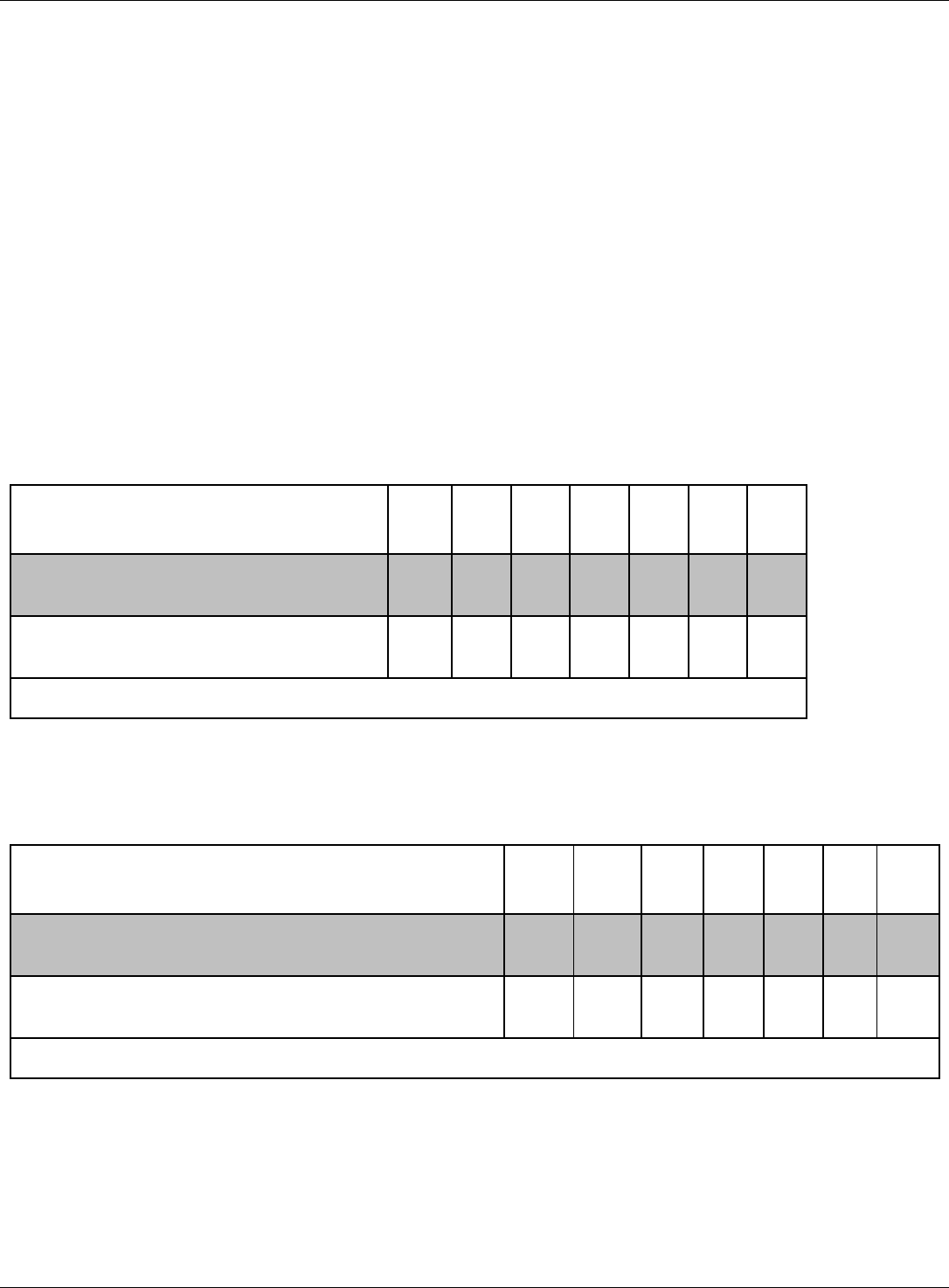
FINANCIAL INFORMATION
74 ASHFORD UNIVERSITY
University Refund Policies
The following policies govern refunds to students in case of course drop, withdrawal, or dismissal from the University.
Students who do not have federal financial aid will have their charges and financial credits assessed in accordance with
the refund policy. Any nonfederal aid will be prorated and refunded using the same percentages in the refund policy.
Students utilizing financial aid who drop or are administratively dropped from the institution are at risk of losing part or
all of their financial aid if they do not successfully complete sixty percent (60%) of the payment period.
Institutional Tuition Refund Policy
Students who drop or are administratively withdrawn from a course (or the institution) may be eligible for a tuition
refund. Tuition refunds are based upon course length. Return of Title IV is based on the length of the payment period.
Students should refer to the Ashford University Tuition Refund Schedule or applicable state refund policy for specific
information regarding tuition refunds. Students whose last date of attendance (LDA) is during the indicated week will
receive the tuition credit indicated. If a student drops on or before the start date of a course, a 100% refund of the total
cost of the course will be provided.
Ashford University Tuition Refund Schedule
The Ashford University Tuition Refund Schedule applies to students who drop or are administratively dropped from a
course or the institution and who are not otherwise covered under a state-specific tuition refund policy.
PROGRAM
Course
Length
1st*
week
2nd*
week
3rd*
week
4th*
week
5th*
week
6th*
week
No term-Based Graduate Level Programs
(Online Formats) Refund % by Course LDA
6
100%
50%
0%
0%
0%
0%
Nonterm-Based Undergraduate Level Programs
(Online Formats) Refund % by Course LDA
5
100%
50%
0%
0%
0%
N/A
*Refund percentage applied based on week of last date of attendance (LDA).
Ashford University First Course Refund Schedule (Ashford Promise)
The Ashford University First Course Refund Schedule (Ashford Promise) applies to degree-seeking students who drop or
are administratively dropped during their first course. The Ashford University First Course Refund Schedule (Ashford
Promise) is applicable to the first course taken as a degree-seeking student at the undergraduate and graduate level.
PROGRAM
Course
Length
1st*
week
2nd*
week
3rd*
week
4th*
week
5th*
week
6th*
week
Nonterm-Based Graduate Level Programs
(Online Formats) Refund % by Course LDA
6
100%
100%
100%
0%
0%
0%
Nonterm-Based Undergraduate Level Programs
(Online Formats) Refund % by Course LDA
5
100%
100%
100%
0%
0%
N/A
*Refund percentage applied based on week of last date of attendance (LDA).
Undergraduate Students Using Military Tuition Assistance Refund Policy
The Undergraduate Students Using Military Tuition Assistance policy applies to undergraduate students using military
Tuition Assistance for a course. Military Tuition Assistance users will have tuition refunded according to this policy
unless the student resides in a state where that state’s tuition policy is more favorable to the student. Military Tuition
Assistance funds will be refunded to the branch of military from which it originated and never to the student.

FINANCIAL INFORMATION
2018-2019 ACADEMIC CATALOG 75
The following pro rata refund schedule applies when students drop or are administratively dropped from a course or the
institution**:
If Student Drops
or Withdraws on
Refund Percentage
for 5-week Courses*
Day 1-7
100%
Day 8
77%
Day 9
74%
Day 10
71%
Day 11
69%
Day 12
66%
Day 13
63%
Day 14
60%
Day 15
57%
Day 16
54%
Day 17
51%
Day 18
49%
Day 19
46%
Day 20
43%
Day 21
40%
Day 22+
0%
*Refund percentage applied based on last date of attendance (LDA).
**When the drop meets the requirements detailed under Military
Deployment
Provisions, students may withdraw from any current course and
receive a 100% tuition credit.
California State Refund Policy
The California State Refund Policy applies to residents of California.
The following pro rata refund schedule applies when students drop or are administratively dropped from a course or the
institution:
If Student Drops or Withdraws on
Refund Percentage for 5-week Courses*
Day 1-7
100%
Day 8
77%
Day 9
74%
Day 10
71%
Day 11
69%
Day 12
66%

FINANCIAL INFORMATION
76 ASHFORD UNIVERSITY
Day 13
63%
Day 14
60%
Day 15
57%
Day 16
54%
Day 17
51%
Day 18
49%
Day 19
46%
Day 20
43%
Day 21
40%
Day 22+
0%
*Refund percentage applied based on last date of attendance (LDA).
If Student Drops or Withdraws on
Refund Percentage for 6-week Courses*
Day 1-7
100%
Day 8
81%
Day 9
79%
Day 10
76%
Day 11
74%
Day 12
71%
Day 13
69%
Day 14
67%
Day 15
64%
Day 16
62%
Day 17
60%
Day 18
57%
Day 19
55%
Day 20
52%
Day 21
50%
Day 22
48%
Day 23
45%
Day 24
43%
Day 25
40%
Day 26+
0%
*Refund percentage applied based on last date of attendance (LDA).
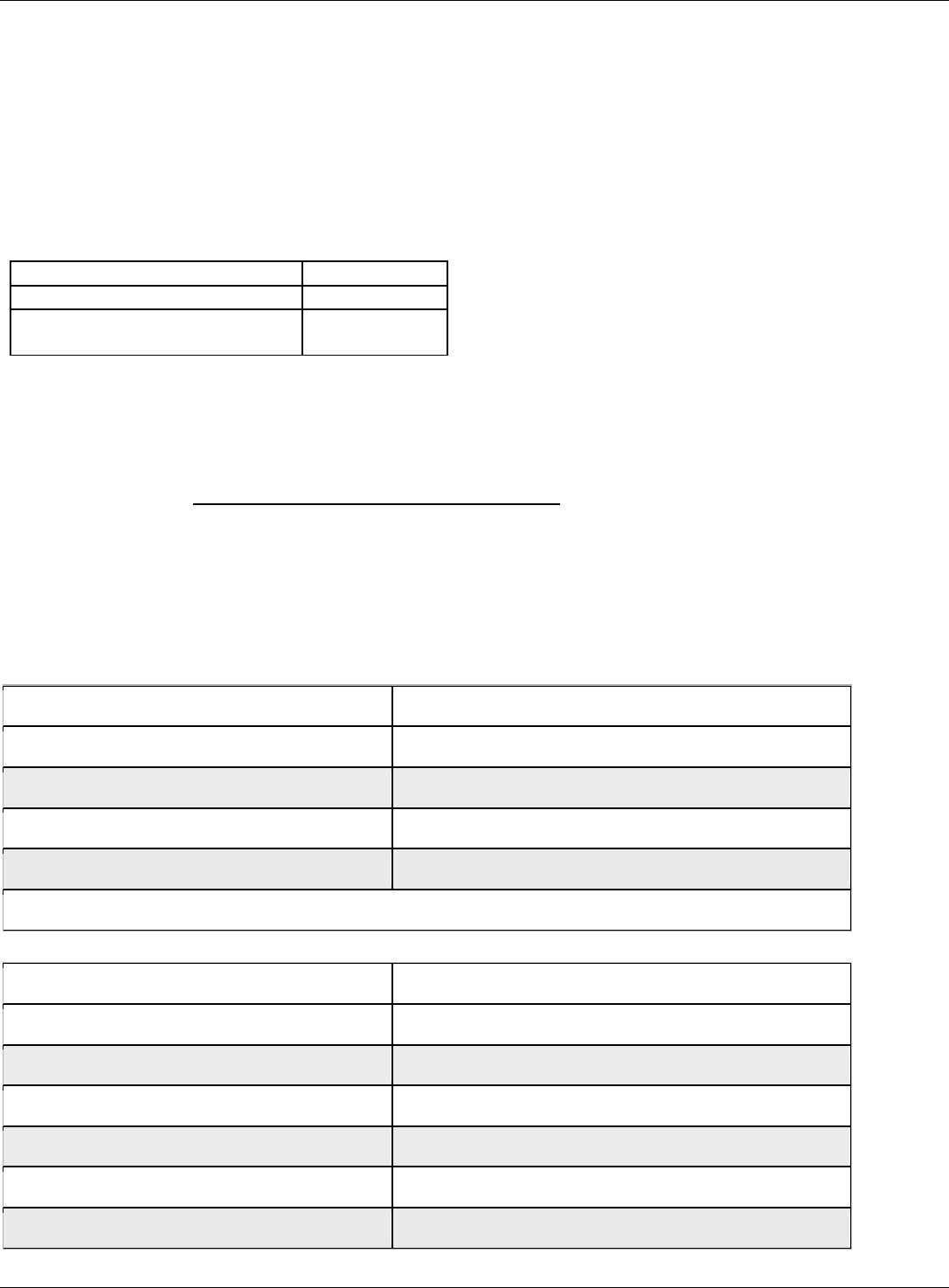
FINANCIAL INFORMATION
2018-2019 ACADEMIC CATALOG 77
The institution shall refund any credit balance on the student’s account within 45 days after the date of the student’s
completion of, or withdrawal from, the program in which the student was enrolled.
Iowa State Refund Policy
The Iowa State Refund Policy applies to residents of Iowa who are enrolled in online courses and all students enrolled in
Clinton campus programs and courses.
If a student enrolled in a course drops, or is administratively dropped, from the course and his or her last date of
attendance (LDA) in the course is on or before the drop deadline listed in the following table, a 100% refund of the total
cost of the course will be provided.
Course/Term Length (weeks)
Drop Deadline
5
Week 1
6
Week 1
10
Week 1
If a student enrolled in a course drops, or is administratively dropped, from the course and his or her last date of
attendance (LDA) in the course is beyond the drop deadline, the tuition refund is calculated according to the subsequent
formula.
Tuition X
Remaining # of calendar days in the
course/term
X 90%
Total # of calendar days in the course/term
Kansas State Refund Policy
The Kansas State Refund Policy applies to residents of Kansas who are taking courses in the online modality.
The following pro rata refund schedule applies when students drop or are administratively dropped from a course or the
institution:
If Student Drops or Withdraws on
Refund Percentage for 5-week Courses*
Day 1-7
100%
Day 8
77%
Day 9-14
50%
Day 15+
0%
*Refund percentage applied based on last date of attendance (LDA).
If Student Drops or Withdraws on
Refund Percentage for 6-week Courses*
Day 1-7
100%
Day 8
81%
Day 9
79%
Day 10
76%
Day 11-14
50%
Day 15+
0%
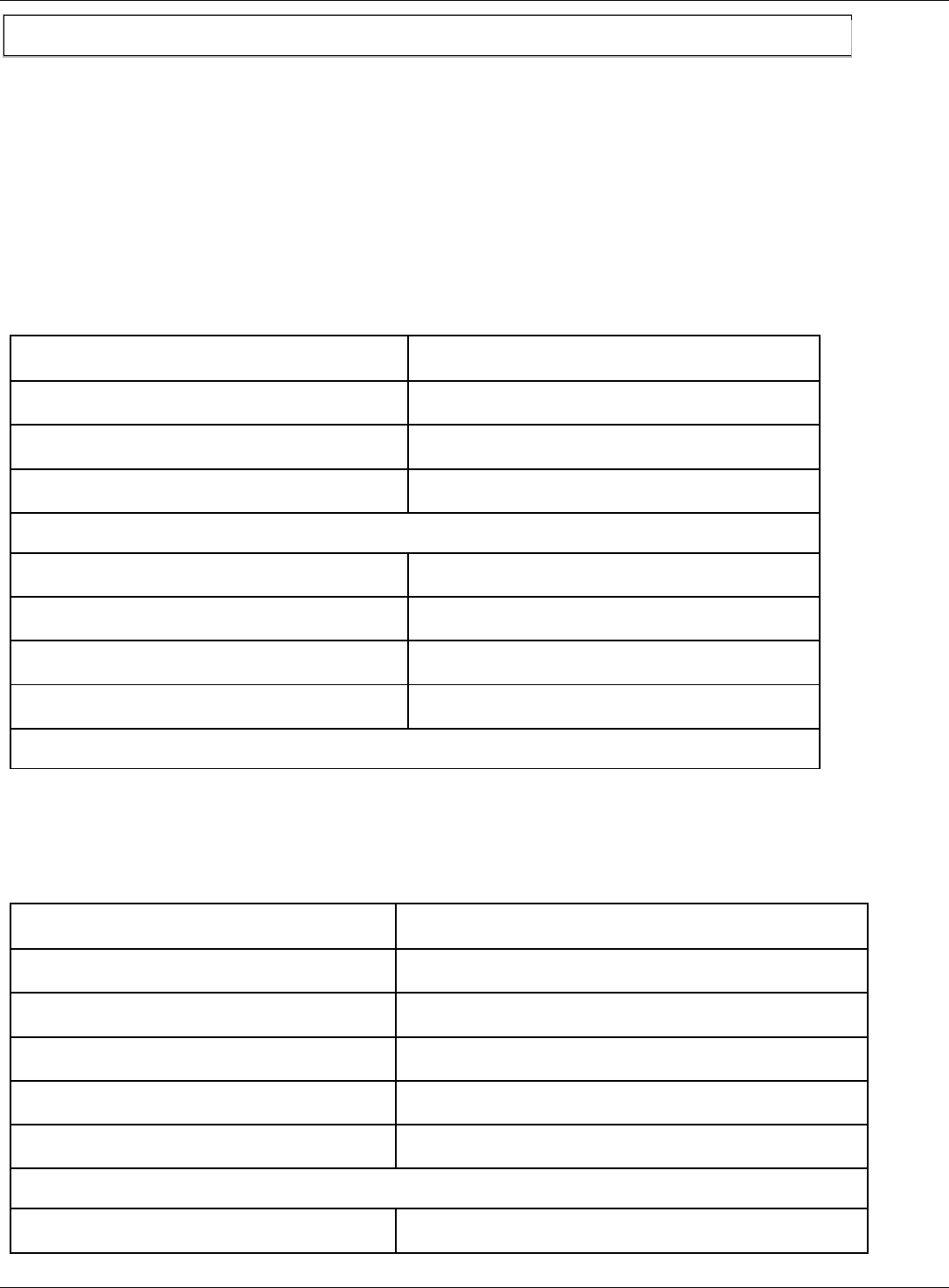
FINANCIAL INFORMATION
78 ASHFORD UNIVERSITY
*Refund percentage applied based on last date of attendance (LDA).
The institution shall refund any credit balance on the student's account within 45 days after the date of the student's
completion of, or withdrawal from, the program in which the student was enrolled. If an institution transmits the balance
of the material as the student requests, the institution shall remain obligated to provide other educational services it agreed
to provide, such as responses to student inquiries, student and faculty interaction, and evaluation and comments on lessons
submitted by the student, but shall not be obligated to pay any refund after all of the lessons and materials are transmitted.
Kentucky State Refund Policy
The Kentucky State Refund Policy applies to residents of Kentucky.
The following pro rata refund schedule applies when students drop or are administratively dropped from a course or the
institution:
If Student Drops or Withdraws on
Refund Percentage for 5-week Courses*
Day 0-8
100%
Day 9-17
50%
Day 18+
0%
*Refund percentage applied based on last date of attendance (LDA).
If Student Drops or Withdraws on
Refund Percentage for 6-week Courses*
Day 0-10
100%
Day 11-21
50%
Day 22+
0%
*Refund percentage applied based on last date of attendance (LDA).
Maryland State Refund Policy
The Maryland State Refund Policy applies to residents of Maryland.
The following pro rata refund schedule applies when students drop or are administratively dropped from a course or the
institution:
If Student Drops or Withdraws on
Refund Percentage for 5-week Courses*
Day 0-7
100%
Day 8-10
60%
Day 11-14
50%
Day 15-20
20%
Day 21+
0%
*Refund percentage applied based on last date of attendance (LDA).
If Student Drops or Withdraws on
Refund Percentage for 6-week Courses*

FINANCIAL INFORMATION
2018-2019 ACADEMIC CATALOG 79
Day 0-7
100%
Day 8
80%
Day 9-12
60%
Day 13-14
50%
Day 15-16
40%
Day 17-25
20%
Day 26+
0%
*Refund percentage applied based on last date of attendance (LDA).
Missouri State Refund Policy
The Missouri State Refund Policy applies to residents of Missouri.
Some fees charged might be non-refundable depending on the student’s last date of attendance. For a full list of tuition
and fees, please visit www.ashford.edu/admissions/online_tuition_fees.htm. Refunds will be issued to the original payor.
The following pro rata refund schedule applies when students drop or are administratively dropped from a course or the
institution:
If Student Drops or Withdraws on
Refund Percentage for 5-week Courses*
Day 0-7
100%
Day 8-14
50%
Day 15-21
15%
Day 22+
0%
*Refund percentage applied based on last date of attendance (LDA).
If Student Drops or Withdraws on
Refund Percentage for 6-week Courses*
Day 0-7
100%
Day 8-14
50%
Day 15-21
25%
Day 22+
0%
*Refund percentage applied based on last date of attendance (LDA).
New Mexico State Refund Policy
The New Mexico State Refund Policy applies to residents of New Mexico.
The following pro rata refund schedule applies when students drop or are administratively dropped from a course or the
institution:

FINANCIAL INFORMATION
80 ASHFORD UNIVERSITY
If Student Drops or Withdraws on
Refund Percentage for 5-week Courses*
Day 0-7
100%
Day 8-10
60%
Day 11-14
50%
Day 15-17
30%
Day 18-21
15%
Day 22+
0%
*Refund percentage applied based on last date of attendance (LDA).
If Student Drops or Withdraws on
Refund Percentage for 6-week Courses*
Day 0-7
100%
Day 8
75%
Day 9-12
60%
Day 13-14
50%
Day 15-16
45%
Day 17-21
30%
Day 22-25
15%
Day 26+
0%
*Refund percentage applied based on last date of attendance (LDA).
Tuition/fee refunds will be made within thirty (30) calendar days of the University receiving notice of a student’s
withdrawal or of the institution terminating enrollment of the student, whichever is earlier. Upon request by a student or
the New Mexico Higher Education Department, the institution shall provide an accounting for such amounts retained
under this standard within five (5) work days.
Oregon State Refund Policy
The Oregon State Refund Policy applies to residents of Oregon.
The following pro rata refund schedule applies when students drop or are administratively dropped from a course or the
institution:
PROGRAM
Course
Length
1st*
week
2nd*
week
3rd*
week
4th*
week
5th*
week
6th*
week
Nonterm-Based Graduate Level Programs
(Online Formats) Refund % by Course LDA
6
100%
67%
50%
0%
0%
0%
Nonterm-Based Undergraduate Level Programs
(Online Formats) Refund % by Course LDA
5
100%
60%
40%
0%
0%
N/A

FINANCIAL INFORMATION
2018-2019 ACADEMIC CATALOG 81
*Refund percentage applied based on week of last date of attendance (LDA).
Wisconsin State Refund Policy
The Wisconsin State Refund Policy applies to residents of Wisconsin.
The following pro rata refund schedule applies when students drop or are administratively dropped from a course or the
institution:
If Student Drops or Withdraws on
Refund Percentage for 5-week Courses*
Day 0-7
100%
Day 8-10
70%
Day 11-13
60%
Day 14-17
50%
Day 18-20
40%
Day 21+
0%
*Refund percentage applied based on last date of attendance (LDA).
If Student Drops or Withdraws on
Refund Percentage for 6-week Courses*
Day 0-7
100%
Day 8
80%
Day 9-12
70%
Day 13-16
60%
Day 17-20
50%
Day 21-25
40%
Day 26+
0%
*Refund percentage applied based on last date of attendance (LDA).
The University will make every effort to refund prepaid amounts for books, supplies, and other charges unless the student
has consumed or used those items and they can no longer be used or sold to new students, or returned to the supplier by
the University. A student will receive the refund within 40 days of the termination date. If a student withdraws after
completing 60% of the instruction, and the withdrawal is due to mitigating circumstances beyond the student’s control
(detailed in the Tuition Credit Request Policy and Procedure in the Student Rights and Responsibilities section of this
Catalog), the school will refund a pro rata amount.
A written notice of withdrawal is not required. The University will honor any valid notice of withdrawal within the three
(3) business day cancellation period, and within thirty (30) calendar days after dismissal of the student or receipt of notice
of withdrawal, shall refund to the student any amounts due and arrange for a termination of the student’s obligation to pay
any sum in excess of that permitted under the refund policy. For students receiving funds under Title IV, the school will
comply with federal guidelines concerning constructive notice of withdrawal. All or a portion of the refund will be used to
pay sponsors furnishing grants, loans, scholarships or other financial aid in conformity with federal and state law. After
any disbursement to financial aid sponsors have been made, the student shall receive the balance, if any, for the amount
due under the refund policy.

FINANCIAL INFORMATION
82 ASHFORD UNIVERSITY
For information regarding the return of federal funds policies, please see the Return of Title IV Funds policy in this section
of the Catalog. For information regarding the withdrawal policies, please see the Withdrawal from the University policy in
the General Academic Policies and Information section in this Catalog.
Ashford Promise
Ashford affords new students the Ashford Promise, which is an opportunity to attend Ashford University risk-free. If a
student cancels their enrollment during the conditional admission period (CAP), or, for undergraduate students only, if
Ashford University establishes that a student does not meet our Basic Academic Requirements (BAR) at the conclusion of
the conditional admission period, the student leaves with 1) no financial obligation to Ashford University, 2) no student
loan debt as a result of enrollment at Ashford University, and 3) no academic record at Ashford University. During the
first three weeks of a student’s first credit-bearing course, Ashford does not certify VA benefits or disburse Federal
Financial Aid.
Special Circumstances
Students called to active duty in the Armed Forces of the United States or leaving the University because of illness or
other causes beyond their control may receive special consideration. Each case will be considered individually based upon
the special circumstances involved.
Special circumstances may include, but are not limited to, the following:
•
Loss of Income
Experience a natural or catastrophic disaster
•
Divorce
Major medical/dental expenses not covered by insurance
•
Death of a wage earner
Dependent Care
Students should contact their Academic Advisor for additional information.
Dismissal/Expulsion
Students dismissed or expelled from the University are not authorized refunds of any kind other than those provided by
the Institutional Tuition Refund Policy in this section of the Catalog.

GENERAL ACADEMIC INFORMATION AND POLICIES
2018-2019 ACADEMIC CATALOG 83
SECTION FIVE: GENERAL
ACADEMIC INFORMATION
AND
POLICIES
University Program Offerings
Associate, Bachelor’s and Master’s online programs are
administered by the Forbes School of Business &
Technology at Ashford University, the College of
Education; the College of Health, Human Services and
Science; and the College of Liberal Arts. For more
information about on-time completion rates, the medial
loan debt of students who complete each program listed
below, and other important information, please visit
www.ashford.edu/pd
.
General Education
Curriculum
Philosophy and Purpose
The higher education offered by the University and other
colleges and universities differs from other forms of
postsecondary education in the belief that education
involves preparation for living life as a whole rather than
simply training a student for a specific job. Typically,
colleges and universities have sought to provide such
preparation by requiring that students devote a substantial
portion—often about one-third—of their coursework to
General Education programs that provide sufficient
breadth of education and mastery of essential learning
skills to enable them to understand and to adapt to a
changing world as well as to contribute to its betterment.
While virtually all institutions of higher education have
some sort of General Education requirements, there is
much variety, and the pattern that a college's General
Education program takes says a great deal about its values,
its view of the world, and its personality.
The University's General Education requirements are
grounded firmly in the University's mission statement,
which places the University squarely within the liberal arts
tradition of higher education. It speaks of intellectual
growth and of a shared search for truth within a
community that values diversity in ways of learning and
forms of knowledge as well as in terms of the people the
University seeks to serve.
In crafting a General Education program that reflects the
mission statement, the faculty believed that students
graduating from the University should first of all possess
certain competencies that define a college-educated
person. In curricular terms, this takes the form of a
competency block in which students must demonstrate
proficiency in critical thinking, ethical reasoning,
information literacy, oral and interpersonal
communication, quantitative reasoning, and written
communication.
These learning skills are valuable in and of themselves
and, doubly so, when used as means to realize the
intellectual growth and shared search for truth of the
mission statement. They are also skills much in demand by
employers.
A liberal arts education is rooted in the idea of preparing a
person for life as a citizen in a free society and so demands
breadth. In structuring this part of the General Education
program, the faculty formulated six general goals in the
areas of aesthetic awareness and reasoning, civic
responsibility, digital literacy, foundations and skills for
lifelong learning, intercultural and global awareness, and
scientific reasoning These goals were then defined in
greater detail as learning outcomes within each subject
area. Courses appropriate to the desired outcomes were
identified and incorporated into the General Education
curriculum. Certain subject areas relate directly to
elements of the mission statement. More generally, the
distribution of coursework across six subject areas requires
students to take courses in many disciplines. By
experiencing a diversity of subject matter and ways of
knowing, students will emerge with a broadly based
education that equips them, in conjunction with studies in
their major and elective coursework, not only to pursue
successful careers but also to lead meaningful lives.
General Education Requirements
The General Education program incorporates a framework
of specified competencies. Students must complete 21
credit of coursework in the Core and 19 credits in the
remaining competencies and 3 credits for the General
Education Capstone Requirement.
General Education requirements for all Ashford University
Associate- and Bachelor-level programs are outlined in
this section; however, specific General Education courses
may be required for some programs and majors.
Every
Ashford University General Education course is not
available in every degree program.
Please refer to the
program requirements sections of this Catalog for
information on specific degree program requirements.

GENERAL ACADEMIC INFORMATION AND POLICIES
84 ASHFORD UNIVERSITY
Core Competencies (21 credits)
Competencies are skills deemed necessary by the faculty
to demonstrate a quality college education. The following
general policies apply to the competencies:
•
Prerequisite courses, if needed, must be completed
before taking the competency course. However,
required courses listed can be waived by means of
high school advanced placement (AP) coursework
and/or placement/competency testing. Students should
consult their Academic Advisors for additional
information regarding a waiver of competency
requirements;
•
A minimum grade of “C–” will be required to satisfy
competencies and competency prerequisites; and
•
Competency courses may not simultaneously be used
to satisfy subject area requirements.
Demonstration of the competencies subsequently listed is
required for the AA, BA, and BS degrees. Courses offered
by Ashford University to satisfy these competency
requirements are listed in each area.
Ethical Reasoning Competency (3
credits)
The ethical reasoning competency is the examination of
principles of normative and non-normative ethical theories
and the application of these principles in decision-making
activities including case studies and contemporary social
issues. Students will explore moral character: virtues and
vices, commitments and attitudes, personal relationships,
and community involvement, in addition to right and
wrong conduct.
Learning Outcomes
Students meeting this competency will be able to do the
following:
Identify ethical issues within current events, society
or one or more fields of study;
Present one’s own ethical position in relation to
problems, issues, norms or values;
Compare different ethical positions in relation to
problems, issues, norms or values;
Apply ethical theory or appropriate professional
ethical codes to social and moral issues in the field of
study; and
Evaluate the application of ethical theories and codes
in relation to problems, issues, norms or values.
One ethical reasoning course, 3 credits, is required.
Ashford University offers the following courses to satisfy
this requirement:
•
ABS 415 Leadership & Ethics in a Changing World (3
credits)
•
BUS 250 Corporate & Social Responsibility (3 credits)
•
ECD 330 Ethics & Legal Responsibility in Early
Learning Settings (3 credits)
•
HIM 252 Legal Aspects of Health Information (3
credits)
•
MIL 275 Military Ethics (3 credits)
•
PHI 208 Ethics & Moral Reasoning (3 credits)
•
PHI 445 Personal & Organizational Ethics (3 credits)
•
SOC 120 Introduction to Ethics & Social
Responsibility (3 credits)
Typically, courses that deal with ethics or morality, usually
with a PHI or REL prefix, may be applied in transfer to
satisfy this competency.
Written Communication Competency (6
credits)
Written communication is the use of texts to create and
transmit meaning. Students will examine, analyze, and
utilize different types of communication appropriate in
professional and academic settings. They will also develop
and assess communication strategies appropriate for
certain audiences as well as determine and evaluate ethical
issues that arise from communicating with others.
General Education Total
43 credits
Core Competencies
21 credits
Ethical Reasoning
3 credits
Written Communication I & II
6 credits
Oral & Interpersonal Communication
3 credits
Critical Thinking
3 credits
Information Literacy
3 credits
Quantitative Reasoning
3 credits
Competencies
19 credits
Aesthetic Awareness & Reasoning
3 credits
Intercultural & Global Awareness
3 credits
Civic Responsibility
3 credits
Scientific Reasoning
4credits
Foundations & Skills for Lifelong
Learning
3 credits
Digital Literacy
3 credits
Capstone Requirement
3 credits
General Education Capstone
3 credits
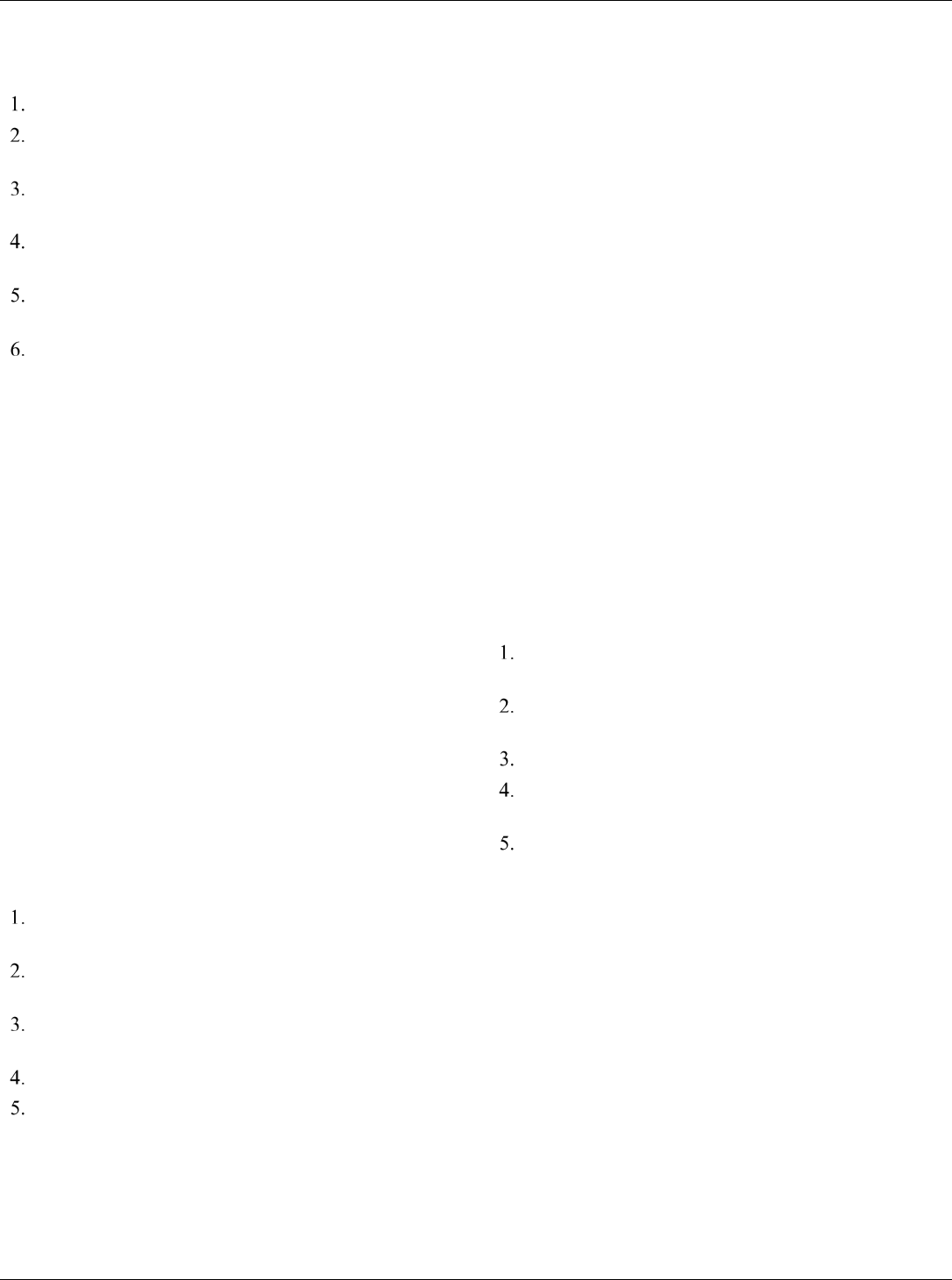
GENERAL ACADEMIC INFORMATION AND POLICIES
2018-2019 ACADEMIC CATALOG 85
Learning Outcomes
In writing, students meeting this competency will be able
to do the following:
Interpret information from various sources;
Integrate information to effectively communicate a
central message;
Employ successful processes for producing effective
communication;
Use conventions of spelling, grammar, genre and
style appropriate to a specific purpose or context;
Practice principles of academic integrity in written
communication; and
Create cohesive and effective written work for a
specific purpose.
Ashford University offers the following courses to satisfy
the Communication I and II requirement:
•
ENG 121 Composition I (3 credits)
•
ENG 122 Composition II (3 credits)
•
ENG 325 Intermediate Composition (3 credits)
Oral and Interpersonal Communication
Competency (3 credits)
Oral and interpersonal communication is the use of
language, speech, and affect to transmit messages.
Students will examine the encoding of messages for
different audiences and decoding of messages to
reconstruct meaning. Students will assess appropriate
communication strategies for various audiences and
evaluate ethical issues that arise from communicating with
others as well as utilize effective oral and interpersonal
presentation strategies and methods.
Learning Outcomes
In Oral and Interpersonal Communication, students
meeting this competency will be able to do the following:
Integrate a variety of message encoding techniques
based on information about audiences;
Integrate a variety of message decoding techniques to
reconstruct meaning of an incoming message;
Utilize communication strategies appropriate for
different rhetorical purposes;
Apply principles of ethical communication; and
Examine the impact of communication in personal
and professional contexts.
Ashford University offers the following courses to satisfy
the Oral and Interpersonal Communication area:
•
BUS 340 Business Communications (3 credits)
•
CGD 240 Media Writing & Editing (3 credits)
•
COM 200 Interpersonal Communication (3 credits)
•
COM 223 Persuasion in Communication (3 credits)
•
COM 325 Communication & Conflict (3 credits)
•
COM 345 Media Writing for Communications (3
credits)
•
COM 370 Intercultural Communication (3 credits)
•
COM 425 Communication in Organizations (3 credits)
•
HHS 207 Communication Skills for Health and
Human Service Personnel (3 credits)
•
SPE 103 Oral Communication (3 credits)
Critical Thinking Competency (3 credits)
Critical thinking is a set of skills and strategies for making
decisions about what people ought to do and believe.
Students will analyze thought processes and language,
identify logically fallacious thinking, and use the essential
skills of deductive and inductive argument in analysis and
evaluation. Students will also learn to objectively identify
problems, gather information from varied and appropriate
sources, and utilize methods of decision-making to provide
solutions to those problems.
Learning Outcomes
Students meeting this competency will be able to do the
following:
Describe the issues or problems in a manner
appropriate to the academic field of study;
Interpret evidence that is used to support positions in
relation to a specific topic;
Evaluate evidence based on specific criteria;
Compare and contrast various positions, arguments,
or theses related to the examined issues; and
Create arguments to support positions on issues or in
relation to theses.
One critical thinking course, 3 credits, is required. Ashford
University offers the following courses to satisfy this
requirement:
•
COM 223 Persuasion in Communication (3 credits)
•
PHI 103 Informal Logic (3 credits)
Typically, logic courses or courses stressing critical
thinking may be applied in transfer to satisfy the critical
thinking competency. Most applicable courses will have a
PHI or LOG prefix.
Information Literacy Competency (3
credits)
Information literacy is the set of research skills that allow
individuals to recognize when information is needed, to
locate it, evaluate it, and effectively use it to communicate

GENERAL ACADEMIC INFORMATION AND POLICIES
86 ASHFORD UNIVERSITY
a message or support a claim. Students will develop the
skills necessary to critically evaluate sources and
communicate information appropriately, effectively, and
ethically.
Learning Outcomes
Students meeting this competency will be able to do the
following:
Identify nature and extent of information needed to
support a specific purpose;
Use relevant and credible information sources that are
appropriate to the field and purpose;
Evaluate information and its sources critically;
Communicate information using appropriate tools
and technology to accomplish a specific purpose; and
Use information legally and ethically.
One information literacy course, 3 credits, is required.
Ashford University offers the following courses to satisfy
this requirement:
•
GEN 103 Information Literacy (3 credits)
•
LNG 330 Language and Power (3 credits)
Typically, research methods courses or courses about the
gathering, evaluation, and use of information may be
applied in transfer to satisfy the information literacy
competency.
Quantitative Reasoning Competency (3
credits)
Quantitative reasoning is the ability to efficiently process
data, interpret it, represent it using mathematical forms,
and solve numerical and applied mathematical problems.
Students will use mathematical forms, logical reasoning,
and valid techniques to solve problems related to their
fields of study as well as their personal lives.
Learning Outcomes
Students meeting this competency will be able to do the
following:
Represent the given information using mathematical
models and forms;
Interpret quantitative data;
Perform calculations that relate to specific topics and
fields of study;
Evaluate quantitative evidence used to support a
claim; and
Support a position using quantitative evidence.
One course, 3 credits, is required. Ashford University
offers the following courses to satisfy this requirement:
•
MAT 222 Intermediate Algebra (3 credits)
•
MAT 232 Statistical Literacy (3 credits)
A comparable course with a grade of “C-” or better may be
applied in transfer to satisfy the quantitative reasoning
competency.
Competencies (19 credits)
A course may be applied only once to meet a General
Education competency requirement. Whether a course may
be applied simultaneously to a General Education
competency requirement and to a major requirement
depends on the requirements specified for each major.
Courses offered to satisfy the competency requirements
are subsequently listed:
Aesthetic Awareness and Reasoning (3
credits)
Aesthetic awareness and reasoning is the ability to
creatively examine life and objects through the lens of
beauty and artistic taste. Students will interpret creative
works, articulate how creative works influence and
respond to society and culture, determine the key contexts
of creative works, and substantiate aesthetic judgments
with appropriate evidence.
Learning Outcomes
Students meeting this competency will be able to do the
following:
Interpret creative works using a theoretical approach;
Articulate the ways in which creative works influence
and/or respond to society and culture;
Determine key contexts of creative works; and
Substantiate aesthetic judgments using appropriate
evidence.
One aesthetic awareness and reasoning course, 3 credits, is
required. Ashford University offers the following courses
to satisfy this requirement:
•
ART 101 Art Appreciation (3 credits)
•
ENG 125 Introduction to Literature (3 credits)
•
ENG 201 American Literature to 1865 (3 credits)
•
ENG 202 American Literature after 1865 (3 credits)
•
ENG 225 Introduction to Film (3 credits)
•
ENG 438 Literary Theory (3 credits)
•
HIS 103 World Civilizations I (3 credits)
•
HIS 104 World Civilizations II (3 credits)
•
LIB 202 Women, Culture & Society (3 credits)
•
LIB 316 Historical Contexts & Literature
Typically, a course in one of the following subject areas
may be applied in transfer to satisfy the cultural and

GENERAL ACADEMIC INFORMATION AND POLICIES
2018-2019 ACADEMIC CATALOG 87
aesthetic awareness requirement: art, film, photography,
dance (non-PE activity), and music.
Intercultural and Global Awareness (3
credits)
Intercultural and global awareness is a recognition and
understanding of knowledge and issues through the lens of
various cultural perspectives. Students will examine
identities, influences, and practices that shape and
contribute to the diversity of culture. They will develop
awareness of contemporary issues in the global community
and examine multiple perspectives and responses to those
issues from diverse viewpoints.
Learning Outcomes
Students meeting this competency will be able to do the
following:
Analyze diverse modes of cultural expression and
experience;
Interpret current global issues through multiple
perspectives;
Evaluate the cultural biases that influence
interactions;
Examine how social and cultural systems develop;
and.
Compare modes of creative expression using
intercultural and global perspectives.
One intercultural and global awareness course, 3 credits, is
required. Ashford University offers the following courses
to satisfy this requirement:
•
ANT 101 Introduction to Cultural Anthropology (3
credits)
•
ANT 348 Native American Anthropology (3 credits)
•
ANT 351 Anthropology of Religion, Magic, and
Ritual (3 credits)
•
ART 101 Art Appreciation (3 credits)
•
BUS 357 International Business (3 credits)
•
ECD 335 Children & Families in a Diverse Society (3
credits)
•
ELL 240 Linguistically & Culturally Diverse Learners
(3 credits)
•
ELL 361 Language Learning in a Global Context (3
credits)
•
ENG 125 Introduction to Literature (3 credits)
•
ENG 345 British Literature I (3 credits)
•
ENG 346 British Literature II (3 credits)
•
HHS 320 Cultural Awareness in the Human Services
(3 credits)
•
HIS 103 World Civilizations I (3 credits)
•
HIS 104 World Civilizations II (3 credits)
•
HIS 205 United States History I (3 credits)
•
HIS 206 United States History II (3 credits)
•
HSL 300 Social Welfare Policy & Social Programs:
An Historical Perspective (3 credits)
•
LIB 101 The Art of Being Human (3 credits)
•
LIB 102 Human Questions (3 credits)
•
LNG 360 Language & Society (3 credits)
•
POL 255 Introduction to International Relations (3
credits)
•
SOC 101 Introduction to Sociology (3 credits)
•
SOC 203 Social Problems (3 credits)
•
SOC 301 Identity and Social Inequality (3 credits)
•
SOC 304 Social Gerontology (3 credits)
•
SOC 307 Gender and Sexuality (3 credits)
•
SOC 308 Racial and Ethnic Groups (3 credits)
•
SOC 401 Engaging in Sociology (3 credits)
•
SPA 103 Beginning Spanish I (3 credits)
•
SPA 104 Beginning Spanish II (3 credits)
•
SSC 101 Introduction to Social Science (3 credits)
•
SSC 340 Human Health and Global Environmental
Change (3 credits)
Typically, a course with a cross-cultural, global context, or
a context other than the United States, may be applied in
transfer to satisfy the diversity awareness requirement.
Civic Responsibility (3 credits)
Civic responsibility is the demand on a citizen to
responsibly act and participate in the political and social
community. Students will examine what it means to be a
responsible and caring member of society. They will
engage in intellectual, civic, political, and community
action related to the positive development of themselves
and their social environments.
Learning Outcomes
Students meeting this competency will be able to do the
following:
Assess the civic identities of different cultures,
communities, and societies, including one’s own;
Evaluate the impacts of various forms of civic
engagement;
Articulate the intellectual foundations and
governance processes of political systems;
Analyze political biases in messages in various forms
of print, social and digital media; and

GENERAL ACADEMIC INFORMATION AND POLICIES
88 ASHFORD UNIVERSITY
Explain how government policies or political
discourse impact students’ personal, academic and
professional lives.
One civic responsibility course, 3 credits, is required.
Ashford University offers the following courses to satisfy
this requirement:
•
ANT 348 Native American Anthropology (3 credits)
•
CRJ 303 Corrections (3 credits)
•
HIS 104 World Civilizations II (3 credits)
•
HIS 205 United States History I (3 credits)
•
HIS 206 United States History II (3 credits)
•
POL 111 Introduction to Political Science (3 credits)
•
POL 201 American National Government (3 credits)
•
SOC 301 Identity and Social Inequality (3 credits)
•
SOC 401 Engaging in Sociology (3 credits)
Typically, courses related to understanding the political
structure and/or courses that related to the responsibilities
of a citizen may be applied in transfer to satisfy the civic
responsibility requirement.
Scientific Reasoning (4 credits)
Scientific reasoning is a perspective used to study and
explore the natural world. Students will learn the scientific
method, apply it, interpret data gathered through research,
and propose solutions to problems grounded in scientific
theory.
Learning Outcomes
Students meeting this competency will be able to do the
following:
Apply the scientific method to solve problems;
Evaluate issues using scientific literature;
Interpret scientific topics using reductionist;
Communicate scientific information using multiple
formats; and
Analyze the intersection of scientific information.
One scientific reasoning course, 4 credits (with lab), is
required. Students with transfer credits in science may
substitute 6 semester credits of science without lab.
Ashford University offers the following courses to satisfy
this requirement:
•
ANT 202 Human Origins & Prehistory (4 credits)
•
HIM 205 Anatomy & Physiology for HIM I (4 credits)
•
HPR 205 The Human Body, Health & Disease (4
credits)
•
SCI 207 Our Dependence upon the Environment (4
credits)
Typically, introductory courses with lab in the following
areas may be applied in transfer to meet the science
requirement: natural sciences including chemistry,
biology, astronomy, and physics.
Foundations and Skills for Lifelong
Learning (3 credits)
Foundations and skills for lifelong learning are the
ongoing methods by which one can enhance knowledge
and competence. Students will develop the fundamental
skills necessary to be successful in academic pursuits
through reflection about the learning process and an
understanding of how prior knowledge and experiences
integrate with newly acquired knowledge.
Learning Outcomes
Students meeting this competency will be able to do the
following:
Evaluate learning processes;
Analyze metacognitive strategies;
Integrate prior knowledge and experiences with
newly acquired knowledge; and
Develop a plan for learning.
One foundation and skills for lifelong learning course, 3
credits, is required. Ashford University offers the
following courses to satisfy this requirement:
•
EXP 105 Personal Dimensions of Education (3 credits)
A minimum grade of C- is required to successfully
complete the course. EXP 105 cannot be replaced or
waived by credit in transfer, unless a student meets one of
the requirements as outlined in the Bachelor’s Program
Course Sequencing.
Digital Literacy (3 credits)
Digital Literacy is the ability to effectively utilize and
protect oneself and others in a society dominated by new
technologies and digital devices. Students will develop
skills in the use of digital tools related to research,
decision-making, problem-solving, and virtual identity
communication and protection.
Learning Outcomes
Students meeting this competency will be able to do the
following:
Utilize digital tools to perform specific tasks;
Examine the ethical and social issues relevant in a
digital society;
Assess the impact of digital technology;
Evaluate the importance of digital literacy; and
Critique digital resources.

GENERAL ACADEMIC INFORMATION AND POLICIES
2018-2019 ACADEMIC CATALOG 89
One digital literacy course, 3 credits, is required. Ashford
University offers the following courses to satisfy this
requirement:
•
COM 355 Technology & Communication (3 credits)
•
GEN 102 Digital Literacy for Life and the Workplace
(3 credits)
•
GEO 308 GIS Software Application (3 credits)
•
INF 103 Computer Literacy (3 credits)
•
INF 220 IS Principles (3 credits)
•
INF 231 Programming Concepts (3 credits)
•
INF 325 Telecommunication & Networking Concepts
(3 credits)
•
JRN 101 Digital and Media Literacy (3 credits)
Typically, introductory computer courses or courses
stressing the application of computers to a specific
industry may be applied in transfer to satisfy the digital
literacy competency requirement, if completed within the
last 10 years. Most applicable courses will have a BPC,
CIS, INF, or COMP prefix.
Capstone Requirement (3 credits)
The General Education capstone provides students with a
cumulative and integrated learning experience. Through
the study of selected interdisciplinary topics and course-
embedded assessments, students will demonstrate
development of the general education core competencies.
Students will apply general education principles informed
by ethical and critical sensibility and provide evidence of
growth in acquiring the habits of active citizenship.
Prior
to beginning their capstone course for their major, students
must successfully complete the General Education
capstone, unless they previously completed a Bachelor’s
degree. Refer to Completion of Additional Undergraduate
Degrees in this section of the catalog. A minimum grade
of "C-" is required to meet course requirements.
Prerequisite: 75 credits or permission of the student’s
college or school dean.
Learning Outcomes
Students meeting this requirement will be able to do the
following:
Demonstrate the application of ethics and moral
reasoning with regard to academic knowledge and
societal concerns;
Utilize principles of critical thinking in problem-
solving;
Communicate through investigative research and
writing;
Utilize information literacy or digital skills
appropriate to interdisciplinary studies; and
Articulate the responsibility of global citizenship and
multicultural understanding with regard to academic
and professional pursuits.
One general education capstone course, 3 credits, is
required for a Bachelor’s degree. Ashford University
offers the following course to satisfy this requirement:
•
GEN 499 General Education Capstone (3 credits)
General Academic Policies
Technology Requirements
It is the University’s intent to assist students and to prepare
them for their coursework at Ashford University.
Therefore, technology competencies and requirements
have been established. These requirements are in effect for
all Ashford University applicants and existing students and
may be updated at any time.
Competencies
Students must meet the following competencies:
•
Ability to access course and program material on the
Internet;
•
Ability to correspond with University staff, students,
and faculty using email and the Internet; and
•
Ability to use appropriate antivirus utilities so that
files transmitted and received are virus free.
System Requirements
The following minimum system configuration and
software are required:
•
Operating System: Mac OS X 10.6 or higher or
Windows 7 or higher (users on Windows 10 need to
download the Windows 10 Anniversary Update to
submit Canvas assignments) or Linux – chromeOS;
•
Hardware: 1GB RAM, 2GHz processor, and CD-
ROM;
•
Productivity Software: Microsoft Word, PowerPoint,
and Excel (provided); Adobe Reader 8.0 or
higher; Adobe Flash 10 or higher (Constellation
users);
•
Web Browser: Firefox, Internet Explorer, Safari,
Chrome, Flash, or Respondus Lockdown Browser,
check your compatibility,
https://guides.instructure.com/m/67952/l/720329-
which-browsers-does-canvas-support;
•
Networking: 56k dialup modem, DSL, or cable
modem; and
•
Email: use of an email account for communication
with the University.

GENERAL ACADEMIC INFORMATION AND POLICIES
90 ASHFORD UNIVERSITY
Additional System Requirements for Use of ebooks
The following additional platform and hardware
requirements apply when using ebooks:
•
Operating System: Mac OS X 10.6 or higher,
Windows XP with service pack 2 or higher, or Vista;
•
Hardware: 512 Mb RAM, CD-ROM, 1gHz processor,
and 1Gb free disk space; 1024x768 screen resolution
or larger.
Mobile Operating System Requirements
The following additional operating system and hardware
requirements apply when using the mobile app:
•
Operating System: iOS 7 and newer (versions vary by
device) or Android 4.2 and newer.
Conferences
Conferences may be recorded for future use within the
Ashford University classroom. Students choosing to
participate in a classroom conference consent to being
recorded as part of the conference.
Please note certain courses may require the use of
additional Internet connectivity requirements, software,
and/or hardware, such as a microphone and/or webcam to
record sound or video files. Additionally, certain courses
may require use of third-party websites. The University is
not responsible for the practices of any third-party
websites. If a student has serious objections to using a
third-party website, he or she can request an alternative
method of completing an assignment from the instructor of
the course. If a student chooses to withhold the disclosure
of Directory Information, no Directory Information will be
released by Ashford University to non-university personnel
unless the disclosure meets exception criteria as outlined
in the Student Rights and Responsibilities section of this
catalog. However, a student may still be required to make
certain disclosures as part of coursework.
English Proficiency
All students enrolled in an undergraduate degree program
must satisfy English Proficiency within the first 15
successfully completed credits through one of the
following options:
•
A passing score on the Ashford University English
Proficiency exam (credit not awarded). Students are
allowed two attempts and are only allotted one week (a
total of 7 days) to submit both attempts from the time
the exam is first made available to the student.
Students who make no attempts in the initial allotted
seven (7) day period must satisfy the proficiency
through an alternative option;
•
A grade of “C-” or better in a designated Ashford
University English course (ENG 121 or ENG 122);
•
A passing score on a designated National Testing
Program exam completed within five (5) years from
date of application; or
•
A grade of “C-” or better in a comparable course from
a regionally accredited or approved nationally
accredited institution completed within five (5) years
prior to the date of application.
Note: Due to the nature of the Ashford University
curriculum, ENG 121 and ENG 122 are not considered
duplicative of transfer courses. Students who have
completed comparable or more advanced English courses
but who have not satisfied English Proficiency through one
of the previous options will have the credits applied
toward Communication I, II, or Electives credit
deficiencies. Students who have successfully completed an
Ashford upper-division course in their major that
demonstrates advanced writing skills (as determined by
the Academic Program Chair) may request that the course
satisfy their English Proficiency requirement.
Course Delivery Method
Ashford University offers programs using the following
course structure and delivery modality. Please note that all
course instruction will occur in the English language only.
Online Course Delivery
Generally, undergraduate students complete three credits
in accelerated online delivery in five (5) weeks. An
accelerated online graduate course typically lasts six (6)
weeks. Specific log-in requirements are built into the
design of each course and monitored over the Internet
through the online learning instructional platform. The
course structure allows students to take the initiative to
learn content on their own time and provides carefully
developed learning activities that allow students to
optimize their knowledge processing/application efforts.
Course objectives are clearly stated and measured through
multiple measures. Instructors are expected to provide
feedback and grades on assignments within 6 days of the
assignment due date.
Clinton Campus Course Delivery
Limited program and course offerings are available at the
Ashford University Clinton campus. Generally, classes
meet on the Clinton Campus on evenings and/or
weekends.

GENERAL ACADEMIC INFORMATION AND POLICIES
2018-2019 ACADEMIC CATALOG 91
Schedule Changes, Program Changes,
and Course Cancellation
Ashford University reserves the right to make adjustments
to student schedules including, but not limited to, course
dates, sequence, and modality as deemed necessary by
University administration. Registration in a particular
course section or with a specific instructor is not
guaranteed.
Ashford University may cancel or postpone courses or
programs as deemed necessary by the University. In such
situations the University will notify impacted students and
return applicable tuition and fees to the appropriate entity.
In addition, the University will work with students in an
effort to provide them with the opportunity to reschedule
or to transfer to a comparable University course or
program, if available. Any payments made for canceled
courses will be refunded or will be applied to another
University course or program.
The University will make a reasonable attempt to notify
affected students through various communication methods.
Prerequisite Courses
Students are required to fulfill any prerequisites for
registered courses, even if those prerequisites are not a
requirement within their selected majors. Any prerequisite
courses that are not included in the student’s major may be
applied to his or her elective requirements.
Plans to Improve an Academic Program
Ashford University continuously looks for ways to
improve academic programs. In the event there is a plan to
make a significant improvement to a program, as deemed
so by the University, the information will be posted on the
Student Consumer Information page, located at
www.ashford.edu/about/consumer-information.htm
. Once
an effective date for a significant improvement to an
academic program is determined, information about the
change will be posted on the website. Please note that
significant improvements to academic programs generally
only impact new students enrolling after the effective date.
In the event that a significant improvement impacts current
students in the program, students will be notified directly.
Program Enrollment and Cancellation
Initial enrollment at Ashford University is arranged
through a University Enrollment Services Advisor. New
students should contact an Enrollment Services Advisor to
apply. It is the student’s responsibility to officially apply
for the program course of study. To ensure that students
are successful at navigating inside of the classroom and to
become familiar with all of the resources available to them
at Ashford University, newly enrolled students may
participate in a live webinar of a guided tour of the online
classroom. After initial enrollment, students will work
with their Academic Advisors to register, add courses, or
change their course schedule. Any change in the original
registration must be communicated to the student’s
Academic Advisor. Major changes in a student’s schedule
may necessitate completion of a new Admissions
Application and Enrollment Agreement.
Degree seeking students have the right to cancel the
Enrollment Agreement and obtain a full refund of charges
through attendance in week 3 (day 21 of the first course).
Applicants who want to cancel an enrollment agreement
must contact their Enrollment Services Advisor prior to
attending in Week 4 of their first online or face-to-face
course. Applicants who cancel enrollment will be allowed
one more period of conditional admission at Ashford
University. Individuals who cancel their enrollment two
times while in conditional standing may re-apply to
Ashford University no earlier than six months from their
last date of attendance.
Non-degree seeking students have the right to cancel the
Enrollment Agreement and obtain a full refund of charges
through attendance in week 1 (day 7 of the first course).
Cancellation is effective on the date that the written notice
of cancellation is sent. Applicants who want to cancel an
enrollment agreement must contact their Enrollment
Services Advisor prior to attending in week 2 of their first
online course.
Ashford University reserves the right to cancel or
terminate the agreement if the applicant fails to meet basic
academic requirements during conditional admission,
violate the Student Community Standards, fail to make
satisfactory academic progress, fail to make payment in
accordance with the terms of his or her student finance
agreement, and/or fail to meet attendance requirements as
outlined in this Catalog. Applicants who are denied
admission may be allowed one more period of conditional
admission at Ashford University. Individuals who are
denied admission two times while in conditional standing
may re-apply to Ashford University no earlier than six
months from their last date of attendance.
Students who receive federal student financial aid funds
are entitled to a refund of money not paid from federal
student financial aid program funds.
Students who obtain loan(s) to pay for an educational
program will have the responsibility to repay the full
amount of the loan plus interest, less the amount of any
refund.
Registration and Academic Placement
Initial registration and student scheduling is a one-time
process based upon the information provided to Ashford
University in the admission application. The student’s
initial schedule is based upon the student’s desired start

GENERAL ACADEMIC INFORMATION AND POLICIES
92 ASHFORD UNIVERSITY
date and program of study in conjunction with previous
education. Initial registration occurs in consultation with
an Enrollment Services Advisor and is completed by the
Office of the Registrar. Upon completion of initial
registration, students can view their individual course
schedules and the dates of each course for which they are
registered via the Student Portal.
Student schedules are adjusted by the student’s Academic
Advisor, in consultation with the student, to accommodate
courses applied in transfer once the admission file is
completed and the student receives full admission to the
University. It is the student’s responsibility to review his
or her schedule regularly through the Student Portal and to
notify their Academic Advisor to initiate any schedule
changes.
Classification of Students
Degree-Seeking Students
A degree-seeking student is one who has been accepted
into a degree program by the University as a degree
candidate and is currently enrolled. A student who remains
continuously enrolled is classified as a less than half-time,
half-time, three-quarter time, or full-time student
according to enrollment requirements for the degree
program. Undergraduate students are further classified as a
freshman, sophomore, junior or senior, according to the
number of undergraduate credits earned. Students enrolled
in graduate programs are classified as graduate-level
students.
Non-Degree Seeking Students
Students who wish to take a limited number of courses and
do not wish to be enrolled in a degree program at Ashford
University may enroll as non-degree seeking students
(non-degree students or non-matriculated students) by
completing an application for admission. Non-degree
seeking students pay the standard tuition rate and are
ineligible for financial aid or in-school Title IV loan
deferment. Credit is granted when courses are successfully
completed and all earned grades are recorded.
Applicants seeking to enroll in one or more courses as a
non-degree seeking student are generally expected to meet
the full admissions requirements for the degree program
through which the course(s) are offered* and any
prerequisite coursework required for an individual course.
Non-degree seeking students are not eligible to take EXP
105 or Capstone coursework. Admission requirements for
enrolling in coursework as a non-degree seeking student
are outlined specifically in each degree-level section of
this Catalog.
Registering as a non-degree seeking student in no way
guarantees or implies admission to an Ashford University
degree program. Non-degree seeking students planning to
formally apply for admission to a degree program should
have their intended course selections reviewed by their
Academic Advisors to determine relevance and potential
applicability to the intended program. Students who wish
to apply non-degree seeking coursework to an
undergraduate program at Ashford University may apply
up to 30 credits. Students who wish to apply non-degree
seeking coursework to a graduate-level degree program at
Ashford University may apply up to 15 credits. Students
who wish to attempt more than these credit maximums
must seek approval from the Office of the Registrar
Individuals who previously have been denied regular
admission, or those who have been dismissed or
disqualified from Ashford University must petition the
Registrar’s Office and receive permission to register as a
non-degree seeking student. Graduates of Ashford
University are generally permitted to register for continued
coursework as non-degree seeking students.
The number of non-degree seeking students in any class
may be limited. Ashford encourages students to select a
degree program no later than one calendar year from the
date of enrollment. Ashford University reserves the right
to assess the suitability of a non-degree seeking student for
any course.
*Note: Applicants under the age of 22 cannot be enrolled
in an Ashford University degree program unless they meet
specific exceptions. Please refer to undergraduate
admission requirements for full admission requirements
into a degree-seeking program.
All applicants applying under the age of 18 must have all
legal documents signed by a parent or legal guardian.
Student Grade Levels
Undergraduate Class Level:
Freshman:
0–24 credits earned
Sophomore:
25–48 credits earned
Junior:
49–72 credits earned
Senior:
73+ credits earned
Once a student has earned 24 credits and registers for his
or her 25th credit, he or she will be classified as a
Sophomore.
Once a student has earned 48 credits and registers for his
or her 49th credit, he or she will be classified as a Junior.
Once a student has earned 72 credits and registers for his
or her 73rd credit, he or she will be classified as a Senior.

GENERAL ACADEMIC INFORMATION AND POLICIES
2018-2019 ACADEMIC CATALOG 93
Graduate Class Level:
Students enrolled in graduate programs are classified as
graduate-level students.
Enrollment Status
Students who remain continuously enrolled in non-term-
based programs are classified as full-time. Students who
are on a break of up to 14 consecutive days or on an
approved Academic Leave are still classified as full-time.
Students who fail to return from a break or approved
Academic Leave as scheduled should refer to the
Withdrawal from the University policies for information
regarding determination of withdrawal date. The
University may schedule breaks during which no courses
are scheduled. When this occurs, such as during the annual
winter break, the student's break will extend the 14 day
limit to include the scheduled break. The annual winter
break does not extend the 45 day limit for approved
Academic Leaves that are greater than 14 days.
Auditing of Courses
Ashford University does not allow for course auditing due
to the accelerated nature of course offerings and the unique
nature of the classroom environments.
Transfer Concentration Guidelines for
Bachelor's Programs
Transfer concentrations are intended for Bachelor’s
students in the BABA, BAOM, and BASS who have
experience and/or extensive transfer credit coursework in a
field of study at the time of admission.
Students must petition for a transfer concentration in a
defined subject area and submit a minimum of twelve (12)
credits of coursework before approval is granted. In rare
cases, a student with some transfer coursework completed
in a given subject area may petition to the University
Registrar’s Office, after admission, to complete part of a
concentration through Ashford University coursework.
•
Transfer concentrations generally will not be approved
in fields of study that lead to licensure or certification.
•
Transfer credits will only be applied toward the
required coursework in applicable majors if the student
has maximized all other transfer credit possibilities
within the Bachelor’s degree and has otherwise earned
enough upper-division credits to meet program
requirements. Otherwise, transfer concentration
coursework will be applied toward elective credit.
•
A student can earn more than one transfer
concentration as long as each transfer concentration
has at least six credits that do not apply to another
concentration or major.
•
Students earning transfer concentrations with
substitutions against major coursework are not exempt
from the minimum requirement for earning thirty (30)
upper-division credits.
SMART Track Program
SMART Track Program Requirements for
Bachelor's Programs
Students enrolled in an Ashford University Bachelor’s
degree program may be eligible to enroll in up to six (6)
credits (nine (9) applicable credits for the MACC, MBA,
MISM, MPA or MSCJ programs) of graduate-level
coursework toward their Bachelor’s degree and accelerate
completion of a Master’s degree with Ashford University.
Bachelor’s Program Stipulations and
Requirements for Enrolling and Applying
Master’s-Level Coursework
•
Students in a Bachelor’s-level program offered at
Ashford University may attempt up to six (6)
Master’s-level credits* offered at Ashford University
to satisfy elective requirements in their Bachelor’s
program.
•
Bachelor’s-level tuition applies to any Ashford
University Master’s-level coursework attempted as
part of the Bachelor’s program. Students are limited to
six (6) attempted credits* at the Bachelor’s-level
tuition rate (Ashford University Military Grant rates
are applicable for students who qualify). Financial aid
is also awarded at the Bachelor’s-level.
•
Students are not permitted to retake Master’s-level
courses attempted while enrolled in a Bachelor’s
program. Only one attempt per Master’s course is
permitted at the undergraduate-level (W and WF
grades included).
•
Master’s-level coursework attempted as part of a
Bachelor’s program is applied toward the Bachelor’s-
level cumulative grade point average (CGPA).
•
Enrollment in the Master’s degree program begins
after an applicant has been formally admitted to the
program by submitting an application indicating an
earned Bachelor’s degree. Students are subject to the
academic requirements that are in effect at the time of
enrollment in the Master’s degree program. Any
Master’s degree requirements that have been satisfied
by coursework taken as part of the SMART Track will
be considered fulfilled.
•
Unless otherwise stipulated by program, the graduate-
level coursework will apply toward elective credit
requirements.

GENERAL ACADEMIC INFORMATION AND POLICIES
94 ASHFORD UNIVERSITY
•
Master’s-level courses taken while enrolled in a
Bachelor’s program will count toward the upper
division credit requirement.
•
Graduate-level courses are normally six (6) weeks in
length; therefore enrollment may extend graduation
dates and may delay financial aid disbursement timing.
•
Graduate-level courses are graded as follows: A, B, C,
F, W, WF, or I. Plus, Minus, and D grades are not
awarded in graduate-level coursework.
•
Students may not apply more than 9 credits of
graduate coursework to their Bachelor’s degree
program.
SMART Track Courses
Specific graduate-level courses for which Bachelor’s
students are eligible to enroll may be stipulated by each
Master’s degree program. The following courses have
been designated by program for SMART Track student
enrollment. Enrollment in any courses other than those
subsequently designated must be approved by the
appropriate Dean, Vice President for Academic Affairs or
designee.
Master of Accountancy*
•
BUS 600 Management Communications with
Technology Tools (3 credits)
•
ECO 610 Global Economics (3 credits)
•
*BUS 591 Financial Accounting & Analysis (3
credits)
Master of Arts in Early Childhood Education Leadership
•
ECE 600 Leadership, Innovation, and Social Justice in
Early Childhood Education (3 credits)
•
ECE 624 Advanced Topics in Child Development,
Learning, and Developmentally Appropriate Practices
(3 credits)
Master of Arts in Education
•
EDU 650 Teaching, Learning & Leading in the 21st
Century (3 credits)
•
EDU 692 Creativity, Culture, & Global Contexts in
Education Decision Making (3 credits)
Master of Arts in Health Care Administration
•
MHA 601 Principles of Health Care Administration (3
credits)
•
MHA 622 Health Care Ethics & Law (3 credits)
Master of Arts in Organizational Management
•
BUS 600 Management Communications with
Technology Tools (3 credits)
•
BUS 610 Organizational Behavior (3 credits)
Master of Arts in Psychology
•
PSY 600 Introduction to Graduate Study in
Psychology (3 credits)
•
PSY 605 Developmental Psychology (3 credits)
Master of Arts in Special Education
•
ESE 601 Introduction to Students with
Exceptionalities in the School Setting (3 credits)
•
ESE 603 Law & Ethics in Special Education (3
credits)
Master of Arts in Teaching and Learning with Technology
•
EDU 648 Teaching & Learning with Technology (3
credits)
•
EDU 652 Instructional Design & Delivery (3 credits)
Master of Business Administration*
•
BUS 600 Management Communications with
Technology Tools (3 credits)
•
BUS 610 Organizational Behavior (3 credits)
•
BUS 591 Financial Accounting & Analysis (3 credits)
Master of Human Resource Management
•
BUS 600 Management Communications with
Technology Tools (3 credits)
•
OMM 618 Human Resources Management (3 credits)
Master of Information Systems Management **
•
ISM 500 Introduction into Management Information
Systems (3 credits)
•
ISM 510 Introduction into Computer Programming for
Business Applications (3credits)
•
BUS 600 Management Communications with
Technology Tools (3 credits)
•
INF 630 Systems Analysis and Design (3 credits)
Master of Public Administration***
•
BUS 600 Management Communications with
Technology Tools (3 credits)
•
BUS 610 Organizational Behavior (3 credits)
•
MAT 540 Statistical Concepts for Research (3 credits)
Master of Public Health
•
MPH 601 Introduction to Public Health Concepts (3
credits)
•
MPH 602 Social & Biological Determinants of Public
Health (3 credits)
Master of Science in Instructional Design and Technology
•
IDT 601 Instructional Analysis I (3 credits)
•
IDT 602 Instructional Analysis II (3 credits)

GENERAL ACADEMIC INFORMATION AND POLICIES
2018-2019 ACADEMIC CATALOG 95
Master of Science in Criminal Justice+
•
CRJ 501 Criminal Justice, Criminal Law & the
Constitution (3 credits)
•
CRJ 510 Criminal Justice Policy & Theory (3 credits)
•
CRJ 512 Criminological Theory (3 credits)
Master of Science in Finance
•
FIN 671 Financial Analysis and Security Valuation (3
credits)
•
FIN 681 Money, Banking, and Financial Institutions (3
credits)
*Otherwise eligible students enrolled in a Bachelor’s
degree program who plan to apply to the Ashford
University MACC or MBA program may take BUS 591
for an additional three (3) elective credits for a total of
nine (9) Master’s level credits to satisfy appropriate
Bachelor’s degree requirements and this prerequisite
course to the MACC or MBA program.
** Students who plan to apply to the Ashford University
MISM program may take ISM 500 and/or ISM 510 for up
to an additional six (6) elective credits to satisfy
appropriate Bachelor’s degree requirements and these
prerequisite courses for the MISM program. Students who
are required to take one or both of the prerequisite courses
may enroll in a maximum of nine (9) credits from the
MISM program as an undergraduate student.
***Students who plan to apply to the Ashford University
MPA program may take MAT 540 for an additional three
(3) elective credits for a total of nine (9) Master’s level
credits to satisfy appropriate Bachelor’s degree
requirements and this prerequisite course to the MPA
program.
+Students who plan to apply to the Ashford University
MSCJ program may take CRJ 501 for an additional three
(3) elective credits for a total of nine (9) Master’s level
credits to satisfy appropriate Bachelor’s degree
requirements and this prerequisite course to the MSCJ
program.
SMART Track Student Eligibility
Students must meet the following criteria in order to take
Master’s-level coursework in a Bachelor’s program:
•
Must be a senior-level student with 108+ credits
earned toward a Bachelor’s degree at Ashford
University. Students may be pre-qualified and enrolled
in SMART Track courses when 105 credits are earned
in anticipation of 108 credits completed prior to
beginning SMART Track coursework.
•
Must have a 2.75 or higher cumulative GPA to begin a
Master’s-level course.
•
Must meet any prerequisite coursework requirements
for each course.
•
Must indicate to their Academic Advisor that they plan
to apply for admission to a specific Master’s degree
program at Ashford University upon completion of the
Bachelor’s degree, and request the courses through
their Academic Advisor.
•
Must be in good financial standing at Ashford
University.
•
Students must complete a SMART Track Request form.
Applying Coursework Taken at Bachelor’s Level
to Ashford University Master’s Programs
Students who graduate from an Ashford University
Bachelor’s program may apply up to six (6) applicable
Master’s level credits (or nine (9) applicable credits for the
MACC, MBA, MPA, or MSCJ programs) earned as part of
their Bachelor’s program to an Ashford University
Master’s program. In order to be applied toward
completion of an Ashford University Master’s program,
courses taken at the Bachelor’s level must be:
•
Applicable to the specific Ashford University Master’s
program in which the student enrolls.
•
Students are encouraged to complete the graduate level
course with a “B” or higher. Grades earned in Master’s
level courses completed as part of an undergraduate
program will be calculated into the graduate-level
cumulative grade point average (CGPA).
Students who have successfully completed BUS 591 as
part of their Bachelor’s degree program with a grade of
“C” or higher have also satisfied this prerequisite in the
MBA.
Students who have successfully completed MAT 540 as
part of their Bachelor’s degree program with a grade of
“C” or higher have also satisfied this prerequisite in the
MPA.
Undergraduate Area of Study Course
Overlap Policy
Students who wish to pursue a major, minor,
specialization, and/or concentration in addition to their
primary major may do so as long as the following unique
credit requirements are met. This policy does not apply to
any overlap with general education requirements.
Transfer coursework that is accepted as a direct transfer to
an Ashford University course is not exempted from this
policy. Specializations must be approved for the major the
student is enrolled in.
Area of Study Type
Minimum Unique Credits
Major 24 credits

GENERAL ACADEMIC INFORMATION AND POLICIES
96 ASHFORD UNIVERSITY
Area of Study Type
Minimum Unique Credits
Minor 9 credits
Specialization 6 credits
Transfer Concentration 6 credits
Major/Minor Overlap Exceptions
The following major/minors combinations are approved
exceptions to the Undergraduate Area of Study Course
Overlap Policy.
Major
Minor
Business Administration
Information Systems
Sports & Recreation
Management
Sociology
Social and Criminal
Justice
Sports & Recreation
Management
Business Administration
Completion of Additional Undergraduate
Degrees
A student who has previously earned an Associate or
Bachelor’s degree from Ashford University cannot earn a
subsequent Associate degree from Ashford University, as
Associate degrees do not contain a sufficient number of
unique credits as outlined in the Undergraduate Area of
Study Course Overlap Policy.
A student who has previously earned a Bachelor's degree
at Ashford University or from a regionally or approved
nationally accredited institution, and wishes to earn an
additional Bachelor's degree must complete an additional
30 upper-division credits at the University and fulfill all
graduation requirements applicable to the additional
degree. Students should have a minimum of 24 unique
credits in their major coursework in order to receive an
additional Bachelor’s degree. Students who completed a
Bachelor’s degree from countries other than the United
States must have their degree evaluated by an approved
evaluation service, and accepted by Ashford University, as
equivalent to a Bachelor’s degree in the United States.
Unless the additional degree requires coursework that also
fulfills General Education requirements, an appropriately
accredited Bachelor’s degree will meet all General
Education requirements.
Completion of an additional area of study within a
Bachelor’s Degree does not constitute a second degree, but
only a second area of study.
Completion of Additional Master’s
Degrees
A student who has previously earned a Master’s degree at
Ashford University, or from a regionally or approved
nationally accredited institution, and wishes to earn an
additional Master’s degree must fulfill all degree and
graduation requirements applicable to the additional
degree. Students who completed a Master’s degree from
countries other than the United States must have their
degree evaluated by an approved evaluation service, and
accepted by Ashford University, as equivalent to a
Master’s degree in the United States. A maximum of 50
percent of Ashford University courses from an earned
Master’s degree, including specialization courses, may be
applied to a subsequent Ashford University Master’s
degree. Students may not enroll in a second Master’s
degree program if more than 50 percent of the courses are
shared with the previously awarded Master’s degree.
Completion of an additional area of specialization within
the same degree does not qualify for a second degree. For
Ashford University graduates, an additional Forbes School
of Business & Technology Master’s degree cannot
duplicate specializations with the previously awarded
Master’s degree. The additional Master’s degree must be
taken with a new advanced sequence or a new
specialization.
Graduate Restrictions for Degree Pairings
The following graduate degree program and specialization
pairings are restricted. Students who wish to complete an
additional Master's degree that is restricted must choose a
new specialization or degree program. Due to the nature of
the graduate degree programs, students are not permitted
to concurrently enroll in more than one Master’s degree
program.
Restricted Program Pairings
MBA, Public
Administration
Specialization
Master of Public
Administration
MBA, Human Resources
Management Specialization
Master of Human Resource
Management
MA in Organizational
Management, Public
Administration
Specialization
Master of Public
Administration

GENERAL ACADEMIC INFORMATION AND POLICIES
2018-2019 ACADEMIC CATALOG 97
Restricted Program Pairings
MA in Organizational
Management, Human
Resources Management
Specialization
Master of Human Resource
Management
MA Education, Early
Childhood Education
Specialization
Master of Arts in Early
Childhood Leadership
MA Education MA Special Education
Degree Regression
Degree regression may occur if a student enrolls in a lower
level degree than one previously earned. Students may
experience regression when course content completed at a
higher level is repeated for fulfillment of lower level
degree requirements. Since students applying for lower
level degrees risk regression, degree-seeking students must
petition to the Vice President of Academic Affairs to
enroll in a lower level degree, prior to being admitted to
the program, in order to ensure credit requirements for the
additional degree will not be considered regression.
Sequence of Courses
In most cases, students are not permitted to take a course
for credit after they have completed a more advanced
course in the same subject with a grade of “C-” or higher.
Course sequencing requirements may be outlined for each
degree program, major, minor, and/or specialization.
Capstone Courses
Most Bachelor’s and graduate degree programs require
students to successfully complete a capstone course.
Capstone courses are designed as a comprehensive method
for students to demonstrate achievement and
understanding of their program learning outcomes.
Students will be scheduled for their capstone course as the
final course requirement to complete their degree with the
exception of those pursuing an undergraduate
specialization. Students may not take capstone courses for
elective credit, or as a non-degree seeking student.
Academic Credit
Academic credit at Ashford University is granted using the
semester credit hour system.
Grade Point Average
The grade point average is determined by dividing the total
number of quality points earned by the total number of
credits attempted for which quality points are given. The
grades of “Incomplete” and “Passing” do not alter the
grade point average. If a student repeats a course, only the
most recent grade earned affects the grade point average;
the grade point value of the first grade is no longer
included in calculating the cumulative average. “W”
grades are counted as credits attempted when calculating
completion-rate requirements for satisfactory academic
progress. “WF” grades are counted as credits attempted
and equal the same grade points as “F” grades. No grades
are awarded for transferred credits, and transfer credit
hours are not reflected in the Ashford University grade
point average.
Grading System and Grade Points
Credits are awarded in semester credit hours.
Note: Plus and Minus grades and/or "D" grades are not
applicable to graduate programs.
Grades/Quality Points:
A = 4.0 C- = 1.7
A- = 3.7 D+
=
1.3
B+ = 3.3 D
=
1.0
B = 3.0 D-
=
0.7
B- = 2.7 F = 0
C+ = 2.3 WF = 0
C = 2.0
Other Grading Designations
T =
Transfer Credit
I =
Incomplete Course
(replaced when final grade is awarded)
P =
Designates Pass/Fail credit earned for courses
specifically designated as Pass/Fail. Credits earned
count toward the degree requirements, although
grade points will not be earned.
PR =
Progressing. Indicates student eligibility to
continue to the next term of Practicum, a multiple
term experience. Credits are attempted and earned.
However, PR grades will be changed to Pass only
when the student completes all academic
requirements for successful completion of the
Practicum. Credits are attempted and earned.
NA =
Not Applicable, issued when a student only attends
during the add/drop period of a course, and
subsequently drops or is administratively dropped
from the course. GPA and Completion Rate are not
affected; however, the grade may affect the
Consecutive Course Drop policy. This grade will
not appear the transcript.

GENERAL ACADEMIC INFORMATION AND POLICIES
98 ASHFORD UNIVERSITY
NP =
No Pass. A grade of NP is given for failure to
complete Practicum in a satisfactory manner.
Credit is attempted but not earned.
E =
Enrolled in Course
W =
Withdrew from Course, grade points will not be
earned.
WF =
Withdrawn Fail, issued when a student drops or is
administratively dropped from a course after the
deadline for dropping a course with a grade of W
has passed, based on the last date of attendance.
Credits are marked as attempted and grade points
are equivalent to an "F" grade.
MW =
Military Withdrawal, issued when a Military
Course Drop is granted to a student, the student
receives an administrative “MW” grade. Ashford
University waives or refunds the tuition and fees
for the course to the service or entity from which
they originated. The grade does not award any
earned or attempted credit or quality points and is
not SAP applicable. This grade will not appear the
transcript.
CE =
Competency by Exam
** =
Repeated Course*
NC =
No Credit
*A student may repeat a course previously taken only if
the initial grade earned was a "C" or lower. Unless
otherwise designated, credit is earned for a course only
once. The previous grades for all repeated courses are
retained on the transcript and count as credits attempted.
Only the most recent grades and points are used in
calculating the grade point average (GPA). Transfer credit
from other institutions is noted on the transcript in
semester credit hours.
Repeated Courses
A course may be repeated at the University if the initial
grade in the course was a “C” or lower. The most recent
grade earned in the course is used in computing the
cumulative grade point average. Limits on the number of
courses or times a course may be repeated may be set at
the degree and/or major level. Additionally, a student may
not retake a course in an area in which he or she has
already completed coursework that is more advanced in
content level. Degree-seeking students should work with
their Academic Advisor to determine if coursework will fit
into their academic plan and not be considered regression
from previous credit awarded. Students choosing to repeat
coursework must do so prior to the completion of program
requirements. Repeating coursework may affect eligibility
for Title IV financial aid.
Incomplete Grades
Eligibility Criteria
For students experiencing temporary hardships,
Incomplete “I” grades may be issued at the discretion of
the instructor. To issue a grade of “I” for a course, the
following conditions must be met:
•
The student must have completed at least 2/3 of the
assignments in the course;
•
With the exception of assignments due during the final
week of the course, the student’s Course Weighted
Average to Date must be at least 59.50 (undergraduate
students) or 69.50 (graduate students); and
•
The student must submit an Incomplete Grade Request
to his or her instructor prior to the submission of final
grades.
Students who are unable to submit an Incomplete Grade
Request prior to the submission of final grades should
refer to the Student Rights and Responsibilities section in
this Catalog for complete details on Ashford University’s
Grade Appeals policy to review other options.
Attendance Requirements
Regardless of a request for an incomplete grade, students
must meet weekly attendance requirements through the
end of the course or term. Students who are dropped from
a course or term due to not meeting attendance
requirements are not eligible to receive an “I” grade.
Approved Incompletes
The instructor must approve the plan presented by the
student for satisfying the requirements of the course.
The student has up to 30 days, based on instructor
discretion, from the last day of the course to finish his or
her coursework. If the student does not complete the work,
his or her grade automatically defaults to the grade earned
as of the conclusion of the course. Students who have an
outstanding incomplete grade at the time of Satisfactory
Academic Progress (SAP) review may not be allowed to
continue to the next term until the “I” grade is successfully
completed. The “I” grade appears on grade reports and/or
official transcripts until a final grade is determined and
recorded.
Appeal Procedure
Students requesting an extension for an incomplete grade
and students who have been denied an incomplete grade
may appeal the decision to the Vice President for
Academic Affairs, or designee. The outcome of the request
will be communicated in writing to the student. A
maximum of an additional 30 days may be granted to a
student with an approved appeal.

GENERAL ACADEMIC INFORMATION AND POLICIES
2018-2019 ACADEMIC CATALOG 99
Course Drop
To drop from a course(s), a student must contact his or her
assigned Enrollment Services Advisor, Academic Advisor,
or other advisor within the Enrollment Services or Student
Services Departments. Students who officially drop from a
course or courses during the add/drop period, which is
before the conclusion of the first instructional week, will
have that course removed from their academic transcripts.
Drop Deadlines:
5-week course = Week 1
6-week course = Week 1
10-Week course = Week 1
For 5-week courses, students who officially drop or are
administratively dropped from a course after Week 1 and
have a Last Date of Attendance (LDA) in Weeks 2 through
4 will receive a grade of “W” in the course. Students who
officially drop or are administratively dropped from a
course prior to the course end date and have an LDA in
Week 5 will receive a grade of “WF” in the course.
For 6-week courses, students who officially drop or are
administratively dropped from a course after Week 1 and
have a Last Date of Attendance (LDA) in Weeks 2 through
5 will receive a grade of “W” in the course. Students who
officially drop or are administratively dropped from a
course prior to the course end date and have an LDA in
Week 6 will receive a grade of “WF” in the course
For 10-week courses, students who officially drop or are
administratively dropped from a course after Week 1 and
have a Last Date of Attendance (LDA) in Weeks 2 through
8 will receive a grade of “W” in the course. Students who
officially drop or are administratively dropped from a
course prior to the course end date and have an LDA in
Weeks 9 or 10 will receive a grade of “WF” in the course.
Deadlines to Drop with a Grade of W:
5-week course = Week 4
6-week course = Week 5
10-week course = Week 8
Students who officially drop or are administratively
dropped from a course after the deadline to drop with a
grade of “W” will receive a grade of “WF” in the course.
Please note that course drop dates are based on a
student’s last date of attendance in the course.
Consecutive Course Drops
Degree-seeking students only meeting attendance
requirements in the first week of a course for four
consecutively enrolled courses at Ashford University
without earning credit will be administratively withdrawn
for a period of no less than six months from the student’s
last date of attendance. Students who have been withdrawn
may appeal this policy by contacting their Academic
Advisor. Students who have an approved appeal and do
not successfully complete their next scheduled course will
be withdrawn for a period of no less than six months.
Consecutive Unsuccessful Grades
Students who earn three consecutive unsuccessful grades
at Ashford University will be academically dismissed.
Unsuccessful final grades include the following:
•
F, W, WF, or
•
In a General Education Core Competency, or General
Education Capstone course, D+, D, or D-;
•
In EXP 105, D+, D or D- ; or
•
In HIM 217, C-, D+, D or D- .
Dismissed students should refer to the Appeal of Academic
Dismissal policy outlined in this Catalog. Appeals are
evaluated by an Appeals Committee made up of the
University Registrar or designee, and representative from
Academic Affairs. Students who are denied re-admission
after an appeal will not be eligible to submit another
appeal for a period of less than six months since their last
appeal was received by the University. Students who have
an approved appeal and do not successfully complete their
next scheduled course will be dismissed and may not
submit another appeal for a period of less than six months.
Satisfactory Academic
Progress Policy (SAP)
Ashford University is dedicated to the academic success of
students. As such, the following policies outline the
academic requirements for Ashford University’s programs
and describe how they are measured to ensure that students
are making satisfactory academic progress toward
successful degree completion. This policy applies to all
undergraduate and graduate-level coursework attempted at
Ashford University, regardless of date attempted.
Academic and Financial Aid Warning, and Academic and
Financial Aid Probation statuses provide an opportunity
for students to improve academic performance and meet
overall requirements for degree completion. Students
placed on one of these statuses should meet with their
Academic Advisor to discuss course scheduling and to
plan for remediation.
Please contact the Ashford University Registrar with any
questions concerning the requirements outlined in this
policy. This policy applies to all coursework accepted and
applied in transfer as well as attempted at Ashford

GENERAL ACADEMIC INFORMATION AND POLICIES
100 ASHFORD UNIVERSITY
University, as outlined in this policy, regardless of date
attempted.
Undergraduate Non-Term Based
Program Measures
•
Week = 7 calendar days
•
Full Academic Year Definition = a minimum of 40
weeks of instructional time and 24 successfully earned
credits that apply toward the student’s program of
study. Please note: courses are offered 50 weeks in
each calendar year. Therefore, students can complete
five academic years in four calendar years.
•
A full Academic Year consists of 2 increments also
referred to in this Catalog as payment periods,
financial aid payment periods and Satisfactory
Academic Progress (SAP) increments.
o
The first payment period in the Academic Year
ends when half of the credits and weeks required
for a completed Academic Year have been
successfully met.
o
The second payment period in the Academic Year
ends when the requirements for a completed
Academic Year have been successfully met.
Graduate Non-Term Based Program
Measures
•
Week = 7 calendar days
•
Full Academic Year Definition = a minimum of 36
weeks of instructional time and 18 successfully earned
credits that apply toward the student’s program of
study.
•
A full Academic Year consists of 2 increments also
referred to in this Academic Catalog as payment
periods, financial aid payment periods and Satisfactory
Academic Progress (SAP) increments.
o
The first payment period in the Academic Year
ends when half of the credits and weeks required
for a completed Academic Year have been
successfully met.
o
The second payment period in the Academic Year
ends when the requirements for a completed
Academic Year have been successfully met.
Final Academic Year Exceptions:
•
For any remaining portion of a program that is half of
an Academic Year or less, the remaining portion is
treated as a single payment period.
•
For any remaining portion of a program that is more
than half of an Academic Year but less than a full
Academic Year, the remaining portion is divided into
two payment periods and the first payment period is
the period in which the student successfully completes
half of the credits and half of the weeks of
instructional time in the remaining portion.
Satisfactory Academic Progress (SAP) is evaluated at the
end of each payment period.
Full-Time Enrollment = Students who remain
continuously enrolled, including breaks of 14 days or less,
in non-term-based programs are classified as full-time. The
University may schedule periods of non-enrollment during
which no courses are scheduled. When this occurs, such as
during the annual winter break, the non-enrollment period
may extend the 14 day limit to include the break.
Undergraduate Satisfactory Academic
Progress Standards
Undergraduate students must meet the following minimum
qualitative and quantitative standards to make satisfactory
academic progress:
•
Minimum cumulative GPA in Ashford University
coursework for all undergraduate students = 2.00.
•
Cumulative GPA includes all undergraduate-level
coursework attempted at Ashford University,
excluding grades of Pass, I, or W. Only the later grade
is counted in the cumulative GPA when a course is
repeated.
•
Grade points earned at another college are not used in
the computation of the grade point average at Ashford
University.
•
Successful Completion Rate = 67% or 2/3 of all
attempted credits. Attempted undergraduate credits are
all Ashford University course attempts recorded on the
academic transcript, including repeated courses,
withdrawals, and incompletes, as well as transfer
credits that apply toward the student’s current degree
program. Grades that count negatively against
successful completion rates include I, W, WF, and F.
•
Grades of D+, D, or D- that do not count toward
successful completion of required competency courses
and thus must be repeated, also do not count toward
successfully completed courses.
•
Grade of C- in HIM 217 does not count toward
successful completion of this course requirement and
thus must be repeated, also will not count toward
successful completion.
•
Successful completion of all program requirements
must be accomplished within 150% of the normal
length of the program as measured in credits attempted

GENERAL ACADEMIC INFORMATION AND POLICIES
2018-2019 ACADEMIC CATALOG 101
toward the program. Credits accepted in transfer
toward the program are included as attempted and
earned credits in determining the maximum timeframe.
•
Repeated courses count negatively against successful
completion rates.
If at any point during the program, the institution
determines that the student will not be able to successfully
complete all program requirements at the conclusion of
150% of the normal length of a program as measured in
credits, he or she will be dismissed from the University.
Graduate Satisfactory Academic Progress
Standards
Graduate students must meet the following minimum
qualitative and quantitative requirements to make
satisfactory academic progress:
•
Cumulative GPA in Ashford University coursework
for all graduate students = 3.00.
•
Cumulative GPA includes all graduate-level
coursework attempted at Ashford University,
excluding grades of Pass, I, or W. Only the later grade
is counted in the cumulative GPA when a course is
repeated.
•
Successful Completion Rate = 67% or 2/3 of all
attempted credits. Attempted graduate-level credits are
all Ashford University course attempts recorded on the
academic transcript, including repeated courses,
withdrawals, and incompletes as well as transfer
credits that apply toward the student’s current degree
program. Grades that count negatively against
successful completion rates include I, W, WF, and F.
•
Successful completion of all program requirements
must be accomplished within 150% of the normal
length of the program as measured in credits attempted
toward the program. Credits accepted in transfer
toward the program are included as attempted and
earned credits in determining the maximum timeframe.
•
Repeated courses count negatively against successful
completion rates.
If at any point during the program, the institution
determines that the student will not be able to successfully
complete all program requirements at the conclusion of
150% of the normal length of a program as measured in
credits, he or she will be dismissed from the University.
Satisfactory Academic Progress Review
and Evaluation
Satisfactory Academic Progress (SAP) is reviewed at
regular SAP increments. Students are evaluated against
both qualitative and quantitative standards at the
conclusion of a SAP increment. After each evaluation,
students who do not meet SAP standards will be notified in
writing. Students who have an outstanding incomplete
grade at the time of SAP review may not be allowed to
continue until the incomplete grade is successfully
completed.
SAP increments will be adjusted to coincide with the
payment period. Please note any of the following activities
may have an impact on the student’s payment period
which will result in a SAP review that may not be
congruent with the standard SAP increment:
•
Changing program of study;
•
Returning to the University after being officially or
unofficially withdrawn;
•
Earning letter grades in competency courses that are
considered unsuccessful for fulfillment of competency
requirements;
•
Repeating coursework in which a passing grade was
earned;
•
Returning after being out of attendance over 180 days;
•
Completing courses which do not apply to the
student’s program of study; and/or
•
Taking courses concurrently.
Additionally, if it is determined that the SAP review did
not align with the Financial Aid Payment Period, SAP will
be reevaluated to coincide with the Financial Aid Payment
Period and could affect the outcome of a previous SAP
review.
Academic and Financial Aid Warning
Students who do not meet the minimum requirements for
making satisfactory academic progress at the time of
evaluation are initially placed on Academic and Financial
Aid Warning for the following SAP increment.
Students are given up to one SAP increment to meet the
requirements for satisfactory academic progress. All
coursework earned after the period during which the
student did not meet satisfactory academic progress is
counted as a part of the Academic and Financial Aid
Warning period. Students who are otherwise eligible to
receive Title IV financial aid are eligible to receive Title
IV financial aid while on Academic and Financial Aid
Warning. Students may be required to re-take coursework
previously completed in order to increase the likelihood of
successfully meeting satisfactory academic progress and/or
graduation requirements. These requirements may affect
the student’s eligibility for financial aid funds.
At the conclusion of the Academic and Financial Aid
Warning period, students who do not meet the
requirements for satisfactory academic progress will be
dismissed from the University. Dismissed students are not
eligible to receive Title IV financial aid. Dismissed

GENERAL ACADEMIC INFORMATION AND POLICIES
102 ASHFORD UNIVERSITY
students should refer to the Appeal of Academic Dismissal
policy in this section of this Catalog.
Academic and Financial Aid Probation
Students who have been granted an appeal for readmission
after dismissal following a period of Academic and
Financial Aid Warning, are placed on Academic and
Financial Aid Probation for the following payment period.
Students who are otherwise eligible to receive Title IV
financial aid are eligible to receive Title IV financial aid
while on Academic and Financial Aid Probation. Students
may be required to re-take coursework previously
completed in order to increase the likelihood of
successfully meeting satisfactory academic progress and/or
graduation requirements. These requirements may affect
the student’s eligibility for financial aid funds.
At the conclusion of the Academic and Financial Aid
Probation period, students who do not meet the
requirements for satisfactory academic progress will be
dismissed from the University. Dismissed students are not
eligible to receive Title IV financial aid. Dismissed
students should refer to the Appeal of Academic Dismissal
policy in this section of this Catalog.
Probation-Academic Plan
Students who are approved by the Appeals Committee for
re-admission after dismissal following a period of
Academic and Financial Aid Probation, after a period on
Probation-Academic Plan or after dismissal due to
exceeding the maximum time frame are placed on
Probation-Academic Plan, and are required to meet
specific academic requirements outlined in writing in an
academic plan from the Registrar’s Office. Students are
provided with an academic plan to assist the student in
meeting regular SAP requirements within a specific period
of time. Students may be limited in the number of courses
for which they are scheduled while on Probation-
Academic Plan. It is the student’s responsibility to adhere
to the academic plan.
Students who are otherwise eligible to receive Title IV
financial aid are eligible to receive Title IV financial aid
while on Probation-Academic Plan. Students may be
required to re-take coursework previously completed in
order to increase the likelihood of successfully meeting
satisfactory academic progress and/or graduation
requirements. These requirements may affect the student’s
eligibility for financial aid funds.
Students will be placed on Probation–Academic Plan for
the first payment period/SAP increment while on the
academic plan. Students on Probation-Academic Plan are
reviewed against the progression requirements outlined in
the academic plan. Students who are not meeting plan
requirements at the time of review will be dismissed from
the University and will no longer be are not eligible to
receive Title IV financial aid or VA education benefits.
Dismissed students should refer to the Appeal of Academic
Dismissal policy in this section of this Catalog.
Appeal of Academic Dismissal
Students who have been dismissed from the University for
failure to meet satisfactory academic progress
requirements or the consecutive unsuccessful grades policy
may appeal to be re-admitted to the University. Students
must appeal in writing to the University Registrar. The
appeal must be submitted to
academic.progress@ashford.edu
or electronically via the
online SAP Appeal form or the Unsuccessful Grades
Dismissal Appeal form and approved prior to enrollment in
any future courses. Additionally, the student’s appeal letter
must include:
•
A reasonable explanation for the student’s academic
performance to date, which includes mitigating
circumstances such as student injury/illness, death of a
student’s family member, or other reasons resulting in
undue hardship to the student;
•
Compelling evidence that they have the ability to
demonstrate satisfactory academic progress and to
succeed in an academic program due to changed
circumstances, experience, and/or successful
completion of college level credits during the period of
absence; and
•
A plan for completion of the coursework required to
meet satisfactory academic progress during the
following payment period.
Appeals are evaluated by an Appeals Committee made up
of the University Registrar or designee, and representative
from Academic Affairs. The decision of the Committee
will be communicated in writing to the student by the
Registrar’s Office.
The passage of time does not substantiate eligibility for
readmission or appeal for readmission, however, students
who have experienced mitigating circumstances and have
been dismissed from the University for failure to meet
satisfactory academic progress requirements or the
consecutive unsuccessful grades policy, and have been
denied re-admission after an appeal, may submit another
appeal to be readmitted after six months have elapsed
since their last appeal was received by the University. The
appeal must meet the criteria outlined previously and the
student must present compelling evidence that they have
the ability to demonstrate satisfactory academic progress
and to succeed in an academic program due to changed
circumstances, experience, and/or successful completion
of college level credits since the last appeal was submitted.

GENERAL ACADEMIC INFORMATION AND POLICIES
2018-2019 ACADEMIC CATALOG 103
Undergraduate General
Transfer Credit Provisions
and Limitations
Students are responsible for reviewing their scheduled
courses with their Academic Advisor and informing him or
her of any courses that they believe are duplicative or
equivalent in content to previously completed coursework
or nontraditional learning. Students may submit official
transcripts to Ashford University for review of transfer
credits at any time. However, transfer credit and/or
nontraditional credit is not retroactive. Credits submitted
and evaluated will not be accepted if they are duplicative
of course work already earned at Ashford University,
through transfer of credit, or nontraditional credit. Students
are fully responsible for any charges for duplicative
coursework taken at Ashford University.
Ashford University’s Registrar’s Office maintains records
of all previous education and training obtained from
students as part of the initial transfer credit evaluation at
enrollment. Any additional evaluation requested by
students following enrollment is also maintained. The
outcomes of all transfer credit evaluations completed are
communicated to students along with the resulting
shortened program of study where applicable, as shown in
their Student Portal.
Ashford University will provide an unofficial pre-
evaluation of transfer credit upon request of the student
and submission of unofficial transcripts. This service is
intended to assist the student in determining how many
transfer credits are likely to apply to an Ashford University
degree and if transfer credit is equivalent to Ashford
University courses prior to submission and evaluation of
official transcripts. Pre-evaluation of transfer credit prior
to the submission of official transcripts is NEVER a
guarantee that a certain number of transfer credits will
officially apply toward the student’s specific degree
program.
Once official transfer credit evaluation is completed,
students are responsible for reviewing their degree
progress reports and notifying their Academic Advisors of
any perceived discrepancies between credits completed
and credits applied in transfer.
Duplication:
It is the student’s responsibility to ensure that
transfer credits, nontraditional learning, and/or Ashford
University coursework do not duplicate previous credit
earned. A student may not earn credit by examination,
nontraditional learning or transfer credits in an area in
which he or she has completed an equivalent course/exam
or a course of a similar level. Degree-seeking students
should work with their Academic Advisor to determine if
coursework will fit into their academic plan and not
duplicate previous credit awarded.
Regression:
It is the student’s responsibility to ensure that
transfer credits, nontraditional learning, and/or Ashford
University coursework is not considered regression from
previous credit earned. A student may not earn credit by
examination, nontraditional learning or transfer credits in
an area in which would be considered regression from
previous courses/exams he or she completed. A student
may not take Ashford University coursework in an area in
which he or she has already completed a course that is
more advanced in content level. Degree-seeking students
should work with their Academic Advisor to determine if
coursework will fit into their academic plan and not be
considered regression from previous credit awarded.
Applicants and/or students who have questions concerning
their transfer credit evaluation and/or official degree
progress report should contact their Academic Advisor to
discuss their concerns. Students requesting re-evaluation
of specific transfer credits will be directed to the Transfer
Credit Appeal form in the Student Portal at
www.ashford.edu
and are required to submit course
descriptions and/or syllabi for the previous courses to be
reviewed by the Office of the Registrar.
Transfer credits will be officially evaluated, based on
review of official transcripts by the Office of the Registrar,
in terms of curriculum. Courses similar in content and
level will be accepted as equivalents to University courses
based on the following criteria along with any program
specific criteria:
•
Transfer credits must carry college level academic
credit (generally, 100-level or higher). Remedial or
developmental course credit is not transferable into a
program of study.
•
Credits must have been earned a passing grader from
regionally accredited and approved nationally
accredited colleges or universities. Transfer credits
will generally be evaluated from each college or
university independently.
•
Credits from international institutions will be accepted
based on a detailed evaluation from an approved
evaluation service.
•
Transfer credit may not be granted when it duplicates
college credit previously earned. Credit will not be
given for the same learning twice.
•
Unless special conditions exist, upper-division courses
will not be considered equivalent or duplicative of
lower-division courses.
•
No general age limit on transfer credit from regionally
accredited and approved nationally accredited
institutions, with possible exceptions in subject areas

GENERAL ACADEMIC INFORMATION AND POLICIES
104 ASHFORD UNIVERSITY
where there has been significant change. Requirements
are noted in specific degree/major requirements.
•
Graduate-level credits cannot be applied to
undergraduate degrees.
•
A quarter credit hour taken in transfer will be equated
to two-thirds of a semester hour. When quarter credits
are used as equivalencies to General Education
requirements, the difference in required credits must
be earned through completion of coursework
necessary to achieve the total required credits for
graduation. For example: A 3-quarter-credit course
may be accepted as meeting General Education core or
competency requirements but will equate to 2.00
credits applied towards that requirement. Therefore,
one additional credit of coursework will be needed to
meet General Education graduation requirements. A
minimum of 5 quarter credits in Natural Science is
required to meet the General Education Science
requirement, if a laboratory component is included. If
not, the equivalent of 6 semester credits, without a
laboratory component, is required.
•
Limitations on the number and type of transfer credits
accepted are set by each Ashford University degree
program.
•
Capstone courses must be taken at Ashford University.
Students may not use transfer credits or nontraditional
credits to waive capstone course requirements, with
the exception of GEN 499 General Education
Capstone, in certain circumstances. Refer to General
Education Capstone in the General Academic
Information and Policies section of this Catalog.
Nationally accredited institutions granted accreditation by
the following accrediting agencies will be considered in
transfer:
•
Association of Advanced Rabbinical and Talmudic
Schools, Accreditation Commission (AARTS);
•
Association of Biblical Higher Education (ABHE,
formerly known as AABC);
•
Accrediting Bureau of Health Education Schools
(ABHES);
•
Accrediting Council for Continuing Education and
Training (ACCET);
•
Accrediting Commission of Career Schools and
Colleges (ACCSC);
•
Accrediting Council for Independent Colleges and
Schools (ACICS, formerly known as AICS or
CCAACICS)*;
•
Association of Institutions of Jewish Studies (AIJS);
•
Association of Theological Schools in the United
States and Canada, Commission on Accrediting
(ATS);
•
Council on Occupational Education (COE, formerly
known as SACS-COEI);
•
Distance Education and Training Council, Accrediting
Commission (DEAC, formerly known as DETC and
NHSC);
•
National Accrediting Commission of Career Arts and
Sciences (NACCAS); and
•
Transnational Association of Christian Colleges and
Schools, Accreditation Commission (TRACS).
Credits from any institutions with whom Ashford
University has current articulation agreements will be
considered for transfer.
*Credits earned from Colleges and Schools with this
accreditation will be reviewed on a case by case basis to
determine if the accrediting body was approved and in
good standing when credits were earned.
Associate of Arts Transfer Credit, Prior
Learning Credit, and Nontraditional Credit
Provisions and Limitations
•
Students in an Associate of Arts program may apply a
maximum of 49 credits of combined nontraditional
learning and/or transfer credits toward the 67 credits
required for an Associate of Arts degree. Students in a
64 credit Associate of Arts program may apply a
maximum of 46 credits of combined nontraditional
learning and/or transfer credits toward the degree.
•
A maximum of 30 nontraditional credits of which a
maximum of 15 PLA credits may be applied toward
degree completion on a course match basis.
•
PLA credit cannot be awarded for a course previously
taken with the University when a failing grade was
received.
•
A maximum of 9 credits with a "D" grade are
transferrable into a program of study as long as the
student's cumulative overall GPA is 2.0 or above. If
students sign an Authorization to Close File form or all
transcripts are not obtained, their CGPA cannot be
determined therefore, "D" grades cannot be applied.
"D" credits cannot be applied toward the major or
toward General Education competencies at any time.
•
Students who transfer in General Education courses or
transfer from an Ashford Bachelor’s program will be
required to complete all of the course requirements for
an Associate of Arts program, even if the student
transfers in 64 credits or more.

GENERAL ACADEMIC INFORMATION AND POLICIES
2018-2019 ACADEMIC CATALOG 105
•
Washington residents may apply a maximum of 16
credits toward an Associate degree from a combination
of prior learning assessment or other nontraditional
learning, including national testing programs, or credit
recommendation services.
•
Georgia residents may apply a maximum of 16 credits
toward an Associate degree from credit by
examination and prior learning assessment.
Bachelor's Degree Transfer Credit, Prior
Learning Credit, and Nontraditional Credit
Provisions and Limitations
•
A maximum of 90 credits of combined nontraditional
learning, prior learning, and transfer credits may be
accepted and applied toward the 120 credits required
for a Bachelor’s degree.
•
Within the 90 credit maximum, a maximum of 75
credits of nontraditional credit, including a maximum
of 30 credits of prior learning may be applied toward
degree completion. These 75 credits can be any
combination of acceptable types of nontraditional
credit.
•
Within the 75 credit nontraditional maximum, a
maximum of nine (9) nontraditional credits may be
applied toward the major requirements (including
additional majors). Nontraditional credits may also
apply up to a maximum of 50% of the requirements
for a minor or specialization or 100% of the
requirements for a transfer concentration. The content
of nontraditional credits must be comparable to the
content of the replaced course.
•
Nontraditional credit may not be counted toward the
residency requirement in a degree program.
•
Nontraditional credit may not be granted when it
duplicates college credit previously earned. Credit will
not be given for the same learning twice.
•
Nontraditional credit is posted to the transcript as
credit earned (i.e., without a grade), and does not
affect a student’s grade point average.
•
PLA credit cannot be awarded for a course previously
taken with the University when a failing grade was
received.
•
A maximum of 9 credits with a “D” grade are
transferable into a program of study as long as the
student’s cumulative overall GPA is 2.0 or above. If
students sign an Authorization to Close File form or all
transcripts are not obtained, their CGPA cannot be
determined therefore, “D” grades cannot be applied.
“D” credits cannot be applied toward the major or
toward General Education competencies at any time.
•
Maximum allowance of six (6) credits may be
accepted from Physical Education type activity
courses (unless student was a prior PE major).
Physical Education type credits are generally applied
towards the elective credit requirement.
•
Maximum allowance of six (6) credits may be
accepted for software applications courses.
•
Unless special conditions exist, upper-division courses
will not be considered equivalent or duplicative of
lower-division courses.
•
Credits earned from a regionally or approved
nationally accredited institution as part of an Associate
degree where a student earned a 2.0 cumulative GPA
or higher are accepted as fulfilling all General
Education competency and core competency
requirements of a Bachelor’s program*, with the
exception of Foundations and Skills for Lifelong
Learning General Education Competency, and the
General Education Capstone, if one of the two
subsequent conditions is satisfied:
o
The student meets the General Education
requirements for Bachelor degrees offered through
state universities in which the college granting the
Associate degree resides; OR
o
The transfer credits have been evaluated and
deemed acceptable by the University Registrar’s
Office.
*This does not constitute a waiver of any course
required to earn a particular major.
•
Associate of Applied Science (AAS) degrees will not
be accepted as fulfilling the General Education or
competency requirements. Credits earned in an AAS
degree or a certificate program will be evaluated on an
individual basis for application toward the Bachelor's
degree. Courses taken that are similar to those taken in
an Associate of Arts or Associate of Science degree
program will be accepted in transfer.
•
Washington residents may apply a maximum of 30
credits toward a Bachelor's degree from any
combination of prior learning assessment or other
nontraditional learning, including national testing
programs, or credit recommendation services.
•
Georgia residents may apply a maximum of 30 credits
toward a Bachelor's degree from credit by examination
and prior learning assessment.
Nontraditional Credits
Ashford University recognizes the uniqueness of each
student’s experience and realizes that learning takes place
in a variety of environments. Nontraditional credits can be
awarded in three ways: through national testing programs,
through national credit recommendations, and through

GENERAL ACADEMIC INFORMATION AND POLICIES
106 ASHFORD UNIVERSITY
prior learning assessment. National testing programs
include AP: Advanced Placement, Berlitz, CLEP: College
Level Examination Program, DSST: DANTES Subject
Standardized Tests, Excelsior: UExcel, IB: International
Baccalaureate, and TECEP: Thomas Edison College
Examination Program. National credit recommendations
include ACE: American Council on Education, and
National CCRS: National College Credit Recommendation
Service. Prior learning assessment includes Sponsored
Professional Training and Experiential Essays. National
testing programs and national credit recommendations
should be transferred in through the Registrar's Office. All
Prior Learning submissions should be processed by the
Prior Learning Assessment Department. Please review the
Nontraditional Credit Provisions and Limitations sections
for additional information regarding nontraditional credits.
Prior Learning Assessment (PLA)
The Ashford University Prior Learning Assessment
program allows students pursuing an Associate or a
Bachelor’s degree the opportunity to earn credit for
college-level learning that occurs outside a traditional
classroom setting. The program complies fully with the
Council for Adult and Experiential Learning (CAEL)
standards for excellence. Credit will only be awarded in
areas that fall within the regular curricular offerings at
Ashford University.
Students may earn credit through the Prior Learning
Assessment program in two ways:
Through Sponsored Professional Training:
Students may
participate in the Sponsored Professional Training
component of PLA by providing the following
documentation:
•
Evidence of successful completion (i.e., official
certificate or letter)
•
Evidence of length of course (number of contact
hours)
•
Evidence of course content (i.e., syllabus or handouts)
•
Contact information for course instructor/work
supervisor (current phone/email)
•
Credit Rationale Paper for each submission/topic
Ashford University faculty will evaluate the submission of
Sponsored Professional Training for evidence of college-
level learning. Applicable fees for evaluation of Sponsored
Professional Training are listed in the Financial
Information section of this Catalog. Payment for
evaluation is charged per credit submitted for evaluation
and does not guarantee that credit will be awarded. PLA
credit cannot be awarded for a course previously taken
with the University when a failing grade was received.
Through Experiential Learning:
Students may
participate in the experiential learning component by first
enrolling in the experiential learning course, EXP 200
Fundamentals of Adult Learning. EXP 200 is a 3-credit
elective course, and per-credit tuition is charged at the
regular rate outlined in the current tuition and fee schedule
in the Financial Information section of this Catalog. Upon
successful completion of EXP 200, students may submit
one or more experiential essays for review. Ashford
University faculty will evaluate the experiential essay
submission for evidence of college-level learning
applicable to the student’s Ashford University degree
program. Additional charges apply per evaluation
submitted, as outlined in the tuition and fee schedule in the
Financial Information section of this Catalog. Payment for
evaluation is charged per essay submitted for evaluation
and does not guarantee that credit will be awarded.
Students may participate in one or both PLA components
depending on their experience, background, and need.
Prior Learning Assessment credit awarded at another
regionally or approved nationally accredited institution
may be transferred to Ashford University with the
approval of the Ashford University Registrar and the
Department of Prior Learning Assessment, if the content
area falls within the regular curricular offerings of Ashford
University. In order to be applied toward an Ashford
University degree, transcript records must include PLA
subject area and/or content information. Students may also
be required to submit the original PLA documentation.
Such transfer credit counts toward the nontraditional credit
maximum applicable in a degree program.
Prior Learning Assessment applies to students pursuing
Associate or Bachelor’s degrees. It does not apply to
students pursuing a graduate degree or non-degree seeking
students. To be eligible for PLA, undergraduate students
must be fully admitted, satisfy the English Proficiency
requirement, and successfully complete their first course at
Ashford. Additionally:
•
Prior Learning Assessment credit may be applied to an
Associate of Arts program on a course match basis
only;
•
PLA cannot be used to waive EXP 105, or a Capstone
course; and,
•
Prior learning assessment credit may or may not be
transferable. It is the student’s responsibility to find
out if credits will transfer to an institution that the
student may plan to attend in the future.
Students who have formally completed the PLA process
but disagree with the final credit decision may be eligible
to appeal. Please contact the Department of Prior Learning
Assessment to discuss the appeal process. Please read the

GENERAL ACADEMIC INFORMATION AND POLICIES
2018-2019 ACADEMIC CATALOG 107
Nontraditional Credit Provisions and Limitations for more
information in this section of the Catalog.
NCLEX-RN
®
Exam Credit
Students in the Bachelor of Science in Nursing program at
Ashford University may be eligible to receive up to 20
non-traditional elective credits through Prior Learning
Assessment for completing the NCLEX-RN
®
exam.
Students should wait until all previous post-secondary
coursework has been reviewed and then contact their
Academic Advisor to determine if there is a need for the
exam to be reviewed for college credit. To request the
credit to be applied, students must complete the
Application for NCLEX-RN Exam Credit (provided by the
Academic Advisor), provide a copy of their current RN
license, write a 1-3 page essay, and submit all documents
Articulation Agreements
Ashford University enters into articulation agreements
with other schools in the spirit of cooperation and to
mutually recognize each other as quality institutions of
higher learning. The purpose of an articulation agreement
is to enable students transferring to Ashford University to
carry with them the credit they have already earned for as
much relevant study as possible. Students who transfer
under the terms and conditions of a valid articulation
agreement are subject to the requirements outlined by the
articulation agreement and Ashford University Academic
Catalog at the time the student is enrolled into his or her
Ashford University program. A list of schools with which
Ashford University has established articulation
agreements, terms of articulation and transfer guides
outlining all articulated courses by degree program can be
found on Ashford University’s website at
www.ashford.edu/admissions/community_colleges.htm.
Graduate Transfer Credit
Policy
Students who have earned graduate-level course credits
prior to matriculation at Ashford University may be
eligible to transfer up to nine (9) credits toward an Ashford
University graduate-level degree. Additional credits may
be accepted when offered under an agreement approved by
Ashford University up to a maximum of 15 credits. Once
admitted and/or matriculated into an Ashford University
Master’s program, students are not permitted to take
coursework at other institutions and transfer it into
Ashford University, unless offered in an approved program
or agreement.
Ashford University’s Registrar’s Office maintains records
of all previous education and training obtained from
students as part of the initial transfer credit evaluation at
enrollment. Any additional evaluation requested by
students following enrollment is also maintained. The
outcomes of all transfer credit evaluations completed are
communicated to students along with the resulting
shortened program of study, where applicable, as shown in
their Student Portal.
Graduate-level college credits completed are acceptable
for transfer under the following conditions, unless offered
in an approved program or under an agreement approved
by Ashford University:
•
Credits should have been earned no more than ten (10)
years before the date of admission to the degree
program to which the credit is to be applied.
•
Graduate courses cannot have been used to satisfy the
requirements for a previous graduate degree from
other institutions, including Ashford University
courses.
•
The course must have been equivalent in content and
level to the Ashford University course against which it
is to be applied.
o
The course must have been a graduate-level course,
taken for equivalent graduate-level credit at a
regionally accredited approved nationally
accredited college, and be at least 3-semseter
credits.
o
Credits earned outside the United States must be
evaluated by an approved Foreign Evaluation
Agency for equivalency to both content and degree
level of the Ashford University course.
o
Ashford University does not accept for graduate
credit any credits earned as military credit, credit by
examination, credit by correspondence, credit for
life experience, or graduate credit from non-
accredited schools.
•
Students must have earned a grade of “B” or better for
any transfer course.
•
All capstone courses must be taken at Ashford
University. Degree programs may determine that
certain courses are not eligible for transfer of credit.
•
Official transcripts are required for transfer credit to be
considered. In addition, students may be required to
provide a copy of the catalog description and/or the
course syllabus from the institution where the credit
was awarded to validate that the course satisfies the
transfer credit criteria.
•
California residents who have earned graduate-level
course credits prior to matriculation at Ashford
University may be eligible to transfer up to six (6)
credits awarded by another institution toward an
Ashford University graduate-level degree.

GENERAL ACADEMIC INFORMATION AND POLICIES
108 ASHFORD UNIVERSITY
Requests for Program
Change
Students who are requesting a program change must
submit a new application required for the new program of
study. Students must meet admission requirements and
complete all degree requirements in effect for the program
of study at the time of admission to the new program.
Admission is not guaranteed. The University will
determine the conditions under which the student may
enroll and will convey those conditions to the student. Any
changes to a program may result in removal of an
approved transfer concentration, specialization, or minor.
Students using Military Tuition Assistance to fund their
education must obtain permission from the Education
Services Officer to change their program. When
permission is obtained and the request is processed, an
updated military degree plan will be reissued by the Office
of the Registrar within 60 days.
Associate to Bachelor’s Program Change
Requirements
Matriculated students seeking approval to change from an
Associate to a Bachelor’s degree program must have
earned a minimum of 18 credits at Ashford University and
be in good academic standing. Matriculated students who
have earned fewer than 18 credits at Ashford University
are exempt from this requirement if all General Education
coursework has been successfully completed.
Withdrawal and Readmission
Policies
Withdrawal from the University
Students wishing to officially withdraw from Ashford
University must notify their assigned Enrollment Services
Advisor, Academic Advisor, or other advisor within the
Enrollment Services or Student Services Departments.
Students choosing to notify their Academic Advisors
verbally of their intent to withdraw may be asked to fill out
a written request to withdraw.
Please refer to drop policies for grade implications when
not meeting attendance requirements. Students who drop a
course or are dropped for not meeting attendance
requirements and do not attend within 14 days of their last
date of attendance will be administratively withdrawn.
Students who attend on the first day following 14
consecutive days of non-attendance will not be dropped
from their course or administratively withdrawn. The
University may schedule periods of non-enrollment during
which no courses are scheduled. When this occurs, such as
during the annual winter break, the break may extend the
14 day limit to include the break. No approved Academic
Leave can exceed 45 days including University scheduled
periods of non-enrollment.
The student must resolve any financial obligations to
Ashford University before receiving an official transcript
from the Office of the Registrar.
Official Withdrawal
Ashford University determines that a student is officially
withdrawn when a student requests to officially withdraw
from the University. Students wishing to officially
withdraw from Ashford University must notify their
assigned Enrollment Services Advisor, Academic Advisor,
or other advisor within the Enrollment Services or Student
Services Department. For official withdrawals, a student’s
withdrawal date is:
•
The last documented date of academically related
activity by the student.
Unofficial Withdrawal
Ashford University determines that a student is
unofficially withdrawn when he or she falls into one of the
following categories:
•
Students who do not register for and attend the current
semester, term, or course sequence;
•
Students who fail to follow the proper procedures for
requesting an Academic Leave or who do not return
from an approved Academic Leave as scheduled; or
•
Students who do not meet the minimum attendance
requirements for the program as outlined in the current
Catalog or Catalog Supplement.
For unofficial withdrawals, a student’s withdrawal date is:
•
The last documented date of academically related
activity by the student
Reinstatement Process after Withdrawal
(Less Than One Year)
Students who withdraw or are withdrawn from Ashford
University may request reinstatement to the same
degree/program in which they were enrolled at the time of
withdrawal. Students seeking reinstatement to a different
degree/program must submit a new application required
for the new program of study. Students must meet
admission requirements and complete all degree
requirements in effect for the program of study
corresponding with the catalog year in which the student
changed his or her program. Students seeking
reinstatement to Ashford University should contact their
Academic Advisor. Reinstatement is not guaranteed. If

GENERAL ACADEMIC INFORMATION AND POLICIES
2018-2019 ACADEMIC CATALOG 109
reinstatement is granted, Ashford University will
determine any conditions under which the student may be
reinstated and will convey those conditions to the student.
Military service members should review the Readmission
of Students after Military Service under the Higher
Education Opportunity Act of 2008 policy located in this
section of the Catalog.
Readmission Process after Withdrawal
(One Year or More)
Students who withdraw or are withdrawn from Ashford
University and are seeking readmission to the same or a
different degree/program must submit a new application.
This process is to ensure that the University has current
demographic information for each student. If the student
has continued his or her education at another school since
leaving the University, official transcript(s) from any other
college attended should be submitted by the student to the
Registrar's Office for review.
Students must meet admission requirements and complete
all degree requirements in effect for the program of study
at the time of readmission. Readmission is not guaranteed.
If readmission is granted, the University will determine the
conditions under which the student may re-enroll and will
convey those conditions to the student.
Military service members should review the Readmission
of Students after Military Service under the Higher
Education Opportunity Act of 2008 policy located in this
section of the Catalog.
Military Deployment Provisions
Any member of the United States armed forces, spouse of
an Active Duty, National Guard or Reservist, a
Department of Defense employee or a civilian employee of
the US Coast Guard who is ordered to state or federal
service or duty is entitled to the following provisions for
each course the student is attending:
•
Students may withdraw from any current course(s) and
receive a tuition credit, or refund where applicable,* to
be applied in the amount of tuition accrued in the
current course(s). Students will be assigned a
withdrawal grade that does not count negatively
against Satisfactory Academic Progress.
•
Students may make arrangements with instructors for
course grades or administratively request a grade of
incomplete by submitting any of the subsequent
request forms. If such arrangements are made, tuition
shall be assessed for the course(s) in full.
•
Students who withdraw from the institution due to
military service are allotted a one-year grace period for
collection of any institutional balances owed. This
grace period does not apply to repayment of federal
student loans which are subject to Title IV repayment
regulations.
If students have a military service related obligation
expected to extend longer than 45 days, they have the
option of requesting a Military Withdrawal.
If students have a military related service obligation to last
few than 45 days, they may request a Military Course
Drop. The Military Course Drop removes the student from
a course without regard to how far along the student is in
the course. When a Military Course Drop is granted to a
student, the student receives an administrative “MW”
grade, and Ashford University waives or refunds the
tuition and fees for the course to the service or entity from
which they originated.
Both of these request forms are available in the Student
Portal.
*Residents of Iowa shall receive a full refund of tuition
and mandatory fees. Military Tuition Assistance is
refunded to the branch of service from which it originated.
Readmission of Students after Military
Service under the Higher Education
Opportunity Act of 2008
Ashford University does not deny readmission to a service
member of the uniformed services for reasons relating to
that service. Students who meet the criteria subsequently
outlined will be readmitted with the same academic status
as the student had when he or she last attended Ashford
University. An affected service member is any individual
who is a member of, applies to be a member of, or
performs, has performed, applies to perform, or has the
obligation to perform, service in the uniformed services.
Service in the uniformed services means service, whether
voluntary or involuntary, in the Armed Forces, including
service as a member of the National Guard or Reserve, on
active duty, active duty for training, or full-time National
Guard duty under Federal authority for a period of more
than 30 consecutive days under a call or order to active
duty of more than 30 consecutive days.
Any student whose absence from Ashford University is
necessitated by reason of service in the uniformed services
is entitled to readmission if the following apply:
•
The student (or an appropriate officer of the Armed
Forces or official of the Department of Defense) gives
advance written or verbal notice of such service to
Ashford University and provides such notice as far in
advance as is reasonable under the circumstances;
•
The cumulative length of the absence and of all
previous absences from Ashford University by reason
of service in the uniformed services, including only the
time the student spends actually performing service in

GENERAL ACADEMIC INFORMATION AND POLICIES
110 ASHFORD UNIVERSITY
the uniformed services, does not exceed five years;
and
•
Except as otherwise provided in this section, the
student submits a verbal or written notification of
intent to re-enroll at Ashford University by informing
an Academic Advisor, an Enrollment Services
Advisor, or the Office of the Registrar or by
submitting a new application for admission.
However, no advance notice by the student is required if
the giving of such notice is precluded by military
necessity, such as a mission, operation, exercise, or
requirement that is classified; or a pending or ongoing
mission, operation, exercise, or requirement that may be
compromised or otherwise adversely affected by public
knowledge.
In addition, any student (or an appropriate officer of the
Armed Forces or official of the Department of Defense)
who did not give advance written or verbal notice of
service to an Academic Advisor, an Enrollment Services
Advisor, or the Office of the Registrar may meet the notice
requirement by submitting, at the time the student seeks
readmission, an attestation to Ashford University that the
student performed service in the uniformed services that
necessitated the student’s absence from Ashford
University.
When determining the cumulative length of the student’s
absence for service, the period of service does not include
any service:
•
That is required, beyond five years, to complete an
initial period of obligated service;
•
During which the student was unable to obtain orders
releasing the student from a period of service in the
uniformed services before the expiration of the five-
year period and the inability to obtain those orders was
through no fault of the student; or
•
Performed by a member of the Armed Forces
(including the National Guard and Reserves) who is:
o
Ordered to or retained on active duty under sections
688, 12301(a), 12301(g), 12302, 12304, or 12305
of Title 10, U.S.C., or under sections 331, 332, 359,
360, 367, or 712 of Title 14, U.S.C.;
o
Ordered to or retained on active duty (other than for
training) under any provision of law because of a
war or national emergency declared by the
President or the Congress as determined by the
Secretary concerned;
o
Ordered to active duty (other than for training) in
support, as determined by the Secretary concerned,
of an operational mission for which personnel have
been ordered to active duty under section 12304 of
Title 10, U.S.C.;
o
Ordered to active duty in support, as determined by
the Secretary concerned, of a critical mission or
requirement of the Armed Forces (including the
National Guard or Reserve); or
o
Called into Federal service as a member of the
National Guard under chapter 15 of Title 10,
U.S.C., or section 12406 of Title 10, U.S.C (i.e.,
called to respond to an invasion, danger of
invasion, rebellion, danger of rebellion,
insurrection, or the inability of the President with
regular forces to execute the laws of the United
States).
An affected service member must, upon the completion of
a period of service in the uniformed services, notify
Ashford University of his or her intent to return to Ashford
University not later than three years after the completion
of the period of service. However, a student who is
hospitalized for or convalescing from an illness or injury
incurred in or aggravated during the performance of
service in the uniformed services must notify an Academic
Advisor, an Enrollment Services Advisor, or the Office of
the Registrar of his or her intent to return to Ashford
University not later than two years after the end of the
period that is necessary for recovery from such illness or
injury. A student who fails to apply for readmission within
the required period does not automatically forfeit
eligibility for readmission to Ashford University, but is
subject to Ashford University’s established general
policies and practices.
A student who submits an application for readmission to
Ashford University must provide to Ashford University
documentation to establish that:
•
The student has not exceeded the specified service
limitations; and
•
The student’s eligibility for readmission has not been
terminated due to the occurrence of:
o
A separation from the Armed Forces (including the
National Guard and Reserves) with a dishonorable
or bad conduct discharge.
o
A dismissal of a commissioned officer permitted
under section 1161(a) of Title 10, USC by sentence
of a general court-martial; in commutation of a
sentence of a general court-martial; or, in time of
war, by order of the President.
o
A dropping of a commissioned officer from the
rolls pursuant to section 1161(b) of Title 10, USC
due to absence without authority for at least three
months; separation by reason of a sentence to
confinement adjudged by a court-martial; or, a
sentence to confinement in a Federal or State
penitentiary or correctional institution.

GENERAL ACADEMIC INFORMATION AND POLICIES
2018-2019 ACADEMIC CATALOG 111
In order for a service member to qualify for these benefits
by reason of service, a student must submit appropriate
documentation to the University. Documents that might
establish service member eligibility include, but are not
limited to:
•
DD214—Certificate of Release or Discharge from
Active Duty;
•
Copy of duty orders prepared by the facility where the
orders were fulfilled with a service completion
endorsement;
•
Letter from the Commanding Officer of a Personnel
Support Activity (or someone of comparable
authority);
•
Certificate of completion from military training
school;
•
Discharge certificate showing character of service;
•
Copy of extracts from payroll documents showing
periods of service; or
•
Letter from National Disaster Medical System
(NDMS) Team Leader or Administrative Officer
verifying dates and times of NDMS training or Federal
activation.
Ashford University may not delay or attempt to avoid a
readmission of a student under this section by demanding
documentation that does not exist, or is not readily
available, at the time of readmission.
Students who meet the criteria for readmission after
military service outlined previously will be promptly
readmitted with the same academic status as when they
last attended or were last admitted to the institution, but
did not begin attendance because of that membership,
application for membership, performance of service,
application for service, or obligation to permit service.
“Same academic status” means that Ashford University
shall admit the student:
•
To the same program to which he or she was last
admitted, or, if that exact program is no longer offered,
the program that is most similar to that program,
unless the student requests or agrees to admission to a
different program;
•
At the same enrollment status last held at Ashford
University, unless the student requests or agrees to
admission at a different enrollment status;
•
With the same number of credit hours completed
previously, unless the student is readmitted to a
different program to which the completed credit hours
are not transferable; and
•
With the same academic standing previously held.
If the student is readmitted to the same program, for the
first academic year in which the student returns, the
student will be assessed the same tuition and fee charges
that the student was or would have been assessed for the
academic year during which the student left the institution.
If the student is admitted to a different program, and for
subsequent academic years for a student admitted to the
same program, the student will be assessed no more than
the tuition and fee charges that other students in the
program are assessed for that academic year.
If Ashford University determines that the student is not
prepared to resume the program, or will not be able to
complete the program, the University will make reasonable
efforts at no extra cost to the student to help the student
become prepared or to enable the student to complete the
program, including but not limited to providing refresher
courses at no extra cost to the student.
Ashford University is not required to readmit the student
on his or her return if:
•
After reasonable efforts by the University, the
University determines that the student is not prepared
to resume the program at the point where he or she left
off;
•
After reasonable efforts by the University, the
University determines that the student is unable to
complete the program; or
•
The University determines that there are no reasonable
efforts it can take to prepare the student to resume the
program at the point where he or she left off or to
enable the student to complete the program.
Servicemembers Opportunity
College
Ashford University is a Servicemembers Opportunity
College (SOC) Degree Network School. As a SOC
member, students who apply for admission to a Bachelor
of Arts degree at Ashford University and are members of
one of the following Armed Forces are eligible to receive a
Servicemembers Opportunity College SOC Student
Agreement:
•
Military Branch:
Army, Navy, Marines, or Coast
Guard; or
•
Military Status:
Active Duty, Active National Guard,
Active Reserves servicemember, or Spouses/Adult
Dependents Not Utilizing Benefits.
Ashford University may also issue SOC agreements to
servicemembers of other branches of service based on
SOC policies and requirements.
Ashford University must receive all previous college
transcripts and military credit recommendations prior to
the end of the second attempted course. Upon full

GENERAL ACADEMIC INFORMATION AND POLICIES
112 ASHFORD UNIVERSITY
admission, the student will receive a SOC Student
Agreement outlining their degree requirements.
SOC Student Agreement degree requirements are valid for
8 years from the time the agreement is issued or the
student voluntarily changes the degree program at which
time a new agreement will be issued for the new program.
Students who leave Ashford University and return after
one year under a valid SOC Student Agreement will be
given the program requirements under the last contract for
degree. When degree or course requirements change,
students have the opportunity to voluntarily choose the
new program to be more in-line with industry standards.
Students that return to a degree program that is no longer
offered through Ashford University will be given the
opportunity to be admitted into the most current program
or under the contract version without loss toward academic
progress.
Department of Defense
(DoD) Voluntary Education
Partnership
Ashford University is a participating institution in the
Voluntary Education Partnership with the DoD. In
accordance with this partnership, any Active Duty,
National Guard, or Reservist student who attends the
University will receive a military degree plan within 60
days after admission to the educational institution in which
the individual has selected a degree program and all
required official transcripts have been received.
The student will receive a Military Degree Plan with the
evaluation of previous coursework received and the
requirements for the degree program selected.
The Military Degree Plan affords the student the
opportunity to complete the degree requirements within
the enrolled degree program within five (5) years of the
issued date without the loss of academic progress. Students
who choose to change their degree program will forfeit the
issued degree plan and be issued a new Military Degree
Plan for the new program.
Transfer of Ashford
University Credits to Other
Institutions
Since Ashford University is a regionally accredited
institution, other institutions may elect to accept Ashford
University credits. However, students should be aware that
the transfer of credit is controlled by the receiving
institution, and therefore cannot be guaranteed by Ashford
University unless part of a valid articulation agreement or
included in an articulation numbering system.
Outside any formal partnership or agreement, students
considering transferring to another institution have the
responsibility to determine whether that institution will
accept Ashford University credits. Ashford University
does not imply, promise, or guarantee transferability of its
credits to any other institution. Please
visit www.ashford.edu/admissions/transferability.htm
to
find information about transfer guidelines and a current list
of articulation agreements.
NOTICE CONCERNING TRANSFERABILITY OF
CREDITS AND CREDENTIALS EARNED AT OUR
INSTITUTION
The transferability of credits you earn at Ashford
University is at the complete discretion of an institution to
which you may seek to transfer. Acceptance of the degree
you earn in the educational program is also at the complete
discretion of the institution to which you may seek to
transfer. If the credits or degree that you earn at this
institution are not accepted at the institution to which you
seek to transfer, you may be required to repeat some or all
of your coursework at that institution. For this reason you
should make certain that your attendance at this institution
will meet your educational goals. This may include
contacting an institution to which you may seek to transfer
after attending Ashford University to determine if your
credits or degree will transfer.
Learning Resources
Appropriate Use of Database Content
Researchers are permitted to access the databases only for
the purposes of providing or pursuing an education
through Ashford University. They may not use the
materials for any other purpose. Neither database access
nor materials retrieved from the databases may be shared
inside or outside of the University.
Violations may result in disciplinary action and/or legal
liability to the database providers. Ashford University
requires its students, faculty and staff to respect
intellectual property rights, and will take action against
anyone who abuses access to the database content made
available by the library.
Library
The Ashford University Library coordinates access for
online students and faculty to electronic academic and
business research databases and collections. These
resources provide hundreds of thousands of full-text
periodicals and academic journal articles, e-books, videos
and other materials. These electronic research resources

GENERAL ACADEMIC INFORMATION AND POLICIES
2018-2019 ACADEMIC CATALOG 113
are available to students on a 24/7 basis. The library
provides all students with tip sheets and video tutorials that
show users how to navigate the Ashford University
Library and help them better understand the research
process.
Students can interact with librarians via phone, chat and
email. These resources, as well as librarian contact
information, instructional aids, and tutorials are available
on the library website, which can be accessed through the
Student Portal or through your online courses.
The library is also a full cataloging and interlibrary loan
member of the Online Computer Library Center (OCLC).
With this national network, all students can access more
than 72,000 collections, large and small, through
interlibrary loan. Ashford librarians can obtain articles and
other documents for students if these items are not
available through the Ashford University Library’s
collections.
Assistance in Developing Writing
Proficiency
A number of self-help resources are available on the
Ashford University website for students preparing to meet
the writing proficiency standards in degree programs
offered online.
Course Digital Materials (CDM)
Course digital materials (CDM) refers to all course-
specific educational materials and resources provided
directly to the student via the online classroom. Course
materials include essential readings, audio and video
assets, interactive exercises, and other digital supplements.
CDMs offer a more dynamic, interactive, and robust set of
resources for student learning in the online modality. For
courses in which course digital materials are provided in
lieu of textbooks, a fee (CDM fee) is applied directly to the
student’s account concurrent with the charge for tuition.
Students are not charged the CDM fee for repeated
coursework if previously charged. CDM fees are fully
refundable if a student does not attend beyond Week 1 of a
course (Week 3 if covered under the Ashford Promise
Refund Schedule).
Constellation™
Constellation™ course digital materials are designed to
help students master the instructional goals of Ashford
University degree programs. Constellation™ digital
materials are created specifically to support Ashford
University’s curriculum. These materials may be displayed
on a browser-based Constellation™ Reader or on a
number of devices, such as the iPhone, Kindle, and
Blackberry. Once students have access to their
Constellation™ digital materials through the online
classroom, they can read their materials online, download
and save them to their hard drive, print without restriction,
keep materials for future reference, or share with friends.
Constellation™ does not include restrictions on file
storage or print functions. Full functionality of
Constellation™ is best experienced with the included
reader. The Constellation™ Reader will allow students to
highlight material in a variety of colors, create notes and
make bookmarks. While the reader offers robust
functionality, students will be able to access, download
and print their learning materials in accordance with their
preferences. Students will lose access to any course digital
materials approximately 60 days after the end of their
course or their withdrawal date, unless they have
downloaded the material to an external device or hard
drive.
Honors College
Description
The Ashford University Honors College serves to enhance
the experience and opportunities available to Ashford’s
highest achieving students. Acceptance into Honors
College is merit based and Honors College students are
expected to continually demonstrate a high level of
achievement and leadership within the Ashford
Community.
Mission Statement
The Ashford University Honors College engages a
community of exceptional students in educational
opportunities that promote leadership, innovation, global
perspective, and civic responsibility.
Honors College Learning Outcomes
Students who successfully complete the sequence of
Honors courses will be able to:
Display leadership and interdisciplinary teamwork
skills;
Utilize innovative approaches and informed decision-
making when solving problems;
Interpret current global issues through multiple
perspectives; and
Evaluate the impact of various forms of civic
engagement.
Benefits and Opportunities
Honors College students will have access to Honors
College exclusive curriculum designed to enhance the
chosen program of study. Students will have an
opportunity to learn amongst the highest achieving

GENERAL ACADEMIC INFORMATION AND POLICIES
114 ASHFORD UNIVERSITY
students at Ashford. Honors College Courses are small
discussion-based classes with special topics.
Additionally, Honors College students will have access to
exclusive benefits and opportunities to help foster their
continued success and achievement. Below are the
opportunities currently available:
Upon acceptance into the Honors College, students will
receive
:
•
Certificate of Acceptance into the Honors College
•
Support from a collaborative and holistic support team
consisting of a Student Advisor, Financial Aid
Advisor, and Career & Alumni Advisor
•
Mentorship from an Ashford faculty member
•
A dedicated phone line to contact Honors advisors
•
Access to the benefits of Ashford’s partnership with
Forbes
•
An invitation to join a college community group
within AU Connect, Ashford’s online alumni
community
•
An invitation to join exclusive Honors College groups
on Facebook and LinkedIn
•
Student Membership in the National Collegiate
Honors Council
•
Student Membership in the SALUTE Veterans
National Honor Society (for qualified military/veteran
students only)
•
Honors College designation on transcript
Upon successful completion of their first Honors College
(HON) course, students will be provided with:
•
iPad® mobile digital device
Upon graduation, students will receive:
•
Special recognition from the Honors College at
commencement, including a Honors College
Medallion Ceremony;
•
Ashford University framed diploma; and
•
Honors College designation on diploma.
Eligibility
To be eligible for acceptance into the Honors College,
students must meet the following criteria:
•
Be an active student seeking a Bachelor’s degree;
AND
o
Completed 15 or more credits at Ashford
University with a cumulative GPA of 3.75 or higher
OR
o
Completed 30 or more transferrable credits with a
cumulative college GPA of 3.75 or higher*.
*Military students that have met the credit requirement for
transferrable credit but do not have credits with a
cumulative GPA are still eligible to apply. Additionally,
students who apply to the Honors College utilizing transfer
credits must still meet the 3.75 Ashford Cumulative GPA
at the time the application is reviewed.
Once accepted into Honors College, students are expected
to maintain a minimum 3.5 cumulative GPA at all times. If
an Honors College student’s cumulative GPA drops below
a 3.0, that student will be removed immediately from the
Honors College and all Honors College benefits. Students
who are removed from Honors College are welcome to
submit an Honors College Reapplication form (available in
the Student Portal) once they are again meeting the 3.75
GPA required for acceptance.
How to Apply
Applications are accepted year round. Once a student
meets eligibility requirements, they can begin the
application process.
Students who wish to apply will need to complete an
application for acceptance into the Honors College.
Students are encouraged to speak with their advisor or an
admissions representative to see if they meet the
acceptance criteria. Applications will be reviewed weekly
by the Honors College Selection Committee. Decisions
will be communicated via email.
Materials
Applicants are required to submit the materials listed
below. These materials will be used to determine whether
or not an applicant is accepted into the Honors College and
are evaluated based on prior experience, creativity,
substance, and the applicant’s overall attitude towards
achievement and education.
•
Honors College Application for Acceptance
•
Two letters of recommendation **
•
A current resume
•
An honors essay (between 500 – 700 words)***
•
Unofficial or official transcripts (only required if the
applicant is utilizing transfer credits to meet eligibility
requirements and transcripts are not currently on file
with Ashford University)
** By applying for the honors college you are giving us
permission to contact the writer.
*** Essays will be reviewed for originality. Students
should be aware that Ashford University utilizes Turnitin,
an educational tool that helps prevent and identify
plagiarism from Internet resources. This tool compares
students’ work with texts available in Ashford University’s

GENERAL ACADEMIC INFORMATION AND POLICIES
2018-2019 ACADEMIC CATALOG 115
internal database as well as any written work submitted to
Turnitin.
Honors College Distinctions
Students who are accepted into the Honors College,
complete their honors curriculum, and who meet the 3.5
cumulative GPA graduation requirement will graduation
with Honors College Distinctions as defined below:
Honors College Fellow
Students who choose this sequence will take all six Honors
College courses listed below in addition to their chosen
program of study. Upon graduation, they will receive the
distinction of being an Honors College Fellow on their
diploma and transcript.
•
HON 270 Thinking Critically about Global Issues (3
credits)
•
HON 280 Society, Power, and Responsibility (3
credits)
•
HON 290 Studies in Culture and Society: Exploring
Diverse Perspectives (3 credits)
•
HON 470 Leadership in the 21st Century (3 credits)
•
HON 480 Envisioning Innovation and Creativity in the
21st Century (3 credits)
•
HON 490 Honors College Seminar (3 credits)
Honors College Scholar
Students who choose this sequence will take the three
upper division Honors College courses listed below in
addition to their chosen program of study. Upon
graduation, they will receive the distinction of being an
Honors College Scholar on their diploma and transcript.
•
HON 470 Leadership in the 21st Century (3 credits)
•
HON 480 Envisioning Innovation and Creativity in the
21st Century (3 credits)
•
HON 490 Honors College Seminar (3 credits)
Changing the Honors College Course Sequence or
Dropping from the Honors College
Students who wish to change their Honors College course
sequence or who wish to remove themselves from Honors
College may do so by submitting an Honors College –
Change of Sequence form available in the Student Portal.
Reapplying to the Honors College
Students who were previously accepted into the Honors
College and are now interested in re-joining the Honors
college may do so by submitting an Honors College
Reapplication form (available in the Student Portal)
providing that they meet all eligibility requirements
including the 3.75 cumulative GPA.
Honor Societies
Alpha Sigma Lambda
Alpha Sigma Lambda is an honor society devoted to the
advancement of scholarship and leadership of
nontraditional/adult students in higher education. To be
eligible for membership in the Ashford University Alpha
Lambda chapter of the Alpha Sigma Lambda Honor
Society, students must be seeking their first Bachelor’s
degree, be in the highest twenty (20) percent of eligible
baccalaureate students based upon cumulative GPA, and
meet the following criteria as of January 1 or July 1, and
completion of a minimum of:
•
24 credits at Ashford University; and
•
12 credits of liberal arts coursework.
Students who meet the eligibility criteria will be sent an
invitation via email to become a member. There are no
membership fees or dues. Once a student has participated
in an online induction ceremony, the student becomes a
lifetime member of the Alpha Lambda chapter of the
Alpha Sigma Lambda honor society. Names of inductees
will be published on the Alpha Sigma Lambda webpage on
the Ashford University website once the induction process
for eligible students is complete. Students who are
inducted into the honor society will be mailed a certificate.
Any Alpha Sigma Lambda member who participates in the
Ashford University Commencement Ceremony will be
distinguished with Alpha Sigma Lambda regalia provided
by the University.
Phi Theta Kappa
Phi Theta Kappa is the International Honor Society of the
two-year college/Associate degree-granting institution. Phi
Theta Kappa’s mission is two-fold: to recognize and
encourage the academic achievement of two-year college
students and provide opportunities for individual growth
and development through participation in honors,
leadership, service, and fellowship programs.
Membership is by invitation only. In order to receive an
invitation for membership, students must meet the
criteria listed subsequently as of January 1 and July 1:
•
Be an active student seeking an Associate degree;
•
Have completed at least 12 credit hours of coursework
that may be applied to an Associate degree;
•
Have a grade point average of 3.7 (a cumulative grade
point average of 3.5 must be maintained to remain in
good standing); and,
•
Be willing to adhere to the moral standards of the
Society.
There is a one-time membership fee of $60.

GENERAL ACADEMIC INFORMATION AND POLICIES
116 ASHFORD UNIVERSITY
Students who meet the eligibility criteria will be sent an
invitation to become a member. Names of inductees will
be published on the Phi Theta Kappa webpage on the
Ashford University website once the induction process for
eligible students is complete. Students who are inducted
into the honor society will be mailed a certificate.
Any Phi Theta Kappa member who participates in the on-
campus commencement ceremony will be distinguished
with Phi Theta Kappa regalia provided by the University.
Delta Alpha Pi International
Delta Alpha Pi International is an academic honor society
for students with disabilities. Delta Alpha Pi Honor
Society presents an opportunity to change negative
stereotypes associated with disability by recognizing
students with disabilities for their academic
accomplishments. In addition, this honor society facilitates
development of skills in leadership, advocacy, and
education for participating students. Members of Delta
Alpha Pi Honor Society participate in activities designed
to educate the community and society regarding disability
issues and the need for universal design in learning.
Membership in Delta Alpha Pi International Honor society
is by invitation only and open to all eligible Ashford
University students. To attain membership into DAPi, the
following criteria must be met as of January 1 and July 1:
•
Be a student with a documented disability through the
Office of Student Access and Wellness.
•
Demonstrate an interest in disability issues.
•
Be an undergraduate student currently enrolled and
have completed a minimum of 24 credits with a
minimum GPA of 3.10, OR
•
Be a graduate student currently enrolled and have
completed 18 credits of graduate coursework with a
minimum GPA of 3.30.
Students who meet the eligibility criteria will be sent an
invitation via email to become a member. There are no
membership fees or dues. Names of inductees will be
published on the Alpha Sigma Lambda webpage on the
Ashford University website once the induction process for
eligible students is complete. Students who are inducted
into the honor society will be mailed a certificate.
Any Delta Alpha Pi member who participates in the
Ashford University Commencement Ceremony will be
distinguished with Delta Alpha Pi regalia provided by the
University.
Golden Key International Honour Society
Golden Key International Honour Society is the world’s
premier collegiate honor society connecting members
locally, regionally and globally with lifetime opportunity,
reward and success. Membership in Golden Key is by
invitation only.
To qualify for membership in Golden Key International
Honour Society, active students must meet the following
criteria as of January 1 or July 1:
•
Be in the top 15% of your undergraduate class
(Bachelor’s degree seeking Sophomores, Juniors and
Seniors), based on GPA; or
•
Be a top-performing graduate student, based on GPA.
Membership in Golden Key consists of one-time lifetime
membership fee of $95 paid at the time of induction.
Students who meet the eligibility criteria will be sent
notice of their eligibility via email and be told to expect an
exclusive invitation via email to join the honor society
directly from Golden Key International Honour Society
headquarters.
Names of inductees will be published on the Golden Key
webpage on the Ashford University website. Students who
are inducted into the honor society will be mailed a
certificate.
Any Golden Key member who participates in the Ashford
University Commencement Ceremony will be
distinguished with Golden Key regalia provided by the
University.
SALUTE National Veterans Honor
Society
SALUTE is the first national veteran's honor society.
SALUTE stands for Service, Academics, Leadership,
Unity, Tribute, and Excellence. In 2009, Colorado State
University was awarded the ACE/Wal-Mart Success for
Veterans Grant, and from that SALUTE Veterans National
Honor Society was created. SALUTE is the first honor
society created for student veterans and military at two-
and four-year higher education institutions nationwide.
To attain membership into SALUTE as an undergraduate
student, the following criteria must be met as of January 1
and July 1:
•
Be currently enrolled as an undergraduate student;
•
Qualify as military or veteran student under locally-
derived and maintained definitions, or submit a DD-
214 Member 4 copy that displays the character of
service (honorable discharge);
•
Have a minimum GPA of a 3.0;
•
Have served or currently be serving in the military,
National Guard, or reserves or, if no longer serving,
submit a DD-214 Member 4 copy that displays the
character of service (honorable discharge); and
•
Maintain the highest ethical standards.

GENERAL ACADEMIC INFORMATION AND POLICIES
2018-2019 ACADEMIC CATALOG 117
A unique element for undergraduate students is the GPA-
ranking tier. This system was designed to encourage
student veterans to strive for academic success at their
university. Undergraduate members of SALUTE advance
to higher tiers of the GPA ranking system during their
tenure at their university.
To attain membership into SALUTE as a graduate student,
the following criteria must be met as of January 1 and July
1:
•
Be currently enrolled as a graduate student;
•
Qualify as a military or veteran student under locally-
derived and maintained definitions;
•
Have a minimum GPA of a 3.5;
•
Have completed at least 12 credits of graduate
coursework;
•
Have served or currently be serving in the military,
National Guard, or reserves or, if no longer serving,
submit a DD-214 Member 4 copy that displays the
character of service (honorable discharge); and
•
Maintain the highest ethical standards.
Membership in SALUTE consists of one-time lifetime
membership fee of $20 paid at the time of induction.
Students who meet the eligibility criteria will be sent
notice of their eligibility via email and be provided with
information on the necessary application materials to be
reviewed by a committee. Following committee review,
students who meet all eligibility requirements will be sent
an invitation via email to formally induct into SALUTE.
Names of inductees will be published on the SALUTE
webpage on the Ashford University website once the
induction process for eligible students is complete.
Students who are inducted into the honor society will be
mailed a certificate and a military style challenge coin by
the SALUTE Headquarters.
Any SALUTE member who participates in the Ashford
University Commencement Ceremony will be
distinguished with SALUTE regalia provided by the
University.
Program Completion and
Honors
Dean’s List
Associate and Bachelor degree-seeking students will be
evaluated twice per calendar year for academic
recognition, at the end of June and at the end of December.
Students who meet the following criteria will be
recognized for their scholarship through the Academic
Dean’s List.
•
Have a 3.50 Ashford University cumulative grade
point average;
•
Have completed a minimum of 12 credit hours in an
online program;
•
Have enrolled in and completed at least one course
since the time the previous Dean’s List was
determined;
•
Are in good academic standing at the time of review;
and
•
Are currently attending or are on an
approved Academic Leave at the time of review.
Graduation Process
Students should petition to graduate when they are within
six (6) months of program completion. The completed
Petition to Graduate form, including required fees, must be
submitted to release all transcripts, diplomas and
verifications for degrees awarded. The Petition to Graduate
is available online in the Student Portal at
www.ashford.edu
.
The date of degree conferral recorded on the student’s
transcript and diploma reflects the date the student
completes all academic degree requirements. Degree
completion is generally recorded on a student’s official
transcript within 30 days after completion of ALL program
requirements. Diplomas are generally ordered within 30
days after completion of all program requirements and
payment of all related tuition and fees. Diplomas and
transcripts will be withheld until all accounts at the
University are paid in full.
Graduation Honors and Awards
Candidates for an undergraduate degree who have
exhibited outstanding achievement may be awarded the
following honors at graduation by earning the
corresponding grade point average:
•
Cum laude 3.50–3.69
•
Magna cum laude 3.70–3.89
•
Summa cum laude 3.90 or above
Recognition also is given to Scholars Institute graduates
and to students who are members of honor societies:
Junior/Senior Honor Society, Alpha Sigma Lambda,
Golden Key International Honour Society, and Mu Sigma
Eta. Also recognized are students who were selected for
“Who’s Who Among Students in American Colleges and
Universities.”
Posthumous Degree Policy
The University may grant undergraduate and graduate
degrees posthumously. When the University determines
that a deceased student was in good standing and had

GENERAL ACADEMIC INFORMATION AND POLICIES
118 ASHFORD UNIVERSITY
completed enough credits toward a degree, the Vice
President for Academic Affairs or designee has the
authority to grant the degree posthumously.
Generally, students should have completed a majority of
their coursework for the program of study in order to
qualify for a posthumous degree. Additionally, students
must have been meeting Satisfactory Academic Progress
and all Student Community Standards.
Formal requests may be submitted in writing to the Office
of the Registrar for consideration by emailing
student.records@ashford.edu
.
Degree Rescindment Policy
An Ashford University degree may be rescinded when
there is clear and convincing evidence that one of the
following has occurred:
•
A degree has been conferred in error;
•
All University-defined requirements were not satisfied
at the time the degree was granted; or
•
A previously awarded passing grade is reversed,
resulting in unmet degree requirements.
Commencement Ceremony
Ashford University commencement ceremonies are held in
the fall and spring each year. In order to participate,
students must meet the following requirements:
Fall Ceremony - October 2018
•
Expect to graduate between July 1 and December 31;
and
•
Purchase appropriate* cap and gown by August 15.
Spring Ceremony - May 2019
•
Expect to graduate between January 1 and June 30;
and
•
Purchase appropriate* cap and gown by March 15.
*Cap and gown must be purchased from Ashford
University’s authorized vendor.
Specific graduation dates and locations are available on the
Graduation Information webpage located at
www.ashford.edu/student_services/graduation.htm
.
Students who wish to attend a ceremony different from
that assigned by his or her expected graduation date may
request to attend a future ceremony by emailing
graduation.inform[email protected]
.

ONLINE UNDERGRADUATE PROGRAMS
2018-2019 ACADEMIC CATALOG 119
SECTION SIX: ONLINE
UNDERGRADUATE
PROGRAMS
Overview
Ashford University offers online undergraduate programs
which are administered by the academic colleges and the
Forbes School of Business & Technology ™ at Ashford
University. These programs serve adult and distance
learners seeking Associate and Bachelor’s degrees from
Ashford University.
Grounded in the principles of adult learning and
established to address the unique needs of mature and
distance learners, Ashford University recognizes the
aspirations and qualities of self-directedness and serious
motivation that broadly characterize working adults who
seek college degrees. Programs offered through the online
modality, therefore, provide diverse and alternative ways
for such individuals to earn and accumulate credits to be
used in completing baccalaureate degrees.
Besides offering online courses that are accelerated and
conveniently scheduled, Ashford University administers
assessment activities to determine college-level credit that
adult learners may have already achieved. Alternative
sources of credit at the undergraduate level may include
credit for experiential learning, military training,
sponsored professional training, advanced placement,
national testing programs, and national credit
recommendations.
Admission Policies and
Procedures for Online
Associate of Arts Degree
Programs
Conditional Admission Requirements for
Associate Degree Programs
Applicants seeking admission to an Associate of Arts
degree program must meet the following admission
requirements prior to the start of the first course at Ashford
University:
•
Have a regular high-school diploma earned through
college preparatory or regular high school courses,
a GED or state certificate awarded after passing an
authorized test that the state recognizes as equivalent
to a high school diploma, completed secondary school
through home schooling as defined by state law, or
earned an equivalent to a US high school diploma at
an international high school according to approved
Foreign Evaluation services.*
o
An earned IEP or Special Education Diploma or
Certificate of Completion based upon IEP goals
does not meet the regular high school diploma
requirement for admission to Ashford University.
o
Qualified applicants will self-certify as to their high
school education on the application for admission.
Ashford University may also require, at its
discretion, that an applicant or student provide a
high school transcript, high school diploma, and/or
evidence of passing the GED or state certificate
awarded.
o
If no high school diploma was earned, applicants
who have successfully completed at least a two-
year program or have earned a minimum of 60
transferable credits that is acceptable for full credit
toward a bachelor’s degree from an appropriately
accredited postsecondary institution, as defined by
Ashford University transfer credit policies, may be
admitted.
•
Have access to a computer with an Internet connection
for the Web-based programs and meet the minimum
technology and minimum computer skills, abilities,
features, system configurations, hardware, and
software outlined in the General Academic
Information & Policies section.
•
Have the ability to study in English indicated by one
of the following**:
o
Achieved a recognized high school diploma or
equivalent in which the primary language of
instruction was English;***
o
Received a GED that was taken in English;***
o
A minimum of 30 transferable credits have been
earned from regionally or approved nationally
accredited colleges/universities in the United States
or equivalent in which the primary language of
instruction was English; or
o
Test of English as a Foreign Language (TOEFL) or
International English Language Testing System
(IELTS) examination taken within the past two (2)
years. For the TOEFL, a minimum score of 500
paper-based or 61 Internet-based is required. For
the IELTS, a minimum score of 6 is required.
Copies of official scores must be submitted prior to
provisional enrollment, and official scores must be
submitted for full admission.

ONLINE UNDERGRADUATE PROGRAMS
120 ASHFORD UNIVERSITY
Due to the accelerated, adult-learner focus of the academic
programs offered in the online modality, applicants under
the age of 18 generally will not be admitted.
*Requirements for residents of California, Mississippi, and
Tennessee are outlined separately; please refer to
Additional Admission Requirements for Residents of
California, Mississippi, and Tennessee.
**Satisfying the English Language Requirement does not
exempt a student who earned his/her high school diploma
outside of the United States from the additional admission
requirements for international applicants.
***If satisfying the English Language Requirement
through a high school diploma, GED, or equivalent not
completed in the United States, additional documentation
may be required. Please contact the Registrar’s Office for
further information.
Conditionally admitted students who do not achieve
provisional or full admission status after one attempt in the
Ashford Promise, are allowed a second period of
conditional admission in order to be provisionally or fully
admitted.
Attendance in the first course is confirmation of a
student’s intent to matriculate and, therefore, constitutes an
attempt. Subsequent withdrawal from the course or
institution, whether administrative or student-initiated,
concludes an attempt. Failing to meet Basic Academic
Requirements (BAR) (attaining a cumulative course grade
of C- or better as of Day 6 of Week 3 in the first course)
also concludes an attempt.
Students who fail to meet Basic Academic Requirements
are denied admission and are required to successfully
complete the Student Success Orientation as a prerequisite
to a subsequent attempt (if they have not already
successfully completed it).
Students who are administratively withdrawn for failing to
submit required Financial Aid documents during the
conditional admission period are required to submit the
required documents as a prerequisite to a subsequent
attempt.
Ashford University reserves the right to deny admission or
re-admission to any applicant. Ashford University does not
admit students based on an "ability to benefit" test.
Ashford University recognizes the importance of
protecting student privacy and reserves the right to request
documentation to establish or verify any student’s identity
at any time, for administrative or compliance purposes.
Students are expected to provide such documentation, and
failure to do so may be considered a violation of the
Student Community Standards. The University may deny
or rescind admission to any student for failure to
authenticate his or her identity.
Applicants are conditionally admitted to an Associate of
Arts degree program when they submit a completed
application indicating that they meet admission
requirements outlined for that program and are approved
by the Registrar’s Office. Applicants in a conditional
admission status are not eligible for Title IV funds and are
not considered regular students until granted provisional or
full admission.
Appeal Procedure for a Third Consecutive
Conditional Admission Period or Ashford
Promise
Provisional admission status must be attained by the end of
the second (2
nd
) attempt of the Ashford Promise, while a
student is in conditional standing. Students who fail to
attain provisional admission by the end of their second
(2
nd
) attempt of the Ashford Promise must wait six months
from the date they were denied admission to re-apply, or
they may appeal the University’s decision using the
process outlined subsequently to request a third (3
rd
)
consecutive attempt of conditional admission in the
Ashford Promise.
Disagreements over academic quality will not be
considered as an appropriate basis for such appeals. In
cases of appropriate cause, the Ashford University
Admission Appeals Committee reviews the appeals and
renders a decision to the student. Appeals must include an
explanation of the event that occurred, which caused the
student to not attain provisional admission to the
University after two attempts.
Students must appeal in writing to the University
Registrar. The appeal must be submitted to
academic.progress@ashford.edu
or electronically via the
online Conditional Admission Appeal form and approved
prior to enrollment in any future courses. Additionally, the
student’s appeal letter must include:
•
A reasonable explanation for the student’s academic
performance to date, which includes mitigating
circumstances such as student injury/illness, death of a
student’s family member, or other reasons resulting in
the undue hardship to the student;
•
Compelling evidence that they have the ability to
succeed in an academic program due to changed
circumstances, experience, and/or successful
completion of college level credits during their period
of absence; and,
•
A plan for completion of the coursework required to
meet basic academic requirements during their
coursework at Ashford University.
Appeal decisions will be communicated from the
Registrar’s Office to students via email.

ONLINE UNDERGRADUATE PROGRAMS
2018-2019 ACADEMIC CATALOG 121
Additional Conditional Admission
Requirements for Applicants with
International Academic Credentials
The following requirements are applicable to applicants
relying on academic credentials earned outside the United
States for admission. Please note that visa services are not
provided and that the University will not vouch for a
nonimmigrant alien student’s status or associated charges.
In addition to the conditional admission requirements
outlined in the admission policy for Associate of Arts
degree programs, copies of documentation indicating that
the student meets the following admission requirements
are required for conditional admission:
•
Submit copies of an official evaluation from an
approved evaluation service indicating that the student
has met one of the following requirements:
o
Completion of a two-year program from an
appropriately accredited post-secondary institution,
as defined by Ashford University transfer credit
policies; or,
o
Achievement of equivalency of a United States
high school diploma.
•
All academic records from countries other than the
United States must have been evaluated by one of the
following evaluation services:
o
Educational Credentials Evaluators, Inc. (ECE); OR
o
World Education Services (WES).
Note: Applicants who have already had their international
credentials evaluated prior to applying to Ashford
University may petition the Registrar’s Office for
acceptance of evaluations from other credible agencies.
Provisional Admission Requirements for
Associate Degree Programs
Students must meet the following requirements in order to
be provisionally admitted to an Associate of Arts degree
program at Ashford University:
•
Successfully complete Student Success Orientation;
•
Attain a cumulative course grade of C- or better by
Day 6 of Week 3 in their first course; and,
•
Attend Week 4 of their first course.
Attendance in Week 4 constitutes a student’s confirmation
of his or her intention to continue in the program as a
regular student. Upon attendance in Week 4 of their first
course, students are considered matriculated, regular
students in their degree program. Students who meet the
requirements for Full Admission will be fully admitted
into the degree program.
Transfer Credit Evaluation for Associate
Degree Programs
Upon being granted provisional admission to an
undergraduate degree program, the Records Management
staff will begin requesting transcripts of a student’s prior
postsecondary education using the signed Transcript
Request form.
The Records Management Department will request official
transcripts of all prior postsecondary education, as
provided by the student in the application for admission, as
well as from any school appearing in the student’s
National Student Clearinghouse record. This includes
•
College or university transcripts from any regionally
or approved nationally accredited postsecondary
educational institution attended.
•
Military credits evaluated for equivalency to college
credits.
Students are responsible for submitting official
documentation of any postsecondary credit previously
earned through examination or credit earned through non-
collegiate instruction to be evaluated for applicability to
Ashford University program requirements.
Once transcripts of all prior postsecondary education have
been received, the Registrar’s Office staff will complete
the student’s transfer credit evaluation.
At the conclusion of the fourth (4th) attempted Ashford
University course in a degree seeking program, if any
transcripts of prior postsecondary education have not yet
been received, the Registrar’s Office staff will proceed
with the transfer credit evaluation of any transcripts of
postsecondary education received to date. The student is
then admitted on Academic Watch due to failure to
provide confirmation of a combined cumulative grade
point average of 2.0 or higher in all prior postsecondary
education. Additional transcripts may be submitted for
evaluation at a later date, should they become available.
If it is determined prior to the conclusion of the fourth
(4th) attempted Ashford University course that certain
transcripts are unable to be provided, students may sign
and submit an Authorization to Close File form thereby
waiving potential transfer credits from previously attended
schools, in order to expedite the transfer credit evaluation
process. Any student who signs an Authorization to Close
File form, thereby waiving potential transfer credits from
previously attended schools, is admitted on Academic
Watch due to failure to provide confirmation of a
combined cumulative grade point average of 2.0 or higher
in all prior postsecondary education. These transcripts may
be submitted for evaluation at a later date, should they
become available.

ONLINE UNDERGRADUATE PROGRAMS
122 ASHFORD UNIVERSITY
Students are responsible for reviewing their transfer credit
evaluation as well as their scheduled courses with their
Academic Advisor and informing their advisor of any
courses they feel are duplicative or equivalent in content to
previously completed coursework or non-traditional
learning.
Students may submit official transcripts to Ashford
University for review of transfer credits at any time.
Full Admission Requirements for
Associate Degree Programs
The following requirements must be met prior to the
conclusion of the fourth (4th) attempted Ashford
University course in a degree seeking program. To start the
fifth (5th) course, students must complete all the
requirements subsequently outlined.
•
Official TOEFL or IELTS scores, if required for
admission.
o
Students who meet the English Language
requirement with 30 transferable credits must
submit the official transcript(s) where these credits
were earned.
•
Students who were provisionally admitted with
completion of a two-year program from an
appropriately accredited postsecondary institution as
defined by Ashford University transfer credit policies
must have official transcripts of those credits on file to
meet full admissions requirements.
Note: Additional requirements for residents of California,
Mississippi, and Tennessee and for students seeking
admission based on credentials earned outside of the
United States are outlined separately.
Students who do not meet all requirements will not be
fully admitted and will be withdrawn from the program.
Students may be readmitted to Ashford University at such
time that all requirements for full admission have been
met.
Students for whom the aforementioned required
documentation does not apply, are fully admitted at the
time of their transfer credit evaluation, in accordance with
the Transfer Credit Evaluation policy. Students with no
history of postsecondary education are fully admitted upon
successful completion of the Conditional Admission
Period.
The student is responsible for all eligibility-related
assertions, attestations, and verifications relied upon by the
institution during the admissions process. Should any of
the student’s information be subsequently established as
inaccurate, resulting in the student’s disqualification for
full admission, the student will remain responsible for any
and all financial obligations incurred while at the
institution, including, but not limited to, financial aid funds
that were consequently returned by the University.
If at any time it is determined that the student does not
meet admission requirements outlined for the program as
indicated on the application for admission, provisional
and/or full admission will be rescinded and the student will
be withdrawn from the University.
Undergraduate degree-seeking transfer students must
provide official documentation of an undergraduate
cumulative grade point average (CGPA) of 2.0 in all
combined undergraduate coursework attempted at
regionally or approved nationally accredited colleges/
universities since high school, or he or she is admitted on
Academic Watch. Any student who signs an Authorization
to Close File form, thereby waiving potential transfer
credits from previously attended schools and failing to
provide confirmation of a cumulative GPA of 2.0 or
higher, is admitted on Academic Watch. Students on
Academic Watch are required to have achieved a
cumulative Ashford University GPA of 2.0 and
successfully complete 67% of credits attempted at the
conclusion of the first Satisfactory Academic Progress
increment. Students who have not met the requirements at
the conclusion of the Academic Watch period will be
dismissed from the University. Please refer to the
Satisfactory Academic Progress (SAP) Requirements in
this section to review all related satisfactory academic
progress guidelines.
Graduates of an Ashford University undergraduate degree
program who subsequently enroll in another
undergraduate degree program will not be placed on
Academic Watch. Students who change programs in the
same degree level who have successfully completed one (1)
SAP increment and are in good academic standing with
the University will not be placed on Academic Watch.
Appeal of Dismissal Following Academic
Watch
A student who has been dismissed for not meeting
satisfactory academic progress requirements following
Academic Watch may appeal to the University Registrar
for re-admission. Appeals are evaluated by a committee
comprised of the University Registrar or designee, and a
representative from Academic Affairs. The decision of the
committee will be communicated in writing to the student
by the Registrar’s Office.
Additionally, the student’s appeal letter must include the
following:
•
A reasonable explanation for the student’s academic
performance to date, which includes mitigating
circumstances such as student injury/illness, death of a

ONLINE UNDERGRADUATE PROGRAMS
2018-2019 ACADEMIC CATALOG 123
student’s family member, or other reasons resulting in
undue hardship to the student;
•
Compelling evidence that the student has the ability to
succeed in an academic program due to changed
circumstances, experience, and/or successful
completion of graduate-level credits during the period
of absence; and
•
A plan for completion of the coursework required to
meet satisfactory academic progress during the
following payment period.
The passage of time does not substantiate eligibility for
readmission or appeal for readmission, however, students
who have experienced mitigating circumstances and have
been dismissed from the University for failure to meet
satisfactory academic progress requirements and have been
denied re-admission after an appeal, may submit another
appeal to be readmitted after six months have elapsed
since their last appeal was received by the University. The
appeal must meet the criteria outlined above and the
student must present compelling evidence that they have
the ability to succeed in an academic program due to
changed circumstances, experience, and/or successful
completion of graduate level credits since the last appeal
was submitted.
Note: See the Satisfactory Academic Progress
Requirements in this section to review all related
Satisfactory Academic Progress guidelines.
Additional Full Admission Requirements
for Applicants with International Academic
Credentials
In addition to meeting requirements for full admission
outlined in the admission policy for Associate of Arts
programs, applicants relying on academic credentials
earned outside the United States must submit an official
evaluation sent directly from an approved evaluation
service indicating that the student meets full admission
requirements (student copies are not accepted) prior to the
conclusion of the fourth (4th) attempted Ashford
University course (equivalent to one academic term). To
start the fifth (5th) course, applicants relying on academic
credentials earned outside the United States must complete
this requirement or they will be withdrawn from the
program.
Additional Full Admission Requirements
for Residents of California, Mississippi,
and Tennessee
California residents must submit proof of graduation from
high school in one of the following forms:
•
Official or unofficial copy of high school transcripts
indicating graduation;
•
Official or unofficial documentation of passing the
GED or state certificate awarded; or
•
Proof of at least a two-year program or a minimum of
60 transferrable credits that are acceptable for full
credit toward a bachelor’s degree from an
appropriately accredited postsecondary institution, as
defined by Ashford University transfer credit policies.
Mississippi and Tennessee residents must submit proof of
graduation from high school in one of the following forms:
•
Official high school transcript indicating graduation;
•
Notation on transcript from another college indicating
graduation from high school for transfer students; or,
•
Official documentation of earned GED.
Transfer students who successfully completed a two-year
program that is acceptable for full credit toward a
bachelor’s degree from an appropriately accredited
postsecondary institution, as per Ashford University
admission policy, are exempt from the requirement to
provide proof of high school graduation, but must submit
official transcripts of the two-year program.
Proof of graduation, or equivalent, is required prior to
disbursement of any financial aid. See Financial/Financial
Aid Implications for Residents of California, Mississippi,
and Tennessee under Loan Disbursement Information in
the Financial Information section of this Catalog for more
information concerning financial aid and payment
requirements for California, Mississippi, and Tennessee
residents.
Admission Policies and
Procedures for Online
Bachelor’s Degree Programs
Conditional Admission Requirements for
Bachelor's Degree Programs
Applicants seeking admission to a Bachelor's degree
program must meet the following admission requirements
prior to the start of the first course at Ashford University:
•
Be 22 years of age or older or be exempt from this
requirement by meeting one of the following criteria:
o
Has earned a minimum of 20 transferable credits*
as defined by Ashford University transfer credit
policies;
o
Has 0-19 transferable credits and successfully
completed the Student Success Orientation course;
o
Is seeking readmission to Ashford University after
withdrawal from a degree program;

ONLINE UNDERGRADUATE PROGRAMS
124 ASHFORD UNIVERSITY
o
Is a current degree-seeking student at Ashford
University requesting to change majors; or
o
Is a former Ashford University Clinton Campus
student requesting to transfer to the online
modality.
*If satisfying the Under 22 exemption with 20 transferable
credits, unofficial transcripts must be submitted with the
Application for Admission.
Due to the accelerated, adult-learner focus of the academic
programs, applicants under the age of 18 generally will not
be admitted.
•
Have a regular high-school diploma earned through
college preparatory or regular high school courses, a
GED or state certificate awarded after passing an
authorized test that the state recognizes as equivalent
to a high school diploma, completed secondary school
through home schooling as defined by state law, or
earned an equivalent to a US high school diploma at
an international high school according to approved
Foreign Evaluation services.**
o
An earned IEP or Special Education Diploma or
Certificate of Completion based upon IEP goals
does not meet the regular high school diploma
requirement for admission to Ashford University.
o
Qualified applicants will self-certify as to their high
school education on the application for admission.
Ashford University may also require, at its
discretion, that an applicant or student provide a
high school transcript, high school diploma, and/or
evidence of passing the GED or state certificate
awarded.
o
If no high school diploma was earned, applicants
who have successfully completed at least a two-
year program or have earned a minimum of 60
transferable credits that is acceptable for full credit
toward a bachelor’s degree from an appropriately
accredited postsecondary institution, as defined by
Ashford University transfer credit policies, may be
admitted.
•
Have access to a computer with an Internet connection
for the Web-based programs and meet the minimum
technology and minimum computer skills, abilities,
features, system configurations, hardware, and
software outlined in the General Academic
Information & Policies section. .
•
Have the ability to study in English indicated by one
of the following***:
o
Achieved a recognized high school diploma or
equivalent in which the primary language of
instruction was English^;
o
Received a GED that was taken in English^;
o
Earned a minimum of 30 transferable credits from
regionally or approved nationally accredited
colleges/universities in the United States or
equivalent in which the primary language of
instruction was English; or
o
Took the Test of English as a Foreign Language
(TOEFL) or International English Language
Testing System (IELTS) examination within the
past two (2) years. For the TOEFL, a minimum
score of 500 paper-based or 61 Internet-based is
required. For the IELTS, a minimum score of 6 is
required. Copies of official scores must be
submitted prior to provisional enrollment, and
official scores must be submitted for full admission.
**Requirements for residents of California, Mississippi,
and Tennessee are outlined separately; please refer to
Additional Admission Requirements for Residents of
California, Mississippi, and Tennessee.
***Satisfying the English Language Requirement does not
exempt a student who earned his/her high school diploma
outside of the United States from the additional admission
requirements for applicants with international academic
credentials.
^If satisfying the English Language Requirement through a
high school diploma, GED, or equivalent was not
completed in the United States, additional documentation
may be required. Please contact the Registrar’s Office for
further information.
Conditionally admitted students who do not achieve
provisional or full admission status after one attempt in the
Ashford Promise are allowed a second period of
conditional admission to be provisionally or fully
admitted.
Attendance in the first course is confirmation of a
student’s intent to matriculate and, therefore, constitutes an
attempt. Subsequent withdrawal from the course or
institution, whether administrative or student-initiated,
concludes an attempt.
Failing to meet Basic Academic Requirements (BAR)
(attaining a cumulative course grade of C- or better as of
Day 6 of Week 3 in the first course) also concludes an
attempt.
Students who fail to meet Basic Academic Requirements
are denied admission and are required to successfully
complete the Student Success Orientation as a prerequisite
to a subsequent attempt (if they have not already
successfully completed it).
Students who are administratively withdrawn for failing to
submit required Financial Aid documents during the

ONLINE UNDERGRADUATE PROGRAMS
2018-2019 ACADEMIC CATALOG 125
conditional admission period are required to submit the
required documents as a prerequisite to a subsequent
attempt.
Ashford University reserves the right to deny admission or
re-admission to any applicant. Ashford University does not
admit students based on an “ability-to-benefit” test.
Ashford University recognizes the importance of
protecting student privacy and reserves the right to request
documentation to establish or verify any student’s identity
at any time, for administrative or compliance purposes.
Students are expected to provide such documentation, and
failure to do so may be considered a violation of the
Student Community Standards. The University may deny
or rescind admission to any student for failure to
authenticate his or her identity.
Applicants are conditionally admitted to a Bachelor's
degree program when they submit a completed application
indicating that they meet admission requirements outlined
for that program and are approved by the Registrar’s
Office. Applicants in a conditional admission status are not
eligible for Title IV funds and are not considered regular
students until granted provisional or full admission.
Appeal Procedure for a Third Consecutive
Conditional Admission Period or Ashford
Promise
Provisional admission status must be attained by the end of
the second (2
nd
) attempt of the Ashford Promise, while a
student is in conditional standing. Students who fail to
attain provisional admission by the end of their second
(2
nd
) attempt of the Ashford Promise must wait six months
from the date they were denied admission to re-apply, or
they may appeal the University’s decision using the
process outlined subsequently to request a third (3
rd
)
consecutive attempt of conditional admission in the
Ashford Promise.
Disagreements over academic quality will not be
considered as an appropriate basis for such appeals. In
cases of appropriate cause, the Ashford University
Admission Appeals Committee reviews the appeals and
renders a decision to the student. Appeals must include an
explanation of the event that occurred, which caused the
student not to attain provisional admission to the
University after two attempts.
Students must appeal in writing to the University
Registrar. The appeal must be submitted to
academic.progress@ashford.edu
or electronically via the
online Conditional Admission Appeal form and approved
prior to enrollment in any future courses. Additionally, the
student’s appeal letter must include:
•
A reasonable explanation for the student’s academic
performance to date, which includes mitigating
circumstances such as student injury/illness, death of a
student’s family member, or other reasons resulting in
undue hardship to the student;
•
Compelling evidence that they have the ability to
succeed in an academic program due to changed
circumstances, experience, and/or successful
completion of college-level credits during their period
of absence; and,
•
A plan for completion of the coursework required to
meet basic academic requirements during their
coursework at Ashford University.
Appeal decisions will be communicated from the
Registrar’s Office to students via email.
Additional Conditional Admission
Requirements for Applicants to the
Bachelor of Science in Nursing (RN to
BSN) Program
Applicants seeking admission to the Bachelor of Science
in Nursing (RN to BSN) program must meet the following
admission requirements prior to the start of the first course
at Ashford University:
•
Possess a current, active, unrestricted license to
practice as a Registered Nurse or its equivalent in at
least one U.S. state. Students must maintain an active
unrestricted license throughout the program.
•
Have earned a nursing (hospital) diploma or Associate
degree in Nursing from a regionally accredited or
approved nationally accredited college or university**.
•
Have earned a grade of C- or higher in Microbiology
(with lab), or equivalent, from a regionally accredited
or approved nationally accredited institution**.
**Unofficial or official transcripts showing an earned
nursing (hospital) diploma or Associate degree in Nursing
and Microbiology (with lab) coursework must be
submitted with the Application for Admission. In order to
determine a student’s initial course schedule, students
should submit unofficial or official transcripts
demonstrating successful completion of coursework in:
Introduction to Sociology, Introduction to Psychology,
Introduction to Statistics, Human Anatomy (with lab),
Human Physiology (with lab), if available.
Additional Conditional Admission
Requirements for Applicants with
International Academic Credentials
The following admission requirements are applicable to
applicants relying on academic credentials earned outside
the United States. Please note that visa services are not
provided and that the University will not vouch for a
nonimmigrant alien student’s status or associated charges.
In addition to the conditional admission requirements

ONLINE UNDERGRADUATE PROGRAMS
126 ASHFORD UNIVERSITY
outlined in the admission policy for Bachelor's degree
programs, copies of documentation indicating that the
student meets the following admission requirements are
required for conditional admission:
•
Submit copies of an official evaluation from an
approved evaluation service indicating that the student
has met one of the following requirements:
o
Completion of a two-year program from an
appropriately accredited post-secondary institution,
as defined by Ashford University transfer credit
policies.
o
Achievement of equivalency of a United States
high school diploma.
•
All academic records from countries other than the
United States must have been evaluated by one of the
following evaluation services:
o
Educational Credentials Evaluators, Inc. (ECE); OR
o
World Education Services (WES).
Note: Applicants who have already had their international
credentials evaluated prior to applying to Ashford
University may petition the Registrar’s Office for
acceptance of evaluations from other credible agencies.
Provisional Admission Requirements for
Bachelor's Degree Programs
Students must meet the following requirements to be
provisionally admitted to a Bachelor's degree program at
Ashford University:
•
Successful completion of Student Success Orientation,
if required*;
•
Attain a cumulative course grade of C- or better by
Day 6 of Week 3 in their first course; and
•
Attend Week 4 of their first course.
*Students are required to successfully complete Student
Success Orientation if they:
•
Have zero (0) traditional college-level transferable
credits at the time of application, or
•
Are under age 22 and have 0-19 transferable credits.
Attendance in Week 4 constitutes a student’s confirmation
of their intention to continue the program as a regular
student. Upon attendance in Week 4 of their first course,
students are considered matriculated, regular students in
their degree program. Students who meet the requirements
for Full Admission will be fully admitted into the degree
program.
Transfer Credit Evaluation for Bachelor's
Degree Programs
Upon being granted provisional admission to an
undergraduate degree program, the Ashford University
Registrar’s Office staff will begin requesting transcripts of
a student’s prior postsecondary education using the signed
Transcript Request form.
The Registrar’s Office will request official transcripts of
all prior postsecondary education, as provided by the
student in the application for admission, as well as from
any school appearing in the student’s National Student
Clearinghouse record. This includes:
•
College or university transcripts from any regionally
or approved nationally accredited postsecondary
educational institution attended.
•
Military credits evaluated for equivalency to college
credits.
Students are responsible for submitting official
documentation of any postsecondary credit previously
earned through examination or credit earned through non-
collegiate instruction to be evaluated for applicability to
Ashford University program requirements.
Once transcripts of all prior postsecondary education have
been received, the Registrar’s Office staff will complete
the student’s transfer credit evaluation.
At the conclusion of the fourth (4th) attempted Ashford
University course in a degree seeking program, if any
transcripts of prior postsecondary education have not yet
been received, the Registrar’s Office staff will proceed
with the transfer credit evaluation of any transcripts of
postsecondary education received to date. The student is
then admitted on Academic Watch due to failure to
provide confirmation of a combined cumulative grade
point average of 2.0 or higher in all prior postsecondary
education. Additional transcripts may be submitted for
evaluation at a later date, should they become available.
If it is determined prior to the conclusion of the fourth
(4th) attempted Ashford University course that certain
transcripts are unable to be provided, students may sign
and submit an Authorization to Close File form thereby
waiving potential transfer credits from previously attended
schools, in order to expedite the transfer credit evaluation
process. Any student who signs an Authorization to Close
File form, thereby waiving potential transfer credits from
previously attended schools, is admitted on Academic
Watch due to failure to provide confirmation of a
combined cumulative grade point average of 2.0 or higher
in all prior postsecondary education. These transcripts may
be submitted for evaluation at a later date, should they
become available.

ONLINE UNDERGRADUATE PROGRAMS
2018-2019 ACADEMIC CATALOG 127
Students are responsible for reviewing their transfer credit
evaluation as well as their scheduled courses with their
Academic Advisor and informing the advisor of any
courses they feel are duplicative or equivalent in content to
previously completed coursework or non-traditional
learning.
Students may submit official transcripts to Ashford
University for review of transfer credits at any time.
Full Admission Requirements for
Bachelor's Degree Programs
The following requirements must be met prior to the
conclusion of the fourth (4th) attempted Ashford
University course in a degree seeking program. To start the
fifth (5th) course, students must complete all the
requirements subsequently outlined.
•
Official TOEFL or IELTS scores, if required for
admission.
o
Students that meet the English Language
requirement with 30 transferable credits must
submit the official transcript(s) where these credits
were earned.
•
Students who were provisionally admitted with
completion of a two-year program from an
appropriately accredited postsecondary institution as
defined by Ashford University transfer credit policies
must have official transcripts of those credits on file to
meet full admissions requirements.
Note: Additional requirements for residents of California,
Mississippi, and Tennessee and for students seeking
admission based on credentials earned outside of the
United States are outlined separately.
Students who do not meet all requirements will not be
fully admitted and will be withdrawn from the program.
Students may be readmitted to Ashford University at such
time that all requirements for full admission have been
met.
Students for whom the aforementioned required
documentation does not apply are fully admitted at the
time of their transfer credit evaluation, in accordance with
the Transfer Credit Evaluation policy. Students with no
history of postsecondary education are fully admitted upon
successful completion of the Conditional Admission
Period.
The student is responsible for all eligibility-related
assertions, attestations, and verifications relied upon by the
institution during the admissions process. Should any of
the student’s information be subsequently established as
inaccurate, resulting in the student’s disqualification for
full admission, the student will remain responsible for any
and all financial obligations incurred while at the
institution, including, but not limited to, financial aid funds
that were consequently returned by the University.
If at any time it is determined that the student does not
meet admission requirements outlined for the program as
indicated on the application for admission, provisional
and/or full admission will be rescinded and the student will
be withdrawn from the University.
Undergraduate degree-seeking transfer students must
provide official documentation of an undergraduate
cumulative grade-point average (CGPA) of 2.0 in all
combined undergraduate coursework attempted at
regionally or approved nationally accredited
colleges/universities since high school, or he or she is
admitted on Academic Watch. Any student who signs an
Authorization to Close File form, thereby waiving
potential transfer credits from previously attended schools
and failing to provide confirmation of a cumulative GPA
of 2.0 or higher, is admitted on Academic Watch. Students
on Academic Watch are required to have achieved a
cumulative Ashford University GPA of 2.0 and
successfully complete 67% of credits attempted at the
conclusion of the first Satisfactory Academic Progress
increment. Students who have not met the requirements at
the conclusion of the Academic Watch period will be
dismissed from the University. Please refer to the
Satisfactory Academic Progress (SAP) Requirements in
this section to review all related satisfactory academic
progress guidelines.
Graduates of an Ashford University undergraduate degree
program who subsequently enroll in another
undergraduate degree program will not be placed on
Academic Watch. Students who change programs in the
same degree level who have successfully completed one (1)
SAP increment and are in good academic standing with
the University will not be placed on Academic Watch.
Appeal of Dismissal Following Academic
Watch
A student who has been dismissed for not meeting
satisfactory academic progress requirements following
Academic Watch may appeal to the University Registrar
for re-admission. Appeals are evaluated by a committee
comprised of the University Registrar or designee, and a
representative from Academic Affairs. The decision of the
committee will be communicated in writing to the student
by the Registrar’s Office.
Additionally, the student’s appeal letter must include the
following:
•
A reasonable explanation for the student’s academic
performance to date, which includes mitigating
circumstances such as student injury/illness, death of a
student’s family member, or other reasons resulting in
undue hardship to the student;

ONLINE UNDERGRADUATE PROGRAMS
128 ASHFORD UNIVERSITY
•
Compelling evidence that the student has the ability to
succeed in an academic program due to changed
circumstances, experience, and/or successful
completion of graduate-level credits during the period
of absence; and
•
A plan for completion of the coursework required to
meet satisfactory academic progress during the
following payment period.
The passage of time does not substantiate eligibility for
readmission or appeal for readmission, however, students
who have experienced mitigating circumstances and have
been dismissed from the University for failure to meet
satisfactory academic progress requirements and have been
denied re-admission after an appeal, may submit another
appeal to be readmitted after six months have elapsed
since their last appeal was received by the University. The
appeal must meet the criteria outlined above and the
student must present compelling evidence that they have
the ability to succeed in an academic program due to
changed circumstances, experience, and/or successful
completion of graduate level credits since the last appeal
was submitted.
Note: See the Satisfactory Academic Progress
Requirements in this section to review all related
Satisfactory Academic Progress guidelines.
Additional Full Admission Requirements
for Applicants to the Bachelor of Science
in Nursing (RN to BSN) Program
The following requirements must be met prior to the
conclusion of the fourth (4th) attempted Ashford
University course in a degree seeking program. To start the
fifth (5th) course, students must complete all the
requirements subsequently outlined.
•
Possess a current, active, unrestricted license to
practice as a Registered Nurse or its equivalent in at
least one U.S. state. Students must maintain an active
unrestricted license throughout the program.
•
Submission of official transcript(s) from the regionally
accredited or approved nationally accredited institution
that awarded the nursing (hospital) diploma or
Associate degree in Nursing.
•
Submission of official transcript(s) from the regionally
accredited or approved nationally accredited institution
demonstrating completion of Microbiology (with lab),
or equivalent, with a grade of C- or higher.
Additional Full Admission Requirements
for Applicants with International Academic
Credentials
In addition to meeting the requirements for full admission
outlined in the admission policy for Bachelor's degree
programs, applicants relying on academic credentials
earned outside the United States must submit an official
evaluation sent directly from an approved evaluation
service indicating that the student meets full admission
requirements (student copies are not accepted) prior to the
conclusion of the fourth (4th) attempted Ashford
University course (equivalent to one academic term). To
start the fifth (5th) course, applicants relying on academic
credentials earned outside the United States must complete
this requirement or they will be withdrawn from the
program.
Additional Full Admission Requirements
for Residents of California, Mississippi,
and Tennessee
California residents must submit proof of graduation from
high school in one of the following forms:
•
Official or unofficial copy of high school transcripts
indicating graduation;
•
Official or unofficial documentation of passing the
GED or state certificate awarded; or
•
Proof of at least a two-year program or a minimum of
60 transferrable credits that are acceptable for full
credit toward a bachelor’s degree from an
appropriately accredited postsecondary institution, as
defined by Ashford University transfer credit policies.
Mississippi and Tennessee residents must submit proof of
graduation from high school in one of the following forms:
•
Official high school transcript indicating graduation;
•
Notation on transcript from another college indicating
graduation from high school for transfer students; or
•
Official documentation of earned GED.
Transfer students who successfully completed a two-year
program that is acceptable for full credit toward a
bachelor’s degree from an appropriately accredited
postsecondary institution, as per Ashford University
admission policy, are exempt from the requirement to
provide proof of high school graduation, but must submit
official transcripts of the two-year program.
Proof of graduation, or equivalent, is required prior to
disbursement of any financial aid. See Financial/Financial
Aid Implications for Residents of California, Mississippi,
and Tennessee under Loan Disbursement Information in
the Financial Information section of this Catalog for more
information concerning financial aid and payment

ONLINE UNDERGRADUATE PROGRAMS
2018-2019 ACADEMIC CATALOG 129
requirements for California, Mississippi, and Tennessee
residents.
Student Success Orientation
The orientation is designed to provide students with a
complete overview of the Ashford University experience,
prepare them for success in their courses, and help them to
self-evaluate their readiness to succeed in an online
classroom setting.
Students will be instructed on Ashford University policies
and the learner resources that are available to them through
interactive videos and assessments. Students enrolled in
orientation must successfully complete all assigned
activities. Students must successfully complete orientation
prior to commencing any credit-bearing coursework at
Ashford University, if required. Students who have
successfully completed online coursework at Ashford
University are exempt from the orientation requirement.
Non-Degree Seeking Student General
Admission Requirements
It is the responsibility of the applicant to provide Ashford
University with all materials required for admission prior
to enrolling in coursework as a non-degree seeking
student. Please see additional policies for non-degree
seeking students under Classification of Students in the
General Academic Information and Policies section of this
Catalog.
Students seeking to enroll in undergraduate coursework as
a non-degree seeking student must meet the following
requirements prior to the start of the first course at Ashford
University:
•
Have a regular high-school diploma earned through
college preparatory or regular high school courses, a
GED, or state certificate awarded after passing an
authorized test that the state recognizes as equivalent
to a high school diploma, completed secondary school
through home schooling as defined by state law, or
earned an equivalent to a US high school diploma at
an international high school.
o
An earned IEP or Special Education Diploma or
Certificate of Completion based upon IEP goals
does not meet the regular high school diploma
requirement for admission to Ashford University.
o
Qualified applicants will self-certify as to their high
school education on the application for admission.
Ashford University may also require, at its
discretion, that an applicant or student provide a
high school transcript, high school diploma, and/or
evidence of passing the GED or state certificate
awarded.
o
If no high school diploma was earned, applicants
who have successfully completed at least a two-
year program or have earned a minimum of 60
transferable credits that is acceptable for full credit
toward a bachelor’s degree from an appropriately
accredited postsecondary institution, as defined by
Ashford University transfer credit policies, may be
admitted.
•
Due to the accelerated, adult-learner focus of the
academic programs, applicants under the age of 18
generally will not be admitted.
•
Submit an official or unofficial transcript from the
regionally accredited or approved nationally accredited
institution showing proof of credit awarded for any
required prerequisite coursework.
•
Have access to a computer with an Internet connection
for the Web-based programs and meet the minimum
technology and minimum computer skills, abilities,
features, system configurations, hardware, and
software outlined in the General Academic
Information & Policies section, and,
•
Have the ability to study in English indicated by one
of the following:
o
Achieved a recognized high school diploma or
equivalent in which the primary language of
instruction was English;
o
Received a GED that was taken in English;
o
A minimum of 30 credits have been earned from
regionally or approved nationally accredited
colleges/universities in the United States or
equivalent in which the primary language of
instruction was English; or,
o
Test of English as a Foreign Language (TOEFL) or
International English Language Testing System
(IELTS) examination taken within the past two (2)
years. For the TOEFL, a minimum score of 500
paper-based or 61 Internet-based is required. For
the IELTS, a minimum score of 6 is required.
Copies of official or unofficial scores must be
submitted prior to enrolling in coursework as a non-
degree seeking student.
Additional Non-Degree Seeking Student
General Admission Requirements for
Residents of California and Tennessee
California residents must submit proof of graduation from
high school in one of the following forms:
•
Official or unofficial copy of high school transcripts
indicating graduation;
•
Official or unofficial documentation of passing the
GED or state certificate awarded; or

ONLINE UNDERGRADUATE PROGRAMS
130 ASHFORD UNIVERSITY
•
Proof of at least a two-year program or a minimum of
60 transferrable credits that are acceptable for full
credit toward a bachelor’s degree from an
appropriately accredited postsecondary institution, as
defined by Ashford University transfer credit policies.
Tennessee residents must submit proof of graduation from
high school in one of the following forms:
•
Official high school transcript indicating graduation;
•
Notation on transcript from another college indicating
graduation from high school for transfer students; or,
•
Official documentation of earned GED.
Transfer students who successfully completed a two-year
program that is acceptable for full credit toward a
bachelor’s degree from an appropriately accredited
postsecondary institution, as per Ashford University
admission policy, are exempt from the requirement to
provide proof of high school graduation, but must submit
official transcripts of the two-year program.
Academic Policies and
Procedures
Academic Calendar
The academic calendar is continuous (also known as non-
term) rather than defined by semesters. In continuously
enrolled programs, students typically take one course at a
time and move to the next course in the program sequence
without a break. Opportunities to enroll in programs and
begin courses in an undergraduate degree program are
available most every week. Most courses are offered in an
accelerated, five-week format.
There is an annual two-week Winter Break when courses
are not scheduled. The Winter Break for 2018-2019 occurs
from December 18, 2018 to December 31, 2018.
Undergraduate Credit Maximum Policy
A maximum of 36 credits may be attempted per academic
year. Students may appeal in writing to the Registrar’s
Office for an increase to a maximum of 48 credits
attempted per academic year.
Concurrent Course (Double Up)
Registration Policy
•
Concurrent course registration may occur when the
student is fully admitted and has completed his or her
first two courses.*
•
Student must be meeting Satisfactory Academic
Progress requirements.*
•
Students in the BSHIM and BSN programs who wish
to double up in major coursework must have
completed at least one major course and have a
minimum grade point average of 2.50 in all major
coursework attempted at the University.
•
Payment for concurrent courses can be paid in full
prior to the course start date.
•
Concurrent course registration cannot violate
progression or prerequisite requirements.
•
At no time may a student attend more than two
Ashford University courses concurrently.
•
If using Financial Aid, student should discuss financial
implications of concurrent course registration with
his/her Student Account Advisor. Students utilizing
financial aid may be eligible to apply available
funding towards their concurrent course.
*Non-degree seeking students are exempt from this
requirement to register for concurrent courses.
Attendance Policy for Undergraduate
Courses
Students are expected to attend each week of the course.
Attendance is defined as participating in an academic
activity within the online classroom which includes
posting in a graded discussion forum, submitting a written
assignment or journal entry or submitting a quiz or exam.
Postings not related to graded discussion forums or written
assignments or journal entries not related to the actual
assignment may be reviewed and disqualified for
attendance purposes. Attendance on the basis of submitting
a quiz or exam is determined by submission status at the
conclusion of the calendar day (11:59 pm Mountain Time).
Each instructional week begins on a Tuesday and
concludes on the following Monday. A student is recorded
either absent or present each day based on participation in
an academic activity. All recorded time stamps for
assignment submissions, discussion board posts, and
attendance records will reflect Mountain Time Zone.
Students enrolled in introductory courses, such as EXP
105, are required to attend at least once in any seven
consecutive day period for the duration of the course.
Students who do not attend once in any seven consecutive
days in an introductory course will be administratively
dropped retroactive to the last date of recorded attendance.
The course must then be repeated. Limited exceptions to
introductory course attendance requirements based on
exceptional circumstances, such as an emergency personal
or family reason, may be made. Please refer to the
Attendance Appeal policy in the Student Rights and
Responsibilities section in this Catalog.

ONLINE UNDERGRADUATE PROGRAMS
2018-2019 ACADEMIC CATALOG 131
Students enrolled in non-introductory courses who do not
attend at least once in any seven consecutive day period
will be issued an attendance warning. Students who do not
attend at least once in any 14 consecutive day period will
be dropped from the course and administratively
withdrawn from the University retroactive to the last date
of recorded attendance. Students who attend on the first
day following 14 consecutive days of non-attendance will
not be dropped from their course or administratively
withdrawn.
Students who participate in an academic activity in a
course prior to its official start date will not be dropped
from their course during Week 1 for non-attendance as
long as they subsequently attend at least once during Week
1 of the course.
Please refer to drop policies for grade implications when
not meeting attendance requirements. Students who drop a
course or are dropped for not meeting attendance
requirements and do not attend within 14 days of their last
date of attendance will be administratively withdrawn
from the University. A student’s last date of attendance
following successful completion of a course is the end date
of that course. The University may schedule periods of
non-enrollment during which no courses are scheduled.
When this occurs, such as during the annual winter break,
the non-enrollment period may extend the 14 day limit to
include the break. No approved Academic Leave can
exceed 45 days including University scheduled periods of
non-enrollment.
For information regarding the determination of withdrawal
date, please see the Withdrawal from the University policy
in the General Academic Information and Policies section
in this Catalog.
Note: New students who do not meet attendance
requirements for, or do not complete, their first course will
be administratively withdrawn from the University and
must work with their Enrollment Services Advisor to
reschedule their enrollment in the program.
Academic Participation
In addition to meeting attendance requirements, students
attending are expected to participate in their courses by
actively engaging in weekly discussion forums with
substantial posts and completing the required assignments
for each week. A list of all assignments can be found
within the course calendar in each class and also by week
in the weekly instructional units.
Failure to meet academic participation requirements may
negatively impact an assignment and/or course grade. All
recorded time stamps for assignment submissions,
discussion board posts, and attendance records will reflect
Mountain Time Zone.
Students who anticipate being absent for an entire week of
a course should contact the instructor in advance and make
arrangements to complete the required assignments. While
students cannot be tardy in an asynchronous learning
environment, nor can they cut class in a traditional sense,
acceptance of late or make-up work is at the discretion of
the instructor and does not waive attendance requirements.
Academic Leave
Students who plan to take a break in attendance of greater
than 14 days but no more than 30 days from their last date
of attendance, who provide a written confirmation of their
intent to return, will not be administratively withdrawn,
provided they return as scheduled.
Written confirmations must be provided via the Academic
Leave Request form in the Student Portal, and should be
submitted within 14 days of the last date of attendance.
Academic Leave Requests allow students to postpone the
start date of their next scheduled course and maintain an
active status with the University. To gain access to the
Academic Leave Request form, students must speak with
an Academic Advisor. New students must complete their
first course in order to be eligible for an Academic Leave.
Students who do not return from Academic Leave on their
scheduled return date or do not attend within the first
seven days of the course they are scheduled for when
returning from an approved Academic Leave will be
administratively withdrawn. Please note that
administrative withdrawal may occur at any point in a
student’s enrollment when 14 consecutive days of non-
attendance occur, whether within an active course or
between the last date of attendance in a prior course and
the first date of attendance in a subsequent course.
Students who attend on the first day following 14
consecutive days of non-attendance will not be dropped
from their course or administratively withdrawn.
Exceptions to submitting an Academic Leave Request
through the Student Portal may be made in instances
where extreme extenuating circumstances exist for
students unable to access the Student Portal. Students must
contact an Academic Advisor for assistance with this
exception.
The University can make exceptions in which a 45 day
break in attendance may be granted on a case-by-case
basis.
Associate Program
Academic Policies
General Education Courses in Associate
Programs

ONLINE UNDERGRADUATE PROGRAMS
132 ASHFORD UNIVERSITY
While the General Education courses in each Associate
degree program are recommended, Associate students may
speak with their Academic Advisor if they would prefer to
take a different 100 to 200-level General Education course.
This policy does not apply to core courses in the Associate
degree program.
Residency Requirements in Associate
Programs
Students enrolling into an Associate of Arts degree
program must successfully complete a minimum of
eighteen (18) credits of Ashford University courses and all
other program requirements for degree completion. Credits
earned through Prior Learning Assessment are not
included in the 18-credit calculation. Students are not
required to complete their final course toward degree
completion at Ashford University.
Associate Programs Course Sequencing
Associate of Arts students will be required to successfully
complete an online orientation prior to enrolling in credit-
bearing coursework as outlined in the Admission Policies
and Procedures for Associate of Arts Degree Programs.
Following successful completion of orientation, students
are required to successfully complete EXP 105 Personal
Dimensions of Education as their first course.
Unsuccessful completion of EXP 105 will result in the
rescheduling of the course and revision of future course
sequence. EXP 105 satisfies an Associate of Arts core
program requirement and cannot be replaced or waived by
transfer credit. Associate of Arts students will be
registered, per the program of enrollment indicated on
their Admissions Application, for the full Associate of
Arts program course sequence.
Students may request changes to course registration in
writing to their Enrollment Services Advisor, or Academic
Advisor and should include any appropriate supporting
documentation. It is the student’s responsibility to inform
his or her Enrollment Services Advisor and Academic
Advisor, in writing, of potential equivalent transfer courses
and to provide appropriate supporting documentation prior
to each course start date.
Progression Requirements in Associate
Programs
To ensure a framework for success, and to make certain
students have built the necessary skills to recognize the
complex subject matter inherent in major coursework,
Associate degree-seeking students are eligible to be
enrolled in upper division coursework to meet their
elective requirement once the following requirements are
met. Students must successfully meet:
•
The English Proficiency requirement;
•
The General Education Information Literacy
Competency; and
•
The Written Communication Competencies I & II.
Students who meet all progression requirements will be
allowed to take approved 100 or 200 level courses in their
respective program (if applicable), as long as they are
taken in the prescribed order and meet all prerequisite
requirements. Once students meet the above requirements
and successfully earn at least 30 credits, they will be
allowed to take 300 or 400 level courses to meet their
respective program’s elective requirement, as long as they
meet all prerequisite requirements.
Bachelor’s Program
Academic Policies
Residency Requirements in Bachelor’s
Programs
At least 30 credits included in the degree must be Ashford
University credits. Credits earned through Prior Learning
Assessment are not included in the 30-credit calculation.
Students are not required to complete their final course
toward degree completion at Ashford University.
Progression Requirements for Online
Bachelor’s Programs
To ensure a framework for success, and to make certain
students have built the necessary skills to recognize the
complex subject matter inherent in major coursework,
Bachelor degree-seeking students are eligible to be
enrolled in major coursework once the following
requirements are met. Students must successfully meet:
•
The English Proficiency requirement;
•
The General Education Information Literacy
Competency; and
•
The Written Communication Competencies I & II.
Students who meet all progression requirements will be
allowed to take approved 100 or 200 level courses in their
respective majors (if applicable), as long as they are taken
in the prescribed order and meet all prerequisite
requirements. Once students meet the above requirements
and successfully earn at least 30 credits, they will be
allowed to take 300 or 400 level major courses, as long as
they are taken in the prescribed order and meet all
prerequisite requirements.

ONLINE UNDERGRADUATE PROGRAMS
2018-2019 ACADEMIC CATALOG 133
Bachelor’s Program Course Sequencing
All Bachelor’s program students are required to
successfully complete EXP 105 Personal Dimensions of
Education as their first course. Students with zero (0)
traditional college-level transferable credits are also
required to successfully complete an online orientation
prior to enrolling in credit-bearing coursework as outlined
in the Admission Policies and Procedures for Online
Bachelor's Degree Programs. Following successful
completion of orientation, students are required to
successfully complete EXP 105. Unsuccessful completion
of EXP 105 will result in the rescheduling of the course
and revision of future course sequence. A minimum grade
of C- is required to successfully complete the course. EXP
105 cannot be replaced or waived by credit in transfer,
unless a student provides proof of one of the following:
•
90 credits of lower-division transfer credits that are
applicable to the student’s chosen degree program
prior to initial program enrollment.
•
A previously earned Bachelor’s degree at Ashford
University, or from a regionally or approved nationally
accredited institution; or
•
A Bachelor’s degree from a country other than the
United States that has been evaluated by an approved
evaluation service, and accepted by Ashford
University as equivalent to a Bachelor’s degree in the
United States.
•
Earned nine (9) credits or more at Ashford University
with a cumulative grade point average of 3.0 or higher.
Students who have not previously completed the
coursework applicable to the Ashford University General
Education requirements, and have not fulfilled the
Bachelor’s progression requirements, will generally be
enrolled in the General Education course sequence or in
specific General Education courses required for degree
completion and then progress into their appropriate major
course sequence. Students who do not wish to take any or
all of the General Education course sequence through
Ashford University must generally fulfill the Bachelor’s
progression requirements and contact their Academic
Advisor to request a schedule change in order to begin
major coursework.
Students may request changes to course registration by
contacting their Enrollment Services Advisor, or
Academic Advisor and should include any appropriate
supporting documentation. It is the student’s responsibility
to inform his or her Enrollment Services Advisor and
Academic Advisor of potential equivalent transfer courses
and to provide appropriate supporting documentation prior
to each course start date.
General Education Course Sequence
The following General Education course sequence is the
standard for the University. On occasion, courses may be
substituted to satisfy specific General Education
requirements.
•
EXP 105 Personal Dimensions of Education (3 credits)
•
GEN 102 Digital Literacy for Life & the Workplace (3
credits)
•
ENG 121 English Composition I (3 credits)
•
GEN 103 Information Literacy (3 credits)
•
ENG 122 English Composition II (3 credits)
Prerequisite: Successful completion of ENG 121 or
equivalent with a grade of “C-” or better
•
COM 200 Interpersonal Communication (3 credits)
•
ENG 225 Introduction to Film (3 credits)
•
PHI 103 Informal Logic (3 credits)
•
PHI 208 Ethics & Moral Reasoning (3 credits)
•
POL 201 American National Government (3 credits)
•
ANT 101 Introduction to Cultural Anthropology (3
credits)
•
SCI 207 Our Dependence upon Environment (4
credits)
•
MAT 222 Intermediate Algebra (3 credits)
•
GEN 499 General Education Capstone (3 credits)
Capstone prerequisite: Completion of a minimum of
75 credits
Graduation Requirements for Bachelor’s
Degrees
To be eligible for a Bachelor’s degree, a student must
successfully accomplish the following:
•
Completion of a minimum of 120 total credits;
including:
o
A minimum of 30 credits completed at the
University as a matriculated student (residency
requirement); and
o
A minimum of 30 credits of upper-division
coursework, including18 credits of upper-division
coursework in the chosen major (upper-division
requirement).
•
Completion of the General Education competency
requirements, including core competencies;
•
Completion of all required major, minor, and
specialization course requirements;
•
Minimum cumulative grade point average of 2.00 in
all coursework attempted at the University; and

ONLINE UNDERGRADUATE PROGRAMS
134 ASHFORD UNIVERSITY
•
A minimum cumulative grade point average of 2.50 is
required for all major coursework taken at Ashford
University in the Bachelor of Science in Health
Information Management and the Bachelor of Science
in Nursing majors.
Note: The date of degree conferral recorded on the
student’s transcript and diploma will reflect the date the
student completes all academic degree requirements.
However, release of transcripts, diplomas, and
verifications for degrees awarded are contingent upon
submission of the Petition to Graduate form, payment of
the graduation fee, and payment of any outstanding
balances with the University.
Programs will be noted on the transcript as shown on the
program heading. Programs with transfer concentrations or
specializations are also noted on the transcript.
Forbes School of
Business: Undergraduate
Programs and Requirements
Associate of Arts in Business
(This program is not accepting new enrollments)
The Associate of Arts in Business program is designed to
prepare students in entry-level work in business
organizations. All credits in the Associate of Arts in
Business program are transferable to the Ashford
University Bachelor degree programs. The Associate of
Arts in Business program will provide basic proficiency
skills necessary for entering the field of business and will
allow students to develop a broad personal perspective and
world view and to focus on professional competencies that
are essential to success in the workplace. The Associate of
Arts in Business program is a 67-credit program that
includes completion of current Ashford University General
Education requirements. No on-campus residency will be
required for graduation, but at least 18 credits included in
the degree must be Ashford University credits.
Special Terms and Conditions: Successful completion of
this program by itself does not provide licensure or
certification in any state, regardless of concentration or
specialization. Students seeking licensure or certification
in a particular profession are strongly encouraged to
carefully research the requirements prior to enrollment.
Requirements may vary by state. Ashford University does
not guarantee that any professional organization will
accept a graduate’s application to sit for any exam for the
purpose of professional certification.
Program Outcomes
Students who successfully complete the Associate of Arts
in Business degree program will be able to:
1.
Communicate information and ideas at a
competency level acceptable in business through
written, verbal, and technological means;
2.
Demonstrate skill in quantitative reasoning and
data interpretation at a level useful in decision-
making activities;
3.
Understand critical thinking processes and apply
strategies that demonstrate competent use of logic
in problem solving;
4.
Apply basic skills in management, marketing and
accounting;
5.
Evaluate significant contributions to knowledge of
self and knowledge of society that are expressed
through psychology, literature, history, science
and religion; and
6.
Interpret important social, corporate and global
issues and begin to develop a personal world view
that integrates conclusions reached about these
issues.
Program Requirements
Total number of credits required: 67 credits
General Education Requirements: *49 credits
Core Requirements: *27 credits
*In this program, 6 credits from the core and 3 credits
from introductory course requirements may also satisfy
General Education requirements.
Introductory Course Requirements (6 credits)
•
+EXP 105 Personal Dimensions of Education (3
credits)
•
+PSY 202 Adult Development & Life Assessment (3
credits) Satisfies General Education Social and
Personal Awareness requirement
Core Requirements (21 credits)
•
ACC 201 Principles of Financial Accounting (3
credits)
•
ACC 202 Principles of Managerial Accounting (3
credits)
•
BUS 201 Principles of Management (3 credits)
•
BUS 235 Introduction to Marketing (3 credits)
•
BUS 250 Corporate & Social Responsibility (3 credits)
Satisfies General Education Applied Ethics
Competency requirement

ONLINE UNDERGRADUATE PROGRAMS
2018-2019 ACADEMIC CATALOG 135
•
CGD 218 Visual Literacy in Business (3 credits)
Satisfies General Education Cultural and Aesthetic
Awareness requirement
•
ECO 100 Survey of Contemporary Economic Issues (3
credits)
General Education Requirements (49 credits)
•
COM 200 Interpersonal Communication (3 credits)
Satisfies General Education Communication III
Competency requirement
•
ENG 121 English Composition I (3 credits) Satisfies
General Education Communication I Competency
requirement
•
ENG 122 English Composition II (3 credits) Satisfies
General Education Communication II Competency
requirement
•
ENG 125 Introduction to Literature (3 credits)
Satisfies General Education Literature requirement
•
HIS 103 World Civilizations I (3 credits) Satisfies
General Education History requirement
•
HIS 104 World Civilizations II (3 credits) Satisfies
General Education Diversity Awareness requirement
•
INF 103 Computer Literacy (3 credits) Satisfies
General Education Information Technology
Competency requirement
•
*MAT 221 Introduction to Algebra (3 credits)
Satisfies General Education Mathematical
Competency Prerequisite requirement
•
MAT 222 Intermediate Algebra (3 credits) Satisfies
General Education Mathematical Competency
requirement
•
PHI 103 Informal Logic (3 credits) Satisfies General
Education Critical Thinking Competency requirement
•
PHI 208 Ethics & Moral Reasoning (3 credits)
Satisfies a General Education Humanities requirement
•
SCI 207 Dependence of Man on the Environment (4
credits) Satisfies General Education Science
requirement
•
POL 201 American National Government (3 credits)
Satisfies a General Education Political Science
requirement
+ EXP 105 and PSY 202 are required core courses in the
major and must be taken by all Associate of Arts students.
* Students who waive MAT 221 are required to take 64
total program credits in order to meet graduation
requirements.
Associate of Arts in Business Graduation
Requirements
To be eligible for an Associate of Arts in Business degree,
a student must successfully accomplish the following:
•
Completion of all program/course requirements;
•
Completion of a minimum of 67 credits. Additional
prerequisite courses may be required;
•
Minimum cumulative grade point average of 2.00; and
•
At least 18 credits earned toward the Associate of Arts
degree must be completed at Ashford University.
Note: The date of degree conferral recorded on the
student’s transcript and diploma will reflect the date the
student completes all academic degree requirements.
However, release of transcripts, diplomas, and
verifications for degrees awarded are contingent upon
submission of the Petition to Graduate form, payment of
the graduation fee, and payment of any outstanding
balances with the University.
The degree will be noted on the transcript as an Associate
of Arts in Business.
Associate of Arts in Organizational
Management
(This program is not accepting new enrollments)
The Associate of Arts in Organizational Management
provides students with a solid foundation in general
education from which the fundamentals of Organizational
Management can be laid. Students will learn about
management practice, leadership, group behavior,
organizational change, and interpersonal communication.
Special Terms and Conditions: Successful completion of
this program by itself does not provide licensure or
certification in any state, regardless of concentration or
specialization. Students seeking licensure or certification
in a particular profession are strongly encouraged to
carefully research the requirements prior to enrollment.
Requirements may vary by state. Ashford University does
not guarantee that any professional organization will
accept a graduate’s application to sit for any exam for the
purpose of professional certification.
Program Outcomes
Students who successfully complete the Associate of Arts
in Organizational Management degree program will be
able to:
Describe the basic functions of management and their
practical implications;
Communicate information and ideas at a competency
level acceptable in business through written, verbal,
and technological means; and

ONLINE UNDERGRADUATE PROGRAMS
136 ASHFORD UNIVERSITY
Identify organizational behavior, communications,
and change theories and their practical implications.
Program Requirements
Total number of credits required: 67 credits
General Education Requirements: *49 credits
Core Requirements: *27 credits
*In this program, 6 credits from the core and 3 credits
from introductory course requirements may also satisfy
General Education requirements.
Introductory Course Requirements (6 credits)
•
+EXP 105 Personal Dimensions of Education (3
credits)
•
+PSY 202 Adult Development & Life Assessment (3
credits) Satisfies General Education Social and
Personal Awareness requirement
Core Requirements (21 credits)
•
BUS 114 Principles of Supervision (3 credits)
•
BUS 117 Introduction to Organizational Dynamics (3
credits)
•
BUS 119 Principles of Personal & Organizational
Leadership (3 credits)
•
BUS 201 Principles of Management (3 credits)
•
BUS 226 Introduction to Personnel Administration (3
credits)
•
BUS 250 Corporate & Social Responsibility (3 credits)
Satisfies General Education Applied Ethics
Competency requirement
•
CGD 218 Visual Literacy in Business (3 credits)
Satisfies General Education Cultural and Aesthetic
Awareness requirement
General Education Requirements (49 credits)
•
COM 200 Interpersonal Communication (3 credits)
Satisfies General Education Communication III
Competency requirement
•
ENG 121 English Composition I (3 credits) Satisfies
General Education Communication I Competency
requirement
•
ENG 122 English Composition II (3 credits) Satisfies
General Education Communication II Competency
requirement
•
ENG 125 Introduction to Literature (3 credits)
Satisfies General Education Literature requirement
•
HIS 103 World Civilizations I (3 credits) Satisfies
General Education History requirement
•
HIS 104 World Civilizations II (3 credits) Satisfies
General Education Diversity Awareness requirement
•
INF 103 Computer Literacy (3 credits) Satisfies
General Education Information Technology
Competency requirement
•
*MAT 221 Introduction to Algebra (3 credits)
Satisfies General Education Mathematical
Competency Prerequisite requirement
•
MAT 222 Intermediate Algebra (3 credits) Satisfies
General Education Mathematical Competency
requirement
•
PHI 103 Informal Logic (3 credits) Satisfies General
Education Critical Thinking Competency requirement
•
PHI 208 Ethics & Moral Reasoning (3 credits)
Satisfies a General Education Humanities requirement
•
SCI 207 Dependence of Man on the Environment (4
credits) Satisfies General Education Science
requirement
•
POL 201 American National Government (3 credits)
Satisfies a General Education Political Science
requirement
+EXP 105 and PSY 202 are required as core courses in the
major and must be taken by all Associate of Arts students.
* Students who waive MAT 221 are required to take 64
total program credits in order to meet graduation
requirements.
Associate of Arts in Organizational Management
Graduation Requirements
To be eligible for an Associate of Arts in Organizational
Management degree, a student must successfully
accomplish the following:
•
Completion of all program/course requirements;
•
Completion of a minimum of 67 credits. Additional
prerequisite courses may be required;
•
Minimum cumulative grade point average of 2.00; and
•
At least 18 credits earned toward the Associate of Arts
degree must be completed at Ashford University.
Note: The date of degree conferral recorded on the
student’s transcript and diploma will reflect the date the
student completes all academic degree requirements.
However, release of transcripts, diplomas, and
verifications for degrees awarded are contingent upon
submission of the Petition to Graduate form, payment of
the graduation fee, and payment of any outstanding
balances with the University.
The degree will be noted on the transcript as an Associate
of Arts in Organizational Management.
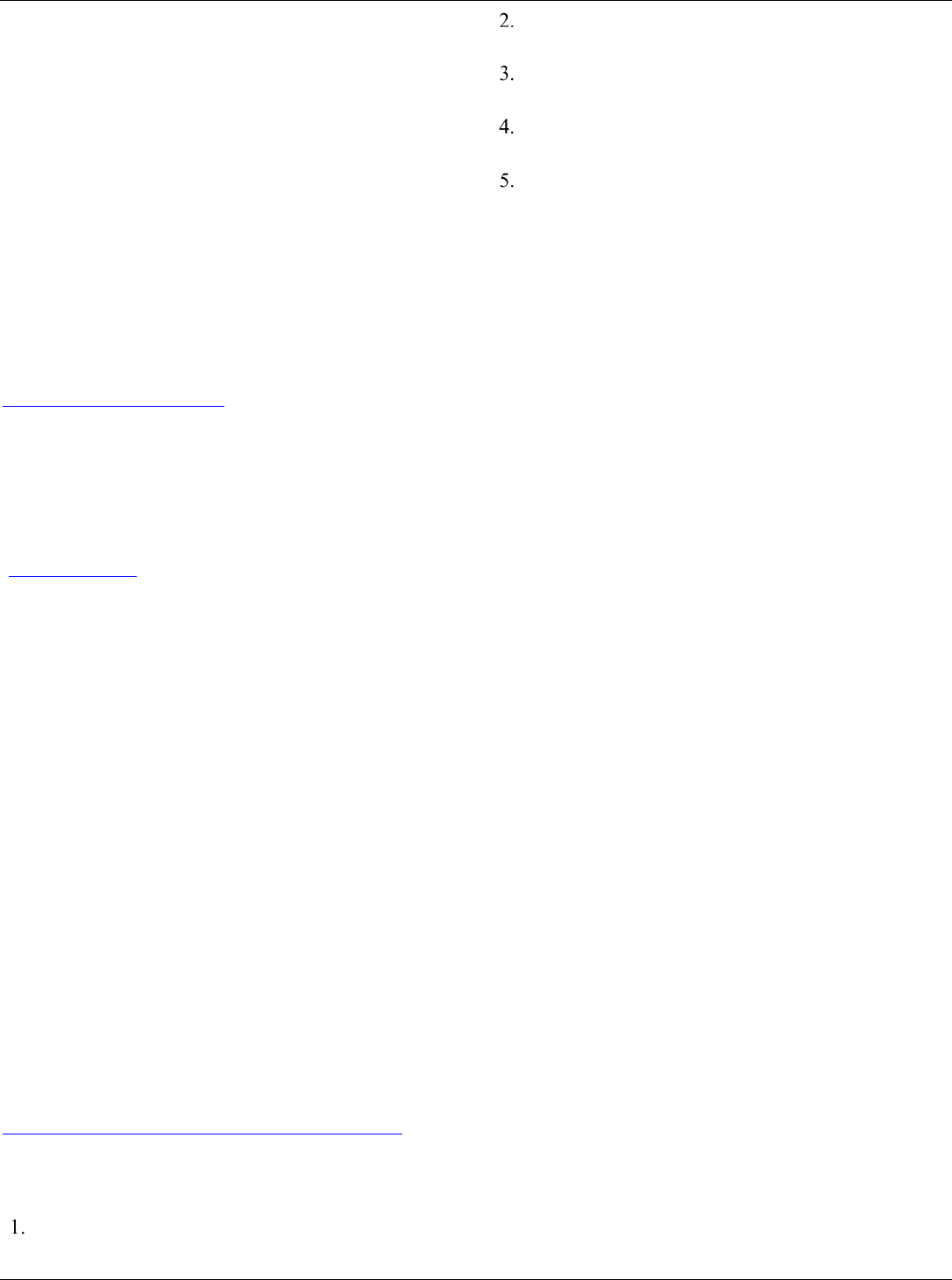
ONLINE UNDERGRADUATE PROGRAMS
2018-2019 ACADEMIC CATALOG 137
Bachelor of Arts in Accounting
Students pursuing the Accounting major at the University
will develop the necessary analytical, conceptual, technical
knowledge and proficiency in accounting. The curriculum
will enable students to better understand the internal and
external business environment through study in business
administration, economics, and quantitative methods.
Special Terms and Conditions: Successful completion of
this program by itself does not qualify a student to sit for
the Certified Public Accountant (CPA) examination. All
prospective students are advised to contact individual state
boards of accounting for additional information relating to
licensure requirements (e.g., education and work
experience and any potential restrictions, such as prior
criminal convictions) prior to enrolling. A list of state
accounting boards is available here:
www.nasba.org/stateboards/
. Prospective students are
also advised to regularly review the state’s policies and
procedures relating to licensure as those policies are
subject to change.
Additionally, students may wish to seek a Certified
Management Accountant designation. Information on the
CMA exam can be found at their website
(www.imanet.org
). Students are advised that a degree
program is different from an exam preparation course and
they may need more education in addition to work
experience in order to successfully pass the examination.
California Students: This program alone does not lead to
licensure. In order to sit for the Certified Public Account
(CPA) examination, a total of 150 semester credits must be
completed, which includes obtaining a baccalaureate
degree. Ashford students who transfer in general
education credits may need to determine that they are
meeting the requirements during their program of study.
There is an additional Ethics requirement that is also not
met in the undergraduate program at Ashford University.
Applicants must provide the California Board of
Accountancy (CBA) with satisfactory evidence of having
completed a minimum of 12 months of general accounting
experience, a CBA-accepted ethics examination that must
be passed within two years of submitting the CPA
application, a criminal history background check by
fingerprint via a Live Scan service and the completion of a
Criminal Conviction Disclosure Form to disclose any
misdemeanor or felony convictions. For additional details
regarding the CA requirements for obtaining a CPA
license, please visit:
http://www.dca.ca.gov/cba/applicants/applbook.pdf
.
Program Outcomes
Accounting major graduates will be able to:
Assess fundamental accounting principles and
procedures;
Apply technology tools related to the area of
accounting;
Evaluate alternatives to complex accounting
problems;
Integrate accounting and finance information in
business decision making; and
Analyze the legal, regulatory and ethical issues in the
practice of accounting.
Program Requirements
Total number of credits required: 120 credits
General Education Requirements: 43 credits
Major Course Requirements: 42 credits
Electives: 35 credits
Students must earn a minimum of 30 upper-division
credits.
Major Course Requirements (42 credits)
•
ACC 205 Principles of Accounting I (3 credits)
•
ACC 206 Principles of Accounting II (3
credits) Prerequisite: ACC 205
•
ACC 308 Accounting Information Systems (3 credits)
•
ACC 305 Intermediate Accounting I (3
credits) Prerequisite: ACC 206
•
ACC 306 Intermediate Accounting II (3
credits) Prerequisite: ACC 305
•
^BUS 308 Statistics for Managers (3 credits)
•
ECO 204 Principles of Microeconomics (3 credits)
•
^BUS 401 Principles of Finance (3
credits) Prerequisite: ACC 201 or ACC 205 or ACC
208 or ACC 281
•
ACC 310 Cost Accounting I (3 credits) Prerequisite:
ACC 206
•
ACC 380 Accounting for Not-For-Profit Organizations
(3 credits) Prerequisite: ACC 206
•
BUS 311 Business Law I (3 credits)
•
ACC 401 Federal Income Taxes I (3
credits) Prerequisite: ACC 205
•
ACC 407 Advanced Accounting (3
credits) Prerequisites: ACC 306 and ACC 310
•
^^ACC 410 Auditing (3 credits) Prerequisite: GEN
499.
^ Quantitative Reasoning Core Competency requirement
must be met before taking these courses.
^^ This course must be taken last in the program.
Please note, student who have successfully completed ACC
201 and/or ACC 202 at the Associate level will be waived

ONLINE UNDERGRADUATE PROGRAMS
138 ASHFORD UNIVERSITY
from ACC 205 and/or ACC 206 respectively at the
Bachelor’s level.
Bachelor of Arts in Business
Administration
The Bachelor of Arts in Business Administration program
prepares students for professional opportunities and
advancement in dynamic, global business environments.
The program is designed to focus on both current and
emerging business issues while incorporating a foundation
of business literature and theory appropriate for future
success in managing the business function of the firm.
Students also gain additional skills in critical thinking,
problem solving, quantitative analysis, applied business
research, and business writing in addition to fundamental
knowledge of accounting, finance, production and
distribution, management, marketing, business law, and
strategy.
Special Terms and Conditions: Successful completion of
this program by itself does not lead to licensure or
certification in any state, regardless of concentration or
specialization. Students seeking licensure or certification
in a particular profession are strongly encouraged to
carefully research the requirements prior to enrollment.
Requirements may vary by state. Ashford University does
not guarantee that any professional organization will
accept a graduate’s application to sit for any exam for the
purpose of professional certification.
Program Outcomes
Business Administration major graduates will be able to:
1.
Examine the role of competitive advantage in business
environments using strategic and operational methods;
2.
Compare and contrast regional, national, and
international business environments;
3.
Evaluate the legal, social, political, and economic
environments of business;
4.
Analyze financial information and other business data
to ensure effective managerial decision-making;
5.
Design effective solutions by diagnosing
organizational problems; and
6.
Create a strategic business plan.
Program Requirements
Total number of credits required: 120 credits
General Education Requirements: *43 credits
Major Course Requirements: *45 credits
Electives: 38 credits
Students must earn a minimum of 30 upper-division
credits.
*In this program, 6 credits from the major may also satisfy
General Education requirements.
Major Course Requirements (45 credits)
•
MGT 330 Management for Organizations (3 credits)
•
BUS 303 Human Resource Management (3 credits)
•
ECO 203 Principles of Macroeconomics (3 credits)
•
ECO 204 Principles of Microeconomics (3 credits)
•
*INF 220 IS Principles (3 credits)
•
ACC 201 Principles of Financial Accounting (3
credits)
•
ACC 202 Principles of Managerial Accounting (3
credits)
•
BUS 330 Principles of Marketing (3 credits)
•
*BUS 340 Business Communications (3 credits)
•
BUS 311 Business Law I (3 credits)
•
^BUS 308 Statistics for Managers (3 credits)
•
^MGT 302 Foundations of Productions & Operations
Management (3 credits) Prerequisites: ACC 206 or
ACC 202, BUS 308 and MGT 330.
•
*BUS 357 International Business (3 credits)
•
^BUS 401 Principles of Finance (3
credits) Prerequisites: ACC 201 or ACC 205 or ACC
208 or ACC 281
•
^^BUS 402 Strategic Management & Business Policy
(3 credits) Prerequisite: GEN 499.
* Satisfies General Education requirements.
^ Quantitative Reasoning Core Competency requirement
must be met before taking these courses.
^^ This course must be taken last in the program.
Transfer Concentration Option
Students may add a transfer concentration to the BA in
Business Administration program by transferring in 12
applicable credits in one of the following areas:
•
Business Management
•
Marketing
•
Accounting
•
Finance
•
Hospitality Management
•
Retail Management
•
Computer Science Studies
Transfer concentrations are intended for students who have
experience and/or extensive transfer credit coursework in a
field of study at the time of admission to the program. The
following major courses are designated for substitution

ONLINE UNDERGRADUATE PROGRAMS
2018-2019 ACADEMIC CATALOG 139
with concentration coursework, where appropriate: ECO
203, INF 220,
BUS 303, and BUS 340. For additional
details, see Transfer Concentration Guidelines in the
General Academic Information and Policies section of this
Catalog.
Bachelor of Arts in Business Economics
The Bachelor of Arts in Business Economics links the
fields of economics and business to provide students with
an understanding of the theoretical and practical
approaches of economics while preparing graduates for
employment in a continually changing global and
technologically innovative business environment. It
prepares students for employment in a variety of business
fields, particularly finance, banking, business
management, and government service.
Special Terms and Conditions: Successful completion of
this program by itself does not lead to licensure or
certification in any state, regardless of concentration or
specialization. Students seeking licensure or certification
in a particular profession are strongly encouraged to
carefully research the requirements prior to enrollment.
Requirements may vary by state. Ashford University does
not guarantee that any professional organization will
accept a graduate’s application to sit for any exam for the
purpose of professional certification.
Program Outcomes
Business Economics major graduates will be able to:
Assess business facts and interpret them consistent
with economic thinking;
Examine of how decision makers allocate scarce
resources to achieve economic efficiency;
Apply economic tools to analyze decisions made by
consumers, firms, and policy makers; and
Predict the impact of fiscal, monetary, and trade
policy on a firm using microeconomic and
macroeconomic models.
Program Requirements
Total number of credits required: 120 credits
General Education Requirements: 43 credits
Major Course Requirements: 45 credits
Electives: 32 credits
Students must earn a minimum of 30 upper-division
credits.
Major Course Requirements (45 credits)
•
MGT 330 Management for Organizations (3 credits)
•
BUS 311 Business Law I (3 credits)
•
ECO 203 Principles of Macroeconomics (3 credits)
•
ECO 204 Principles of Microeconomics (3 credits)
•
ACC 205 Principles of Accounting I (3 credits)
•
ACC 206 Principles of Accounting II (3 credits)
Prerequisite: ACC 205
•
^BUS 308 Statistics for Managers (3 credits)
•
ECO 316 Financial Institutions & Markets (3
credits) Prerequisite: ECO 100 or ECO 203
•
ECO 320 International Economics (3 credits)
•
^ECO 342 Principles of Econometrics (3
credits) Prerequisite: BUS 308
•
^BUS 401 Principles of Finance (3
credits) Prerequisite: ACC 201 or ACC 205 or ACC
208 or ACC 281
•
MGT 380 Leadership for Organizations (3 credits)
•
ECO 408 Managerial Economics (3 credits)
Prerequisite: ECO 204
•
ECO 406 Business Cycles & Growth (3
credits) Prerequisite: ECO 203
•
^^BUS 402 Strategic Management & Business Policy
(3 credits) Prerequisite: GEN 499.
^ Quantitative Reasoning Core Competency requirement
must be met before taking this course.
^^ This course must be taken last in the program.
Bachelor of Arts in Business Information
Systems
The Bachelor of Arts in Business Information Systems
program enables graduates to understand the interaction,
planning, development, and operations of information
systems and information sharing within a business or
organization. Courses focus on information technology
planning, networking, e-business strategies, strategic data
utilization, and business management, as well as problem
solving and leadership in designing, developing, and
implementing new or existing information systems within
businesses and organizations.
Special Terms and Conditions: Successful completion of
this program by itself does not lead to licensure or
certification in any state, regardless of concentration or
specialization. Students seeking licensure or certification
in a particular profession are strongly encouraged to
carefully research the requirements prior to enrollment.
Requirements may vary by state. Ashford University does
not guarantee that any professional organization will
accept a graduate’s application to sit for any exam for the
purpose of professional certification.
Program Outcomes
Business Information Systems major graduates will be
able to:

ONLINE UNDERGRADUATE PROGRAMS
140 ASHFORD UNIVERSITY
Apply analytical, logical, and critical thinking
abilities in the development of effective information
systems solutions;
Evaluate information systems and enterprise solutions
appropriate to meet presented business challenges;
Compare and contrast the local and global impact of
computing on individuals, organizations, providers,
and society;
Develop alternative information systems solutions
appropriate for addressing business problems;
Evaluate processes that support the delivery and
management of information systems within the
business application environment;
Apply knowledge to make responsible decisions
when addressing professional, ethical, legal, and
social issues and responsibilities relevant to the
Information Technology discipline; and
Employ collaborative team skills to accomplish a
common goal.
Program Requirements
Total number of credits required: 120 credits
General Education Requirements: *43 credits
Major Course Requirements: *45 credits
Electives: 35 credits
Students must earn a minimum of 30 upper-division
credits.
*In this program, 3 credits from the major may also satisfy
General Education requirements.
Major Course Requirements (45 credits)
•
MGT 330 Management for Organizations (3 credits)
•
ECO 204 Principles of Microeconomics (3 credits)
•
ACC 205 Principles of Accounting I (3 credits)
•
*INF 220 IS Principles (3 credits) Prerequisite: INF
103 or permission of instructor.
•
BUS 311 Business Law I (3 credits)
•
^BUS 308 Statistics for Managers (3 credits)
•
COM 340 Technical Writing (3 credits)
•
**INF 231 Programming Concepts (3
credits) Prerequisite: INF 103 or permission of
instructor.
•
INF 340 Business Systems Analysis (3 credits)
Prerequisite: Digital Literacy Competency
•
**^INF 322 Database Management Systems (3
credits) Prerequisite: INF 231
•
INF 325 Telecommunications & Networking Concepts
(3 credits) Prerequisite: INF 231 or permission of
the instructor
•
BUS 352 e-Business (3 credits)
•
PRM 300 Introduction to Project Management (3
credits)
•
INF 336 Project Procurement Management (3
credits) Prerequisite: INF 231 or permission of the
instructor
•
^^MGT 497 Strategic Technology Planning for
Organizations (3 credits) Prerequisite: GEN 499.
* Satisfies General Education requirements.
**Please note that some applications in this course may
require additional hardware, software, and/or internet
connectivity requirements. This includes use of Windows
XP with Service Pack 2.0 or higher and broadband Internet
access.
^ Quantitative Reasoning Core Competency requirement
must be met before taking this course.
^^ This course must be taken last in the program.
Bachelor of Arts in Business Leadership
The Bachelor of Arts in Business Leadership focuses on
understanding the skills and knowledge necessary to be an
effective leader in business organizations. The program
emphasizes theory and practice through a comprehensive
curriculum of communications, industrial/organizational
psychology, conflict management, organizational
behavior, social responsibility, motivation, strategic
management, and leadership.
Special Terms and Conditions: Successful completion of
this program by itself does not lead to licensure or
certification in any state, regardless of concentration or
specialization. Students seeking licensure or certification
in a particular profession are strongly encouraged to
carefully research the requirements prior to enrollment.
Requirements may vary by state. Ashford University does
not guarantee that any professional organization will
accept a graduate’s application to sit for any exam for the
purpose of professional certification.
Program Outcomes
Business Leadership major graduates will be able to:
Examine the influence of leadership, vision, and
strategic planning in a variety of organizations and
environments;
Assess the process of leading others in environments
increasingly characterized by change and complexity;
Apply principles of human behavior and motivation
to maximize use of human resources;

ONLINE UNDERGRADUATE PROGRAMS
2018-2019 ACADEMIC CATALOG 141
Analyze methods of organization change and
development; and
Evaluate the most recent tools and concepts emerging
in management and leadership.
Program Requirements
Total number of credits required: 120 credits
General Education Requirements: *43 credits
Major Course Requirements: *39 credits
Electives: 44 credits
Students must earn a minimum of 30 upper-division
credits.
*In this program, 6 credits from the major may also satisfy
General Education requirements.
Major Course Requirements (39 credits)
•
BUS 119 Principles of Personal & Organizational
Leadership (3 credits)
•
*BUS 250 Corporate & Social Responsibility (3
credits)
•
MGT 330 Management for Organizations (3 credits)
•
BUS 318 Organizational Behavior (3
credits) Prerequisite: BUS 201 or MGT 330
•
PSY 302 Industrial/Organizational Psychology (3
credits)
•
BUS 340 Business Communications (3 credits)
•
*COM 325 Communication & Conflict (3 credits)
Prerequisites: ENG 121 and ENG 122 or equivalents
•
MGT 380 Leadership for Organizations (3 credits)
•
MGT 425 Leadership & Motivation (3 credits)
•
MGT 321 Assessing Leadership Skills (3 credits)
•
BUS 370 Organizational Development (3
credits) Prerequisite: BUS 201 or MGT 330 or HCA
459
•
MGT 450 Strategic Planning for Organizations (3
credits) Prerequisite: MGT 330
•
^MGT 460 Leadership Priorities & Practice (3
credits) Prerequisite: GEN 499.
* Satisfies General Education requirements.
^This course must be taken last in the program.
Bachelor of Arts in Consumer and Family
Financial Services
The Bachelor of Arts in Consumer and Family Financial
Services program is designed to prepare students for
careers in insurance, investments, or family financial
advisement. While this program provides students with a
comprehensive knowledge of business finance, personal
financial planning, investment management, life and health
insurance, property and casualty insurance, principles of
banking, consumer lending, international finance, financial
institutions, and trust operations, it is distinct from a pure
corporate finance program due to its focus on individual
and personal support.
Special Terms and Conditions: Successful completion of
this program by itself does not lead to licensure or
certification in any state, regardless of concentration or
specialization. Students seeking licensure or certification
in a particular profession are strongly encouraged to
carefully research the requirements prior to enrollment.
Requirements may vary by state. Ashford University does
not guarantee that any professional organization will
accept a graduate’s application to sit for any exam for the
purpose of professional certification.
Program Outcomes
Consumer and Family Financial Services major graduates
will be able to:
Recommend appropriate financial information to
individual consumers;
Assess legal concepts and their application to the
individual investor;
Evaluate personal financial practices to achieve the
most efficient use of the clients financial resources;
Asses the role of financial advisor in the provision of
business services to clients;
Construct both short range and long range financial
plans for a client;
Examine the role of life, health, property, and
casualty insurance in business and personal financial
planning; and
Evaluate various types of investments in terms of
their risks and potential returns.
Program Requirements
Total number of credits required: 120 credits
General Education Requirements: *43 credits
Major Course Requirements: *45 credits
Electives: 35 credits
Students must earn a minimum of 30 upper-division
credits.
*In this program, 3 credits from the major may also satisfy
General Education requirements.
Major Course Requirements (45 credits)
•
BUS 215 Personal Financial Management (3 credits)
•
BUS 311 Business Law I (3 credits)
•
ECO 203 Principles of Macroeconomics (3 credits)
•
ACC 205 Principles of Accounting I (3 credits)

ONLINE UNDERGRADUATE PROGRAMS
142 ASHFORD UNIVERSITY
•
SRV 301 Introduction to Service Management (3
credits)
•
*PHI 445 Personal & Organizational Ethics (3 credits)
•
^BUS 308 Statistics for Managers (3 credits)
•
ECO 316 Financial Institutions & Markets (3 credits)
Prerequisite: ECO 100 or ECO 203
•
BUS 330 Principles of Marketing (3 credits)
•
BUS 323 Risk Management & Insurance (3 credits)
•
BUS 342 Financial Planning & Practice (3 credits)
•
^BUS 401 Principles of Finance (3
credits) Prerequisite: ACC 201 or ACC 205 or ACC
208 or ACC 281
•
BUS 405 Principles of Investments (3 credits)
Prerequisite: BUS 401
•
ACC 401 Federal Income Taxes I (3 credits)
Prerequisite: ACC 205
•
BUS 458 Consumer & Family Finance Capstone (3
credits) Prerequisite: GEN 499.
* Satisfies General Education requirements.
^ Quantitative Reasoning Core Competency requirement
must be met before taking these courses.
^^ This course must be taken last in the program.
Bachelor of Arts in eMarketing
The Bachelor of Arts in eMarketing degree prepares
student to compete in areas of advertising, marketing,
promotions, public relations, and coordinate the market
research, develop marketing strategy, assess sales data,
create advertising pieces, promote products or service,
initiate pricing policy, participate in product development,
and brand management from an e-business perspective.
Special Terms and Conditions: Successful completion of
this program by itself does not lead to licensure or
certification in any state, regardless of concentration or
specialization. Students seeking licensure or certification
in a particular profession are strongly encouraged to
carefully research the requirements prior to enrollment.
Requirements may vary by state. Ashford University does
not guarantee that any professional organization will
accept a graduate’s application to sit for any exam for the
purpose of professional certification.
Program Outcomes
eMarketing major graduates will be able to:
Evaluate marketing situations and make informed
marketing decisions;
Examine the significance of global markets and the
universal marketing processes to develop global
marketing plans applying alternative media
approaches;
Apply computer applications used by the e-marketing
profession in an e-business solution; and
Assess the business as an integrated system including
the relations among the functional business areas, and
the application long-range planning, implementation
and business control systems.
Program Requirements
Total number of credits required: 120 credits
General Education Requirements: 43 credits
Major Course Requirements: 45 credits
Electives: 32 credits
Students must earn a minimum of 30 upper-division
credits.
Major Course Requirements (45 credits)
•
MGT 330 Management for Organizations (3 credits)
•
CGD 218 Visual Literacy in Business (3 credits)
•
BUS 311 Business Law I (3 credits)
•
ECO 204 Principles of Microeconomics (3 credits)
•
ACC 205 Principles of Accounting I (3 credits)
•
^BUS 308 Statistics for Managers (3 credits)
•
BUS 330 Principles of Marketing (3 credits)
•
BUS 317 Introduction to Advertising (3 credits)
•
BUS 336 Marketing Strategy (3 credits)
•
BUS 350 Consumer Behavior (3 credits)
•
BUS 339 Marketing Research (3 credits)
•
BUS 343 International Marketing (3 credits)
•
BUS 352 e-Business (3 credits)
•
BUS 455 Internet & Social Media Marketing (3
credits) Prerequisite: BUS 330
•
^^BUS 497 e-Marketing Capstone (3
credits) Prerequisite: GEN 499
^ Quantitative Reasoning Core Competency requirement
must be met before taking these courses.
^^ This course must be taken last in the program.
Bachelor of Arts in Entrepreneurship
Business is inherently entrepreneurial in nature but the
skill set and knowledge required to be an entrepreneur are
different from those required of other business managers.
Ashford University’s Bachelor of Arts in Entrepreneurship
curriculum was designed to help emerging entrepreneurs
build successful businesses and harness opportunities. The
program takes students through a course of study that
educates them in sound business principles, preparing a

ONLINE UNDERGRADUATE PROGRAMS
2018-2019 ACADEMIC CATALOG 143
business plan, and how to finance and manage a small
business.
Special Terms and Conditions: Successful completion of
this program by itself does not lead to licensure or
certification in any state, regardless of concentration or
specialization. Students seeking licensure or certification
in a particular profession are strongly encouraged to
carefully research the requirements prior to enrollment.
Requirements may vary by state. Ashford University does
not guarantee that any professional organization will
accept a graduate’s application to sit for any exam for the
purpose of professional certification.
Program Outcomes
Entrepreneurship major graduates will be able to:
Assess the risks involved in an entrepreneurial
venture;
Analyze the impact of the political, legal and ethical
environment on entrepreneurial ventures;
Analyze emerging issues facing emerging businesses
in competitive markets;
Integrate the functional areas of business in the
strategic planning process; and
Construct a business plan for an entrepreneurial
venture.
Program Requirements
Total number of credits required: 120 credits
General Education Requirements: *43 credits
Major Course Requirements: *45 credits
Electives: 35 credits
Students must earn a minimum of 30 upper-division
credits.
*In this program, 3 credits from the major may also satisfy
General Education requirements.
Major Course Requirements (45 credits)
•
MGT 330 Management for Organizations (3 credits)
•
*PHI 445 Personal & Organizational Ethics (3 credits)
•
BUS 303 Human Resource Management (3 credits)
•
BUS 311 Business Law I (3 credits)
•
BUS 330 Principles of Marketing (3 credits)
•
ECO 204 Principles of Microeconomics (3 credits)
•
ACC 205 Principles of Accounting I (3 credits)
•
BUS 362 Introduction to Entrepreneurship (3 credits)
•
BUS 365 Creativity & Innovation (3
credits) Prerequisite: BUS 362
•
BUS 368 Venture Capital & Banking (3
credits) Prerequisite: BUS 362
•
^BUS 401 Principles of Finance (3
credits) Prerequisite: ACC 201 or ACC 205 or ACC
208 or ACC 281
•
BUS 435 Small Business Ventures (3
credits) Prerequisite: BUS 362
•
BUS 433 New Business Strategy (3
credits) Prerequisite: BUS 362
•
BUS 455 Internet & Social Media Marketing (3
credits) Prerequisite: BUS 330
•
^^BUS 437 Business Plan Development (3 credits)
Prerequisite: GEN 499.
* Satisfies General Education requirements.
^ Quantitative Reasoning Core Competency requirement
must be met before taking this course.
^^ This course must be taken last in the program.
Bachelor of Arts in Finance
The Bachelor of Arts in Finance provides students with an
understanding of financial analysis, financial management,
and financial systems. It prepares students for employment
in a variety of business fields including credit manager,
trust administrator, financial planning, financial services,
banking, real estate, corporate financial management, risk
management and insurance, and securities sales and
management.
Special Terms and Conditions: A degree in finance
prepares a student for many different career options. Some
of these career options will require holding specific
certifications such as Certified Financial Planner,
Chartered Financial Analyst or FINRA registration. While
a degree program provides a wide background in the
finance field, Ashford University does not guarantee that
any student is prepared for any certification examination
at the completion of their degree. You are encouraged to
research the requirements of each organization so that you
can see how your education and work experience can help
prepare you for the designation you will need.
Program Outcomes
Finance major graduates will be able to:
Analyze business and financial conditions using
appropriate problem solving skills;
Apply financial theories to conduct financial analysis;
Appraise financial practices to achieve the efficient
use of financial resources;
Evaluate the political, social, legal, regulatory, and
technological issues in the context of micro- and
macro-finance;
Evaluate financial information and non-financial
information in order to appropriately assess business
opportunities; and

ONLINE UNDERGRADUATE PROGRAMS
144 ASHFORD UNIVERSITY
Construct long-range financial planning,
implementation, and control systems.
Program Requirements
Total number of credits required: 120 credits
General Education Requirements: *43 credits
Major Course Requirements: *45 credits
Electives: 35 credits
Students must earn a minimum of 30 upper-division
credits.
*In this program, 3 credits from the major may also satisfy
General Education requirements.
Major Course Requirements (45 credits)
•
MGT 330 Management for Organizations (3 credits)
•
BUS 311 Business Law I (3 credits)
•
*PHI 445 Personal & Organizational Ethics (3 credits)
•
ECO 203 Principles of Macroeconomics (3 credits)
•
ECO 204 Principles of Microeconomics (3 credits)
•
ACC 205 Principles of Accounting I (3 credits)
•
ACC 206 Principles of Accounting II (3
credits) Prerequisite: ACC 205
•
BUS 215 Personal Financial Management (3 credits)
•
^BUS 308 Statistics for Managers (3 credits)
•
ECO 316 Financial Institutions & Markets (3
credits) Prerequisite: ECO 100 or ECO 203
•
BUS 323 Risk Management & Insurance (3 credits)
•
^BUS 401 Principles of Finance (3
credits) Prerequisite: ACC 201 or ACC 205 or ACC
208 or ACC 281
•
BUS 405 Principles of Investments (3
credits) Prerequisite: BUS 401
•
BUS 450 International Finance (3 credits)
•
^^BUS 402 Strategic Management & Business Policy
(3 credits) Prerequisite: GEN 499.
* Satisfies General Education requirements.
^ Quantitative Reasoning Core Competency requirement
must be met before taking this course.
^^ This course must be taken last in the program.
Bachelor of Arts in Human Resources
Management
The Bachelor of Arts in Human Resources Management
degree program is designed for students seeking to acquire
a concentration of human resource knowledge within a
broad base of business concepts. Students will explore and
acquire insights into the relationship between the
organization’s ability to implement its strategic intent
through the HR organization’s functional areas like
recruitment and selection, training and development,
compensation and benefits. All students must complete a
capstone requirement which integrates content across the
degree program and validates the students’ knowledge.
Special Terms and Conditions: Successful completion of
this program by itself does not lead to licensure or
certification in any state, regardless of concentration or
specialization. Students seeking licensure or certification
in a particular profession are strongly encouraged to
carefully research the requirements prior to enrollment.
Requirements may vary by state. Ashford University does
not guarantee that any professional organization will
accept a graduate’s application to sit for any exam for the
purpose of professional certification. Further, a criminal
record may prevent an applicant from obtaining licensure,
certification, or employment in this field of study.
Program Outcomes
Human Resources Management major graduates will be
able to:
Evaluate internal and external organizational
environments and the impact of their
interrelationships on human resource functions;
Analyze the process of job analysis, staffing,
appraisal and compensation, training, career planning,
and organizational development;
Examine the interaction among management, labor,
and labor law;
Assess and develop methods designed to prevent
employer liability and labor relation issues (anti-
discrimination statutes, employee and labor relations,
union and non-union environment issues); and
Analyze the ethical, legal, and safety challenges faced
in the workplace.
Program Requirements
Total number of credits required: 120 credits
General Education Requirements: 43 credits
Major Course Requirements: 45 credits
Electives: 32 credits
Students must earn a minimum of 30 upper-division
credits.
Major Course Requirements (45 credits)
•
MGT 330 Management for Organizations (3 credits)
•
BUS 303 Human Resource Management (3 credits)
•
BUS 318 Organizational Behavior (3
credits) Prerequisite: BUS 201 or MGT 330
•
ECO 204 Principles of Microeconomics (3 credits)

ONLINE UNDERGRADUATE PROGRAMS
2018-2019 ACADEMIC CATALOG 145
•
MGT 435 Organizational Change (3 credits)
•
ACC 205 Principles of Accounting I (3 credits)
•
BUS 311 Business Law I (3 credits)
•
BUS 330 Principles of Marketing (3 credits)
•
BUS 370 Organizational Development (3
credits) Prerequisite: BUS 201 or MGT 330 or HCA
459
•
BUS 372 Employee & Labor Relations (3
credits) Prerequisite: BUS 303
•
BUS 375 Employee Training (3
credits) Prerequisite: BUS 303
•
HRM 400 Human Resource Technology Management
(3 credits)
•
^BUS 401 Principles of Finance (3
credits) Prerequisite: ACC 201 or ACC 205 or ACC
208 or ACC 281
•
BUS 434 Compensation & Benefits Management (3
credits) Prerequisite: BUS 303
•
^^MGT 490 Strategic Human Resources Planning (3
credits) Prerequisite: GEN 499.
^ Quantitative Reasoning Core Competency requirement
must be met before taking this course.
^^ This course must be taken last in the program.
Bachelor of Arts in International Business
Business is inherently international in nature and the
success or even survival of modern multinational
enterprises is largely dependent upon highly skilled
business professionals competent in international business
practices and strategies. The Bachelor of Arts in
International Business degree program provides the
essential body of knowledge for students seeking well-
defined careers in international business and skills required
for professional advancement and business prosperity.
Special Terms and Conditions: Successful completion of
this program by itself does not lead to licensure or
certification in any state, regardless of concentration or
specialization. Students seeking licensure or certification
in a particular profession are strongly encouraged to
carefully research the requirements prior to enrollment.
Requirements may vary by state. Ashford University does
not guarantee that any professional organization will
accept a graduate’s application to sit for any exam for the
purpose of professional certification.
Program Outcomes
International Business major graduates will be able to:
Apply basic business practices to resolve
international business problems;
Assess market globalization factors and typical
business strategies for competing in foreign markets;
Construct a country strategic risk assessment that
includes all the relevant factors for firms operating
overseas or thinking of entering new markets;
Integrate culturally sensitive concepts into team
communication; and
Analyze emerging issues facing countries or
businesses in international markets.
Program Requirements
Total number of credits required: 120 credits
General Education Requirements: *43 credits
Major Course Requirements: *45 credits
Electives: 38 credits
Students must earn a minimum of 30 upper-division
credits.
*In this program, 6 credits from the major may also satisfy
General Education requirements.
Major Course Requirements (45 credits)
•
MGT 330 Management for Organizations (3 credits)
•
*PHI 445 Personal & Organizational Ethics (3 credits)
•
COM 370 Intercultural Communication (3 credits)
•
ECO 204 Principles of Microeconomics (3 credits)
•
ECO 320 International Economics (3 credits)
•
ACC 205 Principles of Accounting I (3 credits)
•
^BUS 308 Statistics for Managers (3 credits)
•
^BUS 307 Operations Management & Quantitative
Techniques (3 credits)
•
*BUS 357 International Business (3 credits)
•
BUS 343 International Marketing (3 credits)
•
BUS 378 International Business Law (3 credits)
•
BUS 439 International Human Resources Management
(3 credits)
•
POL 353 Comparative Politics (3 credits)
•
BUS 450 International Finance (3 credits)
•
^^MGT 492 Strategic Management for the
Multinational Enterprise Capstone (3
credits) Prerequisite: GEN 499.
* Satisfies General Education requirements.
^ Quantitative Reasoning Core Competency requirement
must be met before taking this course.
^^ This course must be taken last in the program.
Bachelor of Arts in Marketing
Ashford University’s Bachelor of Arts in Marketing
Program focuses on preparing students for professional

ONLINE UNDERGRADUATE PROGRAMS
146 ASHFORD UNIVERSITY
careers in marketing. The program provides an academic
baseline and develops technical knowledge and application
skills in market research, consumer behavior, advertising,
and strategy. Graduates will be able to analyze marketing
data, develop marketing plans, and examine the
appropriate use of marketing media.
Special Terms and Conditions: Successful completion of
this program by itself does not lead to licensure or
certification in any state, regardless of concentration or
specialization. Students seeking licensure or certification
in a particular profession are strongly encouraged to
carefully research the requirements prior to enrollment.
Requirements may vary by state. Ashford University does
not guarantee that any professional organization will
accept a graduate’s application to sit for any exam for the
purpose of professional certification.
Program Outcomes
Marketing major graduates will be able to:
Apply management and marketing concepts to
diverse marketing needs among domestic and
multiple global cultures;
Employ market research, data analysis and analytics
techniques to make informed marketing decisions;
Compare legal, ethical, sustainable, and socially
responsible marketing principles;
Utilize appropriate marketing communications and
digital practices to meet organizational and consumer
needs; and
Create a strategic marketing plan for a dynamic
business environment.
Program Requirements
Total number of credits required: 120 credits
General Education Requirements: *43 credits
Major Course Requirements: *45 credits
Electives: 35 credits
Students must earn a minimum of 30 upper-division
credits.
*In this program, 3 credits from the major may also satisfy
General Education requirements.
Major Course Requirements (45 credits)
•
MGT 330 Management for Organizations (3 credits)
•
*BUS 340 Business Communications (3 credits)
•
BUS 330 Principles of Marketing (3 credits)
•
BUS 317 Introduction to Advertising (3 credits)
•
^BUS 308 Statistics for Managers (3 credits)
•
BUS 339 Marketing Research (3 credits)
•
BUS 311 Business Law I (3 credits)
•
BUS 350 Consumer Behavior (3 credits)
•
ECO 204 Principles of Microeconomics (3 credits)
•
BUS 343 International Marketing (3 credits)
•
BUS 351 Integrated Marketing Communications (3
credits) Prerequisite: BUS 330
•
ACC 205 Principles of Accounting I (3 credits)
•
^ BUS 401 Principles of Finance (3 credits)
Prerequisite: ACC 201 or ACC 205 or ACC 208 or
ACC 281
•
BUS 410 Digital Marketing Essentials (3 credits)
Prerequisite: BUS 330
•
^^BUS 495 Marketing Capstone Course (3 credits)
Prerequisite: GEN 499.
* Satisfies General Education requirements.
^ Quantitative Reasoning Core Competency requirement
must be met before taking these courses.
^^ This course must be taken last in the program.
Bachelor of Arts in Operations
Management and Analysis
The Bachelor of Arts in Operations Management and
Analysis program prepares students to be operations
managers who possess the analytical, problem-solving, and
behavioral management skills needed to diagnose
problems, improve operating systems, and communicate
and gather support for required system improvements that
contribute to a business’ success. It prepares students for
employment in a variety of business fields, particularly
manufacturing, production control, distribution, inventory
control, quality management, and supply chain
management.
Special Terms and Conditions: Successful completion of
this program by itself does not lead to licensure or
certification in any state, regardless of concentration or
specialization. Students seeking licensure or certification
in a particular profession are strongly encouraged to
carefully research the requirements prior to enrollment.
Requirements may vary by state. Ashford University does
not guarantee that any professional organization will
accept a graduate’s application to sit for any exam for the
purpose of professional certification.
Program Outcomes
Operations Management and Analysis major graduates
will be able to:
Apply systems analysis to management decisions and
operational success;
Assess methods of quality management, product and
service development, and learn processes in business
operations;

ONLINE UNDERGRADUATE PROGRAMS
2018-2019 ACADEMIC CATALOG 147
Develop skills in managing projects and programs;
Examine globalization effects on the organization’s
operations, supply chain, and product or services
production; and
Analyze effective decision-making, problem solving,
and technical skills required in management.
Program Requirements
Total number of credits required: 120 credits
General Education Requirements: 43 credits
Major Course Requirements: 45 credits
Electives: 32 credits
Students must earn a minimum of 30 upper-division
credits.
Major Course Requirements (45 credits)
•
MGT 330 Management for Organizations (3 credits)
•
ECO 204 Principles of Microeconomics (3 credits)
•
ACC 205 Principles of Accounting I (3 credits)
•
ACC 206 Principles of Accounting II (3
credits) Prerequisite: ACC 205
•
^BUS 308 Statistics for Managers (3 credits)
•
^BUS 307 Operations Management & Quantitative
Techniques (3 credits)
•
INF 336 Project Procurement Management (3
credits)
Prerequisite: INF 231 or permission of the instructor
•
INF 337 Integrated Cost & Schedule Control (3
credits) Prerequisites: ACC 205 and BUS 308 or
MAT 332
•
INF 340 Business Systems Analysis (3
credits) Prerequisite: Digital Literacy Competency
•
BUS 461 Decision Modeling & Analysis (3
credits) Prerequisites: MGT 330 and BUS 308
•
BUS 445 Total Quality Management (3 credits)
•
BUS 446 Production Operations Control (3 credits)
•
^BUS 401 Principles of Finance (3
credits) Prerequisite: ACC 201 or ACC 205 or ACC
208 or ACC 281
•
PRM 300 Introduction to Project Management (3
credits)
•
^^BUS 402 Strategic Management & Business Policy
(3 credits) Prerequisite: GEN 499.
^ Quantitative Reasoning Core Competency requirement
must be met before taking this course.
^^ This course must be taken last in the program.
Bachelor of Arts in Organizational
Management
The Organizational Management program is designed for
students who have work experience and desire to improve
their understanding of how organizations function and
develop effective skills in management and leadership.
The curriculum places emphasis on the human side of
managing organizations, allowing for skill development in
communication, group behavior, decision making, human
resource management, and ethics. Focused attention is
given to defining and understanding strategic planning,
financial management, law, and marketing areas in which
an organizational leader must be knowledgeable to be
effective.
Special Terms and Conditions: Successful completion of
this program by itself does not lead to licensure or
certification in any state, regardless of concentration or
specialization. Students seeking licensure or certification
in a particular profession are strongly encouraged to
carefully research the requirements prior to enrollment.
Requirements may vary by state. Ashford University does
not guarantee that any professional organization will
accept a graduate’s application to sit for any exam for the
purpose of professional certification.
Program Outcomes
Organizational Management major graduates will be able
to:
Examine one’s personal leadership style and
determine its appropriateness to various
organizational situations;
Formulate management-level decisions within the
organizational framework;
Formulate strategies for effective team development;
Analyze alternative solutions for complex business
problems;
Compare and contrast individual characteristics that
influence work behaviors and organizational
effectiveness; and
Analyze the impact of social problems on the
workplace at the individual, group, organizational,
and societal levels.
Program Requirements
Total number of credits required: 120 credits
General Education Requirements: *43 credits
Major Course Requirements: *36 credits
Electives: 47 credits
Students must earn a minimum of 30 upper-division
credits.
*In this program, 6 credits from the major may also satisfy
General Education requirements.

ONLINE UNDERGRADUATE PROGRAMS
148 ASHFORD UNIVERSITY
Major Course Requirements (36 credits)
•
BUS 119 Principles of Personal and Organizational
Leadership (3 credits)
•
*BUS 250 Corporate and Social Responsibility (3
credits)
•
MGT 330 Management for Organizations (3 credits)
•
MGT 380 Leadership for Organizations (3 credits)
•
BUS 330 Principles of Marketing (3 credits)
•
BUS 318 Organizational Behavior (3 credits)
Prerequisite: BUS 201 or MGT 330
•
*BUS 340 Business Communication (3 credits)
•
MGT 435 Organizational Change (3 credits)
•
BUS 303 Human Resource Management (3 credits)
•
BUS 370 Organizational Development (3 credits)
Prerequisite: BUS 201 or MGT 330 or HCA 459
•
MGT 450 Strategic Planning for Organizations (3
credits) Prerequisite: MGT 330
•
^MGT 460 Leadership Priorities & Practice (3
credits) Prerequisite: GEN 499.
* Satisfies General Education requirements.
^ This course must be taken last in the program.
Transfer Concentration Option
Students may add a transfer concentration to the Bachelor
of Arts in Organizational Management program by
transferring in 12 applicable credits in a defined subject
area. Transfer concentrations are not required and are
intended for students who have experience and/or
extensive transfer credit coursework in a field of study at
the time of admission to the program. The following major
courses are designated for substitution with concentration
coursework, where appropriate: BUS 119, BUS 250, BUS
340 and MGT 435. For additional details, see Transfer
Concentration Guidelines in the General Academic
Information and Policies section of this Catalog.
Bachelor of Arts in Project Management
The Bachelor of Arts in Project Management program
provides students with the critical skills needed to manage
projects and lead project teams. Students learn how to
initiate, plan, execute, control, and close projects. Students
also learn critical skills related to leadership, team
development, risk analysis, project cost management,
schedule/task control, effective communication, and
quality control. This major is also designed to incorporate
the core business knowledge appropriate to manage wider
organizational processes.
Special Terms and Conditions: Successful completion of
this degree by itself does not qualify a student to sit for any
certification examinations offered by the Project
Management Institute (PMI) including: the Certified
Associate in Project Management (CAPM), Project
Management Professional (PMP), Program Management
Professional (PgMP), PMI Agile Certified Practitioner
(PMI-ACP), PMI Risk Management Professional (PMI-
RMP), or the PMI Scheduling Professional (PMI-SP).
Graduates of this program may meet some of the
requirements to sit for PMI certification exams, but, it is
the responsibility of each student or graduate to research
the requirements for each. In most instances, the
requirements to sit for a PMI certification exam include a
secondary diploma or a four year degree, and a certain
number of documented hours of project management
experience.
The Project Management Institute (PMI) is an independent
entity not affiliated with Ashford University. Successful
completion of this degree does not fully qualify a student
for any PMI certification. Students or graduates that are
interested in pursuing PMI certifications are strongly
encouraged to visit their website (www.pmi.org
) for
additional information.
Program Outcomes
Project Management major graduates will be able to:
Apply proven project management principles to
business situations;
Apply current project management best practices to
initiate, plan, execute, control, and close a well-
documented project;
Examine successful project team development and
management strategies;
Assess how project management practices can
support organizational effectiveness and the corporate
strategic planning process;
Evaluate the role of risk in projects and ways to
mitigate its effects;
Examine the application of ethics to the practice of
project management; and
Integrate dynamic business data using relevant
technology solutions.
Program Requirements
Total number of credits required: 120 credits
General Education Requirements: *43 credits
Major Course Requirements: *45 credits
Electives: 35 credits
Students must earn a minimum of 30 upper-division
credits.
*In this program, 3 credits from the major may also satisfy
General Education requirements.

ONLINE UNDERGRADUATE PROGRAMS
2018-2019 ACADEMIC CATALOG 149
Major Course Requirements (45 credits)
•
MGT 330 Management for Organizations (3 credits)
•
BUS 311 Business Law I (3 credits)
•
ECO 204 Principles of Microeconomics (3 credits)
•
ACC 205 Principles of Accounting I (3 credits)
•
^BUS 401 Principles of Finance (3 credits)
Prerequisites: ACC 201 or ACC 205 or ACC 208 or
ACC 281
•
BUS 303 Human Resource Management (3 credits)
•
^BUS 308 Statistics for Managers (3 credits)
•
PRM 300 Introduction to Project Management (3
credits)
•
INF 337 Integrated Cost & Schedule Control (3
credits) Prerequisites: ACC 205 and BUS 308 or
MAT 332
•
*PHI 445 Personal & Organizational Ethics (3 credits)
•
MGT 380 Leadership for Organizations (3 credits)
•
INF 336 Project Procurement Management (3
credits) Prerequisite: INF 231 or permission of the
instructor
•
BUS 445 Total Quality Management (3 credits)
•
MGT 435 Organizational Change (3 credits)
•
^^BUS 402 Strategic Management & Business Policy
(3 credits) Prerequisite: GEN 499
* Satisfies General Education requirements.
^ Quantitative Reasoning Core Competency requirement
must be met before taking this course.
^^ This course must be taken last in the program.
Bachelor of Arts in Public Administration
The Bachelor of Art in Public Administration is designed
for students who seek entry-level management careers in
government management at the federal, state, or local level
and nonprofit management. Students will receive a solid
foundation in public sector practices and processes
complemented by coursework in the social sciences.
Special Terms and Conditions: Successful completion of
this program by itself does not lead to licensure or
certification in any state, regardless of concentration or
specialization. Students seeking licensure or certification
in a particular profession are strongly encouraged to
carefully research the requirements prior to enrollment.
Requirements may vary by state. Ashford University does
not guarantee that any professional organization will
accept a graduate’s application to sit for any exam for the
purpose of professional certification.
Program Outcomes
Public Administration major graduates will be able to:
Organize theoretical knowledge for understanding,
developing, and implementing public policy and
administration;
Integrate academic theory and practical applications;
Apply management theory to the practice of public
administration;
Analyze relevant political and legal factors in the
policy process and analyze their roles critically; and
Judge the ethical components of public responsibility.
Program Requirements
Total number of credits required: 120 credits
General Education Requirements: *43 credits
Major Course Requirements: *45 credits
Electives: 35 credits
Students must earn a minimum of 30 upper-division
credits.
*In this program, 3 credits from the major may also satisfy
General Education requirements.
Major Course Requirements (45 credits)
•
MGT 330 Management for Organizations (3 credits)
•
MGT 380 Leadership for Organizations (3 credits)
•
POL 303 The American Constitution (3 credits)
•
POL 310 Environmental Policies (3 credits)
•
ECO 203 Principles of Macroeconomics (3 credits)
•
^BUS 308 Statistics for Managers (3 credits)
•
*PHI 445 Personal & Organizational Ethics (3 credits)
•
PPA 301 Principles of Public Administration (3
credits)
•
PPA 303 Finance for Public Administrators (3
credits) Prerequisite: ECO 203
•
PPA 305 Budgeting for Public Administrators (3
credits)
•
PPA 307 Intergovernmental Relations & Issues (3
credits) Prerequisite: PPA 301
•
PPA 401 Urban Management (3
credits) Prerequisite: PPA 301
•
PPA 403 Administrative Law (3 credits)
•
PPA 405 Personnel Management (3 credits)
•
^^PPA 497 Public Policy Formation (3
credits) Prerequisite: GEN 499
* Satisfies General Education requirements.
^ Quantitative Reasoning Core Competency requirement
must be met before taking this course.
^^ This course must be taken last in the program.

ONLINE UNDERGRADUATE PROGRAMS
150 ASHFORD UNIVERSITY
Bachelor of Arts in Public Relations and
Marketing
Graduates of the major in Public Relations and Marketing
will be able to develop an understanding and mastery of
marketing and public relations functions. Emphasis is on
creating a repertoire of communication skills in order to
become an effective communicator across contexts, as well
as to develop competence in using planning skills to create
and implement marketing and public relations solutions to
meet client’s needs. Graduates will be able to evaluate the
effectiveness and appropriateness of marketing and public
relations messages and engage in problem analysis,
strategic planning, message development, and tactical
solutions.
Special Terms and Conditions: Successful completion of
this program by itself does not lead to licensure or
certification in any state, regardless of concentration or
specialization. Students seeking licensure or certification
in a particular profession are strongly encouraged to
carefully research the requirements prior to enrollment.
Requirements may vary by state. Ashford University does
not guarantee that any professional organization will
accept a graduate’s application to sit for any exam for the
purpose of professional certification.
Program Outcomes
Public Relations and Marketing major graduates will be
able to:
Develop an understanding and mastery of marketing,
and public relations functions;
Create a repertoire of communication skills in order
to become an effective communicator across
contexts;
Develop competence in using planning skills to create
and implement marketing and public relations
solutions to meet client’s needs;
Evaluate the effectiveness and appropriateness of
marketing and public relations messages; and
Engage in problem analysis, strategic planning,
message development, and tactical solutions.
Program Requirements
Total number of credits required: 120 credits
General Education Requirements: *43 credits
Major Course Requirements: *45 credits
Electives: 38 credits
Students must earn a minimum of 30 upper-division
credits.
*In this program, 6 credits from the major may also satisfy
General Education requirements.
Major Course Requirements (45 credits)
•
MGT 330 Management for Organizations (3 credits)
•
BUS 330 Principles of Marketing (3 credits)
•
BUS 317 Introduction to Advertising (3 credits)
•
BUS 336 Marketing Strategy (3 credits)
•
BUS 339 Marketing Research (3 credits)
•
*BUS 340 Business Communications (3 credits)
•
BUS 343 International Marketing (3 credits)
•
BUS 350 Consumer Behavior (3 credits)
•
BUS 352 e-Business (3 credits)
•
CGD 218 Visual Literacy in Business (3 credits)
•
CGD 240 Media Writing & Editing (3 credits)
•
CGD 318 Public Relations Practices & Promotional
Writing (3 credits)
•
PRM 300 Introduction to Project Management (3
credits)
•
*PHI 445 Personal & Organizational Ethics (3 credits)
•
^BUS 421 PR/Marketing Capstone (3
credits) Prerequisite: GEN 499
* Satisfies General Education requirements.
^ This course must be taken last in the program.
Bachelor of Arts in Real Estate Studies
The Bachelor of Arts in Real Estate Studies degree
prepares student for a career in the real estate profession.
The curriculum incorporates a rich foundation of general
business with the specialized advanced core in real estate
studies. The real estate major prepares students for careers
in mortgage lending, development, equity investment,
brokerage and sales, valuation, consulting, property and
asset management, etc.
Special Terms and Conditions: Successful completion of
this degree does not guarantee that any state real estate
licensing agency will accept a students or a graduate’s
application to sit for or successfully complete any such
exam. In addition, Ashford University does not guarantee
that any professional organization will accept a
graduate’s application to sit for a certification or as a
qualifying academic credential for membership in such
professional organization.
Most US states require licensing to perform various
professional activities associated with real estate business
services. Such licensing may require an examination
performed by designated controlling state agencies. If
students or graduates are interested in pursuing any state
licenses, they are strongly encouraged to research their
local state real estate agency’s requirements for licensure.
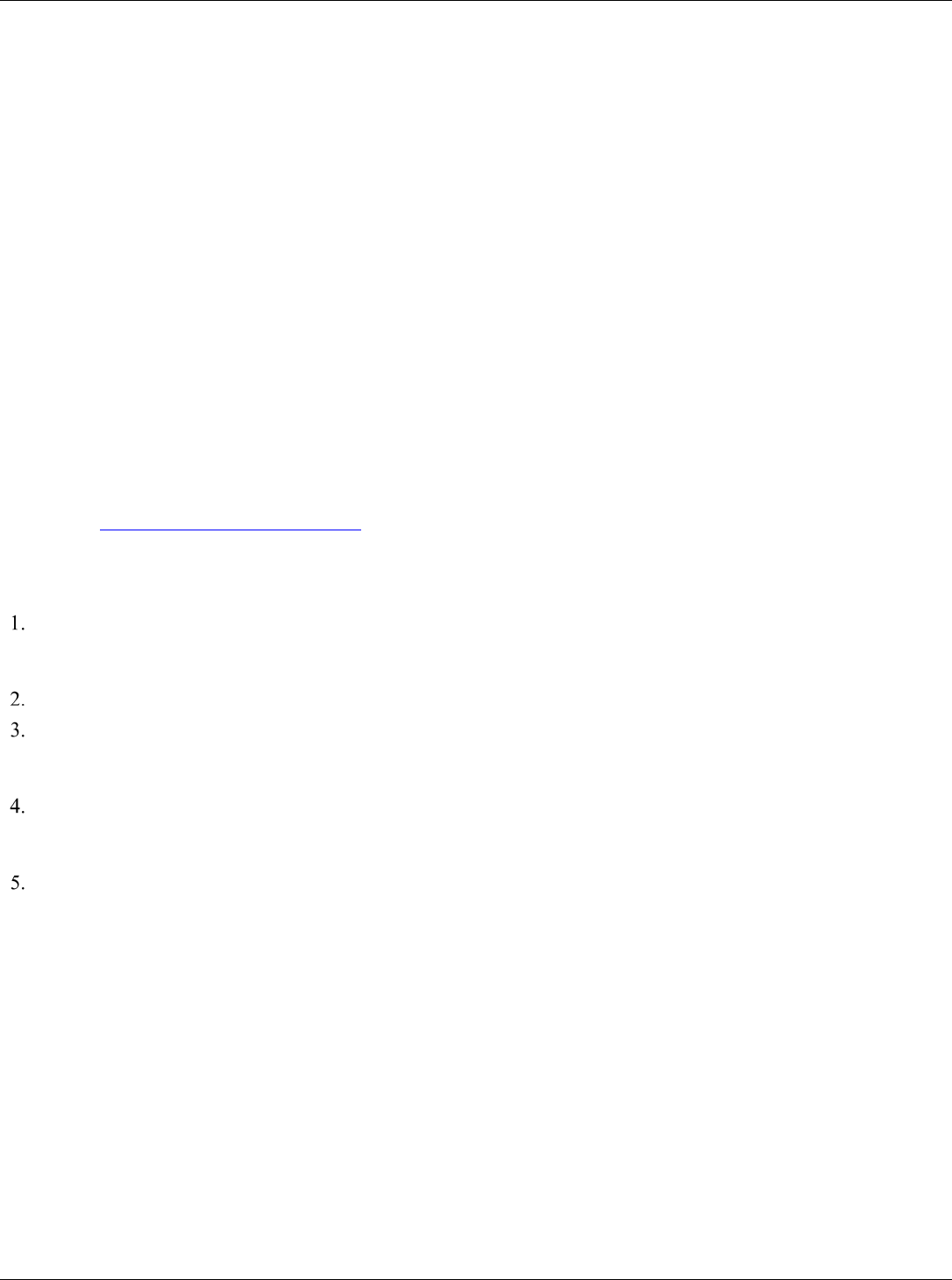
ONLINE UNDERGRADUATE PROGRAMS
2018-2019 ACADEMIC CATALOG 151
California Students: This program alone does not lead to
licensure. For students wishing to sit for the California
Real Estate Salesperson Licensing Exam, this program
only meets the educational requirements. For this purpose,
a total of two specific (RES301 and RES325) and one
optional course is required, for a total of 9 college credits.
Optional courses can be satisfied by any course within the
program. Finishing this program, or only completing the 9
college credits mentioned above, does not prepare a
student to sit for the exam. In addition to these three
courses, applicants must be 18 years or older, be a CA
resident or qualify as an out-of-state applicant, and pass a
criminal history background check by fingerprint via a
Live Scan service that may include an investigation into
felony and misdemeanor convictions. For students wishing
to sit for the CA Broker License Exam, additional courses
will need to be completed and a minimum of two years
full-time licensed salesperson experience within the last
five years or the equivalent is required. The additional
courses required, however, must be examined on a case by
case basis. For additional details regarding the CA
requirements for obtaining a real estate salesperson,
please visit: http://www.bre.ca.gov/Examinees
.
Program Outcomes
Real Estate Studies major graduates will be able to:
Assess real estate professional governance and
licensing in the states and how such laws and systems
benefit consumers;
Examine essential real estate business practices;
Apply real estate law, contract law, and Uniform
Commercial Code in solving complex real estate
problems;
Discern how economic, demographic, dynamic, and
market trends influence real estate and real estate
valuations; and
Examine basic real estate financial markets and
financing methods most commonly applied to single
family residences, multiple family residences, and
commercial properties.
Program Requirements
Total number of credits required: 120 credits
General Education Requirements: *43 credits
Major Course Requirements: *45 credits
Electives: 35 credits
Students must earn a minimum of 30 upper-division
credits.
*In this program, 3 credits from the major may also satisfy
General Education requirements.
Major Course Requirements (45 credits)
•
MGT 330 Management for Organizations (3 credits)
•
BUS 311 Business Law I (3 credits)
•
*PHI 445 Personal & Organizational Ethics (3 credits)
•
ACC 205 Principles of Accounting I (3 credits)
•
^BUS 308 Statistics for Managers (3 credits)
•
RES 301 Principles of Real Estate (3 credits)
•
RES 325 Real Estate Practice (3 credits)
•
RES 327 Real Estate Economics (3 credits)
•
BUS 330 Principles of Marketing (3 credits)
•
RES 334 Real Estate Finance (3 credits)
•
RES 345 Legal Aspects of Real Estate (3 credits)
•
RES 429 Property Management (3 credits)
•
RES 431 Commercial Real Estate Investment (3
credits)
•
RES 450 Real Estate Appraisal (3 credits)
•
^^RES 497 Strategic Management of the Real Estate
Enterprise (3 credits) Prerequisite: GEN 499
* Satisfies General Education requirements.
^ Quantitative Reasoning Core Competency requirement
must be met before taking these courses.
^^ This course must be taken last in the program.
Bachelor of Arts in Service Management
The Bachelor of Arts in Service Management with
specializations program is designed to provide the
knowledge and skills to be effective in one of the fastest
growing sectors of the economy. The course of study
prepares students to deliver services that include all
internal and external activities of organizations aimed at
customer acquisition, retention and care.
Because careers may range from consultant and specialist
jobs to management tasks within the numerous fields and
functions in the service sector, students must select a
specialization in this program. Specializations include
Non-profit Enterprise, Hospitality Enterprise, Restaurant
Enterprise Management, and Retail Management.
Special Terms and Conditions: Successful completion of
this program by itself does not lead to licensure or
certification in any state, regardless of concentration or
specialization. Students seeking licensure or certification
in a particular profession are strongly encouraged to
carefully research the requirements prior to enrollment.
Requirements may vary by state. Ashford University does
not guarantee that any professional organization will
accept a graduate’s application to sit for any exam for the
purpose of professional certification.
Program Outcomes
Service Management major graduates will be able to:

ONLINE UNDERGRADUATE PROGRAMS
152 ASHFORD UNIVERSITY
Assess service logistics in a variety of service
environments;
Apply various service systems to construct customer
relationship platforms;
Integrate innovative practices and processes designed
to increase the performance of a service organization;
Develop new human capital strategies in service
organizations; and
Design service metrics based on the needs of a
service organization.
Program Requirements
Total number of credits required: 120 credits
General Education Requirements: 43 credits
Major Course Requirements: 33 credits
Required Specialization: 12 credits
Electives: 32 credits
Students must earn a minimum of 30 upper-division
credits.
Major Course Requirements (33 credits)
•
MGT 330 Management for Organizations (3 credits)
•
BUS 303 Human Resource Management (3 credits)
•
BUS 311 Business Law I (3 credits)
•
ACC 205 Principles of Accounting I (3 credits)
•
ACC 206 Principles of Accounting II (3 credits)
Prerequisite: ACC 205
•
ECO 204 Principles of Microeconomics (3 credits)
•
SRV 301 Introduction to Service Management (3
credits)
•
SRV 312 Service Operations Management (3
credits) Prerequisite: SRV 301
•
SRV 340 Marketing in a Services Environment (3
credits) Prerequisite: SRV 301
•
^BUS 401 Principles of Finance (3
credits) Prerequisite: ACC 201 or ACC 205 or ACC
208 or ACC 281
•
^BUS 402 Strategic Management & Business Policy
(3 credits) Prerequisite: GEN 499
Choose one specialization from the following:
Hospitality Enterprise Specialization (12 credits)
•
SRV 332 Fundamentals of Hospitality (3
credits) Prerequisite: SRV 301
•
SRV 333 Resort Management (3
credits) Prerequisite: SRV 301
•
SRV 423 Food & Beverage Control (3
credits) Prerequisite: SRV 301
•
SRV 425 Event, Meeting, & Conference Management
(3 credits) Prerequisite: SRV 301
Retail Management Specialization (12 credits)
•
BUS 337 Principles of Retail Management (3 credits)
•
BUS 317 Introduction to Advertising (3 credits)
•
BUS 441 Retail Pricing Management (3
credits) Prerequisites: ECO 204 and SRV 340
•
BUS 442 Retail Merchandising (3 credits)
Non-Profit Enterprise Specialization (12 credits)
•
SOC 315 Cross-Cultural Perspectives (3 credits)
•
BUS 318 Organizational Behavior (3 credits)
Prerequisite: BUS 201 or MGT 330
•
SRV 428 Non-Profit Agency Management (3
credits) Prerequisite: SRV 301
•
SRV 429 Fiscal Management of Nonprofit
Organizations (3 credits) Prerequisite: SRV 301
Restaurant Enterprise Management Specialization
(12 credits)
•
SRV 346 Introduction to Restaurant Management (3
credits) Prerequisite: SRV 301
•
SRV 347 Sanitation & Safety (3
credits) Prerequisite: SRV 301
•
SRV 438 Menu Planning & Design (3
credits) Prerequisite: SRV 301
•
SRV 423 Food & Beverage Control (3
credits) Prerequisite: SRV 301
^ Quantitative Reasoning Core Competency requirement
must be met before taking this course.
^^ This course must be taken last in the program.
Bachelor of Arts in Sports and Recreation
Management
The Sports and Recreation Management major helps to
prepare professionals for managerial positions in the sports
and recreation industry including professional,
intercollegiate, and interscholastic sports; sport/fitness
clubs; sports/athletics equipment merchandising; public,
private, and commercial recreation programs; and
intramural and recreational sports.
Students complete coursework in the following areas:
accounting, business, economics, English, information
systems, philosophy, physical education, sociology,
speech, and psychology. The curriculum consists of
learning experiences that are essential for assuming entry-
level business management positions in the sports and
recreation profession.

ONLINE UNDERGRADUATE PROGRAMS
2018-2019 ACADEMIC CATALOG 153
Students completing the required coursework will be
exposed to various theories of management in the field of
business administration, exhibit college-level writing and
speaking skills, and acquire a knowledge base in the field
of sports and recreation management.
Special Terms and Conditions: This degree program is in
Candidacy Status by the Commission on Sport
Management Accreditation (COSMA), located in Fort
Collins, CO, USA.
Successful completion of this program by itself does
not lead to licensure or certification in any state,
regardless of concentration or specialization. Students
seeking licensure or certification in a particular profession
are strongly encouraged to carefully research the
requirements prior to enrollment. Requirements may vary
by state. Ashford University does not guarantee that any
professional organization will accept a graduate’s
application to sit for any exam for the purpose of
professional certification.
Program Outcomes
Sports and Recreation Management major graduates will
be able to:
Integrate knowledge from sports recreation and
business administration fields;
Examine the relationship between theory and
practice;
Analyze effective means of communication in a
variety of modalities;
Apply business procedures to team and facilities
management; and
Assess appropriate decision making skills in a variety
of sports and recreation organizations.
Program Requirements
Total number of credits required: 120 credits
General Education Requirements: *43 credits
Major Course Requirements: *45 credits
Electives: 35 credits
Students must earn a minimum of 30 upper-division
credits.
*In this program, 3 credits from the major may also satisfy
General Education requirements.
Major Course Requirements (45 credits)
•
MGT 330 Management for Organizations (3 credits)
•
CGD 218 Visual Literacy in Business (3 credits)
•
CGD 318 Public Relations Practices & Promotional
Writing (3 credits)
•
BUS 330 Principles of Marketing (3 credits)
•
*BUS 340 Business Communications (3 credits)
•
ACC 205 Principles of Accounting I (3 credits)
•
^BUS 307 Operations Management & Quantitative
Techniques (3 credits)
•
SRM 401 Sport Finance (3 credits) Prerequisite:
ACC 205
•
SRM 311 Sport Law (3 credits)
•
ECO 203 Principles of Macroeconomics (3 credits)
•
PRM 300 Introduction to Project Management (3
credits)
•
BUS 303 Human Resource Management (3 credits)
•
SRM 320 Organization & Administration of Sports &
Recreation Management (3 credits)
Prerequisite: Junior standing or permission of
instructor.
•
SRM 410 Contemporary Issues in Sports Marketing &
Management (3 credits)
•
^^SRM 325 Case Research in Sports & Recreation
Management (3 Credits) Prerequisite: GEN 499
* Satisfies General Education requirements.
^ Quantitative Reasoning Core Competency requirement
must be met before taking these courses.
^^ This course must be taken last in the program.
Bachelor of Arts in Supply Chain
Management
The Bachelor of Arts in Supply Chain Management
program focuses on effective management of supply chain
processes and information flows that optimize activities
and costs to serve the customer efficiently and effectively.
Production schedules, procurement, transportation
services, quality, and warehousing management activities
are studied as individual functions as well as strategic
relationships among the functions. Emphasis is placed on
problem solving, logical thinking, and development of
accurate management assessments. This major is also
designed to incorporate the core business knowledge
appropriate to manage wider organizational processes.
Special Terms and Conditions: Successful completion of
this degree by itself does not qualify students to obtain any
certifications from The Association for Operations
Management (APICS). Also, successful completion of this
degree does not by itself qualify students to sit for the
APICS Certified Supply Chain Professional (CSCP)
certificate examination. The requirements to sit for the
CSCP certificate examination include a combination of
education and documented supply chain management
experience. Conversely, the APICS Certified in Production
and Inventory Management (CPIM) certificate does not
have any requirements to take the five examinations which
are required to obtain CPIM certification, aside from
exam registration fees.
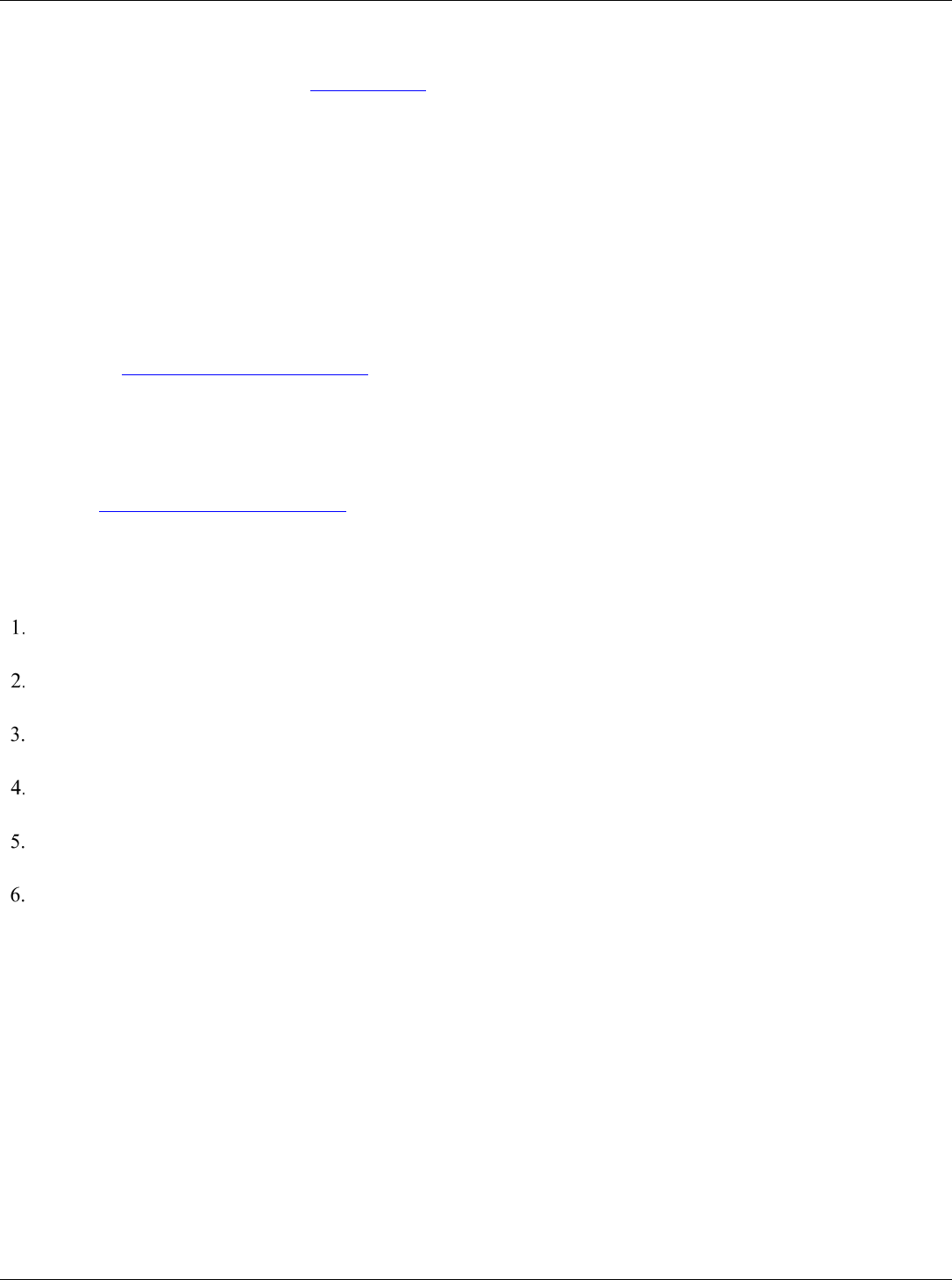
ONLINE UNDERGRADUATE PROGRAMS
154 ASHFORD UNIVERSITY
Students or graduates interested in pursuing the APICS
CSCP or the APICS CPIM certification are strongly
encouraged to visit the APICS website (www.apics.org
) for
additional information.
Similarly, successful completion of this degree by itself
does not qualify students to obtain any certifications from
The American Purchasing Society or sit for any of their
certification examinations. If a student or graduate is
interested in pursuing certifications offered by this
professional association including: the Certified
Purchasing Professional (CPP), the Certified Professional
Purchasing Manager (CPPM), and the Certified
Professional Purchasing Consultant (CPPC), they are
strongly encouraged to visit The American Purchasing
Society portal (www.american-purchasing.com
). Some of
the prerequisites for eligibility for certification are a
minimum of three years purchasing related experience or
a degree from a recognized college, plus two years of
purchasing related experience. Information on other
prerequisites and requirements for certification is
available at
www.american-purchasing.com.
Program Outcomes
Supply Chain Management major graduates will be able
to:
Apply proven supply chain management principles to
business situations;
Examine globalization effects on the organization’s
supply chain and product or services production;
Evaluate an appropriate supply chain design for a
given application;
Analyze the implications of supply chain
management to organizational effectiveness;
Assess supply chain performance using information
technology; and
Integrate supply chain goals with the corporate
strategic planning process.
Program Requirements
Total number of credits required: 120 credits
General Education Requirements: 43 credits
Major Course Requirements: 48 credits
Electives: 32 credits
Students must earn a minimum of 30 upper-division
credits.
*In this program, 3 credits from the major may also satisfy
General Education requirements.
Major Course Requirements (48 credits)
•
MGT 330 Management for Organizations (3 credits)
•
BUS 311 Business Law I (3 credits)
•
ECO 204 Principles of Microeconomics (3 credits)
•
ACC 205 Principles of Accounting I (3 credits)
•
MGT 380 Leadership for Organizations (3 credits)
•
^BUS 401 Principles of Finance (3 credits)
Prerequisites: ACC 201 or ACC 205 or ACC 208 or
ACC 281
•
^BUS 308 Statistics for Managers (3 credits)
•
*INF 220 IS Principles (3 credits) Prerequisite: INF
103 or permission of instructor
•
^BUS 307 Operations Management & Quantitative
Techniques (3 credits)
•
MGT 323 Principles of Supply Chain Management (3
credits) Prerequisite: MGT 330
•
MGT 370 International Supply Chain Management (3
credits)
•
MGT 300 Supply Management (3 credits)
•
MGT 400 Logistics Management (3 credits)
Prerequisite: MGT 330
•
BUS 445 Total Quality Management (3 credits)
•
BUS 461 Decision Modeling & Analysis (3
credits) Prerequisites: MGT 330 and BUS 308
•
^^MGT 496 Strategic Warehouse Management (3
credits) Prerequisite: GEN 499
^ Quantitative Reasoning Core Competency requirement
must be met before taking this course.
^^^ This course must be taken last in the program.
Bachelor of Arts in Sustainable Enterprise
Management
(This program is not accepting new enrollments)
The emerging green economy requires significantly
different business skills, competencies, and world view.
The Ashford University Bachelor of Arts in Sustainable
Enterprise Management curriculum is designed to ready
students for those careers in which sustainable business
practices and operating principles are the norm. The focus
of the program beyond the general business core is the
development of specialized competencies in social
responsibility and environmentally friendly business
practices.
Special Terms and Conditions: Successful completion of
this program by itself does not lead to licensure or
certification in any state, regardless of concentration or
specialization. Students seeking licensure or certification
in a particular profession are strongly encouraged to
carefully research the requirements prior to enrollment.
Requirements may vary by state. Ashford University does
not guarantee that any professional organization will

ONLINE UNDERGRADUATE PROGRAMS
2018-2019 ACADEMIC CATALOG 155
accept a graduate’s application to sit for any exam for the
purpose of professional certification.
Program Outcomes
Sustainable Enterprise Management major graduates will
be able to:
Evaluate business processes applying
environmentally appropriate management techniques;
Develop economically, environmentally, and socially
sound sustainable decision processes;
Evaluate the impact of products, processes, and
activities through life cycle assessment;
Examine professional and ethically responsible
challenges in the environmentally friendly business
context; and
Assess the business as an integrated system including
the relations among the functional areas, and the
application of long-range planning, implementation
and control systems.
Program Requirements
Total number of credits required: 120 credits
General Education Requirements: *52 credits
Major Course Requirements: *46 credits
Electives: 32 credits
Students must earn a minimum of 30 upper-division
credits.
*In this program, 10 credits from the major and 3 credits
from introductory requirements may also satisfy General
Education requirements.
Introductory Course Requirements
(6 credits)
•
+EXP 105 Personal Dimensions of Education (3
credits)
•
*PSY 202 Adult Development & Life Assessment (3
credits)
Major Course Requirements (46 credits)
•
*SCI 207 Dependence of Man on the Environment (4
credits)
•
ENV 230 Concepts of Sustainability (3 credits)
•
MGT 330 Management for Organizations (3 credits)
•
BUS 311 Business Law I (3 credits)
•
*POL 310 Environmental Policies (3 credits)
•
ECO 203 Principles of Macroeconomics (3 credits)
•
ACC 205 Principles of Accounting I (3 credits)
•
BUS 307 Operations Management & Quantitative
Techniques (3 credits) Prerequisite: Mathematical
competency
•
BUS 308 Statistics for Managers (3 credits)
Prerequisite: Mathematical competency
•
ENV 322 Energy & Environmental Systems (3 credits)
•
ENV 333 Environmental Impact (3 credits)
•
BUS 401 Principles of Finance (3 credits)
Prerequisites: ACC 205 or ACC 208 and
Mathematical competency
•
BUS 427 Sustainable Business Practices (3 credits)
•
*PHI 445 Personal & Organizational Ethics (3 credits)
•
BUS 402 Strategic Management & Business Policy (3
credits) Prerequisites: BUS 201 or MGT 330, ACC
205 and ECO 203 or ECO 204 and GEN 499
+ EXP 105 fulfills 3 credits toward total elective credit
requirements and is required for online students with fewer
than 24 transferable credits.
* Satisfies General Education requirements.
Bachelor of Science in Computer
Software Technology
The Bachelor of Science degree in Computer Software
Technology at Ashford University has been built on a solid
foundation of mathematics and computer programming.
The program is aimed to help students develop and
maintain software systems that behave reliably and
efficiently, are affordable to develop and maintain, and
satisfy all the requirements that customers have defined for
them. The Computer Software Technology program is
developed on the basis of adaptive and engaged learning
concepts and aimed to improve student professionalism
and develop their ability to communicate ideas, work in
groups, manage software products, and build quality into
software products.
Special Terms and Conditions: Successful completion of
the Bachelor of Science in Computer Software Technology
degree by itself does not provide licensure or certification
in any state, regardless of concentration or specialization.
Students seeking licensure or certification in a particular
profession are strongly encouraged to carefully research
the requirements prior to enrollment in this degree
program. Requirements may vary by state. Ashford
University does not guarantee that any professional
organization will accept a graduate's application to sit for
any exam for the purpose of professional certification.
Program Specific Requirements:
•
Platforms: Windows 8 or Mac OS 10.7 or higher.
•
Hardware: 2.2 GHz or faster processor, 250 GB
minimum available disk space. 8 GB RAM minimum
available. 16 GB RAM recommended.

ONLINE UNDERGRADUATE PROGRAMS
156 ASHFORD UNIVERSITY
•
Productivity Software: Microsoft Word, PowerPoint,
and Excel (provided). Latest revision of Adobe
Reader, Adobe Flash, and Windows Media Player.
•
Web Browser: Latest version recommended of
Chrome, Edge, Firefox, or Internet Explorer Safari, or
other major web browser.
•
Networking: High speed Internet connection required.
Note: Dial up connections have been found to be
incompatible with the large file transfers often
required for coursework.
•
Administrative Rights: Students must obtain
administrative rights to their computer and Internet
connection. The ability to download and upload files
from various sources and providers will be required.
Program Outcomes
Computer Software Technology major
graduates will be
able to:
Apply knowledge of mathematics, computing, and
scientific methods to system components and process
development that meet requirement constraints in the
application domain;
Employ professionalism, ethics, and social
responsibility values related to computer software
technology tasks and projects;
Identify the software requirements that meet
stakeholders’ specifications and concerns by selecting
the appropriate requirements and elicitation
techniques;
Use proven techniques and patterns to design
software structure before it is implemented;
Utilize values, skills, and critical thinking throughout
computer software engineering decision making
processes;
Apply established verification and validation
techniques with well-defined objectives and targets to
ensure that the software is meeting its stakeholders’
specifications and deliverables;
Communicate complex software engineering
concepts in a multidisciplinary team using a variety
of formats; and
Integrate modern knowledge, techniques,
programming and management skills to develop and
deliver reliable and complex software in a cost-
effective manner.
Program Requirements
Total number of credits required: 120 credits
General Education Requirements: 43 credits
Major Course Requirements: 57 credits
Electives: 20 credits
Students must earn a minimum of 30 upper-division
credits.
Major Course Requirements (57 credits)
Core Course of Study
•
MAT 232 Statistical Literacy (3 credits)
•
ECO 203 Principles of Macroeconomics (3 credits)
•
ENG 328 Scientific & Technical Writing (3 credits)
Prerequisites: ENG 122 and Fulfillment of General
Education Scientific Reasoning requirement.
•
INT 100 Fundamentals of Information Technology &
Literacy (3 credits)
•
CPT 200 Fundamentals of Programming Languages (3
credits) Prerequisite: INT 100
•
CPT 301 Computer Organization and Architecture (3
credits) Prerequisite: CPT 200
•
CPT 304 Operating Systems Theory & Design (3
credits) Prerequisite: CPT 200
•
CPT 307 Data Structures, Algorithms, and Designs (3
credits) Prerequisite: CPT 200
•
INT 301 Computer Networking (3
credits) Prerequisite: CPT 307
•
CPT 310 Database Systems & Management (3
credits) Prerequisite: CPT 307
•
CYB 300 System Administration and Security (3
credits) Prerequisite: INT 301
•
CST 301 Software Technology and Design (3 credits)
Prerequisite: CPT 310
•
PRM 300 Introduction to Project Management (3
credits)
Major Course of Study
•
CST 304 Software Requirements & Analysis (3
credits) Prerequisite: CST 301
•
CST 307 Software Architecture & Design (3 credits)
Prerequisite: CST 301
•
CST 310 Software Development (3 credits)
Prerequisite: CST 301
•
CST 313 Software Testing (3 credits) Prerequisite:
CST 301
•
CST 316 Information Security Management (3 credits)
Prerequisite: CST 301
•
^CST 499 Capstone for Computer Software
Technology (3 credits) Prerequisite: GEN 499
^ This course must be taken last in the program.

ONLINE UNDERGRADUATE PROGRAMS
2018-2019 ACADEMIC CATALOG 157
Bachelor of Science in Information
Technology
The Bachelor of Science in Information Technology
degree program integrates technology skill development
with the business enterprise acumen required in the fast-
paced, rapidly changing global workplace. The program
builds the foundation in business theory and practice
supported by understanding the impact of advanced IT
solutions in the workplace and develops IT professionals
with a strong blend of business, organizational, technical,
and interpersonal skills. The BSIT enables technology
professionals to become critical thinkers and innovative
process improvement agents through offering technology
solutions. The program prepares students in the fields of
Information Technology in areas of Business Analysis,
Network and Information Security, Network Engineering
and Network Administration, Information System and
Information Technology Specialist, Information
Technology Management, Project Management, Database
Administration, Software and Application Development.
Special Terms and Conditions: Successful completion of
the Bachelor of Science in Information Technology degree
by itself does not provide licensure or certification in any
state, regardless of concentration or specialization.
Students seeking licensure or certification in a particular
profession are strongly encouraged to carefully research
the requirements prior to enrollment in this degree
program. Requirements may vary by state. Ashford
University does not guarantee that any professional
organization will accept a graduate's application to sit for
any exam for the purpose of professional certification.
Program Specific Requirements:
•
Platforms: Windows 8 or Mac OS 10.7 or higher.
•
Hardware: 2.2 GHz or faster processor, 250 GB
minimum available disk space. 8 GB RAM minimum
available. 16 GB RAM recommended.
•
Productivity Software: Microsoft Word, PowerPoint,
and Excel (provided). Latest revision of Adobe
Reader, Adobe Flash, and Windows Media Player.
•
Web Browser: Latest version recommended of
Chrome, Edge, Firefox, or Internet Explorer Safari, or
other major web browser.
•
Networking: High speed Internet connection required.
Note: Dial up connections have been found to be
incompatible with the large file transfers often
required for coursework.
•
Administrative Rights: Students must obtain
administrative rights to their computer and Internet
connection. The ability to download and upload files
from various sources and providers will be required.
Program Outcomes
Information Technology major
graduates will be able to:
Apply information, strategies and techniques towards
system improvement and the development of cutting
edge Information Technology (IT) solutions;
Utilize state of the art project management tools and
technical skills to apply the appropriate System
Development Lifecycle methods in creating and
maintaining IT solutions that fulfill the organizational
goals;
Evaluate integration possibilities of various
technologies, products, and services from multiple
sources in one user environment;
Develop risk-management and system security plans
and procedures using best-practices and appropriate
system quality standards; and
Assess ethical, legal, security, and social aspects and
values within organizations.
Program Requirements
Total number of credits required: 120 credits
General Education Requirements: 43 credits
Major Course Requirements: 54 credits
Electives: 23 credits
Students must earn a minimum of 30 upper-division
credits.
Major Course Requirements (54 credits)
Core Course of Study
•
MAT 232
Statistical Literacy (3 credits)
•
ECO 203
Principles of Macroeconomics (3 credits)
•
ENG 328 Scientific and Technical Writing (3 credits)
Prerequisites: ENG 122 and fulfillment of
General
•
INT 100 Fundamentals of Information Technology &
Literacy (3 credits)
•
CPT 200 Fundamentals of Programming Languages (3
credits) Prerequisite: INT 100
•
CPT 301 Computer Organization & Architecture (3
credits) Prerequisite: CPT 200
•
CPT 304 Operating Systems Theory & Design (3
credits) Prerequisite: CPT 200
•
CPT 307 Data Structures, Algorithms, & Designs (3
credits) Prerequisite: CPT 200
•
INT 301 Computer Networking (3 credits)
Prerequisite: CPT 307
•
CPT 310 Database Systems & Management (3 credits)
Prerequisite: CPT 307

ONLINE UNDERGRADUATE PROGRAMS
158 ASHFORD UNIVERSITY
•
CYB 300 System Administration & Security (3
credits) Prerequisite: INT 301
•
CST 301 Software Technology & Design (3 credits)
Prerequisite: CPT 310
•
PRM 300 Introduction to Project Management (3
credits)
Major Course of Study
•
INT 302 Programming with C++ (3 credits)
Prerequisite: CST 301
•
INT 303 Human Computer Interaction (3 credits)
Prerequisite: CST 301
•
INT 304 Web Design & Development (3 credits)
Prerequisite: CST 301
•
INT 305 Mobile Application Design & Development
(3 credits) Prerequisite: CST 301
•
INT 401 Information Technology Strategy &
Management (3 credits) Prerequisite: CST 301
•
^ INT 499 Capstone for Information Technology (3
credits) Prerequisite: GEN 499.
^ This course must be taken last in the program.
College of Education:
Undergraduate Programs
and Requirements
Associate of Arts in Early Childhood
Education
The Associate of Arts in Early Childhood Education is
designed around courses that are grounded in the National
Association for the Education of Young Children
(NAEYC) standards, developmentally appropriate
practices based upon best practices in child development
research, center-based curriculum, and professionalism.
Certification and Licensure Terms and Conditions: An
online degree from Ashford University does not lead to
immediate teacher licensure in any state. If you want to
become a classroom teacher, contact your state’s
education authorities prior to enrolling at Ashford to
determine what state-specific requirements you must
complete before obtaining your teacher’s license. Ashford
graduates will be subject to additional requirements on a
state-by-state basis that will include one or more of the
following: student teaching or practicum experience,
additional coursework, additional testing, or, if the state
requires a specific type of degree to seek alternative
certification, earning an additional degree. None of
Ashford’s online education programs are CAEP, TEAC or
NCATE accredited, which is a requirement for
certification in some states. Other factors, such as a
student’s criminal history, may prevent an applicant from
obtaining licensure or employment in this field of study.
All prospective students are advised to visit the Education
Resource Organizations Directory (EROD) and to contact
the licensing body of the state where they are licensed or
intend to obtain licensure to verify that these courses
qualify for teacher certification, endorsement, and/or
salary benefits in that state prior to enrolling. Prospective
students are also advised to regularly review the state’s
policies and procedures relating to licensure as those
policies are subject to change.
*The Council for the Accreditation of Educator
Preparation (CAEP) is the resulting entity from the merger
of the Teacher Education Accreditation Council (TEAC)
and National Council for Accreditation of Teacher
Education (NCATE).
Alabama Residents: State authorization to provide a
program related to the preparation of teachers or other P-
12 school/system personnel does not indicate eligibility for
an Alabama professional educator or professional
leadership certificate. Applicants who complete an
educator preparation program at a non-Alabama
institution must apply for an Alabama professional
educator or professional leadership certificate through the
Alabama Certificate Reciprocity Approach. Current
requirements may be found at www.alsde.edu.
Hawaii Students: An education degree offered through
Ashford University’s online modality does not lead to
teacher licensure in the state of Hawaii. In Hawaii, an
alternative route to certification is not available.
Kentucky Residents: Please be advised that although
Ashford University College of Education offers a variety of
programs aimed at preparing potential educators in
diverse settings, our K-12 educator preparation programs
are NOT accredited in Kentucky by the Education
Professional Standards Board and are NOT recognized for
initial, additional, or renewal of certification or salary
enhancement (rank change) for K-12 educators in
Kentucky. For more information, please visit the
Education Professional Standards Board’s website
at http://www.epsb.ky.gov/index.asp.
Washington Residents: This program is not intended to
lead to teacher certification. Teachers are advised to
contact their individual school districts as to whether this
program may qualify for salary advancement.
Program Outcomes
Students who successfully complete the Associate of Arts
in Early Childhood Education degree program will be able
to:
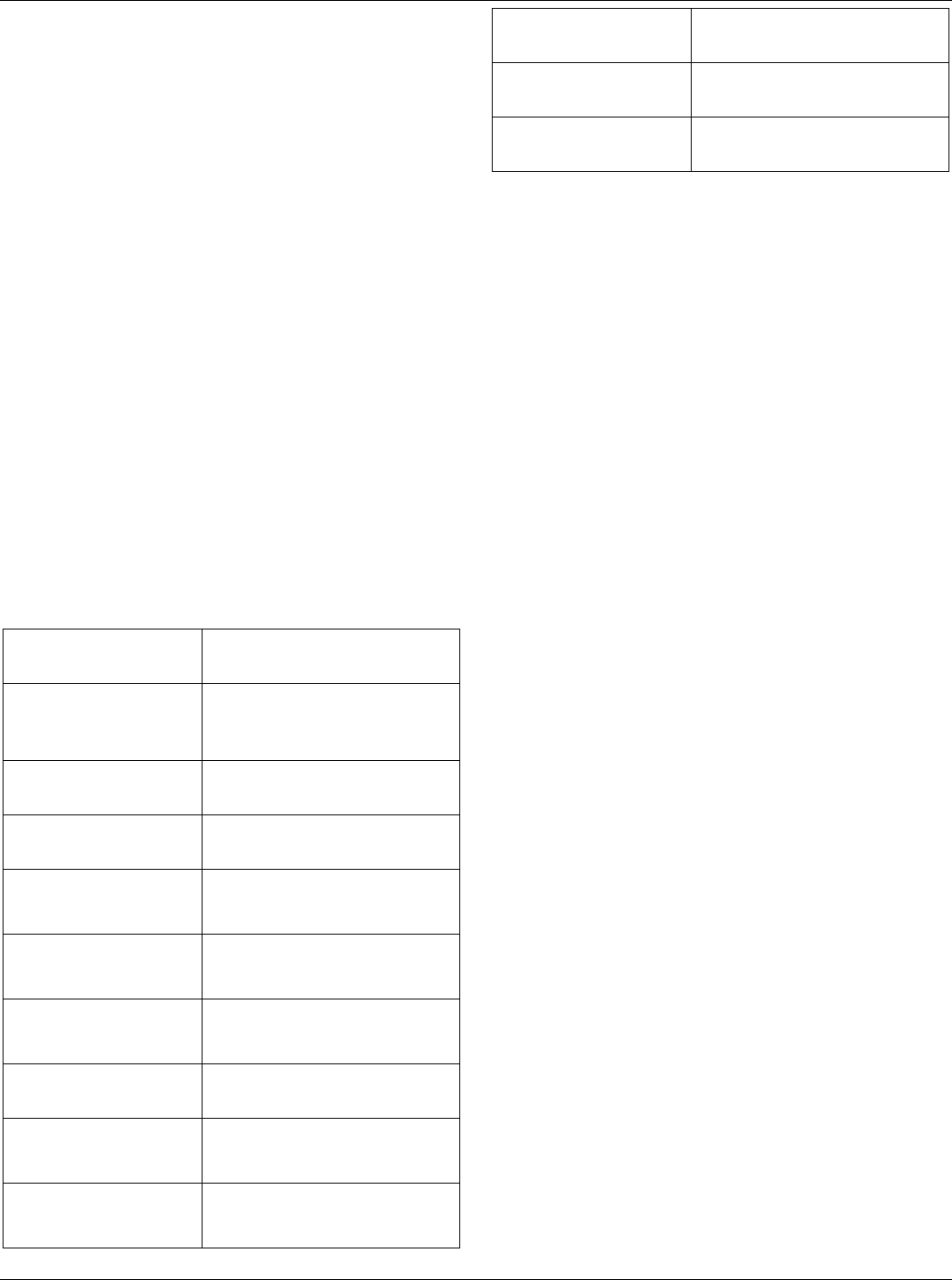
ONLINE UNDERGRADUATE PROGRAMS
2018-2019 ACADEMIC CATALOG 159
1.
Construct and evaluate curriculum designed to
meet the differentiated academic, social and
developmental needs of young children in
alignment with the NAEYC standards;
2.
Effectively utilize and evaluate assessment
information as both formative and summative to
inform and adapt instruction;
3.
Demonstrate knowledge of a wide range of
instructional strategies and behavioral techniques
to address the developmental needs of various
ages of young children in a structured setting;
4.
Identify knowledge of the unique needs of special
learners and adapt curriculum and instruction to
meet these needs; and
5.
Identify the stages of language, physical and social
development in children ages birth to eight.
Program Requirements
Total number of credits required: 67 credits
General Education Requirements: *40 credits
Core Requirements: *21 credits
Elective Requirements: 12 credits
*In this program, 6 credits from the core may also satisfy
General Education requirements.
General Education Requirements (40 credits*)
Foundations and Skills
for Lifelong Learning
EXP 105 Personal Dimensions of
Education (3 credits)
Digital Literacy
GEN 102 Digital Literacy for
Life and the Workplace (3
credits)
Written Communication
I
ENG 121 English Composition I
(3 credits)
Information Literacy
GEN 103 Information Literacy (3
credits)
Written Communication
II
ENG 122 English Composition II
(3 credits)
Oral and Interpersonal
Communication
COM 200 Interpersonal
Communication (3 credits)
Aesthetic Awareness and
Reasoning
Fulfilled by Core Requirement.
Critical Thinking
PHI 103 Informal Logic (3
credits)
Ethical Reasoning
PHI 208 Ethics & Moral
Reasoning (3 credits)
Civic Responsibility
POL 201 American National
Government (3 credits)
Intercultural and Global
Awareness
Fulfilled by Core Requirement.
Scientific Reasoning
SCI 207 Our Dependence upon
the Environment (4 credits)
Quantitative Reasoning
MAT 222 Intermediate Algebra
(3 credits)
Core Requirements (21 credits*)
•
ART 101 Art Appreciation (3 credits) Satisfies
Aesthetic Awareness and Reasoning Competency
requirement
•
ECE 101 Introduction to Early Childhood Education
(3 credits)
•
ECE 201 Introduction to Early Childhood Behavior
Management (3 credits)
•
ECE 203 Introduction to Curriculum & Instruction for
the Early Childhood Classroom (3 credits)
•
ECE 205 Introduction to Child Development (3
credits)
•
ELL 240 Linguistically & Culturally Diverse Learners
(3 credits) Satisfies Intercultural & Global Awareness
Competency requirement
•
PED 212 Foundations of Movement & Motor
Activities (3 credits)
Associate of Arts in Early Childhood Education
Graduation Requirements
To be eligible for an Associate of Arts in Early Childhood
Education degree, a student must successfully accomplish
the following:
•
Completion of all program/course requirements;
•
Completion of a minimum of 67 credits. Additional
prerequisite courses may be required;
•
Minimum cumulative grade point average of 2.00 in
all coursework attempted at the University; and
•
At least 18 credits earned toward the Associate of Arts
degree must be completed at Ashford University.
Note: The date of degree conferral recorded on the
student’s transcript and diploma will reflect the date the
student completes all academic degree requirements.
However, release of transcripts, diplomas, and
verifications for degrees awarded are contingent upon
submission of the Petition to Graduate form, payment of
the graduation fee, and payment of any outstanding
balances with the University.
The degree will be noted on the transcript as an Associate
of Arts in Early Childhood Education.

ONLINE UNDERGRADUATE PROGRAMS
160 ASHFORD UNIVERSITY
Bachelor of Arts in Child Development
The Child Development major will focus on a
comprehensive study of children (infancy through
adolescence), and the family, cultural, peer, school and
neighborhood contexts that influence the development of
children. With an increasing attention to the importance of
factors impacting the development of children, the Child
Development major will provide investigation and
knowledge of the development of children.
Certification and Licensure Terms and Conditions: An
online degree from Ashford University does not lead to
immediate teacher licensure in any state. If you want to
become a classroom teacher, contact your state's
education authorities prior to enrolling at Ashford to
determine what state-specific requirements you must
complete before obtaining your teacher's license. Ashford
graduates will be subject to additional requirements on a
state-by-state basis that will include one or more of the
following: student teaching or practicum experience,
additional coursework, additional testing, or, if the state
requires a specific type of degree to seek alternative
certification, earning an additional degree. None of
Ashford's online education programs are CAEP, TEAC or
NCATE accredited, which is a requirement for
certification in some states. Other factors, such as a
student’s criminal history, may prevent an applicant from
obtaining licensure or employment in this field of study.
All prospective students are advised to visit the Education
Resource Organizations Directory (EROD) and to contact
the licensing body of the state where they are licensed or
intend to obtain licensure to verify that these courses
qualify for teacher certification, endorsement, and/or
salary benefits in that state prior to enrolling. Prospective
students are also advised to regularly review the state’s
policies and procedures relating to licensure as those
policies are subject to change.
*The Council for the Accreditation of Educator
Preparation (CAEP) is the resulting entity from the merger
of the Teacher Education Accreditation Council (TEAC)
and National Council for Accreditation of Teacher
Education (NCATE).
Alabama Residents: State authorization to provide a
program related to the preparation of teachers or other P-
12 school/system personnel does not indicate eligibility for
an Alabama professional educator or professional
leadership certificate. Applicants who complete an
educator preparation program at a non-Alabama
institution must apply for an Alabama professional
educator or professional leadership certificate through the
Alabama Certificate Reciprocity Approach. Current
requirements may be found at www.alsde.edu.
Hawaii Students: An education degree offered through
Ashford University's online modality does not lead to
teacher licensure in the state of Hawaii. In Hawaii, an
alternative route to certification is not available.
Iowa Residents: An education degree offered through
Ashford University's online modality does not lead to
teacher licensure in the state of Iowa.
Program Outcomes
Child Development major graduates will be able to:
Utilize knowledge of child development to construct
and evaluate curriculum that effectively addresses the
stages of development including cognitive, language,
physical and affective development of young
children;
Analyze the influence and impact of families and
communities on a child’s learning and development;
Describe how family structure and cultural
backgrounds influence communication processes in a
child’s environment;
Evaluate the critical role of play in children’s learning
and development; and
Apply their knowledge as an advocate for children,
families, childcare and education.
Program Requirements
Total number of credits required: 120 credits
General Education Requirements: 43 credits
Major Course Requirements: 39 credits
Electives: 38 credits
Students must earn a minimum of 30 upper-division
credits.
Major Course Requirements (39 credits)
•
EDU 100 Issues in Education (3 credits)
•
PSY 104 Child & Adolescent Development (3 credits)
•
ECE 205 Introduction to Child Development (3
credits)
•
ECE 313 Collaboration with Parents & Community (3
credits)
•
ECE 315 Language Development in Young Children
(3 credits)
•
ECD 310 Exceptional Learning & Inclusion (3 credits)
•
ECE 332 Child Development (3 credits)
•
ECE 353 Cognitive Development of Infants & Young
Children (3 credits)
•
ECE 354 Assessment & Intervention During Early
Childhood (3 credits)

ONLINE UNDERGRADUATE PROGRAMS
2018-2019 ACADEMIC CATALOG 161
•
ECE 355 Understanding Behavior & Family
Dynamics (3 credits)
•
ECD 315 Curriculum Planning & Design for Early
Learners (3 credits)
•
ECE 351 Play & Learning for the Young Child (3
credits)
•
EDU 499 College of Education Capstone (3
credits) Prerequisite: GEN 499
Bachelor of Arts in Cognitive Studies
Cognitive Studies is a versatile degree offering which
includes the study of the mind, brain, and learning. This is
a growing field of study due to technological advances that
have allowed us to examine the brain and brain
functioning. This degree is an interdisciplinary study with
courses in psychology, education, and neuroscience.
Certification and Licensure Terms and Conditions: An
online degree from Ashford University does not lead to
immediate teacher licensure in any state. If you want to
become a classroom teacher, contact your state's
education authorities prior to enrolling at Ashford to
determine what state-specific requirements you must
complete before obtaining your teacher's license. Ashford
graduates will be subject to additional requirements on a
state-by-state basis that will include one or more of the
following: student teaching or practicum experience,
additional coursework, additional testing, or, if the state
requires a specific type of degree to seek alternative
certification, earning an additional degree. None of
Ashford's online education programs are CAEP, TEAC or
NCATE accredited, which is a requirement for
certification in some states. Other factors, such as a
student’s criminal history, may prevent an applicant from
obtaining licensure or employment in this field of study.
All prospective students are advised to visit the Education
Resource Organizations Directory (EROD) and to contact
the licensing body of the state where they are licensed or
intend to obtain licensure to verify that these courses
qualify for teacher certification, endorsement, and/or
salary benefits in that state prior to enrolling. Prospective
students are also advised to regularly review the state’s
policies and procedures relating to licensure as those
policies are subject to change.
*The Council for the Accreditation of Educator
Preparation (CAEP) is the resulting entity from the merger
of the Teacher Education Accreditation Council (TEAC)
and National Council for Accreditation of Teacher
Education (NCATE).
Alabama Residents: State authorization to provide a
program related to the preparation of teachers or other P-
12 school/system personnel does not indicate eligibility for
an Alabama professional educator or professional
leadership certificate. Applicants who complete an
educator preparation program at a non-Alabama
institution must apply for an Alabama professional
educator or professional leadership certificate through the
Alabama Certificate Reciprocity Approach. Current
requirements may be found at www.alsde.edu.
Hawaii Students: An education degree offered through
Ashford University's online modality does not lead to
teacher licensure in the state of Hawaii. In Hawaii, an
alternative route to certification is not available.
Iowa Residents: An education degree offered through
Ashford University's online modality does not lead to
teacher licensure in the state of Iowa.
Program Outcomes
Cognitive Studies major graduates will be able to:
1.
Apply knowledge of brain functioning to diverse
ways of learning and teaching;
2.
Examine cognitive development and the impact of
learning across the lifespan;
3.
Evaluate the unique needs of learners with
developmental delays, brain-behavior
relationships, and cognitive advances, and
programs to address these need;
4.
Compare and contrast changes in the child and
adult brain over time and the impact on cognitive
functioning;
5.
Integrate ethical, environmental and cultural
theories into teaching and learning strategies; and
6.
Investigate an area of cognitive functions and
processes using foundational research skills.
Program Requirements
Total number of credits required: 120 credits
General Education Requirements: 43 credits
Major Course Requirements: 39 credits
Electives: 38 credits
Students must earn a minimum of 30 upper-division
credits.
Major Course Requirements (39 credits)
•
EDU 100 Issues in Education (3 credits)
•
PSY 101 Introduction to Psychology (3 credits)
•
ECE 205 Introduction to Child Development (3
credits)
•
ESE 370 Learning & the Brain (3 credits)
•
EDU 338 Human Development & Learning (3 credits)
•
ECD 310 Exceptional Learning & Inclusion (3 credits)
•
ECE 315 Language Development in Young Children
(3 credits)

ONLINE UNDERGRADUATE PROGRAMS
162 ASHFORD UNIVERSITY
•
EDU 411 Reading & Cognition OR EDU 362 Adult
Learning & Instruction (3 credits)
•
ABS 300 Psychological Assessment (3 credits)
Prerequisite: PSY 101
•
PSY 317 Cognitive Functioning in the Elderly (3
credits) Prerequisite: PSY 101 or equivalent
•
PSY 323 Perception, Learning, & Cognition (3
credits) Prerequisite: PSY 101 or equivalent
•
EDU 416 Intelligence Assessment (3 credits)
•
EDU 499 College of Education Capstone (3 credits)
Prerequisite: GEN 499
Bachelor of Arts in Early Childhood
Development with Differentiated
Instruction
The Bachelor of Arts in Early Childhood Development
with Differentiated Instruction is designed for individuals
who intend to work with children from birth to age eight
and their families in a wide variety of settings. This
program serves the needs of students who are already
employed in the field of early care or development and
learning settings who are seeking job advancement; as well
as those who want to further their knowledge in early
childhood across the breadth of ability levels while
working in an inclusive setting.
Special Terms and Conditions: An online degree from
Ashford University does not lead to immediate teacher
licensure in any state. If you want to become a classroom
teacher, contact your state's education authorities prior to
enrolling at Ashford to determine what state-specific
requirements you must complete before obtaining your
teacher's license. Ashford graduates will be subject to
additional requirements on a state-by-state basis that will
include one or more of the following: student teaching or
practicum experience, additional coursework, additional
testing, or, if the state requires a specific type of degree to
seek alternative certification, earning an additional
degree. None of Ashford's online education programs are
CAEP, TEAC or NCATE accredited, which is a
requirement for certification in some states. Other factors,
such as a student’s criminal history, may prevent an
applicant from obtaining licensure or employment in this
field of study. All prospective students are advised to visit
the Education Resource Organizations Directory (EROD)
and to contact the licensing body of the state where they
are licensed or intend to obtain licensure to verify that
these courses qualify for teacher certification,
endorsement, and/or salary benefits in that state prior to
enrolling. Prospective students are also advised to
regularly review the state’s policies and procedures
relating to licensure as those policies are subject to
change.
* The Council for the Accreditation of Educator
Preparation (CAEP) is the resulting entity from the merger
of the Teacher Education Accreditation Council (TEAC)
and National Council for Accreditation of Teacher
Education (NCATE).
Alabama Residents: State authorization to provide a
program related to the preparation of teachers or other P-
12 school/system personnel does not indicate eligibility for
an Alabama professional educator or professional
leadership certificate. Applicants who complete an
educator preparation program at a non-Alabama
institution must apply for an Alabama professional
educator or professional leadership certificate through the
Alabama Certificate Reciprocity Approach. Current
requirements may be found at www.alsde.edu
Hawaii Residents: An education degree offered through
Ashford University's online modality does not lead to
teacher licensure in the state of Hawaii. In Hawaii, an
alternative route to certification is not available.
Iowa Residents: An education degree offered through
Ashford University's online modality does not lead to
teacher licensure in the state of Iowa.
Kentucky Residents: Please be advised that although
Ashford University College of Education offers a variety of
programs aimed at preparing potential educators in
diverse settings, our K-12 educator preparation programs
are NOT accredited in Kentucky by the Education
Professional Standards Board and are NOT recognized for
initial, additional, or renewal of certification or salary
enhancement (rank change) for K-12 educators in
Kentucky. For more information, please visit the
Education Professional Standards Board’s website
at http://www.epsb.ky.gov/certification/outofstate.asp
.
Washington Residents: This program is not intended to
lead to teacher certification. Teachers are advised to
contact their individual school districts as to whether this
program may qualify for salary advancement.
Program Outcomes
Bachelor of Arts in Early Childhood Development with
Differentiated Instruction graduates will be able to:
Synthesize theories, processes, and approaches in the
study of early child development from diverse
perspectives across domains;
Analyze theories which address the interrelationship
of child, family and community, and culture on the
growth, behavior, and development of children;

ONLINE UNDERGRADUATE PROGRAMS
2018-2019 ACADEMIC CATALOG 163
Compile evidence-based strategies that demonstrate
an awareness of exceptionalities and cultural diversity
within the field of early child development;
Assess the impact of contemporary issues and trends
relating to the field of early child development and
their multiple influences on current practice and
knowledge;
Propose diverse models of inclusion to emphasize
access, participation, and partnerships with children
and families; and,
Apply professional and ethical practice aligned to
national standards to include critical thinking,
individual reflection, and collaboration
Program Requirements
Total number of credits required: 120 credits
General Education Requirements: *43 credits
Major Course Requirements: *27 credits
Required Specialization: 12 credits
Electives: 44 credits
Students must earn a minimum of 30 upper-division
credits.
*In this program, 6 credits from the major may also satisfy
General Education requirements.
Major Course Requirements (27 credits)
•
EDU 100 Issues in Education (3 credits)
•
ECD 101 Foundations of Early Learning and
Development (3 credits)
•
ECD 201 Atypical Development (3 credits)
Prerequisite: ECD 101
•
ECD 305 Positive Learning Environments (3 credits)
Prerequisite: ECD 301 or 302
•
ECD 310 Exceptional Learning and Inclusion (3
credits)
•
*ECD 330 Ethics and Legal Responsibility in Early
Learning Settings (3 credits) Prerequisite: ECD 315 or
320
•
*ECD 335 Children & Families in a Diverse Society
(3 credits) Prerequisite: ECD 330
•
ECD 405 Assessment and Intervention (3
credits) Prerequisite: ECD 340 or 345
•
EDU 499 College of Education Capstone (3
credits) Prerequisite: GEN 499
* Satisfies General Education requirements.
Choose one specialization from the following:
Early Intervention Specialization (12 credits)
•
ECD 301 Foundations of Early Intervention (3
credits) Prerequisite: ECD 201
•
ECD 320 Cognition and Language Development (3
credits) Prerequisite: ECD 310
•
ECD 345 Family Systems and Community Resources
(3 credits) Prerequisite: ECD 335
•
ECD 410 Behavioral Methods and Strategies (3
credits) Prerequisite: ECD 405
Early Learning Specialization (12 credits)
•
ECD 302 Safe and Healthy Learning Environments (3
credits) Prerequisite: ECD 201
•
ECD 315 Curriculum Planning and Design for Early
Learners (3 credits) Prerequisite: ECD 310
•
ECD 340 Language and Literacy Development (3
credits) Prerequisite: ECD 335
•
ECD 415 Foundations of Play and Learning (3
credits) Prerequisite: ECD 405
Bachelor of Arts in Early Childhood
Education
The Bachelor of Arts in Early Childhood Education major
prepares students for a career in education. Upon
completion of coursework in childhood development,
curricula, and program development, students will be well
acquainted with the education industry, be highly trained
in various theories of childhood development, and exhibit
advanced instructional skills.
Certification and Licensure Terms and Conditions: An
online degree from Ashford University does not lead to
immediate teacher licensure in any state. If you want to
become a classroom teacher, contact your state's
education authorities prior to enrolling at Ashford to
determine what state-specific requirements you must
complete before obtaining your teacher's license. Ashford
graduates will be subject to additional requirements on a
state-by-state basis that will include one or more of the
following: student teaching or practicum experience,
additional coursework, additional testing, or, if the state
requires a specific type of degree to seek alternative
certification, earning an additional degree. None of
Ashford's online education programs are CAEP, TEAC or
NCATE accredited, which is a requirement for
certification in some states. Other factors, such as a
student’s criminal history, may prevent an applicant from
obtaining licensure or employment in this field of study.
All prospective students are advised to visit the Education
Resource Organizations Directory (EROD) and to contact
the licensing body of the state where they are licensed or
intend to obtain licensure to verify that these courses
qualify for teacher certification, endorsement, and/or
salary benefits in that state prior to enrolling. Prospective
students are also advised to regularly review the state’s
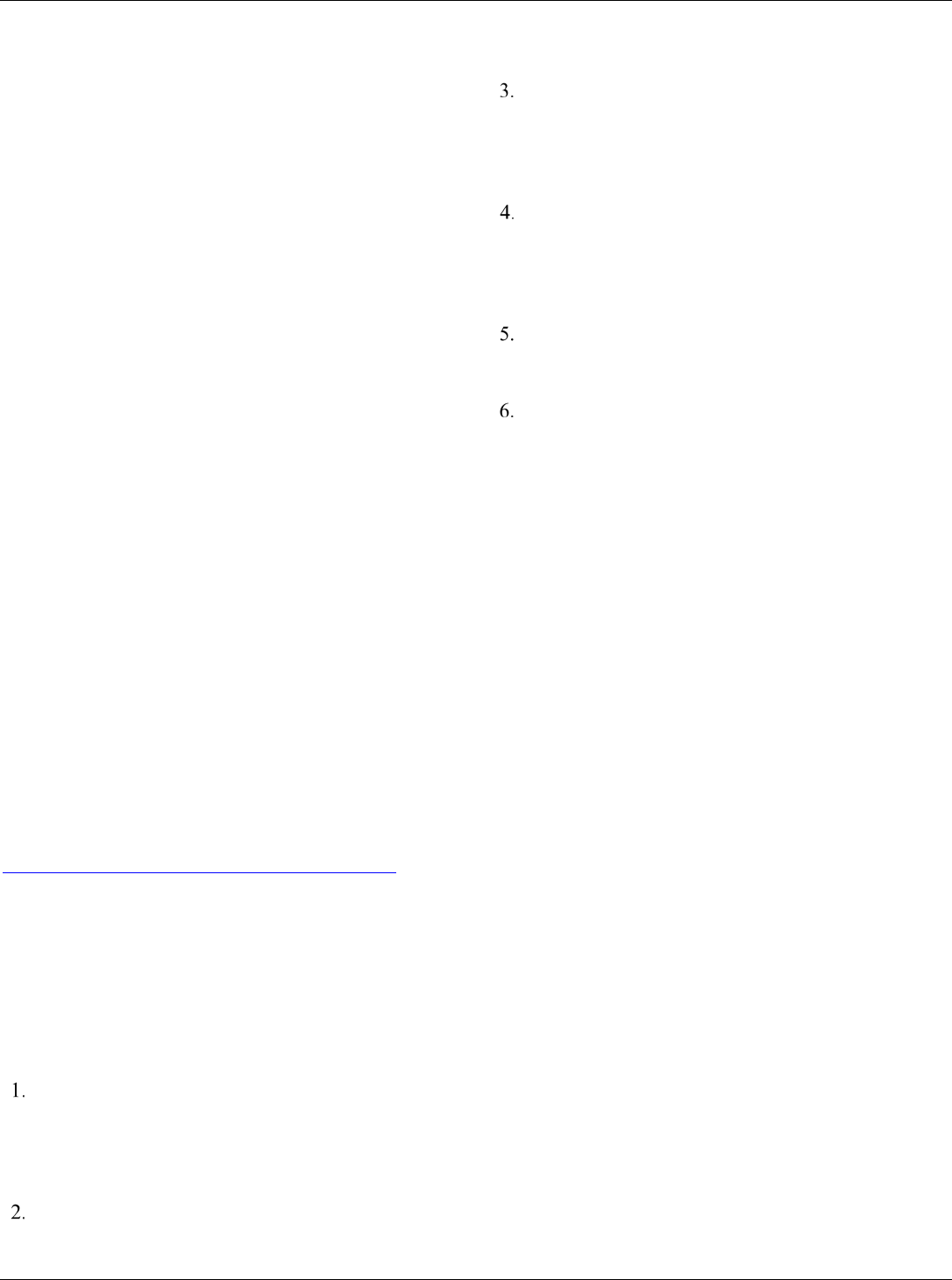
ONLINE UNDERGRADUATE PROGRAMS
164 ASHFORD UNIVERSITY
policies and procedures relating to licensure as those
policies are subject to change.
*The Council for the Accreditation of Educator
Preparation (CAEP) is the resulting entity from the merger
of the Teacher Education Accreditation Council (TEAC)
and National Council for Accreditation of Teacher
Education (NCATE).
Alabama Residents: State authorization to provide a
program related to the preparation of teachers or other P-
12 school/system personnel does not indicate eligibility for
an Alabama professional educator or professional
leadership certificate. Applicants who complete an
educator preparation program at a non-Alabama
institution must apply for an Alabama professional
educator or professional leadership certificate through the
Alabama Certificate Reciprocity Approach. Current
requirements may be found at www.alsde.edu.
Hawaii Students: An education degree offered through
Ashford University's online modality does not lead to
teacher licensure in the state of Hawaii. In Hawaii, an
alternative route to certification is not available.
Iowa Residents: An education degree offered through
Ashford University's online modality does not lead to
teacher licensure in the state of Iowa.
Kentucky Residents: Please be advised that although
Ashford University College of Education offers a variety of
programs aimed at preparing potential educators in
diverse settings, our K-12 educator preparation programs
are NOT accredited in Kentucky by the Education
Professional Standards Board and are NOT recognized for
initial, additional, or renewal of certification or salary
enhancement (rank change) for K-12 educators in
Kentucky. For more information, please visit the
Education Professional Standards Board’s website at
http://www.epsb.ky.gov/certification/outofstate.asp
.
Washington Residents: This program is not intended to
lead to teacher certification. Teachers are advised to
contact their individual school districts as to whether this
program may qualify for salary advancement.
Program Outcomes
Early Childhood Education major graduates will be able
to:
Summarize principles of child development including
cognitive, physical, linguistic, social-emotional and
affective domains that define healthy, respectful,
supportive, and developmentally stimulating
environments for children;
Design developmentally appropriate teaching
strategies to implement professional learning
standards and curriculum, focused on meeting the
academic and developmental needs of children;
Justify the goals, benefits, and responsible use of
observation, documentation, and assessment
strategies in working with families, colleagues, and
communities to determine appropriate learning
methods for children;
Analyze effective strategies that focus on
collaboration and communication with families,
communities, and colleagues to foster positive and
supportive relationships that impact learning and
development of children;
Analyze the principles of equity, pedagogy, and
inclusivity to meet the needs of typically and
atypically developing; and
Promote ethical standards through reflective practice
and collaboration, critical application of current
research and theories, and identification as an early
childhood professional and leader while continually
advocating on behalf of children and families.
Program Requirements
Total number of credits required: 120 credits
General Education Requirements: 43 credits
Major Course Requirements: 42 credits
Electives: 35 credits
Students must earn a minimum of 30 upper-division
credits.
Major Course Requirements (42 credits)
•
ECE 101 Introduction to Early Childhood Education
(3 credits)
•
ECE 214 Nutrition & Health of Children & Families
(3 credits)
•
EDU 100 Issues in Education (3 credits)
•
PED 212 Foundations of Movement & Motor
Activities (3 credits)
•
ECD 310 Exceptional Learning & Inclusion (3 credits)
•
ECD 315 Curriculum Planning & Design for Early
Learners (3 credits)
•
ECE 312 Administration of Early Childhood
Education Programs (3 credits)
•
ECE 313 Collaboration with Parents & Community (3
credits)
•
ECE 315 Language Development in Young Children
(3 credits)
•
ECE 332 Child Development (3 credits)
•
ECE 335 Children’s Literature (3 credits)

ONLINE UNDERGRADUATE PROGRAMS
2018-2019 ACADEMIC CATALOG 165
•
ECE 405 Children & Families in a Diverse Society (3
credits)
•
ECE 355 Understanding Behavior & Family
Dynamics (3 credits)
•
EDU 499 College of Education Capstone (3 credits)
Prerequisite: GEN 499
Bachelor of Arts in Early Childhood
Education Administration
The Bachelor of Arts in Early Childhood Education
Administration prepares students for a career in early
childcare administration. Upon completion of coursework
in organizational behavior and management, childhood
development, and curricula and program administration,
students will be well acquainted with the education
industry, be highly trained in various theories of childhood
development, and exhibit advanced organizational
management skills.
Certification and Licensure Terms and Conditions: An
online degree from Ashford University does not lead to
immediate teacher licensure in any state. If you want to
become a classroom teacher, contact your state's
education authorities prior to enrolling at Ashford to
determine what state-specific requirements you must
complete before obtaining your teacher's license. Ashford
graduates will be subject to additional requirements on a
state-by-state basis that will include one or more of the
following: student teaching or practicum experience,
additional coursework, additional testing, or, if the state
requires a specific type of degree to seek alternative
certification, earning an additional degree. None of
Ashford's online education programs are CAEP, TEAC or
NCATE accredited, which is a requirement for
certification in some states. Other factors, such as a
student’s criminal history, may prevent an applicant from
obtaining licensure or employment in this field of study.
All prospective students are advised to visit the Education
Resource Organizations Directory (EROD) and to contact
the licensing body of the state where they are licensed or
intend to obtain licensure to verify that these courses
qualify for teacher certification, endorsement, and/or
salary benefits in that state prior to enrolling. Prospective
students are also advised to regularly review the state’s
policies and procedures relating to licensure as those
policies are subject to change.
*The Council for the Accreditation of Educator
Preparation (CAEP) is the resulting entity from the merger
of the Teacher Education Accreditation Council (TEAC)
and National Council for Accreditation of Teacher
Education (NCATE).
Alabama Residents: State authorization to provide a
program related to the preparation of teachers or other P-
12 school/system personnel does not indicate eligibility for
an Alabama professional educator or professional
leadership certificate. Applicants who complete an
educator preparation program at a non-Alabama
institution must apply for an Alabama professional
educator or professional leadership certificate through the
Alabama Certificate Reciprocity Approach. Current
requirements may be found at www.alsde.edu.
Hawaii Students: An education degree offered through
Ashford University's online modality does not lead to
teacher licensure in the state of Hawaii. In Hawaii, an
alternative route to certification is not available.
Iowa Residents: An education degree offered through
Ashford University's online modality does not lead to
teacher licensure in the state of Iowa.
Kentucky Residents: Please be advised that although
Ashford University College of Education offers a variety of
programs aimed at preparing potential educators in
diverse settings, our K-12 educator preparation programs
are NOT accredited in Kentucky by the Education
Professional Standards Board and are NOT recognized for
initial, additional, or renewal of certification or salary
enhancement (rank change) for K-12 educators in
Kentucky. For more information, please visit the
Education Professional Standards Board’s website at
http://www.epsb.ky.gov/certification/outofstate.asp
.
Washington Residents: This program is not intended to
lead to teacher certification. Teachers are advised to
contact their individual school districts as to whether this
program may qualify for salary advancement.
Program Outcomes
Early Childhood Education Administration major
graduates will be able to:
Demonstrate knowledge of child development
principles, including cognitive, language, physical
and affective domains, in creating environments that
are healthy, supportive, and challenging for children;
Analyze the influence and impact of families and
communities on a child’s learning and development;
Design and assess developmentally appropriate
strategies and programs promoting positive
development and learning for children;
Apply leadership principles in directing and
managing a child care setting;
Identify components of personnel management in the
recruiting, hiring, and maintenance of staff in quality
child care settings; and
Demonstrate knowledge of fiscal, legal, ethical, and
program requirements in administrating quality child
care settings.

ONLINE UNDERGRADUATE PROGRAMS
166 ASHFORD UNIVERSITY
Program Requirements
Total number of credits required: 120 credits
General Education Requirements: 43 credits
Major Course Requirements: 42 credits
Electives: 35 credits
Students must earn a minimum of 30 upper-division
credits.
Major Course Requirements (42 credits)
•
EDU 100 Issues in Education (3 credits)
•
ECE 101 Introduction to Early Childhood Education
(3 credits)
•
ECE 214 Nutrition & Health of Children & Families
(3 credits)
•
ECE 332 Child Development (3 credits)
•
ECE 355 Understanding Behavior & Family Dynamic
(3 credits)
•
ECD 315 Curriculum Planning & Design for Early
Learners (3 credits)
•
ECD 310 Exceptional Learning & Inclusion (3 credits)
•
ECE 313 Collaboration with Parents & Community (3
credits)
•
ECE 312 Administration of Early Childhood
Education Programs (3 credits)
•
MGT 380 Leadership for Organizations (3 credits)
•
MGT 415 Group Behavior in Organizations (3 credits)
•
ECE 405 Children & Families in a Diverse Society (3
credits)
•
BUS 303 Human Resource Management (3 credits)
•
EDU 499 College of Education Capstone (3 credits)
Prerequisite: GEN 499
Bachelor of Arts in Education and Public
Policy
(This program is not accepting new enrollments)
The Bachelor of Arts in Education and Public Policy major
will focus on a comprehensive study of the role of policy
and government in education. This program is designed for
students who have backgrounds and interests in
educational organizations, government, community
development, public service, and work with non-profit
organizations as well as those that have an interest in
pursuing graduate school.
Certification and Licensure Terms and Conditions: An
online degree from Ashford University does not lead to
immediate teacher licensure in any state. If you want to
become a classroom teacher, contact your state's
education authorities prior to enrolling at Ashford to
determine what state-specific requirements you must
complete before obtaining your teacher's license. Ashford
graduates will be subject to additional requirements on a
state-by-state basis that will include one or more of the
following: student teaching or practicum experience,
additional coursework, additional testing, or, if the state
requires a specific type of degree to seek alternative
certification, earning an additional degree. None of
Ashford's online education programs are CAEP, TEAC or
NCATE accredited, which is a requirement for
certification in some states. Other factors, such as a
student’s criminal history, may prevent an applicant from
obtaining licensure or employment in this field of study.
All prospective students are advised to visit the Education
Resource Organizations Directory (EROD) and to contact
the licensing body of the state where they are licensed or
intend to obtain licensure to verify that these courses
qualify for teacher certification, endorsement, and/or
salary benefits in that state prior to enrolling. Prospective
students are also advised to regularly review the state’s
policies and procedures relating to licensure as those
policies are subject to change.
*The Council for the Accreditation of Educator
Preparation (CAEP) is the resulting entity from the merger
of the Teacher Education Accreditation Council (TEAC)
and National Council for Accreditation of Teacher
Education (NCATE).
Alabama Students: Contact the Teacher Education and
Certification Division of the Alabama State Department of
Education at 334-353-8567 or www.alsde.edu
to verify
that these programs qualify for teacher certification,
endorsement, and/or salary benefits. State authorization to
provide a program related to the preparation of teachers
or other P-12 school/system personnel does not indicate
eligibility for an Alabama certificate. Applicants who
complete an educator preparation program at an
institution outside of Alabama must apply for an Alabama
professional educator or professional leadership
certificate through the Alabama Certificate Reciprocity
Approach. Current requirements may be found at
www.alsde.edu.
Hawaii Students: An education degree offered through
Ashford University's online modality does not lead to
teacher licensure in the state of Hawaii. In Hawaii, an
alternative route to certification is not available.
Kentucky Residents: Please be advised that although
Ashford University College of Education offers a variety of
programs aimed at preparing potential educators in
diverse settings, our K-12 educator preparation programs
are NOT accredited in Kentucky by the Education
Professional Standards Board and are NOT recognized for
initial, additional, or renewal of certification or salary
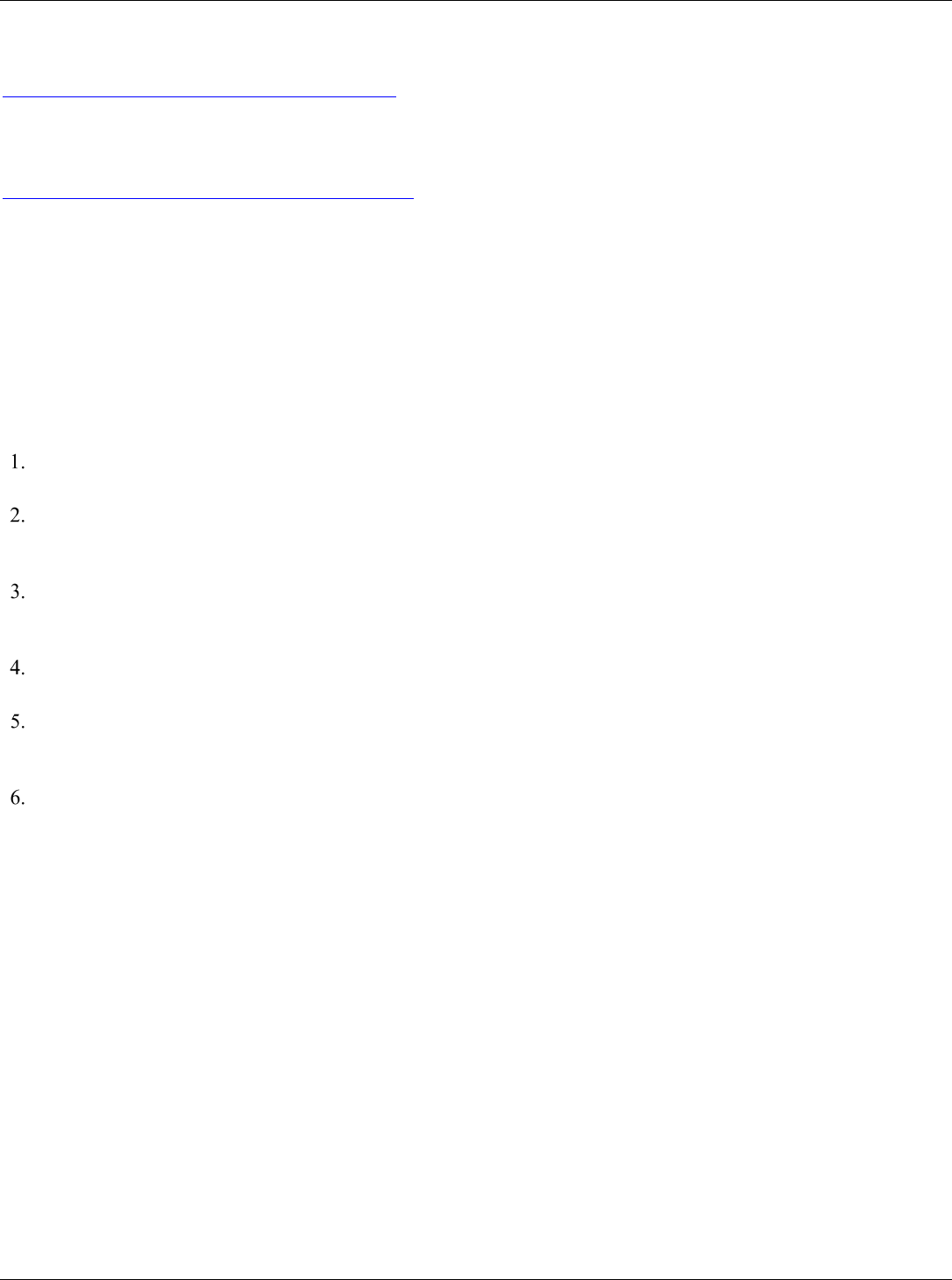
ONLINE UNDERGRADUATE PROGRAMS
2018-2019 ACADEMIC CATALOG 167
enhancement (rank change) for K-12 educators in
Kentucky. For more information, please visit the
Education Professional Standards Board’s website at
http://www.epsb.ky.gov/certification/outofstate.asp
.
Missouri Students: Contact the Missouri Department of
Elementary and Secondary Education, Routes to
Certification at 573-751-0051 or at
http://dese.mo.gov/eq/cert/routes-to-certification.htm
to
verify additional coursework and/or other requirements
and how those requirements can be met in Missouri.
Washington Residents: This program is not intended to
lead to teacher certification. Teachers are advised to
contact their individual school districts as to whether this
program may qualify for salary advancement.
Program Outcomes
Education and Public Policy major graduates will be able
to:
Describe the roles, processes, and dynamics of
educational policy-making;
Explain how educational program policies are
directed toward a specific population in meeting
organizational and individual needs;
Explain the historical and philosophical foundations
of education in the development of educational
policy;
Analyze issues and trends that drive education
reform;
Examine methods and techniques for analyzing
educational needs, alternative policies, and
implementation of selected policies; and
Analyze the impact of globalization on education
policy.
Program Requirements
Total number of credits required: 120 credits
General Education Requirements: *52 credits
Major Course Requirements: *36 credits
Electives: 38 credits
Students must earn a minimum of 30 upper-division
credits.
*In this program, 6 credits from the major and 3 credits
from introductory requirements may also satisfy General
Education requirements.
Introductory Course Requirements (6 credits)
•
+EXP 105 Personal Dimensions of Education (3
credits)
•
*PSY 202 Adult Development & Life Assessment (3
credits)
Major Course Requirements (36 credits)
•
EDU 108 Introduction to Policy & Education (3
credits)
•
*HIS 324 History of American Education (3 credits)
•
*POL 303 The American Constitution (3 credits)
•
EDU 363 Education & Social Justice (3 credits)
•
EDU 365 Politics of American Education (3 credits)
•
MGT 380 Leadership for Organizations (3 credits)
•
EDU 422 Public Policy & Special Education (3
credits)
•
EDU 428 Student Achievement in Public Schools (3
credits)
•
EDU 471 Public Policy Issues in Education (3 credits)
•
EDU 473 Divergent Perspectives in Educational
Policy & Practice (3 credits)
•
EDU 486 Educational Policy & Administration (3
credits)
•
EDU 497 Capstone: Education & Public Policy
Development (3 credits) Prerequisite: GEN 499
+ EXP 105 fulfills 3 credits toward total elective credit
requirements and is required for online students with fewer
than 24 transferable credits
* Satisfies General Education requirements.
Bachelor of Arts in Education Studies
The Bachelor of Arts in Education Studies program is
designed to provide the foundational knowledge and skills
needed to understand and work in education in a variety of
settings. Although this BA does not provide teacher
certification or licensure, the course of study prepares
students to work with students in a variety of capacities or
to continue their education in a Post-Baccalaureate
program to complete their teaching degree requirements.
Careers in the field of education or working with students
may include any of the following settings: business,
childcare, recreation centers, nonprofit organizations,
health and human services, career services, sociology, and
public administration. Education specializations that may
be included with this degree include Early Childhood
Education, Child Development, Instructional Design, and
English Language Learner Studies.
Certification and Licensure Terms and Conditions: An
online degree from Ashford University does not lead to
immediate teacher licensure in any state. If you want to
become a classroom teacher, contact your state's
education authorities prior to enrolling at Ashford to
determine what state-specific requirements you must
complete before obtaining your teacher's license. Ashford
graduates will be subject to additional requirements on a

ONLINE UNDERGRADUATE PROGRAMS
168 ASHFORD UNIVERSITY
state-by-state basis that will include one or more of the
following: student teaching or practicum experience,
additional coursework, additional testing, or, if the state
requires a specific type of degree to seek alternative
certification, earning an additional degree. None of
Ashford's online education programs are CAEP, TEAC or
NCATE accredited, which is a requirement for
certification in some states. Other factors, such as a
student’s criminal history, may prevent an applicant from
obtaining licensure or employment in this field of study.
All prospective students are advised to visit the Education
Resource Organizations Directory (EROD) and to contact
the licensing body of the state where they are licensed or
intend to obtain licensure to verify that these courses
qualify for teacher certification, endorsement, and/or
salary benefits in that state prior to enrolling. Prospective
students are also advised to regularly review the state’s
policies and procedures relating to licensure as those
policies are subject to change.
*The Council for the Accreditation of Educator
Preparation (CAEP) is the resulting entity from the merger
of the Teacher Education Accreditation Council (TEAC)
and National Council for Accreditation of Teacher
Education (NCATE).
Alabama Residents: State authorization to provide a
program related to the preparation of teachers or other P-
12 school/system personnel does not indicate eligibility for
an Alabama professional educator or professional
leadership certificate. Applicants who complete an
educator preparation program at a non-Alabama
institution must apply for an Alabama professional
educator or professional leadership certificate through the
Alabama Certificate Reciprocity Approach. Current
requirements may be found at www.alsde.edu.
California Students: According to education code in
California, a degree in professional education does not
qualify as the Bachelor’s degree requirement listed in the
qualifications to obtain a teaching credential. Thus, the
Bachelor of Arts in Education Studies degree offered at
Ashford University will not satisfy the BA requirement in
the list of qualifications needed to obtain a teaching
credential in the state of California.
Hawaii Students: An education degree offered through
Ashford University's online modality does not lead to
teacher licensure in the state of Hawaii. In Hawaii, an
alternative route to certification is not available.
Iowa Residents: An education degree offered through
Ashford University's online modality does not lead to
teacher licensure in the state of Iowa.
Kentucky Residents: Please be advised that although
Ashford University College of Education offers a variety of
programs aimed at preparing potential educators in
diverse settings, our K-12 educator preparation programs
are NOT accredited in Kentucky by the Education
Professional Standards Board and are NOT recognized for
initial, additional, or renewal of certification or salary
enhancement (rank change) for K-12 educators in
Kentucky. For more information, please visit the
Education Professional Standards Board’s website at
http://www.epsb.ky.gov/certification/outofstate.asp
.
Missouri Students: Contact the Missouri Department of
Elementary and Secondary Education, Routes to
Certification at 573-751-0051 or at
http://dese.mo.gov/eq/cert/routes-to-certification.htm
to
verify additional coursework and/or other requirements
and how those requirements can be met in Missouri.
Washington Residents: This program is not intended to
lead to teacher certification. Teachers are advised to
contact their individual school districts as to whether this
program may qualify for salary advancement.
Program Outcomes
Education Studies major graduates will be able to:
Design effective curriculum, instruction and
assessment to meet the needs of diverse learners;|
Demonstrate knowledge of child and adolescent
development in the cognitive, social, physical, and
emotional domains;
Identify the unique needs of special learners and
adapt curriculum and instruction to meet these needs;
Apply alignment practices of standards, instruction
and assessment to identified academic, district and
state standards, goals and priorities as part of the
planning and material selection process; and
Apply foundational research skills to a topic of
interest in an area of education.
Program Requirements
Total number of credits required: 120 credits
General Education Requirements: 43 credits
Major Course Requirements: 36 credits
Electives: 41 credits
Students must earn a minimum of 30 upper-division
credits.
Major Course Requirements (36 credits)
Introduction
•
EDU 100 Issues in Education (3 credits)
•
EDU 304 Introduction to Education (3 credits)
Foundation
•
EDU 324 History of American Education (3 credits)

ONLINE UNDERGRADUATE PROGRAMS
2018-2019 ACADEMIC CATALOG 169
•
EDU 372 Educational Psychology (3 credits)
•
ESE 370 Learning & the Brain (3 credits)
•
PSY 104 Child & Adolescent Development (3 credits)
Methodology
•
EDU 381 Curriculum & Instructional Design (3
credits)
•
EDU 382 Meeting the Needs of Diverse Learners (3
credits)
Literacy
•
EDU 371 Phonics-Based Reading & Decoding (3
credits) Prerequisite: EDU 372
Technology and Diverse Populations
•
EDU 321 Introduction to Serving English Language
Learners (3 credits)
•
EDU 352 Foundations of Educational Technology (3
credits)
Capstone
•
EDU 499 College of Education Capstone (3 credits)
Prerequisite: GEN 499
Bachelor of Arts in English Language
Learner Studies
The Bachelor of Arts in English Language Learner Studies
major focuses on a comprehensive study of the broad
application of linguistics in addressing second language
learning needs. The program of study is designed around
courses that are grounded in the Teachers of English to
Speakers of Other Languages (TESOL) standards. This
program addresses English Language Development (ELD)
as it applies to its five stages for children and adults. The
program focuses on best practices to deliver instruction in
research-based four square and sheltered models to address
ELD standards that map to national consortiums as well as
support the Common Core Standards for K-12 learners. In
addition, to prepare those who will address adult ELL
populations, a concentration on adult learner models and
authentic learning activities is embedded in the program
curriculum.
Certification and Licensure Terms and Conditions: An
online degree from Ashford University does not lead to
immediate teacher licensure in any state. If you want to
become a classroom teacher, contact your state's
education authorities prior to enrolling at Ashford to
determine what state-specific requirements you must
complete before obtaining your teacher's license. Ashford
graduates will be subject to additional requirements on a
state-by-state basis that will include one or more of the
following: student teaching or practicum experience,
additional coursework, additional testing, or, if the state
requires a specific type of degree to seek alternative
certification, earning an additional degree. None of
Ashford's online education programs are CAEP, TEAC or
NCATE accredited, which is a requirement for
certification in some states. Other factors, such as a
student’s criminal history, may prevent an applicant from
obtaining licensure or employment in this field of study.
All prospective students are advised to visit the Education
Resource Organizations Directory (EROD) and to contact
the licensing body of the state where they are licensed or
intend to obtain licensure to verify that these courses
qualify for teacher certification, endorsement, and/or
salary benefits in that state prior to enrolling. Prospective
students are also advised to regularly review the state’s
policies and procedures relating to licensure as those
policies are subject to change.
*The Council for the Accreditation of Educator
Preparation (CAEP) is the resulting entity from the merger
of the Teacher Education Accreditation Council (TEAC)
and National Council for Accreditation of Teacher
Education (NCATE).
Alabama Residents: State authorization to provide a
program related to the preparation of teachers or other P-
12 school/system personnel does not indicate eligibility for
an Alabama professional educator or professional
leadership certificate. Applicants who complete an
educator preparation program at a non-Alabama
institution must apply for an Alabama professional
educator or professional leadership certificate through the
Alabama Certificate Reciprocity Approach. Current
requirements may be found at www.alsde.edu.
Iowa Residents: An education degree offered through
Ashford University's online modality does not lead to
teacher licensure in the state of Iowa.
Hawaii Students: An education degree offered through
Ashford University's online modality does not lead to
teacher licensure in the state of Hawaii. In Hawaii, an
alternative route to certification is not available.
Program Outcomes
English Language Learner Studies major graduates will be
able to:
Apply concepts, linguistic theories, research,
knowledge of the structure of English, and
sociolinguistics to facilitate the acquisition of English
for English Language Learners;
Analyze the influences of culture and diversity as it
affects second language learning;
Apply knowledge of meta-linguistics in second
language development in constructing multiple
identities;

ONLINE UNDERGRADUATE PROGRAMS
170 ASHFORD UNIVERSITY
Describe standards-based practices and strategies for
developing and integrating English listening,
speaking, reading and writing skills in instructional
settings; and
Demonstrate knowledge of history, research and
current practices in the field of second language
acquisition and ELL.
Program Requirements
Total number of credits required: 120 credits
General Education Requirements: *43 credits
Major Course Requirements: *39 credits
Electives: 41 credits
Students must earn a minimum of 30 upper-division
credits.
*In this program, 3 credits from the major may also satisfy
General Education requirements.
Major Course Requirements (39 credits)
•
EDU 100 Issues in Education (3 credits)
•
EDU 321 Introduction to Serving English Language
Learners (3 credits)
•
*ELL 240 Linguistically & Culturally Diverse
Learners (3 credits)
•
LNG 212 Second Language Acquisition (3 credits)
Prerequisite: LNG 101 or LNG 321
•
ELL 354 Grammar in a Second Language (3 credits)
•
ELL 355 Methods, Materials, & Technology for
Learning a Second Language (3 credits)
•
ELL 351 Listening & Speaking in a Second Language
(3 credits)
•
ELL 353 Reading & Writing in a Second Language (3
credits)
•
LNG 360 Language & Society (3 credits)
Prerequisite: LNG 100 or LNG 321
•
ELL 420 Testing & Assessment for ELL Students (3
credits)
•
LNG 415 Meaning in Language (3 credits)
Prerequisite: LNG 101 or LNG 321
•
ELL 361 Language Learning in a Global Context (3
credits)
•
EDU 499 College of Education Capstone (3 credits)
Prerequisite: GEN 499
*Satisfies General Education requirements.
Bachelor of Arts in Instructional Design
The Bachelor of Arts in Instructional Design program
prepares students to design training and instruction for
online, place-based, and blended learning environments.
Students develop expertise with instructional design
theories, practices, and technologies through realistic
project-based assessments that ensure preparation for
practicing instructional design within corporate,
government, military, non-profit, school, university, and
consulting contexts.
Certification and Licensure Terms and Conditions: An
online degree from Ashford University does not lead to
immediate teacher licensure in any state. If you want to
become a classroom teacher, contact your state's
education authorities prior to enrolling at Ashford to
determine what state-specific requirements you must
complete before obtaining your teacher's license. Ashford
graduates will be subject to additional requirements on a
state-by-state basis that will include one or more of the
following: student teaching or practicum experience,
additional coursework, additional testing, or, if the state
requires a specific type of degree to seek alternative
certification, earning an additional degree. None of
Ashford's online education programs are CAEP, TEAC or
NCATE accredited, which is a requirement for
certification in some states. Other factors, such as a
student’s criminal history, may prevent an applicant from
obtaining licensure or employment in this field of study.
All prospective students are advised to visit the Education
Resource Organizations Directory (EROD) and to contact
the licensing body of the state where they are licensed or
intend to obtain licensure to verify that these courses
qualify for teacher certification, endorsement, and/or
salary benefits in that state prior to enrolling. Prospective
students are also advised to regularly review the state’s
policies and procedures relating to licensure as those
policies are subject to change.
*The Council for the Accreditation of Educator
Preparation (CAEP) is the resulting entity from the merger
of the Teacher Education Accreditation Council (TEAC)
and National Council for Accreditation of Teacher
Education (NCATE).
Alabama Residents: State authorization to provide a
program related to the preparation of teachers or other P-
12 school/system personnel does not indicate eligibility for
an Alabama professional educator or professional
leadership certificate. Applicants who complete an
educator preparation program at a non-Alabama
institution must apply for an Alabama professional
educator or professional leadership certificate through the
Alabama Certificate Reciprocity Approach. Current
requirements may be found at www.alsde.edu.
Hawaii Students: An education degree offered through
Ashford University's online modality does not lead to
teacher licensure in the state of Hawaii. In Hawaii, an
alternative route to certification is not available.

ONLINE UNDERGRADUATE PROGRAMS
2018-2019 ACADEMIC CATALOG 171
Iowa Residents: An education degree offered through
Ashford University's online modality does not lead to
teacher licensure in the state of Iowa.
Program Outcomes
Instructional Design major graduates will be able to:
Design instructional and training interventions and
assessments for online, place-based, and blended
delivery;
Apply the results of learning, task, performance, and
other analyses to the design of training and
instruction;
Apply evaluations of technologies for developing,
delivering, and assessing instructional and training
interventions;
Distinguish how different principles and theories of
learning, design, and assessment influence design
processes and outcomes;
Develop plans to manage collaborative processes and
participants typically involved in an instructional
design project; and
Respond appropriately to ethical, legal, and political
factors influencing instructional design projects for
diverse learners and contexts.
Program Requirements
Total number of credits required: 120 credits
General Education Requirements: 43 credits
Major Course Requirements: 39 credits
Electives: 38 credits
Students must earn a minimum of 30 upper-division
credits.
Major Course Requirements (39 credits)
•
EDU 100 Issues in Education (3 credits)
•
ESE 370 Learning & the Brain (3 credits)
•
EDU 120 Principles of Instructional Design (3 credits)
•
EDU 232 Instructional Design for E-Learning (3
credits) Prerequisite: EDU 120
•
EDU 335 Design Concepts & Application (3
credits) Prerequisites: EDU 120 and 232
•
EDU 337 Collaboration in the Virtual Classroom (3
credits) Prerequisites: EDU 120 and 232
•
EDU 356 Emerging Issues in Educational Technology
(3 credits) Prerequisites: EDU 120 and 232
•
EDU 358 Assessment of Student Learning (3
credits) Prerequisites: EDU 120 and 232
•
EDU 336 Evaluation of E-Learning (3
credits) Prerequisites: EDU 120 and 232
•
EDU 362 Adult Learning & Instruction (3 credits)
•
EDU 431 Advanced Instructional Design (3
credits) Prerequisites: EDU 120 and 232
•
EDU 433 Project Management for Instructional
Design (3 credits) Prerequisites: EDU 120 and 232
•
EDU 499 College of Education Capstone (3
credits) Prerequisite: GEN 499
Bachelor of Arts in Library Science and
Media
Library Science and Media is a growing field. In addition
to programming and developing collections, librarians in
the 21st century are charged with managing various
informational literacies including digital resources. As
technology continues to advance and as institutions
continue to develop their virtual presence, librarians will
play an essential role in supporting research and
informational systems. The evolving role of librarians and
the training necessary to become 21st century information
experts will be explored through coursework in this degree
program.
Certification and Licensure Terms and Conditions: An
online degree from Ashford University does not lead to
immediate teacher licensure in any state. If you want to
become a classroom teacher, contact your state's
education authorities prior to enrolling at Ashford to
determine what state-specific requirements you must
complete before obtaining your teacher's license. Ashford
graduates will be subject to additional requirements on a
state-by-state basis that will include one or more of the
following: student teaching or practicum experience,
additional coursework, additional testing, or, if the state
requires a specific type of degree to seek alternative
certification, earning an additional degree. None of
Ashford's online education programs are CAEP, TEAC or
NCATE accredited, which is a requirement for
certification in some states. Other factors, such as a
student’s criminal history, may prevent an applicant from
obtaining licensure or employment in this field of study.
All prospective students are advised to visit the Education
Resource Organizations Directory (EROD) and to contact
the licensing body of the state where they are licensed or
intend to obtain licensure to verify that these courses
qualify for teacher certification, endorsement, and/or
salary benefits in that state prior to enrolling. Prospective
students are also advised to regularly review the state’s
policies and procedures relating to licensure as those
policies are subject to change.
*The Council for the Accreditation of Educator
Preparation (CAEP) is the resulting entity from the merger
of the Teacher Education Accreditation Council (TEAC)
and National Council for Accreditation of Teacher
Education (NCATE).

ONLINE UNDERGRADUATE PROGRAMS
172 ASHFORD UNIVERSITY
Alabama Residents: State authorization to provide a
program related to the preparation of teachers or other P-
12 school/system personnel does not indicate eligibility for
an Alabama professional educator or professional
leadership certificate. Applicants who complete an
educator preparation program at a non-Alabama
institution must apply for an Alabama professional
educator or professional leadership certificate through the
Alabama Certificate Reciprocity Approach. Current
requirements may be found at www.alsde.edu.
Hawaii Students: An education degree offered through
Ashford University's online modality does not lead to
teacher licensure in the state of Hawaii. In Hawaii, an
alternative route to certification is not available.
Iowa Residents: The Bachelor of Arts in Library Science
and Media does not lead to licensure in Iowa as a school
librarian, also known as a school media specialist.
Program Outcomes
Library Science and Media major graduates will be able
to:
Apply the concepts and tools of inquiry to create
learning environments and experiences to include
multiple environments;
Evaluate technology tools and applications for
effective instructional delivery and research
applications;
Create learning opportunities that are adapted to
diverse learners and cultures;
Analyze media, literature and materials for inclusion
in specific settings and programs, including multiple
modalities; and,
Develop research skills and strategies to support
accurate, efficient and appropriate information
acquisition.
Program Requirements
Total number of credits required: 120 credits
General Education Requirements: 43 credits
Major Course Requirements: 33 credits
Electives: 44 credits
Students must earn a minimum of 30 upper-division
credits.
Major Course Requirements (33 credits)
•
EDU 100 Issues in Education (3 credits)
•
EDU 302 Foundations of Library and Information
Science (3 credits)
•
EDU 306 Library Programs and Services (3 credits)
•
EDU 307 Library Collection Development and
Management (3 credits)
•
EDU 352 Foundations of Educational Technology (3
credits)
•
EDU 400 Library Materials for Mid-grade and Young
Adults (3 credits)
•
EDU 367 Elementary & Secondary School Media (3
credits)
•
EDU 440 Information Literacy (3 credits)
•
EDU 308 Reference & Research Services (3 credits)
•
EDU 401 Literature for Children (3 credits)
•
EDU 499 College of Education Capstone (3 credits)
Prerequisite: GEN 499
College of Health, Human
Services, and
Science: Undergraduate
Programs and Requirements
Bachelor of Arts in Adult Development
(This program is not accepting new enrollments)
The Bachelor of Arts in Adult Development program is a
generalist degree program designed to provide the
foundation knowledge and skills needed to understand and
work with adults in a variety of settings. The course of
study prepares students to serve and interface with adults
in various stages of adulthood including adults in the work
force, those with young families, retired, re-careered,
interdependent, and completely dependent adults.
Special Terms and Conditions: Successful completion of
this program by itself does not lead to licensure or
certification in any state, regardless of concentration or
specialization. Further, Ashford University does not
guarantee that any professional organization will accept a
graduate’s application to sit for any exam for the purpose
of professional certification. Students seeking licensure or
certification in a particular profession are strongly
encouraged to carefully research the requirements prior to
enrollment. Requirements may vary by state. Further, a
criminal record may prevent an applicant from obtaining
licensure, certification, or employment in this field of
study.
Program Requirements
Total number of credits required: 120 credits
General Education Requirements: *52 credits
Major Course Requirements: *39 credits

ONLINE UNDERGRADUATE PROGRAMS
2018-2019 ACADEMIC CATALOG 173
Electives: 32 credits
Students must earn a minimum of 30 upper-division
credits.
*In this program, 3 credits from the major and 3 credits
from introductory requirements may also satisfy General
Education requirements.
Introductory Course Requirements (6 credits)
•
+EXP 105 Personal Dimensions of Education (3
credits)
•
*PSY 202 Adult Development & Life Assessment (3
credits)
Major Course Requirements (39 credits)
•
PSY 101 Introduction to Psychology (3 credits)
•
PSY 307 The Journey of Adulthood (3 credits)
•
HCS 311 Health & Wellness in Adulthood (3 credits)
•
SOC 322 Sociological Aspects of Adulthood (3
credits)
•
EDU 362 Adult Learning & Instruction (3 credits)
•
EDU 334 Adult Learning in the Workplace (3 credits)
•
*SOC 326 Diversity & Aging (3 credits)
•
PSY 323 Perception, Learning, & Cognition (3 credits)
Prerequisite: PSY 101 or equivalent
•
PSY 317 Cognitive Functioning in the Elderly (3
credits) Prerequisite: PSY 101 or equivalent
•
EDU 352 Foundations of Educational Technology (3
credits)
•
PSY 344 Issues & Trends in Adult Development (3
credits)
•
PSY 326 Research Methods (3 credits) Prerequisite:
MAT 232
•
PSY 495 Adult Development Capstone (3 credits)
Prerequisite: GEN 499
+ EXP 105 fulfills 3 credits toward total elective credit
requirements and is required for online students with fewer
than 24 transferable credits
* Satisfies General Education requirements.
Bachelor of Arts in Applied Behavioral
Science
The Bachelor of Arts in Applied Behavioral Science is a
generalist degree with an interdisciplinary emphasis.
Providing a foundation from the social and behavioral
sciences, the degree program teaches students to utilize
critical thinking to understand behavior and solve societal
problems at the individual, family, and community level.
An interdisciplinary approach is utilized to assist students
in developing an overview of the diversity of societal
problems, and the interdisciplinary framework for
solutions.
Special Terms and Conditions: Successful completion of
this program by itself does not lead to licensure or
certification in any state, regardless of concentration or
specialization. Further, Ashford University does not
guarantee that any professional organization will accept a
graduate’s application to sit for any exam for the purpose
of professional certification. Students seeking licensure or
certification in a particular profession are strongly
encouraged to carefully research the requirements prior to
enrollment. Requirements may vary by state. Further, a
criminal record may prevent an applicant from obtaining
licensure, certification, or employment in this field of
study.
Program Outcomes
Applied Behavioral Science major graduates will be able
to:
Analyze major concepts, theoretical perspectives, and
empirical findings to solve complex problems in the
field of study;
Compose effective communications in a variety of
formats for assessment, evaluation, and/or
intervention purposes;
Apply the principles of the scientific method to
assessment, evaluation, and intervention at
intrapersonal and interpersonal levels;
Explain the value of empirical evidence, acting
ethically, and acknowledging and respecting human
diversity; and
Utilize the scientific approach to address practical
problems related to the cognition, affect, and
behavior of individuals in social contexts.
Program Requirements
Total number of credits required: 120 credits
General Education Requirements: *43 credits
Major Course Requirements: *39 credits
Electives: 44 credits
Students must earn a minimum of 30 upper-division
credits.
*In this program, 6 credits from the major may also satisfy
General Education requirements.
Major Course Requirements (39 credits)
•
PSY 101 Introduction to Psychology (3 credits)
•
ABS 200 Introduction to Applied Behavioral Sciences
(3 credits)
•
*SOC 203 Social Problems (3 credits)

ONLINE UNDERGRADUATE PROGRAMS
174 ASHFORD UNIVERSITY
•
*COM 325 Communication & Conflict (3 credits)
Prerequisites: ENG 121 and ENG 122 or equivalents
•
PSY 304 Lifespan Development (3
credits) Prerequisite: PSY 101
•
PSY 301 Social Psychology (3 credits) Prerequisite:
PSY 101, SSC 101 or equivalent
•
HHS 320 Cultural Awareness in the Human Services
(3 credits)
•
^PSY 325 Statistics for the Behavioral & Social
Sciences (3 credits)
•
PSY 326 Research Methods (3 credits) Prerequisite:
MAT 232
•
ABS 300 Psychological Assessment (3 credits)
Prerequisite: PSY 101.
•
PSY 352 Cognitive Psychology (3
credits) Prerequisite: PSY 101 and PSY 326
•
GRO 410 Death & Dying (3 credits)
•
ABS 497 Applied Behavioral Sciences Capstone (3
credits) Prerequisite: GEN 499
* Satisfies General Education requirements.
^ Quantitative Reasoning Core Competency requirement
must be met before taking this course.
Bachelor of Arts in Complementary and
Alternative Health
This degree provides students the opportunity to study the
history and delivery of major non-allopathic health
systems including but not limited to the following: Chinese
Medicine, Ayurveda, Homeopathy, Naturopathic
Medicine, Biofeedback, Herbal Medicines, Chiropractic
Medicine, Acupuncture, Hypnosis, Acupressure, Reiki,
Reflexology, Energy Systems, and Transpersonal Health
such as meditation, hypnosis, and prayer. Students analyze
complementary and alternative health studies as well as
identify usage trends, and integration into health services
and disease management from multi-cultural perspectives.
Special Terms and Conditions: Please note, each of the
professions previously listed may require additional study
for certification, licensing, or licensing examination
preparation. Successful completion of this program by
itself does not lead to licensure or certification in any
state, regardless of concentration or specialization.
Further, Ashford University does not guarantee that any
professional organization will accept a graduate’s
application to sit for any exam for the purpose of
professional certification. Students seeking licensure or
certification in a particular profession are strongly
encouraged to carefully research the requirements prior to
enrollment. Requirements may vary by state. Further, a
criminal record may prevent an applicant from obtaining
licensure, certification, or employment in this field of
study.
Program Outcomes
Complementary and Alternative Health major graduates
will be able to:
Explore the history and practice of non-allopathic
health systems;
Examine cultural influences as related to
complementary and alternative health practices;
Analyze complementary and alternative health usage
trends;
Differentiate major complementary and alternative
health systems;
Examine complementary and alternative health
practices integrated into U.S. health care delivery;
Analyze research in complementary and alternative
health; and
Examine components of holistic health care service
and delivery.
Program Requirements
Total number of credits required: 120 credits
General Education Requirements: *43 credits
Major Course Requirements: *36 credits
Electives: 44 credits
Students must earn a minimum of 30 upper-division
credits.
*In this program, 3 credits from the major may also satisfy
General Education requirements.
Major Course Requirements (36 credits)
•
*ANT 101 Introduction to Cultural Anthropology (3
credits)
•
HWE 200 Introduction to Health & Wellness (3
credits)
•
HCS 326 Holistic Health (3 credits)
•
HCS 316 Cultural Diversity in Health & Illness (3
credits)
•
HCS 321 Foundations of Complementary &
Alternative Health (3 credits)
•
HCS 339 Introduction to Western Herbalism; Basic
Doctrine, Energetics and Classifications (3 credits)
Prerequisites: HCS 321 and HCS 326
•
HCS 308 Introduction to Nutritional Concepts (3
credits)
•
PSY 361 Health Psychology (3 credits)
•
CAH 390 Introduction to Chinese Medicine (3 credits)

ONLINE UNDERGRADUATE PROGRAMS
2018-2019 ACADEMIC CATALOG 175
•
HCS 435 Spirituality, Health, & Healing (3 credits)
•
HPR 460 Analysis of Health Research (3 credits)
•
HCS 495 Complementary & Alternative Health
Capstone (3 credits) Prerequisite: GEN 499 &
majority of major coursework.
* Satisfies General Education requirements.
Bachelor of Arts in Gerontology
This degree provides a foundation of the biological,
psychological, social, spiritual, and developmental aspects
of aging and longevity. A multidisciplinary perspective
promotes student exploration of the needs and influences
of the growing population of senior citizens, and their
impact on multiple aspects of society. Multiculturalism,
social, and ethical issues of aging and longevity are
explored within the multidisciplinary context of the major.
Special Terms and Conditions: Successful completion of
this program by itself does not lead to licensure or
certification in any state, regardless of concentration or
specialization. Further, Ashford University does not
guarantee that any professional organization will accept a
graduate’s application to sit for any exam for the purpose
of professional certification. Students seeking licensure or
certification in a particular profession are strongly
encouraged to carefully research the requirements prior to
enrollment. Requirements may vary by state. Further, a
criminal record may prevent an applicant from obtaining
licensure, certification, or employment in this field of
study.
Program Outcomes
Gerontology major graduates will be able to:
Describe interdisciplinary aspects of aging;
Examine legal, ethical, and financial factors
influencing aging independence;
Analyze multicultural perspectives on aging;
Explain the mental, physical, social, spiritual, and
developmental aspects of aging; and
Assess contemporary theory and research in
gerontology.
Program Requirements
Total number of credits required: 120 credits
General Education Requirements: 43 credits
Major Course Requirements: 36 credits
Electives: 44 credits
Students must earn a minimum of 30 upper-division
credits.
*In this program, 3 credits from the major may also satisfy
General Education requirements.
Major Course Requirements (36 credits)
•
PSY 304 Lifespan Development (3 credits)
Prerequisite: PSY 101
•
GRO 200 Introduction to Gerontology (3 credits)
•
PSY 317 Cognitive Functioning in the Elderly (3
credits) Prerequisite: PSY 101 or equivalent.
•
GRO 325 Aging & Health (3 credits)
•
*SOC 304 Social Gerontology (3 credits)
•
HCS 435 Spirituality, Health & Healing (3 credits)
•
HCS 316 Cultural Diversity in Health & Illness (3
credits)
•
GRO 410 Death & Dying (3 credits)
•
HCA 322 Health Care Ethics & Medical Law (3
credits) Prerequisite: HCA 305, HCA 205, HPR 231
or NUR 300
•
HCA 442 Contemporary Issues in Aging (3 credits)
•
PSY 326 Research Methods (3 credits) Prerequisite:
MAT 232
•
GRO 497 Gerontology Capstone (3
credits) Prerequisite: GEN 499
Bachelor of Arts in Health and Human
Services
The Bachelor of Arts in Health and Human Services is an
interdisciplinary degree program preparing students to
work in diverse entry level positions in health and human
services. Emphasis of the major is on the delivery of health
and human services to diverse populations, in the context
of the current and emerging political, socioeconomic,
psychosocial, and regulatory environment.
Special Terms and Conditions: Successful completion of
this program by itself does not lead to licensure or
certification in any state, regardless of concentration or
specialization. Further, Ashford University does not
guarantee that any professional organization will accept a
graduate’s application to sit for any exam for the purpose
of professional certification. Students seeking licensure or
certification in a particular profession are strongly
encouraged to carefully research the requirements prior to
enrollment. Requirements may vary by state. Further, a
criminal record may prevent an applicant from obtaining
licensure, certification, or employment in this field of
study.
Program Outcomes
Health and Human Services major graduates will be able
to:

ONLINE UNDERGRADUATE PROGRAMS
176 ASHFORD UNIVERSITY
Analyze health and human services delivery from
political, socioeconomic, and psychosocial
perspectives;
Evaluate social and human delivery systems at the
individual, family, group, organization, and
community levels;
Analyze social problems within the context of health
care environments;
Evaluate ethical issues and challenges inherent in the
provision of health and human services, and service
provision;
Analyze human behaviors within the health and
human services context;
Evaluate health and human services issues,
challenges, and interventions;
Discuss the provision of health and human services
from multi-cultural perspectives; and
Identify effective communication components and
strategies with diverse health and human services
constituents.
Program Requirements
Total number of credits required: 120 credits
General Education Requirements: *43 credits
Major Course Requirements: *36 credits
Electives: 47 credits
Students must earn a minimum of 30 upper-division
credits.
*In this program, 6 credits from the major may also satisfy
General Education requirements.
Major Course Requirements (36 credits)
•
HHS 201 Introduction to Human Services (3 credits)
•
*HHS 207 Communication Skills for Health & Human
Service Personnel (3 credits)
•
HHS 310 Health & Human Services Culture: The
Helping Relationship (3 credits)
•
HCA 205 Introduction to Health Care (3 credits)
•
SOC 313 Social Implications of Medical Issues (3
credits)
•
HCA 415 Community & Public Health (3 credits)
•
*HHS 320 Cultural Awareness in the Human Services
(3 credits)
•
HCA 430 Special Populations (3 credits)
•
HHS 435 Contemporary Issues, Trends, Health Law
Ethics in Health & Human Services (3 credits)
•
HIM 301 Introduction to Health Informatics (3 credits)
•
HHS 460 Research Methods in Health & Human
Services (3 credits)
•
HHS 497 Health & Human Services Capstone (3
credits) Prerequisite: GEN 499
* Satisfies General Education requirements.
Bachelor of Arts in Health and Wellness
This degree explores the dimensions of health and
wellness and their relationship to health status and disease
and injury prevention. Through a holistic wellness
perspective, students study the implications of positive and
negative health practices impacting physical, social,
occupational, emotional, intellectual, spiritual, and
environmental health. Students examine major health risks
and diseases affecting contemporary society, and explore
the principal ways to promote health and wellness through
lifestyle and behavioral change throughout the lifespan.
Special Terms and Conditions: Successful completion of
this program by itself does not lead to licensure or
certification in any state, regardless of concentration or
specialization. Further, Ashford University does not
guarantee that any professional organization will accept a
graduate’s application to sit for any exam for the purpose
of professional certification. Students seeking licensure or
certification in a particular profession are strongly
encouraged to carefully research the requirements prior to
enrollment. Requirements may vary by state. Further, a
criminal record may prevent an applicant from obtaining
licensure, certification, or employment in this field of
study.
Program Outcomes
Health and Wellness major graduates will be able to:
Describe the function of the human body;
Examine chronic conditions and diseases;
Analyze lifestyle factors which affect health and
wellness;
Assess the health and wellness status of individuals;
Develop personalized wellness programs using
evidenced-based strategies;
Apply behavior change theories, motivational
strategies, and counseling techniques to
implementation plans of wellness programs;
Employ cultural competence in wellness
programming; and
Evaluate the effectiveness of wellness programs.
Program Requirements
Total number of credits required: 120 credits
General Education Requirements: *43 credits

ONLINE UNDERGRADUATE PROGRAMS
2018-2019 ACADEMIC CATALOG 177
Major Course Requirements: *37 credits
Electives: 44 credits
Students must earn a minimum of 30 upper-division
credits.
*In this program, 4 credits from the major may also satisfy
General Education requirements.
Major Course Requirements (37 credits)
•
HWE 200 Introduction to Health & Wellness (3
credits)
•
*HPR 205 The Human Body, Health, & Disease (4
credits)
•
HCS 308 Introduction to Nutritional Concepts (3
credits) Prerequisite: HWE 200
•
HWE 330 Musculoskeletal Anatomy & Physiology (3
credits) Prerequisite: HPR 205
•
HCS 334 Personal Fitness & Wellness for Optimal
Living (3 credits) Prerequisites: HWE 200 and HPR
205
•
HWE 340 Exercise & Physiology (3
credits) Prerequisites: HPR 205 and HWE 330
•
PSY 361 Health Psychology (3 credits)
•
PSY 380 Counseling and Behavior Change (3
credits) Prerequisites: HWE 200 and PSY 361
•
HWE 415 Stress Management (3
credits) Prerequisite: HWE 200
•
HWE 420 Wellness for Special Populations (3
credits) Prerequisites: HWE 200, HWE 330, HWE
340, and HCS 334
•
HPR 460 Analysis of Health Research (3 credits)
•
HWE 498 Health & Wellness Capstone(3
credits) Prerequisite: GEN 499 and completion of
BAHW program core courses
* Satisfies General Education requirements.
Bachelor of Arts in Health Care
Administration
The Health Care Administration major provides
foundational knowledge in health-related topics,
operations, and applications for those working in or
seeking careers in the rapidly growing healthcare industry.
The degree is characterized by an interdisciplinary and
integrated learning approach, reflecting the realities of the
healthcare system. Specific curriculum in health
administration, regulation and financing, health care
planning, health policy, and quality monitoring is
provided.
Special Terms and Conditions: Successful completion of
this program by itself does not lead to licensure or
certification in any state, regardless of concentration or
specialization. Further, Ashford University does not
guarantee that any professional organization will accept a
graduate’s application to sit for any exam for the purpose
of professional certification. Students seeking licensure or
certification in a particular profession are strongly
encouraged to carefully research the requirements prior to
enrollment. Requirements may vary by state. Further, a
criminal record may prevent an applicant from obtaining
licensure, certification, or employment in this field of
study. For additional information, please refer to your
state licensing board or agency.
Program Outcomes
Health Care Administration major graduates will be able
to:
Analyze the legal and ethical issues of healthcare
systems;
Explore cultural and social-demographic variables
influencing the delivery of healthcare services;
Examine the provision of healthcare services within a
regulatory environment;
Analyze the major financing systems of U.S.
healthcare services;
Analyze the major forces driving change in the
healthcare system;
Assess the major issues confronting community and
public health services; and
Apply the theoretical dimensions of leadership within
the health care environment.
Program Requirements
Total number of credits required: 120 credits
General Education Requirements: 43 credits
Major Course Requirements: 36 credits
Electives: 41 credits
Students must earn a minimum of 30 upper-division
credits.
Major Course Requirements (36 credits)
•
HCA 205 Introduction to Health Care (3 credits)
•
SOC 313 Social Implications of Medical Issues (3
credits)
•
HCA 340 Managing in Health & Human Services (3
credits) Prerequisite: HCA 305 or 205
•
HCA 322 Health Care Ethics & Medical Law (3
credits) Prerequisite: HCA 305, HCA 205, HPR 231
or NUR 300
•
BUS 303 Human Resource Management (3 credits)
•
HCA 375 Continuous Quality Monitoring &
Accreditation (3 credits) Prerequisite: HCA 205
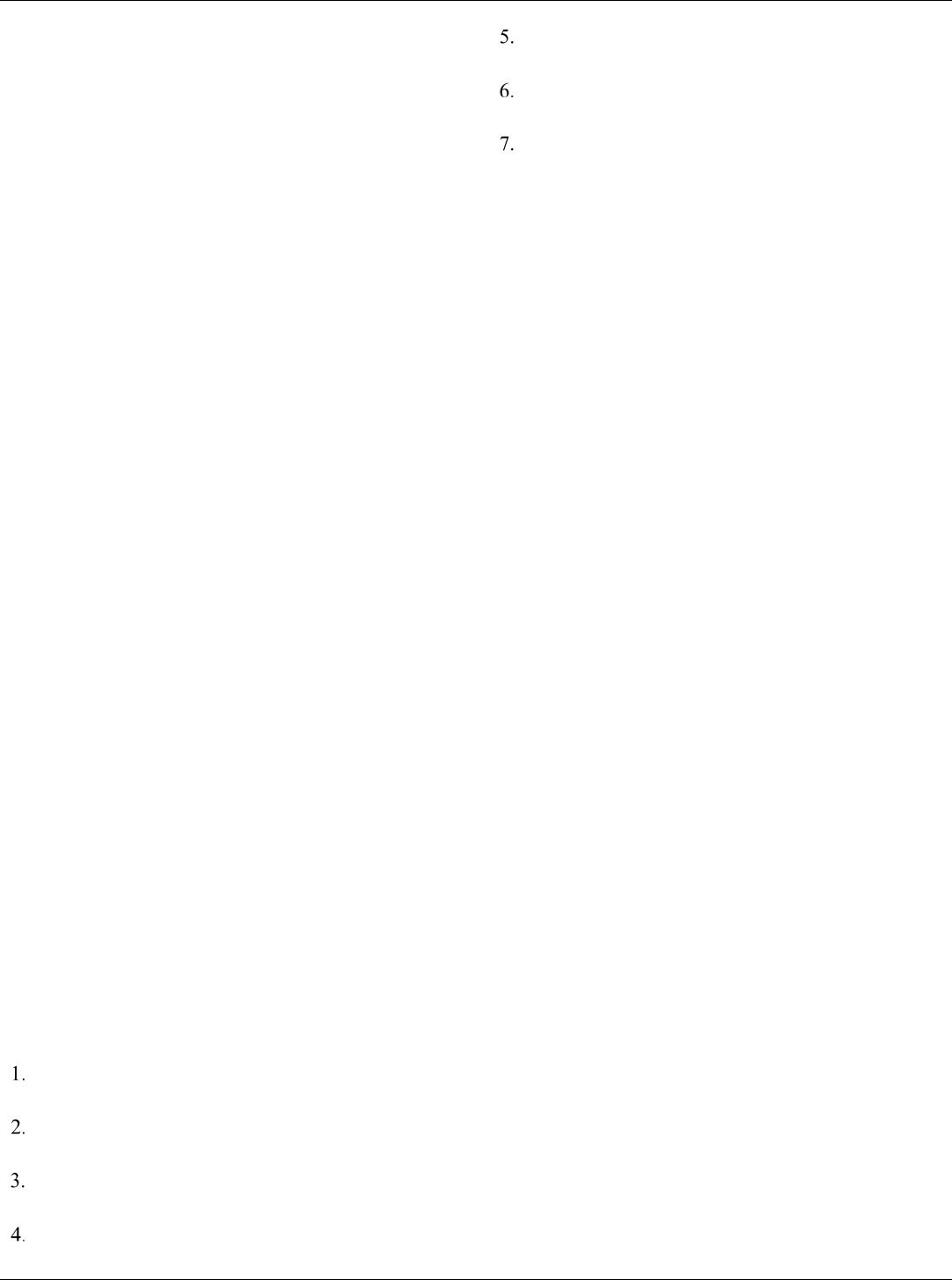
ONLINE UNDERGRADUATE PROGRAMS
178 ASHFORD UNIVERSITY
•
^ACC 281 Accounting Concepts for Health Care
Professionals (3 credits) Prerequisite: Digital
Literacy competency
•
HCA 312 Health Care Finance (3
credits) Prerequisites: HCA 305 or 205 and ACC
281
•
HCA 430 Special Populations (3 credits)
•
HCA 415 Community & Public Health (3 credits)
•
HCA 421 Health Care Planning & Evaluation (3
credits) Prerequisite: Successful completion of the
majority of major coursework
•
HCA 459 Senior Project (3 credits) Prerequisite:
GEN 499 & majority of major coursework
^ Quantitative Reasoning Core Competency requirement
must be met before taking this course
Bachelor of Arts in Health Care Studies
(This program is not accepting new enrollments)
The Bachelor of Arts in Health Care Studies is designed to
facilitate the attainment of a Bachelor’s degree for
individuals working in the health care system, as well as
learners desiring an entry level health care degree. This
generalist degree stresses the knowledge of the health care
industry and emphasizes the development of qualitative
skills. It is intended to complement our more quantitative
managerial BA in Health Care Administration.
Special Terms and Conditions: Successful completion of
this program by itself does not lead to licensure or
certification in any state, regardless of concentration or
specialization. Further, Ashford University does not
guarantee that any professional organization will accept a
graduate’s application to sit for any exam for the purpose
of professional certification. Students seeking licensure or
certification in a particular profession are strongly
encouraged to carefully research the requirements prior to
enrollment. Requirements may vary by state. Further, a
criminal record may prevent an applicant from obtaining
licensure, certification, or employment in this field of
study.
Program Outcomes
Health Care Studies major graduates will be able to:
Explain the major components of the U. S. health
care system;
Explain the major population factors that influence
the delivery of health services;
Analyze driving factors influencing health care,
including reform and quality;
Apply principles from management theory, social and
health sciences;
Analyze non-clinical issues arising in delivering
health care;
Discuss regulatory elements influencing health care
delivery such as ethics and legal issues; and
Demonstrate communication skills that facilitate the
delivery of health services.
Program Requirements
Total number of credits required: 120 credits
General Education Requirements: *52 credits
Major Course Requirements: *30 credits
Electives: 41 credits
Students must earn a minimum of 30 upper-division
credits.
*In this program, 3 credits from the major may also satisfy
General Education requirements.
Introductory Course Requirement (6 credits)
+EXP 105 Personal Dimensions of Education (3 credits)
*PSY 202 Adult Development & Life Assessment (3
credits)
Major Course Requirements (30 credits)
•
HCA 205The U.S. Health Care System (3 credits)
•
*HCA 322 Health Care Ethics & Medical Law
(3 credits) Prerequisite: HCA 305
•
SOC 313 Social Implications of Medical Issues
(3 credits) Prerequisites: PSY 101 and SOC 101 or
equivalents
•
HCA 340 Managing in Health & Human Services
(3 credits) Prerequisite: HCA 305 or 205
•
BUS 303 Human Resource Management (3 credits)
•
HCA 415 Community & Public Health (3 credits)
•
HCA 430 Special Populations (3 credits)
•
HPR 231 Introduction to Health Education
(3 credits)
•
HCA 333 Introduction to Long Term Care (3 credits)
•
HCA 497 Health Care Studies Capstone (3 credits)
Prerequisite: GEN 499
+ EXP 105 fulfills 3 credits toward total elective credit
requirements and is required for online students with fewer
than 24 transferable credits.
* Satisfies General Education requirements.
Transfer Concentration Option
Students may add a transfer concentration to the Bachelor
of Arts in Health Care Studies program by transferring in
12 applicable credits in a defined subject area. Transfer
concentrations are not required and are intended for
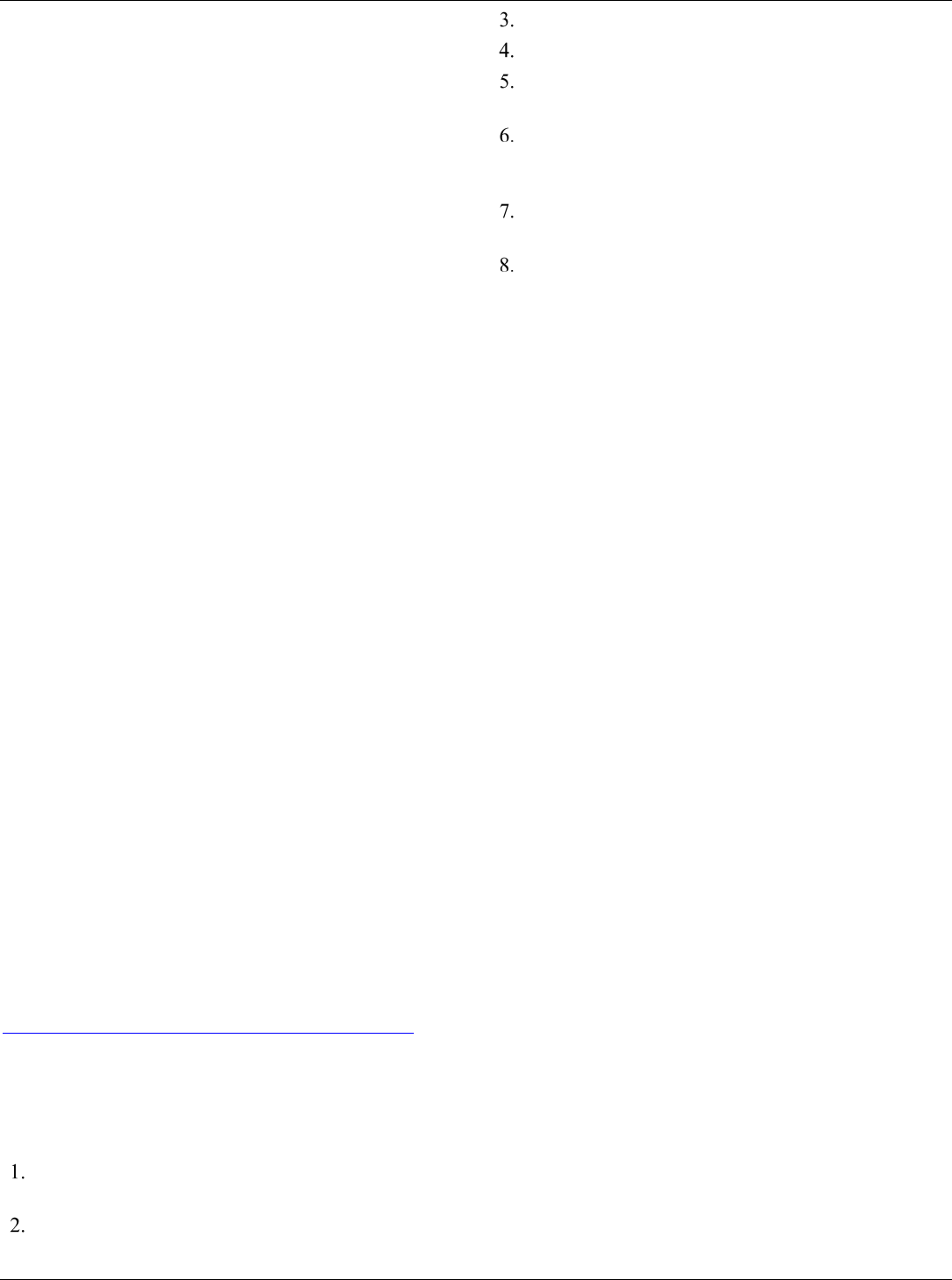
ONLINE UNDERGRADUATE PROGRAMS
2018-2019 ACADEMIC CATALOG 179
students who have experience and/or extensive transfer
credit coursework in a field of study at the time of
admission to the program. The following major courses are
designated for substitution with concentration coursework,
where appropriate: HCA 305, SOC 313, HCA 340, and
BUS 303. For additional details, see Transfer
Concentration Guidelines in the General Academic
Information and Policies section of this Catalog.
Bachelor of Arts in Health Education
This public health/health promotion-based degree
identifies and explores the theoretical and practical issues
encountered by health educators, and provides students the
skills needed to apply health education principles to health
challenges facing individuals, groups, and communities.
Upon completion of this degree, students will have
foundational understanding of the interrelationships
between physical, social, and cultural forces in the etiology
of disease and the ensuing practices of assessing, planning,
executing, and evaluating health challenges impacting the
well-being of today’s multicultural society. While this
program prepares students to become health educators that
encourage healthy lifestyles and wellness through
educating individuals and communities about behaviors
that promote healthy living and prevent diseases and other
health problems, it is NOT intended to prepare students to
become certified teachers in the K-12 setting.
Special Terms and Conditions: Successful completion of
this program by itself does not lead to licensure or
certification in any state, regardless of concentration or
specialization. Further, Ashford University does not
guarantee that any professional organization will accept a
graduate’s application to sit for any exam for the purpose
of professional certification. Students seeking licensure or
certification in a particular profession are strongly
encouraged to carefully research the requirements prior to
enrollment. Requirements may vary by state. Further, a
criminal record may prevent an applicant from obtaining
licensure, certification, or employment in this field of
study.
Missouri Students: Contact the Missouri Department of
Elementary and Secondary Education, Routes to
Certification at 573-751-0051 or at
http://dese.mo.gov/eq/cert/routes-to-certification.htm
to
verify additional coursework and/or other requirements
and how those requirements can be met in Missouri.
Program Outcomes
Health Education major graduates will be able to:
Examine the individual and community needs for
health education;
Examine the impact of social and cultural factors in
health education planning, delivery, and evaluation;
Analyze research in health education;
Identify elements of effective health education;
Differentiate tools health educators use to bring about
health change;
Examine the interrelationships between physical,
social, mental, and cultural forces in the etiology of
disease;
Examine behavior change theories and models in the
context of health education; and
Apply measures of individual and community health
needs to health education planning, delivery, and
evaluation.
Program Requirements
Total number of credits required: 120 credits
General Education Requirements: 43 credits
Major Course Requirements: 36 credits
Electives: 41 credits
Students must earn a minimum of 30 upper-division
credits.
Major Course Requirements (36 credits)
•
HPR 231 Introduction to Health Education (3 credits)
•
HPR 232 Community Health Promotion Methods (3
credits)
•
HCA 322 Health Care Ethics & Medical Law (3
credits) Prerequisite: HCA 305, HCA 205, HPR 231
or NUR 300
•
HPR 303 Health Communications (3 credits)
•
HCA 340 Managing in Health & Human Services (3
credits) Prerequisite: HCA 305 or HCA 205
•
HPR 350 Introduction to Epidemiology (3 credits)
•
HCS 412 Health Promotion Planning & Evaluation (3
credits)
•
HCA 415 Community & Public Health (3 credits)
•
HCA 430 Special Populations (3 credits)
•
HPR 450 Grant Writing and Evaluation (3 credits)
•
HPR 460 Analysis of Health Research (3 credits)
•
HCS 497 Health Education Capstone (3
credits) Prerequisite: GEN 499
Bachelor of Arts in Health Informatics
(This program is not accepting new enrollments)
This degree provides a generalist orientation to the field of
Health Informatics, in which students receive a broad
overview of how health care data can be used to reduce
costs and improve efficiency and quality of health care.
Students who complete this degree acquire an
understanding of how health and allied health personnel

ONLINE UNDERGRADUATE PROGRAMS
180 ASHFORD UNIVERSITY
and organizations acquire, store, and utilize data. In
addition, the degree introduces students to the regulatory
and compliance factors impacting the design, use, and
application of Health Informatics.
Special Terms and Conditions: Successful completion of
this program does not lead to certification from the
American Health Information Management Association
(AHIMA) or the American Society of Health Informatics
Managers (ASHIM), which may be a requirement for
certain positions in this field. In addition, this program is
not accredited by the Commission on Accreditation for
Health Informatics and Information Management
Education (CAHIIM), which is a requirement for some
AHIMA certifications. Prospective students are advised to
regularly review the requirements for job postings in their
intended field of employment. Other factors, such as a
student’s criminal history, may prevent an applicant from
obtaining certification or employment in this field.
Program Outcomes
Health Informatics major graduates will be able to:
Analyze the role of health informatics in health care
delivery, administration, education, and research;
Analyze the impact of technology on health care
quality, and service delivery;
Examine the regulatory forces impacting the
acquisition, storage, maintenance, and usage of health
care data;
Analyze components of Health Informatics systems;
Examine issues and trends in Health Informatics;
Examine emerging applications in Health
Informatics; and
Examine research in Health Informatics.
Program Requirements
Total number of credits required: 120 credits
General Education Requirements: *52 credits
Major Course Requirements: *36 credits
Electives: 35 credits
Students must earn a minimum of 30 upper-division
credits.
*In this program, 3 credits from the major may also satisfy
General Education requirements.
Introductory Course Requirement (6 credits)
•
+EXP 105 Personal Dimensions of Education (3
credits)
•
*PSY 202 Adult Development & Life Assessment (3
credits)
Major Course Requirements (36 credits)
•
HCA 401 Introduction to Health Care Informatics (3
credits)
•
**HIM 217 Electronic Health Records (3 credits)
Prerequisite: HCA 205
•
INF 220 IS Principles (3 credits) Prerequisite: INF
103 or permission of instructor
•
INF 231 Programming Concepts (3 credits)
Prerequisite: INF 103 or permission of instructor.
•
INF 325 Telecommunications & Networking Concepts
(3 credits) Prerequisite: INF 231 or permission of the
instructor
•
HCA 375 Continuous Quality Monitoring &
Accreditation (3 credits) Prerequisite: HCA 205
•
HCA 352 Legal & Ethical Aspects of Health
Information Management (3 credits)
•
HCA 435 Informatics Applications (3 credits)
•
HCA 419 Current Topics in Informatics (3 credits)
•
PSY 325 Statistics for the Behavioral & Social
Sciences (3 credits)
•
HHS 460 Research Methods in Health & Human
Services (3 credits)
•
HCA 496 Health Informatics Capstone (3 credits)
Prerequisite: GEN 499
+ EXP 105 fulfills 3 credits toward total elective credit
requirements and is required for online students with fewer
than 24 transferable credits.
* Satisfies General Education requirements.
** A grade of C or higher is required.
Bachelor of Arts in Health Marketing and
Communication
(This program is not accepting new enrollments)
This multidisciplinary degree prepares students to apply
theories, strategies, and techniques in the design of health
interventions, campaigns, communications, and research
projects for targeted audiences. Drawing from the
disciplines of marketing, public relations, health
promotion, prevention and wellness, students learn to
create, communicate, and deliver health information and
interventions using customer-centered and science-based
strategies to protect and promote the health of diverse
populations.
Special Terms and Conditions: Successful completion of
this program by itself does not lead to licensure or
certification in any state, regardless of concentration or
specialization. Further, Ashford University does not
guarantee that any professional organization will accept a
graduate’s application to sit for any exam for the purpose

ONLINE UNDERGRADUATE PROGRAMS
2018-2019 ACADEMIC CATALOG 181
of professional certification. Students seeking licensure or
certification in a particular profession are strongly
encouraged to carefully research the requirements prior to
enrollment. Requirements may vary by state. Further, a
criminal record may prevent an applicant from obtaining
licensure, certification, or employment in this field of
study.
Program Outcomes
Health Marketing and Communication major graduates
will be able to:
Apply health behavior theory to develop strategies
and messages to target audiences;
Examine health marketing and communication
strategies used in raising awareness, advocacy,
behavior change, and risk communication;
Choose marketing and communication strategies to
achieve health communication objectives;
Analyze the strengths and weaknesses of
communication channels used in health marketing;
Identify eHealth channels;
Examine current eHealth trends; and
Examine ethical perspectives and issues in health
marketing and communication.
Program Requirements
Total number of credits required: 120 credits
General Education Requirements: *52 credits
Major Course Requirements: *36 credits
Electives: 38 credits
Students must earn a minimum of 30 upper-division
credits.
*In this program, 6 credits from the major may also satisfy
General Education requirements.
Introductory Course Requirement (6 credits)
•
+EXP 105 Personal Dimensions of Education (3
credits)
•
*PSY 202 Adult Development & Life Assessment (3
credits)
Major Course Requirements (36 credits)
•
HCA 415 Community & Public Health (3 credits)
•
SOC 313 Social Implications of Medical Issues (3
credits) Prerequisites: PSY 101 and SOC 101 or
equivalents
•
*HCS 316 Cultural Diversity in Health & Illness (3
credits)
•
HCS 323 Health & Wellness Promotion Throughout
the Lifespan (3 credits)
•
HPR 303 Health Communications (3 credits)
•
HMC 312 Health Marketing & Advertising (3 credits)
•
CGD 318 Public Relations Practices & Promotional
Writing (3 credits)
•
JRN 335 Cyber-journalism (3 credits)
•
HMC 314 Social Media & Health Promotion (3
credits)
•
*HMC 334 Ethics in Health Marketing &
Communication (3 credits)
•
HMC 462 Contemporary Issues & Trends in Health
Marketing & Communication (3 credits)
•
HMC 499 Health Marketing & Communication
Capstone (3 credits) Prerequisite: GEN 499
+ EXP 105 fulfills 3 credits toward total elective credit
requirements and is required for online students with fewer
than 24 transferable credits* Satisfies General Education
requirements.
Bachelor of Arts in Psychology
The Psychology major focuses on the study of human
behavior and mental processes. This major explores
psychology both as an area of scientific investigation and
as a health or human services profession. Students
majoring in psychology may also seek employment
opportunities in business, law, government, health care,
and other careers that involve understanding human
behavior and providing competent leadership.
Special Terms and Conditions: Successful completion of
this program by itself does not lead to licensure or
certification in any state, regardless of concentration or
specialization. Further, Ashford University does not
guarantee that any professional organization will accept a
graduate’s application to sit for any exam for the purpose
of professional certification. Students seeking licensure or
certification in a particular profession are strongly
encouraged to carefully research the requirements prior to
enrollment. Requirements may vary by state. Further, a
criminal record may prevent an applicant from obtaining
licensure, certification, or employment in this field of
study.
Program Outcomes
Psychology major graduates will be able to:
Demonstrate breadth of psychological knowledge;
Analyze information and data with scientific
thinking;
Defend ethics, social justice, and diversity;
Illustrate professional communication skills; and
Apply professional skills to career planning and
success.

ONLINE UNDERGRADUATE PROGRAMS
182 ASHFORD UNIVERSITY
Program Requirements
Total number of credits required: 120 credits
General Education Requirements: 43 credits
Major Course Requirements: 36 credits
Electives: 41 credits
Students must earn a minimum of 30 upper-division
credits.
Major Course Requirements (36 credits)
•
PSY 101 Introduction to Psychology (3 credits)
•
PSY 104 Child & Adolescent Development (3 credits)
•
PSY 331 Psychology of Learning (3
•
PSY 301 Social Psychology (3 credits) Prerequisite:
PSY 101, SSC 101 or equivalent
•
PSY 302 Industrial/Organizational Psychology (3
credits)
•
PSY 325 Statistics for the Behavioral & Social
Sciences (3 credits) Prerequisite: MAT 232
•
PSY 304 Lifespan Development (3 credits)
Prerequisite: PSY 101
•
PSY 326 Research Methods (3 credits) Prerequisite:
MAT 232
•
PSY 330 Theories of Personality (3
credits) Prerequisite: PSY 101 or equivalent
•
PSY 350 Physiological Psychology (3
credits) Prerequisite: PSY 101 or equivalent
•
PSY 303 Abnormal Psychology (3
credits) Prerequisite: PSY 101 or equivalent and
PSY 330
•
PSY 496 Applied Project (3 credits) Prerequisite:
GEN 499
Bachelor of Science in Health Information
Management
Health information management (HIM) is the practice of
acquiring, analyzing, and protecting the medical
information that's vital to providing patient care, and
providing the data that health professionals need in order
to provide quality care. HIM professionals are highly
trained in the latest technology and understand the
workflow of healthcare providers, from large hospital
systems to the private practice. They are vital to daily
operations and managing electronic health records.
Students in this online degree program will compare and
contrast biomedical research, quality management, and
performance improvement strategies used in health care.
Employment in the field is projected to grow much faster
on average than other professions
(
www.bls.gov/ooh/healthcare/medical-records-and-health-
information-technicians.htm). Students will be able to
evaluate emerging trends in technology, information
systems, and data security.
Criminal Convictions
Applicants are advised that healthcare organizations
(hospitals, home health agencies, clinics and other types of
health agencies) may require a background check for any
student completing a professional practice experience as
well as for employment.
Professional Practice Experiences
Students earning the Bachelor of Science in Health
Information Management degree will complete two
Professional Practice Experiences, one that is virtual and
one that is a combination of virtual and onsite at a facility.
As part of the second Professional Practice Experience
embedded in HIM 495, students will complete a minimum
of 40 hours of supervised Professional Practice Experience
at an approved facility. The 40 hours must be completed
during normal business hours of Monday through Friday
from 8AM to 5 PM while they are enrolled in HIM 495.
Students can only complete their Professional Practice
Experiences in states where this program is available.
All Students enrolling in a degree program with a
practicum requirement are expected to complete the
practicum in the United States. If you anticipate that you
will not be able to complete your practicum in the United
States all exceptions must be approved prior to admission
to the program
Students who reside and/or work outside the United States
may be ineligible to complete practicum hours at a facility
abroad; requirements and restrictions vary by country.
Students must notify the Program Chair prior to enrolling
in the program to discuss a potential practicum location
and obtain Program Chair permission to enroll.
Memberships
Students should also be aware that they will be required to
pay for other memberships and fees to the American
Health Information Management Association (AHIMA) in
order to successfully complete this program.
Special Terms and Conditions: The baccalaureate degree
Health Information Management program is accredited by
the Commission on Accreditation for Health Informatics
and Information Management Education (CAHIIM).
Successful completion of this program does not guarantee
certification from the American Health Information
Management Association (AHIMA), which may be a
requirement for certain positions in this field. Prospective
students are advised to regularly review the requirements
for job postings in their intended field of employment,

ONLINE UNDERGRADUATE PROGRAMS
2018-2019 ACADEMIC CATALOG 183
which are subject to change. Other factors, such as a
student’s criminal history, may prevent an applicant from
obtaining employment in this field.
Program Outcomes
Students who successfully complete the Bachelor of
Science in Health Information Management degree
program will be able to:
Analyze health data structure, content, standards,
clinical classification systems and reimbursement
methodologies;
Manage strategic planning and organizational
development;
Compare and contrast health statistics, biomedical
research, quality management, and performance
improvement strategies used in health care;
Examine driving factors influencing healthcare
organization, delivery systems, healthcare privacy,
confidentiality, and legal and ethical issues;
Evaluate emerging applications in health informatics;
Evaluate emerging healthcare trends in information
and communication technology, information systems
and data security; and
Analyze the process of job analysis, staffing,
appraisal and compensation, training, career planning,
and organizational development.
Program Requirements
Total number of credits required: 120 credits
General Education Requirements: *43 credits
Major Course Requirements: *70 credits
Electives: 17 credits
Students must earn a minimum of 30 upper-division
credits.
Students must earn a minimum cumulative grade point
average of 2.50 in all major coursework attempted at the
University.
Students in the BSHIM program who wish to double up in
major coursework must have completed at least one major
course and have a minimum grade point average of 2.50 in
all major coursework attempted at the University.
*In this program, 10 credits from the major can also satisfy
General Education requirements.
Major Course Requirements (70 credits)
•
*INF 103 Computer Literacy (3 credits)
•
INF 231 Programming Concepts (3
credits) Prerequisite: INF 103 or permission of
instructor.
•
HCA 205 Introduction to Health Care (3 credits)
•
HIM 105 Medical Terminology (3 credits)
•
*HIM 205 Anatomy & Physiology I (4 credits)
•
HIM 206 Anatomy & Physiology II (3
credits) Prerequisite: HIM 205
•
**HIM 217 Electronic Health Records (3
credits) Prerequisite: HCA 205
•
HIM 210 Pathophysiology (3credits)
Prerequisites: HIM 105, HIM 205 and HIM 206
•
HIM 250 Clinical Classification Systems I (3
credits) Prerequisites: HIM 105, HIM 205, HIM 206,
HIM 210, and HIM 217
•
*HIM 252 Legal Aspects of Health Information (3
credits) Prerequisite HIM 217 and HCA 205
•
HIM 251 Clinical Classification Systems II (3
credits) Prerequisites: HIM 105, HIM 205, HIM 206,
HIM210, HIM 217 and HIM 250
•
HIM 310 Healthcare Reimbursement (3
credits) Prerequisite: HCA 205, HIM 250, and HIM
251
•
HIM 301 Introduction to Health Informatics (3 credits)
•
^^HIM 360 Healthcare Statistics (3
credits) Prerequisites: HCA 205, HIM 217, HIM
250, and HIM 251 and Quantitative Reasoning Core
Competency.
•
HIM 370 Professional Practice Experience I (3
credits) Prerequisites: HIM 105, HIM 205, HIM 206,
HIM 250, HIM 251, HCA 205, HIM 310, HIM 217,
HIM 252, HIM 210, and HIM 360
•
HCA 375 Continuous Quality Monitoring and
Accreditation (3 credits) Prerequisite: HCA 205
•
HIM 410 Health Informatics – A Systems Perspective
(3 credits) Prerequisite: HIM 301
•
HIM 420 Health Information Governance & Strategic
Planning (3 credits) Prerequisite: HCA 205, HIM
217, HIM 252, HIM 301, and HIM 370
•
^HIM 450 Healthcare Management (3
credits) Prerequisites: HCA 205, HCA 375, HIM
105, HIM 205, HIM 206, HIM 210, HIM 217, HIM
250, HIM 251, HIM 252, HIM 310, HIM 360, and
HIM 370
•
HIM 435 Analyzing Healthcare Data (3
credits) Prerequisite: HIM 301
•
^^HIM 440 Health Informatics Research Methods and
Data Analysis (3 credits) Prerequisites: HCA 205,
HIM 252, HIM 360.
•
HIM 445 Healthcare Project Management (3
credits) Prerequisite: HCA 205 and HIM 450,HCA
311, HCA 312 or ACC 281

ONLINE UNDERGRADUATE PROGRAMS
184 ASHFORD UNIVERSITY
•
^HIM 495 Professional Practice Experience II (3
credits) Prerequisite: Completion of BSHIM
program core courses. This course must be taken at
Ashford University and may not be transferred from
another institution. This course is not eligible to be
taken as Non-degree seeking. PPE site approval is
required before this course can be scheduled.
* Satisfies General Education requirements.
** A grade of C or higher is required.
^ This course must be taken at Ashford University and
may not be transferred from another institution.
^^ Quantitative Reasoning Core Competency requirement
must be met before taking this course
Bachelor of Science in Human Services
Leadership
The Bachelor of Science in Human Services Leadership is
designed to prepare students with the knowledge, skills,
and competencies needed to successfully lead human
service organizations in a rapidly changing and
challenging environment. The program will build on
students’ existing skills and interests in the social services
to further develop their capacity to design and lead
organizational approaches for the prevention and
resolution of problems facing vulnerable populations in
our society. Students will gain a keen sense of leadership
as a means to improve the performance of human services
organizations and the programs and services offered to
address changing needs of increasingly diverse
communities. The major coursework in the program is
aligned with the national standards for human service
education outlined by the Council for Standards in Human
Service Organization and the human services management
competencies established by the Network for Social Work
Management. The primary objective of the program is to
prepare human services professionals with the knowledge
and skills necessary to promote effective service delivery
and program management with increased attention to
planning and governance. For more information about on-
time completion rates, the median loan debt of students
who completed this program, and other important
information, please visi
t
www.ashford.edu/pd/obshsl
.
Special Terms and Conditions: Successful completion of
this program by itself does not lead to licensure or
certification in any state, regardless of concentration or
specialization. Students seeking licensure or certification
in a particular profession are strongly encouraged to
carefully research the requirements prior to enrollment.
Requirements may vary by state. Ashford University does
not guarantee that any professional organization will
accept a graduate’s application to sit for any exam for the
purpose of professional certification.
Program Outcomes
Human Services Leadership major graduates will be able
to:
Analyze the delivery of social and community
services from a political, socioeconomic, and
psychosocial perspective to inform human services
leadership decision making;
Apply ethical and cultural sensitivity as a human
services leader in determining the scope and
provision of human services for a variety of
populations;
Evaluate local social and human services and
program offerings at the individual, family, group,
organization, and community levels;
Analyze ethical issues and challenges inherent in the
administration and provision of human services from
a leadership perspective;
Examine the development and management of
community-based human services programs that
support children, adolescents, adults, and families;
and
Originate research-based projects and develop
proposals to implement public policy in the Human
Services context.
Program Requirements
Total number of credits required: 120 credits
General Education Requirements: *43 credits
Major Course Requirements: *57 credits
Electives: 32 credits
Students must earn a minimum of 30 upper-division
credits.
*In this program, 12 credits from the major may also
satisfy General Education requirements.
Major Course Requirements (57 credits)
•
ECO 203 Principles of Macroeconomics (3 credits)
•
PSY 101 Introduction to Psychology (3 credits)
•
*MAT 232 Statistical Literacy (3 credits)
•
HHS 201 Introduction to Human Services (3 credits)
•
*HHS 207 Communication Skills for Health & Human
Service Personnel (3 credits)
•
HSL 200 Direct Service Skills and Interventions in
Human Services (3 credits)
•
PSY 304 Lifespan Development (3 credits)
Prerequisite PSY 101
•
*HSL 300 Social Welfare Policy and Social Programs:
An Historical Perspective (3 credits)

ONLINE UNDERGRADUATE PROGRAMS
2018-2019 ACADEMIC CATALOG 185
•
HHS 320 Cultural Awareness in the Human Services
(3 credits)
•
HCA 340 Managing in Health & Human Services (3
credits) Prerequisite: HCA 305, HCA 205 or HPR
231.
•
COM 425 Communication in Organizations (3 credits)
•
HIM 301 Introduction to Health Informatics (3 credits)
•
PPA 303 Finance for Public Administrators I (3
credits) Prerequisite: ECO 203
•
PPA 305 Budgeting for Public Administrators (3
credits)
•
^BUS 308 Statistics for Managers (3 credits)
•
*ABS 415 Leadership & Ethics in a Changing World
(3 credits)
•
HCA 421 Health Care Planning & Evaluation (3
credits) Prerequisite: Successful completion of the
major of major coursework
•
HPR 450 Grant Writing and Evaluations (3 credits)
•
HSL 497 Human Services Leadership Capstone (3
credits) Prerequisite: GEN 499
* Satisfies General Education requirements.
^ Quantitative Reasoning Core Competency requirement
must be met before taking these courses.
Bachelor of Science in Nursing (RN to
BSN)
The Bachelor of Science in Nursing (RN to BSN) program
is designed for registered nurses seeking to expand their
knowledge in the increasingly complex health care
industry, and for students who wish to earn a Bachelor’s
degree as a stepping-stone for future graduate study. In this
program, coursework and practice experiences cover a
wide range of content from patient care quality and safety,
to leadership, community health, ethics and technology.
Students will address areas of need for planned change
within a healthcare organization or the community and use
their assessment skills to create evidence-based
interventions based upon observations, practice-focused
research, and learning.
Special Terms and Conditions: The baccalaureate degree
in nursing (RN-BSN) at Ashford University is a new
applicant pursuing initial accreditation by the Commission
on Collegiate Nursing Education, One Dupont Circle, NW,
Suite 530, Washington, DC 20036, (202) 887-6791. New
applicant status is neither a status of accreditation nor a
guarantee that accreditation will be granted. Please be
advised that without programmatic accreditation, RN to
BSN program students may not be able to transfer credits
to another higher education nursing program, apply for
federal scholarships or grants, obtain federal employment
or join the military in an RN capacity until such
accreditation is obtained. In addition, if initial
accreditation is not granted prior to the conclusion of a
student’s program, RN to BSN program graduates should
be aware that graduation from a programmatically
accredited undergraduate nursing program may be an
admissions requirement for entry into graduate-level study
in the field.
Alabama Residents: State approval of a program to offer
Alabama licensed nurses opportunities for advanced
degrees does not indicate eligibility for approval to
practice as an advanced practice nurse in Alabama.
Applicants for approval in Alabama are required to meet
the Alabama requirements for national certification,
graduation from a specific-type program for the advanced
practice approval, and completion of the appropriate
application. Any program offering a pre-licensure track to
Alabama students shall meet the requirements of the
Alabama regulations for pre-licensure programs or the
graduates may not be eligible to take the national
licensure examination required by the Alabama Board of
Nursing to enter the practice. www.abn.alabama.gov
.
Program Outcomes
Students who successfully complete the Bachelor of
Science in Nursing online degree program will be able to:
Apply nursing leadership concepts and skills to
promote quality care and patient safety across a
variety of healthcare settings;
Apply (a) current evidence and (b) critical thinking
and (c) assessment skills to professional nursing
practice;
Use technological and informatics systems related to
health care to promote quality patient care;
Synthesize local and federal policies that affect
health, health care delivery, and health care
management;
Use inter-professional communication and
collaborative skills to communicate with and educate
peers, health care professionals, patients and their
families, and the community;
Assess health and wellness beliefs and practices to
promote health and disease prevention among
individuals, families, groups, communities, and
populations;
Articulate the value of pursuing practice excellence,
through lifelong learning and engagement, to grow
professionally; and
Integrate holistic nursing knowledge, values, skills,
and attitudes into practice across the lifespan and
continuum of healthcare environments.

ONLINE UNDERGRADUATE PROGRAMS
186 ASHFORD UNIVERSITY
Program Requirements
Total number of credits required: 120 credits
General Education Requirements: 43 credits
Major Course Requirements: 42 credits
Electives: 35 credits*
Students must earn a minimum of 30 upper-division
credits.
*
Students in the Bachelor of Science in Nursing program
at Ashford University may be eligible to receive up to 20
non-traditional elective credits through Prior Learning
Assessment for completing the NCLEX-RN exam.
Students should wait until all previous post-secondary
coursework has been reviewed and then contact their
Academic Advisor to determine if there is a need for the
exam to be reviewed for college credit. To request the
credit to be applied, students must complete the
Application for NCLEX-RN Exam Credit (provided by the
Academic Advisor), write a 1-3 page essay, and submit
both documents to [email protected]. Prerequisite Course
Requirements
The following coursework or equivalent must be
successfully completed prior to enrolling in 300 level
courses in the Bachelor of Science in Nursing major:
•
Introduction to Sociology
•
Introduction to Psychology
•
Introduction to Statistics
•
Human Anatomy (with lab)
•
Human Physiology (with lab)
Students who have not satisfied required prerequisite
coursework in transfer may enroll in the applicable
Ashford University coursework below to satisfy this
requirement:
•
SOC 101 Introduction to Sociology
•
PSY 101 Introduction to Psychology
•
PSY 325 Statistics for the Behavioral & Social
Sciences
•
HIM 205 Anatomy and Physiology I and HIM 206
Anatomy and Physiology II
Any prerequisite coursework completed at Ashford
University is applied to a student’s elective credit
requirements or General Education requirements.
Major Course Requirements (42 credits)
•
ENG 328 Scientific and Technical Writing (3 credits)
Prerequisites: ENG 122 and fulfillment of General
Education Scientific Reasoning requirement
•
NUR 300 Professional Role Development and Practice
in Nursing (3 credits) Prerequisite: ENG 328
•
HCA 322 Health Care Ethics and Medical Law (3
credits) Prerequisite: HCA 305, HCA 205, HPR 231
or NUR 300
•
NUR 302 Transcultural Nursing Care (3 credits)
Prerequisite: NUR 300
•
NUR 304 Health Assessment (3 credits)
Prerequisite: NUR 302
•
NUR 306 Nursing Research (3 credits) Prerequisite:
NUR 300
•
HIM 301 Introduction to Health Informatics (3 credits)
•
GRO 325 Aging and Health (3 credits)
•
NUR 400 Family Health Nursing (3 credits)
Prerequisites: NUR 304, NUR 306 and GRO 325
•
NUR 402 Community Health Nursing (3 credits)
Prerequisites: NUR 304 and NUR 306
•
NUR 404 Nursing Care and Management of Chronic
Illness and Disability (3 credits) Prerequisites: NUR
400 and NUR 402
•
NUR 406 Leading and Managing in Nursing (3
credits) Prerequisites: NUR 304 and NUR 306
•
NUR 492 Capstone I: Nursing Practice Improvement
Inquiry (3 credits) Prerequisites: NUR 404, NUR
406 and permission of the program chair
•
NUR 494 Capstone II: Nursing Practice Improvement
and Evaluation (3 credits) Prerequisites: NUR 492
and permission of the program chair
College of Liberal Arts:
Undergraduate Programs
and Requirements
Associate of Arts in Military Studies
The Associate of Arts in Military Studies degree provides
students with a solid foundation in general education from
which the fundamentals of military studies can be drawn.
Students will make use of the critically reflective tools for
interpreting pertinent historical, cultural, philosophical,
and political issues that lead to an understanding of
military studies.
Special Terms and Conditions: Successful completion of
this program by itself does not lead to licensure or
certification in any state, regardless of concentration or
specialization. Further, Ashford University does not
guarantee that any professional organization will accept a
graduate’s application to sit for any exam for the purpose
of professional certification. Students seeking licensure or
certification in a particular profession are strongly
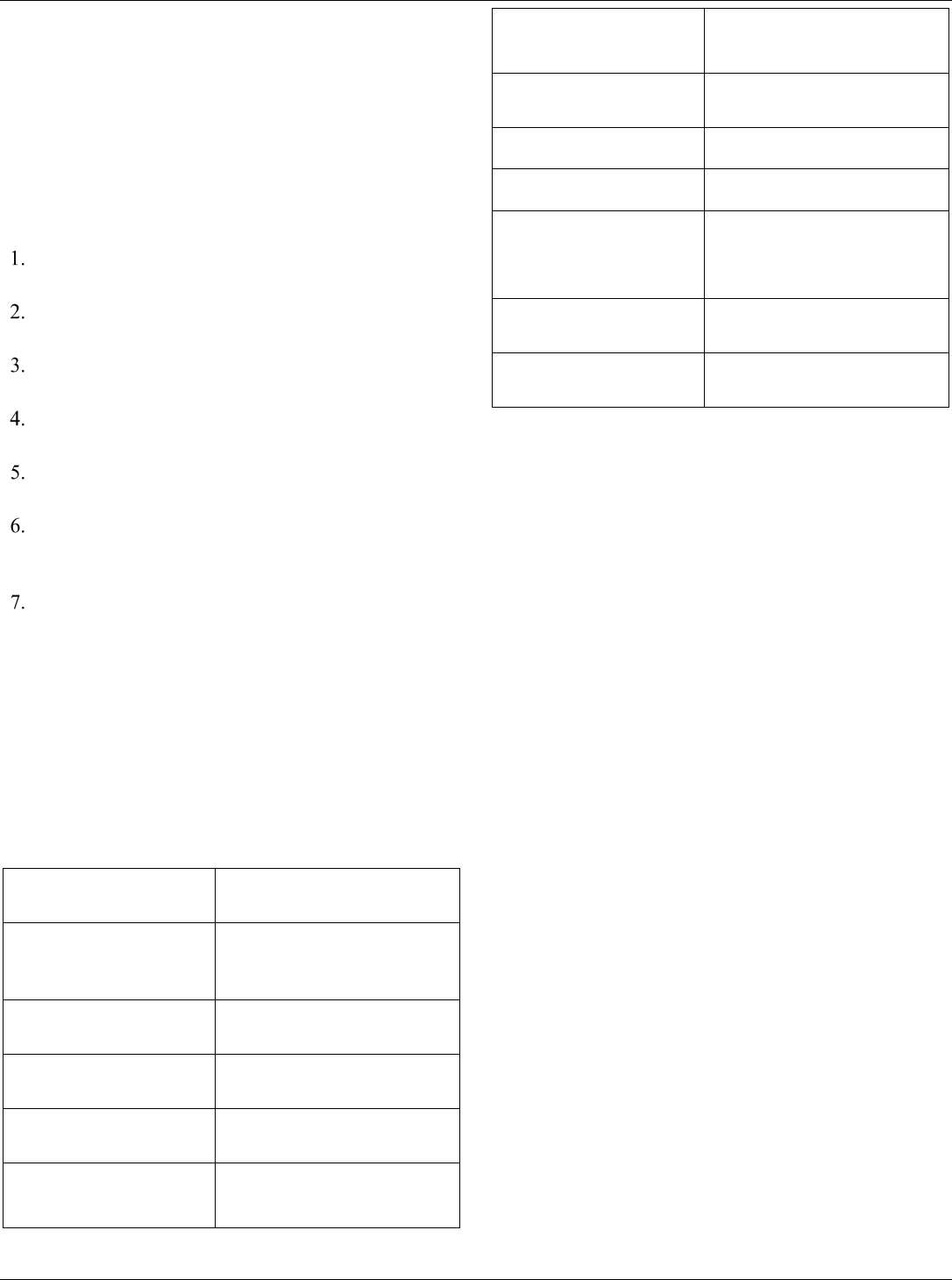
ONLINE UNDERGRADUATE PROGRAMS
2018-2019 ACADEMIC CATALOG 187
encouraged to carefully research the requirements prior to
enrollment. Requirements may vary by state. Further, a
criminal record may prevent an applicant from obtaining
licensure, certification, or employment in this field of
study. This program is not a Military Science (ROTC)
program and does not lead to a commission.
Program Outcomes
Students who successfully complete the Associate of Arts
in Military Studies degree program will be able to:
Develop logical reasoning skills at a level useful
indecision making and problem-solving activities;
Develop the ability to communicate written ideas
clearly;
Explain the concept of power and how it can be
exercised;
Apply historical events or perspectives to the study of
the military;
Assess how international relations relates to the study
of the military;
Examine the role of the military as an instrument for
the preservation of peace, as well as the waging of
war; and
Identify moral and ethical issues related to the
military.
Program Requirements
Total number of credits required: 64 credits
General Education Requirements: *40 credits
Core Requirements: *21 credits
Elective Requirement: 9 credits
*In this program, 6 credits from the core may also satisfy
General Education requirements.
General Education Requirements (40 credits*)
Foundations and Skills for
Lifelong Learning
EXP 105 Personal Dimensions
of Education (3 credits)
Digital Literacy
GEN 102 Digital Literacy for
Life and the Workplace (3
credits)
Written Communication I
ENG 121 English Composition
I (3 credits)
Information Literacy
GEN 103 Information Literacy
(3 credits)
Written Communication II
ENG 122 English Composition
II (3 credits)
Oral and Interpersonal
Communication
COM 200 Interpersonal
Communication (3 credits)
Aesthetic Awareness &
Reasoning
ENG 225 Introduction to Film
(3 credits)
Critical Thinking
PHI 103 Informal Logic (3
credits)
Ethical Reasoning
Fulfilled by Core Requirement
Civic Responsibility
Fulfilled by Core Requirement
Intercultural and Global
Awareness
ANT 101 Introduction to
Cultural Anthropology (3
credits)
Scientific Reasoning
SCI 207 Our Dependence upon
the Environment (4 credits)
Quantitative Reasoning
MAT 222 Intermediate Algebra
(3 credits)
Core Requirements (21 credits*)
•
POL 111 Introduction to Political Science (3 credits)
Satisfies Civic Responsibility requirement
•
POL 255 Introduction to International Relations (3
credits)
•
HIS 103 World Civilizations I (3 credits)
•
HIS 104 World Civilizations II (3 credits)
•
MIL 275 Military Ethics (3 credits)
Satisfies Ethical Reasoning requirement
•
MIL 101 Introduction to Military Studies (3 credits)
•
HSM 201 Department of Homeland Security Missions
& Current Issues (3 credits)
Associate of Arts in Military Studies Graduation
Requirements
To be eligible for an Associate of Arts in Military Studies
degree, a student must successfully accomplish the
following:
•
Completion of all program/course requirements;
•
Completion of a minimum of 64 credits. Additional
prerequisite courses may be required;
•
Minimum cumulative grade point average of 2.00 in
all coursework attempted at the University; and
•
At least 18 credits earned toward the Associate of Arts
degree must be completed at Ashford University.
Note: The date of degree conferral recorded on the
student’s transcript and diploma will reflect the date the
student completes all academic degree requirements.
However, release of transcripts, diplomas, and
verifications for degrees awarded are contingent upon
submission of the Petition to Graduate form, payment of

ONLINE UNDERGRADUATE PROGRAMS
188 ASHFORD UNIVERSITY
the graduation fee, and payment of any outstanding
balances with the University.
The degree will be noted on the transcript as an Associate
of Arts in Military Studies.
Bachelor of Arts in Applied Linguistics
Applied Linguistics is an interdisciplinary field of study
focusing on the practical problems of language-related
issues in order to improve the lives of individuals and
conditions in society. This major draws from courses in
anthropology, English, psychology, sociology, education,
and more. Students in this major will address topics such
as: how languages can best be learned and taught, social
factors that affect language learning, and how technology
can be used to contribute to the effectiveness of language
teaching and learning. A Bachelor’s degree in Applied
Linguistics provides students with valuable training for
many opportunities following graduation, and for
continuing on to graduate degrees in specialized areas of
the field.
Special Terms and Conditions: Successful completion of
this program by itself does not lead to licensure or
certification in any state, regardless of concentration or
specialization. Further, Ashford University does not
guarantee that any professional organization will accept a
graduate’s application to sit for any exam for the purpose
of professional certification. Students seeking licensure or
certification in a particular profession are strongly
encouraged to carefully research the requirements prior to
enrollment. Requirements may vary by state.
Program Outcomes
Applied Linguistics major graduates will be able to:
Examine the overall theories and purposes of
linguistic study and research;
Analyze how language is acquired;
Predict the use of language-related technologies and
their impact on professions;
Assess the interdisciplinary connections between
language, culture, and community;
Analyze the principles and processes of Linguistics
fields, such as phonetics, phonology, morphology,
syntax, semantics, pragmatics, computational/corpus
linguistics, and historical linguistics;
Interpret the policy issues and sociological aspects of
applied linguistics; and
Develop a capstone research paper exemplifying the
ability to apply theoretical knowledge, and research
and technological skills in preparation for a career in
the field.
Program Requirements
Total number of credits required: 120 credits
General Education Requirements: *43 credits
Major Course Requirements: *36 credits
Electives: 47 credits
Students must earn a minimum of 30 upper-division
credits.
*In this program, 6 credits from the major may also satisfy
General Education requirements.
Major Course Requirements (36 credits)
•
LNG 101 Introduction to Language (3 credits)
•
SPA 103 Beginning Spanish I (3 credits)
•
SPA 104 Beginning Spanish II (3 credits)
•
LNG 310 Sounds of Language (3 credits)
Prerequisite: LNG 101 or LNG 321
•
LNG 320 Structures of Language (3 credits)
Prerequisite: LNG 101 or LNG 321
•
LNG 415 Meaning in Language (3 credits)
Prerequisite: LNG 101 or LNG 321
•
LNG 312 Second Language Acquisition (3 credits)
Prerequisite: LNG 101 or 321
•
*LNG 360 Language & Society (3 credits)
•
*LNG 330 Language and Power: An Introduction to
Discourse Analysis (3 credits) Prerequisite: LNG
101 or LNG 321
•
LNG 450 Computational Linguistics (3
credits) Prerequisite: LNG 101 or LNG 321
•
ANT 343 Language, Culture & Communication (3
credits) Prerequisite: Written Communication
Competency and ANT 101 or Global Awareness
Competency Requirement
•
LNG 497 Applied Linguistics Capstone (3
credits) Prerequisites: LNG 101 or LNG 321 and
GEN 499
* Satisfies General Education requirements.
Bachelor of Arts in Communication
Studies
The Bachelor of Arts in Communication Studies major is
designed for students who seek career opportunities in
many fields, including, but not limited to: public relations,
human resources, business management, communications
management, education, public policy and administration,
sociology, journalism, and the media. Communication
Studies provides students with an understanding of ethical
responsibilities when accessing and disseminating
information, and the role in a democratic society of
messages encoded through speech and writing, as well as

ONLINE UNDERGRADUATE PROGRAMS
2018-2019 ACADEMIC CATALOG 189
through emerging modes of communication such as social
media and digital media. Within the program, students will
examine multiple topics in communication from
persuasion and communication theory to various forms of
oral, written and visual/multimedia communication, in
interpersonal, group, organizational and societal contexts.
Special Terms and Conditions: Successful completion of
this program by itself does not lead to licensure or
certification in any state, regardless of concentration or
specialization. Further, Ashford University does not
guarantee that any professional organization will accept a
graduate’s application to sit for any exam for the purpose
of professional certification. Students seeking licensure or
certification in a particular profession are strongly
encouraged to carefully research the requirements prior to
enrollment. Requirements may vary by state. Further, a
criminal record may prevent an applicant from obtaining
licensure, certification, or employment in this field of
study.
Program Outcomes
Communication Studies major graduates will be able to:
Communicate with fluency and clarity;
Select effective communication techniques
appropriate to audience and context;
Identify barriers to effective communication in
different contexts and formulate effective solutions;
Articulate the value of free expression to a
democratic society;
Demonstrate sensitivity in communications between
and among different groups and individuals of
diverse backgrounds;
Demonstrate adaptability to changes in
communication technology;
Conduct effective independent research; and
Communicate in ways consistent with the highest
ethical standards of the communications professions.
Program Requirements
Total number of credits required: 120 credits
General Education Requirements: *43 credits
Major Course Requirements: *36 credits
Electives: 50 credits
Students must earn a minimum of 30 upper-division
credits.
*In this program, 9 credits from the major may also satisfy
General Education requirements.
Major Course Requirements (36 credits)
•
COM 101 Introduction to Communication (3 credits)
•
*COM 223 Persuasion in Communication (3 credits)
•
*SPE 103 Oral Communication (3 credits)
•
COM 425 Communication in Organizations (3 credits)
•
COM 345 Media Writing for Communication (3
credits)
•
JRN 321 Visual Journalism (3 credits) Prerequisite:
JRN 301
•
COM 325 Communication & Conflict (3 credits)
Prerequisites: ENG 121 and ENG 122 or equivalents
•
COM 370 Intercultural Communication (3 credits)
•
ENG 328 Scientific & Technical Writing (3 credits)
Prerequisites: ENG 122 and fulfillment of the General
Education Scientific Reasoning requirement.
•
CGD 318 Public Relations Practice & Promotional
Writing (3 credits)
•
*COM 355 Technology & Communication (3 credits)
•
COM 480 Communication Studies Capstone (3
credits) Prerequisite: GEN 499
*Satisfies General Education requirements.
Bachelor of Arts in Cultural Anthropology
A Bachelor of Arts degree in Cultural Anthropology
provides students with basic skills of critical thinking,
writing, research, and cross-cultural understanding. The
Cultural Anthropology major examines patterns and
processes of cultural change with a focus on how people
live in particular places, and how they organize, govern
and create meaning. Students will examine diversity in
other cultures and consider other world views to gain an
understanding of how and why diversity in human culture
came about. Research in cultural anthropology is
distinguished by its reliance on participant observation,
and students will learn the research methodologies used to
collect and assess critically anthropological data. Students
who complete the program will be prepared to enter
graduate school in several of the social science disciplines.
Course offerings examine topics ranging from
anthropological theory, urban and gender anthropology
and the study of Native American culture.
Special Terms and Conditions: Successful completion of
this program by itself does not lead to licensure or
certification in any state, regardless of concentration or
specialization. Further, Ashford University does not
guarantee that any professional organization will accept a
graduate’s application to sit for any exam for the purpose
of professional certification. Students seeking licensure or
certification in a particular profession are strongly
encouraged to carefully research the requirements prior to
enrollment. Requirements may vary by state.
Note: Some applications in major courses may require
additional hardware, software, and/or internet

ONLINE UNDERGRADUATE PROGRAMS
190 ASHFORD UNIVERSITY
connectivity requirements. This includes the use of plug-in
software Adobe Flash Player 8 for Windows or 8.0 for
Mac users.
Program Outcomes
Cultural Anthropology major graduates will be able to:
Synthesize the topical scope and main concepts of
anthropology;
Assess human biological, cultural, and linguistic
diversity, past and present;
Evaluate the importance of anthropology for
understanding contemporary cultures;
Evaluate the ethical principles and guidelines that are
the foundation for all anthropological work;
Apply anthropological research skills in the collection
and analysis of data and artifacts; and
Analyze the interplay between biological and cultural
factors in the human condition.
Program Requirements
Total number of credits required: 120 credits
General Education Requirements: *43 credits
Major Course Requirements: *37 credits
Electives: 50 credits
Students must earn a minimum of 30 upper-division
credits.
*In this program, 10 credits from the major may also
satisfy General Education requirements.
Major Course Requirements (37 credits)
•
^ANT 234 Family, Kin, & Groups (3 credits)
•
*^ANT 202 Human Origins & Prehistory (4 credits)
•
^ANT 307 Anthropology of War (3 credits)
•
^ANT 340 Anthropological Theory (3 credits)
•
^ANT 343 Language, Culture, & Communication (3
credits)
•
^ANT 315 Material Culture: Archaeology & the
Human Condition (3 credits) Prerequisite: ANT 202
•
*^ANT 351 Anthropology of Religion, Magic, &
Ritual (3 credits)
•
SSC 340 Human Health & Global Environmental
Change (3 credits)
•
^ANT 353 Anthropology of Gender (3 credits)
•
*^ANT 348 Native American Anthropology (3
credits)
•
ANT 462 Anthropological Research Methods (3
credits) Prerequisite: Prerequisite: All 300 level
courses required for major and GEN 499
•
ANT 499 Ethnographic Study Capstone (3
credits) Prerequisites: ANT 462, no more than 12
additional credits required before graduation, and
GEN 499.
* Satisfies General Education requirements.
^ Written Communication Core Competency and ANT 101
or Intercultural & Global Awareness Competency
Requirement must be met before taking this course.
Bachelor of Arts in English
This program will offer students a disciplined study of
literature and provide a rigorously designed foundation for
the development of writing and critical thinking skills. An
English degree is versatile, and employers value the
proficiency in communication and composition that are
valuable in any career.
Special Terms and Conditions: Successful completion of
this program by itself does not lead to licensure or
certification in any state, regardless of concentration or
specialization. Further, Ashford University does not
guarantee that any professional organization will accept a
graduate’s application to sit for any exam for the purpose
of professional certification. Students seeking licensure or
certification in a particular profession are strongly
encouraged to carefully research the requirements prior to
enrollment. Requirements may vary by state.
Program Outcomes
English major graduates will be able to:
Demonstrate an understanding of various literary
genres and works in their historical, analytical, and
sociopolitical contexts;
Develop the ability to write creatively, clearly, and
concisely;
Develop critical thinking skills through intellectual
inquiry;
Demonstrate the ability to integrate significant
literary ideas and themes into a personal worldview;
Evaluate the power of language relative to ethnicities
and gender;
Analyze how writing, language, and literature
function to shape human culture and individual
identity; and
Apply effective independent research skills.
Program Requirements
Total number of credits required: 120 credits
General Education Requirements: *43 credits
Major Course Requirements: *36 credits
Electives: 50 credits

ONLINE UNDERGRADUATE PROGRAMS
2018-2019 ACADEMIC CATALOG 191
Students must earn a minimum of 30 upper-division
credits.
*In this program, 9 credits from the major may also satisfy
General Education requirements.
Major Course Requirements (36 credits)
All students must take ENG 121 and ENG 122 or their
equivalents prior to beginning their English major course
requirements.
•
*ENG 125 Introduction to Literature (3 credits)
•
ENG 301 American Literature to 1865 (3 credits)
•
ENG 302 American Literature After 1865 (3 credits)
•
*ENG 345 British Literature I (3 credits)
•
ENG 346 British Literature II (3 credits)
•
ENG 315 Business & Professional Writing (3 credits)
•
LIB 202 Women, Culture & Society (3 credits)
•
ENG 317 International Voices (3 credits)
Prerequisites: English Proficiency
•
*LNG 330 Language & Power: An Introduction to
Discourse Analysis (3 credits)
•
JRN 200 Elements of Journalism (3 credits)
•
ENG 438 Literary Theory (3 credits)
•
ENG 497 English Capstone (3 credits) Prerequisite:
GEN 499
* Satisfies General Education requirements.
Bachelor of Arts in Environmental Studies
The Bachelor of Arts in Environmental Studies is an
interdisciplinary degree that synthesizes the physical and
life sciences, humanities, and social sciences. Students
develop the knowledge and skills needed to analyze how
human civilization interacts with our natural surroundings
and to create sustainable solutions. Students are trained in
ecology, conservation biology, economics, environmental
chemistry, GIS, policy, renewable energy, research
methodologies, statistical reasoning, and resource
management. Students emerge from the program prepared
to work in environmental management, planning, and
regulation, or pursue a graduate degree in an
environmental field.
Special Terms and Conditions: Successful completion of
this program by itself does not lead to licensure or
certification in any state, regardless of concentration or
specialization. Further, Ashford University does not
guarantee that any professional organization will accept a
graduate’s application to sit for any exam for the purpose
of professional certification. Students seeking licensure or
certification in a particular profession are strongly
encouraged to carefully research the requirements prior to
enrollment. Requirements may vary by state.
Program Outcomes
Environmental Studies major graduates will be able to:
Analyze environmental issues and solutions;
Evaluate the impacts of culture, diversity, ethics,
history, law, policy, society, and technology on
global environmental issues;
Explain environmental issues and solutions in a
scientific manner;
Apply multidisciplinary and interdisciplinary
knowledge to topics in environmental science;
Synthesize the complex relationship between humans
and the environment; and
Apply quantitative analyses to research and
management decisions.
Program Requirements.
Total number of credits required: 120 credits
General Education Requirements: *43 credits
Major Course Requirements: *36 credits
Electives: 44 credits
Students must earn a minimum of 30 upper-division
credits.
*In this program, 3 credits from the major may also satisfy
General Education requirements.
Major Course Requirements (36 credits)
•
ENV 100 Introduction to Environmental Studies (3
credits)
•
ENV 322 Energy & Environmental Systems (3 credits)
•
ENV 325 Environmental Management (3 credits)
•
ENV 326 Ecology & Evolution (3
credits) Prerequisites: ENV 100
•
ENV 350 Conservation Biology (3
credits) Prerequisite: ENV 326
•
ENV 333 Environmental Impact (3 credits)
•
ENV 345 Business & the Environment (3 credits)
•
POL 310 Environmental Policies (3 credits)
•
ENV 385 Chemistry and Toxicology (3 credits)
•
*/**GEO 308 Geographic Information Systems (3
credits)
•
BUS 308 Statistics for Managers (3 credits)
Prerequisite: Quantitative Reasoning Core
Competency
•
**ENV 497 Environmental Studies Capstone (3
credits) Prerequisite: GEN 499
* Satisfies General Education requirements.
**Please note that some applications in this course may
require additional hardware, software, and/or internet

ONLINE UNDERGRADUATE PROGRAMS
192 ASHFORD UNIVERSITY
connectivity requirements. This includes use of Windows
XP with Service Pack 2.0 or higher and broadband Internet
access. GIS software used in this program is not
compatible with Mac OS.
Bachelor of Arts in History
In a world transformed by the powerful tides of
globalization, history provides an intellectual toolkit for
dealing with complex national and international realities.
Every aspect of the present is rooted in aspects of the past.
Immersion in place-based knowledge and understanding
how unintended consequences shape our lives help
students to understand an increasingly complex world.
Special Terms and Conditions: Successful completion of
this program by itself does not lead to licensure or
certification in any state, regardless of concentration or
specialization. Further, Ashford University does not
guarantee that any professional organization will accept a
graduate’s application to sit for any exam for the purpose
of professional certification. Students seeking licensure or
certification in a particular profession are strongly
encouraged to carefully research the requirements prior to
enrollment. Requirements may vary by state.
Program Outcomes
History major graduates will be able to:
Utilize appropriate historical sources in the
completion of written and/or oral narratives and
analysis;
Interpret events, institutions, and human communities
in their historical contexts;
Assess historical phenomena in terms of continuity,
change, causation, and significance;
Analyze major issues, trends and debates with respect
to the historiography of specific topics and themes;
Evaluate historical events and trends from global
perspectives that examine interaction between
societies and cultures; and
Assess the significance of social and cultural
developments within broader historical contexts.
Program Requirements
Total number of credits required: 120 credits
General Education Requirements: *43 credits
Major Course Requirements: *36 credits
Electives: 50 credits
Students must earn a minimum of 30 upper-division
credits.
*In this program, 9 credits from the major may also satisfy
General Education requirements.
Major Course Requirements (36 credits)
•
*HIS 103 World Civilizations I (3 credits)
•
*HIS 104 World Civilizations II (3 credits)
•
*HIS 205 United States History I (3 credits)
•
HIS 206 United States History II (3 credits)
•
POL 303 The American Constitution (3 credits)
•
LIB 320 Global Socioeconomic Perspectives (3
credits)
•
HIS 378 Historiography & Historical Methodologies
(3 credits)
Prerequisites: ENG 122 and HIS 206
•
HIS 340 Recent American History (3 credits)
Prerequisites: ENG 122 and HIS 206
•
HIS 311 Gender in History (3 credits)
Prerequisites: ENG 122 and HIS 206
•
HIS 355 Decolonization in Asia, Africa and the
Americas Prerequisites: ENG 122, HIS 204 and
HIS 206
•
HIS 379 The Atlantic World (3 credits)
Prerequisites: ENG 122, HIS 104 and HIS 206
•
HIS 497 History Capstone: Advanced Research
Project (3 credits) Prerequisite: GEN 499 and all
major course requirements
* Satisfies General Education requirements.
Bachelor of Arts in Homeland Security
and Emergency Management
The Bachelor of Arts in Homeland Security and
Emergency Management provides students with a broad
view of homeland security, emergency management, and
preparedness at the federal, state, and local levels. The
program is designed to transcend a single discipline to
consider counter-terrorism, emergency planning for natural
disasters and response to terrorism, research and analysis,
and an interdisciplinary foundation of courses including
ethics, international relations, cyber crime, as well as a
strong emphasis on American Government and the United
States Constitution.
Special Terms and Conditions: Successful completion of
this program by itself does not lead to licensure or
certification in any state, regardless of concentration or
specialization. Further, Ashford University does not
guarantee that any professional organization will accept a
graduate’s application to sit for any exam for the purpose
of professional certification. Students seeking licensure or
certification in a particular profession are strongly
encouraged to carefully research the requirements prior to
enrollment. Requirements may vary by state. Further, a
criminal record may prevent an applicant from obtaining

ONLINE UNDERGRADUATE PROGRAMS
2018-2019 ACADEMIC CATALOG 193
licensure, certification, or employment in this field of
study.
Program Outcomes
Homeland Security and Emergency Management major
graduates will be able to:
Demonstrate a comprehension of relevant bodies of
law, the intelligence community, and international,
political, social, and cultural environments;
Develop critical thinking skills for effective problem
solving relative to crisis management issues,
principles, and procedures;
Understand the importance of the historic, cultural,
and diversity aspects of selected populations;
Demonstrate the ability to write a substantive report
or analysis using strong research skills and technical
writing proficiency;
Evaluate data and analyze the validity of the
information;
Create a report that demonstrates the ability to
retrieve information from relevant websites including
the pertinent governmental websites and repositories
of information; and
Evaluate the ethical implications of Homeland
Security measures.
Program Requirements
Total number of credits required: 120 credits
General Education Requirements: *43 credits
Major Course Requirements: *36 credits
Electives: 44 credits
Students must earn a minimum of 30 upper-division
credits.
*In this program, 3 credits from the major may also satisfy
General Education requirements.
Major Course Requirements (36 credits)
•
HSM 101 Introduction to Homeland Security and
Emergency Management (3 credits)
•
HSM 201 Department of Homeland Security Missions
and Current Issues (3 credits)
•
*POL 111 Introduction to Political Science (3 credits)
•
CRJ 306 Criminal Law & Procedure (3 credits)
•
CRJ 310 Applied Constitutional Issues (3 credits)
•
SOC 333 Research Methods (3 credits)
•
HSM 315 Emergency Planning (3 credits)
•
HSM 323 Revolution & Terrorism in the Modern
World (3 credits)
•
HSM 433 Counter Terrorism & Intelligence Analysis
(3 credits)
•
HSM 435 Psychology of Disaster (3 credits)
•
HSM 438 Introduction to Cyber Crime (3 credits)
•
HSM 497 Homeland Security & Emergency
Management Capstone (3 credits) Prerequisite: GEN
499
* Satisfies General Education requirements.
Bachelor of Arts in Journalism and Mass
Communication
The Bachelor of Arts in Journalism and Mass
Communication prepares students with the necessary skills
to explore career opportunities as reporters, journalists,
writers, editors, and in other areas of communication
focused on presentation of news and information. Students
who major in this degree program will explore the various
aspects of print, broadcast, and digital media systems.
Students will also learn to critically examine news and
information media, conduct audience analyses, and learn
skills to produce news for various media platforms.
Additionally, students will learn to consider legal and
ethical principles associated with the dissemination of
information in the media.
Special Terms and Conditions: Successful completion of
this program by itself does not lead to licensure or
certification in any state, regardless of concentration or
specialization. Further, Ashford University does not
guarantee that any professional organization will accept a
graduate’s application to sit for any exam for the purpose
of professional certification. Students seeking licensure or
certification in a particular profession are strongly
encouraged to carefully research the requirements prior to
enrollment. Requirements may vary by state. Further, a
criminal record may prevent an applicant from obtaining
licensure, certification, or employment in this field of
study.
Program Outcomes
Journalism and Mass Communication major graduates will
be able to:
Demonstrate an understanding of the rights, roles and
responsibilities of news media professionals;
Apply the principles of Freedom of Speech and
Freedom of the Press in a domestic and global
society;
Demonstrate an understanding of diverse cultures and
groups in a domestic and global society in relation to
mediated communications;
Apply ethical principles a in the pursuit of truth,
accuracy, fairness, and diversity;

ONLINE UNDERGRADUATE PROGRAMS
194 ASHFORD UNIVERSITY
Demonstrate the ability to develop accurate, timely,
and impactful mediated messages while applying the
appropriate theories and concepts in the presentation
of information and images;
Demonstrate the ability to conduct research, apply
basic numerical and statistical concepts, evaluate
information using the appropriate methods, and write
clearly in the forms and styles appropriate for the
profession; and
Demonstrate the ability to think critically, creatively,
and independently in the development of news, and in
the evaluation of their own work, and the work of
others.
Program Requirements
Total number of credits required: 120 credits
General Education Requirements: *43 credits
Major Course Requirements: 36 credits
Electives: 50 credits
Students must earn a minimum of 30 upper-division
credits.
*In this program, 9 credits from the major may also satisfy
General Education requirements.
Major Course Requirements (36 credits)
•
*JRN 101 Digital & Media Literacy (3 credits)
•
JRN 200 Elements of Journalism (3
credits) Prerequisite: ENG 121 and ENG 122 or
equivalents
•
JRN 201 Multimedia News Writing and Editing (3
credits) Prerequisite: JRN 200
•
JRN 301 Newsgathering & Reporting (3 credits)
Prerequisite: JRN 201
•
JRN 321 Visual Journalism (3 credits) Prerequisite:
JRN 301
•
JRN 412 Advanced Editorial & Feature Writing (3
credits) Prerequisite: JRN 301
•
JRN 341 Specialized Journalism (3 credits)
Prerequisite: JRN 301
•
*LNG 330 Language and Power (3 credits)
Prerequisite: LNG 101or LNG 321
•
*LNG 360 Language and Society (3 credits)
•
JRN 330 Media Law and Ethics (3 credits)
Prerequisites: JRN 200 and JRN 201
•
JRN 450 Investigative Journalism (3 credits)
•
JRN 497 Journalism & Mass Communication
Capstone (3 credits) Prerequisite: All Major Core
courses and GEN 499
Bachelor of Arts in Law Enforcement
Administration
The Bachelor of Arts in Law Enforcement Administration
(LEA) is designed for students who wish to advance their
careers by developing management skills in the field of
law enforcement. The major is designed to provide
students with the knowledge and leadership skills
necessary to maintain social order, protect individual
rights, meet public needs, and uphold the laws and
institutions of democracy. Students will learn problem
solving and communication skills, and develop increased
empathy and a greater understanding of diversity.
Special Terms and Conditions: Successful completion of
this program by itself does not lead to professional
licensure or certification in any state, regardless of
concentration or specialization, and students will not
receive the training required to become a law enforcement
officer. Each state has its own standards and training
requirements for appointment as a law enforcement
officer. It is the student’s responsibility to review any state
certification or licensure requirements in their intended
field of employment.
Further, Ashford University does not guarantee that any
professional organization will accept a graduate’s
application to sit for any exam for the purpose of
professional certification. Students seeking licensure or
certification in a particular profession are strongly
encouraged to carefully research the requirements prior to
enrollment. Requirements may vary by state. Further, a
criminal record may prevent an applicant from obtaining
licensure, certification, or employment in this field of
study.
Program Outcomes
Law Enforcement Administration major graduates will be
able to:
Develop management and leadership skills
appropriate to law enforcement administration;
Evaluate the practices and systems for maintaining
individual rights;
Develop an understanding of police responsibility,
ethics, and rights;
Analyze criminal behavior;
Demonstrate an understanding of race, crime, and
social policy;
Develop an understanding of the character traits
necessary for becoming a responsible, moral law
enforcement leader;
Evaluate the guidelines for policing in today’s
communities; and

ONLINE UNDERGRADUATE PROGRAMS
2018-2019 ACADEMIC CATALOG 195
Create a final project that demonstrates an
understanding of research and illustrates critical
thinking and clear and concise writing skills.
Program Requirements
Total number of credits required: 120 credits
General Education Requirements: *43 credits
Major Course Requirements: *36 credits
Electives: 44 credits
Students must earn a minimum of 30 upper-division
credits.
*In this program, 3 credits from the major may also satisfy
General Education requirements.
Major Course Requirements (36 credits)
•
LEA 101 Introduction to Concepts in Law
Enforcement Administration (3 credits)
•
LEA 300 Policing Models for the 21
st
Century (3
credits)
•
*LEA 200 Ethical Leadership in Law Enforcement (3
credits)
•
LEA 301 Supervision & Human Resource
Management in Law Enforcement (3 credits)
•
HSM 315 Emergency Planning (3 credits)
•
CRJ 306 Criminal Law & Procedures (3 credits)
•
LEA 413 Investigations Management (3 credits)
•
PPA 305 Budgeting for Public Administrators (3
credits)
•
CRJ 310 Applied Constitutional Issues (3 credits)
•
ENG 315 Business & Professional Writing (3 credits)
Prerequisites: ENG 122 and junior standing or
permission of the instructor
•
LEA 444 Training Management (3 credits)
•
LEA 497 Law Enforcement Administration Capstone
(3 credits) Prerequisite: GEN 499
* Satisfies General Education requirements.
Bachelor of Arts in Liberal Arts
The Bachelor of Arts in Liberal Arts major is designed for
students who seek career opportunities in many fields. The
Liberal Arts program is designed to provide students with
a broad-based liberal arts experience enriching the
student’s understanding of the physical and social world.
The diversity of courses will enable the student to examine
major national and global issues, especially those issues
related to cultures and their diversity. Liberal studies
emphasize literature, philosophy, social science, and
analytical and critical thinking skills, all of which prepare
students for lifelong learning and social, cultural, and
technological change.
Special Terms and Conditions: Successful completion of
this program by itself does not lead to licensure or
certification in any state, regardless of concentration or
specialization. Further, Ashford University does not
guarantee that any professional organization will accept a
graduate’s application to sit for any exam for the purpose
of professional certification. Students seeking licensure or
certification in a particular profession are strongly
encouraged to carefully research the requirements prior to
enrollment. Requirements may vary by state.
Program Outcomes
Liberal Arts major graduates will be able to:
Demonstrate appropriate comparative and analytical
communication skills across disciplines;
Develop skills to conduct effective independent
research;
Develop and apply culturally diverse communication
skills between and among different groups and
individuals in a global environment;
Apply critical thinking skills in analyzing,
environmental, social, and political issues;
Develop the ability to integrate viewpoints from
different disciplines; and
Analyze the values that influence interactions among
people, groups, and nations.
Program Requirements
Total number of credits required: 120 credits
General Education Requirements: *43 credits
Major Course Requirements: *33 credits
Electives: 50 credits
Students must earn a minimum of 30 upper-division
credits.
*In this program, 6 credits from the major may also satisfy
General Education requirements.
Major Course Requirements (33 credits)
•
*LIB 101 The Art of Being Human (3 credits)
•
LIB 102 Human Questions (3 credits)
•
LIB 301 Liberal Arts Seminar (3 credits)
•
*LIB 202 Women, Culture & Society (3 credits)
•
LIB 315 The Environment & the Human Spirit (3
credits) Prerequisite: ENG 122 or equivalent
•
LIB 316 Historical Contexts & Literature (3 credits)
•
ENG 317 International Voices (3 credits)
Prerequisites: English Proficiency
•
ENG 438 Literary Theory (3 credits)
•
LIB 332 Science & Culture (3 credits)

ONLINE UNDERGRADUATE PROGRAMS
196 ASHFORD UNIVERSITY
•
LIB 356 Research Methods for the Humanities (3
credits)
•
LIB 495 Capstone – Advanced Research Project (3
credits) Prerequisite: GEN 499
* Satisfies General Education requirements.
Bachelor of Arts in Military Studies
The Military Studies program is developed to provide
students with a foundation in the areas of historical and
political studies and methodologies to understand the role
of the military as an institution within society. This major
will provide students with historical and ethical
perspectives on military affairs. Students will take a broad
variety of courses that provide a context in chronology and
geography to develop the skills, knowledge base, and
moral awareness in preparation for a career as a leader in
the military or in the private sector.
Special Terms and Conditions: Successful completion of
this program by itself does not lead to licensure or
certification in any state, regardless of concentration or
specialization. Further, Ashford University does not
guarantee that any professional organization will accept a
graduate’s application to sit for any exam for the purpose
of professional certification. Students seeking licensure or
certification in a particular profession are strongly
encouraged to carefully research the requirements prior to
enrollment. Requirements may vary by state. Further, a
criminal record may prevent an applicant from obtaining
licensure, certification, or employment in this field of
study. This program is not a Military Science (ROTC)
program and does not lead to a commission.
Program Outcomes
Military Studies major graduates will be able to:
Examine the interrelationship between grand strategy
and war;
Analyze issues concerning the role of the military
within its chronological and geographical context;
Examine how military and civilian authority should
co-exist, both in the United states and in deployments
abroad;
Assess the moral and ethical concerns raised through
the study of the relationship of the military to society;
Analyze the importance of the military as an
instrument for the preservation of peace, as well as
the waging of war; and
Evaluate the character traits necessary for becoming
amoral and effective leader.
Program Requirements
Total number of credits required: 120 credits
General Education Requirements: *43 credits
Major Course Requirements: *36 credits
Electives: 50 credits
Students must earn a minimum of 30 upper-division
credits.
*In this program, 9 credits from the major may also satisfy
General Education requirements.
Major Course Requirements (36 credits)
•
MIL 101 Introduction to Military Studies (3 credits)
•
*MIL 275 Military Ethics (3 credits)
•
*POL 111 Introduction to Political Science (3 credits)
•
SSC 340 Human Health & Global Environmental
Change (3 credits)
•
MIL 312 Peacekeeping (3 credits)
•
ENG 315 Business & Professional Writing (3 credits)
Prerequisites: ENG 122 and junior standing or
permission of the instructor
•
*POL 255 Introduction to International Relations (3
credits)
•
SSC 330 Peacemaking: A Global Study of Conflict
Resolution & Activism (3 credits)
•
MIL 350 Studies in Military Leadership (3 credits)
•
HSM 323 Revolution & Terrorism in the Modern
World (3 credits)
•
POL 303 The American Constitution (3 credits)
•
MIL 497 Military Studies Capstone (3
credits) Prerequisite: GEN 499
* Satisfies General Education requirements.
Bachelor of Arts in Political Science and
Government
The Bachelor of Arts in Political Science and Government
focuses on the systematic study of political institutions,
behavior, political parties, research methods, comparative
politics, and an emphasis on our national government.
Political Science is key for imparting knowledge of
political processes, values, and public policy and is
designed to provide students with the analytical tools and
critical thinking skills to address the intricate and complex
relationships among the private, public, transnational, and
global sectors.
Special Terms and Conditions: Successful completion of
this program by itself does not lead to licensure or
certification in any state, regardless of concentration or
specialization. Further, Ashford University does not
guarantee that any professional organization will accept a
graduate’s application to sit for any exam for the purpose

ONLINE UNDERGRADUATE PROGRAMS
2018-2019 ACADEMIC CATALOG 197
of professional certification. Students seeking licensure or
certification in a particular profession are strongly
encouraged to carefully research the requirements prior to
enrollment. Requirements may vary by state. Further, a
criminal record may prevent an applicant from obtaining
licensure, certification, or employment in this field of
study.
Program Outcomes
Political Science and Government major graduates will be
able to:
Demonstrate an understanding of the ways in which
power and authority are embedded in the structures
and workings of the government and politics;
Analyze political issues and develop methods to
resolve them through effective and creative
communication;
Develop the ability to undertake in-depth analyses of
political behavior as it applies to various political
theories in democracy and representation;
Assess critically the causes and implications of
conflict, compromise, and cooperation at the local,
national, transnational, and global levels; and
Evaluate public policy as it relates to political
behavior, rights, and justice.
Program Requirements
Total number of credits required: 120 credits
General Education Requirements: *43 credits
Major Course Requirements: *36 credits
Electives: 47 credits
Students must earn a minimum of 30 upper-division
credits.
*In this program, 6 credits from the major may also satisfy
General Education requirements.
Major Course Requirements (36 credits)
•
*POL 111 Introduction to Political Science (3 credits)
•
POL 201 American National Government (3 credits)
•
*POL 255 Introduction to International Relations (3
credits)
•
POL 303 The American Constitution (3 credits)
•
POL 310 Environmental Policies (3 credits)
•
HSM 323 Revolution & Terrorism in the Modern
World (3 credits)
•
SSC 330 Peacemaking: A Global Study of Conflict
Resolution and Activism (3 credits)
•
POL 353 Comparative Politics (3 credits)
•
SSC 340 Human Health & Global Environmental
Change (3 credits)
•
POL 470 Introduction to Political Analysis (3 credits)
Prerequisite: 18 credit hours in Political Science
•
POL 480 Methodology in Political Science (3 credits)
Prerequisite: POL 470
•
POL 497 Political Science Capstone (3
credits) Prerequisite: GEN 499
* Satisfies General Education requirements.
Bachelor of Arts in Social and Criminal
Justice
The Social and Criminal Justice major offers a unique
interdisciplinary program that examines criminal justice
from a perspective that sees it as a means of building a
more just society. Students examine topics such as
forensics, psychology, crime prevention, the Constitution,
criminal law, and the correctional system.
Special Terms and Conditions: Successful completion of
this program by itself does not lead to licensure or
certification in any state, regardless of concentration or
specialization. Further, Ashford University does not
guarantee that any professional organization will accept a
graduate’s application to sit for any exam for the purpose
of professional certification. Students seeking licensure or
certification in a particular profession are strongly
encouraged to carefully research the requirements prior to
enrollment. Requirements may vary by state. Further, a
criminal record may prevent an applicant from obtaining
licensure, certification, or employment in this field of
study. For additional information, please refer to your
state licensing board or agency.
Program Outcomes
Social and Criminal Justice major graduates will be able
to:
Analyze criminal justice issues within the systems of
law enforcement, the judiciary, and corrections;
Evaluate the application of the social justice
principles of equality, solidarity, and human rights
toward building a just society;
Apply knowledge of cultural sensitivity and diversity
awareness to social and criminal justice;
Deconstruct the relationship between law
enforcement, the judiciary, and corrections;
Interpret the relationship between social justice and
criminal justice; and,
Develop critical perspectives in the study of social
and criminal justice by drawing on the fields of
criminology, law, philosophy, psychology, science,
and sociology.
Program Requirements

ONLINE UNDERGRADUATE PROGRAMS
198 ASHFORD UNIVERSITY
Total number of credits required: 120 credits
General Education Requirements: *43 credits
Major Course Requirements: *36 credits
Electives: 47 credits
Students must earn a minimum of 30 upper-division
credits.
*In this program, 6 credits from the major may also satisfy
General Education requirements.
Major Course Requirements (36 credits)
•
*SOC 120 Introduction to Ethics & Social
Responsibility (3 credits)
•
CRJ 310 Applied Constitutional Law (3 credits)
•
CRJ 201 Introduction to Criminal Justice (3 credits)
•
SOC 305 Crime & Society (3 credits)
•
SOC 333 Research Methods (3 credits)
•
CRJ 308 Psychology of Criminal Behavior (3 credits)
•
CRJ 305 Crime Prevention (3 credits)
•
CRJ 301 Juvenile Justice (3 credits)
•
CRJ 306 Criminal Law & Procedure (3 credits)
•
CRJ 311 Forensics (3 credits)
•
*CRJ 303 Corrections (3 credits)
•
CRJ 422 Criminal Justice Capstone (3
credits) Prerequisite: GEN 499
* Satisfies General Education requirements.
Note: CRJ 201 should be taken prior to 300-level CRJ
courses and above.
Bachelor of Arts in Social Science
The Social Science Program explores global
environmental, health, social and technological issues and
social change that shape our world from an
interdisciplinary perspective. The program brings together
diverse disciplines in a comprehensive manner, enabling
students to develop a meaningful understanding of the
complex associations and influences within a topic and to
become global thinkers.
Special Terms and Conditions: Successful completion of
this program by itself does not lead to licensure or
certification in any state, regardless of concentration or
specialization. Further, Ashford University does not
guarantee that any professional organization will accept a
graduate’s application to sit for any exam for the purpose
of professional certification. Students seeking licensure or
certification in a particular profession are strongly
encouraged to carefully research the requirements prior to
enrollment. Requirements may vary by state. Further, a
criminal record may prevent an applicant from obtaining
licensure, certification, or employment in this field of
study.
Program Outcomes
Social Science major graduates will be able to:
Evaluate fundamental social science concepts;
Integrate knowledge from the social sciences to
examine a variety of perspectives about contemporary
issues;
Evaluate the importance and influence of diversity
within and among cultures and societies;
Communicate theoretical perspectives, findings, and
interpretations of contemporary issues in the social
sciences;
Analyze contemporary issues in the social sciences
using critical thinking and ethical reasoning skills;
and
Apply qualitative and quantitative research methods
to explain and analyze issues of global and
contemporary significance
Program Requirements
Total number of credits required: 120 credits
General Education Requirements: *43 credits
Major Course Requirements: *36 credits
Electives: 47 credits
Students must earn a minimum of 30 upper-division
credits.
*In this program, 6 credits from the major may also satisfy
General Education requirements.
Major Course Requirements (36 credits)
•
*SSC 101 Introduction to Social Science (3 credits)
•
POL 255 Introduction to International Relations (3
credits)
•
SOC 308 Racial & Ethnic Groups (3 credits)
•
SSC 320 Global Socioeconomic Perspectives (3
credits)
•
SSC 330 Peacemaking: A Global Study of Conflict
Resolution & Activism (3 credits)
•
SSC 340 Human Health and Global Environmental
Change (3 credits)
•
ANT 340 Anthropological Theory (3 credits)
Prerequisite: Written Communication Competency
and ANT 101 or Global Awareness Competency
Requirement
•
ANT 353 Anthropology of Gender (3 credits)
Prerequisite: Written Communication Core

ONLINE UNDERGRADUATE PROGRAMS
2018-2019 ACADEMIC CATALOG 199
Competency and ANT 101 or Global Awareness
Competency Requirement
•
*COM 370 Intercultural Communication (3 credits)
•
PSY 325 Statistics for the Behavioral & Social
Sciences (3 credits) Prerequisite: MAT 232
•
ANT 462 Anthropological Research Methods (3
credits) Prerequisite: All 300 level courses required
for major and GEN 499
•
ANT 499 Ethnographic Study Capstone (3 credits)
Prerequisites: ANT 462, no more than 12 additional
credits required before graduation, and GEN 499.
* Satisfies General Education requirements.
^ Quantitative Reasoning Core Competency requirement
must be met before taking this course.
Note: SSC 101 should be taken prior to 300-level courses
and above in their respective subject areas.
Transfer Concentration Option
Students may add a transfer concentration to the Bachelor
of Arts in Social Science program by transferring in 12
applicable credits in a defined subject area. Transfer
concentrations are not required and are intended for
students who have experience and/or extensive transfer
credit coursework in a field of study at the time of
admission to the program. The following major courses are
designated for substitution with concentration coursework,
where appropriate: POL 255, LIB 320, ANT 353, and SOC
308. For additional details, see Transfer Concentration
Guidelines in the General Academic Information and
Policies section of this Catalog.
Bachelor of Arts in Sociology
The BA in sociology is focused on the study of humans in
society, and specifically in reference to their identifying
groups (race, gender, sexuality, etc.) and the unique issues
they can face. Sociology majors study social theory and
social structures, research methods and the making and
implementation of social policy. This allows majors to
understand the cause of social issues, provide solutions,
and influence positive social change. Graduates of the
program are prepared for entry-level social research,
analysis, public and social services, as well as workplace
and community advocacy and activism positions.
Special Terms and Conditions: Successful completion of
this program by itself does not lead to licensure or
certification in any state, regardless of concentration or
specialization. Further, Ashford University does not
guarantee that any professional organization will accept a
graduate’s application to sit for any exam for the purpose
of professional certification. Students seeking licensure or
certification in a particular profession are strongly
encouraged to carefully research the requirements prior to
enrollment. Requirements may vary by state. Further, a
criminal record may prevent an applicant from obtaining
licensure, certification, or employment in this field of
study.
Program Outcomes
Sociology major graduates will be able to:
Defend knowledge of foundational sociological
concepts; specifically, concepts of diversity, social
responsibility, human rights, and dignity and respect
for others in society;
Assess a variety of classical and contemporary
sociological theoretical perspectives;
Evaluate research methodologies within the
sociological context;
Critically evaluate sociological issues; and
Apply sociological tools to impact societal issues.
Program Requirements
Total number of credits required: 120 credits
General Education Requirements: *43 credits
Major Course Requirements: *33 credits
Electives: 50 credits
Students must earn a minimum of 30 upper-division
credits.
*In this program, 6 credits from the major may also satisfy
General Education requirements.
Major Course Requirements (33 credits)
•
*SOC 101 Introduction to Sociology (3 credits)
•
SOC 203 Social Problems (3 credits)
•
SOC 205 Social Theory (3 credits)
•
SOC 333 Research Methods (3 credits)
•
PSY 325 Statistics for the Behavioral & Social
Sciences (3 credits) Prerequisite: MAT 232
•
*SOC 301 Identity & Social Inequality (3 credits)
•
SOC 304 Social Gerontology (3 credits)
•
SSC 320 Global Socioeconomic Perspectives (3
credits)
•
SOC 308 Racial & Ethnic Groups (3 credits)
•
SOC 307 Gender & Sexuality (3 credits)
•
SOC 401 Engaging in Sociology (3 credits)
Prerequisites: SOC 101, SOC 333 and SOC 301
* Satisfies General Education requirements.

ONLINE UNDERGRADUATE PROGRAMS
200 ASHFORD UNIVERSITY
Minors
Minors offered in the online modality provide students
with additional opportunities to broaden and enrich their
education. A minor is a program of study that is distinct
from and supplements a student’s major. A minor may be
taken as a way to give a coherent pattern to elective
credits, to expand career options, to prepare for graduate
study, or simply to explore in greater depth an area
different from one’s major.
Coursework that is applied toward fulfillment of a minor
may count toward elective or General Education
requirements, but will not apply toward fulfillment of a
transfer concentration or specialization. Students cannot
earn a minor in the same subject area as their major field
of study or a major that has more than 50% of the same
coursework, unless otherwise noted. In addition, students
cannot declare or earn two minors that share more than
50% of the same coursework. Students must declare a
minor prior to degree conferral.
Note: The date of degree conferral recorded on the
student’s transcript and diploma will reflect the date the
student completes all academic degree requirements.
However, release of transcripts, diplomas, and
verifications for degrees awarded are contingent upon
submission of the Petition to Graduate form, payment of
the graduation fee, and payment of any outstanding
balances with the University.
Accounting Minor (18 credits)
Please note: This minor is not available to students
majoring in Accounting.
•
ACC 205 Principles of Accounting I (3 credits)
•
ACC 206 Principles of Accounting II (3 credits)
Prerequisite: ACC 205
•
ACC 305 Intermediate Accounting I (3 credits)
Prerequisite: ACC 206
•
ACC 306 Intermediate Accounting II (3 credits)
Prerequisite: ACC 305
•
ACC 310 Cost Accounting I (3 credits)
Prerequisite: ACC 206
•
ACC 401 Federal Income Taxes I (3 credits)
Prerequisite: ACC 205
Business Administration Minor (18
credits)
Please note: This minor is not available to students
majoring in Business Administration, Business Economics,
Human Resources Management, or Sports and Recreation
Management.
•
ACC 205 Principles of Accounting I (3 credits)
•
BUS 303 Human Resource Management (3 credits)
•
BUS 311 Business Law I (3 credits)
•
BUS 330 Principles of Marketing (3 credits)
•
ECO 203 Principles of Macroeconomics (3 credits)
•
MGT 330 Management for Organizations (3 credits)
Business Economics Minor (18 credits)
Please note: This minor is not available to students
majoring in Business Economics.
•
BUS 308 Statistics for Managers (3 credits)
Prerequisite: Quantitative Reasoning Core
Competency
•
ECO 203 Principles of Macroeconomics (3 credits)
•
ECO 204 Principles of Microeconomics (3 credits)
•
ECO 316 Financial Institutions & Markets (3 credits)
Prerequisite: ECO 100 and ECO 203
•
ECO 320 International Economics (3 credits)
•
ECO 406 Business Cycles & Growth (3 credits)
Prerequisite: ECO 203
Child Development Minor (18 credits)
•
ECE 315 Language Development in Young Children
(3 credits)
•
ECE 353 Cognitive Development of Infants & Young
Children (3 credits)
•
ECE 354 Assessment & Intervention During Early
Childhood (3 credits)
•
ECE 355 Understanding Behavior & Family
Dynamics (3 credits)
•
PSY 104 Child & Adolescent Development (3 credits)
•
SOC 312 Child, Family & Society (3 credits)
Communication Studies Minor (18 credits)
Please note: This minor is not available to students
majoring in Communication Studies.
•
COM 101 Introduction to Communication (3 credits)
•
COM 223 Persuasion in Communication (3 credits)
•
COM 325 Communication & Conflict (3 credits)
Prerequisites: ENG 121 and ENG 122 or equivalents
•
COM 345 Media Writing for Communication (3
credits)
•
COM 370 Intercultural Communication (3 credits)
•
COM 425 Communication in Organizations (3 credits)

ONLINE UNDERGRADUATE PROGRAMS
2018-2019 ACADEMIC CATALOG 201
Cultural Anthropology Minor (18 credits)
Please note: This minor is not available to students
majoring in Cultural Anthropology.
Required Courses:
•
ANT 234 Family, Kin, & Groups (3 credits)
Prerequisite: Written Communication Competency
and ANT 101 or Intercultural & Global Awareness
Competency Requirement
•
ANT 307 Anthropology of War (3 credits)
Prerequisite: Written Communication Competency
and ANT 101 or Global Awareness Competency
Requirement
•
ANT 351 Anthropology of Religion, Magic, & Ritual
(3 credits)
Prerequisite: Written Communication Competency
and ANT 101 or Global Awareness Competency
Requirement.
Choose from three of the following courses:
•
ANT 340 Anthropological Theory (3 credits)
Prerequisite: Written Communication Competency
and ANT 101 or Global Awareness Competency
Requirement
•
ANT 343 Language, Culture, & Communication (3
credits)
Prerequisite: Written Communication Competency
and ANT 101 or Global Awareness Competency
Requirement
•
ANT 353 Anthropology of Gender (3 credits)
Prerequisite: Written Communication Core
Competency and ANT 101 or Global Awareness
Competency Requirement
•
ANT 348 Native American Anthropology (3 credits)
Prerequisite: Written Communication Core
Competency and ANT 101 or Global Awareness
Competency Requirement
•
ANT 315 Material Culture: Archaeology & the Human
Condition (3 credits) Prerequisite: ANT 202
Educational Psychology Minor (18
credits)
Please note: This minor is not available to students
majoring in Psychology
Required Courses:
•
PSY 101 Introduction to Psychology (3 credits)
•
PSY 331 Psychology of Learning (3 credits)
•
PSY 323 Perception, Learning, & Cognition (3 credits)
Prerequisite: PSY 101 or equivalent
•
EDU 338 Human Development & Learning (3 credits)
•
PSY 352 Cognitive Psychology (3 credits)
Prerequisites: PSY 101, and PSY 326
Choose one of the following courses:
•
ECE 353 Cognitive Development of Infants & Young
Children (3 credits)
•
PSY 317 Cognitive Functioning in the Elderly (3
credits) Prerequisite: PSY 101 or equivalent
Entrepreneurship Minor (18 credits)
Please note: This minor is not available to students
majoring in Entrepreneurship.
•
BUS 362 Introduction to Entrepreneurship (3 credits)
•
BUS 365 Creativity & Innovation (3 credits)
Prerequisite: BUS 362
•
BUS 368 Venture Capital & Banking (3 credits)
Prerequisite: BUS 362
•
BUS 433 New Business Strategy (3 credits)
Prerequisite: BUS 362
•
BUS 435 Small Business Ventures (3 credits)
Prerequisite: BUS 362
•
MGT 330 Management for Organizations (3 credits)
Environmental Studies Minor (18 credits)
Please note: This minor is not available to students
majoring in Environmental Studies.
Required Courses:
•
ENV 100 Introduction to Environmental Studies (3
credits)
•
ENV 322 Energy & Environmental Systems (3 credits)
•
ENV 325 Environmental Management (3 credits)
Choose three of the following courses:
•
ENV 326 Ecology & Evolution (3 credits)
•
ENV 350 Conservation Biology (3 credits)
•
ENV 333 Environmental Impact (3 credits)
•
ENV 345 Business & the Environment (3 credits)
•
POL 310 Environmental Policies (3 credits)
Finance Minor (18 credits)
•
ACC 205 Principles of Accounting I (3 credits)
•
BUS 215 Personal Financial Management (3 credits)
•
BUS 401 Principles of Finance (3 credits)
Prerequisites: ACC 201 or ACC 205 or ACC 208 or
ACC 281 and Quantitative Reasoning Core
Competency

ONLINE UNDERGRADUATE PROGRAMS
202 ASHFORD UNIVERSITY
•
BUS 405 Principles of Investments (3 credits)
Prerequisite: BUS 401
•
BUS 430 Finance Seminar (3 credits)
Prerequisite: BUS 405
•
ECO 316 Financial Institutions & Markets (3 credits)
Prerequisite: ECO 100 and ECO 203
Global Studies Minor (18 credits)
•
LIB 318 Peacemaking: A Study of Conflict Resolution
(3 credits
•
ENG 317 International Voices (3 credits)
Prerequisites: English Proficiency
•
POL 255 Introduction to International Relations (3
credits)
•
POL 353 Comparative Politics (3 credits)
•
ENV 322 Energy & Environmental Systems (3 credits)
•
LIB 320 Global Socioeconomic Perspectives (3
credits)
Health and Wellness Minor (18 credits)
Please note: This minor is not available to students
majoring in Health and Wellness.
•
HWE 200 Introduction to Health and Wellness (3
credits)
•
HCS 308 Introduction to Nutritional Concepts (3
credits) Prerequisite: HWE 200
•
HCS 334 Personal Fitness and Wellness for Optimal
Living (3 credits)
Prerequisites: HPR 205 and HWE 200
•
HWE 330 Musculoskeletal Anatomy and Physiology
(3 credits)
Prerequisite: HPR 205
•
HWE 340 Exercise and Physiology (3 credits)
Prerequisites: HPR 205 and HWE 330
•
HWE 420 Wellness for Special Populations (3
credits)
Prerequisites: HWE 200, HWE 330, HWE 340, and
HCS 334
Health Care Administration Minor (18
credits)
Please note: This minor is not available to students
majoring in Health Care Administration.
•
HCA 205 Introduction to Health Care (3 credits)
•
HCA 340 Managing in Health & Human Services (3
credits)
Prerequisite: HCA 305 or HCA 205
•
HCA 322 Health Care Ethics & Medical Law (3
credits)
Prerequisite: HCA 305, HCA 205, HPR 231 or NUR
300
•
HCA 415 Community & Public Health (3 credits)
•
HCA 421 Health Care Planning & Evaluation (3
credits)
Prerequisite: Successful completion of the majority of
major coursework
•
HCA 430 Special Populations (3 credits)
Prerequisite: Successful completion of the majority of
major coursework
Health Education Minor (18 credits)
Please note: This minor is not available to students
majoring in Health Education.
•
HPR 231 Introduction to Health Education (3 credits)
•
HPR 232 Community Health Promotion Methods (3
credits)
•
HPR 303 Health Communication (3 credits)
•
HPR 350 Introduction to Epidemiology (3credits)
•
HCA 340 Managing in Health and Human Services (3
credits) Prerequisite: HCA 305 or 205
•
HCS 412 Health Promotion Planning and Evaluation
(3 credits)
Health Psychology Minor (18 credits)
Please note: This minor is not available to students
majoring in Psychology.
•
PSY 101 Introduction to Psychology (3 credits)
•
GRO 202 Psychology of Aging (3 credits)
•
HCS 316 Cultural Diversity in Health & Illness
•
PSY 350 Physiological Psychology (3 credits)
Prerequisite: PSY 101 or equivalent
•
PSY 361 Health Psychology (3 credits)
•
PSY 380 Counseling and Behavior Change (3 credits)
Prerequisites: HWE 200 and PSY 361
Homeland Security and Emergency
Management Minor (18 credits)
Please note: This minor is not available to students
majoring in Homeland Security and Emergency
Management.
•
HSM 101 Introduction to Homeland Security &
Emergency Management (3 credits)

ONLINE UNDERGRADUATE PROGRAMS
2018-2019 ACADEMIC CATALOG 203
•
HSM 201 Department of Homeland Security Missions
& Current Issues (3 credits)
•
HSM 315 Emergency Planning (3 credits)
•
HSM 433 Counter Terrorism & Intelligence Analysis
(3 credits)
•
HSM 435 Psychology of Disaster (3 credits)
•
HSM 438 Introduction to Cyber Crime (3 credits)
Humanities Minor (18 credits)
Please note: This minor is not available to students
majoring in Liberal Arts.
•
LIB 101 The Art of Being Human (3 credits)
•
LIB 102 Human Questions (3 credits)
•
LIB 315 The Environment & the Human Spirit (3
credits)
Prerequisite: ENG 122 or equivalent
•
LIB 316 Historical Contexts & Literature (3 credits)
•
LIB 202 Women, Culture & Society (3 credits)
•
LIB 332 Science & Culture (3 credits)
Human Resources Management Minor
(18 credits)
Please note: This minor is not available to students
majoring in Human Resources Management.
•
BUS 303 Human Resource Management (3 credits)
•
BUS 370 Organizational Development (3 credits)
Prerequisite: BUS 201 or MGT 330 or HCA 459
•
BUS 372 Employee & Labor Relations (3 credits)
Prerequisite: BUS 303
•
BUS 375 Employee Training (3 credits)
Prerequisite: BUS 303
•
BUS 434 Compensation & Benefits Management (3
credits)
Prerequisite: BUS 303
•
MGT 330 Management for Organizations (3 credits)
Identity Studies Minor (18 credits)
•
SOC 301 Identity & Social Inequality (3 credits)
•
SOC 307 Gender & Sexuality (3 credits)
•
SOC 308 Race & Ethnicity (3 credits)
•
LIB 202 Women, Culture & Society (3 credits)
•
ANT 348 Native American Anthropology (3 credits)
Prerequisite: Written Communication Competency
and ANT 101 or Global Awareness Competency
Requirement
•
ANT 351 Anthropology of Religion, Magic & Ritual
(3 credits) Prerequisite: Written Communication
Competency and ANT 101 or Global Awareness
Competency Requirement
Information Systems Minor (18 credits)
Please note: This minor is not available to students
majoring in Business Information Systems.
•
INF 220 IS Principles (3 credits)
Prerequisite: INF 103 or permission of instructor.
•
INF 231 Programming Concepts (3 credits)
Prerequisite: INF 103 or permission of instructor.
•
INF 322 Database Management Systems (3 credits)
Prerequisite: INF 231 and Quantitative Reasoning
Core Competency
•
INF 325 Telecommunications & Networking Concepts
(3 credits)
Prerequisite: INF 231 or permission of the instructor
•
INF 340 Business Systems Analysis (3 credits)
Prerequisite: Digital Literacy Competency
•
PRM 300 Introduction to Project Management (3
credits)
Instructional Design Minor (18 credits)
Please note: This minor is not available to students
majoring in Instruction Design, or students majoring in
Education Studies with an Instructional Design
Specialization.
•
EDU 120 Principles of Instructional Design (3 credits)
•
EDU 337 Collaboration in the Virtual Classroom (3
credits) Prerequisites: EDU 120 and EDU 232
•
EDU 356 Emerging Issues in Educational Technology
(3 credits) Prerequisites: EDU 120 and EDU 232
•
EDU 358 Assessment of Student Learning (3 credits)
Prerequisites: EDU 120 and EDU 232
•
EDU 362 Adult Learning & Instruction (3 credits)
•
ESE 370 Learning & the Brain (3 credits)
International Management Minor (18
credits)
Please note: This minor is not available to students
majoring in International Business.
•
BUS 343 International Marketing (3 credits)
•
BUS 357 International Business (3 credits)
•
BUS 378 International Business Law (3 credits)
•
BUS 439 International Human Resources Management
(3 credits)

ONLINE UNDERGRADUATE PROGRAMS
204 ASHFORD UNIVERSITY
•
BUS 450 International Finance (3 credits)
•
ECO 320 International Economics (3 credits)
International Security and Military Studies
Minor (18 credits)
•
MIL 350 Studies in Military Leadership (3 credits)
•
MIL 312 Peacekeeping (3 credits)
•
MIL 275 Military Ethics (3 credits)
•
LIB 318 Peacemaking: A Study of Conflict Resolution
(3 credits)
•
LIB 323 Revolution and Terrorism in the Modern
World (3 credits)
•
HSM 433 Counter Terrorism & Intelligence Analysis
(3 credits)
Journalism & Mass Communication Minor
(18 credits)
Please note: This minor is not available to students
majoring in Journalism & Mass Communication.
•
JRN 200 Elements of Journalism (3 credits)
Prerequisite: ENG 121, ENG 122
•
JRN 201 Multimedia News Writing &and Editing (3
credits)
Prerequisite: JRN 200
•
JRN 301 Newsgathering & Reporting (3 credits)
Prerequisite: JRN 201
•
JRN 341 Specialized Journalism (3 credits)
•
JRN 333 Ethics in Journalism (3 credits)
Prerequisite: JRN 200
•
JRN 410 Journalism Law (3 credits) Prerequisite:
JRN 200
Law Enforcement Administration Minor
(18 credits)
Please note: This minor is not available to students
majoring in Law Enforcement Administration.
•
LEA 101 Introduction to Law Enforcement
Administration (3 credits)
•
LEA 200 Ethical Leadership (3 credits)
•
LEA 301 Supervision & Human Resource
Management in Law Enforcement (3 credits)
•
LEA 300 Policing Models for the 21
st
Century (3
credits)
•
PPA 305 Budgeting for Public Administrators (3
credits)
•
LEA 444 Training Management (3 credits)
Literature Minor (18 credits)
Please note: This minor is not available to students
majoring in English.
Required Courses:
•
ENG 317 International Voices (3 credits)
Prerequisites: English Proficiency
•
ENG 380 Literary Research (3 credits)
•
ENG 497 English Capstone (3 credits)
Prerequisite: GEN 499
Choose three of the following courses:
•
ENG 201 American Literature to 1865 (3 credits)
•
ENG 202 American Literature After 1865 (3 credits)
•
ENG 345 British Literature I (3 credits)
•
ENG 346 British Literature II (3 credits)
•
ENG 341 Studies in Literary Genres (3 credits)
•
ENG 438 Literary Theory (3 credits)
Logistics Management Minor (18 credits)
•
BUS 445 Total Quality Management (3 credits)
•
INF 220 IS Principles (3 credits)
Prerequisite: Prerequisite: INF 103 or permission of
instructor.
•
MGT 323 Principles of Supply Chain Management
Prerequisites: MGT 330
•
MGT 400 Logistics Management (3 credits)
•
MGT 330 Management for Organizations (3 credits)
•
MGT 401 Hazardous Materials Management (3
credits) Prerequisite: MGT 330
Long Term Care Administration Minor (18
credits)
Please note: This minor is not available to students
majoring in Health Care Administration.
•
HCA 333 Introduction to Long Term Care (3 credits)
•
BUS 303 Human Resource Management (3 credits)
•
HIM 217 Electronic Health Records (3 credits)
Prerequisite: HCA 205
•
HCA 312 Health Care Finance (3 credits)
Prerequisites: ACC 281 and HCA 305 or HCA 205
•
HCA322 Healthcare Ethics and Medical Law (3
credits)
Prerequisite: HCA 305 or HCA 205.
•
HCA 375 Continuous Quality Monitoring &
Accreditation (3 credits) Prerequisite: HCA 205.

ONLINE UNDERGRADUATE PROGRAMS
2018-2019 ACADEMIC CATALOG 205
Special Terms and Conditions: The Minor in Long Term
Care Administration is not a licensure program. Ashford
University cannot confirm whether this course or program
meets requirements for professional licensure in any state.
For information regarding professional licensure
requirements in your state, you should contact the
applicable testing agency and licensing board/agency in
your state and determine whether the program meets
requirements for licensure in the state where you reside.
Marketing Minor (18 credits)
Please note: This minor is not available to students
majoring in Public Relations and Marketing.
•
BUS 317 Introduction to Advertising (3 credits)
•
BUS 330 Principles of Marketing (3 credits)
•
BUS 336 Marketing Strategy (3 credits)
•
BUS 339 Marketing Research (3 credits)
•
BUS 343 International Marketing (3 credits)
•
BUS 350 Consumer Behavior (3 credits)
Operations Management Minor (18
credits)
Please note: This minor is not available to students
majoring in Operations Management and Analysis.
•
BUS 307 Operations Management & Quantitative
Techniques (3 credits)
Prerequisite: Quantitative Reasoning Core
Competency
•
BUS 308 Statistics for Managers (3 credits)
Prerequisite: Quantitative Reasoning Core
Competency
•
BUS 445 Total Quality Management (3 credits)
•
BUS 446 Production Operations Control (3 credits)
•
INF 336 Project Procurement Management (3 credits)
Prerequisite: INF 231 or permission of the instructor
•
INF 340 Business Systems Analysis (3 credits)
Prerequisite: Digital Literacy Competency
Organizational Management Minor (18
credits)
Please note: This minor is not available to students
majoring in Business Administration or Organizational
Management.
•
BUS 303 Human Resource Management (3 credits)
•
BUS 340 Business Communication (3 credits)
•
MGT 330 Management for Organizations (3 credits)
•
MGT 380 Leadership for Organizations (3 credits)
•
BUS 318 Organizational Behavior (3 credits)
Prerequisite: BUS 201 or MGT 330
•
MGT 435 Organizational Change (3 credits)
Political Science and Government Minor
(18 credits)
Please note: This minor is not available to students
majoring in Political Science and Government.
•
POL 201 American National Government (3 credits)
•
POL 111 Introduction to Political Science (3 credits)
•
POL 303 The American Constitution (3 credits)
•
POL 310 Environmental Policies (3 credits)
•
POL 353 Comparative Politics (3 credits)
•
POL 255 Introduction to International Relations (3
credits)
Project Management Minor (18 credits)
Please note: This minor is not available to students
majoring in Project Management.
•
INF 336 Project Procurement Management (3 credits)
Prerequisite: INF 231 or permission of the instructor
•
INF 337 Integrated Cost & Schedule Control (3
credits)
Prerequisites: ACC 205, and MAT 332 or BUS 308
•
MGT 380 Leadership for Organizations (3 credits)
•
BUS 445 Total Quality Management (3 credits)
•
PRM 300 Introduction to Project Management (3
credits)
•
MGT 435 Organizational Change (3 credits)
Psychology Minor (18 credits)
Please note: This minor is not available to students
majoring in Psychology.
•
PSY 101 Introduction to Psychology (3 credits)
•
PSY 301 Social Psychology (3 credits)
Prerequisite: PSY 101, SSC 101 or equivalent
•
PSY 330 Theories of Personality (3 credits)
Prerequisite: PSY 101 or equivalent
•
PSY 303 Abnormal Psychology (3 credits)
Prerequisite: PSY 101 or equivalent and PSY 330
•
PSY 331 Psychology of Learning (3 credits)
•
PSY 350 Physiological Psychology (3 credits)
Prerequisite: PSY 101 or equivalent

ONLINE UNDERGRADUATE PROGRAMS
206 ASHFORD UNIVERSITY
Public Administration Minor (18 credits)
Please note: This minor is not available to students
majoring in Public Administration.
•
PPA 301 Principles of Public Administration (3
credits)
•
PPA 303 Finance for Public Administrators (3 credits)
Prerequisite: ECO 203
•
PPA 305 Budgeting for Public Administrators (3
credits)
•
PPA 307 Intergovernmental Relations & Issues (3
credits)
Prerequisite: PPA 301
•
PPA 401 Urban Management (3 credits)
Prerequisite: PPA 301
•
PPA 403 Administrative Law (3 credits)
Social and Criminal Justice Minor (18
credits)
Please note: This minor is not available to students
majoring in Social and Criminal Justice.
•
CRJ 201 Introduction to Criminal Justice (3 credits)
•
CRJ 301 Juvenile Justice (3 credits)
•
CRJ 303 Corrections (3 credits)
•
CRJ 305 Crime Prevention (3 credits)
•
CRJ 306 Criminal Law & Procedure (3 credits)
•
CRJ 311 Forensics (3 credits)
Social Sciences Minor (18 credits)
Please note: This minor is not available to students
majoring in Social Science.
•
SSC 101 Introduction to Social Science (3 credits)
•
POL 255 Introduction to International Relations (3
credits)
•
LIB 320 Global Socioeconomic Perspectives (3
credits)
•
SSC 330 Peacemaking: A Study of Conflict
Resolution & Activism (3 credits)
•
SSC 340 Human Health and Global Environmental
Change (3 credits)
•
ANT 353 Anthropology of Gender (3 credits)
Prerequisite: Written Communication Core
Competency and ANT 101 or Global Awareness
Competency Requirement
Sociology Minor (18 credits)
Please note: This minor is not available to students
majoring in Sociology.
•
SOC 101 Introduction to Sociology (3 credits)
•
SOC 203 Social Problems (3 credits)
•
SOC 205 Social Theory (3 credits)
•
SOC 301 Identity and Social Inequality (3 credits)
•
SOC 333 Research Methods (3 credits)
•
SOC 401 Engaging in Sociology (3 credits)
Sports and Recreation Management
Minor (18 credits)
Please note: This minor is not available to students
majoring in Sports and Recreation Management.
•
ACC 205 Principles of Accounting I (3 credits)
•
BUS 303 Human Resource Management (3 credits)
•
BUS 330 Principles of Marketing (3 credits)
•
MGT 330 Management for Organizations (3 credits)
•
SRM 401 Sport Finance (3 credits) Prerequisite:
ACC 205
•
SRM 410 Contemporary Issues in Sports Marketing &
Management (3 credits)
World History Minor (18 credits)
Please note: This minor is not available to students
majoring in History.
•
HIS 104 World Civilizations II (3 credits)
•
HIS 378 Historiography & Historical Methodologies
(3 credits)
•
HIS 306 Twentieth-Century Europe (3 credits)
•
LIB 320 Global Socioeconomic Perspectives (3
credits)
•
HIS 355 Decolonization in Asia, Africa and the
Americas (3 credits) Prerequisites: HIS 204 and
English Proficiency
•
HIS 379 The Atlantic World (3 credits)
Writing Minor (18 credits)
Please note: This minor is not available to students
majoring in English.
•
ENG 315 Business and Professional Writing (3
credits) Prerequisites: ENG 122 and junior standing.
•
ENG 438 Literary Theory (3 credits)

ONLINE UNDERGRADUATE PROGRAMS
2018-2019 ACADEMIC CATALOG 207
•
ENG 328 Scientific & Technical Writing (3 credits)
Prerequisites: ENG 122 and fulfillment of the General
Education Science requirement.
•
JRN 200 Elements of Journalism (3 credits)
Prerequisites: ENG 121 and ENG 122 or equivalents
•
COM 345 Media Writing for Communication (3
credits)
•
LNG 330 Language & Power: An Introduction to
Discourse Analysis (3 credits)
Specializations
A specialization is an area of study that supplements select
undergraduate majors. Students begin specialization
coursework following successful completion of the major
capstone. Students must declare a specialization prior to
completion of program requirements.
Business Economics Specialization (12
credits)
Available for Bachelor of Arts in Accounting degree
program only.
•
ECO 203 Principles of Macroeconomics (3 credits)
•
ECO 316 Financial Institutions & Markets (3 credits)
Prerequisite: ECO 100 and ECO 203
•
ECO 320 International Economics (3 credits)
•
ECO 406 Business Cycles & Growth (3 credits)
Prerequisite: ECO 203
Child Development Specialization (12
credits)
Available for Bachelor of Arts in Education Studies degree
program only.
•
ECE 205 Introduction to Child Development (3
credits)
•
ECE 332 Child Development (3 credits)
•
ECE 351 Play & Learning for the Young Child (3
credits)
•
ECE 355 Understanding Behavior & Family
Dynamics (3 credits)
Early Childhood Education Specialization
(12 credits)
Available for Bachelor of Arts in Education Studies degree
program only.
•
ECE 101 Introduction to Early Childhood Education
(3 credits)
•
ECE 311 Early Childhood Curriculum & Methods (3
credits)
•
ECE 315 Language Development in Young Children
(3 credits)
•
ECE 335 Children’s Literature (3 credits)
Education and Public Policy
Specialization (12 credits)
Available for Bachelor of Arts in Education Studies degree
program only.
•
EDU 108 Introduction to Policy & Education (3
credits)
•
EDU 363 Education & Social Justice (3 credits)
•
EDU 365 Politics of American Education (3 credits)
•
EDU 428 Student Achievement in Public Schools (3
credits)
English Language Learner Studies
Specialization (12 credits)
Available for Bachelor of Arts in Education Studies degree
program only.
•
ELL 240 Linguistically & Culturally Diverse Learners
(3 credits)
•
ELL 351 Listening & Speaking in a Second Language
(3 credits)
•
ELL 353 Reading & Writing in a Second Language (3
credits)
•
ELL 420 Testing & Assessment for ELL Students (3
credits)
Entrepreneurship Specialization (12
credits)
Available in Bachelor of Arts in Accounting, Business
Administration, Health Care Administration, Human
Resources Management, and Sports and Recreation
Management degree programs only.
•
BUS 362 Introduction to Entrepreneurship (3 credits)
•
BUS 365 Creativity & Innovation (3 credits)
Prerequisite: BUS 362
•
BUS 368 Venture Capital & Banking (3 credits)
Prerequisite: BUS 362
•
BUS 433 New Business Strategy (3 credits)
Prerequisite: BUS 362

ONLINE UNDERGRADUATE PROGRAMS
208 ASHFORD UNIVERSITY
Finance Specialization (12 credits)
Available in Bachelor of Arts in Accounting, Business
Administration, Health Care Administration, and Sports
and Recreation Management degree programs only.
•
BUS 215 Personal Financial Management (3 credits)
•
BUS 401 Principles of Finance (3 credits)
Prerequisites: ACC 201 or ACC 205 or ACC 208 or
ACC 281 and Quantitative Reasoning Core
Competency
•
BUS 405 Principles of Investments (3 credits)
Prerequisite: BUS 401
•
ECO 316 Financial Institutions & Markets (3
credits)
Prerequisite: ECO 100 or ECO 203
Health Care Informatics Systems
Specialization (12 credits)
Available in all Bachelor’s programs in the College of
Health, Human Services, and Science except for Applied
Behavioral Science, Psychology, Health Information
Management and Nursing (RN to BSN).
•
HIM 301 Introduction to Health Informatics (3 credits)
•
HIM 217 Electronic Health Records (3 credits)
Prerequisite: HCA 205
•
HIM 410 Health Informatics-A
Systems Perspective (3 credits)
•
HIM 435 Analyzing Healthcare Data (3 credits)
Human Resources Management
Specialization (12 credits)
Available in Bachelor of Arts in Business Administration,
Health Care Administration and Organizational
Management degree programs only.
•
BUS 370 Organizational Development (3 credits)
Prerequisite: BUS 201 or MGT 330 or HCA 459
•
BUS 372 Employee & Labor Relations (3 credits)
Prerequisite: BUS 303
•
BUS 375 Employee Training (3 credits)
Prerequisite: BUS 303
•
BUS 434 Compensation & Benefits Management (3
credits)
Prerequisite: BUS 303
Infant and Toddler Care Specialization
(12 credits)
Available in Bachelor of Arts in Early Childhood
Education and Early Childhood Education Administration
only.
•
ECE 341 Social & Emotional Growth of Infants &
Toddlers (3 credits)
•
ECE 343 Quality Care Environments for Infants &
Toddlers (3 credits)
•
ECE 345 Infant & Toddler Learning & Development
(3 credits)
•
ECE 347 Culture, Family & Childcare (3 credits)
Information Systems Specialization (12
credits)
Available in Bachelor of Arts in Accounting, Business
Administration, Health Care Administration, Public
Relations and Marketing and Sports and Recreation
Management degree programs only.
•
INF 231 Programming Concepts (3 credits)
Prerequisite: INF 103 or permission of instructor.
•
INF 322 Database Management Systems (3 credits)
Prerequisites: INF 231 and Quantitative Reasoning
Core Competency
•
INF 325 Telecommunications & Networking Concepts
(3 credits)
Prerequisite: INF 231 or permission of the instructor
•
INF 340 Business Systems Analysis (3 credits)
Prerequisite: Digital Literacy Competency
Instructional Design Specialization (12
credits)
Available for Bachelor of Arts in Education Studies degree
program only.
•
EDU 120 Principles of Instructional Design (3 credits)
•
EDU 232 Instructional Design for E-Learning (3
credits)
Prerequisite: EDU 120
•
EDU 335 Design Concepts & Applications for Online
Learning (3 credits)
Prerequisites: EDU 120 and EDU 232
•
EDU 336 Evaluation of E-Learning (3 credits)
Prerequisites: EDU 120 and EDU 232
International Management Specialization
(12 credits)
Available in Bachelor of Arts in Accounting, Business
Administration, Health Care Administration, and Public
Relations and Marketing degree programs only.

ONLINE UNDERGRADUATE PROGRAMS
2018-2019 ACADEMIC CATALOG 209
•
BUS 343 International Marketing (3 credits)
•
BUS 357 International Business (3 credits)
•
BUS 450 International Finance (3 credits)
•
ECO 320 International Economics (3 credits)
Logistics Management Specialization (12
credits)
Available in Bachelor of Arts in Business Administration,
Entrepreneurship, International Business, Organizational
Management, Operations Management and Analysis, and
Public Administration only.
•
MGT 323 Principles of Supply Chain Management
Prerequisite: MGT 330
•
MGT 400 Logistics Management (3 credits)
•
MGT 370 International Supply Chain Management (3
credits)
•
MGT 401 Hazardous Materials Management (3
credits) Prerequisite: MGT 330
Long-Term Care Specialization (12
credits)
Available in the Bachelor of Arts in Health and Human
Services degree program only.
•
HCA 333 Introduction to Long-Term Care (3 credits)
•
HCA 442 Contemporary Issues in Aging (3 credits)
•
PSY 317 Cognitive Functioning in the Elderly (3
credits) Prerequisite: PSY 101 or equivalent
•
SOC 304 Social Gerontology (3 credits)
Long-Term Care Management
Specialization (12 credits)
Available in Bachelor of Arts in Health Care
Administration degree program only.
•
HCA 442 Contemporary Issues in Aging (3 credits)
•
HCA 444 Long-Term Care: The Consumer
Perspective (3 credits)
•
PSY 317 Cognitive Functioning in the Elderly (3
credits) Prerequisite: PSY 101 or equivalent
•
SOC 304 Social Gerontology (3 credits)
Marketing Specialization (12 credits)
Available in Bachelor of Arts in Business Administration
and Sports and Recreation Management degree programs
only.
•
BUS 317 Introduction to Advertising (3 credits)
•
BUS 339 Marketing Research (3 credits)
•
BUS 343 International Marketing (3 credits)
•
BUS 350 Consumer Behavior (3 credits)
Operations Management Specialization
(12 credits)
Available in Bachelor of Arts in Accounting and Business
Administration degree programs only.
•
BUS 307 Operations Management & Quantitative
Techniques (3 credits) Prerequisite: Quantitative
Reasoning Core Competency
•
BUS 445 Total Quality Management (3 credits)
•
BUS 446 Production Operations Control (3 credits)
•
INF 336 Project Procurement Management (3
credits) Prerequisite: INF 231 or permission of the
instructor
Project Management Specialization (12
credits)
Available in Bachelor of Arts in Accounting, Business
Administration, Health Care Administration,
Organizational Management, Public Relations and
Marketing, and Sports and Recreation Management
degree programs only.
•
INF 336 Project Procurement Management (3
credits) Prerequisite: INF 231 or permission of the
instructor
•
INF 337 Integrated Cost & Schedule Control (3
credits) Prerequisite: ACC 205, and MAT 332 or
BUS 308
•
BUS 445 Total Quality Management (3 credits)
•
PRM 300 Introduction to Project Management (3
credits)
Public Administration Specialization (12
credits)
Available in Bachelor of Arts in Accounting, Business
Administration, Health Care Administration, and
Organizational Management degree programs only.
•
PPA 301 Principles of Public Administration (3
credits)
•
PPA 303 Finance for Public Administrators (3
credits) Prerequisite: ECO 203
•
PPA 305 Budgeting for Public Administrators (3
credits)
•
PPA 401 Urban Management (3
credits) Prerequisite: PPA 301

ONLINE UNDERGRADUATE PROGRAMS
210 ASHFORD UNIVERSITY
Sports and Recreation Management
Specialization (12 credits)
Available in Bachelor of Arts in Business Administration,
Organizational Management and Public Administration
degree programs only.
•
ACC 205 Principles of Accounting I (3 credits)
•
BUS 330 Principles of Marketing (3 credits)
•
SRM 401 Sport Finance (3 credits)
•
SRM 410 Contemporary Issues in Sports Marketing &
Management (3 credits)

CLINTON CAMPUS UNDERGRADUATE PROGRAMS
2018-2019 ACADEMIC CATALOG 211
SECTION SEVEN: CLINTON
CAMPUS UNDERGRADUATE
PROGRAMS
Overview
The Clinton Campus undergraduate programs combine
traditional face-to-face classes with the convenience of
online classes
through the Forbes School of Business &
Technology™ at Ashford University.
Admission Policies and
Procedures
Conditional Admission Requirements
Applicants seeking admission to a Clinton, Iowa bachelor's
degree program must meet the following admission
requirements prior to the start of the first course at Ashford
University:
•
Be a resident of Iowa or Illinois;
•
Have the ability to attend one 4.5-hour weekday
evening session per week at the Ashford campus;
•
Have access to a computer with an Internet connection
and meet the minimum technology and minimum
computer skills, abilities, features, system
configurations, hardware, and software outlined in the
General Academic Information & Policies section of
this Catalog;
•
Have the ability to study in English indicated by one
of the following**:
o
Achieved a recognized high school diploma or
equivalent in which the primary language of
instruction was English^;
o
Received a GED that was taken in English^;
o
A minimum of 30 transferable credits have been
earned from regionally or approved nationally
accredited colleges/universities in the United States
or equivalent in which the primary language of
instruction was English; or
o
Test of English as a Foreign Language (TOEFL) or
International English Language Testing System
(IELTS) examination taken within the past two (2)
years. For the TOEFL, a minimum score of 500
paper-based or 61 Internet-based is required. For
the IELTS, a minimum score of 6 is required.
Copies of official scores must be submitted prior to
provisional enrollment, and official scores must be
submitted for full admission; and
•
Completion of admissions interview with Clinton
Campus President or designee.
**Satisfying the English Language Requirement does not
exempt a student who earned his/her high school diploma
outside of the United States from the additional admission
requirements for applicants with international academic
credentials.
^If satisfying the English Language Requirement through a
high school diploma, GED, or equivalent was not
completed in the United States, additional documentation
may be required. Please contact the Registrar’s Office for
further information
Conditionally admitted students who do not achieve
provisional or full admission status after one attempt in the
Ashford Promise, are allowed a second period of
conditional admission in order to be provisionally or fully
admitted.
Attendance in the first course (online or face-to-face) is
confirmation of a student’s intent to matriculate and,
therefore, constitutes an attempt. Subsequent withdrawal
from the course or institution, whether administrative or
student-initiated, concludes an attempt.
Failing to meet Basic Academic Requirements (BAR)
attaining a cumulative course grade of C- or better as of
Day 6 of Week 3 in the first course(s) also concludes an
attempt.
Students who fail to meet Basic Academic Requirements
are denied admission.
Students who are administratively withdrawn for failing to
submit required Financial Aid documents during the
conditional admission period are required to submit the
required documents as a prerequisite to a subsequent
attempt.
Ashford University reserves the right to deny admission or
re-admission to any applicant. Ashford University does not
admit students based on an “ability-to-benefit” test.
Ashford University recognizes the importance of
protecting student privacy and reserves the right to request
documentation to establish or verify any student’s identity
at any time, for administrative or compliance purposes.
Students are expected to provide such documentation, and
failure to do so may be considered a violation of the
Student Community Standards. The University may deny
or rescind admission to any student for failure to
authenticate his or her identity.
Applicants are conditionally admitted to a Bachelor's
degree program when they submit a completed application
indicating that they meet admission requirements outlined
for that program and are approved by the Registrar’s

CLINTON CAMPUS UNDERGRADUATE PROGRAMS
212 ASHFORD UNIVERSITY
Office. Applicants in a conditional admission status are not
eligible for Title IV funds and are not considered regular
students until granted provisional or full admission.
Appeal Procedure for a Third Consecutive
Conditional Admission Period or Ashford
Promise
Provisional admission status must be attained by the end of
the second (2
nd
) attempt of the Ashford Promise, while a
student is in conditional standing. Students who fail to
attain provisional admission by the end of their second
(2
nd
) attempt of the Ashford Promise must wait six months
from the date they were denied admission to re-apply, or
they may appeal the University’s decision using the
process outlined subsequently to request a third (3
rd
)
consecutive attempt of conditional admission in the
Ashford Promise.
Disagreements over academic quality will not be
considered as an appropriate basis for such appeals. In
cases of appropriate cause, the Ashford University
Admission Appeals Committee reviews the appeals and
renders a decision to the student. The decision will be
communicated to the student via email from the Registrar's
Office. Appeals must include an explanation of the event
that occurred, which caused the student to not attain
provisional admission to the University after two attempts.
Students must appeal in writing to the University
Registrar. The appeal must be submitted to
academic.progress@ashford.edu
and approved prior to
enrollment in any future courses. Additionally, the
student’s appeal letter must include:
•
A reasonable explanation for the student’s academic
performance to date, which includes mitigating
circumstances such as student injury/illness, death of a
student’s family member, or other reasons resulting in
undue hardship to the student;
•
Compelling evidence that they have the ability to
succeed in an academic program due to changed
circumstances, experience, and/or successful
completion of college level credits during their period
of absence; and,
•
A plan for completion of the coursework required to
meet basic academic requirements during their
coursework at Ashford University.
Appeal decisions will be communicated from the
Registrar’s Office to students via email.
Additional Conditional Admission
Requirements for Applicants with
International Academic Credentials for
Bachelor's Degree Programs
The following admission requirements are applicable to
applicants relying on academic credentials earned outside
the United States. Please note that visa services are not
provided and that the University will not vouch for a
nonimmigrant alien student’s status or associated charges.
In addition to the conditional admission requirements
outlined in the admission policy for Clinton, Iowa
Bachelor's degree programs, copies of documentation
indicating that the student meets the following admission
requirements are required for conditional admission:
•
Submit copies of an official evaluation from an
approved evaluation service indicating that the student
has met one of the following requirements:
o
Completion of a two-year program from an
appropriately accredited post-secondary institution,
as defined by Ashford University transfer credit
policies.
o
Achievement of equivalency of a United States
high school diploma.
•
All academic records from countries other than the
United States must have been evaluated by one of the
following evaluation services:
o
Educational Credentials Evaluators, Inc. (ECE); or
o
World Education Services (WES).
Note: Applicants who have already had their international
credentials evaluated prior to applying to Ashford
University may petition the Registrar’s Office for
acceptance of evaluations from other credible agencies.
Provisional Admission Requirements for
Bachelor's Degree Programs
Students must meet the following requirements in order to
be provisionally admitted to a Clinton, Iowa Bachelor's
degree program at Ashford University:
•
Attain a cumulative course grade of C- or better by
Day 6 of Week 3 in their first online course; and
•
Attend Week 4 of their first online or face-to-face
course.
Attendance in Week 4 constitutes a student’s confirmation
of their intention to continue the program as a regular
student. Upon attendance in Week 4, students are
considered matriculated, regular students in their degree
program. Students who meet the requirements for Full
Admission will be fully admitted into the degree program.

CLINTON CAMPUS UNDERGRADUATE PROGRAMS
2018-2019 ACADEMIC CATALOG 213
Transfer Credit Evaluation for Bachelor's
Degree Programs
Upon being granted conditional admission to an
undergraduate degree program, the Ashford University
Registrar’s Office staff will begin requesting transcripts of
a student’s prior postsecondary education using the signed
Transcript Request form.
The Registrar’s Office will request official transcripts of
all prior postsecondary education, as provided by the
student in the application for admission, as well as any
school appearing in the student’s National Student
Clearinghouse record. This includes:
•
College or university transcripts from any regionally
or approved nationally accredited postsecondary
educational institution attended.
•
Military credits evaluated for equivalency to college
credits.
Students are responsible for submitting official
documentation of any postsecondary credit previously
earned through examination or credit earned through non-
collegiate instruction to be evaluated for applicability to
Ashford University program requirements.
Once transcripts of all prior postsecondary education have
been received, the Registrar’s Office staff will complete
the student’s transfer credit evaluation.
At the conclusion of the second (2
nd
) attempted Ashford
University face-to-face course in a degree seeking
program, if any transcripts of prior postsecondary
education have not yet been received, the Registrar’s
Office staff will proceed with the transfer credit evaluation
of any transcripts of postsecondary education received to
date. The student is then admitted on Academic Watch due
to failure to provide confirmation of a combined
cumulative grade point average of 2.0 or higher in all prior
postsecondary education. Additional transcripts may be
submitted for evaluation at a later date, should they
become available.
If it is determined prior to the conclusion of the second
(2nd) attempted Ashford University face-to-face course
that certain transcripts are unable to be provided, students
may sign and submit an Authorization to Close File form
thereby waiving potential transfer credits from previously
attended schools, in order to expedite the transfer credit
evaluation process. Any student who signs an
Authorization to Close File form, thereby waiving
potential transfer credits from previously attended schools,
is admitted on Academic Watch due to failure to provide
confirmation of a combined cumulative grade point
average of 2.0 or higher in all prior postsecondary
education. These transcripts may be submitted for
evaluation at a later date, should they become available.
Students are responsible for reviewing their transfer credit
evaluation as well as their scheduled courses with their
Academic Advisor and informing them of any courses that
they feel are duplicative or equivalent in content to
previously completed coursework or non-traditional
learning.
Students may submit official transcripts to Ashford
University for review of transfer credits at any time.
Full Admission Requirements for
Bachelor's Degree Programs
The following requirements must be met prior to the
conclusion of the second (2
nd
) attempted Ashford
University face-to-face course in a degree seeking
program. To start the third (3
rd
) face-to-face course,
students must complete all the requirements subsequently
outlined.
•
Official TOEFL or IELTS scores, if required for
admission.
o
Students that meet the English Language
requirement with 30 transferable credits must
submit the official transcript(s) where these credits
were earned.
•
Students who were provisionally admitted with
completion of a two-year program from an
appropriately accredited postsecondary institution as
defined by Ashford University transfer credit policies
must have official transcripts of those credits on file to
meet full admissions requirements.
Students who do not meet all requirements will not be
fully admitted and will be withdrawn from the program.
Students may be readmitted to Ashford University at such
time that all requirements for full admission have been
met.
Students for whom the aforementioned required
documentation does not apply, are fully admitted at the
time of their transfer credit evaluation, in accordance with
the Transfer Credit Evaluation policy. Students with no
history of postsecondary education are fully admitted upon
successful completion of the Conditional Admission
Period.
The student is responsible for all eligibility-related
assertions, attestations, and verifications relied upon by the
institution during the admissions process. Should any of
the student’s information be subsequently established as
inaccurate, resulting in the student’s disqualification for
full admission, the student will remain responsible for any
and all financial obligations incurred while at the
institution, including, but not limited to, financial aid funds
that were consequently returned by the University.
If at any time it is determined that the student does not
meet admission requirements outlined for the program as

CLINTON CAMPUS UNDERGRADUATE PROGRAMS
214 ASHFORD UNIVERSITY
indicated on the application for admission, provisional
and/or full admission will be rescinded and the student will
be withdrawn from the University.
Undergraduate degree-seeking transfer students must
provide official documentation of an undergraduate
cumulative grade point average (CGPA) of 2.0 in all
combined undergraduate coursework attempted at
regionally or approved nationally accredited colleges/
universities since high school, or he or she is admitted on
Academic Watch. Any student who signs an Authorization
to Close File form, thereby waiving potential transfer
credits from previously attended schools and failing to
provide confirmation of a cumulative GPA of 2.0 or
higher, is admitted on Academic Watch. Students on
Academic Watch are required to have achieved a
cumulative Ashford University GPA of 2.0 and
successfully complete 67% of credits attempted at the
conclusion of the first Satisfactory Academic Progress
increment. Students who have not met the requirements at
the conclusion of the Academic Watch period will be
dismissed from the University. Please refer to the
Satisfactory Academic Progress (SAP) Requirements in
this section to review all related satisfactory academic
progress guidelines.
Graduates of an Ashford University undergraduate degree
program who subsequently enroll in another
undergraduate degree program will not be placed on
Academic Watch. Students who change programs in the
same degree level who have successfully completed one (1)
SAP increment and are in good academic standing with
the University will not be placed on Academic Watch.
Appeal of Dismissal Following Academic
Watch
A student who has been dismissed for not meeting
satisfactory academic progress requirements following
Academic Watch may appeal to the University Registrar
for re-admission. Appeals are evaluated by a committee
comprised of the University Registrar or designee, and a
representative from Academic Affairs. The decision of the
committee will be communicated in writing to the student
by the Registrar’s Office.
Additionally, the student’s appeal letter must include the
following:
•
A reasonable explanation for the student’s academic
performance to date, which includes mitigating
circumstances such as student injury/illness, death of a
student’s family member, or other reasons resulting in
undue hardship to the student;
•
Compelling evidence that the student has the ability to
succeed in an academic program due to changed
circumstances, experience, and/or successful
completion of graduate-level credits during the period
of absence; and
•
A plan for completion of the coursework required to
meet satisfactory academic progress during the
following payment period.
The passage of time does not substantiate eligibility for
readmission or appeal for readmission, however, students
who have experienced mitigating circumstances and have
been dismissed from the University for failure to meet
satisfactory academic progress requirements and have been
denied re-admission after an appeal, may submit another
appeal to be readmitted after six months have elapsed
since their last appeal was received by the University. The
appeal must meet the criteria outlined above and the
student must present compelling evidence that they have
the ability to succeed in an academic program due to
changed circumstances, experience, and/or successful
completion of graduate level credits since the last appeal
was submitted.
Note: See the Satisfactory Academic Progress
Requirements in this section to review all related
Satisfactory Academic Progress guidelines.
Additional Full Admission Requirements
for Applicants with International Academic
Credentials for Bachelor's Degree
Programs
In addition to meeting requirements for full admission
outlined in the admission policy for Clinton, Iowa
Bachelor's degree programs, applicants relying on
academic credentials earned outside the United States must
submit an official evaluation sent directly from an
approved evaluation service indicating that the student
meets full admission requirements (student copies are not
accepted) prior to the conclusion of the fourth (4th)
attempted Ashford University course (equivalent to one
academic term). To start the fifth (5th) course, applicants
relying on academic credentials earned outside the United
States must complete this requirement or they will be
withdrawn from the program.
Clinton, Iowa Undergraduate Program
Grant
Students enrolled in a Clinton, Iowa undergraduate
program are eligible for the Clinton, Iowa Undergraduate
Program Grant as long as they remain continuously
enrolled (or on an approved Academic Leave), attend the
in-person instructional requirements for each required
face-to-face course, and maintain satisfactory academic
progress. Grants are applicable to courses for which tuition
is in excess of $149 per credit hour.

CLINTON CAMPUS UNDERGRADUATE PROGRAMS
2018-2019 ACADEMIC CATALOG 215
Academic Policies and
Procedures
Academic Calendar
The academic calendar is continuous (also known as non-
term) rather than defined by semesters. In Clinton, Iowa
undergraduate programs, students begin one five-week
online course at the same time as one 10-week face-to-face
course. Each 10-week course begins at the end of the
preceding one. Students will typically take one five-week
online course concurrent with each 10-week face-to-face
course throughout the program, although exceptions may
occur. Opportunities to enroll and begin courses in a
Clinton, Iowa undergraduate degree program may be as
frequent as five times per year.
There is an annual two-week Winter Break when courses
are not scheduled. The Winter Break for 2018-2019 occurs
from December 18, 2018 to December 31, 2018.
Program Enrollment and Cancellation
Initial enrollment in Ashford University undergraduate
programs is arranged through a University Enrollment
Services Advisor. New students should contact an
Enrollment Services Advisor to register. It is the student’s
responsibility to officially register for the program course
of study. After initial enrollment, students will work with
their Academic Advisors to register, add courses, or
change their course schedule. Any change in the original
registration must be communicated to the student’s
Academic Advisor.
Students have the right to cancel the Enrollment
Agreement and obtain a full refund of charges through
attendance in Week 3 (day 21 of the first course).
Applicants who want to cancel an enrollment agreement
must contact their Enrollment Services Advisor prior to
attending in Week 4 of their first online or face-to-face
course. Applicants who cancel enrollment will be allowed
one more period of conditional admission at Ashford
University. Individuals who cancel their enrollment two
times while in conditional standing may re-apply to
Ashford University no earlier than six months from their
last date of attendance.
Ashford University reserves the right to cancel or
terminate the agreement if the applicant fails to meet basic
academic requirements during conditional admission,
violate the Student Community Standards, fail to make
satisfactory academic progress, fail to make payment in
accordance with the terms of his or her student finance
agreement, and/or fails to meet attendance requirements as
outlined in this Catalog. Applicants who are denied
admission may be allowed one more period of conditional
admission at Ashford University. Individuals who are
denied admission two times while in conditional standing
may re-apply to Ashford University no earlier than six
months from their last date of attendance.
Students who receive federal student financial aid funds
are entitled to a refund of money not paid from federal
student financial aid program funds.
Students who obtain a loan(s) to pay for an educational
program will have the responsibility to repay the full
amount of the loan plus interest, less the amount of any
refund.
Credit Maximum Policy
A maximum of 12 credits will be scheduled in the first 20
weeks of the program. Following that period, a student
may appeal to the Campus President or designee to attempt
up to 18 credits in any 20-week timeframe.
Concurrent Course (Double Up)
Registration Policy
Students are typically required to enroll in one five-week
online course concurrently with each 10-week face-to-face
course. Additional concurrent enrollments of five-week
online courses may occur at a student’s request when the
student has been fully admitted and has successfully
completed the first two face-to-face courses.
Attendance Policy for Undergraduate
Courses
Students are expected to attend each week of a course.
Attendance is defined as attending an in-person class
session or participating in an academic activity within the
online classroom such as posting in a graded discussion
forum, submitting a written assignment or journal entry, or
submitting a quiz or exam. Postings not related to graded
discussion forums or written assignments or journal entries
not related to the actual assignment may be reviewed and
disqualified for attendance purposes. Attendance on the
basis of submitting a quiz or exam is determined by
submission status at the conclusion of the calendar day
(11:59 pm Mountain Time).
Each instructional week begins on a Tuesday and
concludes on the following Monday. A student is recorded
either absent or present each day based on participation in
an academic activity. All recorded time stamps for
assignment submissions, discussion board posts, and
attendance records will reflect Mountain Time Zone.
Students enrolled in non-introductory courses who do not
attend at least once in any seven consecutive day period
will be issued an attendance warning. Students who do not
attend at least once in any 14 consecutive day period will
be dropped from the course(s) and administratively
withdrawn from the University retroactive to the last date
of recorded attendance. Students who attend on the first

CLINTON CAMPUS UNDERGRADUATE PROGRAMS
216 ASHFORD UNIVERSITY
day following 14 consecutive days of non-attendance will
not be dropped from their course or administratively
withdrawn.
Students who participate in an academic activity in a
course prior to its official start date will not be dropped
from their course during Week 1 for non-attendance as
long as they subsequently attend at least once during Week
1 of the course.
Students are required to attend the weekly in-person class
sessions with Clinton, Iowa Bachelor’s Programs.
Exceptions for mitigating circumstances such as student
injury/ illness, death of a student’s family member, or
other reasons resulting in undue hardship to the student
must be approved by the Clinton Campus President or
designee.
Please refer to drop policies for grade implications when
not meeting attendance requirements. Students who drop a
course or are dropped for not meeting attendance
requirements and do not attend within 14 days of their last
date of attendance will be administratively withdrawn
from the University. A student’s last date of attendance
following successful completion of a course is the end date
of that course. The University may schedule periods of
non-enrollment during which no courses are scheduled.
When this occurs, such as during the annual Winter Break,
the non-enrollment period may extend the 14 day limit to
include the break. No approved Academic Leave can
exceed 45 days, including University scheduled periods of
non-enrollment.
For information regarding the determination of withdrawal
date, please see the Withdrawal from the University policy
in the General Academic Information and Policies section
in this Catalog.
Note: New students who do not meet attendance
requirements for, or do not complete, their first course will
be administratively withdrawn from the University and
must work with their Enrollment Services Advisor to
reschedule their enrollment in the program.
Academic Participation
In addition to meeting attendance requirements, students
are expected to participate in their courses by actively
engaging in weekly discussion forums with substantial
posts and completing the required assignments for each
week. A list of all assignments can be found within the
course calendar in each class and also by week in the
weekly instructional units.
Failure to meet academic participation requirements may
negatively impact an assignment and/or course grade. All
recorded time stamps for assignment submissions,
discussion board posts, and attendance records will reflect
Mountain Time Zone.
Students who anticipate being absent for an entire week of
a course should contact the instructor in advance and make
arrangements to complete the required assignments. While
students cannot be tardy in an asynchronous learning
environment, nor can they cut class in a traditional sense,
acceptance of late or make-up work is at the discretion of
the instructor and does not waive attendance requirements.
Academic Leave
Students who need to take a break in attendance must
complete the Clinton, Iowa Undergraduate Program
Academic Leave Request form. Academic Leave requests
will be reviewed for consideration by the Clinton Campus
President.
Students may be required to enroll in additional online
courses concurrently within the Clinton, Iowa
Undergraduate Program if a core course is not successfully
completed at the time it is scheduled.
Students who do not return from Academic Leave on their
scheduled return date may be withdrawn from the
program. Exceptions may be made at the discretion of the
Campus President.
Clinton, Iowa Bachelor’s
Program Academic Policies
Residency Requirements in Bachelor’s
Programs
At least 30 credits included in the degree must be Ashford
University credits. Credits earned through Prior Learning
Assessment are not included in the 30-credit calculation.
Students are not required to complete their final course
toward degree completion at Ashford University.
Bachelor’s Program Course Sequencing
All Bachelor’s program students are required to
successfully complete EXP 105 Personal Dimensions of
Education as their first course. Students with zero (0)
traditional college-level transferable credits are also
required to successfully complete an online orientation
prior to enrolling in credit-bearing coursework as outlined
in the Admission Policies and Procedures for Online
Bachelor's Degree Programs. Following successful
completion of orientation, students are required to
successfully complete EXP 105. Unsuccessful completion
of EXP 105 will result in the rescheduling of the course
and revision of future course sequence. A minimum grade
of C- is required to successfully complete the course. EXP
105 cannot be replaced or waived by credit in transfer,
unless a student provides proof of one of the following:

CLINTON CAMPUS UNDERGRADUATE PROGRAMS
2018-2019 ACADEMIC CATALOG 217
•
90 credits of lower-division transfer credits that are
applicable to the student’s chosen degree program
prior to initial program enrollment.
•
A previously earned Bachelor’s degree at Ashford
University, or from a regionally or approved nationally
accredited institution; or
•
A Bachelor’s degree from a country other than the
United States that has been evaluated by an approved
evaluation service, and accepted by Ashford
University as equivalent to a Bachelor’s degree in the
United States.
•
Earned nine (9) credits or more at Ashford University
with a cumulative grade point average of 3.0 or higher.
Students may request changes to course registration by
contacting their Enrollment Services Advisor, or
Academic Advisor and should include any appropriate
supporting documentation. It is the student’s responsibility
to inform his or her Enrollment Services Advisor and
Academic Advisor of potential equivalent transfer courses
and to provide appropriate supporting documentation prior
to each course start date.
General Education Course Sequence:
The following General Education course sequence is the
standard for the University. On occasion, courses may be
substituted to satisfy specific General Education
requirements.
•
EXP 105 Personal Dimensions of Education (3 credits)
•
GEN 102 Digital Literacy for Life & the Workplace (3
credits)
•
ENG 121 English Composition I (3 credits)
•
GEN 103 Information Literacy (3 credits)
•
ENG 122 English Composition II (3 credits)
•
COM 200 Interpersonal Communication (3 credits)
•
ENG 225 Introduction to Film (3 credits)
•
PHI 103 Informal Logic (3 credits)
•
PHI 208 Ethics & Moral Reasoning (3 credits)
•
POL 201 American National Government (3 credits)
•
ANT 101 Introduction to Cultural Anthropology (3
credits)
•
SCI 207 Our Dependence upon Environment (4
credits)
•
MAT 222 Intermediate Algebra (3 credits)
•
GEN 499 General Education Capstone (3 credits)
Capstone prerequisite: Completion of a minimum of
75 credits
Graduation Requirements for Bachelor’s
Degrees
To be eligible for a Bachelor’s degree, a student must
successfully accomplish the following:
•
Completion of a minimum of 120 total credits;
including:
o
Minimum of 30 credits completed at the University
as a matriculated student (residency requirement);
and
o
Minimum of 30 credits of upper-division
coursework, including 18 credits of upper-division
coursework in the chosen major (upper-division
requirement).
•
Completion of the General Education requirements,
including competencies;
•
Completion of all required major, minor, and
specialization course requirements; and
•
Minimum cumulative grade point average of 2.00 in
all coursework attempted at the University.
Note: The date of degree conferral recorded on the
student’s transcript and diploma will reflect the date the
student completes all academic degree requirements.
However, release of transcripts, diplomas, and
verifications for degrees awarded are contingent upon
submission of the Petition to Graduate form, payment of
the graduation fee, and payment of any outstanding
balances with the University.
Program will be noted on the transcript as a Bachelor of
Arts in Business Administration. Programs with transfer
concentrations or specializations are also noted on the
transcript.
Forbes School of Business &
Technology
Bachelor of Arts in Business
Administration
The BA in Business Administration will provide students
with the technical knowledge, critical thinking skills, and
the ability to communicate ideas in a collaborative
environment. Graduates will be equipped with a practical
understanding of these and other important business
concepts and skills. Ashford University takes great pride in
ensuring that students are challenged to open their minds
to new ways of thinking and problem solving. The BA in
Business Administration degree will assist students in
meeting both personal and professional goals.
Special Terms and Conditions: Successful completion of
this program by itself does not lead to licensure or
certification in any state, regardless of concentration or

CLINTON CAMPUS UNDERGRADUATE PROGRAMS
218 ASHFORD UNIVERSITY
specialization. Students seeking licensure or certification
in a particular profession are strongly encouraged to
carefully research the requirements prior to enrollment.
Requirements may vary by state. Ashford University does
not guarantee that any professional organization will
accept a graduate’s application to sit for any exam for the
purpose of professional certification.
Program Outcomes
Business Administration major graduates will be able to:
Examine the role of competitive advantage in
business environments using strategic and operational
methods;
Compare and contrast regional, national, and
international business environments;
Evaluate the legal, social, political, and economic
environments of business;
Analyze financial information and other business data
to ensure effective managerial decision-making;
Design effective solutions by diagnosing
organizational problems; and
Create a strategic business plan.
Program Requirements
Total number of credits required: 120 credits
General Education Requirements: *43 credits
Major Course Requirements: *45 credits
Electives: 35 credits
Students must earn a minimum of 30 upper-division
credits.
*In this program, 3 credits from the major may also satisfy
General Education requirements.
Major Course Requirements (45 credits)
•
MGT 330 Management for Organizations (3 credits)
•
BUS 303 Human Resource Management (3 credits)
•
ECO 203 Principles of Macroeconomics (3 credits)
•
ECO 204 Principles of Microeconomics (3 credits)
•
*INF 220 IS Principles (3 credits) Prerequisite: INF
103 or permission of instructor.
•
ACC 201 Principles of Financial Accounting (3
credits)
•
ACC 202 Principles of Managerial Accounting (3
credits)
•
BUS 330 Principles of Marketing (3 credits)
•
BUS 340 Business Communications (3 credits)
•
BUS 311 Business Law I (3 credits)
•
^BUS 308 Statistics for Managers (3 credits)
•
^MGT 302 Foundations of Productions & Operations
Management (3 credits) Prerequisites: ACC 206 or
ACC 202, BUS 308 and MGT 330
•
BUS 357 International Business (3 credits)
•
^BUS 401 Principles of Finance (3 credits)
Prerequisites: ACC 201 or ACC 205 or ACC 208 or
ACC 281
•
BUS 402 Strategic Management & Business Policy (3
credits) Prerequisites: BUS 201 or MGT 330; ACC
201 or ACC 205, ECO 203 or ECO 204; GEN 499
* Satisfies General Education requirements.
^ Quantitative Reasoning Core Competency requirement
must be met before taking these courses.
Major courses will be offered at the Clinton, Iowa
Campus.
Elective Courses Offered at the Clinton, Iowa
Campus (18 credits)
•
BUS 317 Introduction to Advertising (3 credits)
•
BUS 319 The Social Responsibility of Organizations
(3 credits) Prerequisites: ENG 121 and ENG 122.
•
MGT 415 Group Behavior in Organizations (3 credits)
•
MGT 435 Organizational Change (3 credits)
•
BUS 370 Organizational Development (3 credits)
Prerequisite: BUS 201 or MGT 330 or HCA 459
•
MGT 380 Leadership for Organizations (3 credits)
Transfer Concentration Option
Students may add a transfer concentration to the BA in
Business Administration program by transferring in 12
applicable credits in one of the following areas:
•
Business Management
•
Marketing
•
Accounting
•
Finance
•
Hospitality Management
•
Retail Management
•
Computer Science Studies
Transfer concentrations are intended for students who have
experience and/or extensive transfer credit coursework in a
field of study at the time of admission to the program. The
following major courses are designated for substitution
with concentration coursework, where appropriate: ECO
203, INF 220, BUS 303, and BUS 340. For additional
details, see Transfer Concentration Guidelines in the
General Academic Information and Policies section of the
Catalog.

ONLINE GRADUATE PROGRAMS
2018-2019 ACADEMIC CATALOG 219
SECTION EIGHT: ONLINE
GRADUATE PROGRAMS
Overview
The following online graduate programs are offered through
the Ashford University’s Forbes School of Business ™, the
College of Education; the College of Health, Human
Services, and Science; and the College of Liberal Arts.
Admission Policies and
Procedures for Graduate
Programs
Conditional Admission Requirements
(Graduate Programs)
Applicants seeking admission to any Master’s degree
program must meet the following admission requirements
prior to the start of the first course at Ashford University:
Have a Bachelor’s degree or a graduate level degree
from a regionally accredited or approved nationally
accredited college or university with a grade point
average (GPA) of 2.0 or above. Applicants with a
grade point average of 2.0 to 2.74 will be placed on
Academic Watch;
Have access to a computer with an Internet connection
for the Web-based programs and meet the minimum
technology requirements and minimum computer
skills, abilities, features, system configurations,
hardware, and software outlined in the General
Academic Information & Policies section of this
Catalog;
Have the ability to study in English indicated by one of
the following:
o
Earned a Bachelor’s degree in which the primary
language of instruction was English; or
o
Test of English as a Foreign Language (TOEFL) or
International English Language Testing System
(IELTS) examination taken within the past two (2)
years. For the TOEFL, a minimum score of 550
paper-based or 79 internet-based is required. For the
IELTS, a minimum score of 6.5 is required. Copies
of official scores must be submitted prior to
provisional enrollment, and official scores must be
submitted prior to full admission.
Bachelor’s degrees from nationally accredited institutions
granted accreditation by the following accrediting agencies
may be considered for admission:
•
Association of Advanced Rabbinical and Talmudic
Schools, Accreditation Commission (AARTS);
•
Association of Biblical Higher Education (ABHE,
formerly known as AABC);
•
Accrediting Commission of Career Schools and
Colleges (ACCSC, formerly known as ACCSCT,
NATTS or CCA-ACICS);
•
Accrediting Council for Independent Colleges and
Schools (ACICS, formerly known as AICS or
CCAACICS)*;
•
Association of Theological Schools in the United States
and Canada, Commission on Accrediting (ATS);
•
Council on Occupational Education (COE, formerly
known as SACS-COEI);
•
Distance Education and Training Council, Accrediting
Commission (DETC, formerly known as NHSC);
•
Transnational Association of Christian Colleges and
Schools, Accreditation Commission (TRACS); and
•
Accrediting Bureau of Health Education Schools
(ABHES).
*Credits earned from Colleges and Schools with this
accreditation will be reviewed on a case by case basis to
determine if the accrediting body was approved and in good
standing when credits were earned.
Students with Bachelor’s degrees accredited by the
aforementioned institutions may be required to submit
unofficial documentation to the Registrar’s Office at the
time of provisional admissions.
Ashford University reserves the right to deny admission or
re-admission to any applicant. Ashford University
recognizes the importance of protecting student privacy and
reserves the right to request documentation to establish or
verify any student’s identity at any time, for administrative
or compliance purposes. Students are expected to provide
such documentation, and failure to do so may be considered
a violation of the Student Community Standards. The
University may deny or rescind admission to any student for
failure to authenticate his or her identity.
Applicants are conditionally admitted to a Master’s degree
program when they submit a completed application
indicating that they meet admission requirements outlined
for that program and are approved by the Registrar’s Office.
Applicants in a conditional admission status are not eligible
for Title IV funds and are not considered regular students
until granted provisional or full admission.
Appeal Procedure for a Third Consecutive
Conditional Admission Period or Ashford
Promise

ONLINE GRADUATE PROGRAMS
220 ASHFORD UNIVERSITY
Provisional admission status must be attained by the end of
the second (2
nd
) attempt of the Ashford Promise, while a
student is in conditional standing. Students who fail to
attain provisional admission by the end of their second (2
nd
)
attempt of the Ashford Promise must wait one year from the
date they were denied admission to re-apply, or they may
appeal the University’s decision using the process outlined
subsequently to request a third (3
rd
) consecutive attempt of
conditional admission in the Ashford Promise.
Disagreements over academic quality will not be considered
as an appropriate basis for such appeals. In cases of
appropriate cause, the Ashford University Admission
Appeals Committee reviews the appeals and renders a
decision to the student. The decision will be communicated
to the student via email from the Registrar's Office. Appeals
must include an explanation of the event that occurred,
which caused the student to not attain provisional admission
to the University after two attempts.
Students must appeal in writing to the University Registrar.
The appeal must be submitted to
academic.progress@ashford.edu
and approved prior to
enrollment in any future courses. Additionally, the student’s
appeal letter must include:
•
A reasonable explanation for the student’s academic
performance to date, which includes mitigating
circumstances such as student injury/illness, death of a
student’s family member, or other reasons resulting in
the undue hardship to the student;
•
Compelling evidence that they have the ability to
succeed in an academic program due to changed
circumstances, experience, and/or successful
completion of college-level credits during their period
of absence; and
•
A plan for completion of the coursework required to
meet basic academic requirements during their
coursework at Ashford University.
Appeal decisions will be communicated from the
Registrar’s Office to students via email.
Provisional Admission Requirements
Students must attend beyond Week 3 of their first course in
order to be provisionally admitted to a Master’s degree
program at Ashford University:
Attendance beyond Week 3 constitutes a student’s
confirmation of their intention to continue in the program as
a regular student. Upon attendance beyond Week 3 of their
first course, students are considered matriculated, regular
students in their degree program. Students who meet the
requirements for Full Admission will be fully admitted into
the degree program.
Transfer Credit Evaluation for Graduate
Degree Programs
Records Management staff will begin requesting official
transcripts from schools where any graduate-level credit
was earned, using the signed Transcript Request form.
This includes:
•
College or university transcripts from institutions where
graduate credit was earned.
•
Military credits evaluated for equivalency to graduate-
level college credits.
Once these transcripts have been received, the Registrar’s
Office staff will complete the student’s transfer credit
evaluation.
At the conclusion of the third (3rd) attempted Ashford
University course in a degree-seeking program, if any
transcripts from institutions where graduate credit was
earned have not yet been received, the Registrar’s Office
staff will proceed with the transfer credit evaluation of any
transcripts received to date. Additional transcripts may be
submitted for evaluation at a later date, should they become
available.
If it is determined prior to the conclusion of the third (3rd)
attempted Ashford University course that certain transcripts
where graduate credit was earned are unable to be provided,
students may sign and submit an Authorization to Close File
form thereby waiving potential transfer credits from
previously attended schools, to expedite the transfer credit
evaluation process. These transcripts may be submitted for
evaluation at a later date, should they become available.
Students are responsible for reviewing their transfer credit
evaluation as well as their scheduled courses with their
Academic Advisor and informing them of any courses that
they feel are duplicative or equivalent in content to
previously completed coursework.
Students may submit official transcripts to Ashford
University for review of transfer credits at any time.
Full Admission Requirements
The following requirements must be met prior to the
conclusion of the third (3rd) attempted Ashford University
course in a degree-seeking program. To start the fourth (4th)
course, students must complete all the requirements
subsequently outlined and must meet all admissions
requirements applicable to their specific degree program.
Students who do not complete all requirements will not be
fully admitted and will be withdrawn from the program.
•
Submission of an official transcript from the regionally
accredited or approved nationally accredited institution
that awarded the baccalaureate or graduate level degree
indicating a minimum GPA of 2.0 with a degree

ONLINE GRADUATE PROGRAMS
2018-2019 ACADEMIC CATALOG 221
conferral date prior to the start of the first course at
Ashford University.
•
Students who do not meet the minimum GPA
requirements outlined in the following two options but
do have a minimum of a 2.0 GPA are fully admitted on
Academic Watch and are required to achieve a
cumulative GPA of 3.0 and successfully complete 67%
of credits attempted by the conclusion of the first
payment period.
o
Students who have completed only a Bachelor’s
degree or fewer than 12 credits of graduate-level
coursework will have their GPA calculated for the
Bachelor’s degree only to meet the 2.75 GPA
requirements.
o
Students who have completed 12 credits or more of
graduate-level coursework may have their GPA
calculated for graduate coursework to meet the 3.0
graduate GPA requirement.
•
Students must submit official TOEFL or IELTS scores,
if required for admission.
•
At the conclusion of the Academic Watch period or the
first payment period, any student who does not meet the
requirements for satisfactory academic progress will be
dismissed from the University.
Appeal of Dismissal Following Academic
Watch
A student who has been dismissed for not meeting
satisfactory academic progress requirements following
Academic Watch may appeal to the University Registrar for
re-admission. Appeals are evaluated by a committee
comprised of the University Registrar or designee, and a
representative from Academic Affairs. The decision of the
committee will be communicated in writing to the student
by the Registrar’s Office.
Additionally, the student’s appeal letter must include:
•
A reasonable explanation for the student’s academic
performance to date, which includes mitigating
circumstances such as student injury/illness, death of a
student’s family member, or other reasons resulting in
undue hardship to the student;
•
Compelling evidence that the student has the ability to
succeed in an academic program due to changed
circumstances, experience, and/or successful
completion of graduate-level credits during the period
of absence; and
•
A plan for completion of the coursework required to
meet satisfactory academic progress during the
following payment period.
The passage of time does not substantiate eligibility for
readmission or appeal for readmission. However, students
who have experienced mitigating circumstances and have
been dismissed from the University for failure to meet
satisfactory academic progress requirements and have been
denied re-admission after an appeal, may submit another
appeal to be readmitted after one or more years have
elapsed since their last appeal. The appeal must meet the
criteria outlined previously and the student must present
compelling evidence that they have the ability to succeed in
an academic program due to changed circumstances,
experience, and/or successful completion of graduate-level
credits since the last appeal was submitted.
Note: See the Satisfactory Academic Progress Requirements
in this section to review all related Satisfactory Academic
Progress guidelines.
MACC Program-Specific Requirements
Students who submit official transcripts indicating that they
have earned a Bachelor’s degree in Business, Business
Administration, Accounting, Finance, Economics or have
successfully completed undergraduate coursework in
Accounting or Finance with a grade of “C” or higher, or
graduate coursework in Accounting or Finance with a grade
of “B” or higher will be exempt from the requirement to
take BUS 591 Financial Accounting & Analysis.
Students who submit official transcripts indicating that they
successfully completed undergraduate coursework in
Statistics, Business Statistics, or Quantitative Methods with
a grade of “C” or higher or graduate coursework in
Statistics, Business Statistics, or Quantitative Methods with
a grade of “B” or higher will be exempt from the
requirement to take MAT 540 Statistical Concepts for
Research. Students who submit official transcripts
indicating that they have earned a Bachelor’s degree in
Accounting or Finance or have successfully completed
undergraduate coursework in Accounting or Finance with a
grade of “C” or higher, or graduate coursework in
Accounting or Finance with a grade of “B” or higher will be
exempt from the requirement to take BUS 590 General Cost
Accounting.
MBA Program-Specific Requirements
Master of Business Administration students who submit
official transcripts indicating that they have earned a
Bachelor’s degree or higher in Business, Business
Administration, Accounting, Finance, or Economics or have
successfully completed undergraduate coursework in
Accounting or Finance with a grade of “C” or higher, or
graduate coursework in Accounting or Finance with a grade
of “B” or higher will be exempt from the requirement to
take BUS 591 Financial Accounting & Analysis. Students
who have successfully completed undergraduate
coursework in Statistics, Business Statistics, or Quantitative
Methods with a grade of “C” or higher or graduate
coursework in Statistics, Business Statistics, or Quantitative

ONLINE GRADUATE PROGRAMS
222 ASHFORD UNIVERSITY
Methods with a grade of “B” or higher will be exempt from
the requirement to take MAT 540 Statistical Concepts for
Research. Students are responsible for notifying the
University if they believe they have met these requirements
through previous college coursework during the application
process and are responsible for submitting official
transcripts for verification.
MISM Program-Specific Requirements
Students who have successfully completed undergraduate or
graduate-level coursework in management information
systems, information systems or computer science with a
grade of “B-” or higher within the last ten (10) years will be
exempt from ISM 500 Introduction to Management of
Information Systems.
Students who have successfully completed undergraduate or
graduate-level coursework in computer programming with a
grade of “B-” or higher within the last ten (10) years or who
have earned a certificate in computer programming/coding
from a recognized non-traditional training provider (e.g.
coding boot camp, etc.) within the last ten (10) years will be
exempt from ISM 510 Introduction to Computer
Programming for Business Applications.
Students are responsible for notifying the University if they
believe they have met these requirements through previous
college coursework during the application process.
MPA Program-Specific Requirements
Master of Public Administration students who submit
official transcripts indicating that they have successfully
completed undergraduate coursework in Statistics, Business
Statistics, or Quantitative Methods with a grade of “C” or
higher or graduate coursework in Statistics, Business
Statistics, or Quantitative Methods with a grade of “B” or
higher will be exempt from the requirement to take MAT
540 Statistical Concepts for Research. Students are
responsible for notifying the University if they believe they
have met these requirements through previous college
coursework during the application process and are
responsible for submitting official transcripts for
verification.
MPH Program-Specific Requirements
Students are required to complete a practicum consisting of
ninety (90) contact hours, which may be paid or unpaid. As
practical knowledge and skills are essential to a successful
career in public health, a planned, supervised, and evaluated
practicum is an essential component of a public health
professional degree program. The goal of the practicum is to
provide an opportunity for students to synthesize, integrate,
and apply practical skills, knowledge, and training learned
through courses, to gain professional experience in a public
health work environment, and to work on public health
practice projects that are of particular interest to the student.
Prior to beginning a supervised practicum and/or
employment in most health care facilities students may need
to provide or successfully complete:
•
Background checks
•
Blood-borne pathogen training
•
Liability coverage
•
HIPPA training
•
Proof of current immunizations (required of the state)
including a two-step TB test (within a year of clinical
practicum), MMR or titers, Tdap (10 yr. booster),
Varicella, Hepatitis B immunizations or titers, Influenza
or record of decline, and/or health clearance from a
physician.
Practicum Locations Potential locations for practicum
include:
•
Health care offices
•
Public health offices
•
Community health centers
•
Non-profit organizations
•
State health offices, or
•
Other health-related organizations
Students can only complete their Professional Practice
Experiences in states where this program is available. All
Students enrolling in a degree program with a practicum
requirement are expected to complete the practicum in the
United States. If students anticipate that they will not be
able to complete their practicum in the United States all
exceptions must be approved prior to admission to the
program.
Students who reside and/or work outside the United States
may be ineligible to complete practicum hours at a facility
abroad; requirements and restrictions vary by country.
Students must notify the Program Chair prior to enrolling in
the program to discuss a potential practicum location and
obtain Program Chair permission to enroll.
Practicum Equivalent Experience

ONLINE GRADUATE PROGRAMS
2018-2019 ACADEMIC CATALOG 223
Although there are no exemptions or waivers of the
practicum, in rare situations it is possible to
receive Practicum Equivalent Experience, reducing the total
number of practicum hours needed to be completed through
Ashford University by up to 30 contact hours. This request
can only be approved if a student provides evidence of
substantial prior public health experience relevant to
program-specific competencies. In general, this
substantiation would include one or more years of relevant,
full-time public health work prior to matriculation in the
program. Students who wish to apply for Practicum
Equivalent Experience must submit a Student Petition to
Waive Practicum Hours Form during their first course. This
timeframe allows students to plan a practicum should prior
experience not be sufficient.
MSCJ Program-Specific Requirements
Master of Science in Criminal Justice students who have
earned an undergraduate degree in criminal justice or have
successfully completed undergraduate coursework in
criminal justice, criminal law and constitutional law with a
grade of “C” or higher will be exempt from the requirement
to take CRJ 501 Criminal Justice, Criminal Law & the
Constitution. Students are responsible for notifying the
University if they believe they have met these requirements
through previous college coursework during the application
process.
Additional Requirements for Applicants to
the Master of Science in Finance Program
Conditional Admission
Applicants seeking admission to the Master of Science in
Finance degree program are required to meet the following
requirements:
Have a bachelor's or graduate level degree in accounting,
business administration, economics, or finance from a
regionally accredited or approved nationally accredited
college or university with a grade point average (GPA) of
2.0 or above. Students with a grade point average of 2.0 to
2.74 will be placed on Academic Watch; or if a degree is
not earned in the above disciplines, a bachelor’s or graduate
level degree and successful completion of undergraduate
coursework in Accounting or Finance with a grade of “C”
or higher, or graduate coursework in Accounting or Finance
with a grade of “B” or higher will be eligible for admission
to the program.*
*Unofficial or official transcripts showing an earned
bachelor’s or graduate level degree in the area of
accounting, business administration, economics, or finance
or an earned bachelor’s degree or graduate degree and
successful completion of undergraduate coursework in
accounting or finance with a grade of “C” or higher; or
graduate coursework in accounting or finance with a grade
of “B” or higher must be submitted with the Application for
Admission.
Full Admission
The following requirements must be met prior to the
conclusion of the third (3rd) attempted Ashford University
course in a degree seeking program. To start the fourth (4th)
course, students must complete all the requirements
subsequently outlined and must meet all admissions
requirements applicable to their specific degree program.
Students who do not complete all requirements will not be
fully admitted and will be withdrawn from the program.
Submission of an official transcript from the regionally
accredited or approved nationally accredited institution that
awarded the accounting, business administration,
economics, or finance baccalaureate or post-graduate degree
indicating a minimum GPA of 2.0 with a degree conferral
date prior to the start of the first course at Ashford
University, or official transcripts from the regionally
accredited or approved nationally accredited institution
showing an earned baccalaureate or graduate level degree
indicating a minimum GPA of 2.0 with a degree conferral
date prior to the start of the first course at Ashford
University and successful completion of undergraduate
coursework in accounting or finance with a grade of “C” or
higher, or graduate coursework in accounting or finance
with a grade of “B” or higher.
Additional Admission Requirements for
International Applicants
The following requirements are applicable to international
applicants and applicants relying on academic credentials
earned outside the United States for admission to the
programs offered through the online modality. Please note
that visa services are not provided for enrollment in online
programs and that the University will not vouch for a
nonimmigrant alien student’s status or associated charges.
Provisional Admission Requirements
In addition to the requirements for provisional admission
outlined in the admission policy for graduate programs,
copies of documentation indicating that the student meets
the following admission requirements are required for
provisional admission:
•
Submit copies of an official evaluation from an
approved evaluation service indicating that the student
has met the following requirements:
o
The equivalent of a regionally or approved nationally
accredited Bachelor’s degree from the United States.
o
The requirement for official evaluation of the
Bachelor’s degree may be waived when a Master’s
degree has been earned at an appropriately
accredited university in the United States.

ONLINE GRADUATE PROGRAMS
224 ASHFORD UNIVERSITY
All academic records from countries other than the United
States must have been evaluated by one of the following
evaluation services:
•
Educational Credentials Evaluators, Inc. (ECE); OR
•
World Education Services (WES)
Note: Students who have already had their international
credentials evaluated prior to applying to Ashford
University may petition the Office of the Registrar for
acceptance of evaluations from other credible agencies.
Full Admission Requirements
In addition to the requirements for full admission outlined
in the admission policy for graduate programs, international
students must submit an official evaluation sent directly
from an approved evaluation service indicating that the
student meets full admission requirement (student copies
are not accepted) prior to the conclusion of three (3)
Ashford University courses (equivalent to one academic
term) if that institution is where their undergraduate degree
was earned. To begin the fourth (4th) Ashford University
course, international students must complete the
requirement or they will be withdrawn from the program at
the conclusion of the third (3rd) attempted Ashford
University course.
Non-Degree Seeking Student General
Admission Requirements for Graduate
Level Coursework
It is the responsibility of the applicant to provide Ashford
University with all materials required for admission prior to
enrolling in coursework as a non-degree seeking student.
Please see additional policies for non-degree seeking
students under Classification of Students in the General
Academic Information and Policies section of this Catalog.
Students seeking to enroll in graduate-level coursework as a
non-degree seeking student must meet the following
requirements:
Submit an official or unofficial transcript from the
regionally accredited or approved nationally accredited
institution that awarded the baccalaureate degree
indicating a minimum GPA of 2.0 with a degree
conferral date prior to the start of the first course at
Ashford University;
Submit an official or unofficial transcript from the
regionally accredited or approved nationally accredited
institution showing proof of credit awarded for any
required prerequisite coursework;
Have access to a computer with an Internet connection
for the Web-based programs and meet the minimum
technology and minimum computer skills, abilities,
features, system configurations, hardware, and
software outlined in the General Academic
Information & Policies section; and
Have the ability to study in English indicated by one of
the following:
•
Earned a Bachelor’s degree in which the primary
language of instruction was English;
•
A minimum of 30 credits have been earned from
regionally or approved nationally accredited
colleges/universities in the United States or equivalent
in which the primary language of instruction was
English; or
•
Test of English as a Foreign Language (TOEFL) or
International English Language Testing System
(IELTS) examination taken within the past two (2)
years. For the TOEFL, a minimum score of 550 paper-
based or 79 internet-based is required. For the IELTS, a
minimum score of 6.5 is required. Copies of official or
unofficial scores must be submitted prior to enrolling in
coursework as a non-degree seeking student.
Academic Policies and
Procedures
Academic Calendar
The academic calendar for Ashford University graduate
programs is continuous (also known as non-term), rather
than defined by semester dates. Typically, students take one
course at a time and move to the next course in the program
sequence without a break. Opportunities to enroll in
graduate studies and to begin a course sequence in a degree
program are available frequently throughout the calendar
year.
Most courses are six weeks long with an annual two-week
Winter Break when courses are not scheduled. The Winter
Break for 2018-2019 occurs from December 18, 2018 to
December 31, 2018.
Graduate Programs Credit Maximum
Policy
A maximum of 24 credits may be attempted per academic
year. Students may appeal in writing to the Registrar’s
Office for an increase to a maximum of 36 credits attempted
per academic year.
Concurrent Course (Double Up)
Registration Policy
•
Concurrent course registration may occur when the
student is fully admitted and has completed his or her
first two courses.

ONLINE GRADUATE PROGRAMS
2018-2019 ACADEMIC CATALOG 225
•
Student must meet Satisfactory Academic Progress
requirements.
•
Payment of concurrent courses is not deferred and must
be paid for in advance of the course start date.
•
Concurrent course registration cannot violate
progression or prerequisite requirements.
•
At no time may a student attend more than two Ashford
University courses concurrently.
Attendance Policy for Graduate Courses
Students taking online courses are expected to attend each
week of the course. Attendance is defined as participating in
an academic activity within the online classroom which
includes posting in a graded discussion forum, submitting a
written assignment or journal entry, or submitting a quiz or
exam. Postings not related to graded discussion forums or
written assignments or journal entries not related to the
actual assignment may be reviewed and disqualified for
attendance purposes. Attendance on the basis of submitting
a quiz or exam is determined by submission status at the
conclusion of the calendar day (11:59 pm Mountain Time
Zone).
Each instructional week begins on a Tuesday and concludes
on the following Monday. A student is recorded either
absent or present each day based on participation in an
academic activity. All recorded time stamps for assignment
submissions, discussion board posts, and attendance records
will reflect Mountain Time Zone.
Students who do not attend at least once in any seven
consecutive day period will be issued an attendance
warning. Students who do not attend at least once in any 14
consecutive day period will be dropped from the course and
administratively withdrawn from the University retroactive
to the last date of recorded attendance. Students who attend
on the first day following 14 consecutive days of non-
attendance will not be dropped from their course or
administratively withdrawn.
Students who participate in an academic activity in a course
prior to its official start date will not be dropped from their
course during Week 1 for non-attendance as long as they
subsequently attend at least once during Week 1 of the
course.
Please refer to drop policies for grade implications when not
meeting attendance requirements. Students not meeting
attendance requirements will be dropped from the course
and administratively withdrawn from the University
retroactive to the last date of recorded attendance. A
student’s last date of attendance following successful
completion of a course is the end date of that course. The
University may schedule periods of non-enrollment during
which no courses are scheduled. When this occurs, such as
during the annual winter break, the non-enrollment period
may extend the 14 day limit to include the break. No
approved Academic Leave can exceed 45 days including
University scheduled periods of non-enrollment.
Note: New students who do not meet attendance
requirements for the first week of their first course or do not
complete their first course, will be administratively
withdrawn from the University and must work with their
Enrollment Services Advisor to reschedule their enrollment
in the program.
Academic Participation
In addition to meeting attendance requirements, students
attending are expected to participate in their courses by
actively engaging in weekly discussion forums with
substantial posts and completing the required assignments
for each week. A list of all assignments can be found within
the course calendar in each online class and also by week in
the weekly instructional units.
Failure to meet academic participation requirements may
negatively impact an assignment and/or course grade. All
recorded time stamps for assignment submissions,
discussion board posts, and attendance records will reflect
Mountain Time Zone.
Students who anticipate being absent for an entire week of a
course should contact the instructor in advance and make
arrangements to complete the required assignments. While
students cannot be tardy in an asynchronous learning
environment, nor can they cut class in a traditional sense,
acceptance of late or make-up work is at the discretion of
the instructor and does not waive attendance requirements.
Academic Leave
Students who plan to take a break in attendance of greater
than 14 days but no more than 30 days from their last date
of attendance, who provide a written confirmation of their
intent to return, will not be administratively withdrawn,
provided they return as scheduled.
Written confirmations must be provided via the Academic
Leave Request form in the Student Portal, and should be
submitted within 14 days of the last date of attendance.
Academic Leave Requests allow students to postpone the
start date of their next scheduled course and maintain an
active status with the University. To gain access to the
Academic Leave Request form, students must speak with an
Academic Advisor. New students must complete their first
course in order to be eligible for an Academic Leave.
Students who do not return on their scheduled return date or
do not attend within the first seven days of the course they
are scheduled for when returning from an approved
Academic Leave will be administratively withdrawn. Please
note that administrative withdrawal may occur at any point
in a student’s enrollment when 14 consecutive days of non-
attendance occur, whether within an active course or

ONLINE GRADUATE PROGRAMS
226 ASHFORD UNIVERSITY
between the last date of attendance in a prior course and the
first date of attendance in a subsequent course. Students
who attend on the first day following 14 consecutive days of
non-attendance will not be dropped from their course or
administratively withdrawn.
Exceptions to submitting an Academic Leave Request
through the Student Portal may be made in instances where
extreme extenuating circumstances exist for students unable
to access the Student Portal. Students must contact an
Academic Advisor for assistance with this exception.
The University can make exceptions in which a 45 day
break in attendance may be granted on a case-by-case basis.
Repeating Courses
A maximum of two different courses with letter grades of F,
or WF may be repeated once at the graduate level.
If a
single course is failed more than once, or more than two
different courses are failed, students exceed the number of
allowable F or WF grades and will be automatically
dismissed from their program of study.
All courses remain on the transcript. Unsuccessful
completion of the first course of a student’s program will
result in the rescheduling of the course and revision of
future course sequence. There is no restriction on the
number of courses with a grade of C or W that may be
repeated at the Master’s level so long as other requirements
of satisfactory academic progress are met. The grade point
average will be calculated based on the grade given in the
second course. Exceptions to the limit on repeating courses
must be approved by the Vice President of Academic
Services, the University Registrar, or designee.
Dismissed students should refer to the Appeal of Academic
Dismissal policy outlined in this Catalog. Appeals are
evaluated by an Appeals Committee made up of the
University Registrar or designee, and representative from
Academic Affairs. Students who are denied re-admission
after an appeal will not be eligible to submit another appeal
for a period of less than six (6) months since their last
appeal was received by the University. Students who have
an approved appeal and do not successfully complete their
next scheduled repeated course will be dismissed and may
not submit another appeal for a period of less than six (6)
months.
Courses that must be repeated due to an unsuccessful grade
do not count towards eligibility for financial aid. This may
affect the student’s eligibility for financial aid funds.
Students are encouraged to contact the Financial Aid Office
for more information.
SMART Track Program
Students enrolled in an Ashford University Bachelor’s
degree program may be eligible to enroll in up to six (6)
credits of graduate-level coursework (or nine (9) applicable
credits for the MACC, MBA, MISM, MPA or MSCJ
programs) toward their Bachelor’s degree and accelerate
completion of a Master’s degree with Ashford University.
Please see the SMART Track Program Requirements in the
General Academic Information and Policies section of this
Catalog for more information.
Forbes School of Business:
Graduate Programs and
Requirements
Master of Accountancy
Degree Focus
The Master of Accountancy program focuses on preparing
students for professional careers in accounting. The
graduate program develops technical knowledge and
application skills as well as enhances students’ analytical,
communication, and decision-making skills. The Master of
Accountancy helps prepare students for careers in public,
corporate, and non-business accounting positions. This
graduate degree offers innovative, high-quality learning
opportunities for the corporate, governmental, and not-for
profit segments of the marketplace. Students may select one
of the specializations to focus study areas.
Special Terms and Conditions: Successful completion of
this program by itself does not qualify a student to sit for
the Certified Public Accountant (CPA) examination. All
prospective students should contact individual state boards
of accounting for additional information relating to
licensure requirements prior to enrolling. These
requirements include, but are not limited to, education and
work experience and any potential restrictions, such as age
minimums or prior criminal convictions. A list of state
accounting boards is available here:
www.nasba.org/stateboards
. Students seeking licensure or
certification in a particular profession should carefully
research the requirements prior to enrollment.
Requirements vary by state. Prospective students also
should regularly review the state’s policies and procedures
relating to licensure as those policies are subject to change.
Ashford University does not guarantee that any professional
organization will accept a graduate’s application to sit for
any exam for the purpose of professional certification and
graduates may have to complete additional coursework to
be eligible to sit for certain professional certification
exams.
Students who do not have an undergraduate accounting
degree or substantial coursework in accounting will most

ONLINE GRADUATE PROGRAMS
2018-2019 ACADEMIC CATALOG 227
likely be unable to meet state requirements to sit for the
CPA examination.
Additionally, students may wish to seek a Certified
Management Accountant (CMA) designation. Information
on the CMA exam can be found at their website
(www.imanet.org
). Students are advised that a degree
program is different from an exam preparation course and
they may need more education in addition to work
experience in order to successfully pass the examination.
This degree program is not accredited by International
Assembly for Collegiate Business Education.
California Students: This program alone does not lead to
licensure. In order to sit for the Certified Public Account
(CPA) examination, a total of 150 semester credits must be
completed, of which includes obtaining a baccalaureate
degree. Ashford students who transfer in undergraduate
general education credits may need to determine that they
are meeting the requirements during their program of study.
The completion of Ashford’s Bachelor of Arts in Accounting
and its Master of Accountancy degrees do meet the
educational requirements to sit for the CPA examination.
Applicants must provide the California Board of
Accountancy (CBA) with satisfactory evidence of having
completed a minimum of 12 months of general accounting
experience, a CBA-accepted ethics examination that must
be passed within two years of submitting the CPA
application, a criminal history background check by
fingerprint via a Live Scan service and the completion of a
Criminal Conviction Disclosure Form to disclose any
misdemeanor or felony convictions. For additional details
regarding the CA requirements for obtaining a CPA license,
please visit:
http://www.dca.ca.gov/cba/applicants/applbook.pdf.
Missouri Residents: Prospective students who wish to sit for
the Certified Public Accountant (CPA) examination in the
State of Missouri must meet the following requirements:
•
A minimum of a baccalaureate degree
•
Minimum of 150 semester hours are required to sit for
the exam
o
Minimum of 33 semester hours in accounting (at
least one (1) course in Auditing and at least 18
semester hours of the accounting courses must be
upper division accounting). Please note: Accounting
Law and Business Law courses are not acceptable
toward the accounting requirement regardless of the
department in which they were offered.
o
Minimum of 27 semester hours in general business
(e.g., marketing, management, economics, finance,
etc.).
Texas Residents: Prospective students who wish to sit for
the Certified Public Accountant (CPA) examination in the
State of Texas should be aware that the state requires 15
credits of traditional face-to-face classroom education in
order to qualify to sit for the CPA examination. Any online
coursework completed at Ashford University will not meet
the traditional face-to-face classroom education
requirement.
Program Outcomes
Master of Accountancy graduates will be able to:
Develop technical knowledge and competency in the
field of accountancy;
Evaluate how to research complex accounting issues
using professional resources;
Articulate applied concepts and principles to real
world problems;
Assess the relevancy, accuracy, and value of financial
and nonfinancial information; and
Appraise ethical issues and decision alternatives by
incorporating professional codes of conduct and social
responsibility.
Program-Specific Requirements
Students who submit official transcripts indicating that they
have earned a Bachelor’s degree in Business, Business
Administration, Accounting, Finance, Economics or have
successfully completed undergraduate coursework in
Accounting or Finance with a grade of “C” or higher, or
graduate coursework in Accounting or Finance with a grade
of “B” or higher will be exempt from the requirement to
take BUS 591 Financial Accounting & Analysis.
Students who submit official transcripts indicating that they
successfully completed undergraduate coursework in
Statistics, Business Statistics, or Quantitative Methods with
a grade of “C” or higher or graduate coursework in
Statistics, Business Statistics, or Quantitative Methods with
a grade of “B” or higher will be exempt from the
requirement to take MAT 540 Statistical Concepts for
Research.
Students who submit official transcripts indicating that they
have earned a Bachelor’s degree in Accounting or Finance
or have successfully completed undergraduate coursework
in Accounting or Finance with a grade of “C” or higher, or
graduate coursework in Accounting or Finance with a grade
of “B” or higher will be exempt from the requirement to
take BUS 590 General Cost Accounting.
Core Requirements (39 credits)
•
BUS 600 Management Communications with
Technology (3 credits)
•
BUS 607 Business Law for the Accountant (3 credits)
•
ECO 610 Global Economics (3 credits)
•
*BUS 591 Financial Accounting & Analysis (3 credits)

ONLINE GRADUATE PROGRAMS
228 ASHFORD UNIVERSITY
•
*MAT 540 Statistical Concepts for Research (3 credits)
•
*BUS 590 General Cost Accounting (3 credits)
•
ACC 640 Advanced Managerial & Cost Accounting (3
credits)
•
ACC 610 Advanced Federal Taxation (3 credits)
•
ACC 614 Auditing & Fraud Detection (3 credits)
•
ACC 618 Professional Ethics for the Accountant (3
credits)
•
ACC 622 Accounting Information Systems (3 credits)
•
ACC 626 Accounting in a Global Environment (3
credits)
•
ACC 630 Advanced Government & Non-Profit
Accounting (3 credits)
*Students who waive MAT 540, BUS 591, and BUS 590 are
required to take 39 total program credits in order to meet
graduation requirements.
Specialization Requirements (9 credits)
Accounting Specialization
•
ACC 611 Advanced Tax Research (3 credits)
•
ACC 612 Advanced Financial Accounting (3 credits)
•
ACC 695 Accounting Capstone (3 credits)
Audit Specialization
•
ACC 616 Forensic Accounting (3 credits)
•
ACC 617 Current Issues in Advanced Auditing (3
credits)
•
ACC 697 Audit Capstone (3 credits)
Graduation Requirements
To be eligible for the Master of Accountancy degree, a
student must successfully complete the following:
•
The approved program consisting of 48 credits; and
•
A minimum cumulative grade point average of 3.00 in
all coursework attempted at the University.
The degree will be noted on the transcript as a Master of
Accountancy.
Note: The date of degree conferral recorded on the
student’s transcript and diploma will reflect the date the
student completes all academic degree requirements.
However, release of transcripts, diplomas, and verifications
for degrees awarded are contingent upon submission of the
Petition to Graduate form, payment of the graduation fee,
and payment of any outstanding balances with the
University.
Master of Arts in Organizational
Management
Degree Focus
The Master of Arts in Organizational Management is
designed to develop professional competence in a world of
rapid and global change. This degree develops advanced
skills in dealing with the complex problems organizations
and individuals face in today’s marketplace. Courses in
organizational change, marketing, decision making,
strategic thinking, and innovation cultivate the landscape for
building an organizational culture that embraces quality and
diversity.
Special Terms and Conditions: Successful completion of
this program by itself does not lead to licensure or
certification in any state, regardless of concentration or
specialization. Students seeking licensure or certification in
a particular profession are strongly encouraged to carefully
research the requirements prior to enrollment.
Requirements may vary by state. Ashford University does
not guarantee that any professional organization will
accept a graduate’s application to sit for any exam for the
purpose of professional certification.
Program Outcomes
Master of Arts in Organizational Management graduates
will be able to:
Evaluate the role of management practice in
organizations and the managerial processes to
effectively implement an organizational
communication plan;
Analyze common behavioral factors that are present in
organizations;
Analyze the factors that shape the legal environment of
an organization;
Develop processes and policies to manage human
capital in organizations;
Evaluate the importance of ethics and corporate social
responsibility; and
Develop a framework of analysis for strategic
planning.
Core Requirements (24 credits)
•
BUS 600 Management Communications with
Technology Tools (3 credits)
•
MGT 601 The Functions of Modern Management (3
credits)
•
BUS 610 Organizational Behavior (3 credits)
•
BUS 670 Legal Environment (3 credits)

ONLINE GRADUATE PROGRAMS
2018-2019 ACADEMIC CATALOG 229
•
OMM 615 Strategies: Marketing/Advertising/Public
Relations (3 credits)
•
OMM 618 Human Resources Management (3 credits)
•
OMM 622 Financial Decision-making (3 credits)
•
OMM 640 Business Ethics & Social Responsibility (3
credits)
Specialization Requirements (9 credits)
Standard Specialization
•
OMM 612 Managing in Social Change (3 credits)
•
BUS 644 Operations Management (3 credits)
•
OMM 692 Organizational Management Strategy (3
credits)
Global Management Specialization
•
BUS 616 International Business (3 credits)
•
BUS 606 Global Comparative Management (3 credits)
•
BUS 693 Global Business Strategy (3 credits)
Human Resources Management Specialization
•
BUS 680 Training & Development (3 credits)
•
BUS 681 Compensation & Benefits (3 credits)
•
BUS 692 Strategies in Human Resource Management
(3 credits)
Media Management Specialization
•
BUS 635 Media Markets & System (3 credits)
•
BUS 636 Media Management & Innovation (3 credits)
•
BUS 699 Media Strategies & Applications (3 credits)
Organizational Leadership Specialization
•
BUS 660 Contemporary Issues in Organizational
Leadership (3 credits)
•
BUS 661 Leading Organizational Change (3 credits)
•
BUS 691 Strategies in Organizational Leadership (3
credits)
Project Management Specialization
•
BUS 611 Project Planning & Management (3 credits)
•
BUS 612 Advanced Project Procurement (3 credits)
•
BUS 697 Project Management Strategy (3 credits)
Public Administration Specialization
•
PPA 601 Foundations of Public Administration (3
credits)
•
PPA 603 Government Budgeting (3 credits)
•
PPA 699 Public Policy Development (3 credits)
Supply Chain Management Specialization
•
BUS 631 Integrated Supply Chain Management (3
credits)
•
BUS 632 Advanced Logistics (3 credits)
•
BUS 698 Supply Chain Strategic Management (3
credits)
Graduation Requirements
To be eligible for the Master of Arts in Organizational
Management degree, a student must successfully complete
the following:
•
The approved program consisting of 33 credits; and
•
A minimum cumulative grade point average of 3.00 in
all coursework attempted at the University.
The degree will be noted on the transcript as a Master of
Arts in Organizational Management.
Note: The date of degree conferral recorded on the
student’s transcript and diploma will reflect the date the
student completes all academic degree requirements.
However, release of transcripts, diplomas, and verifications
for degrees awarded are contingent upon submission of the
Petition to Graduate form, payment of the graduation fee,
and payment of any outstanding balances with the
University.
Master of Business Administration
Degree Focus
The Master of Business Administration (MBA) program
provides a comprehensive learning experience in key areas
of business administration. The program emphasizes the
interrelationships among the various functional business
disciplines and provides a strong foundation in the skills
appropriate to analytical management. Students may select
one of several specializations to focus study areas.
Special Terms and Conditions: Successful completion of
this program by itself does not lead to licensure or
certification in any state, regardless of concentration or
specialization. Students seeking licensure or certification in
a particular profession are strongly encouraged to carefully
research the requirements prior to enrollment.
Requirements may vary by state. Ashford University does
not guarantee that any professional organization will
accept a graduate’s application to sit for any exam for the
purpose of professional certification.
Program Outcomes
Master of Business Administration graduates will be able
to:
Solve managerial problems using critical thinking
skills and quantitative analysis;

ONLINE GRADUATE PROGRAMS
230 ASHFORD UNIVERSITY
Evaluate the moral and ethical principles practiced in
the organizational setting;
Analyze the use of managerial and leadership skills
used to develop productive teams;
Evaluate the influence of internal and external forces
within organizations;
Research business information to support the decision
making process;
Assess internal and external communication practices
used in business; and
Analyze business opportunities and challenges from a
global perspective.
Program-Specific Requirements
Students who submit official transcripts indicating that they
have earned a Bachelor’s degree in Business, Business
Administration, Accounting, Finance, Economics or have
successfully completed undergraduate coursework in
Accounting or Finance with a grade of “C” or higher, or
graduate coursework in Accounting or Finance with a grade
of “B” or higher will be exempt from the requirement to
take BUS 591 Financial Accounting & Analysis.
Students who submit official transcripts indicating that they
successfully completed undergraduate coursework in
Statistics, Business Statistics, or Quantitative Methods with
a grade of “C” or higher or graduate coursework in
Statistics, Business Statistics, or Quantitative Methods with
a grade of “B” or higher will be exempt from the
requirement to take MAT 540 Statistical Concepts for
Research.
Core Requirements (33 credits)
•
BUS 600 Management Communications with
Technology Tools (3 credits)
•
BUS 610 Organizational Behavior (3 credits)
•
BUS 620 Managerial Marketing (3 credits)
•
BUS 670 Legal Environment (3 credits)
•
*MAT 540 Statistical Concepts for Research (3 credits)
•
*BUS 591 Financial Accounting & Analysis (3 credits)
•
BUS 630 Managerial Accounting (3 credits)
•
BUS 640 Managerial Economics (3 credits)
•
BUS 650 Managerial Finance (3 credits)
•
BUS 644 Operations Management (3 credits)
•
BUS 687 MBA Capstone (3 credits) Prerequisites:
Successful completion of MBA program core courses
*Students who waive MAT 540 and BUS 591 are required
to take 36 total program credits in order to meet graduation
requirements.
Specialization Requirements (9 credits)
Standard Specialization
•
BUS 616 International Business (3 credits)
•
INF 620 Management of Information Systems (3
credits)
•
BUS 690 Business Strategy (3 credits)
Business Economics Specialization
•
BUS 668 Macroeconomics of Financial Markets (3
credits)
•
BUS 669 Managerial Economic Analysis (3 credits)
•
BUS 689 Market Structure & Firm Strategy (3 credits)
Entrepreneurship Specialization
•
BUS 604 New Business Venture Management (3
credits)
•
BUS 605 Venture Capital & Private Equity (3 credits)
•
BUS 696 Strategic Thinking for Entrepreneurs (3
credits)
Environmental Management Specialization
•
BUS 665 Environmental Law & Compliance (3 credits)
•
BUS 667 Energy, Environment & Economics (3
credits)
•
BUS 688 Business Strategy: The Sustainable Enterprise
(3 credits)
Finance Specialization
•
BUS 655 Financial Investment Management (3 credits)
•
BUS 657 Corporate Managerial Finance (3 credits)
•
BUS 694 Finance Seminar (3 credits)
Global Management Specialization
•
BUS 616 International Business (3 credits)
•
BUS 606 Global Comparative Management (3 credits)
•
BUS 693 Global Business Strategy (3 credits)
Human Resources Management Specialization
•
BUS 680 Training & Development (3 credits)
•
BUS 681 Compensation & Benefits (3 credits)
•
BUS 692 Strategies in Human Resource Management
(3 credits)
Information Systems Specialization
•
INF 620 Management of Information Systems (3
credits)
•
INF 630 Systems Analysis (3 credits)

ONLINE GRADUATE PROGRAMS
2018-2019 ACADEMIC CATALOG 231
•
INF 690 ISS Seminar (3 credits)
Marketing Specialization
•
MKT 640 Brand Publishing (3 credits)
•
MKT 635 Market Research (3 credits)
•
BUS 695 Marketing Seminar (3 credits)
Media Management Specialization
•
BUS 635 Media Markets and System (3 credits)
•
BUS 636 Media Management and Innovation (3 credits)
•
BUS 699 Media Strategies and Applications (3 credits)
Organizational Leadership Specialization
•
BUS 660 Contemporary Issues in Organizational
Leadership (3 credits)
•
BUS 661 Leading Organizational Change (3 credits)
•
BUS 691 Strategies in Organizational Leadership (3
credits)
Project Management Specialization
•
BUS 611 Project Planning & Management (3 credits)
•
BUS 612 Advanced Project Procurement (3 credits)
•
BUS 697 Project Management Strategy (3 credits)
Public Administration Specialization
•
PPA 601 Foundations of Public Administration (3
credits)
•
PPA 603 Government Budgeting (3 credits)
•
PPA 699 Public Policy Development (3 credits)
Supply Chain Management Specialization
•
BUS 631 Integrated Supply Chain Management (3
credits)
•
BUS 632 Advanced Logistics (3 credits)
•
BUS 698 Supply Chain Strategic Management (3
credits)
Graduation Requirements
To be eligible for the Master of Business Administration
degree, a student must successfully complete the following:
•
The approved program consisting of 42 credits; and
•
A minimum cumulative grade point average of 3.00 in
all coursework attempted at the University.
The degree will be noted on the transcript as a Master of
Business Administration.
Note: The date of degree conferral recorded on the
student’s transcript and diploma will reflect the date the
student completes all academic degree requirements.
However, release of transcripts, diplomas, and verifications
for degrees awarded are contingent upon submission of the
Petition to Graduate form, payment of the graduation fee,
and payment of any outstanding balances with the
University.
Master of Human Resource Management
Degree Focus
The Master of Human Resource Management (MHRM)
degree offers a robust, HR-specific curriculum preparing
students with the competencies needed to add value to
organizations through effective HR strategies. The program
is designed to equip students with the problem-solving,
data-driven decision-making, and strategic management
skills needed in today’s rapidly changing business
environment. Students will be prepared to address the
social, ethical, legal, and economic issues facing virtual,
domestic, and internationally focused organizations and
provide strategic leadership in the core areas of Human
Resource Management. The MHRM degree is aligned with
national standards in Human Resource Management using
well-defined, HR curriculum content and competencies
identified by the Society for Human Resource Management
(SHRM). The curriculum focuses on critical content areas,
including change management, employee and labor
relations, legal and ethical issues, compensation and
benefits, training and development, workforce planning and
talent management, organizational development, HR
information systems, and globalization.
Special Terms and Conditions: Successful completion of
this program by itself does not lead to licensure or
certification in any state, regardless of concentration or
specialization. Students seeking licensure or certification in
a particular profession are strongly encouraged to carefully
research the requirements prior to enrollment.
Requirements may vary by state. Ashford University does
not guarantee that any professional organization will
accept a graduate’s application to sit for any exam for the
purpose of professional certification. Successful completion
of this program by itself does not provide Society for
Human Resource Management (SHRM) HR certification or
the SHRM Assurance of Learning® Assessment Certificate
of Learning. Students in their final year of study (and have
a minimum of 500 hours of relevant experience) may be
eligible to apply for the SHRM Certified Professional
(SHRM-CP) exam. For details regarding eligibility
requirements please visit:
https://www.shrm.org/certification/apply/EligibilityCriteria/
Pages/default.aspx.
Program Outcomes
Master of Human Resource Management graduates will be
able to:

ONLINE GRADUATE PROGRAMS
232 ASHFORD UNIVERSITY
Evaluate organizational needs as strategic business
partner in the core areas of Human Resource
Management;
Assess change management initiatives to fulfill
strategic organizational objectives;
Analyze internal and external business environments
and management strategies of virtual, domestic, and
internationally focused organizations;
Assess issues of diversity as they affect the human
resource function;
Construct strategies for planning, recruiting, selecting,
training, and retaining employees to ensure human
resources supports organizational goals; and
Evaluate regulatory, legal, and ethical issues when
developing and administering policies and procedures
in the workplace.
Core Requirements (39 credits)
•
BUS 600 Management Communications with
Technology Tools (3 credits)
•
OMM 618 Human Resources Management (3 credits)
•
OMM 640 Business Ethics & Social Responsibility (3
credits)
•
HRM 610 Employment Law & Labor Relations (3
credits)
•
HRM 620 Job Analysis & Design (3 credits)
Prerequisite: HRM 610
•
HRM 630 Workforce Planning & Talent Management
(3 credits) Prerequisite: HRM 620.
•
HRM 640 Performance Management: Metrics &
Measurement of Human Resources (3 credits)
Prerequisite: HRM 630.
•
HRM 650 Managing a Global & Diverse Workforce (3
credits) Prerequisite: HRM 640.
•
BUS 661 Leading Organizational Change (3 credits)
•
BUS 680 Training & Development (3 credits)
•
BUS 681 Compensation & Benefits (3 credits)
•
BUS 692 Strategies in Human Resource Management
(3 credits)
•
HRM 660 Organizational Development (3 credits)
Prerequisite: HRM 650
Graduation Requirements
To be eligible for the Master of Human Resource
Management degree, a student must successfully complete
the following:
•
The approved program consisting of 39 credits; and
•
A minimum cumulative grade point average of 3.00 in
all coursework attempted at the University.
The degree will be noted on the transcript as a Master of
Human Resource Management.
Note: The date of degree conferral recorded on the student’s
transcript and diploma will reflect the date the student
completes all academic degree requirements. However,
release of transcripts, diplomas, and verifications for
degrees awarded are contingent upon submission of the
Petition to Graduate form, payment of the graduation fee,
and payment of any outstanding balances with the
University.
Master of Information Systems
Management
Degree Focus
The Master of Information Systems Management (MISM)
program focuses on efficient management of information
technology and effective business integration. The MISM
degree will assist graduates in managing information flow
within organizations and leveraging technology to facilitate
operational excellence. Students examine foundational
elements, such as strategic technology planning, technology
operations, and data management, and incorporate core
technical knowledge for managing wider technology
functions and processes in organizations. In certain courses,
students apply what they have learned using a virtual lab.
The MISM degree prepares students for employment in
fields that leverage data analysis and information
technology. Students may select from one of three
specializations in the program: Business Intelligence,
Project Management, or IT Organizational Management and
Leadership.
Special Terms and Conditions: Successful completion of
this program by itself does not provide licensure or
certification in any state, regardless of concentration or
specialization. Students seeking industry certification are
strongly encouraged to carefully research the requirements
prior to enrollment. Ashford University does not guarantee
that any professional organization will accept a graduate's
application to sit for any exam for the purpose of
professional certification.
Program Outcomes
Master of Information Systems Management graduates will
be able to:
Assess business needs and appropriate technological
solutions using analytical and critical thinking;
Evaluate the interrelationships between user needs,
business goals, and technology solutions;

ONLINE GRADUATE PROGRAMS
2018-2019 ACADEMIC CATALOG 233
Apply strategic planning methods for long term
technological solutions;
Integrate dynamic business data demands using ease-
of-use technology solutions; and
Apply effective project management business
technology management, and budgeting models to
enterprise issues.
Program-Specific Requirements
Students who have successfully completed undergraduate or
graduate-level coursework in management information
systems, information systems or computer science with a
grade of “B-” or higher within the last ten (10) years will be
exempt from ISM 500 Introduction to Management of
Information Systems.
Students who have successfully completed undergraduate or
graduate-level coursework in computer programming with a
grade of “B-” or higher within the last ten (10) years or who
have earned a certificate in computer programming/coding
from a recognized non-traditional training provider (e.g.
coding boot camp, etc.) within the last ten (10) years will be
exempt from ISM 510 Introduction to Computer
Programming for Business Applications.
Prerequisite Requirements (6 credits)
•
*ISM 500 Introduction to Management of Information
Systems (3 credits)
•
*ISM 510 Introduction to Computer Programming for
Business Applications (3 credits)
Core Requirements (27 credits)
•
BUS 600 Management Communications with
Technology Tools (3 credits)
•
OMM 622 Financial Decision Making (3 credits)
•
INF 630 Systems Analysis and Design (3 credits)
•
ISM 640 Computer Networking and
Telecommunication Design (3 credits) Prerequisites:
BUS 600 and INF 630
•
ISM 641 Database Design and Management (3 credits)
Prerequisites: BUS 600 and INF 630
•
ISM 642 Information Security and IT Governance (3
credits) Prerequisites: BUS 600 and INF 630
•
ISM 643 Leadership in Business Systems Development
(3 credits) Prerequisites: OMM 622 and ISM 641
•
ISM 644 Legal and Ethical Issues in Technology (3
credits) Prerequisites: OMM 622 and ISM 642
•
ISM 645 Information Technology Strategic Planning (3
credits) Prerequisites: OMM 622, ISM 642 and ISM
643
*Students who waive ISM 500 or ISM 510 are required to
take 39 total program credits in order to meet graduation
requirements. Students who waive ISM 500 and ISM 510
are required to take 36 total program credits in order to
meet graduation requirements.
Specialization Requirements (9 credits)
Business Intelligence Specialization
•
ISM 680 Big Data Applications (3 credits)
•
ISM 681 Business Intelligence Systems (3 credits)
•
ISM 682 Advanced Data Management and Acquisition
Capstone (3 credits)
IT Organizational Management and Leadership
Specialization
•
OMM 640 Business Ethics and Social Responsibility (3
credits)
•
BUS 661 Leading Organizational Change (3 credits)
•
ISM 670 IT Organizational Management and
Leadership Capstone (3 credits)

ONLINE GRADUATE PROGRAMS
234 ASHFORD UNIVERSITY
Project Management Specialization
•
ISM 650 Information Systems Project Methodologies I
(3 credits)
•
ISM 651 Information Technology Methodologies II (3
credits)
•
ISM 652 Project Management Capstone – Strategic
Project Management (3 credits)
Graduation Requirements
To be eligible for the Master of Information Systems
Management degree, a student must successfully complete
the following:
•
The approved program consisting of 42 credits; and
•
A minimum cumulative grade point average of 3.00 in
all coursework attempted at the University.
The degree will be noted on the transcript as a Master of
Information Systems Management.
Note: The date of degree conferral recorded on the
student’s transcript and diploma will reflect the date the
student completes all academic degree requirements.
However, release of transcripts, diplomas, and verifications
for degrees awarded are contingent upon submission of the
Petition to Graduate form, payment of the graduation fee,
and payment of any outstanding balances with the
University
Master of Public Administration
Degree Focus
The Master of Public Administration is designed for
students with a baccalaureate degree in any academic
discipline who seek careers in government management at
the federal, state, or local level and in non-profit
management. Graduates increase interpersonal and
management skills while gaining a wide range of
proficiencies in financial management, budgeting,
quantitative methods, urban planning/redevelopment, and
personnel management.
Special Terms and Conditions: Successful completion of
this program by itself does not lead to licensure or
certification in any state, regardless of concentration or
specialization. Students seeking licensure or certification in
a particular profession are strongly encouraged to carefully
research the requirements prior to enrollment.
Requirements may vary by state. Ashford University does
not guarantee that any professional organization will
accept a graduate’s application to sit for any exam for the
purpose of professional certification.
Program Outcomes
Master of Public Administration graduates will be able to:
Develop critical thinking skills relevant to public
administration contexts;
Evaluate the impact of political influences on the
public sector decision-making process;
Analyze the needs of various stakeholders in the
development of public policy;
Assess the effectiveness of public administration
strategies for dealing with urban planning and
redevelopment;
Evaluate public administration trends and strategies for
financing government operations; and
Assess the role and function of public administration in
today’s multicultural environment.
Program-Specific Requirements
Students who submit official transcripts indicating that they
successfully completed undergraduate coursework in
Statistics, Business Statistics, or Quantitative Methods with
a grade of “C” or higher or graduate coursework in
Statistics, Business Statistics, or Quantitative Methods with
a grade of “B” or higher will be exempt from the
requirement to take MAT 540 Statistical Concepts for
Research.
Course Requirements (36 credits)
•
BUS 600 Management Communications with
Technology Tools (3 credits)
•
BUS 610 Organizational Behavior (3 credits)
•
OMM 618 Human Resources Management (3 credits)
•
OMM 640 Business Ethics & Social Responsibility (3
credits)
•
BUS 660 Contemporary Issues in Organizational
Leadership (3 credits)
•
*MAT 540 Statistical Concepts for Research (3 credits)
•
PPA 601 Foundations of Public Administration (3
credits)
•
PPA 602 Public Financial Management (3 credits)
•
PPA 603 Government Budgeting (3 credits)
•
PPA 604 Urban Planning/Redevelopment (3 credits)
•
PPA 605 Negotiation, Bargaining & Conflict
Management (3 credits)
•
PPA 699 Public Policy Development (3 credits)
*Students who waive MAT 540 are required to take 33 total
program credits in order to meet graduation requirements.

ONLINE GRADUATE PROGRAMS
2018-2019 ACADEMIC CATALOG 235
Graduation Requirements
To be eligible for the Master of Public Administration
degree, a student must successfully complete the following:
•
The approved program consisting of 36 credits; and
•
A minimum cumulative grade point average of 3.00 in
all coursework attempted at the University.
The degree will be noted on the transcript as a Master of
Public Administration.
Note: The date of degree conferral recorded on the
student’s transcript and diploma will reflect the date the
student completes all academic degree requirements.
However, release of transcripts, diplomas, and verifications
for degrees awarded are contingent upon submission of the
Petition to Graduate form, payment of the graduation fee,
and payment of any outstanding balances with the
University.
Master of Science in Finance
Degree Focus
The Master of Science in Finance degree will offer a robust
and finance-specific educational curriculum that prepares
students with the competencies needed to find gainful
employment within the fields of Financial Analytics or
Management. Upon successful completion of the Master of
Science in Finance degree, students will be prepared for a
career in a variety of business fields including financial
planning, financial services, banking, real estate, corporate
financial management, risk management and insurance, and
securities sales and management. Employment sectors
include private, government or non-profit organizations.
This program was designed to enhance lifetime value in that
it lays the foundation for continued growth in the financial
industry.
Special Terms and Conditions: Successful completion of
this program by itself does not lead to licensure or
certification in any state Students seeking licensure or
certification in a particular profession are strongly
encouraged to carefully research the requirements prior to
enrollment. Requirements may vary by state. Ashford
University does not guarantee that any professional
organization will accept a graduate’s application to sit for
any exam for the purpose of professional certification.
Program Outcomes
Master of Science in Finance graduates will be able to:
Apply appropriate principles of valuation for financial
assets and securities;
Assess investment and financial practices to assess the
organization’s value;
Design appropriate risk management strategies based
on an evaluation of an organization’s financial risk;
Evaluate the trade-off between risk and return in
investment management;
Utilize ethical and professional standards in the
financial decision making process;
Measure the return on investment of corporate
initiatives and policies for organizational strategic
decision making; and
Make financial recommendations for an organization
with consideration to a global perspective.
Program-Specific Requirements
Applicants must have a Bachelor's or graduate-level degree
in accounting, business administration, economics, or
finance or successful completion of undergraduate
coursework in Accounting or Finance with a grade of “C”
or higher, or graduate coursework in Accounting or Finance
with a grade of “B” or higher to be admitted. See Admission
Policies and Procedures for Graduate Programs for full
details.
Major Course Requirements (39 credits)
•
FIN 671 Financial Analysis and Security Valuation (3
credits)
•
FIN 678 Statistics for Financial Managers (3 credits)
•
FIN 675 Financial Economics (3 credits)
•
FIN 676 Financial Accounting (3 credits)
•
FIN 689 Advanced Financial Management and Analysis
(3 credits)
•
FIN 674 Strategic Cost Analysis (3 credits)
•
FIN 677 International Finance (3 credits)
•
FIN 681 Money Banking & Financial Institutions (3
credits)
•
FIN 683 Investment Analysis (3 credits)
•
FIN 679 Advanced Corporate Finance (3 credits)
•
FIN 672 Financial Instruments & Derivatives
•
FIN 673 Applied Portfolio Management (3 credits)
•
FIN 680 Corporate Finance Capstone (3 credits)
Graduation Requirements
To be eligible for the Master of Science in Finance degree, a
student must successfully complete the following:
•
The approved program consisting of 39 credits; and
•
A minimum cumulative grade point average of 3.00 in
all coursework attempted at the University.
The degree will be noted on the transcript as a Master of
Science in Finance

ONLINE GRADUATE PROGRAMS
236 ASHFORD UNIVERSITY
Note: The date of degree conferral recorded on the
student’s transcript and diploma will reflect the date the
student completes all academic degree requirements.
However, release of transcripts, diplomas, and verifications
for degrees awarded are contingent upon submission of the
Petition to Graduate form, payment of the graduation fee,
and payment of any outstanding balances with the
University.
College of Education:
Graduate Programs and
Requirements
Master of Arts in Early Childhood
Education Leadership
Degree Focus
The Master of Arts in Early Childhood Education
Leadership program prepares professionals in early
childhood education to address the developmental needs of
young children in a variety of settings using ethical practice,
innovative technology, and research-based advocacy. The
program is designed to empower students from a variety of
backgrounds and experiences in the growing field of early
childhood education. This program is open to learners with
a Bachelor’s degree in Early Childhood Education or a
related field and those who are currently or have been
previously employed in the field of early childhood
education.
Certification and Licensure Terms and Conditions: An
online degree from Ashford University does not lead to
immediate teacher licensure in any state. If you want to
become a classroom teacher, contact your state's education
authorities prior to enrolling at Ashford to determine what
state-specific requirements you must complete before
obtaining your teacher's license. Ashford graduates will be
subject to additional requirements on a state-by-state basis
that will include one or more of the following: student
teaching or practicum experience, additional coursework,
additional testing, or, if the state requires a specific type of
degree to seek alternative certification, earning an
additional degree. None of Ashford's online education
programs are CAEP, TEAC or NCATE accredited, which is
a requirement for certification in some states. Other factors,
such as a student’s criminal history, may prevent an
applicant from obtaining licensure or employment in this
field of study. All prospective students are advised to visit
the Education Resource Organizations Directory (EROD)
and to contact the licensing body of the state where they are
licensed or intend to obtain licensure to verify that these
courses qualify for teacher certification, endorsement,
and/or salary benefits in that state prior to enrolling.
Prospective students are also advised to regularly review
the state’s policies and procedures relating to licensure as
those policies are subject to change.
*The Council for the Accreditation of Educator Preparation
(CAEP) is the resulting entity from the merger of the
Teacher Education Accreditation Council (TEAC) and
National Council for Accreditation of Teacher Education
(NCATE).
Alabama Residents: State authorization to provide a
program related to the preparation of teachers or other P-
12 school/system personnel does not indicate eligibility for
an Alabama professional educator or professional
leadership certificate. Applicants who complete an educator
preparation program at a non-Alabama institution must
apply for an Alabama professional educator or professional
leadership certificate through the Alabama Certificate
Reciprocity Approach. Current requirements may be found
at www.alsde.edu
Hawaii Residents: An education degree offered through
Ashford University's online modality does not lead to
teacher licensure in the state of Hawaii. In Hawaii, an
alternative route to certification is not available.
Iowa Residents: An education degree offered through
Ashford University’s online modality does not lead to
teacher licensure in the state of Iowa.
Kentucky Residents: Please be advised that although
Ashford University College of Education offers a variety of
programs aimed at preparing potential educators in diverse
settings, our K-12 educator preparation programs are NOT
accredited in Kentucky by the Education Professional
Standards Board and are NOT recognized for initial,
additional, or renewal of certification or salary
enhancement (rank change) for K-12 educators in
Kentucky. For more information, please visit the Education
Professional Standards Board’s website at
http://www.epsb.ky.gov/certification/outofstate.asp
.
Washington Residents: This program is not intended to lead
to teacher certification. Teachers are advised to contact
their individual school districts as to whether this program
may qualify for salary advancement.
Program Outcomes
Master of Arts in Early Childhood Education Leadership
graduates will be able to:
Evaluate evidence-based theories and strategies
aligned with early development and learning needs to
support high quality learning environments;
Assess effective communication and collaboration
strategies to positively influence partnerships with
community agencies and families with young children;

ONLINE GRADUATE PROGRAMS
2018-2019 ACADEMIC CATALOG 237
Evaluate early childhood curricula designed to
promote development and learning across all domains
of development;
Evaluate effective assessment and evaluation
strategies, tools, and procedures designed to improve
outcomes for young children, families, and programs;
Design discipline-specific action research based on
relevant theory and research methodology;
Propose ethical solutions that promote educational
transformation in the field of early childhood
education; and
Construct a personal definition of leadership as an
early childhood education professional.
Program-Specific Requirements
Applicants to the Master of Arts in Early Childhood
Education Leadership must have:
•
Earned a bachelor’s degree* from a regionally
accredited or an approved nationally accredited
university in early childhood education or a related
field; or
•
Current or previous employment in the field of early
childhood education.
* Unofficial or official transcripts showing an earned
undergraduate degree in Early Childhood Education or a
related field must be submitted with the Application for
Admission.
Core Requirements (30 credits)
•
ECE 600 Leadership, Innovation, & Social Justice in
Early Childhood Education (3 credits)
•
ECE 624 Advanced Topics in Child Development,
Learning, & Developmentally Appropriate Practices (3
credits) Prerequisite: ECE 600 or EDU 650
•
ECE 631 Building Family & Community Partnerships
(3 credits) Prerequisite: ECE 600 or EDU 650
•
ECE 642 Quality Curriculum in Early Childhood
Education (3 credits) Prerequisite: ECE 600 or EDU
650
•
ECE 657 Assessment to Support Young Children and
Families (3 credits)
•
ECE 660 Action Research & Inquiry in Education (3
credits) Prerequisite: ECE 631, ECE 642 and ECE 657
•
ECE 671 Management & Administration of Early
Childhood Programs (3 credits) Prerequisite: ECE 600
or EDU 650
•
ECE 672 Personnel Management & Staff Development
for Early Childhood Administrators (3 credits)
•
ECE 673 Advocacy, Policy, and Social Justice in Early
Childhood Education (3 credits) Prerequisite: ECE 671
•
ECE 695 Professional and Ethical Leadership in Early
Childhood Education- Capstone Course (3 credits)
Prerequisite: All MAECEL core course requirements.
Graduation Requirements
To be eligible for the Master of Arts in Early Childhood
Education Leadership degree, a student must successfully
complete the following:
•
The approved program consisting of 30 credits; and
•
A minimum cumulative grade point average of 3.00 in
all coursework attempted at the University.
The degree will be noted on the transcript as a Master of
Arts in Early Childhood Education Leadership.
Note: The date of degree conferral recorded on the student’s
transcript and diploma will reflect the date the student
completes all academic degree requirements. However,
release of transcripts, diplomas, and verifications for
degrees awarded are contingent upon submission of the
Petition to Graduate form, payment of the graduation fee,
and payment of any outstanding balances with the
University
Master of Arts in Education
Degree Focus
The Master of Arts in Education is designed to present
foundational perspectives in education as well as build
expertise by emphasizing various specializations. Its core
courses are aligned to program outcomes that define the
knowledge, skills, and dispositions that are essential for
providing effective and innovative instruction to diverse
student populations. Its specializations are comprised of
courses students can select based on their personal area of
interest and expertise in education.
Certification and Licensure Terms and Conditions:
An
online degree from Ashford University does not lead to
immediate teacher licensure in any state.
If you want to
become a classroom teacher, contact your state's education
authorities prior to enrolling at Ashford to determine what
state-specific requirements you must complete before
obtaining your teacher's license. Ashford graduates will be
subject to additional requirements on a state-by-state basis
that will include one or more of the following: student
teaching or practicum experience, additional coursework,
additional testing, or, if the state requires a specific type of
degree to seek alternative certification, earning an
additional degree. None of Ashford's online education
programs are CAEP, TEAC or NCATE accredited, which is
a requirement for certification in some states. Other factors,
such as a student’s criminal history, may prevent an

ONLINE GRADUATE PROGRAMS
238 ASHFORD UNIVERSITY
applicant from obtaining licensure or employment in this
field of study. All prospective students are advised to visit
the Education Resource Organizations Directory (EROD)
and to contact the licensing body of the state where they are
licensed or intend to obtain licensure to verify that these
courses qualify for teacher certification, endorsement,
and/or salary benefits in that state prior to enrolling.
Prospective students are also advised to regularly review
the state’s policies and procedures relating to licensure as
those policies are subject to change.
*The Council for the Accreditation of Educator Preparation
(CAEP) is the resulting entity from the merger of the
Teacher Education Accreditation Council (TEAC) and
National Council for Accreditation of Teacher Education
(NCATE).
Alabama Residents: State authorization to provide a
program related to the preparation of teachers or other P-
12 school/system personnel does not indicate eligibility for
an Alabama professional educator or professional
leadership certificate. Applicants who complete an educator
preparation program at a non-Alabama institution must
apply for an Alabama professional educator or professional
leadership certificate through the Alabama Certificate
Reciprocity Approach. Current requirements may be found
at www.alsde.edu
California Students: An education degree offered through
Ashford University's online modality does not lead to
teacher licensure in the state of California. In order to
obtain teacher licensure, a baccalaureate or higher degree,
except in professional education, from a regionally-
accredited college or university is required. Residents that
meet the education requirement must also complete a CA
state approved teacher preparation program which includes
coursework, a supervised student teaching experience and a
formal recommendation by the institution where the
preparation program was completed. They also must pass
the state exams which includes California Basic
Educational Skills TestTM (CBEST®) and California
Subject Examinations for Teachers® (CSET®). A criminal
history background check by fingerprint via a Live Scan
service must be passed that may include an investigation
into felony and misdemeanor convictions. For additional
details regarding the CA requirements for obtaining a
single subject teaching credential, please visit:
http://www.ctc.ca.gov/credentials/leaflets/cl560c.pdf.
Hawaii Students: An education degree offered through
Ashford University's online modality does not lead to
teacher licensure in the state of Hawaii. In Hawaii, an
alternative route to certification is not available.
Iowa: An education degree offered through Ashford
University’s online modality does not lead to teacher
licensure in the state of Iowa.
Kentucky Residents: Please be advised that although
Ashford University College of Education offers a variety of
programs aimed at preparing potential educators in diverse
settings, our K-12 educator preparation programs are NOT
accredited in Kentucky by the Education Professional
Standards Board and are NOT recognized for initial,
additional, or renewal of certification or salary
enhancement (rank change) for K-12 educators in
Kentucky. For more information, please visit the Education
Professional Standards Board’s website at
http://www.epsb.ky.gov/certification/outofstate.asp
.
Washington Residents: This program is not intended to lead
to teacher certification. Teachers are advised to contact
their individual school districts as to whether this program
may qualify for salary advancement.
Program Outcomes
Master of Arts in Education graduates will be able to:
Design appropriate and challenging learning
experiences informed by analysis of how learners
develop individually across the cognitive, linguistic,
social, emotional, and physical patterns to promote
student learning and growth;
Employ differentiated instructional practices aligned
with learner strengths and differences, diverse cultures,
and diverse communities to promote student learning
in a safe, collaborative, engaging, inclusive, 21st
century learning environment;
Design a variety of evidence-based assessments used
for ongoing evaluation of student progress, and to
guide teacher and learner decision making;
Execute an action research study that draws on the
research and methods of various disciplines to address
local or global educational issues;
Design learner-centered instruction aligned
with Common Core State Standards, digital age
standards (NETS-S), and 21st Century skills to
promote learner achievement and growth;
Engage in continuous professional growth through
leadership in educational environments and the
demonstration of legal and ethical behavior in
professional practices;
Use knowledge of subject matter and central concepts
of the discipline(s) to create technology-enriched
learning environments that promote learner
achievement and innovation;
Effectively communicate and collaborate with various
stakeholders through written communication, verbal
communication, and a variety of current and emerging
digital age tools to ensure learner growth and to
advance the profession; and

ONLINE GRADUATE PROGRAMS
2018-2019 ACADEMIC CATALOG 239
Use a range of digital technology tools to research,
organize, evaluate, and communicate information
while exhibiting an understanding of ethical and legal
issues surrounding the use of information technologies.
Core Requirements (24 credits)
Note: Degree-seeking students are required to complete
courses in the correct sequence. For this program, the
specialization courses may be taken after completion of ESE
601. The last two courses completed as part of this program
should be EDU 694 and EDU 696.
•
EDU 650 Teaching, Learning and Leading in the 21st
Century (3 credits)
•
EDU 692 Creativity, Culture, & Global Contexts in
Education Decision Making (3 credits) Prerequisite:
EDU 650
•
EDU 673 Instructional Strategies for Differentiated
Teaching & Learning (3 credits) Prerequisite: EDU
650
•
EDU 645 Learning & Assessment for the 21st Century
(3 credits) Prerequisite: EDU 673
•
EDU 620 Meeting Individual Student Needs with
Technology (3 credits) Prerequisite: EDU 673
•
ESE 601 Students with Exceptionalities in the School
Setting (3 credits)
•
EDU 694 Capstone I: Educational Research (3 credits)
Prerequisite: EDU 620
•
EDU 696 Capstone II: Culminating Project (3 credits)
Prerequisite: EDU 694
Specialization Requirements (12 credits)
Child Development Specialization (12 credits)
•
ECE 630 Language, Physical & Social Development in
Young Children (3 credits)
•
ECE 653 Cognitive Development of Infants & Young
Children (3 credits)
•
ECE 654 Assessment & Intervention in Early
Childhood (3 credits)
•
ECE 605 Children & Families in a Diverse Society (3
credits)
Curriculum and Instruction Specialization (12
credits)
•
ECI 601 Introduction to Curriculum and Instruction:
The Science of Learning and Teaching (3 credits)
•
ECI 610 21st Century Curriculum, Standards, and
Assessment (3 credits) Prerequisite: ECI 601
•
ECI 615 Intentional Approaches to Intervention (3
credits) Prerequisite: ECI 601
•
ECI 685 Transforming Curriculum and Instruction
Through Empowering (3 credits) Prerequisite: ECI
601 and EDU 650
Early Childhood Education Specialization (12
credits)
•
ECE 624 Advanced Topics in Child Development,
Learning & Developmentally Appropriate Practices (3
credits) Prerequisite: ECE 600 or EDU 650
•
ECE 631 Building Family & Community Partnerships
(3 credits) Prerequisite: ECE 600 or EDU 650
•
ECE 642 Quality Curriculum in Early Childhood
Education (3 credits) Prerequisite: ECE 600 or EDU
650
•
ECE 671 Management & Administration of Early
Childhood (3 credits) Prerequisite: ECE 600 or EDU
650
English Language Learners Specialization (12
credits)
•
EDU 629 Linguistically & Culturally Diverse Learners
(3 credits)
•
EDU 642 Understanding & Teaching English Language
(3 credits)
•
EDU 643 Methods, Materials & Technology for
Learning a Second Language (3 credits)
•
EDU 659 Testing & Assessment for English Language
Learners (3 credits)
Family and Community Services Specialization (12
credits)
•
EDU 617 School, Family & Community Partnerships (3
credits)
•
EDU 635 Community & Youth Development (3 credits)
•
EDU 644 Child & Family Welfare (3 credits)
•
EDU 647 Families, Community & Diversity (3 credits)
Higher Education Specialization (12 credits)
•
EDU 586 Foundations of American Higher Education
(3 credits)
•
EDU 587 Adult Learning and Development (3 credits)
•
EDU 588 Student Services (3 credits)
•
EDU 589 Issues and Innovations in Higher Education
(3 credits)
School Leadership in the 21
st
Century (12 credits)
•
EDU 684 Shared Vision of Learning (3 credits)
•
EDU 687 Building a Learning-Centered Culture (3
credits)

ONLINE GRADUATE PROGRAMS
240 ASHFORD UNIVERSITY
•
EDU 688 Organizational Management for Student
Learning (3 credits)
•
EDU 689 Personal Ethics & Leadership Capacity (3
credits)
Special Education Specialization (12 credits)
•
EDU 647 Families, Communities & Diversity (3
credits)
•
ESE 603 Law & Ethics in Special Education (3 credits)
Prerequisite: ESE 601
•
ESE 610 Assessment & Evaluation of Students with
Mild to Moderate Disabilities (3 credits)
•
ESE 634 Education-Based Collaborative Relationships
(3 credits) Prerequisite: ESE 601
Graduation Requirements
To be eligible for the Master of Arts in Education degree, a
student must successfully complete the following:
•
The approved program consisting of 36 credits; and
•
A minimum cumulative grade point average of 3.00 in
all coursework attempted at the University.
The degree will be noted on the transcript as a Master of
Arts in Education.
Note: The date of degree conferral recorded on the
student’s transcript and diploma will reflect the date the
student completes all academic degree requirements.
However, release of transcripts, diplomas, and verifications
for degrees awarded are contingent upon submission of the
Petition to Graduate form, payment of the graduation fee,
and payment of any outstanding balances with the
University.
Master of Arts in Special Education
Degree Focus
The Master of Arts in Special Education is an online degree
program for adult learners with a previously earned
bachelor’s degree in any discipline. The program is
intended for non-certified teachers who are interested in
working with children with disabilities as well as certified
teachers and employed non-licensed education professionals
seeking job advancement or added knowledge within the
field.
Educational experiences in the Master of Arts in Special
Education program will blend academic scholarship,
analytical thinking, effective communication, and
workplace relevance while providing students the flexibility
of the online learning modality. The online courses will be
embedded with structured video observations, simulations,
and interviews with key personnel in the field, enabling
students to apply concepts, knowledge, and skills in
classroom settings. The Master of Arts in Special Education
program will provide an in-depth knowledge base on
classroom instruction, laws, assessment, and
communication skills needed for a career in the special
education field. This program requires the use of an e-
Portfolio, which may have an out-of-pocket cost associated
with it, depending on the specific product selected by the
student.
Certification and Licensure Terms and Conditions:
An
online degree from Ashford University does not lead to
immediate teacher licensure in any state.
If you want to
become a classroom teacher, contact your state's education
authorities prior to enrolling at Ashford to determine what
state-specific requirements you must complete before
obtaining your teacher's license. Ashford graduates will be
subject to additional requirements on a state-by-state basis
that will include one or more of the following: student
teaching or practicum experience, additional coursework,
additional testing, or, if the state requires a specific type of
degree to seek alternative certification, earning an
additional degree. None of Ashford's online education
programs are CAEP, TEAC or NCATE accredited, which is
a requirement for certification in some states. Other factors,
such as a student’s criminal history, may prevent an
applicant from obtaining licensure or employment in this
field of study. All prospective students are advised to visit
the Education Resource Organizations Directory (EROD)
and to contact the licensing body of the state where they are
licensed or intend to obtain licensure to verify that these
courses qualify for teacher certification, endorsement,
and/or salary benefits in that state prior to enrolling.
Prospective students are also advised to regularly review
the state’s policies and procedures relating to licensure as
those policies are subject to change.
*The Council for the Accreditation of Educator Preparation
(CAEP) is the resulting entity from the merger of the
Teacher Education Accreditation Council (TEAC) and
National Council for Accreditation of Teacher Education
(NCATE).
Alabama Residents: State authorization to provide a
program related to the preparation of teachers or other P-
12 school/system personnel does not indicate eligibility for
an Alabama professional educator or professional
leadership certificate. Applicants who complete an educator
preparation program at a non-Alabama institution must
apply for an Alabama professional educator or professional
leadership certificate through the Alabama Certificate
Reciprocity Approach. Current requirements may be found
at www.alsde.edu
Hawaii Residents: An education degree offered through
Ashford University's online modality does not lead to
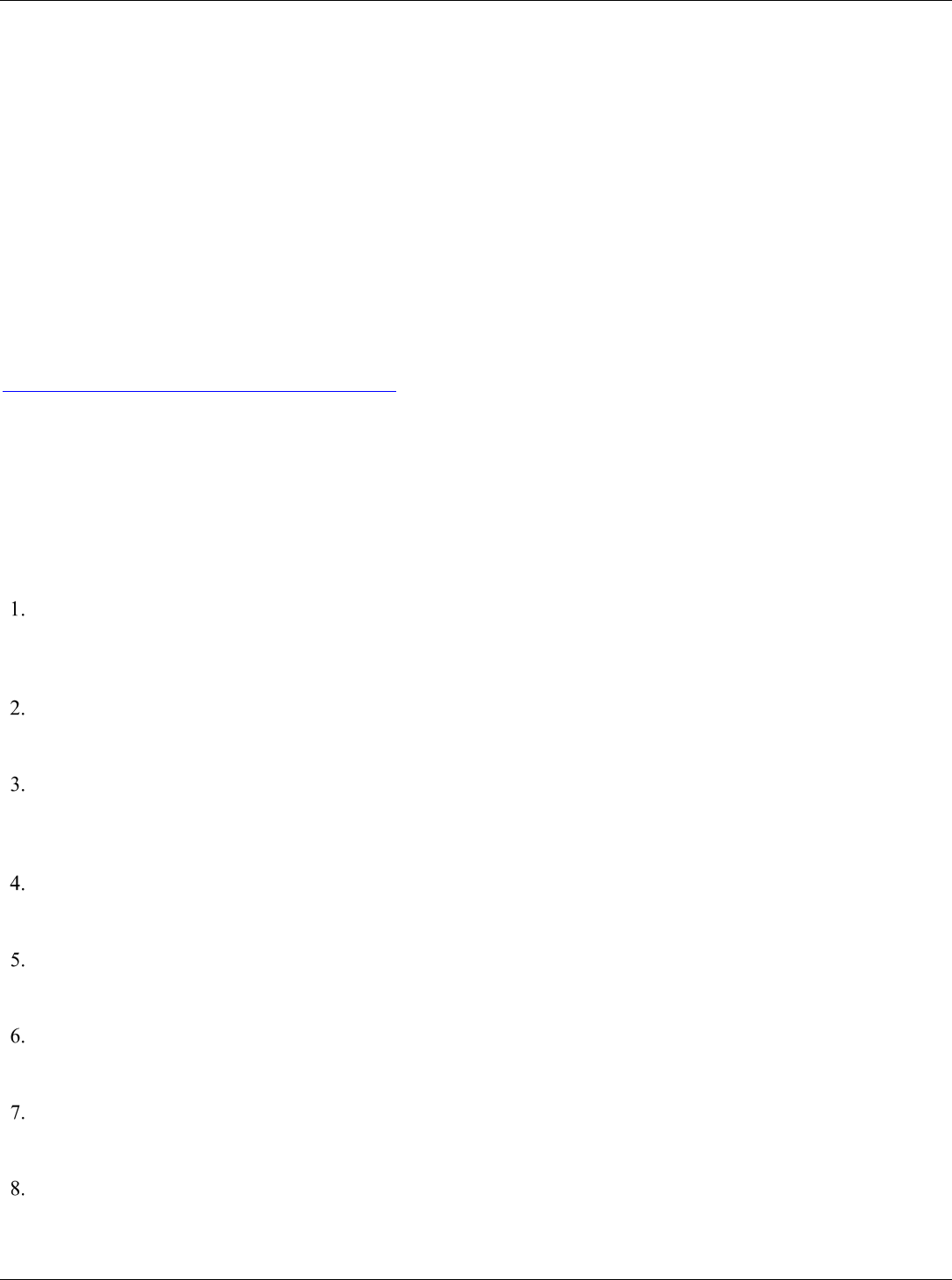
ONLINE GRADUATE PROGRAMS
2018-2019 ACADEMIC CATALOG 241
teacher licensure in the state of Hawaii. In Hawaii, an
alternative route to certification is not available.
Iowa: An education degree offered through Ashford
University’s online modality does not lead to teacher
licensure in the state of Iowa.
Kentucky Residents: Please be advised that although
Ashford University College of Education offers a variety of
programs aimed at preparing potential educators in diverse
settings, our K-12 educator preparation programs are NOT
accredited in Kentucky by the Education Professional
Standards Board and are NOT recognized for initial,
additional, or renewal of certification or salary
enhancement (rank change) for K-12 educators in
Kentucky. For more information, please visit the Education
Professional Standards Board’s website at
http://www.epsb.ky.gov/certification/outofstate.asp
.
Washington Residents: This program is not intended to lead
to teacher certification. Teachers are advised to contact
their individual school districts as to whether this program
may qualify for salary advancement.
Program Outcomes
Master of Arts in Special Education graduates will be able
to:
Design appropriate learning experiences for students
with exceptionalities that are informed by diverse
cultural experiences and varied patterns of learning
and development;
Create a safe, inclusive, culturally responsive
environment that cultivates active and effective
learning for students with exceptionalities;
Plan cross-disciplinary learning experiences that
promote individualized academic and social abilities,
attitudes, values, interests, and career options for
students with exceptionalities;
Synthesize results from multiple evidence-based
assessments to guide educational decisions for
individuals with exceptionalities;
Incorporate cross-disciplinary skills using evidenced-
based instructional strategies for students with
exceptionalities;
Evaluate how ethical principles and practice standards
influence special education laws, regulations and
individual professional accountability;
Construct an action research proposal that addresses
local or global issues related to individuals with
exceptionalities; and
Integrate positive collaborative practices with various
stakeholders to address the needs of students with
exceptionalities across a range of learning experiences.
Core Requirements (30 credits)
•
ESE 601 Students with Exceptionalities in the School
Setting (3 credits)
•
ESE 603 Law & Ethics in Special Education (3 credits)
Prerequisite: ESE 601
•
ESE 610 Assessment & Evaluation of Students with
Mild to Moderate Disabilities (3 credits)
•
ESE 634 Education-Based Collaborative Relationships
(3 credits) Prerequisite: ESE 601
•
ESE 645 Lesson Design for Students with Mild to
Moderate Disabilities (3 credits) Prerequisite: ESE
601
•
ESE 656 Positive Behavior Supports in the Classroom
(3 credits) Prerequisite: ESE 601
•
EDU 620 Meeting Individual Students Needs with
Technology (3 credits) Prerequisites: EDU 673 or ESE
601
•
ESE 668 Evidenced-Based Instructional Methods for
Students with Mild to Moderate Disabilities (3 credits)
Prerequisite: ESE 601
•
EDU 694 Capstone I: Education Research (3 credits)
Prerequisite: EDU 620
•
EDU 696 Capstone II: Culminating Project (3 credits)
Prerequisite: EDU 694
Graduation Requirements
To be eligible for the Master of Arts in Special Education
degree, a student must successfully complete the following:
•
The approved program consisting of 30 credits; and
•
A minimum cumulative grade point average of 3.00 in
all coursework attempted at the University.
The degree will be noted on the transcript as a Master of
Arts in Special Education.
Note: The date of degree conferral recorded on the
student’s transcript and diploma will reflect the date the
student completes all academic degree requirements.
However, release of transcripts, diplomas, and verifications
for degrees awarded are contingent upon submission of the
Petition to Graduate form, payment of the graduation fee,
and payment of any outstanding balances with the
University.
Master of Arts in Teaching and Learning
with Technology
Degree Focus
The Master of Arts in Teaching and Learning with
Technology focuses on developing expertise in designing,
implementing, and facilitating Instructional Technology in a

ONLINE GRADUATE PROGRAMS
242 ASHFORD UNIVERSITY
variety of learning environments. Learners connect theory
and practice in the design of learning solutions for a digital
age. Competencies build knowledge and skills to integrate
current and emerging instructional technologies into
educational and professional settings. Professional
opportunities include instructional technology leaders,
consultants and coaches, online educators, school or college
technology experts, and educational entrepreneurs.
Certification and Licensure Terms and Conditions:
An
online degree from Ashford University does not lead to
immediate teacher licensure in any state.
If you want to
become a classroom teacher, contact your state's education
authorities prior to enrolling at Ashford to determine what
state-specific requirements you must complete before
obtaining your teacher's license. Ashford graduates will be
subject to additional requirements on a state-by-state basis
that will include one or more of the following: student
teaching or practicum experience, additional coursework,
additional testing, or, if the state requires a specific type of
degree to seek alternative certification, earning an
additional degree. None of Ashford's online education
programs are CAEP, TEAC or NCATE accredited, which is
a requirement for certification in some states. Other factors,
such as a student’s criminal history, may prevent an
applicant from obtaining licensure or employment in this
field of study. All prospective students are advised to visit
the Education Resource Organizations Directory (EROD)
and to contact the licensing body of the state where they are
licensed or intend to obtain licensure to verify that these
courses qualify for teacher certification, endorsement,
and/or salary benefits in that state prior to enrolling.
Prospective students are also advised to regularly review
the state’s policies and procedures relating to licensure as
those policies are subject to change.
*The Council for the Accreditation of Educator Preparation
(CAEP) is the resulting entity from the merger of the
Teacher Education Accreditation Council (TEAC) and
National Council for Accreditation of Teacher Education
(NCATE).
Alabama Residents: State authorization to provide a
program related to the preparation of teachers or other P-
12 school/system personnel does not indicate eligibility for
an Alabama professional educator or professional
leadership certificate. Applicants who complete an educator
preparation program at a non-Alabama institution must
apply for an Alabama professional educator or professional
leadership certificate through the Alabama Certificate
Reciprocity Approach. Current requirements may be found
at www.alsde.edu.
California Students: An education degree offered through
Ashford University's online modality does not lead to
teacher licensure in the state of California. In order to
obtain teacher licensure, a baccalaureate or higher degree,
except in professional education, from a regionally-
accredited college or university is required. Residents that
meet the education requirement must also complete a CA
state approved teacher preparation program which includes
coursework, a supervised student teaching experience and a
formal recommendation by the institution where the
preparation program was completed. They also must pass
the state exams which includes California Basic
Educational Skills TestTM (CBEST®) and California
Subject Examinations for Teachers® (CSET®). A criminal
history background check by fingerprint via a Live Scan
service must be passed that may include an investigation
into felony and misdemeanor convictions. For additional
details regarding the CA requirements for obtaining a
single subject teaching credential, please visit:
http://www.ctc.ca.gov/credentials/leaflets/cl560c.pdf. For
additional details regarding the CA requirements for
obtaining a multiple subject teaching credential, please
visit: http://www.ctc.ca.gov/credentials/leaflets/cl561c.pdf.
Hawaii Students: An education degree offered through
Ashford University's online modality does not lead to
teacher licensure in the state of Hawaii. In Hawaii, an
alternative route to certification is not available.
Iowa: An education degree offered through Ashford
University’s online modality does not lead to teacher
licensure in the state of Iowa.
Kentucky Residents: Please be advised that although
Ashford University College of Education offers a variety of
programs aimed at preparing potential educators in diverse
settings, our K-12 educator preparation programs are NOT
accredited in Kentucky by the Education Professional
Standards Board and are NOT recognized for initial,
additional, or renewal of certification or salary
enhancement (rank change) for K-12 educators in
Kentucky. For more information, please visit the Education
Professional Standards Board’s website at
http://www.epsb.ky.gov/certification/outofstate.asp
.
Washington Residents: This program is not intended to lead
to teacher certification. Teachers are advised to contact
their individual school districts as to whether this program
may qualify for salary advancement.
Program Outcomes
Master of Arts in Teaching and Learning with Technology
graduates will be able to:
Generate a shared and learner-focused instructional
vision;
Synthesize data to draw conclusions that inform the
design of effective learning solutions;

ONLINE GRADUATE PROGRAMS
2018-2019 ACADEMIC CATALOG 243
Design effective learning solutions by blending theory
and accepted practice;
Create strategies for safe, legal, and ethical use of
digital information and technology;
Propose solutions for equitable access to digital tools
and technology;
Construct solutions specific to target audiences and
learning environments;
Facilitate effective and engaging learning events; and
Prescribe a variety of technologies for teaching and
learning in a digital world.
Note: Program outcomes for the Master of Arts in Teaching
and Learning with Technology have been adopted from the
NETS*T standards (National Educational Technology
Standards for Teachers) that serve as nationally recognized
professional standards.
Core Requirements (15 credits)
•
EDU 648 Teaching & Learning with Technology (3
credits)
•
EDU 652 Instructional Design & Delivery (3 credits)
•
EDU 671 Fundamentals of Educational Research (3
credits) Prerequisite: EDU 620 or EDU 652
•
EDU 658 Instructional Leadership (3 credits)
•
EDU 697 MATLT Capstone (3 credits)
Specialization Requirements (15 credits)
Standard Specialization
•
EDU 655 Trends & Issues in Instructional Design &
Technology for Online Learning (3 credits)
•
EDU 656 Technology Solutions for Just in Time
Training & Learning (3 credits)
•
EDU 679 Technology Solutions for Organizational
Improvement (3 credits)
•
EDU 651 Collaboration & Learning in a Virtual
Environment (3 credits)
•
EDU 649 Technologies for Teaching & Learning (3
credits)
Online Educator Specialization
•
EDU 600 Introduction to Online Learning (3 credits)
•
EDU 602 Assessing Knowledge and Skills in the
Online Learning Environment (3
credits) Prerequisite: EDU 600
•
EDU 601 Promoting Student Success in the Online
Learning (3 credits) Prerequisite: EDU 602
•
EDU 609 Online Teaching Internship (3
credits) Prerequisite: EDU 601
•
EDU 651 Collaboration & Learning in a Virtual
Environment (3 credits)
Graduation Requirements
To be eligible for the Master of Arts in Teaching and
Learning with Technology degree, a student must
successfully complete the following:
•
The approved program consisting of 30 credits; and
•
A minimum cumulative grade point average of 3.00 in
all coursework attempted at the University.
The degree will be noted on the transcript as a Master of
Arts in Teaching and Learning with Technology.
Note: The date of degree conferral recorded on the
student’s transcript and diploma will reflect the date the
student completes all academic degree requirements.
However, release of transcripts, diplomas, and verifications
for degrees awarded are contingent upon submission of the
Petition to Graduate form, payment of the graduation fee,
and payment of any outstanding balances with the
University.
Master of Science in Instructional Design
and Technology
Degree Focus
The Master of Science in Instructional Design &
Technology (MSIDT) program will prepare students for
ethical practice in the areas of effective learning analysis,
design, development, implementation, and evaluation.
Serving varied audiences in diverse educational settings, the
MSIDT program will provide relevant connections between
theoretical concepts and real world application, take
students through the rigors of the instructional design
process as they design and develop learning/performance
solutions to an identified problem or need, allow students to
tailor course work to individual instructional design
interests, and incorporate the development and refinement
of a work-ready ePortfolio throughout the program.
Certification and Licensure Terms and Conditions: An
online degree from Ashford University does not lead to
immediate teacher licensure in any state. If the desire is to
become a classroom teacher, students must contact their
state's education authorities prior to enrolling at Ashford to
determine what state-specific requirements must be
completed before obtaining a teacher's license. Ashford
graduates will be subject to additional requirements on a
state-by-state basis that will include one or more of the
following: student teaching or practicum experience,
additional coursework, additional testing, or, if the state
requires a specific type of degree to seek alternative
certification, earning an additional degree. None of
Ashford's online education programs are CAEP, TEAC or

ONLINE GRADUATE PROGRAMS
244 ASHFORD UNIVERSITY
NCATE accredited, which is a requirement for certification
in some states. Other factors, such as a student’s criminal
history, may prevent an applicant from obtaining licensure
or employment in this field of study. All prospective students
are advised to visit the Education Resource Organizations
Directory (EROD) and to contact the licensing body of the
state where they are licensed or intend to obtain licensure
to verify that these courses qualify for teacher certification,
endorsement, and/or salary benefits in that state prior to
enrolling. Prospective students are also advised to
regularly review the state’s policies and procedures
relating to licensure as those policies are subject to change.
*The Council for the Accreditation of Educator Preparation
(CAEP) is the resulting entity from the merger of the
Teacher Education Accreditation Council (TEAC) and
National Council for Accreditation of Teacher Education
(NCATE).
Alabama Residents: State authorization to provide a
program related to the preparation of teachers or other P-
12 school/system personnel does not indicate eligibility for
an Alabama professional educator or professional
leadership certificate. Applicants who complete an educator
preparation program at a non-Alabama institution must
apply for an Alabama professional educator or professional
leadership certificate through the Alabama Certificate
Reciprocity Approach. Current requirements may be found
at www.alsde.edu.
Hawaii Students: An education degree offered through
Ashford University's online modality does not lead to
teacher licensure in the state of Hawaii. In Hawaii, an
alternative route to certification is not available.
Iowa Residents: An education degree offered through
Ashford University’s online modality does not lead to
teacher licensure in the state of Iowa.
Kentucky Residents: Please be advised that although
Ashford University College of Education offers a variety of
programs aimed at preparing potential educators in diverse
settings, our K-12 educator preparation programs are NOT
accredited in Kentucky by the Education Professional
Standards Board and are NOT recognized for initial,
additional, or renewal of certification or salary
enhancement (rank change) for K-12 educators in
Kentucky. For more information, please visit the Education
Professional Standards Board’s website at
http://www.epsb.ky.gov/certification/outofstate.asp.
Washington Residents: This program is not intended to lead
to teacher certification. Teachers are advised to contact
their individual school districts as to whether this program
may qualify for salary advancement.
Program Outcomes
Master of Science in Instructional Design and Technology
graduates will be able to:
Apply fundamental research and communication skills
into the instructional design process using instructional
designer professional foundations;
Conduct comprehensive needs and instructional
analyses as part of a learning project including an
examination of target populations, environmental and
learning characteristics, instructional materials, and
multi-media and adaptive technologies;
Create learning and performance solutions using
learning theory, instructional design techniques and
strategies to meet the needs of diverse learners and
purposes;
Implement and Evaluate learning and performance
solutions based on instructional design proposals and
learning projects; and
Model instructional designer management skills
throughout the instructional design process.
Core Requirements (36 credits)
•
IDT 601 Instructional Analysis I (3 credits)
•
IDT 602 Instructional Analysis II (3 credits)
Prerequisite: IDT 601
•
IDT 603 Instructional Design and Technology I
(3 credits) Prerequisite: IDT 602
•
IDT 604 Instructional Design and Technology II
(3 credits) Prerequisite: IDT 603
•
IDT 605 ID Project Management (3 credits)
Prerequisite: IDT 604
•
IDT 606 ID Technology Research (3 credits)
Prerequisite: IDT 605
•
IDT 607 Evaluation of Instructional Systems
(3 credits) Prerequisite: IDT 606
•
IDT 608 Database Systems and Management
(3 credits) Prerequisite: IDT 607
•
IDT 609 Advanced Instructional Design and
Technology (3 credits) Prerequisite: IDT 608
•
IDT 610 Advanced Instructional Design and
Technology II (3 credits) Prerequisite: IDT 609
•
IDT 611 Final Project Phase I (3 credits) Prerequisite:
IDT 610
•
IDT 612 ID Final Project Phase II (3 credits)
Prerequisite: IDT 611
Graduation Requirements

ONLINE GRADUATE PROGRAMS
2018-2019 ACADEMIC CATALOG 245
To be eligible for the Master of Science in Instructional
Design and Technology degree, a student must successfully
complete the following
:
•
The approved program consisting of 36 credits; and
•
A minimum cumulative grade point average of 3.00 in
all coursework attempted at the University.
The degree will be noted on the transcript as a Master of
Science in Instructional Design and Technology.
Note: The date of degree conferral recorded on the
student’s transcript and diploma will reflect the date the
student completes all academic degree requirements.
However, release of transcripts, diplomas, and verifications
for degrees awarded are contingent upon submission of the
Petition to Graduate form, payment of the graduation fee,
and payment of any outstanding balances with the
University.
College of Health, Human
Services, and
Science: Graduate Programs
and Requirements
Master of Arts in Health Care
Administration
Degree Focus
The Master of Arts in Health Care Administration prepares
graduates to assume leadership and management positions
in health care organizations. The program incorporates
integration and application of health care theories and
concepts across the domains of organizational health care.
Topics addressed throughout the program are: management,
finance, accounting, economics, administrative leadership,
quality improvement, risk management, health policy, law,
ethics, strategic planning, information systems, statistical
reasoning, and human resources.
Special Terms and Conditions: Successful completion of
this program by itself does not lead to licensure or
certification in any state, regardless of concentration or
specialization. Further, Ashford University does not
guarantee that any professional organization will accept a
graduate’s application to sit for any exam for the purpose
of professional certification. Students seeking licensure or
certification in a particular profession are strongly
encouraged to carefully research the requirements prior to
enrollment. Requirements may vary by state. Further, a
criminal record may prevent an applicant from obtaining
licensure, certification, or employment in this field of study.
Program Outcomes
Master of Arts in Health Care Administration graduates will
be able to:
Apply health care financial and accounting concepts in
organizational decision making;
Apply principles of leadership in the developing of
strategic goals, achieving organizational outcomes, and
modeling professional values;
Formulate health care decisions consistent with legal
and ethical standards;
Utilize health care information technology and
statistical reasoning in organizational planning and
decision-making;
Demonstrate sensitivity to diversity in the health care
setting;
Evaluate health care outcomes using quality
improvement and risk standards;
Apply health care economic perspectives in the
interpretation of health policy;
Apply problem-solving approaches in the resolution of
health care issues; and
Communicate the responsibility of a health care
professional remaining current in their professional
knowledge.
Course Requirements (36 credits)
•
MHA 601 Principles of Health Care Administration (3
credits)
•
MHA 622 Health Care Ethics & Law (3 credits)
•
MHA 620 Health Policy Analyses (3 credits)
•
MHA 630 Global & Population Health Comparative
Systems (3 credits)
•
MHA 616 Health Care Management Information
Systems (3 credits)
•
MHA 605 Business Intelligence (3 credits)
•
MHA 612 Financial & Managerial Accounting (3
credits)
•
MHA 618 Health Economics (3 credits)
•
MHA 624 Continuous Quality Improvements & Risk
Management (3 credits)
•
MHA 628 Managed Care & Contractual Services (3
credits)
•
MHA 626 Strategic Planning & Marketing in Health
Care (3 credits)
•
MHA 690 Health Care Capstone (3 credits)
Graduation Requirements

ONLINE GRADUATE PROGRAMS
246 ASHFORD UNIVERSITY
To be eligible for the Master of Arts in Health Care
Administration degree, a student must successfully
complete the following:
•
The approved program consisting of 36 credits; and
•
A minimum cumulative grade point average of 3.00 in
all coursework attempted at the University.
The degree will be noted on the transcript as a Master of
Arts in Health Care Administration.
Note: The date of degree conferral recorded on the
student’s transcript and diploma will reflect the date the
student completes all academic degree requirements.
However, release of transcripts, diplomas, and verifications
for degrees awarded are contingent upon submission of the
Petition to Graduate form, payment of the graduation fee,
and payment of any outstanding balances with the
University.
Master of Arts in Psychology
Degree Focus
The Master of Arts in Psychology program guides students
though an in-depth exploration of the discipline. At the core
of the program is the “generalist model,” a conceptual
framework emphasizing an understanding of the processes
that underlie human experience and behavior, as well as
core knowledge, theories, and research in the field of
psychology.
Special Terms and Conditions: The Master of Arts in
Psychology is not a licensure program and does not
prepare an individual to become a licensed psychology
professional. Ashford University does not guarantee that
any professional organization will accept a graduate’s
application to sit for any exam for the purpose of
professional certification or licensure. Students seeking
licensure or certification in the field of psychology should
carefully research the requirements prior to enrollment.
Requirements vary by state. Further, a criminal record may
prevent an applicant from obtaining licensure, certification,
or employment in this field of study.
California Students: This program does not lead to
licensure. According to the California Board of Psychology,
candidates for licensure must have a doctorate degree in
clinical or counseling psychology. The Board of Behavioral
Sciences which governs licensure for LMFT, LPC, LPCC,
and LCSW, requires candidates to meet didactic
requirements and rigorous practicum/supervised
professional hours that range between 500 to 2000 hours
depending on the type of license. Coursework in the MAPSY
may partially meet didactic requirements for CA licensure
but that evaluation is done by the respective boards, and the
purpose of the program is not designed to prepare students
for licensure of any type. A criminal history background
check by fingerprint via a Live Scan service must be passed
that may include an investigation into felony and
misdemeanor convictions. For additional details regarding
the CA requirements for obtaining licensure, please visit:
http://www.psychology.ca.gov/licensees/
.
Washington Students: This program may not necessarily
qualify a student for licensure in Washington State. All
Washington students should contact the Health Professions
Quality Assurance Division of the Washington Department
of Health at (360) 236-4700 to inquire about the criteria for
licensure.
Program Outcomes
Master of Arts in Psychology graduates will be able to:
Apply ethical principles and standards of psychology
to academic and professional activities;
Explain psychological concepts using the professional
standards of the discipline;
Analyze major concepts, theories, methodologies, and
historical trends in psychology;
Evaluate the scientific merit of the professional
literature in psychology; and
Integrate psychological theory and research.
Core Requirements (36 credits)
•
PSY 600 Introduction to Graduate Study in Psychology
(3 credits)
•
PSY 605 Developmental Psychology (3 credits)
•
PSY 610 Applied Social Psychology (3 credits)
•
PSY 615 Personality Theories (3 credits)
•
PSY 620 Learning & Cognition (3 credits)
•
PSY 625 Biological Bases of Behavior (3 credits)
Prerequisites: PSY 600, PSY 605, PSY 610, PSY 615
and PSY 620
•
PSY 630 Psychopharmacology (3 credits)
Prerequisite: PSY 625
•
PSY 635 Research Design & Methods (3 credits)
•
PSY 640 Psychological Testing & Assessment (3
credits) Prerequisite: PSY 635
•
PSY 645 Psychopathology (3 credits)
•
PSY 650 Introduction to Clinical & Counseling
Psychology (3 credits) Prerequisite: PSY 645
•
PSY 699 Master of Arts in Psychology Capstone (3
credits)
Graduation Requirements

ONLINE GRADUATE PROGRAMS
2018-2019 ACADEMIC CATALOG 247
To be eligible for the Master of Arts in Psychology degree,
a student must successfully complete the following:
•
The approved program consisting of 36 credits; and
•
A minimum cumulative grade point average of 3.00 in
all coursework attempted at the University.
The degree will be noted on the transcript as a Master of
Arts in Psychology.
Note: The date of degree conferral recorded on the
student’s transcript and diploma will reflect the date the
student completes all academic degree requirements.
However, release of transcripts, diplomas, and verifications
for degrees awarded are contingent upon submission of the
Petition to Graduate form, payment of the graduation fee,
and payment of any outstanding balances with the
University.
Master of Public Health
Degree Focus
The Master of Public Health program in the College of
Health, Human Services, and Science examines the socio-
environmental issues responsible for health-related
behaviors that lead to morbidity, mortality and health
disparities. Master of Public Health students will be able to
gain knowledge and an understanding of the biological and
social determinants of health while exploring key public
health issues through epidemiology, biostatistics and
research. Upon graduation, students will be able to create,
plan, administer, and evaluate public health programs in
diverse settings, including research institutions, health care
facilities, community organizations, schools, and
governmental agencies both large and small. Students can
follow either a generalist track or pursue a specialization in
Health Services Administration. The program integrates
seven interdisciplinary themes throughout all coursework:
Integration of Science and Practice, Quantitative
Foundations, Health Policy, Structural Determinants of
Health Systems Thinking, Leadership, Diversity and
Culture.
Special Terms and Conditions: Successful completion of
this program by itself does not lead to licensure or
certification in any state, regardless of track. Further,
Ashford University does not guarantee that any professional
organization will accept a graduate's application to sit for
any exam for the purpose of professional certification.
Students seeking licensure or certification in a particular
profession are strongly encouraged to carefully research
the requirements prior to enrollment. Requirements may
vary by state. Further, a student’s criminal history may
prevent them from obtaining licensure, certification, or
employment in this field.
The Master of Public Health program is not accredited by
the Council on Education for Public Health
(CEPH). CEPH is an independent accrediting organization
whose mission is to serve the public interest by establishing
and enforcing quality Accreditation Standards for Public
Health programs. Academic leadership intends to pursue
CEPH programmatic accreditation once eligible to apply.
Program Outcomes
Master of Public Health graduates will be able to:
Design and conduct assessments that integrate the
concepts, methods, and tools of public health data
collection, analysis, interpretation, and evidence-based
reasoning to determine the health status and/or health
needs of a population;
Demonstrate effective communication skills and the
ability to interact with both diverse individuals and
communities utilizing public health education,
community empowerment, and information
dissemination;
Integrate public health theories, models, and concepts
across a broad range of disciplines (social, scientific,
behavioral, etc.) into public health research and
practice to produce or impact an intended public health
outcome;
Apply quantitative and qualitative research findings
found in medical, public health, and social science
journals to the identification and pursuit of
opportunities for promoting health and preventing
disease across the lifespan and for enhancing public
health preparedness;
Evaluate how the biological, environmental,
socioeconomic, behavioral, and cultural determinants
of health influence the global and societal burden of
disease and contribute to health disparities;
Apply systems thinking concepts to effectively
implement and manage public health interventions as
members of interdisciplinary teams; and
Evaluate how the legal, ethical, economic, and
regulatory dimensions of health care and public health
system influence public health policies.
Practicum Requirements
Students are required to complete a practicum consisting of
ninety (90) contact hours, which may be paid or unpaid. As
practical knowledge and skills are essential to a successful
career in public health, a planned, supervised, and evaluated
practicum is an essential component of a public health
professional degree program. The goal of the practicum is to
provide an opportunity for students to synthesize, integrate,
and apply practical skills, knowledge, and training learned
through courses, to gain professional experience in a public

ONLINE GRADUATE PROGRAMS
248 ASHFORD UNIVERSITY
health work environment, and to work on public health
practice projects that are of particular interest to the student.
Prior to beginning a supervised practicum and/or
employment in most health care facilities students may need
to provide or successfully complete:
•
Background checks
•
Blood-borne pathogen training
•
Liability coverage
•
HIPPA training
•
Proof of current immunizations (required of the state)
including a two-step TB test (within a year of clinical
practicum), MMR or titers, Tdap (10 yr. booster),
Varicella, Hepatitis B immunizations or titers, Influenza
or record of decline, and/or health clearance from a
physician.
Practicum Locations
Potential locations for practicum include:
•
Health care offices
•
Public health offices
•
Community health centers
•
Non-profit organizations
•
State health offices, or
•
Other health-related organizations
Students can only complete their Professional Practice
Experiences in states where this program is available.
All
Students enrolling in a degree program with a practicum
requirement are expected to complete the practicum in the
United States. If students anticipate that they will not be
able to complete their practicum in the United States all
exceptions must be approved prior to admission to the
program
Students who reside and/or work outside the United States
may be ineligible to complete practicum hours at a facility
abroad; requirements and restrictions vary by country.
Students must notify the Program Chair prior to enrolling in
the program to discuss a potential practicum location and
obtain Program Chair permission to enroll.
Practicum Equivalent Experience
Although there are no exemptions or waivers of the
practicum, in rare situations it is possible to receive
Practicum Equivalent Experience, reducing the total
number of practicum hours needed to be completed through
Ashford University by up to 30 contact hours. This request
can only be approved if a student provides evidence of
substantial prior public health experience relevant to
program-specific competencies. In general, this
substantiation would include one or more years of relevant,
full-time public health work prior to matriculation in the
program. Students who wish to apply for Practicum
Equivalent Experience must submit a Student Petition to
Waive Practicum Hours Form during their first course. This
timeframe allows students to plan a practicum should prior
experience not be sufficient.
Core Requirements (27 credits)
•
MPH 601 Introduction to Public Health Concepts (3
credits)
•
MPH 602 Social and Biological Determinants of Public
Health (3 credits) Prerequisite: MPH 601
•
HIA 625 Principles of Biostatistics (3 credits)
•
MPH 603 Applied Behavioral Science (3 credits)
Prerequisite: MPH 602, HIA 625
•
MPH 604 Principles of Epidemiology (3 credits)
Prerequisite: MPH 603
•
MPH 606 Health Services Administration (3 credits)
Prerequisite: MPH 604
•
MPH 605 Environmental Health Sciences (3 credits)
Prerequisite: MPH 606
•
^MPH 650 Public Health Practicum I (1 credit)
Prerequisite: Practicum Site approval.
•
^MPH 651 Public Health Practicum II (1 credit)
Prerequisite: MPH 650
•
^MPH 652 Public Health Practicum III (1 credit)
Prerequisite: MPH 651
•
^MPH 699 Public Health Capstone/Culminating
Experience (3 credits) Prerequisite: MPH 605.
When practicum is incomplete and all courses in the Master
of Public Health degree are complete, students must register
in ^MPH 653 Public Health Practicum Extension (1 credit)
consecutively until the Practicum is complete.
^ This course must be taken at Ashford University and may
not be transferred from another institution.
Tracks (15 credits)
Generalist Track
•
MPH 607 Global Health (3 credits)
Prerequisite: HIA 625
•
MPH 608 Health Communication Practice and Theory
(3 credits) Prerequisite: MPH 605
•
MPH 609 Public Health Education Methods (3 credits)
Prerequisite: MPH 605
•
MPH 610 Public Health Program Planning and
Implementation (3 credits) Prerequisite: MPH 609
•
MPH 611 Public Health Program Assessment and
Evaluation (3 credits) Prerequisite: MPH 610

ONLINE GRADUATE PROGRAMS
2018-2019 ACADEMIC CATALOG 249
Health Care Administration Track
•
MPH 621 Public Health Systems (3 credits)
Prerequisite: HIA 625
•
MHA 618 Health Economics (3 credits)
•
MHA 620 Health Policy Analyses (3 credits)
•
MHA 622 Health Care Ethics & Law (3 credits)
•
MPH 623 Human Resources Management (3 credits)
Prerequisite: MHA 622
Graduation Requirements
To be eligible for the Master of Public Health degree, a
student must successfully complete the following:
•
The approved program consisting of 42 credits;
•
Practicum requirements; and
•
A minimum cumulative grade point average of 3.00 in
all coursework attempted at the University.
The degree will be noted on the transcript as a Master of
Public Health.
Note: The date of degree conferral recorded on the
student’s transcript and diploma will reflect the date the
student completes all academic degree requirements.
However, release of transcripts, diplomas, and verifications
for degrees awarded are contingent upon submission of the
Petition to Graduate form, payment of the graduation fee,
and payment of any outstanding balances with the
University
College of Liberal Arts:
Graduate Programs and
Requirements
Master of Science in Criminal Justice
Degree Focus
The Ashford University Master of Science in Criminal
Justice program prepares students for professional careers in
the field of criminal justice. The rapid advance of
technology and the specter of terrorism have created an
expanding need for criminal justice professionals with
advanced skills to grapple with the criminal justice issues of
the 21st century.
The Master of Science in Criminal Justice program
develops students’ knowledge and skills in the areas of
criminal law, criminal justice, forensics and crime scene
investigations, cybercrime and technology, management,
constitutional processes, ethics, victimology, comparisons
of criminal justice systems, and other current and related
topics. The Master of Science in Criminal Justice program
also provides students with an understanding of social
problems and social responsibility perspectives.
Special Terms and Conditions: Successful completion of
this program by itself may not qualify a student for
employment with a federal, state or local law enforcement
agency. State and local police agencies require training and
certification specified by the individual state’s Police
Officer Standards and Training (P.O.S.T.) Board and are
often provided post-hire at a police academy. Other federal,
state and local agencies as well as private entities have
individualized requirements. Prospective students are
advised to contact individual agencies and states’ P.O.S.T.
boards for additional information relating to these
requirements. Students seeking licensure or certification in
a particular profession are strongly encouraged to carefully
research the requirements prior to enrollment.
Requirements may vary by state. Further, a criminal record
may prevent an applicant from obtaining licensure,
certification, or employment in this field of study.
Please note: The Master of Science in Criminal Justice,
Forensic Science specialization is not intended to prepare
students for direct employment as forensic investigators or
analysts. The Forensic Science specialization is not a
pathway to employment as a forensic scientist. In addition,
the Forensic Science specialization is not intended to
prepare students for professional examinations required as
a function of employment in the capacity of forensic
investigator or analyst.
Program Outcomes
Master of Science in Criminal Justice graduates will be able
to:
Analyze the major systems of criminal justice and how
the functions of police, prosecution, courts, and
corrections are interrelated;
Evaluate the issues and management of personnel
administration in criminal justice;
Analyze the judicial processes of the U.S.
Constitution;
Explain ethical issues within the criminal justice
system;
Evaluate research regarding criminal justice and public
policy and its effect on society, victims, and
rehabilitation;
Apply forensic methods and crime scene investigation
to real-world situations; and
Assess research and methods used to investigate a key
empirical or theoretical issue relating to criminal
justice.
Program-Specific Requirements

ONLINE GRADUATE PROGRAMS
250 ASHFORD UNIVERSITY
Master of Science in Criminal Justice students who submit
official transcripts indicating that they have earned an
undergraduate degree in criminal justice or have
successfully completed undergraduate coursework in
criminal justice, criminal law and constitutional law with a
grade of C or higher will be exempt from the requirement to
take CRJ 501 Criminal Justice, Criminal Law & the
Constitution. Students are responsible for notifying the
University if they believe they have met these requirements
through previous college coursework during the application
process and are responsible for submitting official
transcripts for verification.
Core Requirements (30 credits)
•
*CRJ 501 Criminal Justice, Criminal Law & the
Constitution (3 credits)
•
CRJ 510 Criminal Justice Policy & Theory (3 credits)
•
CRJ 512 Criminological Theory (3 credits)
•
CRJ 514 Constitutional & Judicial Processes (3 credits)
•
CRJ 520 Research Methods in Criminal Justice (3
credits)
•
CRJ 522 Psychological Factors in Criminal Justice (3
credits)
•
CRJ 524 Ethics in Criminal Justice (3 credits)
•
CRJ 613 Comparative Criminal Justice Systems (3
credits)
•
CRJ 615 Victimology (3 credits)
•
CRJ 697 Capstone: Evaluation & Program Analysis in
Criminal Justice (3 credits)
*Students who waive CRJ 501 are required to take 36 total
program credits in order to meet graduation requirements.
Specialization Requirements (9 credits)
Cybercrime & Technology Specialization
•
CRJ 621 Cybercrime Investigation (3 credits)
•
CRJ 626 Computer Forensics (3 credits)
•
CRJ 631 Security & Protection for Cybercrime (3
credits)
Forensic Science Specialization
•
CRJ 622 Introduction to Forensic Science (3 credits)
•
CRJ 627 Advanced Forensic Science (3 credits)
•
CRJ 632 Crime Scene Investigation & Management (3
credits)
Homeland Security Specialization
•
CRJ 623 Homeland Security (3 credits)
•
CRJ 628 Terrorism: Threats & Strategy (3 credits)
•
CRJ 633 Risk Assessment (3 credits)
Law Enforcement & Corrections Administration
Specialization
•
CRJ 620 Organizational Behavior in Law Enforcement
& Corrections (3 credits)
•
CRJ 625 Employment & Policy Law for Law
Enforcement & Corrections Administrators (3 credits)
•
CRJ 630 Budgeting for Finance Law Enforcement &
Corrections Administrators (3 credits)
Graduation Requirements
To be eligible for the Master of Science in Criminal Justice
degree, a student must successfully complete the following:
•
The approved program consisting of 39 credits; and
•
A minimum cumulative grade point average of 3.00 in
all coursework attempted at the University.
The degree will be noted on the transcript as a Master of
Science in Criminal Justice.
Note: The date of degree conferral recorded on the
student’s transcript and diploma will reflect the date the
student completes all academic degree requirements.
However, release of transcripts, diplomas, and verifications
for degrees awarded are contingent upon submission of the
Petition to Graduate form, payment of the graduation fee,
and payment of any outstanding balances with the
University.

HYBRID GRADUATE PROGRAMS
2018-2019 ACADEMIC CATALOG 251
SECTION NINE: HYBRID
GRADUATE PROGRAMS
Overview
The Master of Business Administration program is offered
in a hybrid format (online and in-residence requirements)
through the Forbes School of Business & Technology™ at
the Clinton Campus of Ashford University.
Admission Policies and
Procedures
Conditional Admission Requirements
(Hybrid Graduate Programs)
Applicants seeking admission to a hybrid graduate
program must meet the following admission requirements
prior to the start of the first course at Ashford University:
Have a Bachelor’s degree or graduate level degree
from a regionally accredited or approved nationally
accredited college or university with a grade point
average (GPA) of 2.0 or above. Applicants with a
grade point average of 2.0 to 2.74 will be placed on
Academic Watch;
Have access to a computer with an Internet
connection for the Web-based programs and meet the
minimum technology requirements and minimum
computer skills, abilities, features, system
configurations, hardware, and software outlined in the
General Academic Information & Policies section of
this Catalog;
Have the ability to attend in-residence and
synchronous instructional requirements for each core
course in the program, as follows:
•
Attend a 1-2 hour synchronous webinar, Skype, or
teleconference that will be scheduled during Week 1
of each core course.
•
Attend a 7-8 hour in-residence class at the Clinton,
Iowa campus on a scheduled Saturday of Week 3, 4, or
5 of each core course.
Have the ability to study in English indicated by one
of the following:
•
Earned a Bachelor’s degree in which the primary
language of instruction was English; or
•
Test of English as a Foreign Language (TOEFL) or
International English Language Testing System
(IELTS) examination taken within the past two (2)
years. For the TOEFL, a minimum score of 550 paper-
based or 79 internet-based is required. For the IELTS,
a minimum score of 6.5 is required. Copies of official
scores must be submitted prior to provisional
enrollment, and official scores must be submitted prior
to full admission.
Bachelor’s degrees from nationally accredited institutions
granted accreditation by the following accrediting agencies
may be considered for admission:
•
Association of Advanced Rabbinical and Talmudic
Schools, Accreditation Commission (AARTS);
•
Association of Biblical Higher Education (ABHE,
formerly known as AABC);
•
Accrediting Council for Continuing Education and
Training (ACCET);
•
Accrediting Commission of Career Schools and
Colleges (ACCSC, formerly known as ACCSCT,
NATTS, or CCAACICS)
•
Accrediting Council for Independent Colleges and
Schools (ACICS, formerly known as AICS or
CCAACICS)*;
•
Association of Institutions of Jewish Studies (AIJS);
•
Association of Theological Schools in the United
States and Canada, Commission on Accrediting
(ATS);
•
Council on Occupational Education (COE, formerly
known as SACS-COEI);
•
Distance Education and Training Council, Accrediting
Commission (DETC, formerly known as NHSC);
•
National Accrediting Commission of Career Arts and
Sciences (NACCAS);
•
Transnational Association of Christian Colleges and
Schools, Accreditation Commission (TRACS); and
•
Accrediting Bureau of Health Education Schools
(ABHES).
*Credits earned from Colleges and Schools with this
accreditation will be reviewed on a case by case basis to
determine if the accrediting body was approved and in
good standing when credits were earned.
Students with Bachelor’s degrees accredited by the
aforementioned institutions may be required to submit
unofficial documentation to the Registrar’s Office at the
time of provisional admissions.
Ashford University reserves the right to deny admission or
re-admission to any applicant. Ashford University
recognizes the importance of protecting student privacy
and reserves the right to request documentation to establish
or verify any student’s identity at any time, for
administrative or compliance purposes. Students are

HYBRID GRADUATE PROGRAMS
252 ASHFORD UNIVERSITY
expected to provide such documentation, and failure to do
so may be considered a violation of the Student
Community Standards. The University may deny or
rescind admission to any student for failure to authenticate
his or her identity.
Applicants are conditionally admitted to a Master’s degree
program when they submit a completed application
indicating that they meet admission requirements outlined
for that program and are approved by the Registrar’s
Office. Applicants in a conditional admission status are not
eligible for Title IV funds and are not considered regular
students until granted provisional or full admission.
Appeal Procedure for a Third (3
rd
)
Consecutive Conditional
Admission Period or Ashford Promise Provisional
admission status must be attained by the end of the second
(2
nd
) attempt of the Ashford Promise, while a student is in
conditional standing. Students who fail to attain
provisional admission by the end of their second (2
nd
)
attempt of the Ashford Promise must wait six months from
the date they were denied admission to re-apply, or they
may appeal the University’s decision using the process
outlined subsequently to request a third (3
rd
) consecutive
attempt of conditional admission in the Ashford Promise.
Disagreements over academic quality will not be
considered as an appropriate basis for such appeals. In
cases of appropriate cause, the Ashford University
Admission Appeals Committee reviews the appeals and
renders a decision to the student. The decision will be
communicated to the student via email from the Registrar's
Office. Appeals must include an explanation of the event
that occurred, which caused the student to not attain
provisional admission to the University after two attempts.
Students must appeal in writing to the University
Registrar. The appeal must be submitted to
academic.progress@ashford.edu and approved prior to
enrollment in any future courses. Additionally, the
student’s appeal letter must include:
•
A reasonable explanation for the student’s academic
performance to date, which includes mitigating
circumstances such as student injury/illness, death of a
student’s family member, or other reasons resulting in
the undue hardship to the student;
•
Compelling evidence that they have the ability to
succeed in an academic program due to changed
circumstances, experience, and/or successful
completion of college-level credits during their period
of absence; and,
•
A plan for completion of the coursework required to
meet basic academic requirements during their
coursework at Ashford University.
Appeal decisions will be communicated from the
Registrar’s Office to students via email.
Provisional Admission Requirements
Students must attend beyond Week 3 of their first course
in order to be provisionally admitted to a Master’s degree
program at Ashford University:
Attendance beyond Week 3 constitutes a student’s
confirmation of their intention to continue in the program
as a regular student. Upon attendance beyond Week 3 of
their first course, students are considered matriculated,
regular students in their degree program. Students who
meet the requirements for Full Admission will be fully
admitted into the degree program.
Transfer Credit Evaluation for Graduate
Degree Programs
Upon being granted provisional admission to a graduate
degree program, the Ashford University Registrar’s Office
staff will begin requesting official transcripts from schools
where any graduate-level credit was earned, using the
signed Transcript Request form.
This includes:
•
College or university transcripts from institutions
where graduate credit was earned
•
Military credits evaluated for equivalency to graduate-
level college credits
Once these transcripts have been received, the Registrar’s
Office staff will complete the student’s transfer credit
evaluation.
At the conclusion of the third (3rd) attempted Ashford
University course in a degree-seeking program, if any
transcripts from institutions where graduate credit was
earned have not yet been received, the Registrar’s Office
staff will proceed with the transfer credit evaluation of any
transcripts received to date. Additional transcripts may be
submitted for evaluation at a later date, should they
become available.
If it is determined prior to the conclusion of the third (3rd)
attempted Ashford University course that certain
transcripts where graduate credit was earned are unable to
be provided, students may sign and submit an
Authorization to Close File form thereby waiving potential
transfer credits from previously attended schools to
expedite the transfer credit evaluation process. These
transcripts may be submitted for evaluation at a later date,
should they become available.
Students are responsible for reviewing their transfer credit
evaluation as well as their scheduled courses with their
Academic Advisor and informing them of any courses that
they feel are duplicative or equivalent in content to

HYBRID GRADUATE PROGRAMS
2018-2019 ACADEMIC CATALOG 253
previously completed coursework. Students may submit
official transcripts to Ashford University for review of
transfer credits at any time.
Full Admission Requirements
The following requirements must be met prior to the
conclusion of the third (3rd) attempted Ashford University
course in a degree-seeking program. To start the fourth
(4th) course, students must complete all the requirements
subsequently outlined and must meet all admissions
requirements applicable to their specific degree program.
Students who do not complete all requirements will not be
fully admitted and will be withdrawn from the program.
•
Submission of an official transcript from the regionally
accredited or approved nationally accredited institution
that awarded the baccalaureate or graduate level
degree indicating a minimum GPA of 2.0 with a
degree conferral date prior to the start of the first
course at Ashford University.
•
Students who do not meet the minimum GPA
requirements outlined in the following two options but
do have a minimum of a 2.0 GPA are fully admitted
on Academic Watch and are required to achieve a
cumulative GPA of 3.0 and successfully complete
67% of credits attempted by the conclusion of the first
payment period.
o
Students who have completed only a Bachelor’s
degree or fewer than 12 credits of graduate-level
coursework will have their GPA calculated for the
Bachelor’s degree only to meet the 2.75 GPA
requirements.
o
Students who have completed 12 credits or more of
graduate-level coursework may have their GPA
calculated for graduate coursework to meet the 3.0
graduate GPA requirement.
•
Students must submit official TOEFL or IELTS
scores, if required for admission.
•
At the conclusion of the Academic Watch period or
the first payment period, any student who does not
meet the requirements for satisfactory academic
progress will be dismissed from the University.
Appeal of Dismissal Following Academic
Watch
A student who has been dismissed for not meeting
satisfactory academic progress requirements following
Academic Watch may appeal to the University Registrar
for re-admission. Appeals are evaluated by a committee
comprised of the University Registrar or designee, and a
representative from Academic Affairs. The decision of the
committee will be communicated in writing to the student
by the Registrar’s Office. Additionally, the student’s
appeal letter must include
•
A reasonable explanation for the student’s academic
performance to date, which includes mitigating
circumstances such as student injury/illness, death of a
student’s family member, or other reasons resulting in
undue hardship to the student;
•
Compelling evidence that the student has the ability to
succeed in an academic program due to changed
circumstances, experience, and/or successful
completion of graduate-level credits during the period
of absence; and
•
A plan for completion of the coursework required to
meet satisfactory academic progress during the
following payment period.
The passage of time does not substantiate eligibility for
readmission or appeal for readmission. However, students
who have experienced mitigating circumstances and have
been dismissed from the University for failure to meet
satisfactory academic progress requirements and have been
denied re-admission after an appeal may submit another
appeal to be readmitted after six months have elapsed
since their last appeal was received by the University. The
appeal must meet the criteria outlined previously and the
student must present compelling evidence that they have
the ability to succeed in an academic program due to
changed circumstances, experience, and/or successful
completion of graduate-level credits since the last appeal
was submitted.
Note: See the Satisfactory Academic Progress
Requirements in this section to review all related
Satisfactory Academic Progress guidelines.
MBA Program-Specific Requirements
Master of Business Administration students who submit
official transcripts indicating that they have earned a
Bachelor’s degree or higher in Business, Business
Administration, Accounting, Finance, or Economics or
have successfully completed undergraduate coursework in
Accounting or Finance with a grade of “C” or higher, or
graduate coursework in Accounting or Finance with a
grade of “B” or higher will be exempt from the
requirement to take BUS 591 Financial Accounting &
Analysis.
Students who have successfully completed undergraduate
coursework in Statistics, Business Statistics, or
Quantitative Methods with a grade of “C” or higher or
graduate coursework in Statistics, Business Statistics, or
Quantitative Methods with a grade of “B” or higher will be
exempt from the requirement to take MAT 540 Statistical
Concepts for Research.

HYBRID GRADUATE PROGRAMS
254 ASHFORD UNIVERSITY
Students are responsible for notifying the University if
they believe they have met these requirements through
previous college coursework during the application
process and are responsible for submitting official
transcripts for verification.
Hybrid Graduate Program Grant
Students enrolled in a hybrid graduate program are eligible
for the Hybrid Graduate Program Grant as long as they
remain continuously enrolled, attend the in-residence and
synchronous instructional requirements for each core
course in the program, and maintain satisfactory academic
progress. Grants are applicable to courses for which tuition
is in excess of $250 per credit hour.
Academic Policies and
Procedures
Academic Calendar
The academic calendar for Ashford University graduate
programs is continuous (also known as non-term) rather
than defined by semester dates. Typically, students take
one course at a time and move to the next course in the
program sequence without a break. Cohorts are anticipated
to begin in the spring and fall of each calendar year.
Most courses are six weeks long with an annual two-week
Winter Break when courses are not scheduled. The Winter
Break for 2018-2019 occurs from December 18, 2018 to
December 31, 2018.Graduate Programs Credit Maximum
Policy
A maximum of 24 credits may be attempted per academic
year. Students may appeal in writing to the Registrar’s
Office for an increase to a maximum of 36 credits
attempted per academic year.
Concurrent Course (Double Up)
Registration Policy
Students may be required to enroll in an online course
concurrently within the Hybrid Graduate program if a
core course is not successfully completed at the time
it is scheduled.
Attendance Policy for Graduate Courses
Students taking online courses are expected to attend each
week of the course. Attendance is defined as participating
in an academic activity within the online classroom, which
includes posting in a graded discussion forum, submitting
a written assignment or journal entry, or submitting a quiz
or exam. Postings not related to graded discussion forums
or written assignments or journal entries not related to the
actual assignment may be reviewed and disqualified for
attendance purposes. Attendance on the basis of submitting
a quiz or exam is determined by submission status at the
conclusion of the calendar day (11:59 pm Mountain Time
Zone).
Each instructional week begins on a Tuesday and
concludes on the following Monday. A student is recorded
either absent or present each day based on participation in
an academic activity. All recorded time stamps for
assignment submissions, discussion board posts, and
attendance records will reflect Mountain Time Zone.
Students who do not attend at least once in any seven
consecutive day period will be issued an attendance
warning. Students who do not attend at least once in any
14 consecutive day period will be dropped from the course
and administratively withdrawn from the University
retroactive to the last date of recorded attendance. Students
who attend on the first day following 14 consecutive days
of non-attendance will not be dropped from their course or
administratively withdrawn.
Students who participate in an academic activity in a
course prior to its official start date will not be dropped
from their course during Week 1 for non-attendance as
long as they subsequently attend at least once during Week
1 of the course.
Students are required to complete the synchronous and in-
residence requirements within Hybrid Graduate Programs.
Exceptions for mitigating circumstances such as student
injury/illness, death of a student’s family member, or other
reasons resulting in undue hardship to the student must be
approved by the Clinton Campus President.
Please refer to drop policies for grade implications when
not meeting attendance requirements. Students not meeting
attendance requirements will be dropped from the course
and administratively withdrawn from the University
retroactive to the last date of recorded attendance. A
student’s last date of attendance following successful
completion of a course is the end date of that course. The
University may schedule periods of non-enrollment during
which no courses are scheduled. When this occurs, such as
during the annual Winter Break, the non-enrollment period
may extend the 14 day limit to include the break. No
approved Academic Leave can exceed 42 days including
University scheduled periods of non-enrollment.
Note: New students who do not meet attendance
requirements for the first week of their first course or do
not complete their first course will be administratively
withdrawn from the University and must work with their
Enrollment Services Advisor to reschedule their
enrollment in the program.

HYBRID GRADUATE PROGRAMS
2018-2019 ACADEMIC CATALOG 255
Academic Participation
In addition to meeting attendance requirements, students
attending are expected to participate in their courses by
actively engaging in weekly discussion forums with
substantial posts and completing the required assignments
for each week. A list of all assignments can be found
within the course calendar in each online class and also by
week in the weekly instructional units.
Failure to meet academic participation requirements may
negatively impact an assignment and/or course grade. All
recorded time stamps for assignment submissions,
discussion board posts, and attendance records will reflect
Mountain Time Zone.
Students who anticipate being absent for an entire week of
a course should contact the instructor in advance and make
arrangements to complete the required assignments. While
students cannot be tardy in an asynchronous learning
environment, nor can they cut class in a traditional sense,
acceptance of late or make-up work is at the discretion of
the instructor and does not waive attendance requirements.
Academic Leave
Students who need to take a break in attendance must
complete the Hybrid Graduate Program Academic Leave
Request available within the Student Portal. Academic
Leave will be reviewed for consideration by the Campus
President.
Students may be required to enroll in additional online
courses concurrently within the Hybrid Undergraduate
program if a core course is not successfully completed at
the time it is scheduled.
Students who do not return on their scheduled return date
from Academic Leave may be withdrawn from the
program. Exceptions may be made at the discretion of the
Campus President.
SMART Track Program
Students enrolled in an Ashford University Bachelor’s
degree program may be eligible to enroll in up to nine (9)
applicable credits for the MBA program toward their
Bachelor’s degree and accelerate completion of a Master’s
degree with Ashford University. Please see the SMART
Track Program Requirements in the Online
Undergraduate Programs section of this Catalog for more
information.
Forbes School of Business &
Technology
Master of Business Administration -
Hybrid Format
Degree Focus
The Master of Business Administration (MBA) program
provides a comprehensive learning experience in key areas
of business administration. The program emphasizes the
interrelationships among the various functional business
disciplines and provides a strong foundation in the skills
appropriate to analytical management. Students may select
one of several specializations to focus study areas.
Special Terms and Conditions: Successful completion of
this program by itself does not lead to licensure or
certification in any state, regardless of concentration or
specialization. Students seeking licensure or certification
in a particular profession are strongly encouraged to
carefully research the requirements prior to enrollment.
Requirements may vary by state. Ashford University does
not guarantee that any professional organization will
accept a graduate’s application to sit for any exam for the
purpose of professional certification
.
Program Outcomes
Master of Business Administration graduates will be able
to:
Solve managerial problems using critical-thinking
skills and quantitative analysis;
Evaluate the moral and ethical principles practiced in
the organizational setting;
Analyze the use of managerial and leadership skills
used to develop productive teams;
Evaluate the influence of internal and external forces
within organizations;
Research business information to support the
decision-making process;
Assess internal and external communication practices
used in business; and
Analyze business opportunities and challenges from a
global perspective.

HYBRID GRADUATE PROGRAMS
256 ASHFORD UNIVERSITY
Program-Specific Requirements
Students who submit official transcripts indicating that
they have earned a Bachelor’s degree in Business,
Business Administration, Accounting, Finance, Economics
or have successfully completed undergraduate coursework
in Accounting or Finance with a grade of “C” or higher or
graduate coursework in Accounting or Finance with a
grade of “B” or higher will be exempt from the
requirement to take BUS 591 Financial Accounting &
Analysis.
Students who submit official transcripts indicating that
they successfully completed undergraduate coursework in
Statistics, Business Statistics, or Quantitative Methods
with a grade of “C” or higher or graduate coursework in
Statistics, Business Statistics, or Quantitative Methods
with a grade of “B” or higher will be exempt from the
requirement to take MAT 540 Statistical Concepts for
Research.
Core Requirements (33 credits) - Hybrid Format
•
BUS 600 Management Communications with
Technology Tools (3 credits)
•
BUS 610 Organizational Behavior (3 credits)
•
BUS 620 Managerial Marketing (3 credits)
•
BUS 670 Legal Environment (3 credits)
•
*MAT 540 Statistical Concepts for Research (3
credits)
•
*BUS 591 Financial Accounting & Analysis (3
credits)
•
BUS 630 Managerial Accounting (3 credits)
•
BUS 640 Managerial Economics (3 credits)
•
BUS 650 Managerial Finance (3 credits)
•
BUS 644 Operations Management (3 credits)
•
BUS 687 MBA Capstone (3 credits) Prerequisites:
Successful completion of MBA program core courses.
*Students who waive MAT 540 and BUS 591 are required
to take 36 total program credits to meet graduation
requirements.
Specialization Requirements (9 credits) - Online
Format
Standard Specialization
•
BUS 616 International Business (3 credits)
•
INF 620 Management of Information Systems (3
credits)
•
BUS 690 Business Strategy (3 credits)
Business Economics Specialization
•
BUS 668 Macroeconomics of Financial Markets (3
credits)
•
BUS 669 Managerial Economic Analysis (3 credits)
•
BUS 689 Market Structure & Firm Strategy (3 credits)
Entrepreneurship Specialization
•
BUS 604 New Business Venture Management (3
credits)
•
BUS 605 Venture Capital & Private Equity (3 credits)
•
BUS 696 Strategic Thinking for Entrepreneurs (3
credits)
Environmental Management Specialization
•
BUS 665 Environmental Law & Compliance (3
credits)
•
BUS 667 Energy, Environment & Economics (3
credits)
•
BUS 688 Business Strategy: The Sustainable
Enterprise (3 credits)
Finance Specialization
•
BUS 655 Financial Investment Management (3
credits)
•
BUS 657 Corporate Managerial Finance (3 credits)
•
BUS 694 Finance Seminar (3 credits)
Global Management Specialization
•
BUS 616 International Business (3 credits)
•
BUS 606 Global Comparative Management (3 credits)
•
BUS 693 Global Business Strategy (3 credits)
Human Resources Management Specialization
•
BUS 680 Training & Development (3 credits)
•
BUS 681 Compensation & Benefits (3 credits)
•
BUS 692 Strategies in Human Resource Management
(3 credits)
Information Systems Specialization
•
INF 620 Management of Information Systems (3
credits)
•
INF 630 Systems Analysis (3 credits)
•
INF 690 ISS Seminar (3 credits)
Marketing Specialization
•
MKT 640 Brand Publishing (3 credits)
•
MKT 635 Market Research (3 credits)
•
BUS 695 Marketing Seminar (3 credits)

HYBRID GRADUATE PROGRAMS
2018-2019 ACADEMIC CATALOG 257
Media Management Specialization
•
BUS 635 Media Markets and System (3 credits)
•
BUS 636 Media Management and Innovation (3
credits)
•
BUS 699 Media Strategies and Applications (3 credits)
Organizational Leadership Specialization
•
BUS 660 Contemporary Issues in Organizational
Leadership (3 credits)
•
BUS 661 Leading Organizational Change (3 credits)
•
BUS 691 Strategies in Organizational Leadership (3
credits)
Project Management Specialization
•
BUS 611 Project Planning & Management (3 credits)
•
BUS 612 Advanced Project Procurement (3 credits)
•
BUS 697 Project Management Strategy (3 credits)
Public Administration Specialization
•
PPA 601 Foundations of Public Administration (3
credits)
•
PPA 603 Government Budgeting (3 credits)
•
PPA 699 Public Policy Development (3 credits)
Supply Chain Management Specialization
•
BUS 631 Integrated Supply Chain Management (3
credits)
•
BUS 632 Advanced Logistics (3 credits)
•
BUS 698 Supply Chain Strategic Management (3
credits)
Graduation Requirements
To be eligible for the Master of Business Administration
degree, a student must successfully complete the
following:
•
The approved program consisting of 42 credits, and
•
A minimum cumulative grade point average of 3.00 in
all coursework attempted at the University.
The degree will be noted on the transcript as a Master of
Business Administration.
Note: The date of degree conferral recorded on the
student’s transcript and diploma will reflect the date the
student completes all academic degree requirements.
However, release of transcripts, diplomas, and
verifications for degrees awarded are contingent upon
submission of the Petition to Graduate form, payment of
the graduation fee, and payment of any outstanding
balances with the University.

HYBRID GRADUATE PROGRAMS
258 ASHFORD UNIVERSITY

COURSE DESCRIPTIONS
2018-2019 ACADEMIC CATALOG 259
SECTION TEN: COURSE
DESCRIPTIONS
Not all courses are offered in all modalities or with the
same frequency. Please reference the academic programs
sections of this Catalog to find a list of courses offered
and/or required in each degree program. Course
prerequisites may also be listed in the individual program
sections.
Course descriptions that reference “successful completion”
of a prerequisite course assume the student will have
earned a grade of “C-” or higher, unless otherwise noted in
the program requirements. Course offering dates are
subject to change.
Course Numbering System
While many courses cross lines between class levels, the
following offers a general correlation between course
numbers and grade levels:
Grade Level Course Number Range
Lower Division 100–299
Upper Division 300–499
Graduate Level 500–699
Ashford University awards semester credit hours.
ABS Applied Behavioral Science
ABS 200 Introduction to Applied Behavioral Science 3 Credits
This course provides an introduction and overview of the application
and use of applied behavioral science. Basic terms and definitions are
reviewed, and students are introduced to the varied components of
applied behavioral science. Topics covered include definition of the
field, sub-specialties, and real world applications, and aspects of the
field.
ABS 300 Psychological Assessment 3 Credits
This course will survey instruments of psychometric assessment that are
frequently used in education and clinical practice. Fundamental theory
and research pertaining to the quantitative measurement of human traits
will be reviewed. Psychometric instruments will include standardized
neuropsychological tests, intelligence tests, and personality tests.
Strengths and limitations of these instruments will be carefully
examined. Prerequisite: PSY 101.
ABS 415 Leadership & Ethics in a Changing World 3 Credits
This course examines leadership and ethics from a broad perspective,
and includes an overview of key leadership theories. Students explore
leadership characteristics and values as applied to ethical decision-
making, and challenges, as well as in regard to their own lives. Also
included is an exploration of future leadership trends in a dynamic
evolving world.
ABS 417 Community Organizing & Development 3 Credits
This course examines methods, techniques, and theories involved in
working with people to solve problems in community-based settings.
ABS 497 Applied Behavioral Sciences Capstone 3 Credits
This course provides the opportunity for the synthesis and application of
content learned throughout the degree program. Students complete a
project that demonstrates application of concepts presented throughout
the degree coursework. Prerequisite: Successful completion of the
General Education Capstone course.
ACC Accounting
ACC 201 Principles of Financial Accounting 3 Credits
This course is an introduction to financial accounting for non-
accounting business majors. Emphasis is on accrual accounting
procedures and the development and use of financial statements.
Students who successfully complete ACC 201 may waive ACC 205, in
approved circumstances.
ACC 202 Principles of Managerial Accounting 3 Credits
This course is an introduction to managerial and cost accounting
concepts for the non-accounting business major. Emphasis is placed on
managerial planning and control, cost behaviors, budgeting, and
performance analysis. (Equivalent to ACC 208). Students who
successfully complete ACC 202 may waive ACC 206, in approved
circumstances.
ACC 205 Principles of Accounting I 3 Credits
Introduction to the principles and procedures of general financial
accounting with an emphasis on reporting to individuals outside the
organization. Development of accounting reports on an accrual basis.
Students who successfully complete ACC 205 may waive ACC 201, in
approved circumstances.
ACC 206 Principles of Accounting II 3 Credits
Primarily covers the principles of managerial accounting. Emphasis on
reporting to individuals inside the organization. Major concepts include
job order costing, process costing, budgets and standards, and statement
analysis. Prerequisite: ACC 205. Students who successfully complete
ACC 206 may waive ACC 202, in approved circumstances.
ACC 281 Accounting Concepts for
Health Care Professionals 3 Credits
This course is designed as an applied managerial and financial
accounting course, designed to provide health care decision-makers
with fundamental concepts of health care accounting practices and
procedures. Prerequisites: Successful completion of Quantitative
Reasoning Core competency and Digital Literacy competency.
ACC 305 Intermediate Accounting I 3 Credits
Covers the corporate balance sheet and its related problems. Balance
sheet items examined in detail explaining the theory behind various
methods of application to accounts: cash, temporary investments,
receivables, inventories, plant and intangible assets, and long-term
investments. Prerequisite: ACC 206.
ACC 306 Intermediate Accounting II 3 Credits
A continuation of ACC 305. Covers the rest of the balance sheet:
current liabilities, long-term liabilities, leases, pensions, and contributed
capital retained earnings. Other topics include non-operating income,
earnings per share, statement of changes in financial position, and
impact of changing prices. Prerequisite: ACC 305.
ACC 308 Accounting Information Systems 3 Credits
This course serves to advance the knowledge of computerized
accounting for service and merchandising businesses, the underlying
differences between manual and computerized accounting, and build
students’ understanding of the accounting cycle and business processes
including bookkeeping, invoicing, billing, and business trends.
ACC 310 Cost Accounting I 3 Credits
Covers traditional “cost” concepts: factory overhead, cost accumulation,
job order cost system, process cost system, joint product and byproduct
costing, standard costs and variances. Prerequisite: ACC 206.
ACC 380 Accounting for Not-for-Profit Organizations 3 Credits
Examines the differences in accounting between not-for-profit and for-
profit organizations. Accounting for funds including general funds,
special revenue funds, capital projects funds, debts service funds,

COURSE DESCRIPTIONS
260 ASHFORD UNIVERSITY
special assessment funds, internal service funds, enterprise funds,
fiduciary funds, the general fixed asset group of accounts, and the
general long-term debt group of accounts. Prerequisite: ACC 206.
ACC 401 Federal Income Taxes I 3 Credits
A study of federal income tax laws and their application to individuals,
partnerships, and corporations. Prerequisite: ACC 205.
ACC 407 Advanced Accounting 3 Credits
Primarily a course dealing with combined business entities. Topics
include mergers, acquisitions and combinations, consolidated financial
statements, intercompany profit, changes in equity, international
operations, and partnerships. Prerequisite: ACC 306 and ACC 310.
ACC 410 Auditing 3 Credits
Principles, procedures, and standards of public accounting. Emphasis on
auditor’s working papers and submission of audit statements.
Prerequisites: ACC 306 and ACC 310 and successful completion of the
General Education Capstone course.
ACC 610 Advanced Federal Taxation 3 Credits
This course explores advanced managerial and cost accounting topics as
they relate to problem-solving skills for managers. Topics include
activity-based costing, activity-based management, cost of quality,
theory of constraints related to capacity planning and new emerging
practices that support management decision-making.
ACC 611 Advanced Tax Research 3 Credits
This course is designed with an emphasis on developing research skills
related to complex tax issues. The focus is on interpretation of tax law
and finding support for various positions on difficult tax issues related
to a variety of business, personal, and estate tax issues.
ACC 612 Advanced Financial Accounting 3 Credits
This course expands on the basic financial reporting concept with a
focus on business combination reporting for corporations and
partnerships, foreign currency transaction reporting and financial
statement translation, and financial statement note disclosure.
ACC 614 Auditing & Fraud Detection 3 Credits
This course will cover the components of the auditing process with a
strong emphasis on planning, risk assessment, and gathering audit
evidence. The course will provide a foundation in the fundamentals of
assurance, attestation, and auditing.
ACC 615 Current Issues in Advanced Taxation 3 Credits
This course is designed to focus on selected taxation issues relevant to
today’s economic climate. Topics will vary based on changing tax law
and current political climate with an emphasis on interpretation of new
tax regulations and pronouncements.
ACC 616 Forensic Accounting 3 Credits
This course will cover the basic concepts of forensic accounting
including identifying, detecting, and preventing fraud. There will be an
emphasis on investigating documentary evidence, interviewing
witnesses and potential suspects, writing investigative reports, and
testifying to findings.
ACC 617 Current Issues in Advanced Auditing 3 Credits
This course will examine current and advanced issues affecting the
auditing profession. Topics will include the study of audit risk,
corporate governance, audit planning and execution, special reports, and
assurance engagements.
ACC 618 Professional Ethics for the Accountant 3 Credits
This course will provide an understanding of the ethics and code of
professional conduct provided by the American Institute of Certified
Public Accountants (AICPA). In addition, ethic guidelines and codes of
conduct endorsed by other professional accounting organizations such
as the Institute of Managerial Accountants will be introduced.
ACC 622 Accounting Information Systems 3 Credits
This course will include a review of accounting information systems
application controls and internal controls. Topics include hardware and
software concepts, application internal controls, internal control
procedures, integrated audit software, generalized general ledger
software, Sarbanes-Oxley (SOX) internal control requirements, and
required company and audit documentation.
ACC 623 Advanced Topics in Excel & Access 3 Credits
This course utilizes the Microsoft Access database management system
and Excel spreadsheet tools to build the accounting system elements for
each of the four main transaction cycles: revenue, purchase, payroll, and
production. Access topics include creating and maintaining tables;
designing, maintaining and querying a database; creating forms and
reports; and using VBA procedures on a database. Excel topics include
the use of functions and formulas of Excel with emphasis on accounting
as a financial analysis tool.
ACC 624 Current Issues in Accounting
Information Systems 3 Credits
This advanced course provides an in-depth study of Accounting
Information System concepts including business intelligence solutions,
computerized accounting, enterprise resource planning, information
technology strategy, data integrity, security techniques, user interface
design, and internal controls. Emphasis is placed on understanding how
accounting information systems can ensure the accuracy and reliability
of financial information and aid in the decision-making process of an
organization.
ACC 626 Accounting in a Global Environment 3 Credits
This course will include the study of an entity reported as either a
multinational company or an entity whose reporting obligations to
stakeholders are located in a country other than that of the reporting
entity. Conceptual and practical applications of accounting are
investigated from a global perspective. Special emphasis is placed on
managing multinational enterprises with respect to how accounting
applies to global strategies and the key accounting issues that influence
multinational decision-making. In addition, a detailed investigation on
the convergence of U.S. Generally Accepted Accounting Principles
(GAAP) and International Financial Reporting Standards (IFRS) is
covered in this course. Also discussed are the effects of financial
reporting, international taxation, and international financial statement
analysis on a multinational reporting entity.
ACC 630 Advanced Government & Non-Profit
Accounting 3 Credits
This course introduces specialized accounting principles applicable to
state and local governments and other non-profit organizations.
Emphasis will be on fund accounting, and students will gain an
understanding of the differences between private and public sector
accounting.
ACC 640 Advanced Managerial & Cost Accounting 3 Credits
This course explores advanced managerial and cost accounting topics as
they relate to problem-solving skills for managers. Topics include
activity-based costing, activity-based management, cost of quality,
theory of constraints related to capacity planning, and new emerging
practices that support management decision-making.
ACC 695 Accounting Capstone 3 Credits
This course is designed to bring together knowledge gained from the
previous program courses and allow the student to demonstrate how the
various components of an accounting system work together. Broadly,
the course encompasses complex accounting concepts, financial
statement reporting, taxes, risks, information systems, auditing, business
law, and ethics.
ACC 696 Tax Capstone 3 Credits
This capstone course will integrate the knowledge learned from prior
courses using comprehensive business/individual taxation problems.
The course will examine principles and policies that underlie the tax
systems and rules. Students will research complicated tax issues
involving a variety of tax topics, including businesses, financial tax

COURSE DESCRIPTIONS
2018-2019 ACADEMIC CATALOG 261
planning, estates, and wills. The culmination of the course involves a
complex comprehensive tax research case.
ACC 697 Audit Capstone 3 Credits
This course is designed to bring together knowledge gained from the
previous program courses. Broadly, the course emphasizes complex
auditing concepts and will also encompass accounting concepts,
financial statement reporting, taxes, risks, information systems, business
law, and ethics.
ACC 698 Accounting Information Systems Capstone 3 Credits
This course requires students to use all of the skills and knowledge
gained during completion of the program by applying them to
contemporary information systems issues and problems facing the
profession. Students will be required to apply accounting information
systems to complex areas of accounting and taxation. The course
emphasizes both the practical and ethical issues of the practice of
accounting.
ANT Anthropology
ANT 101 Introduction to Cultural Anthropology 3 Credits
Students explore culture in its role of guiding human behavior and
providing social order, structure, and stability for individuals and
groups of people. Culture is presented as a system of adaptation
involving beliefs, behavior, language, customs, socio/political
strategies, traditions, and technology that evolve over time.
Recommended prerequisite: ENG 122.
ANT 202 Human Origins & Prehistory 4 Credits
This course will introduce students to the anthropological study of
human evolution and prehistory. Students will be introduced to the
theory of natural selection and to humanity as a member of the primate
order. Topics covered will be the human ancestors, the Neolithic
revolution, and how humans both differ and are similar to other
primates. Prerequisite: Written Communication Competency and ANT
101 or Intercultural & Global Awareness.
ANT 234 Family, Kin, & Groups 3 Credits
The course explores kinship systems, ethnicity, neighborhood and other
social arrangements in various cultural settings through the reading of
selected ethnographic materials. Students will study the kinship on a
cross-cultural and worldwide basis, beginning with immediate social
ties in familial contexts to broad connotations in ethnic, national, and
universal domains. Prerequisite: Written Communication Competency
and ANT 101 or Intercultural & Global Awareness.
ANT 307 Anthropology of War 3 Credits
An examination of the nature of war, primarily as it occurs in pre-
industrial societies, and a survey of the anthropological explanations
regarding this phenomenon. Emphasis is on understanding the
complexity, variability, and cultural embeddedness of war as it occurs
around the world. Prerequisite: Written Communication Competency
and ANT 101 or Intercultural & Global Awareness.
ANT 315 Material Culture: Archaeology and the
Human Condition 3 Credits
This course examines the anthropological sub-discipline of archaeology,
the study of the human past, looking specifically at the theories and
methods used by archaeologists. Students will learn how archaeologists
gather and use data, and how this information is relevant to
contemporary society. Students will explore the history and background
of archaeology, as well as how archaeologists approach such topics as
the origins of inequality, gender roles, complex societies, and ethical
issues such as who owns the past. Prerequisite: ANT 202.
ANT 340 Anthropological Theory 3 Credits
This course explores anthropological theory in a historical perspective
focusing on the rise of a distinct anthropological perspective on the
comparative study of human societies and cultures. The course will
detail various theoretical models developed in the 19th and 20th
centuries to explain the similarities and differences in cultural systems.
Prerequisite: Written Communication Competency and ANT 101 or
Intercultural & Global Awareness.
ANT 343 Language, Culture, & Communication 3 Credits
This course is an introduction to the study of the relationship of
language and culture, including examination of the characteristics and
structural principles of natural language. After exploring the basic
characteristics of sound, word formation, and sentence structure, these
principles are applied to such topics as language variation, language
change, psycholinguistics, and pragmatics. Prerequisite: Written
Communication Competency and ANT 101 or Intercultural & Global
Awareness.
ANT 348 Native American Anthropology 3 Credits
This course examines the nature and distribution of North American
Indian cultures from the pre-Columbian period to the present. Through
the use of archeological, anthropological, and contemporary community
studies, this course will explore the diversity of traditional North
American Indian and Inuit cultures and the adaptation of indigenous
peoples to America. Prerequisite: Written Communication Competency
and ANT 101 or Intercultural & Global Awareness.
ANT 351 Anthropology of Religion, Magic, & Ritual 3 Credits
This course examines the nature of religious belief systems, myth and
ritual, witchcraft, and magic and sorcery in various societies of the
world. These behavioral and symbolic forms exist or have existed in
virtually all human societies and cultures. In this course, students will
study many different belief systems, define these entities, and develop
an understanding of how they work in societies. The differences among
traditions in nation states on cultures and political systems will be
explored. Prerequisite: Written Communication Competency and ANT
101 or Intercultural & Global Awareness.
ANT 353 Anthropology of Gender 3 Credits
This course examines cross-cultural analysis of gender roles while
focusing on non-Western societies, using data from other societies to
better understand the gender system of our own culture. Issues include
status of women and men, the meaning of “femaleness” and “maleness”
historically and in contemporary society. Gender roles, transnational
migrations, social movements, international relations, and religion are
explored. Prerequisite: Written Communication Core Competency and
ANT 101 or Global Awareness Competency Requirement.
ANT 462 Anthropological Research Methods 3 Credits
The course introduces students to qualitative research methods.
Students will learn techniques such as participant observation, informal
and formal interviewing, and archival research and explore the
connection between theory and methodology. The perspective guiding
the course is qualitative research as an empirical, rigorous approach that
analyzes and interprets social and cultural aspects of human life.
Prerequisite: All 300-level courses required for major and successful
completion of the General Education Capstone course. Recommended
Prerequisite: Senior Level Status.
ANT 499 Ethnographic Study Capstone 3 Credits
This course will provide an opportunity for students to engage in a
qualitative research project to practice the skills and concepts acquired
throughout their programs. Particularly attentive to the problems of
conducting ethnographic research in a changing world characterized by
transnational ties, the course is meant to form the capstone experience
for anthropology and social science majors. Prerequisite: ANT 462, no
more than 12 additional credits required before graduation, and
successful completion of the General Education Capstone course.
ART Art
ART 101 Art Appreciation 3 Credits
A survey course providing an overview of the history of Western Art
and the principles of art as they relate to society. Students are
encouraged to discover personal interests through their own research on
historical or contemporary styles and themes in art.

COURSE DESCRIPTIONS
262 ASHFORD UNIVERSITY
BUS Business
BUS 119 Principles of Personal
& Organizational Leadership 3 Credits
This is a leadership skills development course. This course provides an
overview and introduction to leadership principles and leadership
applications in various organizational settings. It examines the concept
of leadership, leadership styles, traits, and types, and the evolution of
leadership behaviors observed during recent generations.
BUS 201 Principles of Management 3 Credits
This course is an introduction to the nature and problems of
management and organizations, leadership, and control. The
relationships between the needs of the individual, the organization, and
society are examined. (Equivalent to MGT 330.)
BUS 215 Personal Financial Management 3 Credits
This course provides an introduction to the field of personal financial
management and planning, focusing on the tools individuals and
families employ to manage their financial affairs.
BUS 226 Introduction to Personnel Administration 3 Credits
This course examines relationships and issues in personnel
administration within a broad range of organizations. Students study
personnel management, organizational development, recruitment and
selection, performance management systems, discipline, and collective
bargaining.
BUS 235 Introduction to Marketing 3 Credits
This course is an introduction to marketing principles, concepts, and
theories that define the marketing discipline. Basic marketing strategies
relating to product, price, promotion and distribution, cultural trends,
societal behavior, technology, and legal environments that influence
effective marketing decisions are examined.
BUS 250 Corporate & Social Responsibility 3 Credits
This course explores philosophic perspectives for understanding the
meaning of corporate responsibility in society, and considers the
leadership roles of managers in implementing corporate and social
responsibilities. Topics include uses of power, government regulations,
environmental issues, employee rights and responsibilities, consumer
protection, and ethical integrity.
BUS 303 Human Resource Management 3 Credits
An introduction to the field of human resource management. Topics to
be discussed include communication, motivation, and management of
personnel. The course will include a review of current standards and
practices as well as the legal environment as it pertains to the human
resource field. (Equivalent to MGT 445.)
BUS 307 Operations Management
& Quantitative Techniques 3 Credits
A survey of relevant quantitative techniques commonly used in
accounting, business, and information systems. Topics will vary, but,
typically, elementary probability theory and applications, decision
theory, and linear programming are included. Prerequisite: Fulfillment
of Quantitative Reasoning Core Competency.
BUS 308 Statistics for Managers 3 Credits
This course examines the application of statistical analysis, hypothesis
testing, and regression analysis in business decision-making.
Additionally, the course focuses on the utilization of statistical methods
as applied to business problems and operations. Prerequisite:
Fulfillment of Quantitative Reasoning Core Competency.
BUS 311 Business Law I 3 Credits
Introduction to the legal environment of business in the United States.
Examination of the Constitution, administrative law, contracts, agency,
and the protection of competition, consumers, employees, investors, the
environment, and international trade.
BUS 317 Introduction to Advertising 3 Credits
This course is designed to introduce students to the field of advertising
as a promotional force with emphasis on institutions, planning, strategic
practices, and tactical decisions made by advertising executives. It will
also explore the various career opportunities including account
executive, media buying, copywriting, production, and research.
BUS 318 Organizational Behavior 3 Credits
This course is designed to develop the student’s skills in the
understanding of factors that affect how individuals and groups act and
interact with one another and with management. It also looks at how
organizations manage their internal environment with the aim of
improving productivity, efficiency, and communications among
members. Prerequisite: BUS 201 or MGT 330.
BUS 319 The Social Responsibility of Organization 3 Credits
The course is designed to provide students with insights into the
complex environment that organizations of any size operate.
Organizational leaders’ and organizational members’ responsibility to
use ethical thinking to balance stakeholder interests with organizational
duty are examined. Modern managers and leaders face increasing
demands in local, regional, national and global environments with
competing value expectations. The values and beliefs of organizational
members fundamentally impact the success of the organization. In this
course, students will gain appreciation for and understanding of social
responsibility of the organization under such conditions. Prerequisites:
ENG 121 and ENG 122.
BUS 323 Risk Management & Insurance 3 Credits
In this course, students study identification and quantification of risk,
the span of methods of handling risk, and common contracts for
managing risk. Common commercial/industrial situations and personal
risk management situations are addressed.
BUS 330 Principles of Marketing 3 Credits
The methods used by producers of goods and services to determine and
satisfy the wants of society. An examination of external and internal
environments that impact marketing decisions, the basic elements of a
marketing program, and issues in ethics and social responsibility.
(Equivalent to MGT 350.)
BUS 336 Marketing Strategy 3 Credits
The objective of this course is to advance the students’ ability to
develop, implement, and critically evaluate the marketing strategy for a
product or service. It will provide the conceptual frameworks and hone
the analytical and creative skills that are necessary to define and
develop superior value, persuasively communicate that value, profitably
deliver it to a carefully selected target market, and sustain both the
value and the profitability in the face of ever-changing customer needs
and competitive offerings.
BUS 337 Principles of Retail Management 3 Credits
Principles and practices used in management of retail businesses. The
course covers topics such as site selection, layout, organization,
staffing, positioning, customer service, promotional techniques, and all
aspects of the critical buying function.
BUS 339 Marketing Research 3 Credits
Study and analysis of the marketing information system. Includes the
organizational characteristics of marketing research, basic tools and
procedures, and management science applications.
BUS 340 Business Communications 3 Credits
Every aspect of contemporary business communications — from
determining what information to communicate to processing
information and sharing it — depends on technology. Students will
learn to compose, format, and manage business letters, memos, reports,
email, and resumes. Students will use software to access information
and to evaluate the quality of the information they receive. Students will
create electronic presentations to communicate information.
BUS 342 Financial Planning & Practice 3 Credits
This course is a study of the various aspects of family financial planning
from the perspective of the financial planning professional. It introduces

COURSE DESCRIPTIONS
2018-2019 ACADEMIC CATALOG 263
the legal and regulatory issues affecting financial planners, defines the
client-planner relationship, and prepares the planner to conduct family
financial analysis. Emphasis is on providing the student with the
knowledge and tools necessary to help families make informed financial
decisions.
BUS 343 International Marketing 3 Credits
Examination of cultural, economic, and political factors that affect
marketing of goods and services worldwide. Emphasis is on adapting
the marketing strategies of domestic marketers to international
operations and the institutional structure that exists in international
markets. Marketing strategies of firms operation within these markets
are also examined.
BUS 350 Consumer Behavior 3 Credits
This course illustrates the psychological, socio-cultural, and decision-
making aspects of consumer behavior. Students study behavioral
concepts, motivation, and the role of consumer behavior in our society.
BUS 351 Integrated Marketing Communications 3 Credits
This course is designed to reinforce the concept of integrated marketing
communications (IMC). It aims to increase students' understanding of
the planning, implementation and evaluation process of an IMC
campaign. Particular emphasis is on the integration of key elements of
the marketing communication mix (e.g., advertising, promotion, direct
marketing, interactive marketing, PR and publicity, etc.). Students will
also learn how different types of media are employed in IMC.
BUS 352 e-Business 3 Credits
An introduction to the fundamental concepts used in e-business and e-
commerce. This course identifies and describes the wide range of
applications in business. It explains what the Internet is and how it can
be used for business applications in a competitive environment.
Through Internet labs, this course will compare various Web strategies
of current businesses. Students need to be proficient in using the
Internet to find information.
BUS 357 International Business 3 Credits
Students examine functional areas of business from an international
perspective. The importance of differing cultural and political
assumptions in business is also addressed. (Equivalent to BUS 403.)
BUS 362 Introduction to Entrepreneurship 3 Credits
This course introduces students to the opportunities and challenges
associated with the creation and management of entrepreneurial
organizations. The course focuses on the issues associated with starting
and managing a new venture including recognizing opportunity, basic
business planning, essential human resources management, introductory
marketing, legal issues, location selection, funding, buying a business as
well as discussing various exit strategies.
BUS 365 Creativity & Innovation 3 Credits
This course focuses on creativity and innovation as a process in
organizations. The course also examines how individuals can be
innovative in organizations and the challenge of building innovative
organizations. Prerequisite: BUS 362.
BUS 368 Venture Capital & Banking 3 Credits
This course examines financing the start-up of a new venture, from
bootstrapping with personal resources or bank debt to equity investment
by angel investors or venture capitalists. The course also covers the four
main aspects of venture capital: valuation, deal structuring, governance,
and harvesting. Prerequisite: BUS 362.
BUS 370 Organizational Development 3 Credits
The course overviews how, why, and when to integrate the behavioral
sciences with human resources management principles to increase
individual and organizational effectiveness. Students will also be
introduced to many types of interpersonal, intra-group, inter-group, and
organizational interventions that are used to effect comprehensive and
lasting changes. Prerequisite: BUS 201,MGT 330 or HCA 459.
BUS 372 Employee & Labor Relations 3 Credits
The course provides students with both the common and complex issues
related to human behavior in the workplace as it relates to employee
relations, and an examination of relationships among unions, workers,
management, laws and government regulation. Prerequisite: BUS 303.
BUS 375 Employee Training 3 Credits
This course provides essential managerial-level comprehension of
training theory and its practical applications in the business and
management environment. Students learn the functions and duties of
training: trainer/developer, the identification and assessment of training
needs, program design and development, selection of delivery methods
and means of instruction, the implementation of training programs, and
evaluation. Prerequisite: BUS 303.
BUS 378 International Business Law 3 Credits
This courses focuses on the legal environment associated with
international commercial transactions, including an analysis of major
Western and non-Western legal traditions and the supranational law of
the European Community, a detailed analysis of the negotiation,
formation, enforcement, and financing of international sales contracts,
an analysis of international trade regulation, analysis of methods of
regulating global competition, and of the protection of business property
rights in international transactions.
BUS 401 Principles of Finance 3 Credits
Basic corporate finance is presented with the emphasis on risk and
return, bond and equity markets, valuation of bonds and equities,
present value analysis, internal rate of return analysis, and project
analysis using the weighted average cost of capital. Prerequisites: ACC
205 or ACC 208 or ACC 281 and fulfillment of the Quantitative
Reasoning Core Competency. (Equivalent to BUS 320.)
BUS 402 Strategic Management & Business Policy 3 Credits
A case-based course that discusses the set of managerial decisions and
actions that determines the long-run performance of a company. The
course includes environmental scanning, strategy formulation, strategy
implementation, and evaluation and control. Prerequisites: BUS 201 or
MGT 330, ACC 205, and ECO 203 or ECO 204 and successful
completion of the General Education Capstone course.
BUS 405 Principles of Investments 3 Credits
The study and analysis of securities and other forms of investments.
Emphasis is on investment principles from the manager’s point of view.
Prerequisite: BUS 401.
BUS 410 Digital Marketing Essentials 3 Credits
This course is designed to provide the theoretical understanding of the
internet marketplace necessary to adapt to its many changes, while also
equipping the students with the skills they will need to perform vital
functions of internet marketing.
BUS 421 PR/Marketing Capstone 3 Credits
This course is designed to bring together the knowledge gained through
the entire program and permits the student to demonstrate mastery in
the various course competencies. Students are expected to apply and
integrate a variety of skills, tools, and knowledge to assess real-world
problems offering realistic solutions. Students will analyze, design,
implement, and document an appropriate solution for a capstone
project. The project should exemplify the student’s ability to apply
program outcomes. Prerequisite: Successful completion of the General
Education Capstone course.
BUS 427 Sustainable Business Practices 3 Credits
Using readings and cases, students examine business strategies in
response to and anticipation of opportunities resulting from shifting
economic, political, and environmental conditions including social
change, market failures, or interruption of business operations.
Compliance and risk management strategies will be emphasized while
emphasis focuses on business innovation and business sustainability.
BUS 430 Finance Seminar 3 Credits
Using readings and case studies, students gain understanding the types

COURSE DESCRIPTIONS
264 ASHFORD UNIVERSITY
of analysis performed and decisions made by the financial managers of
corporations, focusing on valuation concepts and managing for value.
Students also explore specific financing and investing decisions made
by the firm’s management to mitigate corporate risk using insurance
and financial derivatives; valuation of real options; real estate
investment decision; issues and methods of corporate financial
management in an international environment. Prerequisite: BUS 405.
BUS 433 New Business Strategy 3 Credits
This course is intended to provide prospective entrepreneurs with
information and tools for evaluating opportunities for starting a new
firm—how to choose markets for entry, when to enter, and what
resources and capabilities it will take to enter and provide a platform for
future growth. Prerequisite: BUS 362.
BUS 434 Compensation & Benefits Management 3 Credits
This course reviews the fundamentals of wage and salary programs,
including conducting salary surveys, defining compensable factors,
adjusting pay structures, evaluating pay differentials, and relating pay to
performance. Benefit programs and related employee incentive and
service programs are also covered. Prerequisite: BUS 303.
BUS 435 Small Business Ventures 3 Credits
This course explores the strategic planning, operating, financing, legal,
career and other business issues found in launching a small business or
operating family-owned and managed companies or privately-held
firms. Other course topics include the challenge of identifying viable
business opportunities, gaining the appropriate business skills and tools
to be successful, and defining the capital requirements to operate the
business. Prerequisite: BUS 362.
BUS 437 Business Plan Development 3 Credits
This course gives students the opportunity to study the elements of a
successful business plan and to put that knowledge to work in creating a
comprehensive business plan for a new venture. Prerequisites: BUS 362
and successful completion of the General Education Capstone course.
BUS 439 International Human Resources Management 3 Credits
In this course, students will examine human resources practices in an
international business environment. The course also addresses HR
strategies and practices to increase organizational effectiveness and
efficiency as well as international compliance problems faced by HR
professionals.
BUS 441 Retail Pricing Management 3 Credits
The purpose of this course is to provide an in-depth understanding of
the issues and considerations in the pricing of retail products, illustrate
the role of pricing and product management in achieving strategic retail
business goals, and demonstrate the link between pricing and product
management within the context of the marketing mix within the
marketing management process. Prerequisites: ECO 204 and SRV 340.
BUS 442 Retail Merchandising 3 Credits
This course addresses the central issues of retailing business while
emphasizing issues related to channel options available to the final
consumer. The course features concepts applied to both store based
(e.g., specialty store, department store, multi-unit retail) and non-store
based (e.g., Internet and catalog) retailing channels.
BUS 445 Total Quality Management 3 Credits
This course presents quality procedures and concepts for enhancing
goods, services and the entire business environment. Students learn
various methods of process control and acceptance sampling, including
using control charts and sampling plans. Quality planning, assurance
and control are covered as parts of a total quality system. Probability
and statistical concepts are further explored as related to process
control.
BUS 446 Production Operations Control 3 Credits
Students analyze production control requirements as applied to both
"push" and "pull" production environments. Students will gain an
understanding of the ideologies related to forecasting, planning,
scheduling, and managing operations with regard to the important
relationship between the supply chain and production control. Students
further learn to capture data to produce goods and services.
BUS 450 International Finance 3 Credits
An examination of the international aspects of corporate finance and
investing, the course covers balance of payments, foreign exchange
with emphasis on exchange rate determination, exchange risk, hedging,
and interest arbitrage, international money and capital markets,
international financing, and international banking.
BUS 455 Internet & Social Media Marketing 3 Credits
This course is an introduction to the use of the internet and social media
applications as part of an integrated marketing strategy. Students will be
exposed to a variety of alternative media as well as other online
marketing tools and strategies. The course will also evaluate how these
tools fit into the marketing theoretical framework. Prerequisite: BUS
330.
BUS 458 Consumer & Family Finance Capstone 3 Credits
This course provides a link between the traditional advisement services
(finance, investment, tax, insurance, retirement planning, trust planning)
and the client’s life plan to manage financial affairs. As a final exercise,
students complete a model financial plan for a mock client. Prerequisite:
Successful completion of the General Education Capstone course.
BUS 461 Decision Modeling & Analysis 3 Credits
An introduction to the application of management science techniques
and statistical tools to business decisions. Students will learn the
assumptions and techniques necessary to apply and to implement
solutions from optimization and other decision science models. The
focus of the course will be on problem solving, which includes problem
definition, problem analysis, evaluation and choice of alternatives, and
implementation and evaluation of the decision. Prerequisites: MGT 330
or BUS 308.
BUS 495 Marketing Capstone Course 3 Credits
This course is designed to bring together marketing knowledge gained
throughout the entire program. Students will demonstrate a mastery of
marketing components by designing and developing a marketing plan
for a product or service. The student will be attentive to domestic and
global markets in a sustainable and responsible manner. Prerequisite:
Completion of BAM program core courses and successful completion
of the General Education Capstone course.
BUS 497 e-Marketing Capstone 3 Credits
This course discusses the elements of a marketing plan as they are
applied in an internet marketing situation. Students will create an e-
marketing plan, beginning with an environmental scan and progressing
through product strategy, channel strategy, and marketing
communication. Prerequisite: Successful completion of the General
Education Capstone course.
BUS 590 General Cost Accounting 3 Credits
This course covers principles of planning, measuring, recording, and
controlling costs in different types of organizations. Key concepts will
include cost records, cost behavior and allocation, inventory
valuation, product costing, standard costs, responsibility accounting,
and cost planning and control. Emphasis is placed on costing analysis,
evaluation, and reporting in order to assist management
with the decision-making process.
BUS 591 Financial Accounting & Analysis 3 Credits
This course is a study of how the firm’s management captures and uses
financial information for reporting and analysis to both internal and
external stakeholders. Various course topics include the accounting
cycle, sources of the information contained in financial statements, time
value of money, ratio analysis, the preparation and analysis of income
statements, balance sheets, and statements of cash flows.
BUS 599 Introduction to Quantitative Principles 3 Credits
This course is an overview of the fundamentals of accounting, finance,

COURSE DESCRIPTIONS
2018-2019 ACADEMIC CATALOG 265
and economics. Students will investigate the fundamental principles of
accounting through the preparation of financial statements. The basics
of managerial finance including the use of net present valuation models
fundamental financial ratio analysis will be examined. Students will
also explore modern economic philosophy including an understanding
of basic supply and demand, and micro- and macroeconomics systems.
Note: This course can be waived if the student has an undergraduate
degree in business.
BUS 600 Management Communications 3 Credits
with Technology Tools
This course is designed to introduce the student to the Ashford
University Graduate Business programs, with emphases upon
conceptualizing communication and communication processes in the
contexts of organizations and leadership. Emphasis will be on
technology, theories and models, qualitative communication research
methodologies, and research writing.
BUS 604 New Business Venture Management 3 Credits
This course focuses on the important aspects of starting a new business
enterprise with emphasis on the challenges faced by the entrepreneur in
initiating a business venture and directing its early development. The
course also addresses the process of forming business ventures, the
identification and evaluation of new venture opportunities, and the
development of appropriate entry strategies.
BUS 605 Venture Capital & Private Equity 3 Credits
This course will examine the role of finance and the formation of
financial strategies needed to support each phase of the business start-
up. Sources of equity and debt capital along with entry strategies such
as franchising and acquisition are examined. Alternative working
capital, capital structure, and investment strategies unique to the start-up
are presented.
BUS 606 Global Comparative Management 3 Credits
This course reviews management systems within their political, social,
and economic environments with a global perspective. This course also
emphasizes the managerial processes in a global business environment
and provides a strategic assessment of the fundamental issues involved
in the management of multinational corporations. Topics include
comparative studies of practices of management in foreign nations and
examination of the influences of culture on business operations.
BUS 607 Business Law for the Accountant 3 Credits
This course involves in-depth study of specific laws and practices as
related to contracts, the Uniform Commercial Code, commercial paper,
secured transactions, real and personal property, estates, and
bankruptcy.
BUS 610 Organizational Behavior 3 Credits
This course investigates behavioral factors that affect modern
organizations and their management. Topics include group and team
dynamics, organizational structure, motivation, leadership, power, and
change management.
BUS 611 Project Planning & Management 3 Credits
This course introduces students to the art and science of project
management as applied to different types of project situations. Topics
such as project life-cycle management, project organizations and
leadership, project team building, RFPs, proposals and contracts,
techniques for project scope definition, work definition, estimating,
scheduling, risk management, control and closeout, the project
management methodology, and PM software are covered.
BUS 612 Advanced Project Procurement 3 Credits
This course emphasizes a hands-on approach to using project
management knowledge areas to facilitate scheduling, estimating,
tracking and controlling the schedule and costs of the project. A project
baseline will be set so that actual schedule and cost variances can be
compared to the project baseline and corrective actions can be
developed to address the variances. In this course students will learn
about the legal, ethical, and fiscal considerations in procurement and
contracts. Students will examine ways of identifying, evaluating and
mitigating risk in scheduling, cost control, contracting and procurement.
BUS 616 International Business 3 Credits
This course studies the major functional business areas in a global
context. Taking into consideration socio-political structural differences,
the multinational corporation is investigated with applications in
management, finance, marketing and operations.
BUS 620 Managerial Marketing 3 Credits
This course examines the marketing function, focusing on the
managerial application of marketing tools and methodology. Emphasis
is placed on marketing decisions associated with allocating
organizational resources including: product development and design,
pricing, promotional strategies, and distribution-based activities. Course
coverage includes the marketing concept, buyer psychology, strategic
planning and implementation of marketing plans.
BUS 630 Managerial Accounting 3 Credits
This course studies the role and major functions of the managerial
accountant within the organization. Students of managerial accounting
should not only be able to produce accounting information but also
understand how managers are likely to use and react to that information.
The goal of this course is to acquaint students of business with the
fundamental tools of management accounting and to promote their
understanding of the dramatic ways in which the field is changing. The
emphasis through the text and course is on using account information to
help manage an organization. Some topics covered in this course
include: cost management, various budgeting theories and techniques,
and decision-making processes. Prerequisite: BUS 591 or equivalent.
BUS 631 Integrated Supply Chain Management 3 Credits
Study and analysis of supply chain management for products/services
and the dynamic interaction of companies within an integrated supply
chain. Topics include factors guiding companies’ supply chain
development and management; Technology as a supply chain tool;
Positioning of a company in terms of its role as a valuable member of
the supply chain; and, performance measures used across the supply
chain.
BUS 632 Advanced Logistics 3 Credits
This course provides an overview of current logistics and distribution
practices intended to advance current knowledge. Students should gain
an understanding of the significant components of logistics management
and the dynamics of what is considered best practice. Focuses on the
complexities associated with the integrated flow of raw materials, in-
process goods, finished goods, and information from point-of-origin
through the production process to the end consumer.
BUS 635 Media Markets & Systems 3 Credits
This course examines the various segments of the market that utilize
media resources for organizational growth and communication.
Examination of the components of media, stakeholders, markets
available and cultures impacted by media will include assessment of
technological and economic drivers that establish a congruent approach
to the marketplace.
BUS 636 Media Management & Innovation 3 Credits
Utilizing the key principles of organizational management, this course
will focus on the media approach in an organization and providing
systematic guidelines for oversight of the institutional media team.
Creating a culture of innovation in the media team will be a strategic
element in the course content.
BUS 640 Managerial Economics 3 Credits
This course is designed to provide a solid foundation of economic
understanding for use in managerial decision-making. The course offers
an intuitive non-calculus based treatment of economic theory and
analysis. A variety of examples is used to illustrate the application of
managerial economics to diverse practical situations. The role that
economic analysis plays in that process is emphasized throughout this
course. Prerequisite: MAT 540 or equivalent.

COURSE DESCRIPTIONS
266 ASHFORD UNIVERSITY
BUS 642 Business Research Methods & Tools 3 Credits
This course examines the use of quantitative techniques business
decision-making. Using spreadsheet software, the course addresses
managerial problem solving through the use descriptive statistics,
hypothesis testing, and correlation and regression (single and multiple)
analysis. This course also provides a graduate foundation for conducting
business research. Topic coverage includes: research methodology,
literature review, hypothesis generation, data collection and summary
techniques. Additional coverage includes study of qualitative and
quantitative data as well as reviewing conceptual versus empirical
research studies. Prerequisite: MAT 540 or equivalent.
BUS 644 Operations Management 3 Credits
This course focuses on the principles associated with the effective
design, implementation and management of organizational processes
and systems. With an emphasis on efficiency, course coverage includes:
systems design for products and services, inventory management
systems, distribution and supply chain management.
BUS 650 Managerial Finance 3 Credits
This course studies the role and major functions of corporate finance
within the organization. Upon developing an understanding of the
theoretical foundation of corporate finance, students will use financial
tools in an applied case and problem format. Topics covered include:
net present value analysis (time value of money), risk assessment,
security valuation, decisions on capital structure and allocation, and the
weighted average cost of capital. Prerequisite: BUS 591 or equivalent.
BUS 655 Financial Investment Management 3 Credits
The central focus of this course is to develop an understanding of how
security markets function, factors that influence security valuation,
differentiating between various investment types and understanding
investment risk and return principles. This course covers security
markets operations, investment information, portfolio asset allocation;
financial environment analysis; and evaluation of equity and fixed
income securities.
BUS 657 Corporate Managerial Finance 3 Credits
This course introduces the financial theory and practices firm managers
use to attain their goal of maximizing corporate shareholder wealth.
Topics covered are: analysis techniques of financial statement and cash
flows; working capital management and financial forecasting; valuation
methods for debt and equity capital; risk and rate of return theory; cost
of capital, capital project budgeting decisions and cash flow estimation;
optimal capital structure and dividend policy.
BUS 660 Contemporary Issues in
Organizational Leadership 3 Credits
This course provides an in-depth examination of the multi-faceted
concept of leadership studies by presenting the student with the
vocabulary, concepts, theories, and applicable research that are
fundamental to the understanding of leadership. The course examines
contemporary and historical leadership issues, moral and ethical
responsibilities of leadership, and leadership in a variety of contexts.
Leadership as a social and political influence process is examined.
BUS 661 Leading Organizational Change 3 Credits
This course blends theories of leadership with concepts and models of
organizational change. The change process consists of a series of steps
that focuses on vision, implementation, change agents, and other
internal and external components. The course provides insight into
types of changes that impact organizations and possible strategies to
effectively address those changes.
BUS 665 Environmental Law & Compliance 3 Credits
This course begins with an analysis of The Solid Waste Disposal
Act/Resource Conservation and Recovery Act (RCRA), Comprehensive
Environmental Response, Compensation, and Liability Act (CERCLA).
Further, it will familiarize students with an environmental manager’s
duties in permitting, reporting, record keeping and sampling. It
emphasizes a systematic approach to identifying obligations with
respect to regulated media and developing appropriate responses.
Obligations under United States environmental laws, their relationship
to state and local laws, and state and local obligations are considered as
a model for analysis and response.
BUS 667 Energy, Environment & Economics 3 Credits
This course deals with the linkage of energy, environmental and
economic issues. The impact of energy supply and end-use on human
well-being and the ecosystem is covered. It also includes a
comprehensive approach to the resolution of resource, technical,
economic, strategic, environmental, socio- and geopolitical problems of
the energy industries. In addition, pathways to a sustainable global
energy system are presented.
BUS 668 Macroeconomics of Financial Markets 3 Credits
This course examines the monetary aspects of production, spending,
borrowing, and lending decisions, organization, performance and scope
of services provided by financial markets and institutions, and the
powers of the Federal Reserve System to use monetary policy and limits
to credit expansion. The regulatory and globalization aspects and
relevance of market behavior to the financial system are also examined.
BUS 669 Managerial Economic Analysis 3 Credits
Managerial economics introduces the basic principles of economic
analysis as applied to managerial decisions to determine how an
organization can achieve its aims most efficiently. This course applies
statistical and quantitative tools and the methodological approaches
commonly used by economists to business problems as demand
estimation, product pricing, profit maximizing level of output, cost
minimizing level of input use, and forecasting.
BUS 670 Legal Environment 3 Credits
This course involves the study of business law, its foundations, and the
role it plays in managing a business, with a particular emphasis on the
corporate form. Topics of relevance to be explored include the
following core concepts: constitutional law, case law, government
regulation, ethics, contracts, anti-trust law, securities regulations,
employment law, environmental law, and crimes and torts.
BUS 680 Training & Development 3 Credits
This course provides in-depth knowledge of training and performance
development concepts essential for line managers or human resource
specialists. Beginning with fundamental principles of performance, the
course focus is on identifying critical factors in workplace performance
and in determining how to analyze the causes of performance problems.
Additionally, this course distinguishes between training and
development and addresses their complementary functions in the
modern organization.
BUS 681 Compensation & Benefits 3 Credits
This course provides in-depth knowledge into compensation theories,
policies, systems, and practices, with particular emphasis toward
designing effective compensation programs.
BUS 687 MBA Capstone 3 Credits
This course provides a personalized, directed, and experiential learning
process that involves practical application of knowledge and skills
developed and acquired during the MBA degree program. In this
course, students will examine practical application of finance,
marketing, human resources management, and information technology.
Students are required to conduct research, analysis, and implementation
of strategic plans related to business establishment, growth, and
longevity. The course provides experience with ethical conduct
associated within a socially-responsible business. Prerequisites:
Successful completion of MBA program core courses.
BUS 688 Business Strategy: The Sustainable Enterprise 3 Credits
This course integrates environmental management issues with use of
strategic planning tools for assessing and responding to the driving
forces of the “next” economy: globalization, technology, demographics
and the environment. The course examines the challenge of
corporations competing in the global economy of the new millennium in

COURSE DESCRIPTIONS
2018-2019 ACADEMIC CATALOG 267
such a way that will allow the planet to support them indefinitely.
Emphasis is on the company’s ability to build and sustain a competitive
advantage utilizing traditional management concepts as well as new
sustainability practices.
BUS 689 Market Structure & Firm Strategy 3 Credits
This course focuses on the study of markets, laws, and government
regulations used to smooth significant market imperfections, especially
the problems caused by market structure and market power. The course
further examines how firms formulate business strategies and activities
to position themselves for profit advantage. This course is cumulative in
nature, integrating knowledge and information attained while
completing the entire MBA/Business Economics curriculum. In
addition, the course project requires the generation and presentation of
an industry economic analysis.
BUS 690 Business Strategy 3 Credits
This course explores the formulation, implementation, and
evaluation/control of organizational strategic management. In the
context of a globally competitive market, students will explore methods
of directing an entire organization through applied case analysis. Topics
include analysis of competitive position, value creation, development of
system-wide goals and objectives, and creation of a strategic plan. This
course is cumulative in nature, integrating knowledge and information
attained while completing the entire MBA curriculum. Additionally, the
course project requires the generation and presentation of an industry
analysis.
BUS 691 Strategies in Organizational Leadership 3 Credits
This course builds on leadership, business, and management concepts.
This strategy course provides the student with the opportunity to
synthesize all prior learning in leadership and related coursework and
experiences, both personal and professional. The course expands the
leader’s thinking and explores the arena of leadership and how it will
impact the future of the individual, the organization, and the world in
which we live.
BUS 692 Strategies in Human Resource Management 3 Credits
This course examines how to manage human resources effectively in
the dynamic legal, social, and economic environment currently
impacting organizations. The course examines human resource
management in the current business environment and develops
alignment with vision, strategy, organizational values, and HR
functions. Emphasis is placed on integrating human resource
management with the overall business strategy.
BUS 693 Global Business Strategy 3 Credits
This course builds on the leadership, business, and management
concepts while integrating a comprehensive look at strategic planning
and management in a global environment. The course is designed to
employ case analyses, critical assessments, global market evaluations,
and a comprehensive strategic planning project to lead the student to
fluency in the global strategic planning process.
BUS 694 Finance Seminar 3 Credits
This course will cover advanced financial topics including: International
financial management, corporate risk management, merger and
acquisitions, portfolio management theory and real options.
BUS 695 Marketing Seminar 3 Credits
This course builds on the leadership, business, and management
concepts contained in the MBA program while introducing the
principles and tools for managers to apply in the development,
implementation, and review of marketing strategy for organizations.
Topics include internal and external environmental analysis; value,
competition, and strategic choice; strategic positioning; and
implementation and control issues. In addition, the course project
requires the generation and presentation of strategic marketing plan.
BUS 696 Strategic Thinking for Entrepreneurs 3 Credits
This course focuses on application of key strategic and managerial
approaches necessary for entrepreneurs to implement the strategy for a
start up or business takeover enterprise. It examines and discusses how
entrepreneurial firms develop and implement innovative business plans,
create functional operations, and incorporate technology strategies.
Emphasis is placed on the vision of the firm, the strategic planning
process, and strategic management. The final component is the
generation of a business plan.
BUS 697 Project Management Strategy 3 Credits
This course focuses on application of managerial approaches necessary
to align significant projects with organizational strategy. It examines
and discusses how firms determine business benefits and project
feasibility, report progress, and measure project quality while
communicating with key organizational stakeholders. Emphasis is
placed on Earned Value Management techniques and achieving project
progress and technical performance of the project.
BUS 698 Supply Chain Strategic Management 3 Credits
This covers addresses the strategic implications of sourcing and supplier
relationships in the context of supply chain management. Critical
elements including identifying and selecting suppliers, negotiating
contract terms and conditions, implementing contracts, and measuring
performance in the context of the organization’s strategic plans are
covered. Practical examples of sourcing excellence are provided.
BUS 699 Media Strategies & Applications 3 Credits
This course is designed to integrate media management concepts in to a
strategic plan. The course is focused on building and implementing the
media strategies for an integrated and comprehensive plan that is
consistent with an institution’s vision and mission and follows standard
strategic planning theory and practice.
CAH Complementary & Alternative Health
CAH 390 Introduction to Chinese Medicine 3 Credits
Introduction to Chinese medicine is the study of the medical system and
healing practices traditionally used in China, and more recently, in the
United States and other countries. The course endeavors to explore the
conceptual framework of Chinese medicine; in particular, from a
contextual and historical perspective. Additionally the course will focus
on how Chinese Medicine understands the concepts of health and
disease, creating context for how health imbalances are understood in
the medical system.
CGD Computer Graphic Design
CGD 218 Visual Literacy in Business 3 Credits
This course examines the evolution and trends in digital media utilized
in business. Course content and activities focus on message content and
creation and the visual principles and theories that shape effective visual
communication in the business environment. Legal and ethical issues
relating to visual communication will be introduced and incorporated
into projects that develop visual literacy and visual problem-solving
skills.
CGD 240 Media Writing & Editing 3 Credits
An introduction to the process of writing for varied media. Emphasis is
on gathering information, writing styles, editing, and organization of
written communication.
CGD 318 Public Relations Practices &
Promotional Writing 3 Credits
An introduction to current procedures and duties of public relations
personnel will be studied. Students will write news releases, brochures,
speeches, reports, memos, scripts, and ad copy using workshop format.
COM Communications
COM 101 Introduction to Communication 3 Credits
This course serves as an introduction to the study of human
communication. Students will examine classic and modern views of
communication as well as theories and research relating to various sub-
disciplines of communication such as interpersonal, group,

COURSE DESCRIPTIONS
268 ASHFORD UNIVERSITY
organizational, mass and public communication. They will discuss and
evaluate these theories and research findings and assess the impact of
technology on the communication process. Relationship stages,
theories, and contemporary views of “family” are examined, as well as
the impact of family, culture, and gender on communication patterns.
Types of groups and organizations are identified, as well as concepts of
power and interaction in group, organizational, and public
settings. Mass communication and its impact on individuals and society
will be explored. In this class, students will also have an opportunity to
examine the practical implications of these concepts in building their
own communication skills as well as future career path.
COM 200 Interpersonal Communication 3 Credits
This course is designed to aid students in understanding the dynamics of
interpersonal relationships. Verbal and nonverbal communication
patterns between people in personal, social, academic, and professional
settings will be examined, and the nature of those interactions will be
evaluated using contemporary communication theory. The course will
enable students to identify their interpersonal communication behaviors
and to more critically evaluate their own oral communication and that
of others. A primary goal of the course is to improve the quality of
students’ communication in their personal and professional
relationships.
COM 223 Persuasion in Communication 3 Credits
Students learn to analyze and evaluate persuasive messages and
determine which contribute to effective and non-effective persuasion.
Students formulate persuasive arguments and learn to deliver those
arguments effectively, in a variety of forms. This course examines the
purpose and function of research in supporting elements of persuasion
and the need to understand receiver variables.
COM 325 Communication & Conflict 3 Credits
The course provides students with conflict resolution techniques
through communication. Students will analyze the purpose of conflict,
learn to work with difficult people, and understand communication as a
significant factor in the development, management, and resolution of
conflict at the interpersonal, small group, organization, and societal
levels. Prerequisites: ENG 121 and ENG 122 or equivalents.
COM 340 Technical Writing 3 Credits
This course provides students with technical writing concepts and
principles and the skills necessary to compose effective technical
documents for a broad range of professions. Emphasis is placed on
making complex and technical information understandable to a variety
of audiences. Students will explore types of technical documents and
the specific techniques applicable to technical writing such as outlines,
abstracts, definition, and classification strategies. They will have an
opportunity to apply their knowledge by writing a process or
mechanism description, a proposal/recommendation report, and a
detailed instruction for performing a task or operation.
COM 345 Media Writing for Communication 3 Credits
This course is an introduction to the process of writing for varied media.
Emphasis is on gathering information, writing styles, editing, and
organization of written communication.
COM 355 Technology & Communication 3 Credits
Students will be introduced to communication fields’ standards related
to the design of visual messages and the various software programs
within the field. This course will teach students the importance of visual
elements in communication, and how to effectively incorporate visual
elements into messages for various media platforms.
COM 360 Advanced Communications in Society 3 Credits
This course integrates the use of advanced communication techniques
into a variety of contexts shaped by socially and culturally-constructed
distinctions between and among individuals and groups. Topics include
intercultural, multicultural, international, and inter-gender
communications.
COM 370 Intercultural Communication 3 Credits
This course integrates the use of advanced communication techniques
into a variety of contexts shaped by socially and culturally constructed
distinctions between and among individuals and groups. Topics include
intercultural, multicultural, international, and intergender
communications.
COM 425 Communication in Organizations 3 Credits
This course investigates the role of communication in creating an
effective and ethical organizational environment. Students will be
assisted in developing and strengthening such communication skills as
self- awareness, intrapersonal efficacy, interpersonal competence, and
leadership and team skills.
COM 480 Communication Studies Capstone 3 Credits
This course is a summative compilation of representative work from
each course in the program. Students will create an electronic portfolio
containing the assignments completed throughout the program to
demonstrate professional achievement. Students will complete a
comprehensive research project on a selected career field. Prerequisite:
Successful completion of the General Education Capstone course.
CPT Computer Technology
CPT 200 Fundamentals of Programming Languages 3 Credits
This course will introduce students to the fundamentals of computer
programming. Students will learn fundamentals of computer
programming including primitive data types, expressions, control
statements, functions, and arrays. Students in this course will be using
Python programing language. Python is a widely used high-level,
general-purpose, interpreted, dynamic programming language.
Prerequisite: INT 100.
CPT 301 Computer Organization & Architecture 3 Credits
This course provides students with an opportunity to form a strong
understanding of the design and architecture of modern computers. In
this course, students will learn the principles of computer organization
and basic architecture concepts, including computer instruction,
arithmetic of computers, and memory hierarchy and technologies.
Prerequisite: CPT 200.
CPT 304 Operating Systems Theory & Design 3 Credits
This course will introduce students to the fundamental concepts and
techniques for Operating Systems Theory and Design. Students will
learn the operating system concepts including implementation,
processes, deadlocks, communication, multi-processing, multilevel
memory management, file systems, protection, resource allocation, and
scheduling. This course is designed to provide students an overview of
operating systems principles, implementations, and methodologies.
Prerequisite: CPT 200.
CPT 307 Data Structures & Algorithm 3 Credits
In this course, students will learn data structure foundations; concepts
and features of object-oriented-programming, arrays, stacks, queues,
lists; and trees. Students will analyze different sorting and searching
algorithms. Emphasis is placed on the appropriate use and choice of
standard data structures. Prerequisite: CPT 200.
CPT 310 Database Systems & Management 3 Credits
This course introduces the students to fundamentals of database design,
modeling, and relational databases. Students will utilize the concepts to
construct and test a database and associated application components.
The developments of efficient database application systems require an
understanding of fundamentals of database management system.
Prerequisite: CPT 307.
CRJ Criminal Justice
CRJ 201 Introduction to Criminal Justice 3 Credits
This course involves an analysis of the criminal justice system focusing
on the police, courts, and corrections.

COURSE DESCRIPTIONS
2018-2019 ACADEMIC CATALOG 269
CRJ 301 Juvenile Justice 3 Credits
This course describes prevalent patterns of juvenile delinquency, relates
these patterns to theories of child and adolescent development, and
examines various theories pertaining to the causes of criminal behavior
among juveniles. In addition, the course surveys the roles of police,
courts, and delinquency intervention programs in the administration of
juvenile justice. Emphasis will be given to strategies of prevention and
early intervention.
CRJ 303 Corrections 3 Credits
An analysis of correctional procedures and institutions, especially jails,
prisons, parole, and probation is the focus of this course. Other topics
include inmate subcultures, rehabilitation, and prisonization.
CRJ 305 Crime Prevention 3 Credits
This course explores strategies of crime prevention including programs
designed to reduce opportunities to commit crime, programs to alleviate
demoralizing community social and economic conditions that foster
criminal behavior, programs to improve police/community cooperation,
and programs to educate young people as to likely consequences of
criminal behavior.
CRJ 306 Criminal Law & Procedure 3 Credits
A survey of constitutional rights, police compliance to constitutional
rights, and constitutional amendments that specifically apply to the
individual. The course examines the application of these rights in the
enforcement, investigation, and adjudication of specific crimes.
CRJ 308 Psychology of Criminal Behavior 3 Credits
Psychology of Criminal Behavior is an integrated course applying the
research and methodology of psychology and sociology to the
understanding of criminal conduct. Theories of psychology are explored
including biological, developmental, cognitive, social learning, and
psychoanalytic. The sociological concepts of social process and
structure, social control, and social conflict are introduced.
CRJ 310 Applied Constitutional Issues 3 Credits
This course will introduce students to constitutional rights and issues as
they apply to the work of police departments and other law enforcement
organizations at the federal, state, and local level. The course will focus
on the Bill of Rights, particularly the First, Fourth, Fifth, Sixth, and
Eighth Amendments to the Constitution of the United States, as well as
the Fourteenth Amendment. The course examines the application of
these rights in the enforcement, investigation, and adjudication of crime.
CRJ 311 Forensics 3 Credits
Forensic science applies scientific methodology to crime scene
investigation and crime solving. This course analyzes techniques of
crime scene investigation and the lawful gathering of evidence.
Emphasis is placed upon the Federal Rules of Evidence, including the
admissibility of physical evidence at trial, as well as the role of forensic
science in the criminal justice system and the identification, collection,
and preservation of physical evidence (chain of custody issues).
CRJ 422 Criminal Justice Capstone 3 Credits
Students will review all learning objectives achieved throughout
previous coursework and develop a comprehensive, focused study of a
modern criminal justice issue while applying solutions and predictions
for future trends in criminal and social justice. Successful students will
focus on the pragmatic application of principles and theories that guide
criminal justice practice in the United States. Prerequisite: Successful
completion of the General Education Capstone course.
CRJ 501 Criminal Justice, Criminal Law &
the Constitution 3 Credits
This course introduces students to the fundamentals of the criminal
justice system, substantive criminal law, and the U.S. Constitution. This
course may be waived for students holding undergraduate degrees in
criminal justice or having completed certain courses.
CRJ 510 Criminal Justice Policy & Theory 3 Credits
This course provides an extensive analysis of the functions, processes,
and structures of the criminal justice system. Principles, doctrines,
selected rules of criminal law, and law as social control will be
examined.
CRJ 512 Criminological Theory 3 Credits
This course explores classical and contemporary literature in
criminology and criminal justice. Both theory and empirical research
will be used to examine criminal behavior as well as the structure,
function, and interaction of the criminal justice system.
CRJ 514 Constitutional & Judicial Processes 3 Credits
This course examines the structure, functions, and operations of the
constitution and judicial processes. The impact of historical and
contemporary constitutional issues on the criminal justice process will
also be examined.
CRJ 520 Research Methods in Criminal Justice 3 Credits
This course introduces the use of research methods in the study of
criminal justice. The focus is on the examination of the issues related to
collecting, analyzing, and using data. Students will learn to test
hypotheses, draw inferences, and write a research report.
CRJ 522 Psychological Factors in Criminal Justice 3 Credits
This course introduces students to the use of psychological methods and
theoretical models in the criminal justice system. Students will examine
criminal and police psychology with an overview of forensic
psychology.
CRJ 524 Ethics in Criminal Justice 3 Credits
This course examines theoretical and applied criminal justice ethical
standards as they relate to criminal justice decision making. Students
will evaluate issues concerning discretion, due process, truthfulness,
corruption, and discrimination.
CRJ 613 Comparative Criminal Justice Systems 3 Credits
This course provides an international perspective on law enforcement.
Students will focus on the phenomena of globalization of criminal
activity, major aspects of the legal traditions and criminal justice
systems of selected countries, as well as international legal and law
enforcement institutions.
CRJ 615 Victimology 3 Credits
This course provides an overview of the principles and concepts of
victimology, an analysis of patterns and trends, as well as theoretical
reasoning and responses to criminal victimization. Students will
examine the consequences suffered by victims as well as the services
and resources available to them.
CRJ 620 Organizational Behavior in Law
Enforcement & Corrections 3 Credits
This course provides an analysis of the various issues facing criminal
justice and correctional organizations in the context of professional
practice, including, the theoretical concepts of organizational behavior,
management and leadership of human resources, and design and
structural processes of such organizations. Included topics are fiscal
accountability; personnel deployment; implementation of change,
motivation and retention of personnel, the hiring, assignment, and
promotion of personnel, organizational communication; professional
development, and applicable legal issues as they pertain to agency
operations.
CRJ 621 Cybercrime Investigation 3 Credits
This course will introduce students to the methods for investigating
internet crime. Students will learn how to gather evidence, build a case
against the perpetrator, and manage an Internet crime scene.
CRJ 622 Introduction to Forensic Science 3 Credits
This course will introduce students to the history of forensic science
along with current technologies, procedures and methods of laboratory
analysis in use today. Topics covered will include recognition,
protection, documentation and collection of physical evidence as well as
analysis of such physical evidence. Legal recognition of new
technologies will also be reviewed.

COURSE DESCRIPTIONS
270 ASHFORD UNIVERSITY
CRJ 623 Homeland Security 3 Credits
This course introduces the student to the responsibilities and functions
across agencies at various jurisdictional levels that have the charge of
mitigating hostilities, threats, hazards, and consequences. Additionally,
this course will study the methods of the most effective response
systems. Students will develop the skills to identify, evaluate and
resolve complex policy issues and initiate practical actions.
CRJ 625 Employment & Policy Law for
Law Enforcement & Corrections Administrators 3 Credits
This course explores specialized topics in substantive and procedural
law with a special emphasis on employment law, and how these legal
issues impact ethics and leadership in criminal justice and correctional
organizations. This course is well suited for command-level personnel
in response to a variety of potential agency and personal liability issues.
CRJ 626 Computer Forensics 3 Credits
This course will introduce students to the methods for preventing and
detecting cybercrime. Students will learn the basics of retrieving and
analyzing data from various mediums, such as computers, global
positioning systems, or removable storage devices.
CRJ 627 Advanced Forensic Science 3 Credits
This course will review the forensic science subjects covered in CRJ
622 and introduce the student to the scientific techniques used in
processing evidence found at investigations and crime scenes. This
course is designed to allow the student to complete exercises in the
forensic fields most commonly used today.
CRJ 628 Terrorism: Threats & Strategy 3 Credits
This course is designed to provide the student with an understanding of
terrorism, both international and domestic. The course will explore the
causes and effects of terrorism as they relate to political structures from
both religious and historical perspectives; with particular focus on
present day impacts.
CRJ 630 Budgeting for Finance Law
Enforcement & Corrections Administrators 3 Credits
This course will introduce students to public program budgeting and
finance concepts. Special emphasis is given to methods of financing
public programs and the preparation and management of budgets for the
programs. This course is intended to provide students with an
opportunity to learn and practice the technical aspects of program
budgeting and finance in the public safety arena.
CRJ 631 Security & Protection for Cybercrime 3 Credits
This course will instruct students of the basic rights of business and
individuals who are affected by cybercrime as well as the means to
protect them. Students will learn how to protect potential victims
whether minors in chat rooms or multinational businesses from cyber
criminals.
CRJ 632 Crime Scene Investigation & Management 3 Credits
This course will introduce the student to the forensic techniques utilized
in crime scene investigations (CSI). Students will learn how to process
and retrieve trace evidence such as DNA and other items of evidentiary
value. Student will also learn accepted methodologies employed in
contemporary crime scene management. Students will also become
familiarized with commonly accepted forensic techniques,
contemporary specialized techniques, and judicial expectations and
requirements relative to the admittance of evidence collected by
forensic crime scene investigators.
CRJ 633 Risk Assessment 3 Credits
This course is intended to provide the student with advanced knowledge
and understanding of the area of risk assessment and management. The
focus is on the recognition of real and perceived threats, sharing
information between communities and agencies, the collaboration of
resources, and the management of risk. Students will examine the
concepts of risk assessment, risk analysis, and the impacts of actual and
suspected threats.
CRJ 697 Capstone: Evaluation & Program
Analysis in Criminal Justice 3 Credits
Students will research key concepts, methods, and issues in the field of
evaluation research. In addition, students will analyze and develop an
evaluation proposal on a discreet topic within the field of criminal
justice. The focus will center on needs assessment, impact, monitoring,
as well as the application of quantitative and qualitative techniques.
CST Computer Software Technology
CST 301 Software Technology & Design 3 Credits
In this course, students will learn the application of theory, knowledge,
and practices to effectively and efficiently build reliable software
systems that satisfy the requirements of customers and users. Students
will understand all phases of the lifecycle of a software system,
including requirements analysis and specification, software architecture,
design patterns and concerns, software development methodologies (i.e.
waterfall and agile process development), and software testing.
Prerequisite: CPT 310.
CST 304 Software Requirements & Analysis 3 Credits
The course will discuss concepts for systematically establishing,
defining and managing the requirements for a large, complex, changing
and software-intensive systems, from technical, organizational and
management perspectives. The course will involve building models of
both requirements Technology process and requirements Technology
product, concerning both functional and non-functional. Prerequisite:
CST 301
CST 307 Software Architecture & Design 3 Credits
This course introduces basic concepts and principles about software
architecture and design. It starts with discussion on architectural
structures and styles, followed by coverage of design issues and design
patterns. The emphasis is on the interaction between software design
and quality attributes such as availability, performance, security,
interoperability, and modifiability. Prerequisite: CST 301
CST 310 Software Development 3 Credits
This course introduces students to modern software development
principles and practices. It provides the necessary grounding on the
different technologies associated with developing business websites.
Students in this course will learn client-side web development (such as
HTML5, CSS3, and Bootstrap); as well as server-side web development
using PHP programing language. Prerequisite: CST 301
CST 313 Software Testing 3 Credits
This course introduces students to software testing and quality control
concepts, principles, and methodologies. The emphasis here is on
understanding software testing process, planning, strategy, criteria, and
testing methods, as well as software quality assurance concepts &
control process. It covers the various subjects, including test models,
test design techniques (black box and white-box testing techniques),
integration, regression, and system testing methods. Prerequisite: CST
301
CST 316 Information Security Management 3 Credits
This course introduces students to skills, knowledge, techniques, and
tools required by information technology security professionals. Topics
include application security principles and techniques, network security
mechanisms, cryptography, and secure programming techniques
including cross site scripting, and SQL injection. Prerequisite: CST 301
CST 499 Capstone for Computer Software Technology 3 Credits
This course will offer an opportunity for students to work on real life
problems through an applied project in a teamwork environment. This
course will cover the major software development lifecycle phases:
software requirements gathering, software architecture & design,
software development, software testing, and software project
management. Students are required to apply appropriate methodologies
to the activities in the aforementioned phases based on the selected
topic. Each group of students will report their progress through a

COURSE DESCRIPTIONS
2018-2019 ACADEMIC CATALOG 271
weekly interactive assignment and receive feedback from the instructor.
Upon the completion of the course, each group will be required to
submit a professional technical report and a working software
demonstration. Prerequisite: CST 304, CST 307, CST 310, CST 313,
CST 316, GEN 499
CYB Cyber & Data Security Technology
CYB 300 System Administration & Security 3 Credits
In this course, students will learn how to manage the technology that
affects organizations. Concepts covered include security best practices,
access control, network components and services, change management,
and configuration management. Students will gain an understanding of
how the services offered by the various network components should be
managed and protected. Prerequisite: INT 301.
ECD Early Childhood Development
ECD 101 Foundations of Early Learning & Development 3 Credits
This course provides an overview of child development and early
learning for children birth to age 8. Students will examine many
different influences on child development including historical,
biological, environmental, and cultural factors. In addition, theories and
learning models foundational to this field will be discussed. Students
will apply knowledge of theories and stages of child development to
support developmentally appropriate practices. Finally, students will
examine strategies and settings that promote development.
ECD 201 Atypical Development 3 Credits
In this course students will study atypical development. Students will
differentiate between genetic and environmental factors that impact
development. Students will also examine contemporary issues and
trends related to children with exceptionalities. In addition students will
analyze strategies for professionals and families that best support
children with high incidence disabilities. Finally, students will
summarize evidence based best practices for meeting the needs of
diverse learners in inclusive settings. Prerequisite: ECD 101.
ECD 301 Foundations of Early Intervention 3 Credits
This course provides an introduction to early intervention for children
and their families (birth to age 3). Students will explain the historical,
legal and educational basis for early intervention. Subsequently students
will describe professional standards and ethics and their relationship to
early intervention. Students will analyze the roles of early educators in
the delivery of instructional services for young children. In addition,
students will explain early intervention strategies and services and
create a plan for collaborating with families and other professionals.
Prerequisite: ECD 201
ECD 302 Safe & Healthy Learning Environments 3 Credits
In this course students will learn about creating safe and healthy
learning environments. Students will explain the influence that
contemporary issues have on establishing and maintaining a safe and
healthy learning environment. Students will examine the roles of
professionals in creating and maintaining healthy learning
environments. In addition, students will apply required codes and
regulations to create a safe and healthy environment for young learners.
Finally students will describe resources that support a commitment to
professionalism. Prerequisite: ECD 201.
ECD 305 Positive Learning Environments 3 Credits
In this course, students will learn about creating developmentally
appropriate and positive learning environments for a diverse childhood
population. The students will identify effective instructional planning
for diverse learners. Students will recommend strategies for classroom
management and establishing learning environments. Finally students
will create a high quality learning environment that meets the needs of
all learners. Prerequisite: ECD 301 or ECD 302.
ECD 310 Exceptional Learning & Inclusion 3 Credits
This course provides an examination of historical approaches for
inclusion and their influence on current trends for learning
environments for children with exceptionalities. Students will apply
evidence based instructional methods and strategies to support children
with diverse needs. In addition, students will analyze the collaborative
models in inclusive settings that support and serve children and their
families. Finally students will create a professional- and ethical-based
philosophy of inclusion for children with exceptionalities.
ECD 315 Curriculum Planning & Design
for Early Learners 3 Credits
This course provides an examination of the essential elements of
curriculum planning and design for diverse settings and learners.
Students will analyze developmentally appropriate planning, teaching
and assessment strategies used with a diverse childhood population. In
addition students will assess the role of educators in fostering each
child’s development and joy of learning. Finally students will create
individualized objectives and design integrated standards based lessons
for a diverse childhood population. Prerequisite: ECD 310.
ECD 320 Cognition & Language Development 3 Credits
This course provides students with a foundation of the theoretical
frameworks related to cognitive and language development in children
from birth to age three. Using this foundation, students will analyze
current research and its influence on language acquisition and cognitive
development. Additionally, students will explore the relationship
between cognitive and language development. Finally, students will
prepare an analysis of referral and intervention strategies for students
with exceptionalities related to language and cognitive development.
Prerequisite: ECD 310.
ECD 330 Ethics and Legal Responsibility
in Early Learning Settings 3 Credits
This course provides a comprehensive introduction to special education
in early learning settings. Students will examine legislation that impacts
current special education practices in early learning settings. In
addition, students will analyze the Individuals with Disabilities
Education Act (Part C) and identify the components of Individualized
Family Service Plans (IFSP). Students will also focus on the process of
Individualized Education Plans and how to differentiate placement
consideration mandates for diverse learners. Prerequisite: ECD 315 or
ECD 320.
ECD 335 Children & Families in a Diverse Society 3 Credits
In this course, students will apply concepts of multicultural education
and anti-bias in the context of early learning settings. Students will
explain relevant methods in providing culturally responsive learning
opportunities as well as analyze misconceptions and stereotypes in early
learning and inclusive settings. Finally, students will evaluate the
impact of diverse family structures on the development and
socialization of children from birth to age 8. Prerequisite: ECD 330.
ECD 340 Language & Literacy Development 3 Credits
This course focuses on language and literacy development in children.
In this course, students will examine foundational theories, milestones
and research related to the development of language and literacy in
young children. Students will promote effective strategies for involving
families and explain a variety of assessment tools for language and
literacy development. In addition students will develop a theoretical-
based philosophy of language and literacy development and examine
the influence of linguistic and cultural diversity on the development of
language and literacy. Finally, students will design developmentally
appropriate standards-based lessons that foster language and literacy
development. Prerequisite: ECD 335.
ECD 345 Family Systems and Community Resources 3 Credits
This course provides students with an analysis of theories and
approaches for working with children, families, and the community.
Students will examine how culture and family structure influences a
child’s learning and development. Additionally, students will synthesize
how children’s needs are met and supported through the family and
community environment as socializing agents. Finally, students will
evaluate family and community programs, agencies and resources that
support the diverse needs of children. Prerequisite: ECD 335.

COURSE DESCRIPTIONS
272 ASHFORD UNIVERSITY
ECD 405 Assessment & Intervention 3 Credits
The content in this course will allow students to analyze the purpose of
assessment in supporting children across all developmental domains.
Using this foundation, students will examine the practical application of
assessment tools and utilize assessment strategies to enhance the growth
and development of children. Finally, students will synthesize their
learning by developing an assessment portfolio that contains
intervention strategies for meeting the developmental needs of children.
Prerequisite: ECD 340 or ECD 345.
ECD 410 Behavioral Methods & Strategies 3 Credits
In this course students will analyze the major theories of behavior.
Students will evaluate effective strategies for both practitioners and
families to use to promote optimal behavior in a diverse childhood
population. In addition, students will create an environment that is
inclusive of different behavioral needs. Finally, students will design an
individual behavioral support plan for specific disruptive behaviors.
Prerequisite: ECD 405.
ECD 415 Foundations of Play & Learning 3 Credits
This course focuses on play as the primary learning modality for young
children. In this course, students will explain the function of play as a
teaching and learning tool as well as analyze the role of play as a means
of assessment. Students will evaluate the cultural and individual student
factors that impact play in diverse settings. Finally students will design
appropriate play based activities and formulate a framework of play and
learning for working with young children. Prerequisite: ECD 405.
ECE Early Childhood Education
ECE 101 Introduction to Early Childhood Education 3 Credits
This course provides an overview of the field of early childhood
education including history, philosophy, advocacy, public policy,
issues, trends, and careers.
ECE 201 Introduction to Early Childhood
Behavior Management 3 Credits
This course will address age appropriate behavior expectations for
classrooms and ideas for supporting student learning. Motivation
theory, positive reinforcement and behavior support plans will be
covered. Major theories of behavior will be considered as they relate to
educational settings.
ECE 203 Introduction to Curriculum &
Instruction for the Early Childhood Classroom 3 Credits
Introduction to Curriculum & Instruction for the Early Childhood
Classroom examines the relationship between curriculum, instruction,
and assessment. This course is designed to provide students with the
opportunity to analyze developmentally appropriate practices for early
childhood settings, as well as compare the effectiveness of early
childhood curricular approaches. In addition, students will apply
specific methods for early childhood instruction and assessment. For the
final project, students will develop a curriculum unit plan.
ECE 205 Introduction to Child Development 3 Credits
Introduction to Child Development examines the principles of child
development from birth to adolescence. The course begins with students
describing the major developmental stages, domains and milestones of
child development. Students will also explore the biological,
environmental, societal, and cultural influences on typical and atypical
development. In addition, students will analyze how knowledge of
theories, developmental stages, and domains of development support
developmentally appropriate practices. Throughout the course students
will explore the importance of family involvement and the strategies
that foster communication and engagement from families. In addition,
the overall responsibilities that early childhood educators have in
maintaining an ethical and high quality learning environment will be
studied. Finally, using their knowledge of developmentally appropriate
practices, students will propose environments that nurture the physical,
socio-emotional, language and cognitive growth of every child.
ECE 214 Nutrition & Health of Children & Families 3 Credits
This course provides a study of the health and nutrition needs of
children and families.
ECE 311 Early Childhood Curriculum & Methods 3 Credits
This course focuses on curriculum development in early childhood and
teaching strategies with a developmentally appropriate approach.
Students will prepare curriculum and practice teaching strategies which
illustrate the characteristics of play and creativity. The guidance of
young children to include behavior management and creating positive
learning environments will also be emphasized.
ECE 312 Administration of Early Childhood
Education Programs 3 Credits
This course focuses on the development and implementation of early
childhood programs for a variety of age groups and purposes.
Specifically, curriculum development, materials, teaching strategies,
evaluation, budgets, hiring procedures and state guidelines/regulations
are addressed as are the skills and competencies to implement the
above.
ECE 313 Collaboration with Parents & Community 3 Credits
Factors that promote effective communication and collaboration with
parents of babies and preschool-aged children, families and community
resources are considered in this course.
ECE 315 Language Development in Young Children 3 Credits
This course provides an introduction to the developmental stages of
language acquisition in young children from birth to the age of 6. The
focus of the course is on the facilitation of language acquisition in
young children.
ECE 332 Child Development 3 Credits
This course provides a basic introduction to the nature of human growth
and development as it occurs from conception through early childhood.
Students learn about motor, cognitive, social, emotional, moral,
aesthetic, and language development in early childhood.
ECE 335 Children’s Literature 3 Credits
Students learn how to select and use children’s books and other media
relating to physical, cognitive, emotional, and social development of
babies and preschool-aged children.
ECE 341 Social & Emotional Growth of
Infants & Toddlers 3 Credits
Social-emotional development including the management of emotions
and the ability to establish positive relationships with others will be
covered in this course. Students will learn the important elements in a
childcare setting that support healthy social, emotional, and behavioral
adjustment in infants and toddlers.
ECE 343 Quality Care Environments for
Infants & Toddlers 3 Credits
Students will learn both theory and application of why and how to set
up, arrange and change early childhood learning environments to
effectively meet the developmental needs of very young children. The
role of the teacher, the importance of the environment, design
principles, health and safety will be covered in this course.
ECE 345 Infant & Toddler Learning & Development 3 Credits
Emphasis will be placed on effective activities and practices to promote
language development, cognitive development and motor skill
development in young children. Sensory, music and movement
development will also be covered in this course. Appropriate behavior
teaching and coaching for infants, toddlers and two year olds will be
discussed.
ECE 347 Culture, Family & Childcare 3 Credits
This course will increase the students expertise and understanding of all
the components that must work together to create an effective childcare
setting in which all children can thrive. Elements to be covered in the
planning of a childcare environment include discipline and behavior

COURSE DESCRIPTIONS
2018-2019 ACADEMIC CATALOG 273
management as well as consideration of the child’s developmental level,
the family and cultural context.
ECE 351 Play & Learning for the Young Child 3 Credits
In this course students explore the significant role and impact of play on
the development of children. Students will actively participate in
discussions and activities related to major theorists, current research on
play, the developmental stages of play, cultural influences, and current
trends and topic related to play.
ECE 353 Cognitive Development of
Infants & Young Children 3 Credits
Gain knowledge of cognitive and brain development in children from
birth to eight years of age. The variations in rates of cognitive
development and the impact on development in other areas will be
explored throughout the course. Students will apply this knowledge to
designing programs to meet the needs of children with varying needs
and abilities.
ECE 354 Assessment & Intervention During
Early Childhood 3 Credits
Throughout this course, students analyze the purpose of assessment in
supporting children across all developmental domains. Using this
foundation, students examine the practical application of assessment
tools and utilize assessment strategies to enhance the growth and
development of children. Finally, students synthesize their learning by
developing an assessment portfolio that contains intervention strategies
for meeting the developmental needs of children.
ECE 355 Understanding Behavior & Family Dynamics 3 Credits
This course explores developmental theory and the relationship to the
socialization and education of young children in child rearing, caring,
and education. Special emphasis will be placed upon exploring how the
child is viewed in the context of his or her family and the community at
large.
ECE 405 Children & Families in a Diverse Society 3 Credits
This course will provide a clear and practical introduction to
multicultural and anti-bias issues, and aid students in developing
culturally relevant methods in working with children and families in
early childhood settings.
ECE 430 Early Childhood Education Capstone 3 Credits
This is the capstone course for the Early Childhood Education and the
Early Childhood Education Administration Major, to be taken at the
completion of the major courses. This course provides students with the
opportunity to integrate and apply their learning from the course of
study for Early Childhood Education in a comprehensive manner.
Students will reflect on the courses taken and develop an understanding
on the National Association for the Education of Young Children
(NAEYC) and the National Council for Accreditation of Teacher
Education (NCATE) standards, developmentally appropriate practices
based upon child development research, center-based curriculum and
professionalism. This course will culminate with a comprehensive final
project that integrates the student learning throughout the program as
well as a final exam that covers the program learning outcomes.
Prerequisite: Successful completion of the General Education Capstone
course.
ECE 497 Child Development Capstone 3 Credits
The capstone course is designed to be taken at the completion of all
courses in this area of study. This capstone course will bring together
information regarding advocacy and legislation for children and
families and ways that this shapes children’s experiences and
opportunities. Students will have the opportunity to integrate and apply
their learning from the course of study in the Child Development major
in a comprehensive manner. Prerequisite: Successful completion of the
General Education Capstone course.
ECE 600 Leadership, Innovation, and
Social Justice in Early Childhood Education 3 Credits
Students in this course will be introduced to the professional
knowledge, skills, dispositions, and standards expected of early
childhood education professionals and innovative leaders in the field.
Further, this course will introduce several programmatic themes—social
justice, 21st century teaching and learning, and leadership—to inspire
students to be active early childhood advocates for children. Students
will also gain insights and understanding related to the academic,
personal, and professional expectations of graduate students to support
their success in the MAECEL program and in their profession.
ECE 601 Introduction to Early Childhood Education 3 Credits
This course provides an overview of the field of early childhood
education including history, philosophy, advocacy, public policy,
issues, trends, and careers.
ECE 605 Children & Families in a Diverse Society 3 Credits
This course will provide a clear and practical introduction to
multicultural and anti-bias issues and will aid students in developing
culturally relevant methods in working with children and families in
early childhood settings.
ECE 611 Early Childhood Curriculum & Methods 3 Credits
This course focuses on curriculum development in early childhood and
teaching strategies with a developmentally appropriate approach.
Students will prepare curriculum and practice teaching strategies which
illustrate the characteristics of play and creativity. The guidance of
young children to include behavior management and creating positive
learning environments will also be emphasized.
ECE 612 Administration of Early Childhood Education 3 Credits
This course focuses on the development and implementation of early
childhood programs for a variety of age groups and purposes.
Specifically, curriculum development, materials, teaching strategies,
evaluation, budgets, hiring procedures and state guidelines/regulations
are addressed as are the skills and competencies to implement the
above.
ECE 624 Advanced Topics in Child Development,
Learning, and Developmentally Appropriate Practices 3 Credits
This course examines current issues, trends, theories, and research
related to child development and developmentally appropriate practices
in the early childhood classroom. Students generate ethical solutions to
relevant issues in the field of early childhood education and social
justice. Further, students will examine how various leadership models
foster professional knowledge and skills within their chosen field of
study. Using this information, students design a classroom environment
that incorporates evidence-based and developmentally appropriate
strategies that promote optimal learning and development in young
children. Prerequisite: ECE 600 or EDU 650
ECE 625 Family & Community Engagement 3 Credits
This course focuses on factors that promote effective engagement with
families of infants, toddlers and preschool-aged children, and the impact
of this relationship on young children’s development, learning and
behavior. Integration of concepts with best practice in early care and
education, as well as family context and community resources are
considered in this course.
ECE 630 Language, Physical & Social 3 Credits
Development in Young Children
This course provides an introduction to the developmental stages of
language acquisition, physical and social development in young
children from birth to 6. The focus of the course is on the specific
developmental milestones in young children.
ECE 631 Building Family and Community Partnerships 3 Credits
This course provides opportunities for students to examine partnerships
among early childhood professionals, families, and the communities in
which they work. Throughout the course, students evaluate how their
daily instructional practices promote positive outcomes for young
children. Students explore the various partnerships necessary in early
childhood education and discover how these partnerships can support
curriculum, learners’ development, and the learning environment.

COURSE DESCRIPTIONS
274 ASHFORD UNIVERSITY
Course requirements provide several opportunities for students to
examine and discuss the effectiveness of ethical communication and
collaboration strategies. Approaching course topics as reflective
practitioners, students are able to determine how these specific
partnerships fit into their future roles. Prerequisite: ECE 600 or EDU
650.
ECE 653 Cognitive Development of Infants &
Young Children 3 Credits
This course deals with theories regarding cognitive development in
children from birth to eight years of age including knowledge resulting
from brain research. The relationship between the rate of cognitive
development and overall development will be explored throughout the
course. Students will apply this knowledge to design programs to meet
the needs of children with varying needs and abilities.
ECE 654 Assessment & Intervention in Early Childhood 3 Credits
This course explores the issues around early assessment and
intervention with young children. Specific developmental concerns will
be identified and intervention programs will be examined.
ECE 657 Assessment to Support Young
Children and Families 3 Credits
In this course, students examine the purpose and ethical use of
assessment and evaluation strategies, tools, and procedures in early
childhood education. In addition, students analyze assessment methods
related to developmental concerns and intervention strategies in early
childhood settings. Students also evaluate leadership roles and
responsibilities in building effective learning environments and
programs through assessment partnerships and action research
initiatives with families and colleagues. Throughout the course, students
learn how to utilize effective assessment strategies to positively
influence child development.
ECE 660 Action Research and Inquiry in Education 3 Credits
Students enrolled in this course are introduced to action research and
are provided with an explanation of the goals, rationale, and value of
action research in the early childhood environment. Students will
demonstrate effective use of research sources using digital tools and
evaluative methods. They will apply methodologies and use ethics to
evaluate various educational theories and research and acquire skills
that support best practices. During this course, students will identify a
problem, construct an action research proposal, collect and analyze data,
and identify implications for future action research while considering
their professional and leadership capabilities. Prerequisite: ECE 600,
ECE 631, ECE 657
ECE 671 Management and Administration of
Early Childhood Programs 3 Credits
This course provides students with an overview of the knowledge and
skills necessary to develop and administrate an early childhood facility.
Students will create a personal definition of leadership and evaluate
high-quality early childhood programs that meet the needs of diverse
children, families, and communities. In addition, students will develop a
strategic plan that meets high-quality and developmentally appropriate
aspects of early childhood programs. Students will also examine how
early childhood administrators evaluate faculty and staff. Prerequisite:
ECE 600 or EDU 650
ECE 672 Personnel Management & Staff
Development for Early Childhood Administrators 3 Credits
In this course, students evaluate professional early childhood learning
resources that target learning outcomes, program needs, and support
family and community partnerships. Students also develop a strategic
plan to foster professional learning and development for early childhood
staff and teachers that includes professional learning models. In
addition, students create a system that supports the development of
effective personnel management practices and promotes high-quality
programs. Throughout the course, students analyze ethical and
professionally sound decision-making and leadership practices used in
early childhood education.
ECE 673 Advocacy, Policy, and Social Justice 3 Credits
in Early Childhood Education
In this course, students will learn about public policy and law as it
relates to early childhood education. Students will leverage leadership
skills, advocacy skills, and professional knowledge to promote
educational transformation, social justice, and positive change in early
childhood education. Prerequisite: ECE 671.
ECE 695 Professional and Ethical Leadership in
Early Childhood Education - Capstone 3 Credits
The capstone course is the culminating experience for the Master of
Arts in Early Childhood Education Leadership program. In this course,
students integrate concepts they have learned through a capstone project
designed to propose solutions to complex ethical dilemmas in the field
of early childhood. In addition, students critique and showcase their
attainment of program learning outcomes through a professional e-
portfolio designed for program and professional purposes. Prerequisite:
All MAECEL Core course requirements.
ECI Education Curriculum and Instruction
ECI 601 Introduction to Curriculum and
Instruction: The Science of Learning and Teaching 3 Credits
This introductory course examines the science of learning and the
impact that brain compatible instruction can have on learning. Students
in the course analyze how learning theories, practices, and brain
research-based strategies can support the development of effective
curriculum & instruction and promote student success.
ECI 610 21st Century Curriculum, Standards,
& Assessment 3 Credits
This course establishes the relationship between curriculum design and
instructional strategies deemed best practices. Students design creative,
student-centered, and standards-based learning opportunities
incorporating 21st century skills. Participation in this course challenges
students to commit to a shift away from educational approaches of the
past and embrace proven effective methods to engage diverse learners
in a variety of learning environments. Prerequisite: ECI 601.
ECI 615 Intentional Approaches to Intervention 3 Credits
This course is designed to get students thinking about appropriate and
intentional interventions to address a variety of challenges faced by
learners in the instructional setting. Students apply practical, yet
innovative instructional strategies to realistic situations in which
interventions are needed to advance learners to the next level of success.
A variety of evidence-based curriculum adaptations and interventions
are examined with the goal of improved outcomes for learners, schools,
districts or organizations. Prerequisite: ECI 601.
ECI 685 Transforming Curriculum and Instruction
Through Empowering Leadership 3 Credits
When it comes to school or organizational improvement, leaders play a
pivotal role in ensuring that a culture of achievement and growth is
shared by all. In this course, students investigate a variety of principles
including; growth mindset, transformational leadership, transparency,
fostering a culture of continuous growth and achievement, principles of
servant leadership, and the power of collaboration. The role
professional development plays in laying a foundation for the
curriculum design and implementation process is also examined.
Leadership experience is not required to be successful in this course.
Teachers, trainers, and educational leaders or administrators will learn
practical, yet powerful ways to improve their professional practice.
Prerequisites: ECI 601 and EDU 650.
ECO Economics
ECO 100 Survey of Contemporary Economic Issues 3 Credits
Contemporary economic issues are discussed and relevant economic
theory is introduced throughout this course of study. The economic

COURSE DESCRIPTIONS
2018-2019 ACADEMIC CATALOG 275
theories of supply and demand, competitive markets, and price elasticity
are explored.
ECO 203 Principles of Macroeconomics 3 Credits
Introduction to national income determination and the equilibrium level
of output and employment. Monetary and fiscal policies as well as open
economy issues are discussed. Recommended prerequisites: Fulfillment
of the General Education Critical Thinking core competency and Digital
Literacy competency.
ECO 204 Principles of Microeconomics 3 Credits
Introduction to the theory of consumer equilibrium, market structure,
and wage determination. Recommended prerequisites: Fulfillment of
the General Education Critical Thinking competency, Quantitative
Reasoning Core competency, and Digital Literacy competency.
(Equivalent to ECO 308).
ECO 316 Financial Institutions & Markets 3 Credits
A study of money and capital markets concentrating on interest rate
determination, the major public and private financial institutions in the
U.S. economy, and the major types of financial instruments including
bonds, equities, and derivative instruments. Prerequisite: ECO 100 or
ECO 203. (Cross-listed as BUS 316.)
ECO 320 International Economics 3 Credits
This course will focus on the environment of firms with particular
emphasis on economic variables such as GNP, inflation, interest rates,
exchange rates and international trade.
ECO 342 Principles of Econometrics 3 Credits
This course introduces students to multiple regression methods for
analyzing data in economics and related disciplines. The mathematics of
econometrics will be introduced only as needed and will not be a central
focus. Prerequisites: BUS 308, and fulfillment of the Quantitative
Reasoning Core competency.
ECO 406 Business Cycles & Growth 3 Credits
Topics include analysis of economic fluctuations and their impact on
corporations and consumers; different explanations for business cycles;
monetary and fiscal policy for stabilizing economic fluctuations; effects
of public debt, investment, employment and trade policy on economic
growth. Prerequisite: ECO 203.
ECO 408 Managerial Economics 3 Credits
This course will focus on the application of economic principles and
analyses to contemporary business problems and managerial decision
making. Emphasis will be given to price and production decision
making for profit maximization, investment decision making for a new
project, strategic decision making in various business situations, and
decision making with risks and uncertainty. Prerequisite: ECO 204.
EDU Education
EDU 100 Issues in Education 3 Credits
This is an introductory course for students considering teaching as a
career path or individuals seeking an increased understanding of the
complexity and importance of education. The first focus is on topics in
education that include, but are not limited to, teaching as a profession,
diversity in the classroom, facilitation of student achievement and
accountability, classroom management, and requirements for continuing
professionalism in the field. The second focus of this course is on
academic writing as a necessary component in the field of education.
EDU 108 Introduction to Policy & Education 3 Credits
This course examines the theory, analysis, development and
implementation of educational policy. It will explore the reasons for
change in educational policy, ways to track its’ evolution, and manners
in which educational policy may be influenced. The history of
educational policy will also be explored.
EDU 120 Principles of Instructional Design 3 Credits
This introductory course will cover learning theories including
behaviorist, cognitive, constructivist and social learning as well as
examine their relationship to instructional practices and course design.
Basic principles and vocabulary for instructional design will be
introduced. Additional topics covered will include factors that influence
learning including motivation, learner engagement and learning styles.
Students will begin to identify learning outcomes that can be addressed
in an instructional design setting.
EDU 232 Instructional Design for E-Learning 3 Credits
This course will introduce students to a variety of eLearning strategies
preparing them to select and evaluate eLearning for a variety of learners
and organizational contexts. Throughout this course, students will have
an opportunity to evaluate eLearning and create effective assessments
for eLearning activities. Additionally, students build on prior learning
about needs assessment in instructional design contexts. Prerequisite:
EDU 120.
EDU 302 Foundations of Library & Information Science 3 Credits
In this course, students will explore and evaluate library services and
programs designed to meet diverse user needs. The course includes a
strong focus on customer service and creating welcoming and flexible
library environments. Students will explore methods of communicating
the library’s’ message to the community, including social networking.
Students will discuss ethical, legal, and social issues surrounding
programs and services, especially in the area of equal access for all
patrons.
EDU 304 Introduction to Education 3 Credits
This course is designed to provide students with a broad view of the
various components involved in education and schools today. An
introduction to current legislation and trends in education as well as
curriculum standards will be covered. The complex diversity of students
today, as well as assessment and accountability issues, will also be
addressed.
EDU 306 Library Programs & Services 3 Credits
In this course, students will explore and evaluate library services and
programs designed to meet diverse user needs. The course includes a
strong focus on customer service and creating welcoming and flexible
library environments. Students will explore methods of communicating
the library’s message to the community, including social networking.
Students will discuss ethical, legal, and social issues surrounding
programs and services, especially in the area of equal access for all
patrons.
EDU 307 Library Collection Development
& Management 3 Credits
This course is an introduction to collection development and
management. Students will learn the essential skills needed to manage a
library collection in a variety of library settings. Learners will explore
multiple categories of resources, including informational books, digital
material, and media, and develop instructional materials to promote
learning. Students will also examine policies and procedures related to
library collections, and learn how library materials are classified and
organized.
EDU 308 Reference & Research Services 3 Credits
This course provides knowledge and skills using general and
specialized reference tools, materials and services for patrons. It
includes topics including an exploration of the role of teaching,
information literacy and the research process, the reference interview,
information seeking behavior, and evaluation of reference resources and
services.
EDU 321 Introduction to Serving
English Language Learners 3 Credits
This course provides a sufficiently broad yet detailed exposure to the
realities of teaching English Language Learners. The course is designed
to prepare students to deliver content area instruction to English
Language Learners with diverse abilities using the sheltered instruction
approach.

COURSE DESCRIPTIONS
276 ASHFORD UNIVERSITY
EDU 324 History of American Education 3 Credits
This course provides an overview of sentinel events, theories, and
important historical figures that have shaped the United States
education system. (Cross-listed as HIS 324.)
EDU 335 Design Concepts & Application
for Online Learning 3 Credits
The application of instructional design for online learning will be
emphasized as students apply their knowledge to analyze, select and
design instructional strategies that are most effective for engaging and
teaching online learners. Students will learn methods for managing and
delivering online instruction utilizing course management tools and
multimedia technologies in both synchronous and asynchronous
environments. Prerequisites: EDU 120 and EDU 232.
EDU 336 Evaluation of E-Learning 3 Credits
Students will examine the components of on-line instruction and
classroom design for high quality standards. Learners will evaluate and
assess instructional design and its impact on student learning through a
review of various sites and programs. Tools for evaluation of
instructional material will be reviewed. Prerequisites: EDU 120 and
EDU 232.
EDU 337 Collaboration in the Virtual Classroom 3 Credits
The use of e-learning to promote collaboration and team work in a
virtual environment will be explored in this course. Opportunities for
collaboration utilizing social networking and other tools will be
evaluated. Students will utilize a variety of tools to experience real time
learning in the virtual classroom. Prerequisites: EDU 120 and EDU 232.
EDU 338 Human Development & Learning 3 Credits
Brain development as related to human development and the capacity
for learning will be explored throughout this course. The neuroscience
of brain development and how this information translates into
education, as well as the implications of this information for
maximizing learning, memory, behavior and overall functioning, are
topics that will be addressed.
EDU 352 Foundations of Educational Technology 3 Credits
Strategies and ideas for the use of technology to enhance learning will
be explored in this course. The latest in Web applications will be
explored and evaluated for their instructional application.
EDU 356 Emerging Issues in Educational Technology 3 Credits
Strategies and ideas of including the latest in technology advancements
to promote student engagement and learner success will be examined in
this course. Mobil learning, the use of social media such as blogs,
Facebook, etc. as well as other Web 2.0 applications will be explored
and evaluated for instructional application. Prerequisites: EDU 120 and
EDU 232.
EDU 358 Assessment of Student Learning 3 Credits
Students will learn to identify the differences in formative and
summative evaluation data and design on-line learning scenarios to
address both of these. The effectiveness of e-learning will be explored
through research. The philosophy, use and development of grading
rubrics for assignments will be explored. Issues of plagiarism and
cheating in e-learning will also be examined. Prerequisites: EDU 120
and EDU 232.
EDU 362 Adult Learning & Instruction 3 Credits
Students will learn about the various theories and practices associated
with adult learning. Various modalities of instruction will be addressed
including e-learning, accelerated courses, and training sessions.
EDU 363 Education & Social Justice 3 Credits
The influences of educational policy and its’ convergence with social
justice will be studied in this course. Issues of race, gender, sexuality,
globalism, and other multicultural issues within the study of politics and
policy will be explored throughout this course.
EDU 365 Politics of American Education 3 Credits
The political dimensions of policy formation/implementation in
education and the use of power to influence educational policy will be
explored. Conflict resolution and the analysis of consequences and
impact will be examined.
EDU 367 Elementary & Secondary School Media 3 Credits
This class will explore the role of the teacher librarian and role of the
library media center at three different levels of education (elementary,
middle, and high school). Students will research programs, library
practices, teaching styles and management in the facilitation of a library
media center.
EDU 371 Phonics-Based Reading & Decoding 3 Credits
This course provides an overview of research, curricular content, and
instructional practices associated with Research Based Systematic
Phonics Instruction (RBSPI) and other methods for teaching reading.
Emphasis and focus are on methods mandated by Arizona legislation.
This course covers the history of written language, alphabetic reading
and writing systems, and implementation of effective methods for
reading instruction. Note: Students enrolled in EDU 371 will be
required to find a student to teach or instruct for this course. The student
can be a child or adult, age 5 or above. The time commitment will be
approximately 3 hours per week for three weeks beginning the second
week of this course. There are no exceptions to this requirement.
Prerequisite: EDU 372.
EDU 372 Educational Psychology 3 Credits
Educational Psychology explores the theories of how people learn.
Selected learning theories are analyzed from the perspective of teaching
and learning. Developmental theory and environmental and social
factors are explored as they interface with the learning process.
Educational psychology’s research is applied to the measurement,
assessment, and evaluation of learning and the effectiveness and
efficiency of teaching-learning interactions.
EDU 381 Curriculum & Instructional Design 3 Credits
Students will examine the pedagogy involved in designing, selecting
and assessing curriculum to meet the needs of diverse learners. The
basics such as how to write learning outcomes based on academic
standards to selecting the research based materials and activities to
support student learning, will be covered. Evaluation of student learning
will be included in the course.
EDU 382 Meeting the Needs of Diverse Learners 3 Credits
Students will explore the variety of learning differences found in the
classroom today including linguistically diverse students, students with
mild to moderate disabilities as well as Gifted and Talented learners.
Specific strategies and classroom accommodations that may be used at
all levels to meet the needs of all students will be addressed. Working as
a member of a collaborative team will also be covered.
EDU 400 Library Materials for Mid-grade &
Young Adults 3 Credits
In this course students will explore, read, discuss, and assess a variety
of middle grade and young adult literature, including informational text,
award winning fiction, multicultural materials and more. Students will
focus on recommending materials for library purchase from the
perspective of the librarian, explore review sources, recommend
materials for individual users, and learn about resources in the YA and
middle grades fields. Students will examine programs that promote
reading and other library activities and examine legal, ethical and other
issues surrounding youth services in libraries.
EDU 401 Literature for Children 3 Credits
This class will expose students to many different types of children’s
literature and resources. Students will develop material lists for
different genres, explore current trends in children’s interests, and
exhibit knowledge of library review sources.
EDU 411 Reading & Cognition 3 Credits
The task of learning to read is a very complex process involving the

COURSE DESCRIPTIONS
2018-2019 ACADEMIC CATALOG 277
application of perceptual, sensory, linguistic, and cognitive skills to
making meaning of text. Exploration of the specific cognitive functions
that are applied while reading and strategies supporting reading
instruction and reading comprehension skills will be addressed. The
implications of digital media on reading skills will also be explored in
this course.
EDU 416 Intelligence Assessment 3 Credits
This course will explore different theories of intelligence, the use of
intelligence tests to create a numeric score, and the impact of family and
culture on intelligence. Educational expectations and programs based on
intelligence scores and cultural biases that may impact educational
opportunities.
EDU 417 Cognitive Studies Capstone 3 Credits
In this capstone course, students in the Cognitive Studies degree
program will demonstrate their attainment of the program learning
outcomes through the completion of a project. Prerequisite: Successful
completion of the General Education Capstone course.
EDU 422 Public Policy & Special Education 3 Credits
A study of the educational, legal, sociological and ethical issues that
influence public policy related to the provision of special education to
students with disabilities.
EDU 428 Student Achievement in Public Schools 3 Credits
This course will examine various factors influencing student
achievement in public schools. Influencing factors will include
motivation theories, as well as the impact of families, teachers and
schools on student success. Issues of equity and access to quality
educational programs will be considered.
EDU 431 Advanced Instructional Design 3 Credits
Students will apply a systematic approach to instructional and
informational design to meet specific identified learner outcomes.
Applying all of the steps for instructional design students will bring
together the strategies and theories explored in the pre-requisite courses
to a learning project. Prerequisites: EDU 120 and EDU 232.
EDU 433 Project Management for Instructional Design 3 Credits
Instructional design requires careful and thoughtful collaboration
among a variety of design team members. In this course various project
management tools, procedures, and methodologies will be introduced as
they are applied to projects in education or training. Students will
explore the relationship of time constraints, cost, scope and the nature
of the project being designed. Prerequisites: EDU 120 and EDU 232.
EDU 440 Information Literacy 3 Credits
This course will provide students with hands-on experiences in
strategies to access information in the 21st century, evaluate resources,
and effectively use search engines to locate information. Students will
learn Web 2.0 tools in a systematic way recommended by professional
library associations.
EDU 441 Research & Analysis Skills 3 Credits
This course will introduce students to the theory and methods of
evaluating research methods. It explores the ways in which
professionals identify and frame research and evaluation questions,
assess current scholarly literature on specific topics, locate and critically
use primary and secondary source data, and formulate worthwhile
evaluation projects. Emphasis will be placed on the research tools and
processes professionals use and the role information professionals play
in their development, dissemination, and use.
EDU 443 Literature for Children & Teens 3 Credits
This class will expose students to many different types of children and
young adult literature, media, and resources. Students will develop
material lists for different genres, explore current trends in student
interests, and exhibit knowledge of library published journals.
EDU 471 Public Policy Issues in Education 3 Credits
Public policy issues in education including historical, international and
political will be examined in light of current research perspectives.
Current policy strategies for reforming U.S. public schools will be
highlighted.
EDU 473 Divergent Perspectives in Educational
Policy & Practice 3 Credits
Current issues and debates in the field of education will be investigated.
Students will examine the purpose of schooling and the challenges of
meeting a variety of visions for what the school system should
accomplish today.
EDU 486 Educational Policy & Administration 3 Credits
This course focuses on the societal and political contexts in educational
settings. Students will examine various issues that are likely to have an
impact on teaching and learning in diverse educational settings.
Educational policy areas considered include governance, curriculum,
accountability, personnel development, and school finance.
EDU 495 Library Science & Media Capstone 3 Credits
The Capstone Course is an opportunity for students to demonstrate
understanding of the Library Science and Media program outcomes
through the application of concepts and tools of inquiry to create
learning environments, evaluate technology tools and applications for
instruction and research, create learning opportunities for a variety of
learners, and analyze literature materials for inclusion in specific
settings and programs. Prerequisite: Successful completion of the
General Education Capstone course.
EDU 496 Capstone Instructional Design 3 Credits
As the culmination of the BA in Instructional Design students
throughout this course will complete a design project demonstrating
their achievement of all program outcomes. Prerequisite: Successful
completion of the General Education Capstone course.
EDU 497 Capstone: Education &
Public Policy Development 3 Credits
The capstone course is an examination of influences affecting policy
development and decision making in the education arena. It will cover
policy management, policy execution, establishing and measuring
criteria for policy success, and effective communication throughout the
public policy process. This course is cumulative in nature, integrating
knowledge and information attained throughout the completion of the
EPP major. Prerequisite: Successful completion of the General
Education Capstone course.
EDU 498 Education Studies Capstone 3 Credits
This course provides students with the opportunity to integrate and
apply learning from their professional program of study in a
comprehensive manner. Students will also assess the impact of their
educational experiences on their ethical perspectives and critical
thinking skills. Students will reflect on and evaluate their personal and
professional growth, the benefits of lifelong learning, knowledge and
strategy evaluation, and the impact of these elements on their future.
Prerequisite: Successful completion of the General Education Capstone
course.
EDU 499 College of Education Capstone 3 Credits
The capstone will tie together the themes and concepts students have
learned throughout their degree program. With this information as the
foundation, students will synthesize theories, knowledge, and
professional standards related to their field of study. Students will
assess multiple influences, such as social and cultural factors,
contemporary issues, and trends have on their practice. Students will
further demonstrate their knowledge of the field by applying evidence-
based strategies, approaches, and technologies to their work. The
students will explain environments that support optimal outcomes to the
field of study. Finally, students will propose professional and ethical
based practices that emphasize access, participation, and partnerships
with children and families. Prerequisite: Successful completion of the
General Education Capstone course.
EDU 600 Introduction to Online Learning 3 Credits
This course presents an overview of the online learning environment
from the instructor's point of view. It is a description of the

COURSE DESCRIPTIONS
278 ASHFORD UNIVERSITY
terminology, tools, and skills needed to create a successful online
learning experience. Areas addressed in this course include basic online
learning concepts, the roles of the teacher and student in online
learning, and the components of the online learning environment. Also
covered in the course are teaching methodologies, types of blended
learning, and guidelines for making the transition from the traditional
classroom to the online classroom. Hardware, software, and other tools
and technologies used in online learning are discussed.
EDU 601 Promoting Student Success in
the Online Learning 3 Credits
This course covers the basic tools needed for student success in an
online learning environment. Topics include communication,
collaboration, and software skills required to succeed in online learning.
Also covered are instructor and student responsibilities and
expectations, as well as potential roadblocks to success. Tools and
techniques for organizing, prioritizing, and completing course tasks are
discussed. Finally, instructional methods for guiding students and
evaluating student progress in online courses are also addressed.
Prerequisite: EDU 600.
EDU 602 Assessing Knowledge & Skills in the
Online Learning Environment 3 Credits
This course examines approaches that assess student knowledge and
skills in the online learning environment. Directed instruction, or
objectivism, is compared and contrasted with constructivist or inquiry-
based learning and assessment theories. Traditional assessment
strategies are discussed as applied in directed instructional models of
online learning. Nontraditional assessment approaches are explored in
constructivist models, such as group products, web pages, multimedia
projects, student portfolios, and student projects graded by self-report
assessment instruments and rubrics. This course will focus on the use of
discussions, pre- and post-testing, writing activities, graded
assessments, self-grading assessments, and hands-on projects on student
learning and assessment. Prerequisite: EDU 600.
EDU 608 Children’s & Young Adult Literature 3 Credits
Students will explore contemporary literature for children and young
adults at the early childhood, elementary, middle and high school levels.
The ability to select and evaluate quality literature for children and
youth, and the skills necessary to plan and integrate literature into a K-
12 program will be addressed.
EDU 609 Online Teaching Internship 3 Credits
Learners will have the opportunity to demonstrate professional skills
and knowledge in meeting the unique needs of online learners by using
a Learning Management System (LMS) to develop their own online
course. Learners will create engaging content and activities that reflect
best practices for promoting critical thinking, student retention, and
ensuring a robust community environment in the online classroom.
Learners will use a professional online course evaluation instrument to
rate their courses and those of their peers to inform the improvement
and finalization of a quality online course. Prerequisite: EDU 601.
EDU 615 Leading the Change Process in
Curriculum & Instruction 3 Credits
The course will explore the role of the change agent in the
identification, planning, implementation, and assessment of change
initiatives for improved achievement. The impact of change on the
individual, course, program, and system level will be studied. Research-
based standards for successful leadership will be identified and applied
as students examine the impact of administration and management on
teaching and learning.
EDU 617 School, Family & Community Partnerships 3 Credits
Parent and community involvement is a crucial element to school
success. Promoting the social, emotional and academic skills necessary
for student success in the 21st century requires a team effort of
collaboration with schools, families and the community. Students in this
course will explore strategies and research for engaging partners in the
ongoing education of children in the community.
EDU 620 Meeting Individual Student Needs
With Technology 3 Credits
This course fosters awareness of individual learner characteristics that
impede successful achievement. Milder forms of learning disabilities,
emotional disorders, and dysfunctional social conditions that are
prevalent in typical instructional situations are evaluated. Alternative
pedagogies utilizing computer technology applications to alleviate such
barriers are explored. Prerequisite: EDU 673.
EDU 629 Linguistically & Culturally Diverse Learners 3 Credits
This course explores strategies and techniques to support the success of
language and culturally diverse students. The values, customs, and
communication styles of cultural groups and their implication for
teaching are considered. Research-based instructional approaches to
developing English learner literacy will be examined.
EDU 635 Community & Youth Development 3 Credits
This course will support teachers and others with the development of
practical strategies and tools to support community-wide efforts to
strengthen and support youth today. Advocacy for youth development
as well as strategies to support youth from a wide range of backgrounds
will be addressed.
EDU 642 Understanding & Teaching English Language 3 Credits
In this course students will study the structure of the English language
in order to better understand the difficulties that arise in learning a
second language. English phonology, syntax, analysis, and application
of linguistic theory will be studied.
EDU 643 Methods, Materials & Technology for
Learning a Second Language 3 Credits
Strategies for English Language Learners in the content areas while
maintaining a language development focus will be illustrated. Specific
strategies, materials, technology, and learning activities will be
examined to support learning.
EDU 644 Child & Family Welfare 3 Credits
This course will examine public policies in place to support children
and families in at-risk situations. A focus on the services and programs
offered to support families and children as well as the development of
protective factors in families will be offered in this course.
EDU 645 Learning & Assessment for the 21st Century 3 Credits
Supporting the measurement of 21st Century Thinking Skills requires
assessments that appropriately measure student skills and content
knowledge. Such assessments must be meaningful, relevant and
supportive of long-term success in the 21st century and be used to
monitor student progress, driving instructional decisions to meet the
needs of all learners. Using real-world applications, students of EDU
645 will learn how student learning is enhanced through instructional &
curricular rigor and alignment of formative and summative assessments.
Further, how student measurement data can be used to monitor student
progress and make instructional decisions will be explored. (Equivalent
to EDU 618.) Prerequisite: EDU 673.
EDU 647 Families, Communities & Diversity 3 Credits
This course will focus on establishing relationships and partnerships
within families and community of diverse cultures. Specific strategies in
developing programs promoting cultural competence within families
and communities will be explored. Students will analyze available
family and community resources within their community in promoting
and supporting cultural diversity.
EDU 648 Teaching & Learning with Technology 3 Credits
This first course is an overview of the field of educational technology
including instructional design, influence of learning theory on
technology application as well as the various technologies available and
their application to learning.
EDU 649 Technologies for Teaching & Learning 3 Credits
This course focuses on identifying appropriate technologies for teaching
and learning. Special attention will be directed in analyzing teaching

COURSE DESCRIPTIONS
2018-2019 ACADEMIC CATALOG 279
and learning styles. Identifying and evaluating technologies to meet
individual needs will be explored in both educational and corporate
environments.
EDU 650 Teaching, Learning & Leading
in the 21st Century 3 Credits
This course is designed give students a real world perspective into the
what it is like to teach, learn, and lead in the 21st century classroom.
This course provides an opportunity for students to experience the
world of the classroom and analyze the range of perspectives and topics
that impact being a successful teacher, learner, and leader in the 21st
century. The course will bring together a unique set of ‘voices’ from the
field, to explore the contemporary nature of what it is like to teach in
today’s changing schools while focusing on identifying innovations that
can develop students’ capacity to be agents of innovation, collaboration,
and creativity. (Equivalent to EDU 623.)
EDU 651 Collaboration & Learning in a
Virtual Environment 3 Credits
Students will explore teaching and learning in virtual worlds. Project-
based design, facilitation, and evaluation of instruction, research, and
other resources will be examined. The use of online collaboration for
student learning and effective uses of various technologies for social
networking will be explored.
EDU 652 Instructional Design & Delivery 3 Credits
This course covers various elements of the instructional design process
including needs assessment, instructional problems, learner
characteristics, instructional objectives, content sequencing,
instructional strategies, and evaluation instruments. Students are
expected to learn how to plan, develop, evaluate, and manage the design
of effective instructional materials.
EDU 653 Teaching in Higher Education 3 Credits
The course will examine education theories, methods, and strategies for
the improvement of instruction in higher education. Emphasis will be
placed on the unique challenges of teaching in a changing environment
in higher education. Students will explore factors that affect adult
learning and the organizational cultures that promote or inhibit learning.
EDU 654 Student Development in Higher Education 3 Credits
The course will examine student development theories from a socio-
cultural and psychological developmental perspective. Factors affecting
the teaching and learning related to the college environment will be
analyzed. Theories of student development and their applications in
student affair programs, services, and activities will be reviewed.
EDU 655 Trends & Issues in Instructional Design &
Technology for On-line Learning 3 Credits
Students gain the necessary skills and knowledge to design effective
instructional materials for use in an on-line learning environment.
Powerful innovations that may redefine teaching and learning practices
will be explored throughout the course.
EDU 656 Technology Solutions for Just in
Time Training & Learning 3 Credits
This course will allow students to develop an understanding of the
planning for and application of technology for training that meets
institutional and organizational needs. Students will utilize technology
to effectively develop a request for proposal plan for training utilizing
technology to inform, motivate, and prepare learners.
EDU 657 History & Philosophy of American
Higher Education 3 Credits
The course will provide an overview of the historical development and
cultural backgrounds of higher education in America. Emphasis will be
placed on the major themes and developments in American higher
education including the ideologies, people, cultures, and movements
that have particularly influenced those developments. Current issues
and trends in higher education will be explored.
EDU 658 Instructional Leadership 3 Credits
This course focuses on leadership in the educational or corporate
environment to bring about change required to meet learning and
training needs. Students will evaluate their personal leadership in their
professional environment. Leadership tools to provide increased
learning opportunities will be used to design learning experiences and
evaluate results.
EDU 659 Testing & Assessment for English
Language Learners 3 Credits
Various tools and methodologies for assessing English proficiency in
speaking, listening, reading and writing for both ELL children and
adults will be critiqued. Formative and summative assessments will be
explored with an emphasis on the application and appropriateness of
their use for instructional design.
EDU 662 Curriculum & Assessment in Higher Education 3 Credits
The course will study the relationships between planning and student
learning at course, program, and institutional levels. Modes of
curriculum design, development and change in higher education will be
presented. Emphasis will be placed on examining curricular leadership
and assessment strategies.
EDU 667 Reading Instruction & Early Intervention 3 Credits
Reviews of various research based reading programs will be examined
critically. Evaluation will be based on cost, alignment to standards, and
research in regard to program effectiveness. Intervention programs for
struggling readers and their role in a traditional school setting will be
explored.
EDU 668 Reading Comprehension Across
the Curriculum 3 Credits
This course will support teachers and others in working with students to
improve reading comprehension across all areas of the curriculum.
Research investigations into the brain activity required for reading
comprehension will be reviewed. Specific strategies for addressing
reading comprehension difficulty will be explored.
EDU 669 The Reading, Writing Connection 3 Credits
This course will emphasis the connection of reading and writing with a
focus on the content areas. Students will be exposed to a variety of
approaches including vocabulary techniques, comprehension strategies,
and study techniques to use with learners. Issues of assessment,
motivation, and cultural as well as linguistic diversity will also be
addressed.
EDU 671 Fundamentals of Educational Research 3 Credits
This educational research course is designed to teach students how to
use digital sources to locate and evaluate research articles and apply that
information in a learning environment. Students will also consider
ethical aspects of research. Finally, students will evaluate and propose
ways to become change agents by effectively applying action research
principles to real world educational problems and issues. (Equivalent to
EDU 626.) Prerequisite: EDU 620 or EDU 652.
EDU 673 Instructional Strategies for Differentiated
Teaching & Learning 3 Credits
During this course, students will learn about and use evidence-based
differentiated strategies and materials to meet diverse academic
instruction that incorporate the progressive needs of 21st century
learners using student’s cultural schemata (i.e., personal experiences,
cultural/language norms and family belief systems). Instruction will
align with the Common Core State Standards and alternative assessment
methods to provide a rich inquiry of learning styles while applying
strategies that promote critical thinking and incorporate digital tools and
resources. Prerequisite: EDU 650.
EDU 674 Foundations & Trends in
Curriculum & Instruction 3 Credits
The course will provide an overview of the foundational pieces
necessary for effective design and delivery of curriculum and
instruction. Current trends will be compared and contrasted with brain-
based research from the field. Emphasis will be placed on processes and

COURSE DESCRIPTIONS
280 ASHFORD UNIVERSITY
procedures for developing both an engaging curriculum and a caring
and responsive learning environment.
EDU 676 Curriculum & Instruction Design for
Increased Achievement 3 Credits
The course will teach a backward design model for curriculum and
instruction that emphasizes clear targets and goals for increased
achievement. Curriculum integration and mapping techniques will be
examined and implemented as students model the power of
collaborative planning and individual reflection. A variety of delivery
models will be explored.
EDU 677 Monitoring & Evaluating Curriculum &
Instruction through Systems Thinking 3 Credits
The course will define and apply the concepts of differentiated
instruction and systems thinking in the development of curriculum and
instruction. Processes and procedures for monitoring and evaluating
programs will lead to an understanding of the complexity of an effective
change process for increased achievement.
EDU 678 Seminar in Curriculum & Instruction
for Diverse Needs 3 Credits
The course will simulate the real-world role of the change agent in
successful implementation of curriculum and instruction for improved
teaching and learning. Students will identify a need, develop an action
plan, implement the steps of the plan, and evaluate both individual and
organizational achievement that results. Prerequisite: Completion of the
previous four Curriculum & Instruction courses or instructor approval.
EDU 679 Technology Solutions for
Organizational Improvement 3 Credits
In this course, students will examine theories, organizational learning
outcomes, and models of assessment and evaluation that lead to
institutional improvement and effectiveness in the use of technology.
Students will follow a logic model to conduct a program evaluation and
develop a proposal for organizational improvement.
EDU 684 Shared Vision of Learning 3 Credits
Students will learn how to develop a shared vision of student
achievement and integrate it into the school plan. By developing and
articulating a belief system and shared vision of teaching and learning,
students will learn how to link improved teaching strategies to school-
wide and district-wide instructional priorities. From this initial building
of a shared vision, students will develop a theory of action directed at
getting to the shared vision by ensuring that relevant student data are
available and examined regularly. Students will learn and apply
strategies for guiding, motivating, delegating and building consensus
among diverse constituencies in the school and community. The reality
is that school leaders must encounter multiple voices in the community
and as such, they need to ensure that those voices are part of the
consensus building for shared visions of schooling.
EDU 687 Building a Learning-Centered Culture 3 Credits
This course is designed to provide an opportunity for participants to
learn how to advocate, nurture, and sustain a school culture and
instructional program that is conducive to student learning and staff
professional growth in a standards-based system of learning. In this
course students will develop an understanding of the rationale for and
the components of standards based curriculum and instruction and how
they link to students’ learning needs. Students will learn to apply
student data to determine policy decisions and leadership actions to
improve the instructional program. They will learn to apply site-based
teacher-practice data to determine leadership actions to drive
professional development and identify student support systems that
result in increased student performance. Students will also explore
research on diverse learning styles and differentiating instruction for all
learners. It is in this course that students learn the power of a system-
based approach that builds coherence through a standards-based
curriculum and instruction; supervision that supports differentiated
instruction in support of accelerating student learning, and the
development, implementation, and evaluation of professional
development that supports standards-based curriculum and instruction.
EDU 688 Organizational Management for
Student Learning 3 Credits
Students are introduced to safe school environments, data-driven
decision-making strategies, practice using various assessment tools and
monitoring systems for teaching and learning, and learn district, state,
and federal accountability systems. Students will gain an understanding
of the legal polices pertaining to classified and certificated personnel.
Students will also continue to apply a system-based approach that builds
coherence through the alignment of fiscal, human, and material
resources to support the learning of all sub-groups of students.
EDU 689 Personal Ethics & Leadership Capacity 3 Credits
This course develops students' ability to model integrity and justice
while learning and applying a variety of decision-making and problem-
solving strategies. In this course, students will write a personal code of
ethics that includes their moral purpose and belief system for the
improvement of teaching and learning. Students will also address issues
of equity such as race, language, religions, and sexual harassment.
Students will learn ways to inspire and motivate others, and to
effectively communicate shared decision-making outcomes to
stakeholders. Students will continue to build understanding around the
leadership practices that create a learning-centered and trustworthy
school community that provides high levels of learning for all students.
EDU 692 Creativity, Culture, & Global
Contexts in Education Decision Making 3 Credits
This course provides rich opportunities for participants to learn how
culture, creativity, and innovation impact teaching and student learning
in the 21st century. Participants will adopt a global perspective of
teaching and learning to understand how the infusion of 21st century
skills impacts curriculum and prepares learners for the challenges
associated with living and working in the 21st century. Through
scenario-based activities, participants will directly apply skills needed
to make informed decisions about the design, development,
implementation, and evaluation of culturally relevant instructional
practices to support the learning of 21st century skills. Prerequisite:
EDU 650.
EDU 694 Capstone I: Educational Research 3 Credits
Capstone I: Educational Research guides students through the process
of becoming an effective change agent by applying action research
principles to current educational challenges and issues. Students will
locate and evaluate research articles for scholarship, relevancy, and
ethical neutrality. The topics covered during this course include
implementing change in an education-based organization, evaluating the
impact of the applied intervention, communicating outcomes,
collaboration, and 21st-century leadership practices. Prerequisite: EDU
620.
EDU 696 Capstone II: Culminating Project 3 Credits
Capstone II: Culminating Project is a course in which students will
demonstrate their attainment of the program outcomes through a
spiraled process of skill demonstration including reflection, application,
and evaluation. First, students will reflect on patterns in academic work
as well as design and development challenges associated with previous
coursework so as to take control of one’s professional growth and
become a more self-directed learner. Next, students apply the
framework of 21st century teaching and learning to redesign prior
coursework and then evaluate how 21st century skills influence
program learning outcomes. Last, students will use digital tools to
showcase their scholarly artifacts through the creation of a digital
portfolio for both courses, and for professionally related purposes.
Prerequisite: EDU 694.
EDU 697 MATLT Capstone: A Project Approach 3 Credits
This Capstone course requires students to synthesize their skills and
knowledge acquired throughout the MATLT program. The Capstone
project must present a practical application that is appropriate for a

COURSE DESCRIPTIONS
2018-2019 ACADEMIC CATALOG 281
professional environment in the students’ chosen field of work, be
appropriate for inclusion in a professional portfolio, and incorporate a
relevant problem or issue that can be supported through formal
research. Furthermore, the project should demonstrate significant
content across the spectrum of MATLT courses and promote the
accomplishment of professional and personal goals. In addition,
students will create a professional brochure highlighting their skills,
strengths, and educational preparation.
ELL English Language Learner
ELL 240 Linguistically & Culturally Diverse Learners 3 Credits
This course explores strategies and techniques to support the success of
language and culturally diverse students. The values, customs, and
communication styles of cultural groups and their implication for
teaching are considered. Research-based instructional approaches to
developing English learner literacy will be examined.
ELL 242 Understanding & Teaching English Language 3 Credits
In this course students will study the structure of the English language
in order to better understand the difficulties that arise in learning a
second language. English phonology, syntax, analysis, and application
of linguistic theory will be studied.
ELL 351 Listening & Speaking in a Second Language 3 Credits
The stages of language development as well as ideas and strategies to
enhance oral language learning and acquisition in the classroom will be
applied in this course. Theories and methods of teaching language as
communication in oral and aural modes will also be applied.
ELL 353 Reading & Writing in a Second Language 3 Credits
The relationship between first and second language comprehension as
well as the reading comprehension and writing connection will be
explored in this course. The use of differentiated literacy instruction for
English Language Learners will be the central focus.
ELL 354 Grammar in a Second Language 3 Credits
This course will provide students with foundational knowledge of how
and why English grammar is necessary for teaching the four language
skills, and recognizing and correcting student errors. This course
provides students with an overview of English grammar and strategies
for implementing grammar instruction. Students will critique lesson
plans in terms of best practices, and create their own lesson plans for
specific student populations by applying their knowledge of English
grammar and language pedagogy.
ELL 355 Methods, Materials, & Technology
for Learning a Second Language 3 Credits
Strategies for English Language Learners in the content areas while
maintaining a language development focus will be illustrated. Specific
strategies, materials, technology, and learning activities will be
examined to support learning.
ELL 357 English Language Teaching & Adult Learners 3 Credits
Theory and methodology applicable to English language instruction are
integrated in the context of working with adults. Materials and methods
suitable for working with adult English learners will be explored and
evaluated in this course.
ELL 359 Contemporary Issues in English
Language Instruction 3 Credits
Historical influences on instructional design in second language
education will be explored. National and state standards for all learners
and the implication for ELL instruction will be analyzed. Dual language
instruction, bilingual education, and the politics of this as contrasted to
English Language immersion programs will also be examined.
ELL 361 Language Learning in a Global Context 3 Credits
This course introduces students to the issues surrounding second
language learning around the world. Emphasis will be given to
educational, civic, business, governmental, and cultural issues.
ELL 420 Testing & Assessment for ELL Students 3 Credits
Various tools and methodologies for assessing English proficiency in
speaking, listening, reading and writing for both ELL children and
adults will be critiqued. Formative and summative assessments will be
explored with an emphasis on the application and appropriateness of
their use for instructional design.
ELL 497 English Language Learner Studies Capstone 3 Credits
This is the capstone course for the English Language Learner Studies
major, to be taken at the completion of the major courses. This course
provides students with the opportunity to integrate and apply their
learning from the course of study for English Language Learner studies
in a comprehensive manner and prepare themselves for their future
teaching careers. Students will reflect on the work they have produced
in their BAELLS courses, develop an understanding of the Teachers of
English to Other Language Speakers (TESOL) standards and the
National Council for Accreditation of Teacher Education (NCATE)
standards, and develop skills for applying to teaching positions. This
course will culminate with an e-portfolio of student work and a
comprehensive final project that integrates learning throughout the
program. Prerequisite: Successful completion of the General Education
Capstone course.
ENG English
ENG 121 English Composition I 3 Credits
This course is designed to enable students to develop competence in
analyzing, organizing, and developing ideas. Additionally, students will
locate and use library resources to support ideas, and to adapt their
writing to various audiences. The course focuses on instruction and
practice in writing and critical reading.
ENG 122 English Composition II 3 Credits
This course provides instruction and practice in writing effective
expository and persuasive essays. The techniques for doing research and
writing research papers are explored. Attention is given to the
development of library research skills. Prerequisite: Successful
completion of ENG 121 or equivalent with a grade of “C-” or better.
ENG 125 Introduction to Literature 3 Credits
This course is an introduction to the basic elements of fiction, poetry,
and drama. Emphasis is on reading literature to perceive the techniques
used in each genre, to understand the basic theoretical approaches to
literature, to acquire the vocabulary associated with literary criticism,
and to analyze and evaluate literature.
ENG 201 American Literature to 1865 3 Credits
This course will examine American literature from early colonization
through 1865, including texts from the colonial, revolutionary, and
antebellum periods. The focus will be upon literary analysis and literary
movements contextualized by American history and culture.
ENG 202 American Literature After 1865 3 Credits
This course will examine American literature focusing on a selection of
works published between 1865 and the present. We will explore the
impact of social and cultural transformations on our national literature
working through literary movements and paying close attention to the
development of ideas about gender, race, region and nation as expressed
in fiction, poetry, and drama.
ENG 225 Introduction to Film 3 Credits
This course is designed to help students understand and appreciate
movies and film more completely. The course examines the ways in
which movies and films are shot, tell stories, develop characters, and
depict physical reality. Classes consist of critique and analysis of
movies and films.
ENG 301 American Literature to 1865 3 Credits
This course will examine American literature from early colonization
through 1865, including texts from the colonial, revolutionary, and
antebellum periods. The focus will be upon literary analysis and literary
movements contextualized by American history and culture.

COURSE DESCRIPTIONS
282 ASHFORD UNIVERSITY
ENG 302 American Literature After 1865 3 Credits
This course will examine American literature focusing on a selection of
works published between 1865 and the present. We will explore the
impact of social and cultural transformations on our national literature
working through literary movements and paying close attention to the
development of ideas about gender, race, region and nation as expressed
in fiction, poetry, and drama.
ENG 315 Business & Professional Writing 3 Credits
Instruction in the planning, organization, construction, style, and tone of
several forms of business and professional correspondence: letters,
interoffice communication, resumes, and formal reports. A review of
grammar, punctuation, and usage is incorporated into the course.
Prerequisites: ENG 122 and junior standing or permission of the
instructor.
ENG 317 International Voices 3 Credits
An introduction to recent international writing in its cultural context.
Students read fiction, nonfiction, poetry, and interview, and are
introduced to music, art, film, and cuisine of cultures beyond U.S.
borders. Prerequisites: Fulfillment of English Proficiency requirement.
ENG 318 Creative Writing 3 Credits
This course provides writing experiences in fiction, nonfiction and
poetry for students who have a strong interest in creative expression and
have some experience in writing in one of these genres. Various aspects
of the imaginative process are explored with separate application made
to the genres of fiction, nonfiction, and poetry. Students write in
each genre, participate in workshops with instructors, join with
instructors and writing practitioners in critiquing colleagues’ work, and
make presentations of their own work.
ENG 325 Intermediate Composition 3 Credits
Intermediate Composition is designed for students who have some
experience with college-level writing but want to develop their ability to
write. The goal of this course is to help students learn techniques for
writing effective narrative, reflective, analytical, and research essays.
These techniques include the effective use of specific details to engage
and persuade readers, methods of organization that enable readers to
follow a line of thinking, and strategies for editing sentences for clarity
and conciseness. Prerequisites: ENG 121 and ENG 122 or equivalents.
ENG 328 Scientific & Technical Writing 3 Credits
Students will develop the skills necessary for writing about scientific,
environmental, medical, and technological topics. Emphasis is placed
on making complex and technical information understandable to a
variety of audiences. Prerequisites: ENG 122 and fulfillment of the
General Education Science requirement.
ENG 341 Studies in Literary Genres 3 Credits
This course will introduce students to literary genres such as poetry,
short fiction, creative non-fiction, drama, and the novel. Students will
read, analyze, and write critically about representative selections in the
various genres.
ENG 345 British Literature I 3 Credits
This course examines writing by representative British authors in
various genres from the Anglo-Saxon period through the mid-eighteenth
century.
ENG 346 British Literature II 3 Credits
This course provides a survey of writing by representative British
authors in various genres from the Romantic Period to the present.
ENG 353 Evolution & History of the English Language 3 Credit
Where did English come from, how has it evolved into the language
that is used today, and why does American English behave differently
than, for example, the English spoken in Ireland? Also, in what ways
are different languages distinct, and how are they similar? Students will
trace the historical origins and influences of the transformation of the
English language. Students will also explore the major theories of the
evolution of language.
ENG 380 Literary Research 3 Credits
This course is designed to teach the techniques for conducting literary
research. Students will focus on particular authors while focusing on the
essential skills of literary research. In addition to short critical essays,
students will produce a major research paper.
ENG 438 Literary Theory 3 Credits
This course is designed to provide students with the knowledge, skills,
and tools to develop an understanding the nature of literature, what
functions is has, what the relation of the text is to the author, the reader,
to language, to society and to history.
ENG 497 English Capstone 3 Credits
Students will demonstrate mastery of the concepts and methodology in
the major by producing a final project that includes extensive research
into the selected topic. Prerequisite: Successful completion of the
General Education Capstone course.
ENV Environmental Studies
ENV 100 Introduction to Environmental Studies 3 Credits
This course introduces students to the scientific information and key
concepts that underlie the functioning of earth’s systems with emphasis
on how these systems are shaped by human activities. Students examine
the social, economic, political, ethical, and technical dimensions related
to environmental issues and solutions. Topics include population
growth, natural environmental cycles, industrialized food systems, air
and water pollution, and urbanization.
ENV 322 Energy & Environmental Systems 3 Credits
This course is designed to provide knowledge relative to the
relationship between energy consumption, energy generation, their
related externalities, and conservation in the context of diminishing
reserves of fossil fuels and increasing availability of renewable
resources. Students will defend a position related to a particular energy
source and its effect on the environment.
ENV 325 Environmental Management 3 Credits
This course examines the issues in the urban environment and the
interactions between theory and policy relating to urbanization,
industrialization and the impact of population growth on the
environment.
ENV 326 Ecology & Evolution 3 Credits
This course examines the ecological and evolutionary processes across
several levels of organization, including individuals, populations,
communities, and ecosystems. Students analyze the interactions among
organisms and between organisms and their environment, with an
emphasis on natural selection. The course demonstrates the methods
used by ecologists to answer questions about ecological systems
including experimental, statistical, theoretical modeling, and visual
representations of data. Prerequisites: ENV 100
ENV 330 Environmental Ethics 3 Credits
This course is a study of the ethical dimensions of selected
contemporary environmental controversies. Students will examine the
major theoretical approaches to environmental ethics, value systems,
and specific issues including biodiversity and wilderness preservation.
ENV 333 Environmental Impact 3 Credits
Following the guidelines set by the National Environmental Policy Act
(NEPA) and its subsequent modifications, students will learn the
fundamental methods of analysis required for conducting a robust
Environment Impact Statement (EIS). Students will learn the
fundamental elements of an EIS through the examination of
contemporary cases.
ENV 345 Business & the Environment 3 Credits
An environmental economics approach is used to illustrate the impact of
the firm on the environment and environmental policy on the firm.
Cost-benefits analysis is developed in student-driven research projects.
(Cross-listed as BUS 345.)

COURSE DESCRIPTIONS
2018-2019 ACADEMIC CATALOG 283
ENV 350 Conservation Biology 3 Credits
Conservation biology examines the causes and consequences of
biodiversity loss, conservation approaches and strategies, and the
ecological and evolutionary theory used in these approaches. Students
evaluate practices that conserve biological diversity at the gene,
population, ecosystem, landscape and global scales. The course
incorporates topics in culture, ethics, economics and politics to monitor
and protect global biodiversity. Prerequisite: ENV 326.
ENV 385 Chemistry & Toxicology 3 Credits
This course examines the underlying scientific principles of toxicants,
the sources, fate, and effects of chemicals on organisms and the
environment. Students will analyze the accumulation and transport of
toxicants in food webs and evaluate their effects on organism
physiology, reproduction, and behavior. The course will also include an
examination of experimental methods used to assess toxicity, forensic
toxicology, ecotoxicology, risk assessment development, role of
government regulation, and global and historical contexts.
ENV 495 Environmental Research 3 Credits
This course introduces students to the various stages in the
environmental research process. Course design focuses intensely on
scientific journal article construction as well as research design, data
collection, and statistical analysis.
ENV 497 Environmental Studies Capstone 3 Credits
Students will utilize knowledge gained throughout the program to
construct a final Capstone Project focused on the design and
implementation of a sustainable community. This Project will allow
students to display content area knowledge over all completed courses.
ESE Education Special Ed
ESE 315 Survey of Exceptional Students 3 Credits
An investigation into the knowledge, skills, attitudes, and behaviors
needed to identify and instruct students with disabilities in varied school
settings. Attention will be given to the variety of students that special
educators are likely to come into contact with. Students will examine
the issues of providing services to identified individuals within and
outside school settings.
ESE 370 Learning & the Brain 3 Credits
Teaching and learning issues within a cognitive processes context are
explored. This course covers the study of emotion, memory, and recall
as well as early brain development and its relationship to learning.
ESE 601 Students with Exceptionalities in the
School Setting 3 Credits
This course provides an introduction to the education of students in the
school setting with exceptional needs, specifically those with mild to
moderate disabilities, who qualify for services under one or more of the
eligibility criteria covered by special education federal laws. Special
education key terms and common strategies that influence learning and
behavior as well as ethical and legal privacy rights of families of
children with disabilities are introduced. Additionally, variations,
characteristics, and patterns of individual differences in learning and
academic progress are investigated.
ESE 603 Law & Ethics in Special Education 3 Credits
Law & Ethics in Special Education explores the fundamental civil and
legal principals and pivotal legislation that contribute to the placement,
instruction, service delivery, and privacy issues of those who have a
qualifying disability under federal laws. Learners will identify critical
issues that may lead to ethical and legal conflicts of interdisciplinary
team participants as well as proactive strategies for resolution.
Furthermore, the course offers multiple opportunities for analysis of
personal biases regarding professional ethics and practice standards.
Prerequisite: ESE 601.
ESE 610 Assessment & Evaluation of Students
with Mild to Moderate Disabilities 3 Credits
Assessment & Evaluation of Students with Mild to Moderate
Disabilities provides a comprehensive examination of the assessment
and evaluation cycle employed within the special education process.
During this course, learners will distinguish the special educator’s role
within the multidisciplinary assessment process including how the
evaluative data drives the planning and development of an
individualized program. Additionally, the mandatory safeguards that
assure ethical evaluation and assessment practices do not discriminate
on the basis of race, culture, or native language are examined.
ESE 631 Survey of the Exceptional Child 3 Credits
This course provides an introduction to the education of students with
diverse learning abilities and styles, including children with mental
retardation, physical disabilities, learning disabilities, those identified as
gifted and talented, and those diagnosed as having attention deficit
disorder. These and other disabilities and special abilities are explored
with a focus on the identification of individual differences in
development and learning, and risk factors associated with
exceptionalities. Developmental variations and patterns of these
exceptionalities are examined along with the educational support
strategies, the effects on the family and the rights of children.
ESE 633 Collaborative Relationships & Transition 3 Credits
This course focuses on effective education-based collaboration
strategies for special educators who have multiple roles and serve
numerous functions when designing and implementing developmentally
appropriate and challenging learning experiences for students with a
disability. As the special educator job is multifaceted, additional focus
is on formulating a team-centered framework that provides academic
support for various service delivery models. Additionally, candidates
will learn how to effectively collaborate through verbal, written, and
digital communication with collaborative transition team members who
enable students to meet 21st century standards post-high school
completion.
ESE 634 Education-Based Collaborative
Relationships 3 Credits
This course focuses on collaboration strategies for special educators in
the school environment who work with other professionals, services
providers, and families of students with mild to moderate disabilities.
Emphasis is placed on educators who provide academic support for
various service delivery models. Communication, teamwork, and
strategies for dealing effectively with conflict are emphasized.
Prerequisite: ESE 601.
ESE 645 Lesson Design for Students with
Mild to Moderate Disabilities 3 Credits
This course explores the methods of effective instructional planning,
lesson design, and teaching strategies for students with mild to
moderate disabilities. Learners will develop quality differentiated
instruction techniques for various student profiles. Additionally,
learners will create individualized goals and objectives for students with
disabilities. Prerequisite: ESE 601.
ESE 656 Positive Behavior Supports in the
Classroom 3 Credits
This course introduces the underpinnings of behavior theory and offers
real-world strategies for the 21st-century classroom that assist today’s
educators in meeting the needs of students with mild to moderate
disabilities. Behavior functions and modifications as well as various
methods of observation and documentation are emphasized. Diverse
cultural and environmental factors contributing to student behavior are
also examined. Prerequisite: ESE 601.
ESE 668 Evidenced-Based Instructional Methods
for Students with Mild to Moderate Disabilities 3 Credits
In this course, learners will explore multiple aspects of curriculum
design and delivery, apply their knowledge of the characteristics of
varying disabilities, and create meaningful classroom instruction that
aligns with curriculum, standards, and individualized education
program goals. Data-driven instruction derived from individualized
assessment results will be accessed and applied to instructional
methods. Emphasis will be placed on evidence-based instructional
strategies including collaboration with service providers to best meet

COURSE DESCRIPTIONS
284 ASHFORD UNIVERSITY
the academic needs of students with mild to moderate disabilities.
Prerequisite: ESE 601.
ESE 691 Behavior Management in the Classroom 3 Credits
This course provides strategies for changing inappropriate behaviors
and prompting the acquisition of adaptive behaviors through positive
management procedures. Designed to provide the teacher practical
“how to” skills in classroom management, modification of behavior,
and other management skills directed toward establishing an
environment of learning.
EXP Freshman Experience
EXP 105 Personal Dimensions of Education 3 Credits
This course is designed to help adult learners beginning their university
studies to achieve academic success. Students will explore learning
theories, communication strategies, and personal management skills.
Adult learners will develop strategies for achieving success in school
and work. Students will also be introduced to the University’s
institutional outcomes and learning resources. Successful completion
with a “C-” or better or equivalent is required.
EXP 200 Fundamentals of Adult Learning 3 Credits
This course presents adult and experiential learning theories and applies
them to the student’s life and experiences. Kolb’s Model of Experiential
Learning will be examined and used to analyze prior learning
experiences. Students will investigate the roles of reflection and
metacognition in the learning process. Guidance and practice will be
given in developing an experiential essay structure that will plausibly
demonstrate college-level experiential learning outcomes. The
experiential essay written in the course can be submitted to the Prior
Learning Assessment Center at the completion of the course for a
potential of three additional credits.
FIN Finance
FIN 671 Financial Analysis and Security Valuation 3 Credits
This course is intended for graduate students who expect at some point
in their careers to use financial statements to evaluate earnings quality,
performance, prospects, and value of a business. The primary emphasis
will be on the analysis of public companies, but most of the tools and
techniques utilized are also relevant to private firms’ financial analysis.
This course focuses on the fundamental analysis of valuation, with a
focus on developing and applying methods for valuing firms using
financial statement analysis.
FIN 672 Financial Instruments and Derivatives 3 Credits
This course develops an understanding of the basic derivative-related
financial instruments (forwards, swaps, futures, etc.), and their use in
transforming and managing risky investments and projects in the areas
of risk management, portfolio insurance, and financial engineering.
Students will apply appropriate analytical tools needed to effectively
manage risky investments and how to price derivatives.
FIN 673 Applied Portfolio Management 3 Credits
This course deals with the construction and management of an
institutional investment portfolio. The course provides the necessary
understanding and tools crucial in portfolio management activities.
Students will develop an appreciation for the various perspectives and
techniques associated with portfolio management and security analysis
and apply their knowledge by analyzing stocks and other investments
with the guidance of their professor.
FIN 674 Strategic Cost Analysis 3 Credits
This course focuses on the strategic use of cost information for planning
and control, as well as costing products, services, and customers.
Students will learn alternative ways of measuring costs to meet different
management objectives, the role of budgeting as a planning and
management tool, the use of cost analysis as a control tool to help
management meet short-and long-term profit objectives, and the
importance of ethics in achieving all of these objectives.
FIN 675 Financial Economics 3 Credits
This course is designed to give students a strong understanding of the
theory and logic of financial economics. Students will review standard
models of how consumers and producers behave in the financial
environment, and the implications of these models for financial resource
allocation and market efficiency. Students will also evaluate the basic
tools of economics, including optimization, comparative statics and
equilibrium as it applies to finance. Applications to finance will be
highlighted throughout the course, and special attention will be paid to
how the tools of economics can be applied to problems in finance and
business.
FIN 676 Financial Accounting 3 Credits
This course focuses on the source, nature, interpretation of accounting
data; analysis, measurement, presentation; significance, relevance of
output information to a variety of external needs; financial reporting in
a global economy. Students will also develop a better understanding of
accounting information, especially the financial statements of
businesses, and how information affects decisions, and especially how
accounting information is used in decision making.
FIN 677 International Finance 3 Credits
This course is designed to introduce the principles and practices
involving finance and investment decisions of multinational firms
operating globally. Topics will include foreign exchange markets,
financial instruments in the international capital markets, corporate
exchange risk management, international investment decisions, global
financing strategies, financial crises, and related issues. This course will
be exclusively focused on financial management and investment as it
relates to the international environment.
FIN 678 Statistics for Financial Managers 3 Credits
This course is designed to introduce the principles and practices of
various financial decision-making tools and techniques, and to the
statistical methods which are used both in the direct solution of
financial problems and as foundations for more advanced statistical
models and analysis. Topics include collecting data; describing,
sampling, and presenting data; probability; statistical inference;
regression analysis; forecasting; and risk analysis. Microsoft Excel is
used extensively for organizing, analyzing, and presenting data.
FIN 679 Advanced Corporate Finance 3 Credits
This course is designed to explore advanced methods and techniques of
corporate finance with an emphasis on the practice. Topics include:
corporate valuation; financial statement analysis and forecasting; the
evaluation of capital investments under differing assumptions about
risks; estimating the cost of capital; the effects of debt, equity, mergers,
acquisitions, and derivative financial instruments on the value of the
firm.
FIN 680 Corporate Finance Capstone 3 Credits
This capstone course is designed to integrate advanced methods and
techniques of corporate finance with an emphasis on how the various
financial theories and practices work together. This course will integrate
computer simulations based on a case study. Students will be expected
to run simulations and then analyze and report outcomes.
FIN 681 Money, Banking, and Financial Institutions 3 Credits
This course focuses on the essential elements of money, banking and
financial markets. The emphasis is on macroeconomics including forms
and functions of money, financial markets, the role of electronic
trading, interest rates, efficient markets, depository institutions and
regulations, money supply, central banks, the role of the Federal
Reserve, and monetary policy. Students will explore advanced treatment
of money and its role in the economy. Students will also examine and
analyze the various financial structures and institutions, the Federal
Reserve System, and the increasing importance of the global financial
arena. Special emphasis is placed on financial events and policy issues.
FIN 683 Investment Analysis 3 Credits

COURSE DESCRIPTIONS
2018-2019 ACADEMIC CATALOG 285
This course is designed to explore the fields of security analysis and
portfolio management. Students develop an understanding of debt and
equity securities as well as derivatives. Students learn to apply the
theory of investment strategies and techniques
FIN 689 Advanced Financial Management and Analysis 3 Credits
This course integrates subject matter from financial management and
accounting program courses. Advanced principles, techniques, and
theories are applied through the analysis and presentation of case
studies. The course will culminate in a research paper that
comprehensively assesses an important current issue or emerging trend
in the field of financial management and analysis.
GEN General Education
GEN 102 Digital Literacy for Life and the Workplace 3 Credits
This course offers an overview of digital literacy as it applies to
personal, academic, financial, and professional success. Students will
analyze the impact of digital technology on personal and social
communication to develop digital literacy skills that will assist in
achieving academic and career goals. An overview of financial literacy
in the digital age is introduced with practical strategies for application
in personal and professional life.
GEN 103 Information Literacy 3 Credits
This course will provide a foundation in information literacy skills.
Students will learn distinct research methods for various types of
questions as well as develop methods to evaluate resources based on
authorship, authority, credibility, information type, currency, and
purpose. A focus on the use and acknowledgement of resources will
provide students with a ground for future ethical research. The course
will emphasize the use of academic research and organization tools with
a focus on applying those methods to make informed choices and think
critically about various sources of information.
GEN 499 General Education Capstone 3 Credits
This course provides students with a cumulative and integrative
learning experience grounded in their general education experience.
Through the study of selected interdisciplinary topics and course-
embedded assessments students will demonstrate mastery of essential
competencies and application of different ways of knowing. Students
will apply the general education principles informed by ethical and
critical sensibility and provide evidence of growth in acquiring the
habits of active citizenship. A minimum grade of “C – ” is required to
meet course requirements. Prerequisite: 75 credits or permission of the
student’s school or college dean.
GEO Geography
GEO 308 Geographic Information Systems 3 Credits
This course is an introduction to the Geographic Information Systems
(GIS) software that is widely used to conduct spatial analysis in the
areas of environmental science, defense and intelligence, emergency
response, business, education, government, health and human services,
public safety, transportation, and utilities and communication. Students
will learn the ArcGIS system and become experienced in the analysis of
spatially related data and the digitized map system. Note: The software
used in this course has specific computer requirements including,
Windows 8 Operating System, 2.2 GHZ minimum speed, and 2GB
minimum Memory/ RAM.
GRO Gerontology
GRO 200 Introduction to Gerontology 3 Credits
This course will provide an introduction to aging and an overview of the
field of gerontology. The major concepts, theories and principles of
gerontology will be introduced. Students will explore ageism in the
United States, current demographic trends in our society, old age as a
stage of lifespan development, health and health care concerns of older
persons, issues of work, retirement, housing and economics, family
relationships and social support, quality of life, and political issues of an
aging society. Concepts, practices and other issues of aging will be
explored.
GRO 202 Psychology of Aging 3 Credits
This course covers normal aging from a cognitive perspective as well as
various forms of dementia, including signs and symptoms, risk factors,
and neuropathology. Students learn about cognitive changes that occur
with normal aging as well as risk factors for transient cognitive
impairments. Alzheimer’s disease is discussed in detail as well as non-
Alzheimer’s forms of dementia, including frontotemporal dementia
syndromes, Parkinson’s disease dementia, Lewy body dementia,
vascular dementia, and Creutzfeld Jakob disease. The course also
includes a section on evidence-based factors related to successful aging
and the future of aging research.
GRO 325 Aging & Health 3 Credits
This course examines the interface between health and aging. A broad
range of health concerns and issues of older persons are explored from
physical, mental, and emotional perspectives.
GRO 330 Social Policy & Aging 3 Credits
This course explores the context and process for policy making
impacting older adults in the United States. Topics covered include
elder advocacy, retirement, inequities in access and procurement of
services, employment, Social Security, Medicare, Medicaid, delivery
and regulation of health care, elder abuse, and social/community
services.
GRO 338 Mental Well-Being & Aging 3 Credits
This course explores models of mental health for older adults. The
content examines mental well- being in older adults from both the
individual (micro level) and societal perspectives (macro level.)
GRO 440 Ethics & Legal Aspects of Aging 3 Credits
This course explores major ethical and legal issues impacting older
adults and the provision of services to this population. Case studies and
court decisions are incorporated throughout the course to address legal
and ethical considerations/issues from social, cultural, and individual
perspectives.
GRO 410 Death & Dying 3 Credits
This multi-disciplinary course offers an overview of psychosocial
aspects of death and dying. Topics include attitudes toward death,
preparation for death, care of terminally ill patients, funeral issues,
mourning, grief practices, suicide, and euthanasia.
GRO 497 Gerontology Capstone 3 Credits
This course is a synthesis of the major ideas, perspectives, and concepts
gained from the study of gerontology. A substantive paper is developed
which requires students to critically analyze their experiences and
integrate knowledge gained throughout the program. Prerequisite:
Successful completion of the General Education Capstone course.
HCA Health Care Administration
HCA 205 Introduction to Health Care 3 Credits
This is an introductory course that explores the historical evolution of
health care in the United States, its financing sources, technology,
delivery of care and the stakeholders who comprise the health care
system. The structure of the health care system, including the Patient
Protection and Affordable Care Act, better known as Obamacare, will
be discussed along with the various components that influence health
care such as legal, ethical, regulatory, and fiscal forces. Students will
also explore other health care systems and examine the potential future
of health care in the United States.
HCA 312 Health Care Finance 3 Credits
This course provides an introduction to health care finance. Students
will develop skills for the role of a health care manager to plan, control,
direct and coordinate financial activities related to the organization's
day-to-day operation. Learning will consist of understanding financial
reports, revenue sources, contractual allowances, budgeting, cost
classifications, annualizing staffing, inventory and depreciation

COURSE DESCRIPTIONS
286 ASHFORD UNIVERSITY
methods. Students will calculate financial ratios and analyze the results
to determine the efficiency of the organization's financial operations.
Additionally, the functions of the health care financial manager will be
addressed through understanding financial practices, governmental
policies and regulations, cash management strategies and consistent
methodologies involved in the financial decision-making process in the
health care setting. Prerequisites: ACC 281 and HCA 205.
HCA 322 Health Care Ethics & Medical Law 3 Credits
This course presents the ethical and legal implications of health care
administration. The unique legal aspects encountered in the provision of
health services are analyzed. Concepts of access, affordability, health
care interventions and human rights are interfaced with legal and ethical
issues challenging the provision of health care services. Concepts of
risk management, continuous quality assurance, guardianship,
Institutional Review Boards, and needs of special and diverse
populations provide discussion points in the course. The overlapping
domains of ethics and medical law are examined. Case studies and
discussion of ethical and legal precedent setting decisions are used to
link theory with reality. Prerequisite: HCA 305, HCA 205, HPR 231 or
NUR 300.
HCA 331 Introduction to Health Education 3 Credits
This course is a foundational course designed to provide an introduction
to health education and the health education profession. Health
educators are often responsible for developing and implementing health
education programs that aim to improve the quality of life of individuals
and communities. The roles, responsibilities, skills, settings, and
professional networks of health educators will be reviewed in this
course.
HCA 333 Introduction to Long-Term Care 3 Credits
This course provides an overview of the long-term service delivery
continuum. Course topics include: the concept of patient-family-
centered services, introduction to theories of adult development and
aging, modalities of the long term care delivery system, organizational
culture, introduction to regulatory agencies, financial resources, and
assurance of quality.
HCA 340 Managing in Health & Human Services 3 Credits
An upper-level management course providing basic management theory
for the beginning manager. Management challenges, human service
environments, management theories, organizational design, program
planning and implementing supervisory relations, managing finances
program evaluation, leadership theories and teams in organizations are
explored. Prerequisite: HCA 205, HCA 305 or HPR 231.
HCA 352 Legal & Ethical Aspects of Health
Information Management 3 Credits
This course explores the major legal and ethical issues central to the
implementation, application, and utilization of health information across
the spectrum of health care settings. Key topics include liability,
confidentiality, risk, quality, and utilization management. In addition,
the legal and ethical ramifications of federal legislative mandates
pertaining to health information management are reviewed. Case studies
are utilized throughout the course to help students apply course
concepts.
HCA 375 Continuous Quality Monitoring
& Accreditation 3 Credits
This course provides a foundational exploration of the concepts of
health care accreditation and continuous quality monitoring. The
concept of quality assurance is explored from a perspective of selected
accreditation, regulatory, licensing and certification programs. The
interface of accreditation and reimbursement is explored. Health
information systems are used in the analysis of health care
accreditation, government mandates, and regulatory activities as they
impact consumer outcomes. Legal implications of quality monitoring
are analyzed. Social, political, professional and organizational
influences upon health services delivery are explored from a perspective
of demand, special populations, financing and service delivery.
Prerequisite: HCA 205.
HCA 401 Introduction to Health Care Informatics 3 Credits
This course provides an overview of health care informatics including
basic vocabulary, concepts, technology, uses and practices. The history,
background, and development of health care informatics are presented,
as well as academic, private, and government influences.
HCA 415 Community & Public Health 3 Credits
This introductory course explores community and public health services
in the well-being of a population. Regulatory mandates promoting
public and community health are explored. The interface among
community and public health services and the overall health care
industry is explored. Legal and ethical imperatives emergent in public
health services are discussed. Financing options are explored
recognizing the role of categorical fiscal resources. Health care
promotion and prevention strategies are explored in concert with the
role of health care institutions and the public sector. Health information
data is utilized in the planning of a community and/or public health
project. Prerequisite: Successful completion of the majority of major
coursework.
HCA 421 Health Care Planning & Evaluation 3 Credits
This course utilizes health care research data, research protocols, and
information systems in the planning, implementation and evaluation of
health care programs meeting the health care needs of a diverse
population. Historical perspectives are discussed in tandem with current
health programs and future challenges. The impact of public entities in
controlling the demand aspects of health services is discussed in light of
regulatory legislation. Planning strategies to meet the needs of a diverse
population are explored from both the public and private sector.
Discussion of the efficacy and efficiencies of past and current programs
provide opportunities for analysis of past and on-going service demand
and client outcomes. Development of a health care model applying the
concepts of reimbursement, supply and demand, contractual
adjustments and patient mix in to the planning and evaluation process.
Prerequisite: Successful completion of the majority of major
coursework.
HCA 430 Special Populations 3 Credits
This is a topics course that explores health care services for special
populations. The populations include: mental health, substance
addiction, rehabilitation, geriatrics and selected specialty services. The
course is problem focused emphasizing access, cost-quality issues and
financing considerations. Health information data is utilized as
resources for the analysis of demand, quality and cost-efficiency.
Historical perspectives are presented as shaping factors influencing the
present models of health services for special populations. Government
mandates, categorical services, legal, ethical, and reimbursement issues
are presented as driving forces in the provision of special population
health services. Multidisciplinary models of special population health
service models are discussed. Learners will develop a model program
for a self-selected special population. Prerequisite: Successful
completion of the majority of major coursework.
HCA 442 Contemporary Issues in Aging 3 Credits
This course presents significant major interdisciplinary aging issues and
controversies drawn from biological sciences, medicine, nursing,
psychology, sociology, gerontology, public policy, and social work.
With an emphasis on critical thinking, divergent views and perspectives
of aging phenomenology are explored through the reading and research
of selected articles and reports covering current topical content.
HCA 444 Long-Term Care: The Consumer Perspective 3 Credits
This course examines the role and impact consumers have in long-term
care decision making and provision of care. Factors and challenges
influencing consumer choices are explored within the context of long-
term care improvement in both institutional and community settings.

COURSE DESCRIPTIONS
2018-2019 ACADEMIC CATALOG 287
Current topical issues such as customer/provider relationships and
quality of care are overviewed in this course.
HCA 459 Senior Project 3 Credits
This course provides the learner a format for the integration health care
concepts, exploring a self-selected health care topic. The Senior Project
may be: 1) problem focused in which the learner identifies a health care
problem or issue and conducts research on the topic culminating in a
proposed solution; or 2) an observational research project on a self-
selected health care topic. Prerequisites: Successful completion of the
General Education Capstone course and majority of major coursework.
HCA 496 Health Informatics Capstone 3 Credits
This course is a synthesis of the major ideas, perspectives, and concepts
gained from the study of health informatics. A substantive paper is
developed which requires students to critically analyze their experiences
and integrate knowledge gained throughout the program. Prerequisite:
Successful completion of the General Education Capstone course.
HCA 497 Health Care Studies Capstone 3 Credits
In this final course students will demonstrate their mastery of program
outcomes by reflecting on and synthesizing insights gained from their
studies. This will take the form of a focused study of a significant trend
or problem in contemporary health care. Prerequisite: Successful
completion of the General Education Capstone course.
HCS Health Care Studies
HCS 308 Introduction to Nutritional Concepts 3 Credits
This introductory course provides an overview of the basic principles of
nutrition including the basic functions, needs, and sources of micro and
macronutrients. Students apply nutrition principles to personal needs, as
well as needs of individuals across the lifespan. Nutrition controversies
are explored in addition to learning about the anatomical and
physiological impacts of inadequate/improper nutrition practices and
the risk for disease. Note: This course is designed for students with no
previous and/or limited science background. Prerequisite: HWE 200
HCS 311 Health & Wellness in Adulthood 3 Credits
This course provides students with a holistic overview of the multi-
faceted dimensions of health and wellness in adulthood. Physical,
social, intellectual, emotional occupational, spiritual, and environmental
elements of health are explored within the context of a wellness
lifestyle.
HCS 316 Cultural Diversity in Health & Illness 3 Credits
This course explores the complexities and dimensions of health and
illness through diverse cultural perspectives. Traditional health beliefs
and practices among selected populations are presented along with the
influences of social, political, and demographic changes impacting
issues and perceptions of health and illness in a multi-cultural society.
HCS 321 Foundations of Complementary &
Alternative Health 3 Credits
This course introduces students to basic definitions and classifications
of non-allopathic complementary and alternative health systems.
Content includes the history and development of practices, practitioner
nomenclature, and cultural influences of the major systems of
Complementary and Alternative Medicine used today.
HCS 323 Health & Wellness Promotion
Throughout the Lifespan 3 Credits
This course provides students with a holistic overview of the multi-
faceted dimensions of health and wellness across the lifespan. The
seven dimensions of health: Physical, social, intellectual, emotional,
occupational, spiritual, and environmental are explored within the
context of a wellness lifestyle.
HCS 326 Holistic Health 3 Credits
This course examines health in relation to living a balanced life and the
synergism of mind, body, and spirit, rather than approaching its study
solely from the conventional Western or allopathic perspective. Divided
into three major themes, the course investigates the principles of
strengthening your inner resources, developing healthy lifestyle
practices, and taking charge of challenges to the body, mind, and spirit.
HCS 334 Personal Fitness & Wellness for
Optimal Living 3 Credits
Students will compare their own physical activity habits to national
guidelines and explore the benefits of physical activity as well as the
consequences of physical inactivity. Written assignments, case studies,
and discussion forums provide students with an opportunity to design
exercise and wellness plans for themselves and potential clients.
Prerequisite: HPR 205 and HWE 200.
HCS 339 Introduction to Western Herbalism; Basic Doctrine,
Energetics and Classifications 3 Credits
This course explores fundamental constructs of Western Herbalism. Its
focus is in providing the student a framework from which herbs can be
conceptualized as entities with energetic and practical signatures.
Consequently, herbs will be presented and appreciated from various and
eclectic points of view which describes their characteristics and actions
for their application in various body tissue conditions. The course will
also cover qualitative descriptions (constitutions) that are tied to the
human organism, appreciation of therapeutic laws, and classification of
medicinal plants. Prerequisites: HCS 321 and HCS 326.
HCS 412 Health Promotion Planning & Evaluation 3 Credits
This course provides an overview of the practical and theoretical
elements of health promotion program planning, implementation, and
evaluation in a variety of settings. Students explore models and theories
used in planning health and wellness promotion campaigns/
interventions and how findings of program evaluation can be utilized
and applied.
HCS 435 Spirituality, Health, & Healing 3 Credits
This course explores the connections between spirituality, culture,
health, and healing. Students examine spiritual rituals and practices
from multi-cultural perspectives, in addition to examining elements of
spiritual care in a variety of health settings and contexts.
HCS 495 Complementary & Alternative
Health Capstone 3 Credits
This course is a synthesis of the major ideas, perspectives, and concepts
gained from the study of complementary and alternative health. A
substantive paper is developed which requires students to critically
analyze their experiences and integrate knowledge gained throughout
the program. Prerequisite: Successful completion of the General
Education Capstone course & the majority of major coursework.
HCS 497 Health Education Capstone 3 Credits
This course is a synthesis of the major ideas, perspectives, and concepts
gained from the study of health education. A substantive paper is
developed which requires students to critically analyze their experiences
and integrate knowledge gained throughout the program. Prerequisite:
Successful completion of the General Education Capstone course.
HHS Health and Human Services
HHS 201 Introduction to Human Services 3 Credits
This course introduces students to the profession of health and human
services beginning with the historical evolution of the field and
continuing up to modern day. A broad-based view of the purpose,
preparation, and theoretical orientation of the profession is stressed
including the many types and career settings of human service
professions, scope of work, and duties and functions. Basic skills
required by health and human service workers are reviewed, in addition
to the roles of human service workers in both clinical and non-clinical
settings. An introductory examination of orientations, ethics, and skills
related to health and human service delivery in diverse practice settings
is included.
HHS 207 Communication Skills for Health &
Human Service Personnel 3 Credits
This course emphasizes theories and practice of professional

COURSE DESCRIPTIONS
288 ASHFORD UNIVERSITY
communication skills within the context of health and human services.
Students will examine classical approaches and new theories and
research in interpersonal, and group communication. Active listening,
empathy interviewing, nonverbal communication, and presentation
skills are stressed. The impact of family, culture, and gender on
communication is integrated through communication exercises and
class projects. In this class, students will also have an opportunity to
examine the practical implications of these concepts in developing their
own communication skills through application of selected
communication techniques and strategies.
HHS 310 Health & Human Services Culture:
The Helping Relationship 3 Credits
This course examines the role and function of “helping,” and helping
processes as applied within the context of the health and human service
profession. Helper characteristics are considered, relative to optimizing
service delivery in diverse health and human service settings serving a
multitude of constituents/client groups. Helping strategies and
interventions, with attention to principles, methodology, practitioner
skills and knowledge are overviewed. Interpretive strategies such as
case study analysis, and vignette analysis are used to simulate health
and human service settings.
HHS 320 Cultural Awareness in the Human Services 3 Credits
This course prepares students to understand cultural systems, and the
nature of cultural identity defined by gender, ethnicity, race, national
origin, sexual orientation, income, physical and mental ability, age, and
religion. Emphasis is placed on defining and developing skills for the
culturally competent delivery of health and human services.
HHS 435 Contemporary Issues, Trends,
Health Law Ethics in Health & Human Services 3 Credits
Health and human service delivery practices are discussed using
contemporary issues, trends, legal aspects, and ethics in an integrated
approach. Health laws, ethics, and professional conduct standards
including boundary- setting and confidentiality requirements are
covered. Professional roles, functions, and legal/ethical responsibilities
of health and human service professionals are overviewed using
standards published by selected professional organizations.
HHS 460 Research Methods in Health & Human Services 3 Credits
This course is a survey course encompassing the application of research
methodology. It prepares students to critically evaluate published
research. The nature and history of the scientific method, research tools,
data collection and analysis will be reviewed. Although key statistical
concepts are covered, the focus of the course is helping students gain a
conceptual understanding of the components of sound research, and to
understand the steps and procedures involved in ethical research of the
content area.
HHS 497 Health & Human Services Capstone 3 Credits
In this final course, students will reflect upon and synthesize the major
insights gained in their study of Health and Human Services. A
substantive paper is developed which requires students to critically
analyze their experiences and integrate knowledge gained throughout
their program. The focus is on a strategic health and human services
topic that is directly related to access and delivery of services to a
selected client group. Prerequisite: Successful completion of the
General Education Capstone course.
HIA Health Informatics & Analytics
HIA 625 Principles of Biostatistics 3 Credits
This course explores the application of fundamental statistical methods
to the health care environment. Course content includes both descriptive
and inferential methods including: data analysis, statistical estimation,
regression analysis, analysis of variance, hypothesis testing and analysis
of longitudinal data.
HIM Health Information Management
HIM 105 Medical Terminology 3 Credits
This course is the study of medical language and includes the building
blocks of prefixes, suffixes and root words, definitions, pronunciations,
basic medical terms, and common laboratory tests, diagnostic tests and
procedures by body system.
HIM 205 Anatomy and Physiology 4 Credits
This course is part one of a two-part course that is the study of anatomy,
the structure of the body and how the body is organized and physiology,
the function and vital processes of the various structures making up the
human body. This course includes an overview of the human body,
basic chemistry of the body, cell and tissue structures, integumentary,
skeletal, and muscular and nervous system.
HIM 206 Anatomy & Physiology 3 Credits
This course is part two of a two-part course that is the study of anatomy,
the structure of the body and how the body is organized and physiology,
the function and vital processes of the various structures making up the
human body. This course includes an overview of the endocrine,
cardiovascular, respiratory, lymphatic & immune, gastrointestinal,
urinary and reproductive systems. Prerequisite: HIM 205.
HIM 210 Pathophysiology 3 Credits
This course is the study of common human diseases, disorders and
conditions. In the course, students will learn the description, symptoms
and signs, diagnostic tests, etiology, and treatment for common
diseases, disorders and conditions. In addition, the students will learn
about the associated drug class for specific diseases, disorders or
conditions. Prerequisite: HIM 105, HIM 205, and HIM 206.
HIM 217 Electronic Health Records 3 Credits
In this course, students will learn about the structure, capture, use,
storage and retrieval of health information in paper, hybrid and
electronic formats. Students will learn about Electronic Health Record
(E H R) project management including scope, goals, strategic planning,
workflow analysis, functional needs assessment and implementation.
Students will learn about the financial aspects of the E H R as well as
the E H R from a consumer and a nationwide health information
network perspective. Prerequisite: HCA 205.
HIM 250 Clinical Classifications Systems I 3 Credits
This course is part I of a two-part course that introduces students to
applications for clinical classification and coding. Students will learn
about the development of classification systems, use of the health
record for coding and the relationship between coding and
reimbursement. In particular, the students will learn the guidelines for
diagnosis coding and organizational structure for provider billing.
Prerequisites: HIM 105, HIM 205, HIM 206, HIM 210 and HIM 217.
HIM 251 Clinical Classification Systems II 3 Credits
This course is part two of a two-part course that introduces students to
applications for clinical classification and coding. Students will
compare and contrast various processes, policies, and procedures to
ensure the accuracy of coded data and demonstrate their understanding
of diagnosis and procedure coding systems through practical
application. Prerequisites: HIM 105, HIM 205, HIM 206, HIM 210,
HIM 217, and HIM 250.
HIM 252 Legal Aspects of Health Information 3 Credits
This course explores the major legal and ethical issues central to the
implementation, application, and utilization of health information across
the spectrum of health care settings. Key topics include liability,
confidentiality, the legal and ethical ramifications of federal legislative
mandates pertaining to health information management and informatics.
Prerequisite: HIM 217 and HCA 205.
HIM 301 Introduction to Health Informatics 3 Credits
This foundational course details the history and factors driving the
emergence of health informatics. In addition to emphasizing the
concepts, terminologies and scope of health informatics, the course

COURSE DESCRIPTIONS
2018-2019 ACADEMIC CATALOG 289
delves into health information exchanges, data standards, health
informatics ethics, online resources and E-research. The course includes
an overview of basic database architecture, design and file structure,
and data warehousing and data mining in health care.
HIM 310 Healthcare Reimbursement 3 Credits
This course reviews health care reimbursement methodologies,
government and voluntary health care insurance plans, and inpatient and
outpatient reimbursement systems. Students will learn about the
revenue cycle, audit processes and compliance strategies. Prerequisite:
HCA 205, HIM 250 and HIM 251.
HIM 360 Healthcare Statistics 3 Credits
This course introduces the student to the generation and analysis of
common health care statistics, state and national reporting of
information and departmental performance standards. Students will
learn how to construct and analyze various tables and charts related to
health care. Prerequisites: HCA 205, HIM 217, HIM 250, and HIM 251,
and Quantitative Reasoning Core competency.
HIM 370 Professional Practice Experience I 3 Credits
This course focuses on the technical application of concepts introduced
in other program courses and explores similarities and differences with
various health care providers. Students will demonstrate their ability to
apply knowledge, analyze situations and create solutions in various
health care scenarios. Prerequisites: HIM 105, HIM 205, HIM 206,
HIM 250, HIM 251, HCA 205, HIM 310, HIM 217, HIM 252, HIM
210, and HIM 360.
HIM 410 Health Informatics – A Systems Perspective 3 Credits
This course focuses on the behind the scenes components of exchange,
standards and interoperability of information in health care. The course
will evaluate informatics-based support resources to include evidence
based practice, clinical decision support and transport protocols.
Prerequisite: HIM 301.
HIM 420 Health Information Governance &
Strategic Planning 3 Credits
This course addresses key components of health care information
systems and operational effectiveness. Students will analyze the
strategic alignment of health information technology, including the
evolution of health care information systems and data governance.
Students will evaluate health information architecture and
infrastructure, applications and service management, and administrative
and financial systems. Foundational information on the transition of
data into knowledge, value analysis, and information management
strategic planning is provided. Prerequisite: HIM 301, HIM 217, HIM
252, HIM 370 and HCA 205.
HIM 435 Analyzing Healthcare Data 3 Credits
This course is a synthesis of the major ideas, perspectives, and concepts
gained from the study of health informatics. Students will learn about
the construction and utilization of health care data sets; the use of
computerized statistical packages in health care; and the role of health
informatics in financial and performance improvement goals. The
student will apply common performance improvement models and tools
to develop data-driven organizational reports. Prerequisite: HIM 301.
HIM 440 Health Informatics Research
Methods and Data Analysis 3 Credits
This course explores in depth the relationship of research and
informatics, research methods, the research process and the quantitative
and qualitative analysis of data, including descriptive and inferential
statistics. Students will explore the role of epidemiology in research and
policy development. Prerequisites: Successful completion of
quantitative reasoning core competency, HIM 360, HCA 205, and HIM
252.
HIM 445 Healthcare Project Management 3 Credits
This course explores principles of project management to improve
quality and decrease cost in health care. While addressing the
intersection of healthcare and information technology, students will
learn about the project process and related tools and techniques to
successfully plan, execute, control and assess a project. Prerequisite:
HCA 205 and HIM 450, HCA311, HCA 312 or ACC 281
HIM 450 Healthcare Management 3 Credits
This course focuses on key management principles in health care
management and unique Health Information Management activities.
Students will learn about organizational structure, the planning and
decision making process, budgeting, committee and team dynamics,
staff hiring and development and key indicators of department
performance. Prerequisites: HCA 205, HCA 375, HIM 105, HIM 205,
HIM 206, HIM 210, HIM 217, HIM 250, HIM 251, HIM 252, HIM
310, HIM 360 and HIM 370. This course must be taken at Ashford
University and may not be transferred from another institution.
HIM 495 Professional Practice Experience II 3 Credits
This course is a combination of virtual activities and a supervised
management experience in a health care setting. Students complete 40
hours in a professional work environment demonstrating mastery in
their knowledge, application, analysis and synthesis of key Health
Informatics and Health Information Management concepts.
Prerequisite: Completion of BSHIM program core courses. This course
must be taken at Ashford University and may not be transferred from
another institution. This course is not eligible to be taken as Non-degree
seeking. PPE site approval is required before this course can be
scheduled.
HIS History
HIS 103 World Civilizations I 3 Credits
This course is a study of the origins and development of the world’s
major civilizations from their beginnings through the seventeenth
century. Emphasis is placed on the salient socio-economic, political and
religious characters of the civilization and the patterns of interaction
among them. Recommended prerequisite: ENG 122.
HIS 104 World Civilizations II 3 Credits
This course is a study of the development and interaction of the world’s
major civilizations from the seventeenth century to the present.
Emphasis is placed on the rise and decline of European global
dominance. Recommended prerequisite: ENG 122.
HIS 205 United States History I 3 Credits
American history from the beginnings of European settlement through
the Civil War. Emphasis is placed on the colonial sources of American
nationality, the development of American political institutions, the
evolution of American society, and the sectional crisis of the mid-
nineteenth century. Recommended prerequisite: ENG 122.
HIS 206 United States History II 3 Credits
This course surveys American history from Reconstruction to the
present. Emphasis is placed on the growing pluralism of American
society, the effects of industrialization, the evolution of American
political institutions, and the increasing importance of the United States
in world affairs. Recommended prerequisite: ENG 122.
HIS 306 Twentieth-Century Europe 3 Credits
The history of Europe since 1900. Emphasis is placed on the changing
nature of European society, the confrontation between totalitarianism
and democracy, the origins and consequences of the two world wars,
and Europe’s evolving role in world affairs. Prerequisites: ENG 122 and
HIS 206. Suggested Prerequisite: HIS 378.
HIS 311 Gender in History 3 Credits
This course examines the changing roles and relationships of
individuals and groups within specific historical contexts in an
exploration of gender’s centrality to the study of the past. Students will
assess gender as a category of socially constructed difference that
reveals the complexity of peoples’ experiences as historical actors.
Starting from a broad discussion of gender history and theory, the
course moves chronologically and geographically through major themes
including the family, economic life, ideals and laws, religion, political

COURSE DESCRIPTIONS
290 ASHFORD UNIVERSITY
life, education and culture, and sexuality. Within each topical area,
emphasis is placed on the ways that gender is integral to other relations
of power, which have affected human lives in multiple ways over time
and place. Prerequisite: ENG 122 and HIS 206. Suggested Prerequisite:
HIS 378.
HIS 340 Recent American History 3 Credits
This course will examine the foreign policy, political, cultural and
social developments in the United States in the years after World War
II. Prerequisites: ENG 122 and HIS 206. Suggested Prerequisite: HIS
378.
HIS 342 The Middle East 3 Credits
This course is intended to introduce students to the complex history of
the Middle East, focusing on the development of the core region in the
19th and 20th centuries. Among the most important topics covered are
the origins and nature of Islam, the expansion of the Islamic world, the
nature and impact of the region’s relationship with Western countries,
the impact of the discovery of oil in the region, the causes and course of
the Israeli-Arab struggle, the rise of Arab nationalism, and the rise of
Islamic fundamentalism. Prerequisites: HIS 104, ENG 122 and HIS
206. Recommended prerequisite: HIS 378.
HIS 355 Decolonization in Asia, Africa, and the Americas 3 Credits
In this course, students will investigate the end of Western imperialism
and the decolonization process within Asia, Africa, and the Americas
via comparative analysis. Emphasis is placed on the legacy of
imperialism in modern society, different nationalistic movements
driving decolonization, the impact of decolonization on society and
culture, the relationship between formerly colonized nations and their
colonizers, and the impact of globalization in the post-colonial world.
Prerequisites: ENG 122, HIS 104 and HIS 206.
HIS 378 Historiography & Historical Methodologies 3 Credits
This course provides students with an introduction to the practice of the
discipline of history. It provides them with an overview of the ways
historians have approached the study of the past since classical
antiquity, acquaints them with the major approaches that characterize
the discipline today, and equips them to use appropriate practices in
historical research and writing. Prerequisites: ENG 122 and HIS 206
HIS 379 The Atlantic World 3 Credits
The history of the Atlantic basin from the late fifteenth century through
the early nineteenth, including the interactions of Africans, Europeans,
and the indigenous peoples of the Americas and the societies their
interactions produced. Themes covered include the Columbian
exchange, migrations (forced and voluntary), empire-building,
strategies of resistance, identity formation, and the transatlantic
dimensions of the American and French Revolutions. Prerequisites:
ENG 122, HIS 104 and HIS 206. Suggested Prerequisite: HIS 378.
HIS 497 History Capstone: Advanced Research Project 3 Credits
Students will demonstrate their mastery of the learning outcomes of the
history major by demonstrating the ability to conduct historical research
using primary and secondary sources and by producing an original
research paper on an approved topic. Prerequisite: Successful
completion of the General Education Capstone course and all History
coursework.
HMC Health Marketing and
Communication
HMC 312 Health Marketing & Advertising 3 Credits
Students are introduced to the essential concepts, methods, and models
of marketing and advertising as applied to health care and health-
related settings. Marketing concepts presented include the marketing
mix, market segmentation, target marketing, strategic planning and
forecasting methods, branding, and basic advertising strategy with an
emphasis on prevention, education, and other social marketing contexts.
HMC 314 Social Media & Health Promotion 3 Credits
This course explores how the Internet and Web 2.0 tools are utilized for
health promotion campaigns. General web-based technologies for use in
health promotion are introduced and formal and informal types of health
promotion are examined. Students will analyze the benefits of various
social media campaigns including the appropriate use of applications,
such as Facebook and Twitter, in health promotion.
HMC 334 Ethics in Health Marketing & Communication 3 Credits
This course explores contemporary ethical issues in health care
marketing. Topics include consumer advertising of health products,
goods, and services; physician marketing, advertising, and
endorsements of elective procedures and health care products; physician
relationships to hospitals and surgery centers in terms of ownership; and
disclosure and confidentiality of collected health consumer data.
HMC 462 Contemporary Issues & Trends in Health
Marketing & Communication 3 Credits
This course provides an interdisciplinary exploration of contemporary
issues and trends in health marketing and communication as well as
emerging research areas. Case studies from diverse health related
settings are integrated throughout the course to assist students in gaining
real world perspectives and awareness.
HMC 499 Health Marketing & Communication Capstone 3 Credits
This course is a synthesis of the major ideas, perspectives, and concepts
gained from the study of health marketing and communication. A
substantive paper is developed which requires students to critically
analyze their experiences and integrate knowledge gained throughout
the program into a culminating project. Prerequisite: Successful
completion of the General Education Capstone course.
HON Honors
HON 270 Thinking Critically about Global Issues 3 Credits
This course teaches critical thinking through a careful study of global
issues. Utilizing principles of logic, including analyzing reasoning and
assessing sources, students will examine critical issues of our time.
Students will engage in individualized and experiential learning, in
conjunction with scholarly research, in order to explore relationships
between critical thinking and personal responsibility. The course
emphasizes self-motivated research, with an eye to leadership and
problem solving. Prerequisite: Must be a current Honors student.
Nontransferable; not eligible for Prior Learning Assessment (PLA)
credit.
HON 280 Society, Power, and Responsibility 3 Credits
This course will provide students with a foundation for informed and
effective civic engagement. Students will assess the civic identities of
different cultures, communities, and societies, including their own,
evaluating the impacts of various forms of civic engagement. Students
will analyze political biases in media, and explain how political policies
and discourse impact their lives. Emphasis will be placed on the ways
that diverse communities have engaged in various civic processes to
create change. Prerequisite: Must be a current Honors student.
Nontransferable; not eligible for Prior Learning Assessment (PLA)
credit.
HON 290 Studies in Culture and
Society: Exploring Diverse Perspectives 3 Credits
In this course, students will explore themes of intercultural and global
awareness and apply this knowledge to real life situations, both
historical and contemporary. Students will analyze diverse modes of
cultural expression and experience from multiple perspectives. Students
will also examine how cultural biases are created and how these
influence both past and current events. Prerequisite: Must be a current
Honors student.
Nontransferable; not eligible for Prior Learning
Assessment (PLA) credit.
HON 470 Leadership in the 21st Century 3 Credits
This course is designed for students to acquire leadership skills that will

COURSE DESCRIPTIONS
2018-2019 ACADEMIC CATALOG 291
benefit society on a global scale. Students will examine the role of
leadership in the context of global and societal issues. Additionally,
students will move from theory to the practical processes of leadership
in the 21st century, while investigating process and content issues
related to team building, interpersonal and group dynamics, and
effective problem solving and ethical decision making skills in today’s
world. Finally, students will be challenged to assess primary global
leadership examples, think critically upon the principles evident in our
current leaders, and develop a real-world strategy for addressing a
relevant societal issue. Prerequisite: Must be a current Honors student
.
Nontransferable; not eligible for Prior Learning Assessment (PLA)
credit.
HON 480 Envisioning Innovation and Creativity
in the 21st Century 3 Credits
In this course students will examine the key elements of innovation and
creativity in the 21st century. Students will formulate a personal
philosophy of creativity and innovation, as well as develop an
innovation toolbox. In addition, students will propose idea generation
techniques meant to stimulate individual or group problem solving
approaches. Finally, students will integrate innovation and creativity
strategies within individual discipline-specific work. Prerequisite: Must
be a current Honors student.
Nontransferable; not eligible for Prior
Learning Assessment (PLA) credit.
HON 490 Honors College Seminar 3 Credits
The Honors College Seminar provides students an opportunity for the
synthesis and application of content learned throughout their honors
coursework though a spiraled process of skill demonstration including
reflection, application, and evaluation. Students will use digital tools to
create and showcase scholarly artifacts for both academic and purposes.
Prerequisite: Must be a current Honors student. Nontransferable; not
eligible for Prior Learning Assessment (PLA) credit.
HPR Health Promotion
HPR 205 The Human Body, Health & Disease 4 Credits
This introductory course provides students the opportunity to develop a
basic understanding of health and disease as it relates to basic human
physiology for non-science majors. The functions of the skeletal,
muscular, integumentary, nervous, special senses, endocrine,
cardiovascular, respiratory, immune, gastrointestinal, urinary and
reproductive systems are explored. The most common conditions and
diseases associated with these systems are examined. Students are
provided the opportunity to learn about the major contributing factors
associated with these conditions and diseases. In addition to
coursework, weekly laboratories provide students the opportunity to
explore various aspects of human physiology while applying the
scientific method.
HPR 231 Introduction to Health Education 3 Credits
This course is a foundational course designed to provide an introduction
to health education and the health education profession. Health
educators are often responsible for developing and implementing health
education programs that aim to improve the quality of life of individuals
and communities. The roles, responsibilities, skills, settings and
professional networks of health educators will be reviewed in this
course.
HPR 232 Community Health Promotion Methods 3 Credits
This course provides an overview of the professional scope of entry-
level health educator responsibilities. Students gain knowledge of
organizational concepts, processes, skills, attitudes, and personal
characteristics comprising the field of health education. The course
content explores the theoretical and practical issues of the field of
community health that enable students to identify and apply health
education principles to health challenges facing individuals, groups, and
communities.
HPR 303 Health Communications 3 Credits
Utilizing a multi-disciplinary approach, this course provides an
introduction to the field of health communications, and explores how
communications are utilized to influence and motivate individuals,
institutional, government, and public audiences about important health
issues and interventions. Students examine processes for creating clear,
accurate, and appropriate health communications for a variety of target
audiences. Case studies of health campaigns are integrated into the
course.
HPR 350 Introduction to Epidemiology 3 Credits
This course will introduce students to the field of epidemiology, its
purpose and benefits within the public health and health-related fields.
It will provide the students the opportunity to review current and
relevant health surveillance data and its application in the various health
care fields. Furthermore, it will afford the students the opportunity to
learn about the role of epidemiologists in today’s health care system.
HPR 450 Grant Writing and Evaluation 3 Credits
This course explores the strategies and execution of the grant process
and proposal writing in both non-profit and government sectors. The
course covers research for local, state, federal and private funding
sources, and emphasizes the creation and preparation of competitive
proposals. Students will use all aspects of grant and proposal writing,
including how to effectively describe objectives, research and program
design, methodology, expected measurable outcomes, evaluation, and
budget development. Students will prepare an actual grant proposal as
the final project.
HPR 460 Analysis of Health Research 3 Credits
This course is designed to provide students the opportunity to develop a
basic understanding of health research. Students are given the
opportunity to learn about the various types of health research and
associated research designs and methodologies. This course provides
the students with increased exposure to health research literature and
teaches students strategies to critically analyze this literature. Students
are provided the opportunity to learn about the ethical dimensions,
physical limitations, and practical application of health research. The
students are provided a supplemental booklet containing example
literature and figures that highlight the major concepts covered in the
course.
HRM Human Resources Management
HRM 400 Human Resource Technology Management 3 Credits
This course explores the impact of using technologies in serving HR by
building an awareness of technological skills. The content investigates
how information technology can be applied to strategic management,
records and employee tracking for enhanced recruitment, selection,
staffing, compensation, benefits administration, policies and procedures,
performance evaluation, training and organizational development.
Ethical and legal challenges regarding protection of human resource
data are researched.
HRM 610 Employment Law and Labor Relation 3 Credits
This course offers a comprehensive review of labor relations and
employment law as well as legal issues surrounding today’s
employment market. The course is designed to evaluate, analyze and
apply laws and legislation designed to protect employees and laborers
and their implementation by government entities. Students will examine
antidiscrimination, occupational safety and health, unemployment,
privacy, wages and other federal employment and labor laws. Students
will become familiar with leading labor and employment regulations
and practice in order to apply them to the workplace.
HRM 620 Job Analysis and Design 3 Credits
This course examines the process of designing jobs based on market
analysis and organizational strategy. Students will explore how job
analysis and job design contributes to performance measurement,
selection and other core Human Resources functions. Prerequisite:
HRM 610.
HRM 630 Workforce Planning and Talent Management 3 Credits
This course provides a study of the theory, principles, and legal
requirements for effective workplace planning, recruitment, selection,

COURSE DESCRIPTIONS
292 ASHFORD UNIVERSITY
and retention. Students will explore methods for forecasting staffing
needs, and attracting and retaining talent. Students will examine the
usefulness of various methods and metrics used in job analysis, testing
and measurement, and internal and external market analysis. This
course explores practical situations regarding areas of employee
performance, discipline and termination. Prerequisite: HRM 620.
HRM 640 Workforce Planning and Talent Management 3 Credits
This course is a study on the role of measurements and metrics in
making informed decisions and aligning HRM strategies with business
objectives. Students will examine Human Resource Management
Systems (HRMS), performance management, and HRM Analytics.
Students will also learn how to bridge the gap between organizational
strategy, individuals, and departments. Prerequisite: HRM 630.
HRM 650 Managing a Global and Diverse Workforce 3 Credits
This course provides students with an understanding of the importance
of diversity within the modern workforce and strategies to manage
diversity. Students will explore the multifaceted nature of diversity and
the relationships between diversity, Equal Employment Opportunity and
affirmative action. Students will be able to understand the mechanics of
oppression and power while learning the greater advantages of hedging
diversity for higher organizational performance and managing the
emerging issues in diversity. Prerequisite: HRM 640.
HRM 660 Organizational Development 3 Credits
This course is designed to introduce students to organizational
development concepts and the role of HR as an internal consultant
within an organization. Students will examine organizational
development theories, models, and tools and the major functions of
human resources and how they relate to an organization’s management
strategy. Prerequisite: HRM 650.
HSL Human Services Leadership
HSL 200 Direct Service Skills and Interventions
in Human Services 3 Credits
In this introductory course, students will develop an understanding of
the fundamental elements associated with the provision of direct
services to various client populations. Emphasis will be placed upon
formulation of a client assessment, development of interventions for
clients, designing an implementation plan for interventions, and formal
termination. Practical skills and competencies will also be highlighted,
including the significance of understanding the role of evidence-based
practice, problem-solving, proper documentation, and self-care.
HSL 300 Social Welfare Policy and Social
Programs: An Historical Perspective 3 Credits
This course provides students with a comprehensive account of relevant
social policies that have shaped the evolution of contemporary human
services. An historical approach will be taken to examine various facets
of how social welfare policies have been formed, as well as issues and
considerations that have impacted their development and
implementation. Students will gain insight into human service policies
and social programs from the early 1900s to present day.
HSL 497 Human Services Leadership Capstone 3 Credits
In this final course, students will reflect upon and synthesize the major
insights gained in their study of Human Services Leadership. A
substantive paper and project will be developed which requires students
to critically analyze and apply their experiences and integrate
knowledge gained throughout their program. The focus is on using
strategic human services leadership skills in developing a project that is
directly related to access and delivery of services to a selected client
group within the student’s community. Students will also have the
opportunity to participate in a program approved online service learning
project. Prerequisite: Successful completion of the General Education
Capstone course
HSM Homeland Security Management
HSM 101 Introduction to Homeland Security &
Emergency Management 3 Credits
This course is a broad overview of homeland security in the United
States. Areas of study include the organizational structure of the
Department of Homeland Security as well as the principals,
foundations, and doctrines surrounding homeland security. Students
examine both historical and current issues related to the creation of the
Department of Homeland Security, current policies of the Department,
and potential career paths within the department.
HSM 201 Department of Homeland Security
Missions & Current Issues 3 Credits
The course examines the Department of Homeland Security core
missions; the reasoning behind the Department; the threats to America;
and the current issues revolving around homeland security. In addition,
students look at the various career opportunities in the Department of
Homeland Security.
HSM 305 Survey of Homeland Security & Emergency
Management 3 Credits
This course is a broad overview of Homeland Security from its
emergence in America’s first century to the 9/11 attacks. Areas of study
include the rise of modern terrorism, domestic terrorism,
cyberterrorism, Homeland Security organization, strategies, programs
and principles, emergency management, the media, and the issues of
civil liberties.
HSM 311 Ethics & Homeland Security 3 Credits
This course provides a foundation of classical ethical theories and
explores the ethical implications of war and terrorism in the 21st
century. Students will be challenged to analyze the controversial issues
of the practice of torture, bombing of civilians, assassination and
targeted killing, and humanitarian intervention. Civil Liberties and the
Patriot Act will be examined. Case studies will offer students the
opportunity to examine their own moral stance on selected issues, and
study the traditional ethical rules and practices in war, even when
engaging with international terrorist groups.
HSM 315 Emergency Planning 3 Credits
This course will provide students with the skills to develop a
comprehensive plan for risk analysis, threat assessment, staffing an
emergency operations center, coordinating with supporting agencies,
and the creation of a continuing testing program. Actual case studies are
used to teach students how to plan for natural disasters as well as
terrorism at the federal, state and local levels.
HSM 320 Emergency Response to Terrorism 3 Credits
This course is designed to provide students with the ability to evaluate
an emergency incident, determine its scope, understand the function of
the first responders, learn the communication procedures necessary to
alert the appropriate agencies, and understand how first responders are
dispatched. Students will create a recovery plan for response to large
scale terrorist incidents.
HSM 323 Revolution & Terrorism in the Modern World 3 Credits
This course examines the ways revolution and terrorism has shaped the
twenty-first century from an interdisciplinary perspective drawing on
history, philosophy, and sociology. Emphasis is on the ideas and socio-
historical forces that have produced revolutions.
HSM 421 Research & Analysis in Homeland Security 3 Credits
Students will develop the skills to conduct research into selected topics
relating to homeland security, emergency management and disaster
preparedness using government websites, Internet sources, library
databases, and other pertinent repositories of information and data.
Students will be required to formulate a research topic with supporting
sources for the final report due in the Capstone course.
HSM 433 Counter Terrorism & Intelligence Analysis 3 Credits
Students in this course study and analyze counterterrorism including the

COURSE DESCRIPTIONS
2018-2019 ACADEMIC CATALOG 293
evolution of counterterrorism, and the specifics of the typology and
anatomy of terrorist operations. The course includes an overview of the
intelligence community, collection, analysis, requirements and
dissemination.
HSM 435 Psychology of Disaster 3 Credits
Utilizing case studies and clinical research, the course will focus on the
psychological and physiological response to natural disasters, terrorism,
and other manmade disasters. Students will examine psychological
reactions, the recovery process and mental health care for victims,
disaster recovery teams, and first responders.
HSM 438 Introduction to Cyber Crime 3 Credits
This course focuses on the technical aspects of digital crime as well as
behavioral aspects of computer hackers, virus writers, terrorists and
other offenders. Using real life examples and case studies, students will
examine the history, development, extent and types of digital crime and
digital terrorism as well as current legislation and law enforcement
practices designed to prevent, investigate and prosecute these crimes.
HSM 497 Homeland Security & Emergency
Management Capstone 3 Credits
In this final course students will demonstrate their mastery of program
outcomes in Homeland Security & Emergency Management creating an
original research and analysis report using the draft and research
developed in the Research and Analysis Course. Prerequisite:
Successful completion of the General Education Capstone course.
HWE Health and Wellness
HWE 200 Introduction to Health & Wellness 3 Credits
This course provides students with a holistic overview of the multi-
faceted dimensions of health and wellness across the lifespan. The
seven dimensions of health: Physical, social, intellectual, emotional,
occupational, spiritual, and environmental are explored within the
context of a wellness lifestyle.
HWE 330 Musculoskeletal Anatomy & Physiology 3 Credits
In this course, students study the structure and function of muscular and
skeletal systems within the human body using a regional approach.
Students are given the opportunity to learn about anatomical variation,
the functional importance of this variation, and common pathologies of
the upper and lower extremities and trunk. This course expands upon
the anatomical concepts provided in the prerequisite, The Human Body,
Health, and Disease. Prerequisite: HPR 205.
HWE 340 Exercise & Physiology 3 Credits
This course introduces students to physiological responses to exercise in
the human body. Students compare the major physiological systems
(energy transfer, cardiovascular, respiratory, neuromuscular, etc.) at
rest, explain the systemic adaptations that occur with acute and long-
term exercise, and evaluate how these activities affect health and human
performance. Students also analyze how nutrition and pharmacological
aids impact athletic performance. Prerequisites: HPR 205 and HWE
330.
HWE 415 Stress Management 3 Credits
This course will provide students with the opportunity to learn about the
effects of stress, apply stress management techniques, and develop
stress management programs while considering various cultural
backgrounds. Students will analyze the relationship between stress and
health. This course is designed to provide the student with a basic
understanding of stress management concepts including causes and
effects of acute and chronic stress as well as techniques used to manage
stress. Prerequisite: HWE 200.
HWE 420 Wellness for Special Populations 3 Credits
This course is designed to provide students the opportunity to enhance
their understanding of nutritional concepts and designing exercise
programs for special populations. Students will learn how to apply
knowledge to develop and modify exercise plans for individuals with
special conditions. Special populations that will be covered in this
course will include but not limited to: the elderly, pregnant women,
individuals at risk for disease (i.e. elderly, obese), and individuals living
with health conditions (i.e. cardiovascular disease, arthritis, pulmonary
disease, obesity, diabetes, hypertension, etc.). Risks, contraindications,
and benefits of exercise for these special populations also will be
covered. Prerequisites: HWE 200, HWE 330, HWE 340, and HCS 334.
HWE 498 Health & Wellness Capstone 3 Credits
This course is a synthesis of the major ideas, perspectives, and concepts
gained from the study of health and wellness. Assignments provide
students with an opportunity to create health and wellness programs for
target populations and apply appropriate health promotion strategies and
techniques to benefit these groups. Students analyze lifestyle factors
that negatively or positively affect health and evaluate the effectiveness
of wellness programs. This course also provides an opportunity for the
students to develop career- related tools for use in professional
situations. This course should be taken as the last course in the program.
IDT Instructional Design and Technology
IDT 601 Instructional Analysis I 3 Credits
This course provides an introduction to the instructional design process.
Students will start with the identification of a problem or need that can
be addressed by an instructional intervention. Weekly course work will
then culminate in conducting a complete instructional design front end
analysis (IDFEA). Major components to the IDFEA include: gathering
data to inform the intervention, identifying and describing a target
audience and learning setting, and providing an overview of tasks,
instruction, and content that will be associated with the proposed
solution to the problem or need. In addition, students will take part in
professional network development (PND) activities and discussions to
create connections to other professionals via social networking
technologies in the field of instructional design and technology.
IDT 602 Instructional Analysis II 3 Credits
This course builds on the work completed in IDT 601: Instructional
Analysis I. Weekly course work will culminate in the completion of
instructional design project proposal (IDPP) and a conference
presentation and proposal (CPP). Major components to the IDPP
include: addressing the strategies and resources as well as the outcomes
that the target population will achieve as a result of the instructional
intervention. The CPP is an opportunity to construct and present a
proposal for the instructional design project as if planning to do so at an
academic or professional conference. Although an actual conference
will not be attended, a presentation will be recorded for MSIDT
program peers and the program’s faculty to view. The proposal format
used has been adapted from the Association for Educational
Communications and Technology (AECT) conference proposal. The
AECT was chosen as it is a prominent organization in the field of
instructional design and technology. In addition, students will take part
in professional network development (PND) activities and discussions
to create connections to other professionals via social networking
technologies in the field of instructional design and technology.
Prerequisite: IDT 601
IDT 603 Instructional Design and Technology I 3 Credits
This course builds on the work completed in IDT 602: Instructional
Analysis II. Weekly course work will culminate in the completion of a
design document, flowcharts, and storyboards. The Design Document is
where additional factors that may affect the design of the final project
will be considered while the flowcharts and storyboards will provide
graphical and visual details related to project navigation, usability, and
design. Prerequisite: IDT 602.
IDT 604 Instructional Design and Technology II 3 Credits
This course builds on the work completed in IDT 603: Instructional
Design and Technology I. Weekly course work will culminate in the
completion of instructional materials, the assessment of project changes,
and professional network development. Three examples of instructional
materials to support the implementation of the final project will be
created. Students will also assess their MSIDT coursework up to this

COURSE DESCRIPTIONS
294 ASHFORD UNIVERSITY
point and make necessary project revisions to refine the overall
effectiveness of the design, feasibility, usability, and alignment to the
project learning objectives. In addition, students will take part in
professional network development (PND) activities and discussions to
create connections to other professionals via social networking
technologies in the field of instructional design and technology.
Prerequisite: IDT 603
IDT 605 ID Project Management 3 Credits
This course builds on the work completed in IDT 604: Instructional
Design and Technology II. Weekly course work will culminate in the
completion of a communication and management plan. The
communication and management plan will address the communication
hierarchy, preferred methods of communication, and how frequently
everyone should be communicating. Student’s will also provide an
overview of how the content will be sequenced in their projects as well
as conduct a topic and/or concept and/or task analysis depending on the
nature of the content and project. Prerequisite: IDT 604
IDT 606 ID Technology Research 3 Credits
This course builds on the work completed in IDT 605: ID Project
Management. Weekly course work will culminate in the completion of
technology market study and making project design revisions. In
addition, students will take part in professional network development
(PND) activities and discussions to create connections to other
professionals via social networking technologies in the field of
instructional design and technology. Prerequisite: IDT 605
IDT 607 Evaluation of Instructional Systems 3 Credits
This course builds on the work completed in IDT 606: ID Technology
Research. Weekly course work will culminate in the completion of
Program/Project Evaluation and an Evaluation Plan. Students will
conduct a Program/Project Evaluation through the construction of a
logic model while the evaluation plan will be developed to establish
how target audience will be assessed to determine whether the solution
to the problem has been effective. Prerequisite: IDT 606
IDT 608 Instructional Development I 3 Credits
This course builds on the work completed in IDT 607: Evaluation of
Instructional Systems. Weekly course work will culminate in the
completion of a working prototype which reflects the major features,
content, and functionality student’s MSIDT project. In addition,
students will take part in professional network development (PND)
activities and discussions to create connections to other professionals
via social networking technologies in the field of instructional design
and technology. Prerequisite: IDT 607
IDT 609 Advanced Instructional Design and Technology 3 Credits
This course builds on the work completed in IDT 608: Instructional
Development. Weekly course work will culminate in students
conducting an Alpha Test with the Prototype developed in IDT 708.
Once conducted, students will analyze and write up the results of the
alpha test in the form of an Alpha Test Report. Prerequisite: IDT 608
IDT 610 Advanced Instructional Design
and Technology II 3 Credits
This course builds on the work completed in IDT 609: Advanced
Instructional Design and Technology I. Weekly course work will
culminate in the completion of a design team and stakeholder plan.
Student will also make revisions to their projects based on the results of
their alpha test that was conducted in IDT 709. In addition, students will
take part in professional network development (PND) activities and
discussions to create connections to other professionals via social
networking technologies in the field of instructional design and
technology. Prerequisite: IDT 609
IDT 611 Final Project Phase I 3 Credits
This course builds on the work completed in IDT 610: Advanced
Instructional Design and Technology II. Weekly course work will
culminate in students conducting a Beta Test with their final project.
Once conducted, students will analyze and write up the results of the
beta test in the form of a Beta Test Report. Finally, students will make
revisions to their projects based on their beta test findings. Prerequisite:
IDT 610
IDT 612 ID Final Project Phase II 3 Credits
This course builds on the work completed in IDT 611: Final Project
Phase I. Weekly course work will culminate in the completion of a
final project presentation, the creation of an ePortfolio containing
various artifacts of MSIDT coursework, and a final project reflection.
In addition, students will take part in professional network development
(PND) activities and discussions to create connections to other
professionals via social networking technologies in the field of
instructional design and technology. Prerequisite: IDT 611
INF Information Systems
INF 103 Computer Literacy 3 Credits
Students will use operating system software, the Internet, and
productivity software (word processing, spreadsheet, presentation
graphics, etc.). Students will use the library and Web resources to
research a topic, word process their findings, and create a visual
presentation to communicate to the class.
INF 220 IS Principles 3 Credits
This course develops students’ understanding of information systems,
foundational technologies, and organizational application to conduct
business and solve problems. This course presents information systems
principles and examines how they form an integral part of modern
organizations. Topics include systems concepts; organizational
processes; technological aspects of information systems; Internet
applications; IT security; database management; systems development
life cycle; and ethical and social responsibility issues. Prerequisite: INF
103 or permission of instructor.
INF 231 Programming Concepts 3 Credits
This course is an introduction to computer programming with focus on
the program development process and concepts involved in use of a
higher- level, object-oriented programming language. In this hands-on,
virtual lab-based course, students will analyze, design, code, and test
computer programs using the JAVA programming language. Different
programming language designs will be explored 51 including building
web elements, mobile applications, computer programs, and commands
to different machines. Computer hardware and associated technologies
are discussed. Students will acquire hands-on experience in the
programming process.
INF 322 Database Management Systems 3 Credits
This hands-on, virtual lab-based course introduces students to
fundamentals of database management systems, techniques for the
design of databases, and principles of database administration. Database
management concepts, practices, and emerging trends are evaluated. In
lab sessions, students will demonstrate the ability to build databases
using enterprise DBMS products such as Oracle or SQL Server.
Prerequisites: INF 231 and fulfillment of the Quantitative Reasoning
Core competency.
INF 325 Telecommunications & Networking Concepts 3 Credits
A study of real-time and distributed-processing computer networks
including telecommunications, data transmission techniques (protocols),
design, and implementation considerations. Prerequisite: INF 231 or
permission of the instructor.
INF 336 Project Procurement Management 3 Credits
Designed to develop the basic knowledge base of project managers and
project procurement managers, this course emphasizes partnering
between buyers and sellers to create a single culture with one set of
goals and objectives. Students will discover the key areas in procuring
outside services and products—from the initial decision to buy through
final contract closeout. They will recognize what must be done for
success in the six key project procurement management processes:
procurement planning, solicitation planning, solicitation, source

COURSE DESCRIPTIONS
2018-2019 ACADEMIC CATALOG 295
selection, contract administration, and contract closeout. They will also
formulate the make-or-buy decision, prepare an effective procurement
management plan to guide the team, and use outsourcing for maximum
benefit. Lessons and best practices from procurement theory and
experience are also presented. This course can be used as a substitute
for BUS 309. Prerequisite: INF 103 or permission of instructor.
INF 337 Integrated Cost & Schedule Control 3 Credits
Effective cost and schedule management are cornerstone activities of
each project. Students will determine how best to plan the execution of
a project scope, to consider stakeholder budget and schedule
constraints, to use different methodologies, and to establish the
performance measurement baseline. They will also discover keys to
identify potential cost and schedule overruns and master the tools and
techniques to compare actual work accomplished against established
plans, as well as work accomplished against actual expenditures. By
identifying early warning indicators, students will gain greater insight
into potential risk areas and take the necessary corrective action to keep
the project in control. Prerequisites: ACC 205, and MAT 332 or BUS
308.
INF 340 Business Systems Analysis 3 Credits
This course studies the problems and needs of organizations and how
business functions, staff, data, business processes, and technology can
be used to achieve organizational goals and objectives. The focus is on
assessment for improvement of the business and its functions.
Prerequisite: Fulfillment of the Digital Literacy Competency
INF 620 Management of Information Systems 3 Credits
This course introduces the fundamentals of computer systems, the role
of information processing in the business environment, and provides a
basic overview of essential computer software. The course also provides
an overview of systems development, operating systems and
programming, database management, networking, and
telecommunications all from a management perspective.
INF 630 Systems Analysis 3 Credits
This course addresses the business systems analysis function and
purpose within organizations. Students will learn to elicit, analyze and
validate business and user requirements. Topics include information
systems solutions planning, requirements gathering, logical system
diagrams, developing information systems solutions to address business
problems, and business information systems analysis methods.
INF 690 ISS Seminar 3 Credits
This course emphasizes the use of information technology to develop
distinct competitive advantage in relations with competitors, customers,
and suppliers, and with respect to products and services. Course
participants examine strategies of actual companies and identify other
strategies that can be deployed to gain competitive advantage in diverse
settings. In addition, the course is cumulative in nature, integrating
knowledge and information attained while completing the entire MBA
curriculum. The course project requires generation and presentation of
an organizational information systems strategic plan.
INT Information Technology
INT 100 Fundamentals of Information
Technology & Literacy 3 Credits
This course is designed to prepare students for their degree program
path. The Fundamentals of Information Technology and Literacy course
covers concepts to enable fluency in Information Technology (IT), a
fluency that the National Research Council (NRC) considers an
important component of the life-long learning process. This course
includes a review of basic concepts needed for the program including
topics such as operating systems and computer components, hardware
and software, basics of database, programming and system design, and
other concepts that encourages critical thinking.
INT 301 Computer Networking 3 Credits
This course provides a comprehensive overview of digital and analog
transmission. The course discusses fundamentals of voice, video and
data processing, client-server architectures, Open Systems Interconnect
model (OSI), Network Components, Local Area Networks (LAN) and
Wide Area Networks (WAN), and cutting edge technologies. In
addition fundamentals of Ethernet, TCP/IP, and other high speed
protocols, broadband communication systems will also be presented.
Participating students actively learn via case studies that provide “real-
world” examples and scenarios of modern state of the art data
communication systems. Prerequisite: CPT 307.
INT 302 Programming in C++ 3 Credits
This course teaches structured high-level language C++ programming
using the C++. Topics covered include basic input and output,
declaration and use of variables, control statements, application of
functions, and arrays. Students will deploy applications using C++
programming language. Prerequisite: CST 301.
INT 303 Human Computer Interaction 3 Credits
This course will focus on the scientific principles of Human Computer
Interface (HCI) design methodology and the user-interface used in the
HCI implementation. Covered topics include human cognition, HCI
theories, role of end user, prototyping, user interface design,
components of graphical user interface (GUI), system usability and
accessibility. Prerequisite: CST 301.
INT 304 Web Design & Development 3 Credits
In this course, students will study major web programming languages.
Topics such as content development strategies, crowdsourcing, and
supplier management methods are covered while focusing on page
layout methods, design coding practices, selection of multimedia,
typography, graphics, usability, and accessibility issues. Website
publishing, test, marketing, management, and maintenance will also be
discussed. Prerequisite: CST 301.
INT 305 Mobile Application Design & Development 3 Credits
This course will focus on the principles of mobile applications
development. Students will develop mobile applications on platforms,
such as Android. Major topics include memory management, (UID)
User Interface Design and Development, input and data handling,
network techniques, URL loading, and GPS and motion sensing.
Students will create projects, including conception analysis, design and
implementation, and testing, to be deployed in real-world applications.
Prerequisite: CST 301.
INT 401 Information Technology Strategy &
Management 3 Credits
Information Technology has the potential to increase personal and
organizational productivity and provide competitive business
advantages. The primary objective of the course is to familiarize
students with Information Technology that can be used in solving
business problems, increasing productivity, and employing competitive
advantage strategies. Major topics of the management of Information
Systems (IS)/Information Technology (IT) are covered, including
strategic and operational issues, the significance of rapidly advancing
technology, current technology trends, systems architectures, data
management, networking, e-business strategy and tactics, supply chain
implications, and human and organizational issues related to
Information Technology introduction and use. Prerequisite: CST 301.
INT 499 Capstone for Information Technology 3 Credits
In this course, students will complete a real-life project within a team
environment. Students will cover project management techniques such
as system planning, system analysis, requirements analysis, conceptual
modeling, system development, testing as well as suggesting
maintenance and support ideas. Throughout this course, students are
required to submit a weekly progress to the instructor, complete weekly
interactive assignments, and incorporate feedback from the instructor
throughout the project development. Upon the completion of the course,
each group will be required to submit their project and documentations
as well as a presentation of the final working project. Prerequisites: INT
302, INT 303, INT 304, INT 305 and INT 401.

COURSE DESCRIPTIONS
296 ASHFORD UNIVERSITY
ISM Information Systems Management
ISM 500 Introduction to Management
of Information Systems 3 Credits
This course introduces students to the fundamentals of computer
systems and the role of information processing in the business
environment. Students are provided with a basic overview of essential
business software as well as insight into systems development,
operating systems and programming, database management,
networking, and telecommunications from a management perspective.
ISM 510 Introduction to Computer
Programming for Business Applications 3 Credits
This course introduces students to computer programming concepts that
include client/server applications, dashboard technologies, and
responsive Web design for current platforms. Students explore basic
programming tenets such as user-centered interface design, object
oriented programming, mobile app development, and other topics
related to current practices. Using a virtual lab, students apply course
concepts to an iterative project that is developed during the six-week
course.
ISM 640 Computer Networking &
Telecommunication Design 3 Credits
This course covers methods and techniques for the design of computer
and telecommunication networks as well as management and business
perspectives on network design, traffic and application requirements,
network cost analysis, topological design, capacity assignment, virtual
network design, network design tools, wireless network design issues,
availability analysis, and survivable network design. Students
participate in a group project, through which they develop a networking
solution for a business problem. Prerequisites: BUS 600 and INF 630.
ISM 641 Database Design & Management 3 Credits
This hands-on, virtual lab-based course introduces students to data
modeling and relational databases. Students design and implement
normalized databases and manipulate them through online interfaces.
The course provides opportunities and includes assignments that allow
students to develop the skills needed for translating users’ data needs
into functional business applications. Prerequisites: BUS 600 and INF
630.
ISM 642 Information Security and IT Governance 3 Credits
This course provides students with a review of networking concepts and
technologies that are critical to IT security operations. It offers guidance
on usage and includes a comparison of the available methodologies and
their content. Students examine the importance and benefits of sound IT
governance to any IT organization. They investigate computer security
principles, mechanisms, and implementations to ensure data protection
and security of computers systems and examine key network perimeter
security tools, including firewalls and intrusion detection systems (IDS).
Prerequisites: BUS 600 and INF 630.
ISM 643 Leadership in Business
Systems Development 3 Credits
This course provides students with a foundation for applying
appropriate techniques when managing software development projects.
Focus is placed on managing Agile development projects and using
Agile development methodologies. The importance of team
management, changing goals and priorities, knowledge management
ideals, and alignment with organizational goals is presented. Students
complete a group project, though which they apply leadership principles
to a mock software development project. Prerequisites: OMM 622 and
ISM 641.
ISM 644 Legal and Ethical Issues in Technology 3 Credits
This course examines legal and ethical issues in today’s technology and
data-driven organizational environments. Students analyze issues from
an organizational perspective on topics that include information
ownership, privacy, and the concept of due care and responsibility for
data collected by organizations. Compliance requirements, regulations,
and laws governing data and information, protection, collection, usage,
and storage are discussed. Prerequisites: OMM 622 and ISM 642.
ISM 645 Information Technology Strategic Planning 3 Credits
This course examines the means for effectively developing short-,
medium-, and long-term technology plans. Students focus on topics
such as assessment of a firm’s current state and future goals, the process
of information technology enterprise planning for meeting the goals of
the organization, the need for and the responsibilities of an information
systems steering committee, and the methods of identifying and
prioritizing information technology projects for the organization. A
group project that applies the elements of strategic planning is a key
component of this course. Prerequisites: OMM 622, ISM 642 and ISM
643.
ISM 650 Information Systems Project Methodologies I 3 Credits
This course introduces students to project management as defined by
the Project Management Institute’s (PMI) body of knowledge
(PMBOK) with an emphasis on information technology projects.
Project management processes and knowledge areas are explored, with
a specific focus placed on the project initiation, scope, schedule, cost,
and quality management. Students have opportunities throughout the
course to work in groups as they develop components of the project
plan. Prerequisites: BUS 600, INF 630, ISM 640, ISM 641, ISM 642,
OMM 622, ISM 643, ISM 644 and ISM 645.
ISM 651 Information Technology Methodologies II 3 Credits
This course is a continuation of ISM650. In this course, students
continue exploring the project management knowledge areas of 52
human resources, communications, risk management, and procurement.
Emphasis is placed on information technology projects. Students have
opportunities throughout the course to work in groups as they develop
components of the project plan. Prerequisite: ISM 650.
ISM 652 Project Management Capstone – Strategic
Project Management 3 Credits
In this course, students apply project management concepts to
information technology projects using strategic managerial approaches.
Concepts include determining business benefits and project feasibility,
reporting project status, stakeholder management, and measuring
project quality. Earn value management concepts are introduced.
Emphasis is placed on the Project Management Maturity Model.
Prerequisites: ISM 650 and ISM 651.
ISM 670 IT Organizational Management &
Leadership Capstone 3 Credits
In this capstone, students will integrate professional practices explored
in the Master of Information Systems program core courses with
concepts presented in the Organizational Management and Leadership
specialization courses. Topics in IT leadership, database systems,
networking, software design, human computer interaction, management
of technology, and ethics are applied within a framework of global e-
business technology strategy. Through projects, students draw from real
organizational scenarios to practice major information technology
concepts. Students select, develop, and present a significant technology
implementation project. The project will incorporate organizational
management and leadership strategies, systems development, and
business planning. Prerequisites: INF 630, ISM 640, ISM 641, ISM
642, OMM 622, ISM 643, ISM 644, ISM 645, OMM 640 and BUS 661.
ISM 680 Big Data Applications 3 Credits
This course provides students with an overview of big data and its
applications. Students explore course topics that include data collection,
analytics, and presentation. Prerequisites: BUS 600, INF 630, ISM 640,
ISM 641, ISM 642, OMM 622, ISM 643, ISM 644 and ISM 645.
ISM 681 Business Intelligence Systems 3 Credits
This virtual lab-based course outlines the procedures necessary for
translating raw data into meaningful information that can be used for
making business decisions. Students complete a group project through

COURSE DESCRIPTIONS
2018-2019 ACADEMIC CATALOG 297
which they utilize a range of technologies that enable these processes.
Prerequisite: ISM 680.
ISM 682 Advanced Data Management &
Acquisition Capstone 3 Credits
This course provides an overview of current and future trends in data
management. Students continue to develop their knowledge of online
data applications as they apply to broad and specific contexts through
the completion of a capstone project. Prerequisites: ISM 680 and ISM
681.
JRN Journalism
JRN 101 Digital & Media Literacy 3 Credits
This course is designed to teach students to critically examine the
impact of digital media and mediated messages on their everyday lives.
Throughout the course, students explore the underlying power
relationships of the media industry, the construction of media messages,
and the influence of digital media on individuals, groups, and society.
JRN 200 Elements of Journalism 3 Credits
Elements of Journalism provides students with an understanding of the
field of journalism. The course focuses on developing the students’
skills in the areas of grammar, spelling, punctuation, Associated Press
(AP) style writing, the inverted pyramid, news gathering, interviewing
and other elements of journalism. Prerequisites: ENG 121 and 122 or
equivalents.
JRN 201 Multimedia News Writing and Editing 3 Credits
This course is designed to provide the principles and techniques of
effective writing and editing for news in various platforms. There will
be an emphasis on accuracy of information, presentation, clarity,
precision, and efficiency in the use of language. Students will also begin
to discover the various career opportunities and the field and begin to
develop their goals through the Career Services Integration pieces built
into the course. Prerequisite: JRN 200.
JRN 301 Newsgathering and Reporting 3 Credits
This course focuses on gathering, evaluating, writing, and editing
information for news stories tailored to various forms of media.
Prerequisite: JRN 201
JRN 321 Visual Journalism 3 Credits
This course will teach students the importance of visual elements in
news, and how to effectively incorporate visual elements into news
stories for various media platforms. Students will also be introduced to
industry-standards related to the design of visual news and the various
software programs that are used. Prerequisite: JRN 301.
JRN 333 Ethics in Journalism 3 Credits
Ethics in journalism begins with an overview of ethical foundations and
philosophy with a focus on case studies in the media and the application
of ethical standards and decision making to issues faced by journalists
on a daily basis. Prerequisite: JRN 200.
JRN 339 Global Journalism 3 Credits
This course is designed to provide the student with an overview of the
major issues facing global journalism. It focuses on the social, cultural,
and governmental aspects of the international media and their
relationship to journalism from the perspective of a democratic system.
Prerequisite: JRN 301.
JRN 341 Specialized Journalism 3 Credits
This course introduces students to the various genres of journalistic
writing. Students learn to employ skills acquired from previous
journalism courses to specific types of news reporting. Genres include
the following: investigative journalism, sports journalism, entertainment
journalism, business journalism, and environmental journalism.
Prerequisite: JRN 301.
JRN 410 Journalism Law 3 Credits
The study of the law of journalism and mass communication is a vast
field. This course provides a broad overview of the rule of law, the First
Amendment, disruptive speech, libel, protecting privacy, reporter’s
privilege and electronic media Regulation. Prerequisite: JRN 200
JRN 412 Advanced Editorial & Feature Writing 3 Credits
Students in this course will apply journalistic skills to opinion writing
for editorial pages. It provides tools for evaluating critical thinking and
argumentation for evaluating editorial writing. Additionally, students
will learn the skills and requirements for feature writing. Prerequisite:
JRN 301.
JRN 415 Methods of Research & Analysis in Journalism 3 Credits
This course teaches students research methods of utility and analysis in
journalism with a focus on survey research, electronic database
searching, government sites, and the evaluation of data sets in
journalism research studies.
JRN 425 Journalism & Politics 3 Credits
This course is designed to aid students in determining how the media
shape the context of American government and politics. Students will
study American political journalism theory, current practice,
convergence, and emerging technological change and their impact on
public opinion and policy. Prerequisite: JRN 301.
JRN 497 Journalism & Mass Communication Capstone 3 Credits
Students will demonstrate mastery of the programmatic outcomes of the
journalism major by creating an electronic portfolio of work completed
during the program and by adding newly developed material that
showcase professional journalistic skills. Prerequisite: Successful
completion of the General Education Capstone course & all program
courses.
LEA Law Enforcement Administration
LEA 101 Introduction to Concepts in
Law Enforcement Administration 3 Credits
This course introduces students to the concepts involved in law
enforcement administration and the factors influencing successful
organizations through effective hiring, training, and support of
employees. The course explores organizational theory, design and
communication, along with the processes of planning and decision
making. The effects of stress and adverse behavior are also reviewed
with relation to the organization and requirements of the administration.
Politics, labor relations, and fiscal management are addressed in
correlation with the effects on law enforcement administration process.
LEA 200 Ethical Leadership 3 Credits
This course focuses on theories and methods to assist in developing and
maintaining ethical behavior in law enforcement organizations through
ethical leadership. The course will analyze the ethical theories,
environment and traits of responsible and moral leadership, as well as
the consequences of ethical lapses.
LEA 300 Policing Models for the 21st Century 3 Credits
This course examines the key roles and responsibilities in the
management of effective policing efforts necessary to successfully meet
the needs of the 21st century. This examination will also include an
analysis of the various policing models currently used, technological
tools required, and the impact of technology. In addition, the levels of
interaction, communication and relationships between law enforcement
agencies and the diverse communities they serve are examined with
respect to various policing models which may be utilized to provide
effective law enforcement services based on the circumstances and tools
at hand.
LEA 301 Supervision & Human Resource
Management in Law Enforcement 3 Credits
This course will explore supervision and human resource management
issues as each relates to issues involved in maintaining qualified and
capable employees in a law enforcement organization. Concepts such as
the impact of supervisory roles, recruitment, hiring, and retention,
union-labor influences, and Human Resource standards are examined
and discussed.

COURSE DESCRIPTIONS
298 ASHFORD UNIVERSITY
LEA 316 Ethics in Law Enforcement 3 Credits
This course focuses on theories and methods to assist officials
establishing and maintaining ethical behavior in law enforcement
employees. The course analyzes misconduct in law enforcement
through relevant literature and applicable scenarios in integrating theory
and practice.
LEA 328 Leadership & Supervision in Law Enforcement 3 Credits
This course focuses on the comparisons between leadership,
management, and supervision and the traits and theories surrounding
effective application. The course will analyze the impacts of crime on
successful leadership and the ability to motivate in order to maximize
work effort.
LEA 339 Law Enforcement Personnel Management 3 Credits
This course examines the issues involved with maintaining qualified
and capable officers available for deployment by a law enforcement
administration. The course delves into employee assistance, medical
issues and concerns that can significantly affect law enforcement
organizations. Federal, state, and local certification and training
requirements are discussed regarding continued employment and the
impact on staffing. Applicable case law will be reviewed regarding Fair
Labor Standards Act of 1938 (FLSA).
LEA 408 Technological Management in Law Enforcement 3 Credits
This course will assess the implementation and application of modern
technological hardware and software in assisting law enforcement
administration in addressing crime concerns. The course will explore
the use of facial-recognition software, closed circuit television, and
automatic vehicle monitoring systems in influencing crime issues.
Terminology and applications are explained to provide insight to
students regarding available resources and usage.
LEA 413 Investigations Management 3 Credits
This course addresses criminal investigations from the perspective of
the police manager or administrator as well as developing practical skill
sets in investigative technique. Legal, social, managerial, and
community concerns regarding crime and investigations are evaluated.
Relationships between investigators, prosecutors, and police managers
are explored.
LEA 432 Fiscal Administration in Law Enforcement 3 Credits
This course focuses on the principles of budgeting in the public sector
and provides the student with an understanding of the methods used in
making financial decisions. The course compares and contrasts the
public and private sector and addresses the responsibility of efficient
use of funds. Federal state, and local perspectives in finance and
budgeting are evaluated. Responsible and ethical financial principles are
reinforced.
LEA 439 Politics & Law Enforcement 3 Credits
This course focuses on the constitutional basis of law enforcement and
on the political relationships and impact of political decisions on the
day-to-day operations and focus of law enforcement. The course
examines the influence of special interest groups, as well as police
associations and unions, in the administration of law enforcement goals.
The election of certain law enforcement officials is also addressed
regarding perceived loyalty to voters or employees.
LEA 444 Training Management 3 Credits
The focus of this course surrounds the necessity of training and the
effectiveness of methods employed to reduce agency liability while
promoting employee safety. The course will address the liability
assumed by both employee and agency when training standards are not
adhered to or supervision and leadership allows for deviation from set
standards.
LEA 497 Law Enforcement Administration Capstone 3 Credits
This course will focus on the integration of research skills, theory
analysis, and application of leadership and management methodologies
in law enforcement administration. Successful students will exercise
critical thought along with clear and concise writing skills throughout
the development of a final project/paper on a singular topic within the
field of law enforcement administration. Prerequisite: Successful
completion of the General Education Capstone course.
LIB Liberal Arts
LIB 101 The Art of Being Human 3 Credits
An interdisciplinary introduction to the humanities, focusing especially
on classic texts of the ancient and medieval period as a way to
understand our lives today. The course will explore various human
beings have expressed their understanding of the human condition
through such cultural forms as mythology, religion, philosophy and the
arts.
LIB 102 Human Questions 3 Credits
An interdisciplinary introduction to the humanities, focusing especially
on the period from the Renaissance through the present. The course will
explore the various ways human have attempted to answer questions
about the meaning of our world and existence through philosophy, art,
and science.
LIB 202 Women, Culture, & Society 3 Credits
Women, Culture, and Society” examines the images, roles, and
contributions of women in historical and artistic contexts from the
Renaissance to the present. The course is designed to give students an
understanding of the role women have played in the development of
culture in Western Civilization as well as the ways western societies
have shaped women’s lives and creative expression. With conversations
on the arts and theory, the course analyzes the complex ways gender,
intersecting with race, class, and ethnicity, influences our experience
and culture.
LIB 315 The Environment & the Human Spirit 3 Credits
An interdisciplinary examination of humanity’s spiritual relationship
with the natural world. The course will explore contemporary
environmental issues in the context of theology, philosophy, literature,
film, music, visual art, and other representations of the human
imagination. Prerequisite: ENG 122 or equivalent.
LIB 316 Historical Contexts & Literature 3 Credits
In Historical Contexts in Literature, students will explore the ways in
which literary works represent particular people, places, situations, and
ideas through fiction. Further, by using a range of literary, political, and
historical texts, the course will examine both the ways in which political
and historical contexts shape literary production, and the ways in which
fictional texts affect political, social, and moral discourse.
LIB 318 Peacemaking: A Study of Conflict
Resolution 3 Credits
An interdisciplinary study of peacemaking with a focus on conflict
resolution. Highlighting this course are guest presentations and
discussions led by Ashford University faculty from diverse subject
areas. Students examine thinking and behavior in response to social
conflict such as aggression, threats, prejudice, avoidance, withdrawal,
conformity, and obedience. Students study various strategies of
peacemaking and negotiation and then apply these methods in class
role-playing activities.
LIB 320 Global Socioeconomic Perspectives 3 Credits
This course is an examination of major socioeconomic developments in
different countries including Japan, Germany, Sweden, the United
States, and the developing nations. Topics include population, natural
resources, energy, sustainable growth, and policies such as privatization
and free trade agreements. Social and economic justice in the global
economy is considered.
LIB 323 Revolution & Terrorism in the Modern
World 3 Credits
This course examines the ways revolution and terrorism has shaped the
twenty-first century from an interdisciplinary perspective drawing on

COURSE DESCRIPTIONS
2018-2019 ACADEMIC CATALOG 299
history, philosophy, and sociology. Emphasis is on the ideas and socio-
historical forces that have produced revolutions.
LIB 332 Science & Culture 3 Credits
This course explores Western science as a cultural artifact and its
impact on other aspects of culture: art, literature, film, music,
philosophy, and theology. In addition, the affects of these “other aspects
of culture” on the development of science will also be investigated with
emphasis on the need to make connections. The course will examine the
ways in which scientific developments are articulated in other cultural
artifacts.
LIB 356 Research Methods for the Humanities 3 Credits
Students in this course will develop a working knowledge of the major
methodologies and perspectives of disciplines in the humanities. Topics
include the role of theory, identification of appropriate sources, the
influence of values, and the role of the humanities in interdisciplinary
inquiry.
LIB 495 Capstone – Advanced Research Project 3 Credits
This course will culminate with a comprehensive and summative final
project that demonstrates the student’s ability to conduct research into
an approved topic and to develop an original research paper using an
interdisciplinary approach. Prerequisite: Successful completion of the
General Education Capstone course.
LNG Linguistics
LNG 101 Introduction to Language 3 Credits
Language is a central part of our daily lives. It is how we communicate
our thoughts and desires to others. Yet, we usually take language for
granted, using it effortlessly without stopping to think about how it
works. So, what exactly is language, and how does it work? This course
is an introduction to linguistics, the scientific study of language. At the
end of this course, students should understand what linguists study and
have a good understanding of the core concepts in phonology,
phonetics, morphology, syntax, and semantics. The developmental
stages of language acquisition and the variations of dialect and style
observed in spoken and written English are also examined.
LNG 206 Language & Technology 3 Credits
This course provides an introduction to the various ways language and
technology interact. Students will understand the importance of
computers that can process spoken and written language, and be
introduced to a variety of implementations of these emerging
technologies. Prerequisite: LNG 101 or 321.
LNG 222 Survey of Communicative Disorders 3 Credits
This course provides an introduction to the field of speech and language
pathology. Students will survey a variety of communicative disorders
and their effect on language development as compared to clinically
normal growth and development of speech and language. Students will
also consider the effect of these disorders on various levels of society.
Prerequisite: LNG 101 or 321.
LNG 310 Sounds of Language 3 Credits
In this course, students begin to answer the questions: how do we speak,
why do different languages sound distinct, and how does sound encode
and convey meaning? Students will examine sounds and sound systems
of languages by exploring the phonetic properties of language as well as
various phonological systems that languages employ to organize these
speech sounds into meaningful utterances. Students will also study
selected applications of these theories. Prerequisite: LNG 101 or 321.
LNG 312 Second Language Acquisition 3 Credits
This course provides students an opportunity to investigate the process
of acquiring a second language and to compare this process to learning
in general. Students will also explore the basic theories of second
language acquisition compared to first language acquisition and will
discuss how these theories influence second language curriculum design
and guide second language instructional methods. Prerequisite: LNG
101 or 321
LNG 320 Structures of Language 3 Credits
This course provides students an opportunity to explore the linguistic
theories of morphology and syntax. Students will examine structure
within language by describing and investigating the underlying
principles and processes of word formation as well as the rules which
govern phrase and sentence structure. Basic concepts addressed include
morpheme-based morphology and a generative grammar approach to
syntax. Students will also study selected applications of these theories.
Prerequisite: LNG 101 or 321.
LNG 330 Language and Power: An Introduction to
Discourse Analysis 3 Credits
How does language function in maintaining and changing power
relations in modern society? What are the ways of analyzing language
which can reveal these processes? How can people become more
conscious of power structures, and more able to resist and change them?
The question of language and power is still important and urgent in the
twenty-first century, but substantial social changes in the past decade
have changed the nature of unequal power relations, and therefore the
agenda for the critical study of language. This course provides an
introduction to the analysis of discourse and dialogue, and brings the
discussion fully up-to-date by covering the issue of globalization of
power relations and the development of the internet in relation to
language and power. Prerequisite: LNG 101 or LNG 321.
LNG 360 Language & Society 3 Credits
This course provides an introduction to language in its social context. In
this course, students will explore how language embodies culture, and
how society is impacted by language. Topics include linguistic variation
in diverse social contexts; language and gender; language and ethnicity;
language and socioeconomic class; and the language of law, politics,
propaganda, and advertising.
LNG 415 Meaning in Language 3 Credits
This course provides an introduction to the theory of meaning in
language. Students will consider how language relates to the physical
world, and how it contains and conveys truth, falsehood, and meaning.
Students will also consider how various contexts factor into determining
meaning, and will study selected applications of these theories.
Prerequisite: LNG 101 or 321.
LNG 450 Computational Linguistics 3 Credits
This course provides an introduction to the fundamental concepts of
natural language processing and computational linguistics. Students will
study basic elements of computer programming from a computational
linguistics perspective and will apply these methods to solving selected
problems representative of those encountered in the field. Prerequisite:
LNG 101 or 321.
LNG 455 Language Development Disorders 3 Credits
This course encompasses a study of the symptoms, diagnosis, and
treatment of selected language development disorders from a clinical
perspective. In an online classroom setting, students will investigate the
causes and characteristics of specific language disorders, as well as the
current methods of clinical assessment and treatments. Using
transcribed and recorded speech samples, students will simulate the
clinical processes of diagnosis and treatment by applying these
methods. Throughout the course, students will consider the professional
conduct and ethical guidelines set for by the American Speech-
Language-Hearing Association (ASHA). Note: This course does not
result in licensure or certification of any kind. Prerequisite: LNG 101 or
321.
LNG 497 Applied Linguistics Capstone 3 Credits
This course provides students an opportunity to conduct research into a
theoretical area of linguistics and its application to assist in creating a
plan for future study and professional development. Students will select
a topic of interest and research its current and potential applications to
one or various areas of industry. Students will demonstrate an
understanding of how key linguistic theories have allowed for progress
within certain industries and identify opportunities that are still present

COURSE DESCRIPTIONS
300 ASHFORD UNIVERSITY
in the field of applied linguistics. Prerequisites: LNG 101 or 321 and
successful completion of the General Education Capstone course.
MAT Mathematics
MAT 221 Introduction to Algebra 3 Credits
This course establishes a strong base for an Algebraic exploration of
mathematical topics. Student understanding is built up through learning
the basics of real numbers and Algebra terminology, writing, solving,
and graphing equations, and manipulating polynomials through various
operations. Students will develop a familiarity and ease of working with
the language and notation of Algebra while learning to think logically
through algorithms and solving methods. Emphasis will be placed on
developing an awareness of the use of mathematics as it exists in the
world today.
MAT 222 Intermediate Algebra 3 Credits
In this course students will explore a wider range of Algebra topics
beyond the introductory level. Topics will include polynomials,
functions, rational expressions, systems of equations and inequalities,
operations with radicals, and quadratic equations. Emphasis will be
placed on developing an awareness of the use of mathematics as it
exists in the world today.
MAT 232 Statistical Literacy 3 Credits
This course is designed to meet general education quantitative
reasoning (mathematics) requirements. It will cover such topics as
sampling, bias, probability, distributions, graphical methods of
portraying data, measures of center, dispersion and position and the
Central Limit Theorem. It will also cover computational techniques
such as correlation, regression and confidence intervals
MAT 540 Statistical Concepts for Research 3 Credits
This course demonstrates how to apply selected statistical techniques to
a wide variety of problems and situations arising in the areas of
business, economics, finance, management, social science, health,
psychology, and education. Topics include graphical description of
data; measures of location and dispersion; probability; discrete and
continuous random variables; sampling distributions and estimation;
confidence intervals and hypothesis tests; simple linear regression and
correlation.
MGT Management
MGT 300 Supply Management 3 Credits
This course introduces the professional practice of supply management
and its application to business. Students examine procurement, total
cost of ownership, sustainability, and strategic partnerships in a global
economy with different market structures. Students also evaluate
negotiating and contracting to achieve organizational strategic
objectives. Finally, students explore supply management careers.
MGT 302 Foundations of Production & Operations
Management 3 Credits
This course addresses the basic concepts of production and operations
management, including the use of quantitative methods and analytical
tool for forecasting, resource allocation, operations budgeting, capacity
planning, project management, supply chain management, and quality
assurance. Prerequisites: Quantitative Reasoning, ACC 206 or ACC
202, BUS 308, and MGT 330.
MGT 321 Assessing Leadership Skills 3 Credits
This course introduces students to the concepts, skills, and strategies of
personal/professional transformation that are the foundation of leading
organizations in diverse communities. Topics include leadership
assessment, developing personal vision, establishing a commitment to
service, leading in complex communities, managing communication,
and creating an environment of excellence.
MGT 322 Principles of Logistics Management 3 Credits
This course introduces logistics/physical distribution and supply, and
the related costs. It provides a systematic overview and analysis of the
elements of logistics functions in widely varying types of industries and
agencies, including handling, warehousing, inventory control, and
financial controls.
MGT 323 Principles of Supply Chain Management 3 Credits
This course introduces logistics/physical distribution and supply, and
the related costs. It provides a systematic overview and analysis of the
elements of logistics functions in widely varying types of industries and
agencies, including handling, warehousing, inventory control, and
financial controls. Prerequisite: MGT 330.
MGT 325 Introduction to Transportation Management 3 Credits
This course focuses on intermodal transportation as part of supply chain
management. The course addresses the development of the global
transportation system, transportation regulation, the modes of
transportation and how they interface, shipper issues, intermodal
transportation management, and the future in transportation.
Prerequisite: MGT 330.
MGT 330 Management for Organizations 3 Credits
This course presents an introduction to management theory and
practice, including the inter-relatedness that the planning, organizing,
leading, and controlling functions play in the multicultural, technology-
driven, and global organizations of the 21st century. The emphasis is on
the application of management theory to real-life situations in the
workplace. (Equivalent to BUS 201.)
MGT 370 International Supply Chain Management 3 Credits
Topics covered in this course include the government’s role in global
logistics, the global logistics environment, ocean and air transportation,
transportation to Canada, Mexico, and the European continent including
intermediaries, documentation, insurance, exporting, and importing.
Current trends in globalization will also be explored and evaluated. The
role of logistics and transportation organizations in the global supply
chain process will be discussed.
MGT 380 Leadership for Organizations 3 Credits
Several leadership styles are examined in this course. Emphasis is
placed on developing effective leadership in organizations and personal
enterprises, and on developing ethical leadership perspectives in
personal and professional decision-making.
MGT 400 Logistics Management 3 Credits
This course is an overview of logistics management in the modern
business environment. It examines financial and economic aspects of
logistics and highlights the value created by logistics activities. Students
will evaluate transportation and warehousing management strategies.
The course takes a practical approach to logistics and applies innovative
logistics principles to business situations. The course examines
contemporary topics, including the role of inventory, that support the
organization’s strategic goals. Prerequisite MGT 300
MGT 401 Hazardous Materials Management 3 Credits
This course addresses the significant issues associated with handling
hazardous materials in a logistical system. The course also provides a
firm foundation on basic hazardous materials management principles.
Topics include definitions of hazardous materials, regulatory overview,
technology to treat different hazardous materials, and tracking and
manifest rules. Prerequisite: MGT 330.
MGT 415 Group Behavior in Organizations 3 Credits
Theory and research are applied to the study of group dynamics,
processes encountered in the small-group setting, and how
organizational effectiveness is impacted by small-group and team
functioning. The course focuses on group productivity, decision-
making, diversity, group communication, resolving group conflict and
building effective teams.
MGT 425 Leadership & Motivation 3 Credits
This course examines various approaches to motivation and the design

COURSE DESCRIPTIONS
2018-2019 ACADEMIC CATALOG 301
and implementation of motivational strategies for effective personal and
organizational performance.
MGT 435 Organizational Change 3 Credits
In this course, students will study and apply alternative theories, models
and strategies for creating and managing organizational change. The
effectiveness of management tools in initiating problem solving and
decision making to bring about change within organizations is
evaluated.
MGT 450 Strategic Planning for Organizations 3 Credits
Strategic Planning introduces students to various management planning
models and techniques, and applies these to actual business cases. This
course stresses the concepts of both strategic planning and strategic
management. Prerequisite: MGT 330.
MGT 460 Leadership Priorities & Practice 3 Credits
Leadership Priorities and Practice is a capstone course that requires
students to reflect on and synthesize the major insights gained in their
study of organizational management. A substantive paper is developed
to illustrate how these insights can be applied effectively in the
student’s work environment. Students choosing the personal program of
study must show how their chosen concentration relates to
organizational management and include insights from each academic
area in their synthesis and application. Prerequisite: Successful
completion of the General Education Capstone course.
MGT 490 Strategic Human Resources Planning 3 Credits
This course provides a link between the traditional human resources
functions (recruiting, staffing, training, performance appraisals, labor
relations, and compensation and benefits), strategic planning, and
meeting long-range organizational goals and objectives. Prerequisite:
Successful completion of the General Education Capstone course.
MGT 492 Strategic Management for the Multinational
Enterprise Capstone 3 Credits
The final integrative course in the international business program
integrates the basic business functions through strategic management
principles. Comprehensive cases deal with global competition in
complex changing environments within which the organization seeks to
achieve a sustainable competitive advantage. Issues of strategy
formulation and implementation are addressed. Prerequisite: Successful
completion of the General Education Capstone course.
MGT 496 Strategic Warehouse Management 3 Credits
This course is an overview of the strategic role that the warehousing
function plays in the modern logistics environment. Subjects include
warehouse strategies, difference in government and non-government
systems, layout and design, location, customer service, bar coding,
material handling, and measuring warehouse productivity. Prerequisites:
MGT 330 and successful completion of the General Education
Capstone course.
MGT 497 Strategic Technology Planning
for Organizations 3 Credits
In this capstone, students will integrate knowledge and practices
explored in the Bachelor of Business Information Systems program 53
core courses. The course examines how an organization can achieve
competitive advantage through the strategic alignment of information
systems with organizational goals, and provides an opportunity for
students to develop an Information Technology Strategic Plan. The
course includes use of case analysis and interactive assignments to
address industry best practices and challenges in real-world applications
of IT strategic planning concepts. Prerequisites: All core BABIS degree
program courses.
MGT 601 The Functions of Modern Management 3 Credits
This course serves to advance the knowledge of the functions of
management, the underlying theories and literature associated with the
management discipline, and build students’ understanding of the
relationships across organizational and business functions. Students
grapple with current management problems and emerging solutions
applied in the context of the organization.
MHA Master Health Care Administration
MHA 601 Principles of Health Care Administration 3 Credits
The focus of this course is on the application of advanced
organizational principles in complex health care environments.
Organizational issues, administrative processes and applications are
explored. The managerial perspectives of a mid-to senior health care
administrator are emphasized.
MHA 605 Business Intelligence 3 Credits
Business Intelligence uses technology to transform and analyze data
into presentable information for decision-making. Strategic planning is
essential for sustainability and business intelligence tools help leaders
make the decisions that will positively impact the bottom line.
MHA 612 Financial & Managerial Accounting 3 Credits
This course provides the foundation for integrating health care finance
and managerial accounting. Opportunities for analyzing current and
emerging health care financing trends are provided. Practical cost-
benefit strategies used in planning, controlling and preparing internal
and external reports are emphasized.
MHA 616 Health Care Management Information Systems 3 Credits
This course applies health care data in real-world contexts. Factors such
as service line identification, program planning, implementation models
and outcome monitoring are covered.
MHA 618 Health Economics 3 Credits
This course focuses upon the analysis of health care operations and
planning decisions derived from the theoretical concepts of demand,
cost production, profit and competition. External and internal forces
challenging health care services are analyzed. Organizational
effectiveness and efficiency within the complex health care
environment are emphasized.
MHA 620 Health Policy Analyses 3 Credits
This course focuses on the analysis and evaluation of health care policy.
Policy implications in organizational decision making, strategic
planning and market positions are examined.
MHA 622 Health Care Ethics & Law 3 Credits
This course focuses upon the legal and ethical issues arising in the
health care environment. Case study analysis is used to illustrate the
ethical and legal implications commonly addressed in health care.
MHA 624 Continuous Quality Improvements
& Risk Management 3 Credits
This course examines a systemic approach to health care outcomes and
risk management practices. Assurance of quality health services and
organizational risk control is discussed using industry benchmark and
accreditation standards and processes.
MHA 626 Strategic Planning & Marketing
in Health Care 3 Credits
This course focuses upon the visioning and modeling of services and
programs, both anticipatory and responsive, utilizing market-driven
information. Students integrate theories from economics, information
management, finance and leadership, culminating in the generation of a
comprehensive business plan.
MHA 628 Managed Care & Contractual Services 3 Credits
This course examines the concepts of supply, demand, profits, cost and
quality control in a managed care environment. Stakeholder dynamics
are explored. Factors such as population, health status, market forces,
contractual adjustments, third-party payers, cost allocation, government
policies, and legal and ethical implications are explored.
MHA 630 Global & Population Health:
Comparative Systems 3 Credits
Global health care needs continue to emerge as interchanges among
peoples and nations increase. To effectively address these needs, health

COURSE DESCRIPTIONS
302 ASHFORD UNIVERSITY
care administrators must understand the social, economic,
environmental, and political determinants of health and be prepared to
respond to challenges related to health and health care at the local,
national, and global level. This course examines the historical evolution
of global health challenges as well as the future trends that will continue
to impact health and health systems worldwide.
MHA 690 Health Care Capstone 3 Credits
This course offers an opportunity for the integration of knowledge and
skills developed within a culminating student project. The focus is on
strategic and organizational issues unique to the health care
environment. The student will present a comprehensive report at the end
of the Capstone experience.
MIL Military Studies
MIL 101 Introduction to Military Studies 3 Credits
This course provides an orientation to the systematic study of the
military. It explores topics that include grand strategy, the role of the
military in the promotion of national security, how the application of
military force can promote peace, the character traits necessary for
moral and effective leadership, and the ethical dilemmas raised by the
use of military force.
MIL 208 Survey of the American Military since WWI 3 Credits
Since World War I, the American Military has expanded and
transformed into a modern military machine. This course will focus on
the reasons and ways in which the versatile American Military has been
utilized throughout the world, at different times. This course will focus
on a selection of significant battles fought by air, land and sea, during
World War I, World War II, the Korean War, the Vietnam War and the
Persian Gulf War.
MIL 212 The Military as a Peace Keeping Force 3 Credits
This course will examine ways in which militaries are utilized during
peace times and in times of conflict. It will focus on NATO, the United
Nations, Humanitarian Relief and Disaster Recovery. It will investigate
the role external factors such as, international and local politics,
geography, media, terrorism, and economics have on a military’s ability
to be a peace keeping force.
MIL 275 Military Ethics 3 Credits
Ethical issues faced in the modern world will be examined including the
ethics of leadership, just war theory, and the moral status of the rules of
war. Students will use critical thinking to determine the ethical
implications and solutions for complex issues that are relevant to the
current day military. The course will make use of case studies to
illustrate moral and ethical dilemmas.
MIL 310 American Military History I 3 Credits
United States military operations from colonial times through World
War I. The course draws material from selected disciplines of the
humanities, exploring how and why America has gone to war beginning
with the American Revolution to the post-World War I period. This
course examines how war has shaped national strategy and how conflict
affected peacetime society.
MIL 311 American Military History II 3 Credits
United States military operations from the end of World War I to The
Gulf Wars. The course draws material from selected disciplines of the
humanities, exploring how and why America has gone to war beginning
with World War II, through the Cold War period, and, finally, the Gulf
Wars. This course examines how war has shaped national strategy and
how conflict affected peacetime society.
MIL 312 Peacekeeping 3 Credits
This course will explore the concept of peacekeeping, particularly as it
relates to grand strategy. Both multilateral and unilateral peacekeeping
operations will be studied in considerable detail. Students will use a
case study methodology to assess the utility and moral implications of
peacekeeping operations worldwide.
MIL 322 The Literature of War 3 Credits
The course will provide an overview of the literary content, social
values and military significance found in selected works of military
literature. Students will gain a contextual, cultural, and humanitarian
understanding of the historical influences in military literature.
MIL 350 Studies in Military Leadership 3 Credits
A close examination of how and what made specific American military
leaders successful by studying their leadership techniques and military
careers. The American Revolution to present day leaders will be
examined. This course is designed to inspire an interest in the principles
and practices of military leadership and to explore how these high-
impact principles and practices may be professionally applied in the
workplace.
MIL 497 Military Studies Capstone 3 Credits
Students will demonstrate their mastery of the learning outcomes of the
Military Studies major by demonstrating the ability to conduct historical
research using primary and secondary sources and by creating a final
research paper requiring comprehensive critical analysis of an approved
topic in the areas of military leadership, conflicts, peace-making, peace-
keeping, and humanitarian efforts. Prerequisite: Successful completion
of the General Education Capstone course.
MKT Marketing
MKT 635 Market Research 3 Credits
This course is designed to integrate theory and practice and develop
students’ analytical skills in marketing research methodology. Students
apply methods and techniques for the collection, analysis,
interpretation, and presentation of primary and secondary data toward
the solution of current marketing problems.
MKT 640 Brand Publishing 3 Credits
This course builds on leadership, business, management, and marketing
concepts contained in the MBA program, while introducing the
principles of brand publishing, trending technologies, and customer
behavior. Through examples and case studies, students learn to improve
the organization, tracking, assembly, personalization, and sourcing of
content to establish a center of excellence within an organization. In
addition, this capstone project will generate a portfolio project to
demonstrate students’ significant execution of brand publishing as a
core marketing function and career path.
MPH Master of Public Health
MPH 601 Introduction to Public Health Concepts 3 Credits
This course presents foundational information about the field of public
health – its purpose, focus, infrastructure, and tools. The seven program
themes (Integration of Science and Practice, Quantitative Foundations,
Health Policy, Structural Determinants of Health, Systems Thinking,
Leadership, Diversity and Culture) that will be covered in the core
courses are introduced in a way that demonstrates the application and
integration of these disciplines in the analysis and resolution of public
health problems in the community.
MPH 602 Social & Biological Determinants
of Public Health 3 Credits
This course provides an overview of current knowledge regarding the
social and biological mechanisms of major health concerns in the US
and globally. The focus will be on understanding and interpreting the
determinants of health and disease in a public health context. Students
will examine major public health problems from the past century and
the interventions used to address them. Prerequisite: MPH 601.
MPH 603 Applied Behavioral Science 3 Credits
This course provides an overview of the application and use of applied
behavioral science. Students will develop an understanding of the
theoretical basis of social and behavioral interventions. In addition,
students will examine the psychosocial influences on morbidity and
mortality where topics covered include definition of the field, sub-

COURSE DESCRIPTIONS
2018-2019 ACADEMIC CATALOG 303
specialties, and real world applications, and aspects of the field.
Students will examine the social and behavioral factors responsible for
health-related behaviors that lead to morbidity, premature mortality and
health disparities. Prerequisite: MPH 602, HIA 625.
MPH 604 Principles of Epidemiology 3 Credits
This course provides an introduction to epidemiology for students
majoring in any aspect of public health. The focus will be on the
principles and methods of epidemiologic investigation, including
describing the patterns of illness in populations and research designs for
investigating the etiology of disease. Students will examine quantitative
measures to determine risk, association, and procedures for
standardization of rates. Prerequisite: MPH 603.
MPH 605 Environmental Health Sciences 3 Credits
Students will illustrate the connection between physical, biological, and
chemical agents in the environment. Students will also become familiar
with data sources, methodologies, and policy approaches being used to
address the public health impacts of environmental and occupational
health hazards through the use of problem-solving
frameworks. Students will also gain a more complete understanding of
how built environments can affect multiple aspects of health and the
populations they house. Prerequisite: MPH 606.
MPH 606 Health Services Administration 3 Credits
This course offers students the opportunity to acquire the leadership and
management skills needed to pursue positions of authority and influence
in organizations that serve the public and promote public health. An
emphasis will be placed on understanding the greater health care system
and how they serve culturally diverse populations. Topics to be covered
include: overview of the U.S. Health Care System (private and public
sectors), interface between Public Health and U.S. Health Care System,
various health care delivery structures, health care workforce, health
care resources, types of health services, financing of health services and
health care coverage, meeting the health care needs of special
populations, and critical issues in health services. The student will
conduct a community health system analysis. Prerequisite: MPH 604.
MPH 607 Global Health 3 Credits
During the course a broad snapshot of global health will be presented,
providing students with insight into the challenges currently facing
global health. Students will also gain an understanding of why tackling
global health issues is such an important endeavor with the potential to
reduce poverty, build stronger economies and promote peace. Students
will not only be exposed to the major communicable and
noncommunicable diseases posing a profound effect on health
(especially within the developing world), but they will also learn how
socioeconomic and demographic differences can influence the burden
of disease. Students will be encouraged to understand that solving
global health problems requires the input of multiple disciplines (e.g.
the sciences, ethics, economics and diplomacy). Prerequisite: HIA 625.
MPH 608 Health Communication Practice & Theory 3 Credits
This course is designed to examine research and practice in the area of
health communication with a special focus on how health media
campaigns are planned and executed in order to stimulate change in
knowledge, attitudes, behavior, and subsequent health outcomes. This
examination will include the review of the history of health
communication campaigns, selected case studies of campaigns, and the
theoretical foundation for the design and implementation of campaigns
health. Prerequisite: MPH 606.
MPH 609 Public Health Education Methods 3 Credits
Research methods are at the center of our approach to knowledge and
understanding in public health. An opinion alone does not hold weight.
Theories are supported by concrete evidence. This class provides an
introduction to this way of thinking, i.e., into methodology or the
"science of finding out". The purpose of this course is to train students
in how to collect and analyze data on social phenomena in a rigorous
and scientific manner. This knowledge requires an understanding of
three different components: 1) inquiry and research design, 2) data
collection, and 3) data analysis. Prerequisite: MPH 605.
MPH 610 Public Health Program Planning
& Implementation 3 Credits
This course is designed to assist individuals to become responsible and
productive public health professionals who are capable of planning,
implementing, and managing health promotion and education programs
for public health. Concepts in community assessment, organization, and
mobilization for the purposes of addressing identified public health
concerns will serve as the foundation for the public health planning
process. Appropriate techniques of partnership building, planning
strategies, data collection, data analysis, and evidence-based decision-
making will also be introduced. Prerequisite: MPH 609.
MPH 611 Public Health Program Assessment
& Evaluation 3 Credits
Public health specialists must develop the expertise and adaptability to
manage the complexities of research design encountered in evaluations.
Public health specialists must also develop expertise in psychometrics,
statistical analysis, and in substantive disciplines, to develop and
evaluate tests and assessments. These skills form a strong foundation in
theory and methodology coupled with practical experience in real
evaluation and assessment projects. Students will learn to apply theory
and advanced methods in evaluation and assessment to public health
programs, campaigns, and initiatives. Prerequisite: MPH 610.
MPH 621 Public Health Systems 3 Credits
Students will explore the history, basic structures and operations of
public health and health care delivery systems based on the 10 Essential
Public Health Services. They will learn to apply the core functions and
essential public health services framework to public health problems,
and identify the main components and issues of the organization,
financing and delivery of health services and public health systems in
the US. Prerequisite: HIA 625.
MPH 623 Human Resources Management 3 Credits
This course provides a study on managing people in the health care
workplace, focusing on the important policies and processes associated
with recruiting, hiring, training and evaluating personnel in order to
achieve strategic organizational goals. Prerequisite: MHA 622.
MPH 650 Public Health Practicum I 1 Credit
The practicum provides students with a unique opportunity to gain
professional experience and apply knowledge and skills learned in the
classroom to real-world public health settings and real-time public
health issues. The practicum is critical to students’ academic and
professional development and their ability to become competent in the
practice of public health. This course includes 30 hours of practicum
experience. Prerequisite: Practicum Site approval.
MPH 651 Public Health Practicum II 1 Credit
The practicum provides students with a unique opportunity to gain
professional experience and apply knowledge and skills learned in the
classroom to real-world public health settings and real-time public
health issues. The practicum is critical to students’ academic and
professional development and their ability to become competent in the
practice of public health. This course includes 30 hours of practicum
experience. Prerequisite: MPH 650.
MPH 652 Public Health Practicum III 1 Credit
The practicum provides students with a unique opportunity to gain
professional experience and apply knowledge and skills learned in the
classroom to real-world public health settings and real-time public
health issues. The practicum is critical to students’ academic and
professional development and their ability to become competent in the
practice of public health. This course includes 30 hours of practicum
experience. Prerequisite: MPH 651.
MPH 653 Public Health Practicum Extension 3 Credits
When practicum is incomplete and all courses in the Master of Public
Health degree are complete, students must register in Public Health
Practicum Extension consecutively until the Practicum is complete.
Prerequisite: MPH 652.

COURSE DESCRIPTIONS
304 ASHFORD UNIVERSITY
MPH 699 Public Health Capstone/Culminating
Experience 3 Credits
The public health capstone is an opportunity for students to work on a
public health project that is of particular interest to them. The goal is for
students to synthesize, integrate and apply the skills and competencies
they have acquired to a public health problem that approximates a
professional practice experience. The project is done under the
direction of a faculty member. Prerequisite: MPH 605.
NUR Nursing
NUR 300 Professional Role Development &
Practice in Nursing 3 Credits
This course focuses on the baccalaureate-prepared nurse’s role(s) in
professional practice, and the alignment of nursing theories with
practice and research. The course surveys important changes that have
occurred in the nursing profession over the years, such as the ANCC
Magnet Recognition Program. The course will cover quality and safety
education for nurses (QSEN), the nursing scope of practice as defined
by the American Nurses Association (ANA), the Institute of Medicine’s
(IOM’s) core competencies in collaborative care, nursing ethics,
education, health promotion, and disease prevention, as they relate to
professional nursing roles. Students will apply critical thinking,
evidence-based practice (EBP), and continuous quality improvement
(CQI) to professional nursing practice. This course includes 20 hours of
practice experience activities. Prerequisites: ENG 328..
NUR 302 Transcultural Nursing Care 3 Credits
This course focuses on the differences and similarities among cultures
with respect to human care, health, and illness and how these
considerations apply to real-world nursing practices. Students enrolled
in the course develop their scientific and humanistic knowledge by
integrating their own history, life experiences, beliefs, and values and
by assessing how these factors have the potential to impact the ways in
which they provide culturally competent care. Prerequisite: NUR 300.
NUR 304 Health Assessment 3 Credits
This course prepares RN to BSN students to synthesize the
comprehensive health assessment. Emphasis is placed on the
acquisition, processing, and interpretation of data collected from clients
of all ages. A physical, psychological, sociocultural, and spiritual
approach, which is supported by evidence-based practices is used to
assess the client and to incorporate consideration of the client's needs,
state of wellness, developmental level, and response to life experiences.
Students also evaluate current health policy and technology to support
health assessment to improve community health. Prerequisite: NUR
302.
NUR 306 Nursing Research 3 Credits
This course provides the scientific foundation for professional practice.
It introduces the student to the basic research methodologies and
statistical concepts, and qualitative, quantitative, and epidemiologic
research designs. Research methods and findings are appraised and
applied within the framework of evidence based professional practice.
Research proposal development as a foundation for nursing inquiry is
emphasized. Prerequisite: NUR 300.
NUR 400 Family Health Nursing 3 Credits
Major theoretical models and frameworks for developing clinical skills
in assessing, diagnosing, planning, implementing, and evaluating
holistic nursing interventions across the family life cycle are presented.
Contemporary issues related to diverse family structures, cultural and
socioeconomic influences on access to and delivery of health care, and
provision of culturally-competent family nursing care are emphasized.
Knowledge and skill development in providing evidence-based nursing
care and coordinating health care for families experiencing acute and
chronic illnesses, including transitions in level of care and care settings,
are reinforced. Community-based nursing assessment and interventions
with physically-, psychologically-, and socially-vulnerable client
populations within a family health context are explored. Prerequisites:
NUR 304, NUR 306 and GRO 325.
NUR 402 Community Health Nursing 3 Credits
This course focuses on culturally diverse populations and aggregates in
communities to achieve an optimum level of wellness. Special emphasis
is placed on advanced theoretical concepts related to health promotion,
risk reduction, disease prevention, and development processes. Students
gain skills needed to influence policy and to support the changes in a
community context. They examine health care reform and its impact on
communities, evaluate policies that influence the structure, financing,
and quality in health care, and examine health care delivery from a
global perspective. Through discussions and other activities, students
examine the effect of legal and regulatory processes on nursing practice,
health care delivery, and population health outcomes as well as ways to
advocate for promotion and preservation of population health. This
course includes 20 hours of practice experience activities. Prerequisites:
NUR 304 and NUR 306.
NUR 404 Nursing Care and Management of
Chronic Illness and Disability 3 Credits
This course focuses on the interrelationship among functioning, health,
and disability, which is analyzed within a biopsychosocial context.
Pathophysiological, psychosocial, and functional aspects of chronic
health conditions, across the lifespan and linked to the following
physiological systems, are presented: respiratory, cardiovascular,
neurological, gastrointestinal, renal, endocrine, immune/ inflammatory,
hematological, and skeletal/integumentary. The Chronic Care Model
(CCM), multidisciplinary care, and current therapeutic modalities and
disease management for these conditions are explored. Development of
evidence-based, community-focused chronic illness nursing assessment,
care plans, and interventions, including care coordination strategies, is
emphasized. Prerequisites: NUR 400 and NUR 402
NUR 406 Leading and Managing in Nursing 3 Credits
To effectively transition from a clinical nursing role to leadership,
nursing professionals must possess business savvy and specialty skills
that allow them to meet the demands an evolving and changing industry
while maintaining the caring competencies of the nursing profession.
This course introduces and reinforces group-promoting teamwork,
leadership, delegation, supervision, health care ethical decision-making
processes, strategic planning, and business negotiation. . This course
includes 20 hours of practice experience activities. Prerequisites: NUR
304 and NUR 306.
NUR 492 Capstone I: Nursing Practice
Improvement Inquiry 3 Credits
This course, and its companion, NUR 494, represent the culmination of
learning in the nursing program, and provide students an opportunity to
synthesize and demonstrate knowledge of biopsychosocial health
alterations and health promotion with clients across multiple practice
settings, with an emphasis on patient population/community practice,
the importance of culture and diversity in nursing practice, health
policy, knowledge of nursing leadership, intra- and interprofessional
collaboration, ethics, and research. Integrated knowledge and skills will
be demonstrated through the development of a capstone project
proposal related to the identification and critical, evidence-based,
research exploration of a nursing practice problem, and strategies for
quality improvement in the areas of health informatics, leadership and
management, or population/ community health. NUR 492 and NUR 494
includes 30 hours of practice experience activities. Prerequisites: NUR
404, NUR 406 and permission of the program chair.
NUR 494 Capstone II: Nursing Practice
Improvement and Evaluation 3 Credits
Demonstration of integrated theoretical, research, and evidence-based
practice knowledge and skills is foundational to the role of the
professional, bachelor’s-prepared nurse. The student will utilize the
capstone project proposal developed in NUR 492 to develop a
comprehensive improvement plan for the identified nursing practice
problem, which encompasses best practices utilizing: quality and safety
in patient care, nursing informatics, health policy, community/
population health, nursing leadership, ethical and professional

COURSE DESCRIPTIONS
2018-2019 ACADEMIC CATALOG 305
standards, and integration of theory. The plan will include strategies for
evaluating its identified outcomes. The project will highlight the
knowledge gained of the professional nurse practice role, specialized
patient population, and health care-practice setting. NUR 492 and NUR
494 includes 30 hours of practice experience activities. Prerequisites:
NUR 492 and permission of the program chair.
OMM Organizational Management
OMM 612 Managing in Social Change 3 Credits
This course considers key aspects of social change in today’s complex
and interdependent business world, analyzes their effect on how
managers position their business enterprises, and identifies decision-
making strategies that allow mission-driven organizations to contribute
to social transformation.
OMM 615 Strategies: Marketing/Advertising/
Public Relations 3 Credits
This course explores practical ways to develop organizational
communication plans that integrate marketing, advertising and public
relations strategies. Emphasis is given to the dynamic process of
managerial decision-making required to implement an integrated
communication plan effectively in order to achieve organizational
goals.
OMM 618 Human Resources Management 3 Credits
This course is a study on managing people in the workplace, focusing
on the important policies and processes associated with recruiting,
hiring, training and evaluating personnel in order to achieve strategic
organizational goals.
OMM 622 Financial Decision-making 3 Credits
The course is designed to allow individuals who do not prepare
accounting and financial documents to understand and use these
documents as tools in effective managerial decision-making, control
and planning. Topics include purposes of financial statements, analysis
of financial statements using basic accounting concepts, budgeting, and
financial accountability in an organization.
OMM 640 Business Ethics & Social Responsibility 3 Credits
This course analyzes organizational, professional and personal ethics
and creates a framework for exploring the social responsibilities of
managers and organizational leaders. Various methodologies will be
used to explore ways to encourage ethical development and moral
behavior within organizational culture and to resolve business ethical
issues and dilemmas.
OMM 692 Organizational Management Strategy 3 Credits
This capstone course explores the formulation, implementation and
maintenance of organizational strategic management. In the context of a
globally competitive market, students will explore methods of directing
an entire organization. Topics include: analysis of competitive position,
value creation, developing systems-wide goals and objectives, and the
creation of a strategic plan. This course is cumulative in nature,
integrating knowledge and information attained while completing the
entire program curriculum.
PED Physical Education and Health
PED 212 Foundation of Movement & Motor Activities 3 Credits
Students will examine integrated movement curriculum and the
relationship between knowledge, motor skills, and movement activities.
Activities will lead to understanding of how the body is used during
fundamental motor skills and the progression to more advanced
movement. Emphasis is on the study of human movement and the
development of motor skills which enhance health related physical
fitness. Movement concepts of body awareness, space, and quality of
movement are defined. Fundamental movement skills are analyzed and
used as a basis for planning physical education coursework.
PHI Philosophy
PHI 103 Informal Logic 3 Credits
This course is a study of correct and incorrect reasoning involved in
everyday activities. The fundamentals of language and argument,
deductive and inductive reasoning and other aspects of practical
reasoning are examined.
PHI 208 Ethics & Moral Reasoning 3 Credits
This course explores key philosophical concepts from an ethical
perspective. Students will analyze selected assertions of knowledge and
the methods of reasoning humans use to justify these claims. Through
research into theories of science and religion, as well as the theoretical
and empirical challenges these institutions of thought face, students will
also investigate how the mind constructs and understands reality. This
will provide a foundation for an exploration into questions of morality,
in which students will look at traditional and contemporary ethical
theories, and apply these theories to contemporary moral issues.
PHI 445 Personal & Organizational Ethics 3 Credits
This course studies the theories and paradigms underlying personal and
organizational values and ethical principles; how personal values and
ethical principles relate to the organizations in which people function;
and the effects of the organization’s ethics on its reputation, functioning
and performance.
POL Political Science
POL 111 Introduction to Political Science 3 Credits
This course is an introduction to the complexity and nuance of Political
Science. It explores the political and social dynamics of choice, action,
and consequence that underlie and support all political phenomena.
Specifically, this course focuses on the why and how of politics rather
than the what, in order to provide students with useful, current, and
relevant conceptual and theoretical tools for enhancing their critical
thinking skills.
POL 201 American National Government 3 Credits
A survey of government at the national level. Emphasis is placed on the
constitutional basis of American government, federalism, the sources
and forms of political behavior, the operation of the three branches of
government, and the making of national policy.
POL 211 Introduction to Politics 3 Credits
This course is an introduction to selected institutions, processes, and
political behaviors associated with the study of politics in the United
States and globally.
POL 255 Introduction to International Relations 3 Credits
This course in International Relations is an introductory study of the
interactions and interconnectivity of the countries of the world. The
course emphasizes the need to think critically about international
politics and foreign policy. Consequently, this course focuses topically
on how and why wars begin, balances of power between states,
international institutions, collective security, international
communications, human rights, globalization, regime types,
international trade, environmental change, imperialism, injustice,
inequality, and other issues relevant to the changing world.
POL 303 The American Constitution 3 Credits
This course is a study of the Constitution of the United States and its
role in American history and government. The study covers the drafting
and ratification of the Constitution, its subsequent amendment and
interpretation, and its contemporary role in American politics and
government.
POL 310 Environmental Policies 3 Credits
Examines political, social, and economic policies and their impact on
the global environment. Also explores ways in which policy decisions
can serve to protect the environment.
POL 319 State & Local Government 3 Credits
This course examines the structure and processes of state and local

COURSE DESCRIPTIONS
306 ASHFORD UNIVERSITY
governments and their related current problems and issues. There is a
focus on the effect of Federalism and its effect on States.
POL 325 Congress & the Presidency 3 Credits
This course examines the notion of shared governance as it applies to
two central institutions of the American national government, Congress
and the Presidency. Students have an opportunity to learn more about
the history, structure, and functions of each institution but there is much
emphasis placed on the relationship between Congress and the
Presidency. Topics include leadership, policymaking, tensions within
each institution and between the different institutions, and a focus on a
variety of public policy areas.
POL 353 Comparative Politics 3 Credits
This course introduces the basic concepts and theories of comparative
politics through an analysis of selected political systems and
governments from various regions and societies across the world.
Topical analysis in the course includes an emphasis on key political
institutions, political culture, ideology, globalization, conflict and
stability, various state and non-state actors, and on issues associated
with economic development and underdevelopment.
POL 411 Political Behavior 3 Credits
Students will study political behavior as it relates to campaigns and
elections in the United States. Selected course themes include political
communication, participation, voting, and elections.
POL 470 Introduction to Political Analysis 3 Credits
This course introduces the preliminary processes needed to research and
write presentable and professional Political Science papers. Practical,
hands-on experience and in-class exercises will walk students through
the research process and enable them to create expert research products.
Specifically, this course focuses on how to choose a research topic,
conduct a thorough literature review, make critical research design
decisions, collect and analyze relevant data, and skillfully document and
present the results of the research. Prerequisite: 18 credit hours in
Political Science
POL 480 Methodology in Political Science 3 Credits
This course completes the process of learning how to conduct political
analysis and critically assess statistical research. In this course, students
will learn how to measure political science events and actions, identify
and assess pertinent variables, design valid hypothesis testing
techniques, control for alternative hypotheses, and interpret data in
various formats, including graphs, statistical tables, and charts. Students
will utilize pragmatic, relevant Political Science-related exercises to
enhance and refine their political science analysis skills. Prerequisite:
POL 470.
POL 497 Political Science Capstone 3 Credits
In this final course, students will demonstrate mastery of program
outcomes in Political Science and Government by applying the
scientific method and research analysis to create a professional research
paper examining a current and relevant political issue. Prerequisite:
Successful completion of the General Education Capstone course.
PPA Public Administration
PPA 301 Principles of Public Administration 3 Credits
An introductory examination of the characteristics of the public
organization and its impact on society including analysis of the
principles of public administration, personnel issues, budgetary
activities, legal dynamics, as well as historical development of the field
are included.
PPA 303 Finance for Public Administrators 3 Credits
This course addresses the principles of state and local financing of
government, sources of public revenue, objects of public expenditures,
problems of fiscal administration, emerging policy issues involving land
use and taxation, spending and budgeting, intergovernmental
cooperation, debt financing, financing for economic development, and
privatization. Prerequisite: ECO 203.
PPA 305 Budgeting for Public Administrators 3 Credits
This is an introductory course in government budgeting dealing with
public revenue, expenditure policies, and politics of the budgetary
process while addressing current issues and challenges in this field.
PPA 307 Intergovernmental Relations & Issues 3 Credits
The theory and practice of intergovernmental relations and the various
issues that accompany the daily operations and affect the overall
efficiency of our system. This course will address both the legal and
political perspectives of the interactions, relationships and public policy
considerations throughout the various components and levels of
government. Prerequisite: PPA 301.
PPA 401 Urban Management 3 Credits
This course is an introduction to formal and informal elements of urban
management systems addressing the exploration of alternative
approaches to dealing with problems arising from rapid urban growth.
Prerequisite: PPA 301.
PPA 403 Administrative Law 3 Credits
A study of the nature and the law of the administrative procedure, of
separation and delegation of powers, and of the scope of judicial review
and other remedies against administrative actions.
PPA 405 Personnel Management 3 Credits
An examination of the essential processes, policies, and laws pertaining
to public personnel including an analysis of issues concerning public
personnel administrators, employee protection, motivation, and
effectiveness.
PPA 497 Public Policy Formation 3 Credits
A study of how the dynamics of governmental decision making
influence the content of public policy; course focuses upon how
legislators, interest groups, chief executives, and the bureaucracy
function to define alternatives and to shape policy agenda and content.
Prerequisites: PPA 301 and successful completion of the General
Education Capstone course.
PPA 601 Foundations of Public Administration 3 Credits
This course examines the theory and practice of public administration,
its legal and constitutional foundation and the role of the public
administrator in public policy. The context of the course discussions are
based on the current issues facing public agency administrators.
PPA 602 Public Financial Management 3 Credits
This course is an exploration of current governmental fiscal
management techniques and issues. Other course topics include various
types of financial and technical assistance as well as quasi-
governmental and non-profit management organizations.
PPA 603 Government Budgeting 3 Credits
This is a comprehensive, straightforward examination of government
budgeting. Topics deal with include the advantages and disadvantages
of various approaches to revenue projection, the collection and review
of departmental proposals, the development of capital budgeting policy
and other budgeting tasks. Also addressed are budget implementation,
accounting and financial reporting. A variety of methods for
maintaining budgetary balance, preventing overspending and dealing
with contingencies are presented and discussed.
PPA 604 Urban Planning/Redevelopment 3 Credits
This course focuses upon the visioning and modeling of services and
programs, both anticipatory and responsive, utilizing market-driven
information. Students integrate theories from economics, information
management, finance and leadership, culminating in the generation of a
comprehensive business plan.
PPA 605 Negotiation, Bargaining & Conflict Management 3 Credits
This course analyzes bargaining and negotiation principles and practices

COURSE DESCRIPTIONS
2018-2019 ACADEMIC CATALOG 307
in the public sector. The course focuses on the financial issues of
contract negotiations and labor relations and building negotiation skills
of the administrator.
PPA 699 Public Policy Development 3 Credits
This course is an examination of influences affecting policy
development and decision making in the urban political arena. It also
covers policy management, policy execution, establishing and
measuring criteria for policy success, and effective communication
throughout the public policy process. This course is cumulative in
nature, integrating knowledge and information attained while
completing the entire MPA curriculum. In addition, this course requires
the generation and presentation of an analysis of a community
development project.
PRM Project Management
PRM 300 Introduction to Project Management 3 Credits
This course provides the foundational principles and techniques to
initiate, plan, execute, control, and close projects. Topics such as the
project life-cycle management, project organizations and leadership,
project team building will be covered. Project management methods and
techniques for project charter, scope, schedule, budget, risk
management, control and closeout, and project management software
are also covered.
PSY Psychology
PSY 101 Introduction to Psychology 3 Credits
This course is a survey of selected topics in psychology, including
research methods, physiological psychology, sensation, perception,
consciousness, learning, memory, motivation, gender roles, abnormal
behavior, psychotherapy, and social psychology.
PSY 104 Child & Adolescent Development 3 Credits
This course provides a basic introduction to the nature of human growth
and development as it occurs from conception through adolescence.
Students are provided the opportunity to explore the “what,” “how,” and
“when” of physical motor, cognitive, socio-emotional, moral aesthetic,
and language development. Exploration is emphasized through
activities that allow students to understand and appreciate both typical
and atypical development within the context of the family and society
and to recognize the impact of individual, cultural and linguistic
differences on development.
PSY 202 Adult Development & Life Assessment 3 Credits
This course presents adult development theory and links theoretical
concepts of life and learning through a process of psychometric
assessment and reflection. Both classical and contemporary adult
development theories are examined. These theories then provide the
paradigm for self-analysis and life learning, including a plan for
personal, professional and academic learning. Successful completion
with a “C-” or better or equivalent is required.
PSY 203 Psychology of Human Sexuality 3 Credits
This course examines various perspectives on sexuality, such as its
biological, psychological, social, and cultural dimensions. Topics
examined include but are not limited to: male and female reproductive
anatomy and physiology of sexual responding; sexual development,
behavior, and identity over the life span; and variations in typical and
atypical sexual behavior and expression. Emphasis is placed on the
human sexual experience as a vehicle for self-awareness, self-
understanding, and self-acceptance.
PSY 301 Social Psychology 3 Credits
Students explore how the thoughts, feelings and behavior of individuals
are influenced by other human beings in a variety of social situations.
This course also entails a survey and critical analysis of the various
methods used by researchers in social psychology. Topics include:
social cognition, aggression, prejudice, interpersonal attraction,
altruistic behavior, conformity, group influences, and conflict
resolution. Prerequisite: PSY 101 or SSC 101 or equivalent.
PSY 302 Industrial/Organizational Psychology 3 Credits
This course examines the influence of an organization upon the
individual, as well as ways an individual can influence an organization.
Topics include recruiting, personnel selection, organizational climate,
group problem solving, and conflict resolution.
PSY 303 Abnormal Psychology 3 Credits
The course entails a study of the diagnosis, causes, treatment, and
prevention of psychological disorders. Problems with the reliability and
validity of the American Psychiatric Association system for diagnosing
psychological disorders will be discussed, and various alternative
systems will be introduced. Prerequisite: PSY 101 or equivalent and
PSY 330.
PSY 304 Lifespan Development 3 Credits
This course consists of the application of the methods and principles of
several fields of psychology to an extensive study of human growth
development in the child, adolescent, and adult. Prerequisite: PSY 101.
PSY 307 The Journey of Adulthood 3 Credits
This course presents process-oriented, multi-disciplinary views,
principles, research findings, and perspectives across the adulthood
continuum: early adulthood, middle adulthood, and late adulthood.
Students gain an understanding of developmental changes occurring in
the realms of biology, anatomy, and social and cultural contexts in
which aging occurs.
PSY 317 Cognitive Functioning in the Elderly 3 Credits
This course explores cognitive functioning in later life including
biological, socioeconomic, environmental, cognitive adaptation, and life
history factors influencing cognitive function as an individual
progresses along a developmental continuum. The major psychological
constructs of self concept, socialization, and thinking processes are
presented. Etiology, interventions, education, and support systems are
discussed. Prerequisite: PSY 101 or equivalent.
PSY 323 Perception, Learning, & Cognition 3 Credits
Students will study research and theory about mental processes that go
between experience and the human mind. Students will gather and
interpret data for several simple experiments that demonstrate classic
research findings in perception, learning, and cognition. Perception
entails the mental processes involved in the organization and
interpretation of sensory experience. Learning entails relatively
permanent changes in behavior that result from experience. Cognition
explains how the mind processes information, how we encode, store,
and retrieve memories, and how we use information to form beliefs,
make decisions, and solve problems. Prerequisite: PSY 101 or
equivalent.
PSY 325 Statistics for the Behavioral & Social Sciences 3 Credits
Descriptive and inferential statistics are investigated and multiple
techniques for statistical analysis are introduced in this course.
Formulas for presenting and evaluating data are explored in accordance
with generally accepted protocol for statistical analysis. Prerequisite:
MAT 232
PSY 326 Research Methods 3 Credits
Research Methods is an introduction to the foundations of research
methodology, design and analysis. Basic principles of qualitative and
quantitative research are explored and evaluated. Understanding the
results of statistical analysis as it applies to research is a focus of this
curriculum. Prerequisite: MAT 232
PSY 330 Theories of Personality 3 Credits
This course reviews the basic concepts and principles of the major
theories of personality. It also assesses the scientific worth and validity
of these theories as they relate to the development of personality.
Theoretical assumptions of the importance of environment and genetics
will be stressed. Students will be challenged to identify the theoretical
concepts that they think best describe personality development and to
evaluate their own personality, as it relates to the theories being
presented. Prerequisite: PSY 101 or equivalent.

COURSE DESCRIPTIONS
308 ASHFORD UNIVERSITY
PSY 331 Psychology of Learning 3 Credits
Learning is the relatively anent change in behavior and mental
processes resulting from experience. This course consists of the
application of learning theory and research in a wide range of settings
where learning takes place.
PSY 344 Issues & Trends in Adult Development 3 Credits
This course provides an interdisciplinary exploration of contemporary
issues and trends in adult development as well as emerging research
areas. Topics include intergenerational conflicts, changing role
dynamics, volunteerism, self-esteem in adulthood, resilience and
vulnerability, maintaining and enhancing cognitive vitality in
adulthood, adult employment trends including multiple career changes,
coping with “boomerang children,” grandparents raising grandchildren,
and the growth of lifelong learning.
PSY 350 Physiological Psychology 3 Credits
Students study the anatomy and physiology of the brain, spinal cord,
peripheral nervous system, and endocrine system. Study of the
biological systems promotes better understanding of mind-body
relationships important to hunger, thirst, sex, sleep, emotion, learning,
and memory. Students also examine medical theories, assessment, and
treatments of psychological disorders including new imaging
technologies and drug therapy. Prerequisite: PSY 101 or equivalent.
PSY 352 Cognitive Psychology 3 Credits
Cognitive psychology takes a scientific approach to understanding the
fundamental mental processes involved in everyday cognition. This
course covers the topics of perception, attention, memory, and language
by examining both classic and contemporary cognitive psychology
methods and experimental results. Prerequisites: PSY 101
PSY 361 Health Psychology 3 Credits
Students explore the mind/body relationship as it pertains to health,
stress, and the person’s response to medical treatment. This course
includes a review of anatomy and physiology of the nervous system, the
endocrine system, the immune system, and other organ systems.
Students explore new strategies of applied psychology for sustaining
health, managing stress, and recovering successfully from disease,
injury, and medical treatment.
PSY 380 Counseling & Behavior Change 3 Credits
This course is designed for students entering into human service fields.
Students compare and contrast behavior change theories and models,
determine client needs, apply motivational strategies and counseling
skills, and evaluate moral and ethical issues. Cultural competency and
cultural sensitivity concepts are also discussed. Prerequisites: HWE 200
and PSY 361.
PSY 495 Adult Development Capstone 3 Credits
This course is a synthesis of the major ideas, perspectives, and concepts
gained from the study of adult development A substantive paper is
developed which requires students to critically analyze their experiences
and integrate knowledge gained throughout the program. Prerequisite:
Successful completion of the General Education Capstone course.
PSY 496 Applied Project 3 Credits
This course provides a synthesis of the major ideas, perspectives,
theories, and concepts gained from the study of psychology. A
substantive simulated research project is created, providing students the
opportunity to integrate key learning and knowledge gained from
throughout the degree program. Prerequisites: Successful completion of
the General Education Capstone course and the majority of the major
coursework.
PSY 600 Introduction to Graduate Study in Psychology 3 Credits
This course provides an introduction to graduate study at Ashford
University in the field of psychology. Students will explore psychology
as a science and profession. They will examine professional roles and
organizations, ethics and professional standards, theoretical
perspectives, and contemporary practical applications of psychology to
real-world situations.
PSY 605 Developmental Psychology 3 Credits
This course will cover developmental and contextual experiences of
humans across the lifespan. Emphasis will be placed on issues and
questions that have dominated the field over time and continue to
provide impetus for research. Interactions will focus on articles that
describe and illustrate current theories and trends. Students will read
selected research articles and self-select additional readings related to
weekly topics and personal interest. These topics include theoretical
trends and foundations in research, policy and ethics, health and
wellness, human developmental context, and end-of-life issues.
PSY 610 Applied Social Psychology 3 Credits
This course provides a comprehensive examination of the science of
social psychology as well as how it is applied to manage and aid the
understanding of contemporary social issues. Topics include social
quandaries encountered in the fields of mental and physical health, the
workplace, the education system, and the legal system. Students will
study seminal theories and research that informs the practical
application of social psychology to real-life situations. Students will
also apply social psychology theory and research to explain current
social issues.
PSY 615 Personality Theories 3 Credits
This course provides an overview of the basic concepts and principles
of the major theories of personality. Students will assess the scientific
worth and validity of these theories based on case studies that show how
these theories are applied to the treatment of psychological disorders
and how personality assessments are applied in different settings.
Detailed descriptions of healthy and unhealthy personality types will be
stressed, and students will be challenged to evaluate various assessment
tools as they relate to the respective theories being presented.
PSY 620 Learning & Cognition 3 Credits
This course introduces students to multiple dimensions of learning and
cognition, which range from the basic processes underlying learning to
the contexts that promote self-regulation and metacognition. As the
foundation of cognitive psychology, learning and cognition
encompasses many topics including attention, memory, categorization,
problem solving, epistemology, language acquisition, and recognition of
diversity. During the course, students will study a broad range of
content through an eclectic collection of peer-reviewed articles focusing
on the different aspects of learning and cognition. This course
highlights main findings, established facts, and skills in learning and
cognition that are applicable to a wide range of contexts.
PSY 625 Biological Bases of Behavior 3 Credits
In this course students will explore the detailed anatomy and physiology
of the brain, including cellular physiology, synaptic transmission, and
clinical neuroanatomy. Theories that focus on the relationship between
brain function and behavior will be reviewed, and students will
illustrate their understanding of important brain networks, including
those involved in sensation/perception, language, memory, movement,
and emotions. Through a review of the history of behavioral
neuroscience, students will learn about the relationship between
symptom presentation and underlying theories of
neuroanatomy/neurophysiology as well as how these concepts have
evolved over time. Students will also become familiar with important
research methods used in neuroscience by analyzing current concepts in
brain aging and neurodegenerative diseases. For the final assignment in
the course, students will design a grant proposal that focuses on a
particular disorder/syndrome in the area of neurophysiology.
Prerequisites: PSY 600, PSY 605, PSY 610, PSY 615 and PSY 620.
PSY 630 Psychopharmacology 3 Credits
Students will examine the activity of drugs, both therapeutic and
recreational, on the body with an emphasis on the brain. Theories of the
biological basis of psychiatric disorders will be explored as a basis for
examining the professional standards behind therapeutic drug use. The
history of drug use, research methods and ethical concerns will be
examined. Prerequisite: PSY 625.

COURSE DESCRIPTIONS
2018-2019 ACADEMIC CATALOG 309
PSY 635 Research Design & Methods 3 Credits
This course reviews the basic concepts of common quantitative research
methods and introduces research design using qualitative and mixed
methods. In the review of quantitative methods, emphasis will be placed
on experimental research designs. Students will be challenged to select
appropriate research designs and methodologies for various research
questions. The course will culminate in a detailed research proposal on
topics chosen by the students.
PSY 640 Psychological Testing & Assessment 3 Credits
The course includes an overview of individual and group approaches to
testing in psychology. Students will review psychological assessments
utilized to evaluate personality, intelligence, achievement, and career-
related interests and skills in a variety of work settings. The course will
provide students with opportunities to analyze psychometric
methodologies typically employed in the development and validation of
psychological and educational tests. Students will apply knowledge of
psychological measurement principles to testing and assessment data
with an emphasis on ethical and professional interpretation. Issues and
challenges related to testing and assessment with diverse populations
will be integrated into the course. Prerequisite: PSY 635
PSY 645 Psychopathology 3 Credits
This course introduces students to objective and phenomenological
understandings of psychological symptoms and disorders. Students will
draw from various theoretical and historical perspectives to build their
understanding of diagnostic and treatment methods for psychological
disorders and develop their appreciation for evidence-based practices.
Additionally, students will be encouraged to conceptualize
psychopathology from a socioculturally sensitive standpoint through the
examination of culture-related syndromes. Diagnostic manuals and
handbooks will be discussed and used throughout the course.
Prerequisite: PSY 645
PSY 650 Introduction to Clinical &
Counseling Psychology 3 Credits
This course examines similarities and differences in clinical and
counseling psychology, with an emphasis on professional roles and
activities. Students will gain greater awareness of their attitudes toward
various ethical and professional issues, psychotherapy modalities,
theoretical orientations, and clinical interventions through case studies.
Evidenced-based practices and psychotherapy integration will also be
covered during the course.
PSY 699 Master of Arts in Psychology Capstone 3 Credits
The capstone course is the culminating educational experience for the
Master of Arts in Psychology. In this course, students will integrate and
apply what they have learned throughout the program to meet
competencies as outlined in the program learning outcomes. Students
will be exposed to a holistic view of psychology as a discipline, and
they will be encouraged to think critically about the broader themes that
link various subfields of psychology. Students will reflect on the
experience of the program as a whole and will consider how the
program’s themes apply to a variety of civic and professional settings.
The capstone affords students a final opportunity to practice and
demonstrate the skills they will need to succeed after graduation.
RES Real Estate Studies
RES 301 Principles of Real Estate 3 Credits
This course introduces students to the general principles of real estate,
to include industry terminology, ethics, deeds, listing and purchase
agreements, agency, contracts, and property valuation decisions.
Emphasis will also be on factors impacting local and national real estate
markets.
RES 325 Real Estate Practice 3 Credits
This course examines the basic job functions of real estate salespersons
and brokers. Property listing, advertising, escrow, sales, and
establishing a client base will be covered with practical applications for
completing successful transactions.
RES 327 Real Estate Economics 3 Credits
This course is a study of the foundational economic principles of real
estate with an overview of the U.S. capitalist system. Focus will be on
land use, markets, cycles and growth patterns, as well as property and
income taxation.
RES 334 Real Estate Finance 3 Credits
This course primarily examines the residential real estate finance
markets and their impacts on consumers, but will also cover facets of
commercial real estate. Mortgage options and purchase costs will be
highlighted with attention to theories of real estate investment.
RES 345 Legal Aspects of Real Estate 3 Credits
This course is a study of the legal system and its impact on purchase,
ownership, sale, and leasing of real estate. Topics to be covered include
contracts, wills, zoning, and environmental law, as well as
Constitutional issues in real estate.
RES 429 Property Management 3 Credits
This course provides the framework for the management and
development of inventory of private and commercial real estate
properties on a large scale. Included emphases are the roles of the
property manager, landlord duties and policies, leases, maintenance,
reports, and insurance.
RES 431 Commercial Real Estate Investment 3 Credits
This course examines investment transactions, asset management, and
enterprise management as the core components of commercial real
estate investment. Methods for determining the value of commercial
properties and the sources of real estate capital are also discussed.
RES 450 Real Estate Appraisal 3 Credits
A study of the functions and approaches to appraisal, which include
cost, income, and the direct sale comparison approach. The social and
economic factors that impact determination of value will be discussed
with emphasis on analyzing market data.
RES 497 Strategic Management of the
Real Estate Enterprise 3 Credits
This capstone course discusses the managerial decision-making and
problem-solving processes that determine the failure or success of a real
estate enterprise. Strategy formulation, implementation, and evaluation
and control are key points of comprehensive focus. The course also
incorporates program comprehensive demonstrations of knowledge.
Prerequisite: Successful completion of the General Education Capstone
course.
SCI Science
SCI 207 Our Dependence Upon the Environment 4 Credits
In this course, learners deepen their understanding of the importance of
natural resources to mankind. Students explore physical, biological, and
ecological principles, examine how human alterations affect the
environment, and reflect on the controversies surrounding various
approaches to addressing environmental problems and the steps some
communities have taken to address these challenges.
SOC Sociology
SOC 101 Introduction to Sociology 3 Credits
This introductory course presents basic concepts, theories, and research
in sociology. Group organization, sex and gender, marriage and the
family, sports as a social institution, and collective behavior are among
the topics considered.
SOC 120 Introduction to Ethics & Social Responsibility 3 Credits
This course introduces the basic ethical concepts and explores
philosophic perspectives for understanding the meaning of social
responsibility. Topics include ethical theories, the role of government,
the role of corporations, environmental issues, and ethical integrity.
SOC 203 Social Problems 3 Credits
Drugs, poverty, illiteracy, homelessness, AIDS, undocumented aliens,

COURSE DESCRIPTIONS
310 ASHFORD UNIVERSITY
single-parent families, urban and farm crises, and racial and
environmental issues are examined. Possible causes and remedies are
scrutinized.
SOC 205 Social Theory 3 Credits
Social theory refers to efforts to understand and illuminate the nature of
social life. As such, social theory is not only the domain of sociologists.
Contributors to social theory include economists, philosophers,
psychologists, historians, activists, dramatists, essayists, poets, and
novelists. Moreover, ordinary folks like us also theorize about social
life. Social theories are crucial for helping us as individuals make sense
of our daily lives, and they are essential to understanding new research,
social practices and institutions. With the long-term aim of helping us
better understand our lives and the world we live in, we will study what
sociological theorists, have to say about the social world. The course
covers key theorists such as Marx, Durkheim, Weber, Bourdieu and
Foucault, Du Bois, Butler and Bauman and their seminal works, as well
as the key social thought movements of Capitalism, Modernity,
Alternative Knowledge, Self and Society.
SOC 301 Identity & Social Inequality 3 Credits
The course considers issues of identity, social inequality, and
discrimination in society. The focus is on identities such as race and
ethnicity, sex and gender, social class, culture, age, and ability, as well
as the intersection between them. The focus is on these social
categories as both elements of personal identity and sources of social
inequality.
SOC 304 Social Gerontology 3 Credits
The course focuses on social stereotypes and prejudice against the aged,
discrimination, friends and family, care giving, living environments,
demography, senior political power, legislation, elder abuse, and death
and dying.
SOC 305 Crime & Society 3 Credits
The course considers the basic sociological theories and research
findings concerning crime. The punishment and corrections process,
organized crime, corporate crime, the police, the courts and the impact
of crime on the victim are examined.
SOC 307 Gender & Sexuality 3 Credits
This course is an introduction to gender and sexuality studies from a
sociological perspective. Its primary focus is critical perspectives on the
social construction of gender and sexuality, inequalities on the basis of
gender and sexuality, activism around issues of gender and sexuality,
and how gender and sexuality shape and are shaped by other systems of
inequality such as race, ethnicity, class, culture, and age. Also covered
are key sociological discourses in the areas of feminism, masculinities,
and queer theory.
SOC 308 Racial & Ethnic Groups 3 Credits
The course considers major racial and ethnic groups, especially African
Americans, Asian Americans, ethnic Whites, Hispanics, and Native
Americans. The focus is on the traits of each group and its pattern of
adaptation to the larger society.
SOC 312 Child, Family & Society 3 Credits
This course provides an overview of the child (infant through
elementary) and the reciprocal relationships children develop with their
family, their school, and the world in which they live. Theories
pertaining to the roles and relationships within and between families,
schools, and communities are introduced with an emphasis on enabling
students to identify family needs and concerns and to use a variety of
collaborative communication and problem-solving skills to assist
families in finding the best available community resources to meet these
needs. Students themselves explore various community resources that
further the development of the child’s potential.
SOC 313 Social Implications of Medical Issues 3 Credits
An introductory course that provides learners with a basic foundation of
human biology applicable to human service and health and human
services providers. The course explores basic human biology and its
relationship to selected socio-cultural domains that are grounded in
Bronfenbrenner’s Ecological Model of Human Development.
SOC 315 Cross-Cultural Perspectives 3 Credits
Culture and politics in Europe, Latin America, the Arab world, India,
East Asia, and other areas are examined. Emphasis is on viewing the
world from the diverse perspectives of other cultures and political
systems. Topics and regions vary.
SOC 320 Public Policy & Social Services 3 Credits
An examination of public policies and the social services they mandate.
The major focus is on American government policy at all levels and the
detailed content of social services. Some consideration of other nations
and international agencies is offered. Policies and services pertaining to
a variety of areas including urban life, poverty, health care, substance
abuse, children, the aged, unemployment, and mental health are studied.
SOC 322 Sociological Aspects of Adulthood 3 Credits
Utilizing a multi-disciplinary approach, this course provides an
introduction to the field of gerontology and its social implications.
Social, psychological, and physical aspects of aging are overviewed as
well as an exploration of the demographic shift taking place and the
meaning and impact of the shift in terms of issues and policies arising
from the graying of America. Other course topics include common
aging changes/conditions, myths and stereotypes, the effects of health
and illness on the individual, family, and society, and the impact of
media, culture, and gender influences on aging.
SOC 326 Diversity & Aging 3 Credits
This course explores the diversity perspectives of culture, ethnicity,
economic status, national origin, disability, gender, and sexual identity
as related to aging. Emphasis is placed on the ethnic perspectives of
aging across cultures.
SOC 333 Research Methods 3 Credits
This course examines quantitative, qualitative, mixed methods and
associated data interpretation within the context of research, policy and
practice within the social sciences. This course also examines the
relationship between research, policy and/or theory. Students will
examine types of data, measurement scales, hypotheses, sampling,
probability, and varied research designs for research in the social
sciences and related disciplines.
SOC 401 Engaging in Sociology 3 Credits
The course embraces the concept of ‘Engaging Sociology’ - a need for
students to understand how to engage social/theoretical concepts into
their daily lives in varied social environments, as well as through their
employment. The course covers varied aspects of applied Sociology and
social/theoretical concepts as a citizen in communities on a local,
national, and global scale, as well as through employment as a
Sociologist or in a related field. Prerequisites: SOC101, SOC333, and
SOC301 or ANT340, ANT351, and ANT353.
SOC 402 Contemporary Social Problems &
the Workplace 3 Credits
This course presents an analysis of major contemporary social
problems, especially in the United States. Attention is given to the
problems of poverty, racism, sexism, drug and alcohol abuse, and
illiteracy, and their impact on the contemporary workplace.
Consideration is given to diverse sociological perspectives regarding the
causes, consequences, and solutions to these problems.
SOC 490 Social Science Capstone 3 Credits
This course requires students to reflect upon and synthesize the major
insights gained in their study of the Social Sciences. A substantive
paper is developed which requires students to critically analyze their
experiences and knowledge in order to build leaders in the
interdisciplinary field of Social Science. Prerequisite: Successful
completion of the General Education Capstone course.

COURSE DESCRIPTIONS
2018-2019 ACADEMIC CATALOG 311
SPA Spanish
SPA 103 Beginning Spanish I 3 Credits
This course is designed for beginning Spanish speakers with no
previous college course work in Spanish. The goal of this course is to
enable students to acquire a basic mastery of the following four
language skills: listening, speaking, reading, and writing. The course
will emphasize practice of grammar and communication skills.
SPA 104 Beginning Spanish II 3 Credits
Continued study of grammar and vocabulary of the Spanish language
and study of the Spanish-speaking cultures. Emphasis on speaking,
reading, and writing skills. Prerequisite: SPA 103 or departmental
approval.
SPE Speech
SPE 103 Oral Communication 3 Credits
Students learn basic theory and practice of oral communication. Topics
include language, listening, causes of communication breakdown,
feedback, nonverbal communication, audience analysis, reasoning,
organization and development of messages, and delivery strategies. Oral
assignments may range from informative, persuasive, and ceremonial
speaking to small group discussion and oral interpretation.
SRM Sports and Recreation Management
SRM 311 Sport Law 3 Credits
This course explores the legal structure of, and issues surrounding,
amateur and professional sports leagues and associations. Included will
be an examination of tort issues, risk management, sports agency,
contract law, collective bargaining, gender issues, intellectual property,
and antitrust law.
SRM 320 Organization and Administration of
Sports & Recreation Management 3 Credits
Reviews the principles of organizational structure and behavior within
sport organizations. Topics include organizational policies and
procedures, organizational effectiveness, communication networks, and
leadership values. Prerequisite: Junior standing or permission of
instructor.
SRM 325 Case Research in Sports &
Recreation Management 3 Credits
Sports as a subject matter is very ancient and its marketing can be
traced to even its earliest days. However, as an integral portion of
contemporary society, successful sporting events or seasons generally
require professional marketing efforts. Utilizing the principles of
management, marketing and other relevant disciplines this course will
use case studies, class discussions, and projects to enhance the student’s
collective expertise in this area of Sports and Recreation Management.
Prerequisite: Successful completion of the General Education Capstone
course.
SRM 401 Sport Finance 3 Credits
The course examines the economic and financial environment in which
the sport industry operates, with emphasis on financial decision-making,
financial management, and current financial trends. The content
identifies key stakeholders and their various interests in the financial
success of sport operations and organizations. The students will explore
sources of funding and revenue generation, financial controls and
reporting, budgets, and the relationship between management principles
and financial performance. Prerequisite: ACC 205
SRM 410 Contemporary Issues in Sports
Marketing & Management 3 Credits
Sport has become a major business enterprise in the United States and
in much of the world. This course helps students understand the scope
of the sport industry, to include identifying career opportunities in
various segments of the sport industry. The course also examines the
managerial process to include the functions of management, as well as
the roles, skills, and attributes required of sport managers. Special
attention is given to examining the unique characteristics of sport and
the resulting social and ethical responsibilities of sport managers.
SRV Service Management
SRV 301 Introduction to Service Management 3 Credits
This course introduces management in the ‘intangible industries’
organization and addresses the central challenges presented by services
organizations. The course also addresses the need for value creation
through customers, the role of organizational leadership, and the role of
services in modern society.
SRV 312 Service Operations Management 3 Credits
This course is an introduction to service-related operations in a variety
of business sectors and is studied through the shared aspect of their
service elements, drawing upon service management theory to provide
the academic framework. Students are introduced to operations
management principles, and study the role of the operations manager
within service organizations. Prerequisite: SRV 301.
SRV 332 Fundamentals of Hospitality 3 Credits
This course is a survey of the interrelated industries that comprise the
hospitality and tourism industry. The course also introduces the student
to the major concepts and components that representing the hotel, food
and beverage, restaurant, recreation, theme parks, gaming, club
management, convention and event planning, cruises, and tourism
services industries. Prerequisite: SRV 301.
SRV 333 Resort Management 3 Credits
This course provides an overview of resort management and operations
in the context of ski, golf, gaming, and other types of resorts. The basic
principles of marketing, management, and development of a resort will
be covered. The course includes a review of the history of the growth of
resorts in the United States, expansion of resorts worldwide, and their
operations and characteristics. Prerequisite: SRV 301.
SRV 340 Marketing in a Services Environment 3 Credits
This course is designed to provide an introduction to the general
principles of marketing and an in-depth study of services marketing
theory. The concepts the student learns will enable students to develop
the skills appropriate in an emerging service economy. The student will
be exposed to the relationship between services marketing and the
consumer experience. There will be opportunities for the student to
apply services marketing theory in non-profit, mass-market retail,
hospitality, and restaurant enterprise environments. Prerequisite: SRV
301.
SRV 346 Introduction to Restaurant Management 3 Credits
Identifies the crucial elements involved in the successful operation of a
restaurant and how they interrelate. Students are taken through the
process of creating a concept, developing a menu, budgeting and
controlling costs, staffing the restaurant, purchasing food and
equipment, bar and beverage management, daily operations, and
developing a restaurant marketing plan. Prerequisite: SRV 301.
SRV 347 Sanitation & Safety 3 Credits
This course introduces the student to public health problems that relate
to the hospitality industry. Topics include disease transmission through
improper food handling and cooking, major types of micro-organisms,
environmental conditions which encourage bacterial growth, fire
prevention methods and safety, and sanitation rules and practices.
Prerequisite: SRV 301.
SRV 423 Food & Beverage Control 3 Credits
This course is a study of the systems and techniques appropriate to
manage food, beverage, and labor costs in restaurant and catering
operations. Topics addressed include management, marketing, menu
development, costs and pricing, quality assurance, production, and
operational analysis. Prerequisite: SRV 301.
SRV 425 Event, Meeting, & Conference Management 3 Credits
In this course, students learn strategies to develop meaningful, well-

COURSE DESCRIPTIONS
312 ASHFORD UNIVERSITY
organized conferences, meetings, and special events. The course
addresses event logistics, facilities management, event compliance with
ADA and other laws/regulations, contract negotiation, labor planning,
and issues with food and beverage management. Prerequisite: SRV 301.
SRV 429 Fiscal Management of Nonprofit Organizations 3 Credits
This course examines the principles and practices of financial
management in nonprofit organizations. It is designed to teach students
how to use financial information in the management of nonprofit
organizations. The use of case studies and applied examples intends to
make the course especially practical to those working in the nonprofit
environment. Prerequisite: SRV 301.
SRV 438 Menu Planning & Design 3 Credits
This course includes food service design concept including the menu,
the location, and the type of clientele expected. Students will also
demonstrate an understanding of menu layout, including selection,
development, price structure, and restaurant style. Prerequisite: SRV
301.
SSC Social Science
SSC 101 Introduction to Social Sciences 3 Credits
This course introduces students to the interdisciplinary field of social
sciences and some of the disciplines that comprise this field, including
anthropology, sociology, political science and history. These subject
areas figure prominently in the Social Science major. In this course,
students will learn important social science concepts and theoretical
approaches, along with the research methods that social scientists use to
study human behavior. Throughout the course and through a summative
assignment, students will examine how social factors shape social
behavior, and some of the consequences of current social problems.
SSC 330 Peacemaking: A Study of Conflict Resolution
& Activism 3 Credits
An interdisciplinary study of peacemaking and activism with a focus on
how they impact conflict resolution. Students examine thinking and
behavior in response to social conflict such as aggression, threats,
prejudice, avoidance, withdrawal, conformity, and obedience. Students
study various strategies of peacemaking, activism, and negotiation and
then apply these methods to in class activities.
SSC 340 Human Health & Global
Environmental Change 3 Credits
This course analyzes the relationship between health and the
environment and takes into account how health is influenced by natural
and manmade environmental factors. Students will consider the history
of the relationship between health and the global environment,
addressing how groups in the past understood the connection and the
actions they took to improve both. The course will also address
contemporary theories that highlight how race, gender, and class
influence the relationship between health and the environment. By
concentrating on these factors, students will consider the negative and
positive influences of the environment on human health as well as
possible future concerns and issues that might emerge.
SSC 350 eSociety: Science, Technology, and Society 3 Credits
The eSociety course focuses on the relationship between society,
science, and technology and the social dynamics of knowledge
production from a social science perspective. The course provides
students with an understanding of how social values affect scientific
research and technological innovation as well as the transformative
impacts of technologies on society. Through discussions of key
concepts and case studies, students will explore how particular scientific
facts or technologies become accepted, how controversies are settled,
and how science and scientists retain credibility and authority. Students
will also engage with the social, ethical, and political consequences of
technological developments. Prerequisite: SSC 101.

UNIVERSITY PERSONNEL
2018-2019 ACADEMIC CATALOG 313
SECTION ELEVEN:
UNIVERSITY PERSONNEL
Board of Trustees
Dr. Gregory Geoffroy, Chairperson
Dr. Gregory L. Geoffroy brings more than 30 years of
experience in higher education to the Ashford University
Board of Trustees. Currently, he is President Emeritus at
Iowa State University in Ames, Iowa, where he spent the
previous ten years as the institution's President. From 1997
to 2001, Dr. Geoffroy served as Senior Vice President for
Academic Affairs and Provost at University of Maryland
in College Park, Maryland. He was at Pennsylvania State
University from 1974 to 1997, where he held a variety of
leadership positions, including Dean of the Eberly College
of Science and Head of the Chemistry department. Dr.
Geoffroy currently sits on the Board of Directors of the
Bankers Trust Corporation and is a Grand Council
Member of Tau Kappa Epsilon fraternity. He earned a PhD
in Chemistry from the California Institute of Technology
and a BS in Chemistry from the University of Louisville.
Ms. Mary Jo Maydew, Vice Chairperson
For more than 30 years, Mary Jo Maydew has been
providing financial guidance to colleges and universities.
From 2000 to 2011, she was the Vice President for
Finance and Administration at Mount Holyoke College in
South Hadley, Massachusetts where she had previously
been Treasurer since 1987. Prior to that, Ms. Maydew held
the positions of Assistant Treasurer and Assistant to the
University Controller at Cornell University. Currently, Ms.
Maydew serves on the Board of Directors for the Center
Redevelopment Corporation and the Investment
Committee for The Loomis Communities. In addition, she
recently completed a seven-year term as a Commissioner
on the New England Association for Schools and Colleges
Commission on Institutions of Higher Education. She has
served on the Board of Directors for several educational
organizations, including the Tuition Plan Consortium, the
National Association of College and University Business
Officers, and the Eastern Association of College and
University Business Officers. Ms. Maydew earned her
MBA from Cornell University and her BS in Accounting
from the University of Denver.
Lt. Col. Paul Aguirre
Lt. Col. Paul Aguirre is the Logistics Readiness Squadron
Commander for the 161st Air Refueling Wing (ARW) of
the Arizona National Guard. In this role, he manages a
professional support staff that includes legal, chaplain,
public affairs and other support functions. He has served
over 22 years in the military, deploying to Afghanistan in
2011 to 2012, where he worked in the Chief of Staff's
office at the NATO Headquarters in Kandahar,
Afghanistan. His diverse management experience includes
serving as Public Affairs Officer for the Arizona National
Guard, where he represented the over 8,000 members of
the Arizona Department of Emergency and Military
Affairs to media and community groups. He also has an
extensive financial management background that includes
12 years as the Comptroller for the 161st ARW, managing
an annual budget exceeding 40 million dollars, and
Resource Manager for the Joint Counter Narcotics Task
Force, a joint Army and Air Guard program supporting
local, county, state and federal law enforcement agencies.
He has served on the Board of Directors of the Arizona
Hispanic Chamber of Commerce and the National Guard
Association of Arizona. A strong advocate for adult
education, Lt. Col Aguirre earned his BA from the
University of Phoenix while on active duty with the
Arizona National Guard.
Dr. Grey Edwards, Jr.
Chief of the Army Continuing Education Services (ACES)
Hub at Fort Benning, Georgia; served as a practitioner of
the U.S. Army adult education program. In 2009, she
retired from her full-time position as the W. Dallas Herring
Professor of Community College Education in the
Department of Adult and Higher Education at North
Carolina State University. In 2001, Dr. González Sullivan
also served as the Interim Director for Community College
Relations at The College Board. Prior to that, she has held
community college presidencies in the states of
Connecticut and Maryland. Dr. González Sullivan has
been involved in the community college movement at the
national, regional, and local levels for many years. She has
served on the board of directors of the American
Association for Community Colleges twice, was the
national president of the American Association for Women
in Community Colleges (AAWCC), and was the Executive
Director of the National Community College Hispanic
Council’s Leadership Fellows Program. She served 12
years as a member of the board of trustees for the
American University of Rome and presently chairs the
Community Coalition on Race in Maplewood, NJ. Dr.
González Sullivan holds her EdD in Vocational Education
and EdS in Adult Education from the University of
Arkansas. She holds her MA in Spanish Literature from
New York University and earned her BA from Trinity
College in Washington, D.C. Her research interests focus
on the effects of leadership training, an area in which she
has published numerous articles and book chapters.
Dr. Leila González Sullivan
Adjunct faculty member /faculty facilitator for the New
York Student Cluster in the School of Education
Leadership for Change of Fielding Graduate

UNIVERSITY PERSONNEL
314 ASHFORD UNIVERSITY
University; former W. Dallas Herring Professor of
Community College Education. In 2009, she retired from
her full-time position as the W. Dallas Herring Professor
of Community College Education in the Department of
Adult and Higher Education at North Carolina State
University. In 2001, Dr. González Sullivan also served as
the Interim Director for Community College Relations at
The College Board. Prior to that, she has held community
college presidencies in the states of Connecticut and
Maryland. Dr. González Sullivan has been involved in the
community college movement at the national, regional,
and local levels for many years. She has served on the
board of directors of the American Association for
Community Colleges twice, was the national president of
the American Association for Women in Community
Colleges (AAWCC), and was the Executive Director of
the National Community College Hispanic Council’s
Leadership Fellows Program. She served 12 years as a
member of the board of trustees for the American
University of Rome and presently chairs the Community
Coalition on Race in Maplewood, NJ. Dr. González
Sullivan holds her EdD in Vocational Education and EdS
in Adult Education from the University of Arkansas. She
holds her MA in Spanish Literature from New York
University and earned her BA from Trinity College in
Washington, D.C. Her research interests focus on the
effects of leadership training, an area in which she has
published numerous articles and book chapters.
Dr. Merle W. Harris
Dr. Merle W. Harris brings 45 years of educational
experience to the Ashford Board of Trustees. She has
served in a variety of roles at institutions of higher
education, high schools, grade schools and the Connecticut
Department of Higher Education. Most recently, she
served as Professor of Undergraduate and Graduate
Programs in Public Policy and Higher Education Policy,
Law and Foundations at Charter Oak State College and the
University of Hartford in Connecticut. Dr. Harris also
works as a consultant in planning, policy development and
accreditation in education and higher education. From
1989 to 2008, Dr. Merle served as Executive Director of
the Board for State Academic Awards and President of
Charter Oak State College. She also served as Interim
President of Central Connecticut State University and as
Deputy Commissioner of the Division of Research
Planning for the Connecticut Department of Higher
Education. Dr. Merle currently sits on the Board of
Regents for Higher Education and the Connecticut Allied
Health Policy Board. She earned her EdD in Education
Policy, Research and Administration from the University
of Massachusetts, and her MS in Guidance and Counseling
and BS in Education from Central Connecticut State
College.
Dr. Carol Kasworm
Dr. Carol Kasworm has nearly four decades of experience
studying adult learners and is considered a leading
authority on adult undergraduate students in higher
education. She is the W. Dallas Herring professor emerita
of adult and community college, formerly of the
Department of Leadership, Policy and Adult and Higher
Education at North Carolina State University. Her research
interests have focused upon the adult undergraduate
experience, including the nature of learning engagement
and participation patterns of adult students, the situated
influences of varied higher education contexts on adult
learners, and the role of adult higher education in a
lifelong learning society. Dr. Kasworm has held faculty
appointments at University of Texas – Austin, University
of Tennessee – Knoxville, University of Houston – Clear
Lake and University of South Florida. She has also served
as Associate Dean of Research and Technology in the
College of Education at University of Tennessee –
Knoxville and Associate Vice Chancellor for Faculty and
Program Development at University of Houston – Clear
Lake. In 2002, Dr. Kasworm was inducted into the
International Adult and Continuing Education Hall of
Fame. She received her BA in Psychology and Sociology
from Valparaiso University, her MA in Higher Education
Administration from Michigan State University and her
EdD in Adult Education from the University of Georgia.
Dr. Paula Kelly
Dr. Paula Kelly has more than 20 years’ experience in
higher education extended studies leadership and served as
the Dean of the College of Extended Studies at San Diego
State University. She was responsible for building strategic
alliances with external partners including corporations,
other universities, ministries, and governmental agencies.
She has a background in entrepreneurial self-support
education and international business, and traveled to more
than 30 countries in Asia, Europe, South America, and the
Middle East to market and develop College of Extended
Studies international training and development programs
for SDSU. Dr. Kelly has served on several Boards of
Directors including the University Continuing Education
Association (UCEA), World Trade Center, Asian Business
Association, and St. Vincent de Paul Village. Dr. Kelly
earned her doctorate in Education Leadership and Masters
in Business Administration from the University of San
Diego. She served as the Development Director for USD,
Vice President of Development for Monarch School, and
she is currently the Director of Development for
International Relief Teams. Dr. Kelly has expertise in
board development and corporate, foundation, major gift
and capital campaign fundraising.

UNIVERSITY PERSONNEL
2018-2019 ACADEMIC CATALOG 315
Dr. Meredyth A. Leahy
Dr. Meredyth A. Leahy has over 30 years of experience
working with adult educators and adult learners in basic
literacy, secondary, continuing and higher education, in
both public sector and military education venues, including
Temple University and the Pennsylvania Department of
Education, Cabrini College, Muhlenberg College, and
Excelsior. From 1994 to 2008 she served as Dean, School
of Liberal Arts, Excelsior College, Albany, New York.
Since her retirement, she has served as distance education
adjunct faculty for Excelsior College teaching an
undergraduate course on the history and philosophy of
American education, and North Carolina State University
where she taught a graduate course on the adult learner.
She recently joined the American Council on Education's
Military Installation Voluntary Education Review
(MIVER) as a program review team member. Dr. Leahy
earned her Bachelor's degree from Edinboro State
Teachers College and her Master's and Doctorate degrees
in adult education from Temple University, Philadelphia,
Pennsylvania.
Dr. Craig W. Linebaugh
Dr. Craig W. Linebaugh brings a wealth of experience in
higher education to the Ashford Board of Trustees. He has
spent more than 35 years at The George Washington
University serving in a variety of leadership roles,
including Senior Associate Provost of Academic
Operations, Associate Vice President for Academic
Planning, and Chief Academic Operating Officer of the
Virginia Science and Technology Campus in Ashburn,
Virginia. Currently, he is a Professor of Speech and
Hearing Science and a Research Professor of Medicine at
The George Washington University. Dr. Linebaugh sits on
the Board of Trustees Committee on a Science and
Engineering Complex. He earned his post-doctoral fellow
in Speech-Language Pathology from the Mayo Clinic, his
PhD in Speech and Hearing Science and MA in Speech-
Language Pathology from Temple University, and a BA in
English Literature from Lebanon Valley College.
Dr. Geri Hockfield Malandra
Dr. Geri H. Malandra is the founder and principal of
Malandra Consulting LLC, a firm created to assist higher
education leaders with the development and
implementation of outcomes-focused management,
accountability, and policy initiatives. From 2012-2013, she
served as Senior Advisor to the President of Kaplan
University, after serving the previous two years as Provost.
Prior positions include her role as the Senior Vice
President for Leadership, Membership, and Policy
Research at the American Council on Education, and as
Vice Chancellor for Strategic Management for the
University of Texas System. Dr. Malandra also served as
Associate Vice Provost at the University of Minnesota,
where she spent more than 16 years working in various
leadership capacities. Her public service includes an
appointment by former U.S. Secretary of Education
Margaret Spellings to serve as a member and Vice Chair of
the National Advisory Committee on Institutional Quality
and Integrity. Dr. Malandra holds her MA and PhD in
Ancient Studies from the University of Minnesota,
Minneapolis. She earned her BA from Carleton College in
Northfield, Minnesota.
Dr. Peter J. Negroni
Dr. Peter J. Negroni is currently Senior Advisor and
consultant to EMC Publishing and the College Board. A
career educator with more than 50 years of experience in
education, Dr. Negroni spent 30 years in the New York
City Public Schools, starting as a teacher and ending with
10 years as a school superintendent in the Borough of the
Bronx. During his career, Dr. Negroni acted as the
Executive Director of an educational foundation in
Catawba County, North Carolina, where he led an effort to
reform the school districts in that county. In 1989, he was
appointed Superintendent in Springfield, Massachusetts,
where he earned a national reputation as a transformational
leader and was awarded the recognition of Superintendent
of the Year. In 2000, Dr. Negroni returned to New York
City to assume the position of Senior Vice President at the
College Board, where he spent 13 years leading major
efforts in the K-12 and International Divisions before
retiring in August 2013. Dr. Negroni holds a doctorate
from Fairleigh Dickenson University in Teaneck, N.J and a
bachelor’s degree from Iona College in New Rochelle,
New York.
Ms. Cheryl Ann Oldham
Cheryl Ann Oldham is Vice President of Education Policy
at the U.S. Chamber of Commerce. Her 20 years of
experience in public policy, education, and government
relations includes eight years of service in President
George W. Bush’s administration. Most recently, she
served in a variety of roles with the U.S. Department of
Education, including Acting Assistant Secretary for the
Office of Postsecondary Education, Chief of Staff for the
Office of the Under Secretary of Education, and Executive
Director for the Secretary of Education’s Commission on
the Future of Higher Education. Oldham began her career
serving as Health and Human Services Policy Director for
the Texas Office of State-Federal relations in Washington,
D.C. She also currently serves on the National Workforce
Solutions Advisory Board. Oldham earned her JD from St.
Mary University’s School of Law and her BA in Political
Science from Texas Christian University.
Dr. Karen Paulson
Dr. Karen Paulson is a Senior Associate at the National
Center for Higher Education Management Systems
(NCHEMS). Her areas of expertise include assessment,
evaluation, accreditation, and the use of data in state

UNIVERSITY PERSONNEL
316 ASHFORD UNIVERSITY
policymaking; she has worked at over 40 postsecondary
institutions and in 30 states. She conducts evaluations for
institutions and consortia with externally funded projects
including the State Scholars Initiative, Title III, Fund for
the Improvement of Postsecondary Education (FIPSE)
Comprehensive, and Learning Anytime Anyplace
Partnership grants. She is the author of “Developing Public
Agendas for Higher Education: Lessons for Comparative
State Higher Education Policy,” in State Postsecondary
Education Research: New Methods to Inform Policy and
Practice, edited by K. M. Shaw and D. E. Heller in 2007,
“Adult Learners in the United States: A National Profile”
(co-authored with Marianne Boeke for the American
Council on Education, 2006), and “A Data Audit and
Analysis Toolkit to Support Assessment of the First
College Year” (2003). She holds engineering degrees in
addition to her higher education study. Her Ph.D. is in
Higher Education with a minor in Policy Analysis from
The Pennsylvania State University.
Dr. Craig Swenson
Dr. Craig Swenson is the President and Chief Executive
Officer of Ashford University. With more than 40 years of
experience in higher education, Dr. Swenson is a
recognized national leader in higher education. In 2015,
Dr. Swenson served as Interim President of University of
the Rockies. Prior to that, he served as Chancellor
Emeritus and was a Professor of Higher Education
Administration at Argosy University. He also served as
Chancellor of the Argosy System for seven years and held
the position of Chief Academic Officer for Education
Management Corporation for several years. Before his
tenure at Argosy University, Dr. Swenson was Provost and
Vice President of Academic Affairs at Western Governors
University. Prior to that, he served as Provost and Senior
Vice President of Academic Affairs over the University of
Phoenix system. At University of Phoenix, he was a Senior
Regional Vice President and a Vice President/Campus
Director. Dr. Swenson is on the Board of Directors of the
Council for Higher Education Accreditation (CHEA) and
he serves on the Advisory Board for the CHEA
International Quality Initiative. He is active as a peer
reviewer and accreditation team chair for the Commission
on Senior Colleges of the Western Association of Schools
and Colleges. Dr. Swenson has been a member of the
National Advisory Committee on Institutional Quality and
Integrity (NACIQI), advising the U.S. Secretary of
Education on matters related to accreditation and the
eligibility and certification process for institutions of
higher education. In addition, he has served on the Jacob
K. Javits Program Fellowship Board at the U.S.
Department of Education. He was a non-federal negotiator
for the U.S. Department of Education Negotiated
Rulemaking process in 2007. Additionally, he was a
member of the U.S. Army Educational Advisory
Committee, advising the Secretary of the Army on
education and training matters. Dr. Swenson earned a PhD
in Education with an emphasis in Adult and Organizational
Learning at Walden University, a master’s degree in
Organizational Communication from Brigham Young
University, and a bachelor’s degree in Journalism and
Mass Communications from the University of Utah.

UNIVERSITY PERSONNEL
2018-2019 ACADEMIC CATALOG 317
Ashford University
Administration
Stephanie Cowsert, MAEd
Associate Vice President, Financial Aid Policy &
Compliance
Bob Daugherty, M Phil
Executive Dean, Forbes School of Business
Courtney (Tony) Farrell, PhD
Executive Dean, College of Education
Poppy Fitch, MA
Associate Vice President, Student Affairs Title IX/ADA
Coordinator
Jacquie Furtado, MEd
Associate Vice President, Strategy Management and
Engagement
Justin Harrison, PhD
Executive Dean, Division of General Education
Morgan Johnson, MA
Associate Vice President, Center for Excellence in
Teaching & Learning
Sheri Jones, MS
Senior Vice President, Strategic Planning and University
Services
Joe Leonhardt, MS
Divisional Vice President, Enrollment Services
Iris Lafferty, EdD
Associate Vice President, Academic Services
Aspen McPartland, MBA
Associate Vice President, Student Advisement
Charles R. Minnick, PhD
Clinton Campus President
Shelly Mohr, BA
Vice President, Clinton Campus Operations
Kirk Morrison, MBA
Vice President, Student Services
Stephen Nettles, PhD
Associate Vice President, Assessment & Evaluation
Laura Palmer Noone, JD, PhD
Vice President of Academic Affairs and CAO
Eric Piepenbrink, MA
Associate Vice President, Student Advisement
Michael Robinson, MA
Vice President, University Services and Policy
Adam Selhorst, PhD
Executive Dean, College of Liberal Arts
Shelley Schaffer, BS
Vice President of Enrollment Services
Katie Scheie, MA
Vice President, University Registrar
Laura Sliwinski, PhD
Executive Dean, College of Health Human Services and
Science
Jim Smith, BS
Senior Vice President, Finance
Faculty
Any updates to Ashford Faculty are presented on the
Ashford University website. Please visit
http://www.ashford.edu/community/faculty.htm
for the
most up-to-date faculty biographies.
Murad Abel
Management
B.S. Central Michigan University
M.B.A. Davenport University
D.B.A. University of Phoenix
Faisal Aboul-Enein
Health
M.S.N, M.P.H., Ph.D. University of Texas Health Science
Center

UNIVERSITY PERSONNEL
318 ASHFORD UNIVERSITY
John Ackerman
Political Science
B.S. Florida State University
M.A. Air Command and Staff College
M.A. Golden Gate University
Ph.D. University of Alabama
Julie Adkins
Education
B.A. College of William and Mary
M.T. Virginia Commonwealth University
Ph.D. Capella University
Efiong Akwaowo
International Business
B.A., M.B.A. Texas Southern University
Ph.D. Northcentral University
Elaine Alden
Sociology
B.A. Point Loma Nazarene University
M.B.A. National University
Ph.D. University of Kent
Jessica Alvarado
Child Development and Early Childhood Education
B.S. National University
B.S. San Diego Christian College
M.S. National University
Ed.D Fielding Graduate University
Stephanie Anderson
Psychology
B.A. University of Nebraska at Kearney
M.A., Ph.D. University of Kansas
Lane Andrew
Mathematics
B.S. University of Colorado
M.S. University of Denver
Ph.D. University of Northern Colorado
Stanley Atkinson
Finance, Economics, and Statistics
B.A., M.B.A. The University of Mississippi
D.B.A. Mississippi State University
Heather Ann Auger
English
A.A. Chaffey College
B.A., M.A. California State University, San Bernardino
Karen Bakuzonis
Health
B.S. Daemen College
M.S. Medical College of Virginia/ Virginia
Commonwealth University
Ph.D. University of Florida
Emma Bate
Anthropology
B.A. Wake Forest University
M.A., Ph.D. Indiana University
Mingzhen Bao
Linguistics
B.A., M.A. Zhejiang University
Ph.D. University of Florida
John Bathke
Business
B.A. Yale University
J.D. University of California, Los Angeles
Paula Webb Battistelli
English
B.A. Southwestern Oklahoma
State University
M.A. Texas A&M - Corpus Christi
Ph.D. Washington State University
Ronald Beach
Associate Dean, Forbes School of Business
B.L.S. University of Oklahoma
M.S., Ph.D. Capella University
Roxanne Beharie
Public Health
B.S. University of Pittsburgh
M.A. Mercy College
DrPh. Morgan State University
Alan Belcher
Education
B.A., M.A. Marshall University
M.S. West Virginia College of Graduate Studies
Ph.D. Capella University
Joseph Belcher
Psychology
B.S. Mid-America Christian Ministry
M.S., Ph.D. Capella University
Nina Bell
Health
B.A. Indiana University of Pennsylvania
M.A. University of London’s Birkbeck College
M.P.H., Ph.D. Walden University

UNIVERSITY PERSONNEL
2018-2019 ACADEMIC CATALOG 319
Nicholas Bergan
Economics
B.A. St. Louis University
M.S. Florida State University
Rizza Bermio-Gonzalez
Psychology
B.S. California State University Fresno
M.S., Psy.D. Alliant International University
Sonja Bethune
Psychology
B.A., M.Ed. Wichita State University
Ph.D. California School of Professional Psychology
Carl Beyer
Education
B.S. Beloit College
M.A. Northern Illinois University
Ph.D. University of Illinois
William Blix
C.P.A.
Accounting
B.A. Florida State University
M.B.A. Regis University
Kristina Bodamer
Education/Curriculum and Instruction
B.S., M.A. State University of New York College
Katie Bojakowski
Archaeology
B.A. Eastern Washington University
M.A., Ph.D. Texas A&M University
Brand Bowler
Business
B.S. University of Southern California
M.B.A. Loyola Marymount University
D.B.A. Nova Southeastern University
Stephen Brewer
Psychology
B.S. University of California, San Diego
M.A., Psy.D. Alliant International University
Wayne Briner
Psychology
B.S.N., M.S. Sangamon State University
Ph.D. Northern Illinois University
Cynthia Brown-Davis
Health
B.A., M.B.A. American InterContinental University
Ph.D. Capella University
Jongbok Byun
Information Systems and Management
B.A., M.A. Sogang University
Ph.D. Claremont Graduate University
Celeste Barnette Campbell
Early Childhood Education and Curriculum & Instruction
B.A. Duke University
M.Ed. University of San Diego
Ed.D. University of California, Los Angeles
Jorge Cardenas
Associate Dean, Forbes School of Business
B.S., M.S.B.A. San Diego State University
D.B.A. Alliant International University
Deborah Carpenter
Education
B.A. University of California, Riverside
M.A. San Diego State University
Erick Cervantes
Health
B.S. Oregon State University
M.P.H. Tulane University School of Public Health and
Tropical Medicine
N.D. National College of Natural Medicine
Kunsoo Paul Choi
Managerial Economics
B.A. Sungkyunkwan University
Ph.D. University of Virginia and Drew University
Cindy Combs
Education
B.A., M.A. Eastern Kentucky University
Wendy Conaway
Liberal Arts
B.A. University of Houston
M.S. Our Lady of the Lake University
Ph.D. Walden University
Karen Conzett
Education
B.S., M.S. Illinois State University
Ph.D. The University of Iowa
Michael Cooper
English and Literature
B.A. University of South Florida
M.F.A. Georgia State University

UNIVERSITY PERSONNEL
320 ASHFORD UNIVERSITY
Anna Copeland Wheatley
English
B.A., M.A. University of Alabama
Ph.D. University of North Carolina at Greensboro
Valencia Coty-Barker
Liberal Arts
B.S. Tennessee State University
M.S. Georgia State University
Ed.D. Argosy University
Michelle Cranney
Health Information
A.S., M.B.A. Davenport University
B.S. Utah State University
D.H.Sc. A.T. Still University
Marcus Crayton
Business
B.A. Huston Tillotson University
M.B.A., Ph.D. Capella University
Angela Seay Dallas
Education
B.S. Concordia College
M.Ed University of West Alabama
EdD. Argosy University
Leon Daniel
Business and Public Administration
B.A. California State Polytechnic University, Pomona
M.B.A., D.B.A. University of La Verne
Bill Davis
Management
B.A. Lewis University
M.A. St. Ambrose University
Vivian Day
Health Care
B.S., M.S. Saint Joseph’s College
Ph.D. Capella University
Claire DeCristofaro
Health
B.A. Hunter College of the City of University of New
York
M.D. Albert Einstein College of Medicine of Yeshiva
University
Adam Deutsch
English
A.A. Nassau Community College
B.A., M.A. Hofstra University
M.F.A. University of Illinois Urbana-Champaign
Gregory Dlabach
Liberal Arts
B.A. Oklahoma State University
M.A. Missouri State University
Ed.D. University of Arkansas
Judy Donovan
Education
B.A. University of Michigan
M.A. Indiana University/Purdue University
M.A. Western Michigan University
M.A. Grand Valley State University
M.B.A. Eastern Michigan University
Ed.D. Nova Southeastern University
Veliota Drakopoulou
Management
B.S. State University of New York, New Paltz
M.B.A. New York Institute of Technology
Ph.D. Walden University
Srabasti Dutta
Mathematics
B.S. Berea College
Ph.D. State University of New
York, Stony Brook
Kenneth Edick
Project Management
B.A. Thomas A. Edison State College
M.B.A. University of Phoenix
Ph.D. Capella University
Ted D. Ellis
Criminal Justice
B.A. Northwest Nazarene College
J.D. University of Idaho College of Law
Robert A. Engelson
Music
B.A. Augsburg College
M.F.A. University of Minnesota
D.M.A. Arizona State University
Tony Farrell
Special Education and
Teacher Education
B.A. National University
M.S. National University
M.Ed. University of Oklahoma
Ph.D. University of Hawaii
Max Fassnacht
History

UNIVERSITY PERSONNEL
2018-2019 ACADEMIC CATALOG 321
B.A. Evergreen State College
M.A. University of British Columbia
Stephanie Fink De Backer
History
B.S. Georgetown University
M.A. Catholic University of America
Ph.D. University of Arizona
Tamecca Fitzpatrick
Early Childhood Education
B.A., M.A. University of Tennessee at Knoxville
Ed.D. University of North Texas
Brenda Forde
C.P.A.
Accounting
M.B.A. Arizona State University
Christopher Foster
Liberal Arts
B.A. University of California, Davis
M.A., Ph.D. University of Kansas
Don Frey
C.M.A.
Accounting
B.B.A. University of Iowa
M.B.A. St. Ambrose University
Aimee Garten
English
B.A. University of Southern California
M.F.A. National University
Stephanie Young Gonzaga
Business
B.S., M.S., D.M. University of Phoenix
Gregory W. Goussak
Accounting and Management
B.S., M.S. University of Nevada Las Vegas
Ph.D. University of Phoenix
Amy Gray
Education
B.A. Central Washington University
M.Ed. Heritage College
Ed.D. Arizona State University
Adam Gutschmidt
Communications
B.A., M.A. University of Dayton
Ph.D. North Carolina State University
Debby Hailwood
Education
B.A. Chapman University
M.A. Loyola Marymount University
Stephen B. Halfaker
Teaching, Learning, and Leadership
B.S. California Polytechnic State University
M.A. San Diego State University
Ed.D. University of Southern California
Barbara Hall
Education/Instructional Design
B.A. Oglethorpe University
M.S., Ph.D. Capella University
Jeffrey Hall
Higher Education
B.S., M.Ed., Ed.D. University of South Florida
Diane Hamilton
Organizational Behavior
B.S. Arizona State University
M.A. University of Phoenix
Ph.D. Northcentral University
Adrianne Hanson
English
B.A. Barnard College
M.S. University of Edinburgh
Ph.D. New York University
James Hardy
Philosophy
B.A., B.A. Utah State University
M.A. University of Washington
Ph.D. Indiana University
Pamela Hardy
Adult Development
B.A. San Diego State University
M.B.A., M.P.H. National University
Ph.D. Capella University
Yolanda Harper
Psychology
B.A. University of California, Los Angeles
M.A., Ph.D. University of Arkansas, Fayetteville
Justin A. Harrison
Dean, Division of General Education
B.A. Taylor University
M.A. University of Toledo
Ph.D. Loyola University Chicago

UNIVERSITY PERSONNEL
322 ASHFORD UNIVERSITY
Stephanie Heald
Education
A.A.S. State University of New York, Cobleskill
B.A., M.S. State University of New York, Oneonta
Holly Heatley
History
B.A., M.A. University of Texas, Arlington
M.L.I.S. University of North Texas
Gertrude Hewapathirana
International Business
B.A. University of Kelaniya
M.B.A. University of Sri Jayewardenepura
M.A., M.Sc., Ph.D. University of Minnesota
Bethany Heywood
Social Science
B.A. University of Vermont
Ph.D. Queen’s University Belfast
Wendy L. Hicks
Criminal Justice
B.A., M.A., Illinois State University
Ph.D. Michigan State University
Renee Hill
Business
B.A. Lake Erie College
M.B.A. Cleveland State University
D.M. University of Phoenix
Marc R. Hnytka
Liberal Arts
B.S., M.S. Ohio State University
George Holbrook
Public Administration and Business Law
B.A. University of California San Diego
M.P.A. National University
J.D. Thomas Jefferson School of Law
Wayne A. Hollman
Finance and Economics
B.A. San Diego State University
M.B.A. California State University Dominguez Hills
Ph.D. Walden University
Charles P. Holmes
Health
B.S. Eastern Illinois University
M.S., Ph.D. University of Illinois, Urbana-Champaign
Gail Hoskyns-Long
Operations Management
B.S., M.A. Central Michigan University
Ph.D. Capella University
Magdy Hussein
Business
B.S. Helwan University
M.B.A. University of Phoenix
Ph.D. Capella University
Jennifer Irwin
Education
B.A. St. Mary’s College
M.A. Loyola University
Ph.D. American University
Joen Larson, EdD
B.A Buena Vista College
M.S. Iowa State University
Ed.D. University of Northern Iowa
Karen Lynne-Daniels Ivy
Information Systems and Management
B.A. Washington University
M.B.A. University of St. Thomas
Ph.D. Capella University
Robert E. Jackson
Law Enforcement Administration
A.S. Bellevue Community College
B.S. Washington State University
M.S. Troy State University
Tom Javarinis
Business Management
B.A. Detroit College of Business
M.B.A. Davenport University
Ph.D. Capella University
James D. Jeremiah
Organizational Behavior and Management
B.S. Cedarville University
Th.M. Dallas Theological Seminary
M.B.A. University of Phoenix
Ed.D. Argosy University
Lisa Johnson
Instructional Technology and Design
B.A. Florida State University
M.Ed. Georgia State University
Ph.D. Capella University
Jean Gabriel Jolivet
Political Science
LL.B. Université de Lyon-France
LL.M. Université Laval-Canada/Université de Lyon-

UNIVERSITY PERSONNEL
2018-2019 ACADEMIC CATALOG 323
France
M.A., Ph.D. Purdue University
James Jones
Criminal Justice
B.S., M.S., University of Maryland Eastern Shore
Ph.D. Capella University
Renee A. Just
Business
B.A. Albertus Magnus College
M.A. University of New Haven
Ph.D. Capella University
Kathleen Kelley
Education
B.A. San Diego State University
M.A. Alliant University
Nancy Kennedy
Psychology
B.S. Ripon College
M.S., Ph.D. University of Wisconsin-Milwaukee
Melissa Kenzig
Public Health
B.A. The Ohio State University
M.P.H. University of South Carolina
Cheri Ketchum
Communication
B.A., M.A. San Francisco State University
Ph.D. University of California, San Diego
Jeral Kirwan
Psychology
B.A., M.S., Ph.D. University of Tennessee, Knoxville
Eric Klein
Associate Dean, College of Liberal Arts
B.A. The College of New Jersey
M.A., Ph.D. Fairleigh Dickinson University
Pamela R. Klem
Early Childhood Education
B.S. Eastern Washington University
M.A. Washington State University
Ed.D. Nova Southeastern University
Karmaveer (Rajin) Koonjbearry
Business
B.S., Wabash College
M.S., University of Dallas
D.Sc. Capitol College
James A Koziol
Health Statistics
B.S., M.S., Ph.D. University of Chicago
Jaclyn Krause
Project Management
B.S. University of La Verne
M.A. Pepperdine University
Ph.D. Walden University
Jaime Kulaga
Sociology
B.A. University of Tampa
M.A. Argosy University
Ph.D. Capella University
Kevin Kuznia
Business
B.A. Wayne State University
M.S. Walsh College
M.B.A. University of Northern Iowa
D.B.A. St. Ambrose University
Jackie W. Kyger
Education
B.S. Southern New Hampshire University
M.A. University of Texas
Ed.D. Texas A&M University
Iris Obille Lafferty
Associate Dean, Education
B.A. University of California, San Diego
Ed.M. Ed.D. Harvard University
Stefanie Lassitter
Education
B.A. Grand Valley State University
M.A. Eastern Michigan University
Ed.D. Argosy University
Matthew Laubacher
History and Liberal Arts
B.A. University of California, San Diego
B.S. University of California, San Diego
M. Ed. National University
Ph.D. Arizona State University
Cheryl Lemus
History
B.A., M.A. Loyola University Chicago
Ph.D. Northern Illinois University
Richard Leventhal
Marketing
B.S. Cornell University

UNIVERSITY PERSONNEL
324 ASHFORD UNIVERSITY
M.B.A. San Francisco State College
Ph.D. University of Denver
Matt Lewerenz
Clugston Teaching Fellow
English
A.A. Clinton Community College
B.A. Ashford University
M.A. Western Illinois University
Maureen Lienau
Education
B.A., M.A., Ph.D. The University of Iowa
Connie Lower
Education
B.S., M.S. Illinois State University
Ed.D. Southern Illinois University
Yvonne Lozano, MFT
Gerontology
B.S. University of Mary Hardin-Baylor
M.S. Baylor University
Ph.D. University of North Texas
Hwang-Ji (Sherrie) Lu
Health
B.A. Taipei Medical University
M.A. North Dakota State University
M.A. Central Michigan University
Ph.D. Walden University
Kathleen Pierce-Friedman
Education
B.A. California State University-Sacramento
M.S., Ph.D. Capella University
David MacKusick
Business
B.A. Clayton State University
J.D. Emory University
Jacquelyn Markham
English Literature
B.A. University of Alabama
M.A., Ph.D. Florida State University
Marvee Marr
Business
B.A. University of Missouri
M.B.A. Inter American University
M.F.A. Columbia College
D.B.A. Argosy University
Neil Mathur
Management
M.A.Ed. Cambridge College
Ph.D. Union Institute & University
Denise Maxwell
Associate Dean, Education
B.S. University of Central Oklahoma
M.A. University of Northern Colorado
M.A. Ball State University
Ed.D. University of Phoenix
John McAteer
Humanities
B.A. Biola University
M.A. Talbot School of Theology
Ph.D. University of California, Riverside
Martin McAuliffe
Criminal Justice
B.A. Ripon College
J.D. Suffolk University Law School
Rockie McDaniel
R.N., F.H.P.
Health Care Administration
B.S. Campbellsville University
B.S.N. Eastern Kentucky University
M.S.N. Old Dominion University
D.H.A. University of Phoenix
Debra McCoskey-Reisert
Marketing
B.A. Indiana Wesleyan University
M.B.A. Chancellor University
D.B.A. Argosy University
Donald McKay
Management and Information Systems
B.S. Maine Maritime Academy
M.S. Nova Southeastern University
M.B.A. New York University
Ph.D. Nova Southeastern University
Christine McMahon
Health
B.A., M.A. Eastern Illinois University
D.H.Ed. AT Still University
James Meetze
English
B.A. University of California, Santa Cruz
M.F.A. Mills College

UNIVERSITY PERSONNEL
2018-2019 ACADEMIC CATALOG 325
Peter Milich
History
B.A. Saint Louis University
M.A., Ph.D. Ohio State University
Chastity Miller
Criminal Justice
B.A. Bluffton College
M.S. South University
Ed.D. Argosy University Online
Newton Miller
Education
B.A. Cheyney University
M.S. Liberty University
M.Ed. York College
Ph.D. Capella University
Shawn Milligan
Business
B.S., M.B.A. Florida State University
D.B.A. Argosy University
Charles Minnick
Business
B.A., M.B.A. St. Ambrose
Ph.D. Walden University
Molly Molnar
Liberal Arts
B.A. Cal Poly, San Luis Obispo
M.S. National University
James C. Moore
Business
A.A. Scottsdale Culinary Institute
B.A., M.A. University of Phoenix
D.B.A. Argosy University
Caroline Morrell
English Literature
B.A. College of Wooster
M.F.A. Bowling Green State University
Ph.D. University of Wisconsin -Milwaukee
Pamela Murphy
Health
B.A. Hampshire College
M.B.A. American International College
Ph.D. Virginia Tech
Julie Nideffer
Education
B.A., M.A. Arizona State University
Eric Oestmann
Health Care Administration
B.S. Black Hills State University
M.P.T. University of South Dakota
Ph.D. Capella University
Nils Jonas Ohrberg
Sports and Recreation Management
B.A. New Mexico State University
M.A. University of New Mexico
Ph.D. Capella University
Adebowale Onatolu
Marketing and Management
B.A. Northeastern Illinois University
M.S. Roosevelt University
D.B.A. University of Phoenix
Mark Pantaleo
Public Administration
B.S. Southern Illinois University
M.B.A. Averett University
Ph.D. Walden University
Suzanne Paone
Health Informatics
M.B.A University of Pittsburgh
DHA University of Phoenix
Omar Parks
Management
B.F.A. University of Wyoming
M.A. University of Phoenix
D.B.A. Argosy University
Victoria Pasley
History
B.A. University of London
M.A. American University
M.A. Rice University
Ph.D. University of Houston
Janni Pedersen
Cultural Anthropology
Ph.D. Iowa State University
Julie Pedersen
Philosophy
B.A. Loyola University
M.A., Ph.D. Purdue University
Micheal Pelt
Liberal Arts
B.A., M.A. University of Southern Mississippi
Ph.D. Florida State University

UNIVERSITY PERSONNEL
326 ASHFORD UNIVERSITY
Melissa Phillips
Education
B.A. Towson University
M.A. The College of Notre Dame of Maryland
Ph.D. Walden University
Maura Pilotti
Cognitive Psychology and Cognitive Neuroscience
Laurea - l’Universita’ degli Studi di Padova (Italy)
Ph.D. City University of New York
Donald Platine
Management
B.A. Case Western Reserve University
M.B.A. University of Northern Colorado
Ed.D. University of Tulsa
Olivia Pollard
Health
B.S. University of Phoenix
M.A. College of Saint Scholastica
Ray Powers
Management, Marketing &
Public Policy
B.S. Arizona State University
M.B.A., Ed.D. University of Phoenix
Nate Pritts
English
B.A. State University of New York
M.F.A. Warren Wilson College
Ph.D. University of Louisiana
Leah Raby
Public Administration
B.A., M.P.A. Southern University Agriculture and
Mechanical College
Ph.D. Southern University
Sandra Rebeor
Health
B.B.A. Campbell University
M.S. Touro University International
Lora Reed
Organizational Management
M.A. Vermont College of Norwich University
Ph.D. Capella University
Nicole Rich
Education
B.S., M.Ed., C.A.G.S. Bridgewater State University
Ph.D. Capella University
Allison Rief
Education
B.A. University of California - San Diego
M.Ed. University of California - Los Angeles
Ed.D. University of Southern California
Michael S. Reilly
Business
B.A. Union Institute
M.A. National University
Ph.D. Walden University
Jennifer Rosen
Sociology
B.A. University of Oregon
M.A. Ohio State University
Ph.D. Northwestern University
Michelle Rosser
Health
B.A., Ph.D. University of Oklahoma
M.A. West Texas A&M University
C.T. Rowley
Liberal Arts
B.A. Penn State University
M.A., Ph.D. University of Pittsburgh
Patricia A. Ryan
Associate Dean, Forbes School of Business
B.A. Siena College
M.P.A. California State University, Northridge
Ph.D. Capella University
Avisha Sadeghinejad
Marketing
B.S., M.B.A. Sharif University of Technology
D.B.A. Golden Gate University
Susan Sasiadek
Business
B.F.A. University of Arizona
M.A., M.B.A. University of Phoenix
Ph.D. Capella University
Joanna Savarese-Levine
Education
Ph.D. California School of Professional Psychology
J. Gabriel Scala
English
A.A. Fayetteville Technical Community College
B.A. Methodist University
M.F.A. Bowling Green State University
Ph.D. University of Mississippi

UNIVERSITY PERSONNEL
2018-2019 ACADEMIC CATALOG 327
Shari Schwartz
Psychology
B.S. University of Central Florida
M.S., Psy.D. Florida International University
Adam L. Selhorst
Executive Dean, College of Liberal Arts
B.A. Kenyon College
M.S., M.A., Ph.D. The Ohio State University
John Sellers
Economics
B.A. Metro State University
M.A. Colorado State University
Ph.D. University of Tennessee-Knoxville
Rob Shah
C.P.A., C.M.A.
Accounting
B.A. Arizona State University
M.B.A. DeVry University
Greg Sherman
Instructional Technology
B.A.Ed., M.A.Ed., Ph.D. Arizona State University
Latisha Shipley
Education
B.A., M.A. Northwestern Oklahoma State University
Ed.D. Northcentral University
Sheldon Silver
Criminal Justice
A.A., B.S. University of Detroit-Mercy
J.D. Washington University
Laura Sliwinski
Executive Dean, College of Health Human Services and
Science
Health Administration and Psychology
B.S. Louisiana State University
M.H.A. Tulane University
Ph.D. California School of Professional
Psychology/Alliant International University
Elizabeth Skwiot
Liberal Arts
B.A. University of Wisconsin-Madison
M.A., Ph.D. University of California - Davis
Robert Smiles
Health
B.S. University of Maryland
M.A. Bellevue University
Ph.D. Capella University
Chris Sorensen
Instructional Technology
B.S., Ph.D. University of South Florida
M.A. Florida Southern College
Kathryn Sorensen
Anthropology
B.A. University of California
M.A., Ph.D. University of California, Riverside
Barbara Stein-Stover
Education
B.A., M.A. Mills College
Ed.D. Alliant International University
Alan R. Swank
Organizational Behavior and Management
B.A., M.A. Spring Arbor University
Ph.D. Capella University
Andree C. Swanson
Organizational Behavior and Management
B.S. University of Maryland
M.H.R. University of Oklahoma
M.A., Ed.D. University of Phoenix
Teresa R. Taylor-Moore
Communication
B.A. University of Southern Mississippi
M.A. University of New Orleans
Ph.D. University of Mississippi
Bradley Thames
Philosophy
B.A. University of Arizona
M.A., Ph.D. University of Notre Dame
Katie Thiry
Training and Development
B.A. University of Wisconsin-Oshkosh
M.A. St. Catherine University
Ph.D. Capella University
Teresa Thomas
Health
B.S. Saginaw Valley State University
R.N. Hurley School of Nursing
M.B.A. University of Phoenix
Elizabeth Tice
Education
B.A., M.A. Brigham Young University
Ph.D. Saybrook Graduate School

UNIVERSITY PERSONNEL
328 ASHFORD UNIVERSITY
Dan Tinianow
Communications
B.A. Oberlin College
M.S., Ph.D. Syracuse University
Lynne Trevisan
Health
D.C. Palmer College of Chiropractic
Susan A. Vellek
Health Care Administration
A.A.B. Indian River State College
B.A. Warner Southern University
M.B.A. Capella University
M.H.C.A. Kaplan University
Daniel Villa
Health
B.A. University of California, Irvine
M.A. Columbia University
M.S.W., Ph.D. University of California, Berkeley
Pamela Vincent
Psychology
B.A. Ohio Northern University
M.S., Ph.D. The Ohio State University
Keith Wade
Business
B.A. Oakland University
M.B.A. University of Detroit
D.B.A. Northcentral University
Michelle Warn
Education
B.F.A. California State University, Long Beach
M.A. San Diego State University
Ph.D. San Diego State University/Claremont Graduate
University
Gina Warren
Special Education
B.A., M.A., Ed.D., Arizona State University
Vanessa Washington
Operations Management
B.A. University of Nebraska
M.B.A. Bellevue University
Ph.D. Capella University
Irina Weisblat
Business
B.A. St. Petersburg University
M.B.A. National University
Ed.D. San Diego State University
Jamie Weitl
Political Science
B.A., M.A. Eastern Illinois University
Rhonda Welch-Scalco
Education
B.A. California State University, Northridge
M.A. San Diego State University
Ph.D. University of California, Riverside
Laurie Wellner
Education
B.A. University of Nevada- Reno
M.A. California State University- San Bernardino
M.A. California State University- Sacramento
Ed.D. University of La Verne
Leah Westerman
Business Law
B.S. Drexel University
J.D. Pennsylvania State University
Micheal Weuste
Health
B.A. Wheaton College
M.S.W. University of Illinois, Chicago
Ph.D. Institute for Clinical Social Work
Lorna Wheeler
English
B.A., M.A., Ph.D. University of Colorado, Boulder
Conni Whitten
Business Leadership
B.A. Troy University
M.P.A. Central Michigan University
Ed.D. Nova Southeastern University
Cynthia Williams
English
B.A. Missouri State University
M.A. University of Texas
Ph.D. University of Missouri-Kansas City
Stacie Williams
Mathematics
B.S., M.A., Ph.D. Florida State University
Holly Wilson
Linguistics
B.A, B.A., M.A., Ph.D. University of New Mexico
Jonathan Wilson
English

UNIVERSITY PERSONNEL
2018-2019 ACADEMIC CATALOG 329
B.A., M.A. Eastern New Mexico University
Ph.D. University of Texas, Arlington
Kathy H. Wood
Health Management
B.B.A. Appalachian State University
M.B.A. Winthrop University
Ph.D. Capella University
William Woods
Business
B.A., M.B.A. St. Ambrose University
Ph.D. Capella University
Jennifer Zaur
Early Childhood Education
B.A., M.A. Arizona State University
Maja Zelihic
Business
B.A. University of Northern Florida
M.B.A. University of Phoenix
Ph.D. Capella University
Paula Zobisch
Marketing
B.S., M.B.A. University of Central Oklahoma
Ph.D. Capella University
Barbara Zorn-Arnold
Environmental Studies
B.A. Lake Forest College
Ph.D. University of Illinois, Chicago
Gloria Zúñiga y Postigo
Philosophy
B.S., M.A. California State University, East Bay
Ph.D. University of Buffalo
Faculty Emeritus
Eugene Belz
English/Speech
B.A. Loyola College
M.A. Niagara University
Martinelle (Mary) Bonnell, OSF
Academic Coach
B.A., Ph.D. St. Louis University
M.S. Northern Illinois University
M.S. University of Notre Dame
M. Diane Cornilsen
Computer Information Systems
B.A. University of Northern Iowa
M.S.Ed. Northern Illinois University
Gary Heath
Sociology
B.A.,
M.A., Ph.D. University of California at Berkeley
John Ivens
Psychology
B.A. Illinois Wesleyan University
M.A. University of Texas at El Paso
Ph.D. Rutgers University
Marion L. Johnson
Chemistry
B.S. Tufts University
M.S. Virginia Polytechnic Institute
Theresa Judge, OSF
English
A.A. Mount St. Clare College
B.A. Marycrest College
M.A. Western Illinois University
Glen A. Just
Mathematics
B.S.Ed., M.Ed. Columbus College
Ed.D. Northern Illinois University
William C. Lowe
Dean, College of Liberal Arts
History
A.B. College of William and Mary
M.A., Ph.D. Emory University
William McCue, OSF
Philosophy
B.S. Creighton University
M.A. University of Notre Dame
Marie Barbara Philibert
Psychology and Health Care
B.S.N. Marycrest College
M.A., Ph.D.The University of Iowa
David L. Stedwell
Computer Graphics
B.A. University of Iowa
M.A. Ball State University
John W. Zimmerman
Biology
A.A. Northeastern Oklahoma Agricultural and Mechanical
College
B.S., M.S. Oklahoma State University
Ph.D. North Carolina State University
